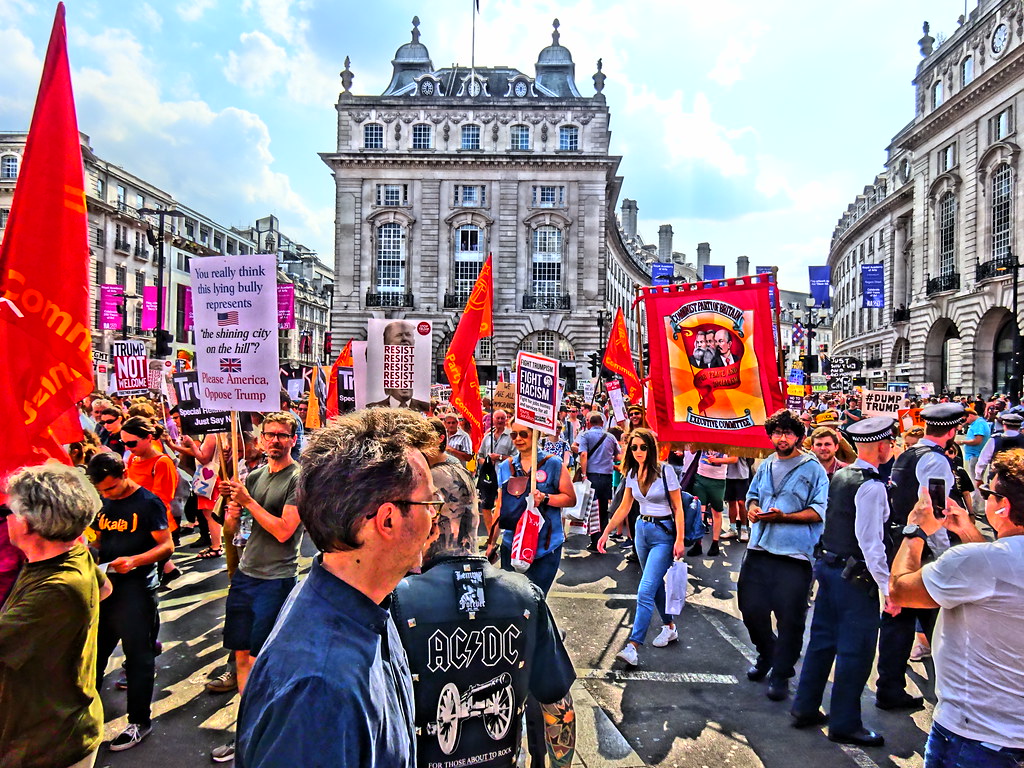11 Feb 2020 | Events, Uncategorized
[vc_row][vc_column][vc_column_text] [/vc_column_text][vc_column_text]Join Observer columnist Kenan Malik, legendary LGBT campaigner Peter Tatchell and artist Stella Odunlami for a debate on whether we should stand up for the right to protest. Chaired by Index on Censorship editor-in-chief Rachael Jolley.
[/vc_column_text][vc_column_text]Join Observer columnist Kenan Malik, legendary LGBT campaigner Peter Tatchell and artist Stella Odunlami for a debate on whether we should stand up for the right to protest. Chaired by Index on Censorship editor-in-chief Rachael Jolley.
These events are part of the Essex Book Festival 28 February – 31 March 2020
Each part of the programme requires separate ticketing. See specific instructions with the session. [/vc_column_text][/vc_column][/vc_row][vc_row][vc_column width=”1/3″][vc_single_image image=”104732″ img_size=”full”][/vc_column][vc_column width=”1/3″][vc_single_image image=”104733″ img_size=”full”][/vc_column][vc_column width=”1/3″][/vc_column][/vc_row][vc_row][vc_column][vc_column_text]Essex Book Festival is one of the highlights of Essex’s cultural calendar. Each March it hosts over 100 events in over 45 venues across the county, including theatres, libraries, schools, universities, cafes and art galleries. More information is available here.[/vc_column_text][/vc_column][/vc_row]
1 Nov 2019 | News and features, This Week
[vc_row][vc_column][vc_column_text][/vc_column_text][/vc_column][/vc_row][vc_row][vc_column][vc_raw_html]JTNDJTIxZG9jdHlwZSUyMGh0bWwlM0UlMEElM0NodG1sJTIweG1sbnMlM0QlMjJodHRwJTNBJTJGJTJGd3d3LnczLm9yZyUyRjE5OTklMkZ4aHRtbCUyMiUyMHhtbG5zJTNBdiUzRCUyMnVybiUzQXNjaGVtYXMtbWljcm9zb2Z0LWNvbSUzQXZtbCUyMiUyMHhtbG5zJTNBbyUzRCUyMnVybiUzQXNjaGVtYXMtbWljcm9zb2Z0LWNvbSUzQW9mZmljZSUzQW9mZmljZSUyMiUzRSUwQSUyMCUyMCUyMCUyMCUzQ2hlYWQlM0UlMEElMjAlMjAlMjAlMjAlMjAlMjAlMjAlMjAlM0MlMjEtLSUyME5BTUUlM0ElMjAxJTIwQ09MVU1OJTIwLS0lM0UlMEElMjAlMjAlMjAlMjAlMjAlMjAlMjAlMjAlM0MlMjEtLSU1QmlmJTIwZ3RlJTIwbXNvJTIwMTUlNUQlM0UlMEElMjAlMjAlMjAlMjAlMjAlMjAlMjAlMjAlM0N4bWwlM0UlMEElMjAlMjAlMjAlMjAlMjAlMjAlMjAlMjAlMjAlMjAlMjAlMjAlM0NvJTNBT2ZmaWNlRG9jdW1lbnRTZXR0aW5ncyUzRSUwQSUyMCUyMCUyMCUyMCUyMCUyMCUyMCUyMCUyMCUyMCUyMCUyMCUzQ28lM0FBbGxvd1BORyUyRiUzRSUwQSUyMCUyMCUyMCUyMCUyMCUyMCUyMCUyMCUyMCUyMCUyMCUyMCUzQ28lM0FQaXhlbHNQZXJJbmNoJTNFOTYlM0MlMkZvJTNBUGl4ZWxzUGVySW5jaCUzRSUwQSUyMCUyMCUyMCUyMCUyMCUyMCUyMCUyMCUyMCUyMCUyMCUyMCUzQyUyRm8lM0FPZmZpY2VEb2N1bWVudFNldHRpbmdzJTNFJTBBJTIwJTIwJTIwJTIwJTIwJTIwJTIwJTIwJTNDJTJGeG1sJTNFJTBBJTIwJTIwJTIwJTIwJTIwJTIwJTIwJTIwJTNDJTIxJTVCZW5kaWYlNUQtLSUzRSUwQSUyMCUyMCUyMCUyMCUyMCUyMCUyMCUyMCUzQ21ldGElMjBjaGFyc2V0JTNEJTIyVVRGLTglMjIlM0UlMEElMjAlMjAlMjAlMjAlMjAlMjAlMjAlMjAlM0NtZXRhJTIwaHR0cC1lcXVpdiUzRCUyMlgtVUEtQ29tcGF0aWJsZSUyMiUyMGNvbnRlbnQlM0QlMjJJRSUzRGVkZ2UlMjIlM0UlMEElMjAlMjAlMjAlMjAlMjAlMjAlMjAlMjAlM0NtZXRhJTIwbmFtZSUzRCUyMnZpZXdwb3J0JTIyJTIwY29udGVudCUzRCUyMndpZHRoJTNEZGV2aWNlLXdpZHRoJTJDJTIwaW5pdGlhbC1zY2FsZSUzRDElMjIlM0UlMEElMjAlMjAlMjAlMjAlMjAlMjAlMjAlMjAlM0N0aXRsZSUzRSUyQSU3Q01DJTNBU1VCSkVDVCU3QyUyQSUzQyUyRnRpdGxlJTNFJTBBJTIwJTIwJTIwJTIwJTIwJTIwJTIwJTIwJTBBJTIwJTIwJTIwJTIwJTNDc3R5bGUlMjB0eXBlJTNEJTIydGV4dCUyRmNzcyUyMiUzRSUwQSUwOSUwOXAlN0IlMEElMDklMDklMDltYXJnaW4lM0ExMHB4JTIwMCUzQiUwQSUwOSUwOSUwOXBhZGRpbmclM0EwJTNCJTBBJTA5JTA5JTdEJTBBJTA5JTA5dGFibGUlN0IlMEElMDklMDklMDlib3JkZXItY29sbGFwc2UlM0Fjb2xsYXBzZSUzQiUwQSUwOSUwOSU3RCUwQSUwOSUwOWgxJTJDaDIlMkNoMyUyQ2g0JTJDaDUlMkNoNiU3QiUwQSUwOSUwOSUwOWRpc3BsYXklM0FibG9jayUzQiUwQSUwOSUwOSUwOW1hcmdpbiUzQTAlM0IlMEElMDklMDklMDlwYWRkaW5nJTNBMCUzQiUwQSUwOSUwOSU3RCUwQSUwOSUwOWltZyUyQ2ElMjBpbWclN0IlMEElMDklMDklMDlib3JkZXIlM0EwJTNCJTBBJTA5JTA5JTA5aGVpZ2h0JTNBYXV0byUzQiUwQSUwOSUwOSUwOW91dGxpbmUlM0Fub25lJTNCJTBBJTA5JTA5JTA5dGV4dC1kZWNvcmF0aW9uJTNBbm9uZSUzQiUwQSUwOSUwOSU3RCUwQSUwOSUwOWJvZHklMkMlMjNib2R5VGFibGUlMkMlMjNib2R5Q2VsbCU3QiUwQSUwOSUwOSUwOWhlaWdodCUzQTEwMCUyNSUzQiUwQSUwOSUwOSUwOW1hcmdpbiUzQTAlM0IlMEElMDklMDklMDlwYWRkaW5nJTNBMCUzQiUwQSUwOSUwOSUwOXdpZHRoJTNBMTAwJTI1JTNCJTBBJTA5JTA5JTdEJTBBJTA5JTA5Lm1jblByZXZpZXdUZXh0JTdCJTBBJTA5JTA5JTA5ZGlzcGxheSUzQW5vbmUlMjAlMjFpbXBvcnRhbnQlM0IlMEElMDklMDklN0QlMEElMDklMDklMjNvdXRsb29rJTIwYSU3QiUwQSUwOSUwOSUwOXBhZGRpbmclM0EwJTNCJTBBJTA5JTA5JTdEJTBBJTA5JTA5aW1nJTdCJTBBJTA5JTA5JTA5LW1zLWludGVycG9sYXRpb24tbW9kZSUzQWJpY3ViaWMlM0IlMEElMDklMDklN0QlMEElMDklMDl0YWJsZSU3QiUwQSUwOSUwOSUwOW1zby10YWJsZS1sc3BhY2UlM0EwcHQlM0IlMEElMDklMDklMDltc28tdGFibGUtcnNwYWNlJTNBMHB0JTNCJTBBJTA5JTA5JTdEJTBBJTA5JTA5LlJlYWRNc2dCb2R5JTdCJTBBJTA5JTA5JTA5d2lkdGglM0ExMDAlMjUlM0IlMEElMDklMDklN0QlMEElMDklMDkuRXh0ZXJuYWxDbGFzcyU3QiUwQSUwOSUwOSUwOXdpZHRoJTNBMTAwJTI1JTNCJTBBJTA5JTA5JTdEJTBBJTA5JTA5cCUyQ2ElMkNsaSUyQ3RkJTJDYmxvY2txdW90ZSU3QiUwQSUwOSUwOSUwOW1zby1saW5lLWhlaWdodC1ydWxlJTNBZXhhY3RseSUzQiUwQSUwOSUwOSU3RCUwQSUwOSUwOWElNUJocmVmJTVFJTNEdGVsJTVEJTJDYSU1QmhyZWYlNUUlM0RzbXMlNUQlN0IlMEElMDklMDklMDljb2xvciUzQWluaGVyaXQlM0IlMEElMDklMDklMDljdXJzb3IlM0FkZWZhdWx0JTNCJTBBJTA5JTA5JTA5dGV4dC1kZWNvcmF0aW9uJTNBbm9uZSUzQiUwQSUwOSUwOSU3RCUwQSUwOSUwOXAlMkNhJTJDbGklMkN0ZCUyQ2JvZHklMkN0YWJsZSUyQ2Jsb2NrcXVvdGUlN0IlMEElMDklMDklMDktbXMtdGV4dC1zaXplLWFkanVzdCUzQTEwMCUyNSUzQiUwQSUwOSUwOSUwOS13ZWJraXQtdGV4dC1zaXplLWFkanVzdCUzQTEwMCUyNSUzQiUwQSUwOSUwOSU3RCUwQSUwOSUwOS5FeHRlcm5hbENsYXNzJTJDLkV4dGVybmFsQ2xhc3MlMjBwJTJDLkV4dGVybmFsQ2xhc3MlMjB0ZCUyQy5FeHRlcm5hbENsYXNzJTIwZGl2JTJDLkV4dGVybmFsQ2xhc3MlMjBzcGFuJTJDLkV4dGVybmFsQ2xhc3MlMjBmb250JTdCJTBBJTA5JTA5JTA5bGluZS1oZWlnaHQlM0ExMDAlMjUlM0IlMEElMDklMDklN0QlMEElMDklMDlhJTVCeC1hcHBsZS1kYXRhLWRldGVjdG9ycyU1RCU3QiUwQSUwOSUwOSUwOWNvbG9yJTNBaW5oZXJpdCUyMCUyMWltcG9ydGFudCUzQiUwQSUwOSUwOSUwOXRleHQtZGVjb3JhdGlvbiUzQW5vbmUlMjAlMjFpbXBvcnRhbnQlM0IlMEElMDklMDklMDlmb250LXNpemUlM0Fpbmhlcml0JTIwJTIxaW1wb3J0YW50JTNCJTBBJTA5JTA5JTA5Zm9udC1mYW1pbHklM0Fpbmhlcml0JTIwJTIxaW1wb3J0YW50JTNCJTBBJTA5JTA5JTA5Zm9udC13ZWlnaHQlM0Fpbmhlcml0JTIwJTIxaW1wb3J0YW50JTNCJTBBJTA5JTA5JTA5bGluZS1oZWlnaHQlM0Fpbmhlcml0JTIwJTIxaW1wb3J0YW50JTNCJTBBJTA5JTA5JTdEJTBBJTA5JTA5JTIzYm9keUNlbGwlN0IlMEElMDklMDklMDlwYWRkaW5nJTNBMTBweCUzQiUwQSUwOSUwOSU3RCUwQSUwOSUwOS50ZW1wbGF0ZUNvbnRhaW5lciU3QiUwQSUwOSUwOSUwOW1heC13aWR0aCUzQTYwMHB4JTIwJTIxaW1wb3J0YW50JTNCJTBBJTA5JTA5JTdEJTBBJTA5JTA5YS5tY25CdXR0b24lN0IlMEElMDklMDklMDlkaXNwbGF5JTNBYmxvY2slM0IlMEElMDklMDklN0QlMEElMDklMDkubWNuSW1hZ2UlMkMubWNuUmV0aW5hSW1hZ2UlN0IlMEElMDklMDklMDl2ZXJ0aWNhbC1hbGlnbiUzQWJvdHRvbSUzQiUwQSUwOSUwOSU3RCUwQSUwOSUwOS5tY25UZXh0Q29udGVudCU3QiUwQSUwOSUwOSUwOXdvcmQtYnJlYWslM0FicmVhay13b3JkJTNCJTBBJTA5JTA5JTdEJTBBJTA5JTA5Lm1jblRleHRDb250ZW50JTIwaW1nJTdCJTBBJTA5JTA5JTA5aGVpZ2h0JTNBYXV0byUyMCUyMWltcG9ydGFudCUzQiUwQSUwOSUwOSU3RCUwQSUwOSUwOS5tY25EaXZpZGVyQmxvY2slN0IlMEElMDklMDklMDl0YWJsZS1sYXlvdXQlM0FmaXhlZCUyMCUyMWltcG9ydGFudCUzQiUwQSUwOSUwOSU3RCUwQSUwOSUwOWJvZHklMkMlMjNib2R5VGFibGUlN0IlMEElMDklMDklMDliYWNrZ3JvdW5kLWNvbG9yJTNBJTIzRkFGQUZBJTNCJTBBJTA5JTA5JTdEJTBBJTA5JTA5JTIzYm9keUNlbGwlN0IlMEElMDklMDklMDlib3JkZXItdG9wJTNBMCUzQiUwQSUwOSUwOSU3RCUwQSUwOSUwOS50ZW1wbGF0ZUNvbnRhaW5lciU3QiUwQSUwOSUwOSUwOWJvcmRlciUzQTAlM0IlMEElMDklMDklN0QlMEElMDklMDloMSU3QiUwQSUwOSUwOSUwOWNvbG9yJTNBJTIzMjAyMDIwJTNCJTBBJTA5JTA5JTA5Zm9udC1mYW1pbHklM0FIZWx2ZXRpY2ElM0IlMEElMDklMDklMDlmb250LXNpemUlM0EyNnB4JTNCJTBBJTA5JTA5JTA5Zm9udC1zdHlsZSUzQW5vcm1hbCUzQiUwQSUwOSUwOSUwOWZvbnQtd2VpZ2h0JTNBYm9sZCUzQiUwQSUwOSUwOSUwOWxpbmUtaGVpZ2h0JTNBMTI1JTI1JTNCJTBBJTA5JTA5JTA5bGV0dGVyLXNwYWNpbmclM0Fub3JtYWwlM0IlMEElMDklMDklMDl0ZXh0LWFsaWduJTNBbGVmdCUzQiUwQSUwOSUwOSU3RCUwQSUwOSUwOWgyJTdCJTBBJTA5JTA5JTA5Y29sb3IlM0ElMjMyMDIwMjAlM0IlMEElMDklMDklMDlmb250LWZhbWlseSUzQUhlbHZldGljYSUzQiUwQSUwOSUwOSUwOWZvbnQtc2l6ZSUzQTIycHglM0IlMEElMDklMDklMDlmb250LXN0eWxlJTNBbm9ybWFsJTNCJTBBJTA5JTA5JTA5Zm9udC13ZWlnaHQlM0Fib2xkJTNCJTBBJTA5JTA5JTA5bGluZS1oZWlnaHQlM0ExMjUlMjUlM0IlMEElMDklMDklMDlsZXR0ZXItc3BhY2luZyUzQW5vcm1hbCUzQiUwQSUwOSUwOSUwOXRleHQtYWxpZ24lM0FsZWZ0JTNCJTBBJTA5JTA5JTdEJTBBJTA5JTA5aDMlN0IlMEElMDklMDklMDljb2xvciUzQSUyMzIwMjAyMCUzQiUwQSUwOSUwOSUwOWZvbnQtZmFtaWx5JTNBSGVsdmV0aWNhJTNCJTBBJTA5JTA5JTA5Zm9udC1zaXplJTNBMjBweCUzQiUwQSUwOSUwOSUwOWZvbnQtc3R5bGUlM0Fub3JtYWwlM0IlMEElMDklMDklMDlmb250LXdlaWdodCUzQWJvbGQlM0IlMEElMDklMDklMDlsaW5lLWhlaWdodCUzQTEyNSUyNSUzQiUwQSUwOSUwOSUwOWxldHRlci1zcGFjaW5nJTNBbm9ybWFsJTNCJTBBJTA5JTA5JTA5dGV4dC1hbGlnbiUzQWxlZnQlM0IlMEElMDklMDklN0QlMEElMDklMDloNCU3QiUwQSUwOSUwOSUwOWNvbG9yJTNBJTIzMjAyMDIwJTNCJTBBJTA5JTA5JTA5Zm9udC1mYW1pbHklM0FIZWx2ZXRpY2ElM0IlMEElMDklMDklMDlmb250LXNpemUlM0ExOHB4JTNCJTBBJTA5JTA5JTA5Zm9udC1zdHlsZSUzQW5vcm1hbCUzQiUwQSUwOSUwOSUwOWZvbnQtd2VpZ2h0JTNBYm9sZCUzQiUwQSUwOSUwOSUwOWxpbmUtaGVpZ2h0JTNBMTI1JTI1JTNCJTBBJTA5JTA5JTA5bGV0dGVyLXNwYWNpbmclM0Fub3JtYWwlM0IlMEElMDklMDklMDl0ZXh0LWFsaWduJTNBbGVmdCUzQiUwQSUwOSUwOSU3RCUwQSUwOSUwOSUyM3RlbXBsYXRlUHJlaGVhZGVyJTdCJTBBJTA5JTA5JTA5YmFja2dyb3VuZC1jb2xvciUzQSUyM2ZhZmFmYSUzQiUwQSUwOSUwOSUwOWJhY2tncm91bmQtaW1hZ2UlM0Fub25lJTNCJTBBJTA5JTA5JTA5YmFja2dyb3VuZC1yZXBlYXQlM0Fuby1yZXBlYXQlM0IlMEElMDklMDklMDliYWNrZ3JvdW5kLXBvc2l0aW9uJTNBY2VudGVyJTNCJTBBJTA5JTA5JTA5YmFja2dyb3VuZC1zaXplJTNBY292ZXIlM0IlMEElMDklMDklMDlib3JkZXItdG9wJTNBMCUzQiUwQSUwOSUwOSUwOWJvcmRlci1ib3R0b20lM0EwJTNCJTBBJTA5JTA5JTA5cGFkZGluZy10b3AlM0E5cHglM0IlMEElMDklMDklMDlwYWRkaW5nLWJvdHRvbSUzQTlweCUzQiUwQSUwOSUwOSU3RCUwQSUwOSUwOSUyM3RlbXBsYXRlUHJlaGVhZGVyJTIwLm1jblRleHRDb250ZW50JTJDJTIzdGVtcGxhdGVQcmVoZWFkZXIlMjAubWNuVGV4dENvbnRlbnQlMjBwJTdCJTBBJTA5JTA5JTA5Y29sb3IlM0ElMjM2NTY1NjUlM0IlMEElMDklMDklMDlmb250LWZhbWlseSUzQUhlbHZldGljYSUzQiUwQSUwOSUwOSUwOWZvbnQtc2l6ZSUzQTEycHglM0IlMEElMDklMDklMDlsaW5lLWhlaWdodCUzQTE1MCUyNSUzQiUwQSUwOSUwOSUwOXRleHQtYWxpZ24lM0FsZWZ0JTNCJTBBJTA5JTA5JTdEJTBBJTA5JTA5JTIzdGVtcGxhdGVQcmVoZWFkZXIlMjAubWNuVGV4dENvbnRlbnQlMjBhJTJDJTIzdGVtcGxhdGVQcmVoZWFkZXIlMjAubWNuVGV4dENvbnRlbnQlMjBwJTIwYSU3QiUwQSUwOSUwOSUwOWNvbG9yJTNBJTIzNjU2NTY1JTNCJTBBJTA5JTA5JTA5Zm9udC13ZWlnaHQlM0Fub3JtYWwlM0IlMEElMDklMDklMDl0ZXh0LWRlY29yYXRpb24lM0F1bmRlcmxpbmUlM0IlMEElMDklMDklN0QlMEElMDklMDklMjN0ZW1wbGF0ZUhlYWRlciU3QiUwQSUwOSUwOSUwOWJhY2tncm91bmQtY29sb3IlM0ElMjNmZmZmZmYlM0IlMEElMDklMDklMDliYWNrZ3JvdW5kLWltYWdlJTNBbm9uZSUzQiUwQSUwOSUwOSUwOWJhY2tncm91bmQtcmVwZWF0JTNBbm8tcmVwZWF0JTNCJTBBJTA5JTA5JTA5YmFja2dyb3VuZC1wb3NpdGlvbiUzQWNlbnRlciUzQiUwQSUwOSUwOSUwOWJhY2tncm91bmQtc2l6ZSUzQWNvdmVyJTNCJTBBJTA5JTA5JTA5Ym9yZGVyLXRvcCUzQTAlM0IlMEElMDklMDklMDlib3JkZXItYm90dG9tJTNBMCUzQiUwQSUwOSUwOSUwOXBhZGRpbmctdG9wJTNBOXB4JTNCJTBBJTA5JTA5JTA5cGFkZGluZy1ib3R0b20lM0EwJTNCJTBBJTA5JTA5JTdEJTBBJTA5JTA5JTIzdGVtcGxhdGVIZWFkZXIlMjAubWNuVGV4dENvbnRlbnQlMkMlMjN0ZW1wbGF0ZUhlYWRlciUyMC5tY25UZXh0Q29udGVudCUyMHAlN0IlMEElMDklMDklMDljb2xvciUzQSUyMzIwMjAyMCUzQiUwQSUwOSUwOSUwOWZvbnQtZmFtaWx5JTNBSGVsdmV0aWNhJTNCJTBBJTA5JTA5JTA5Zm9udC1zaXplJTNBMTZweCUzQiUwQSUwOSUwOSUwOWxpbmUtaGVpZ2h0JTNBMTUwJTI1JTNCJTBBJTA5JTA5JTA5dGV4dC1hbGlnbiUzQWxlZnQlM0IlMEElMDklMDklN0QlMEElMDklMDklMjN0ZW1wbGF0ZUhlYWRlciUyMC5tY25UZXh0Q29udGVudCUyMGElMkMlMjN0ZW1wbGF0ZUhlYWRlciUyMC5tY25UZXh0Q29udGVudCUyMHAlMjBhJTdCJTBBJTA5JTA5JTA5Y29sb3IlM0ElMjMwMDdDODklM0IlMEElMDklMDklMDlmb250LXdlaWdodCUzQW5vcm1hbCUzQiUwQSUwOSUwOSUwOXRleHQtZGVjb3JhdGlvbiUzQXVuZGVybGluZSUzQiUwQSUwOSUwOSU3RCUwQSUwOSUwOSUyM3RlbXBsYXRlQm9keSU3QiUwQSUwOSUwOSUwOWJhY2tncm91bmQtY29sb3IlM0ElMjNmZmZmZmYlM0IlMEElMDklMDklMDliYWNrZ3JvdW5kLWltYWdlJTNBbm9uZSUzQiUwQSUwOSUwOSUwOWJhY2tncm91bmQtcmVwZWF0JTNBbm8tcmVwZWF0JTNCJTBBJTA5JTA5JTA5YmFja2dyb3VuZC1wb3NpdGlvbiUzQWNlbnRlciUzQiUwQSUwOSUwOSUwOWJhY2tncm91bmQtc2l6ZSUzQWNvdmVyJTNCJTBBJTA5JTA5JTA5Ym9yZGVyLXRvcCUzQTAlM0IlMEElMDklMDklMDlib3JkZXItYm90dG9tJTNBMnB4JTIwc29saWQlMjAlMjNFQUVBRUElM0IlMEElMDklMDklMDlwYWRkaW5nLXRvcCUzQTAlM0IlMEElMDklMDklMDlwYWRkaW5nLWJvdHRvbSUzQTlweCUzQiUwQSUwOSUwOSU3RCUwQSUwOSUwOSUyM3RlbXBsYXRlQm9keSUyMC5tY25UZXh0Q29udGVudCUyQyUyM3RlbXBsYXRlQm9keSUyMC5tY25UZXh0Q29udGVudCUyMHAlN0IlMEElMDklMDklMDljb2xvciUzQSUyMzIwMjAyMCUzQiUwQSUwOSUwOSUwOWZvbnQtZmFtaWx5JTNBSGVsdmV0aWNhJTNCJTBBJTA5JTA5JTA5Zm9udC1zaXplJTNBMTZweCUzQiUwQSUwOSUwOSUwOWxpbmUtaGVpZ2h0JTNBMTUwJTI1JTNCJTBBJTA5JTA5JTA5dGV4dC1hbGlnbiUzQWxlZnQlM0IlMEElMDklMDklN0QlMEElMDklMDklMjN0ZW1wbGF0ZUJvZHklMjAubWNuVGV4dENvbnRlbnQlMjBhJTJDJTIzdGVtcGxhdGVCb2R5JTIwLm1jblRleHRDb250ZW50JTIwcCUyMGElN0IlMEElMDklMDklMDljb2xvciUzQSUyMzAwN0M4OSUzQiUwQSUwOSUwOSUwOWZvbnQtd2VpZ2h0JTNBbm9ybWFsJTNCJTBBJTA5JTA5JTA5dGV4dC1kZWNvcmF0aW9uJTNBdW5kZXJsaW5lJTNCJTBBJTA5JTA5JTdEJTBBJTA5JTA5JTIzdGVtcGxhdGVGb290ZXIlN0IlMEElMDklMDklMDliYWNrZ3JvdW5kLWNvbG9yJTNBJTIzNzg4NThkJTNCJTBBJTA5JTA5JTA5YmFja2dyb3VuZC1pbWFnZSUzQW5vbmUlM0IlMEElMDklMDklMDliYWNrZ3JvdW5kLXJlcGVhdCUzQW5vLXJlcGVhdCUzQiUwQSUwOSUwOSUwOWJhY2tncm91bmQtcG9zaXRpb24lM0FjZW50ZXIlM0IlMEElMDklMDklMDliYWNrZ3JvdW5kLXNpemUlM0Fjb3ZlciUzQiUwQSUwOSUwOSUwOWJvcmRlci10b3AlM0EwJTNCJTBBJTA5JTA5JTA5Ym9yZGVyLWJvdHRvbSUzQTAlM0IlMEElMDklMDklMDlwYWRkaW5nLXRvcCUzQTlweCUzQiUwQSUwOSUwOSUwOXBhZGRpbmctYm90dG9tJTNBOXB4JTNCJTBBJTA5JTA5JTdEJTBBJTA5JTA5JTIzdGVtcGxhdGVGb290ZXIlMjAubWNuVGV4dENvbnRlbnQlMkMlMjN0ZW1wbGF0ZUZvb3RlciUyMC5tY25UZXh0Q29udGVudCUyMHAlN0IlMEElMDklMDklMDljb2xvciUzQSUyMzY1NjU2NSUzQiUwQSUwOSUwOSUwOWZvbnQtZmFtaWx5JTNBSGVsdmV0aWNhJTNCJTBBJTA5JTA5JTA5Zm9udC1zaXplJTNBMTJweCUzQiUwQSUwOSUwOSUwOWxpbmUtaGVpZ2h0JTNBMTUwJTI1JTNCJTBBJTA5JTA5JTA5dGV4dC1hbGlnbiUzQWNlbnRlciUzQiUwQSUwOSUwOSU3RCUwQSUwOSUwOSUyM3RlbXBsYXRlRm9vdGVyJTIwLm1jblRleHRDb250ZW50JTIwYSUyQyUyM3RlbXBsYXRlRm9vdGVyJTIwLm1jblRleHRDb250ZW50JTIwcCUyMGElN0IlMEElMDklMDklMDljb2xvciUzQSUyMzY1NjU2NSUzQiUwQSUwOSUwOSUwOWZvbnQtd2VpZ2h0JTNBbm9ybWFsJTNCJTBBJTA5JTA5JTA5dGV4dC1kZWNvcmF0aW9uJTNBdW5kZXJsaW5lJTNCJTBBJTA5JTA5JTdEJTBBJTA5JTQwbWVkaWElMjBvbmx5JTIwc2NyZWVuJTIwYW5kJTIwJTI4bWluLXdpZHRoJTNBNzY4cHglMjklN0IlMEElMDklMDkudGVtcGxhdGVDb250YWluZXIlN0IlMEElMDklMDklMDl3aWR0aCUzQTYwMHB4JTIwJTIxaW1wb3J0YW50JTNCJTBBJTA5JTA5JTdEJTBBJTBBJTdEJTA5JTQwbWVkaWElMjBvbmx5JTIwc2NyZWVuJTIwYW5kJTIwJTI4bWF4LXdpZHRoJTNBJTIwNDgwcHglMjklN0IlMEElMDklMDlib2R5JTJDdGFibGUlMkN0ZCUyQ3AlMkNhJTJDbGklMkNibG9ja3F1b3RlJTdCJTBBJTA5JTA5JTA5LXdlYmtpdC10ZXh0LXNpemUtYWRqdXN0JTNBbm9uZSUyMCUyMWltcG9ydGFudCUzQiUwQSUwOSUwOSU3RCUwQSUwQSU3RCUwOSU0MG1lZGlhJTIwb25seSUyMHNjcmVlbiUyMGFuZCUyMCUyOG1heC13aWR0aCUzQSUyMDQ4MHB4JTI5JTdCJTBBJTA5JTA5Ym9keSU3QiUwQSUwOSUwOSUwOXdpZHRoJTNBMTAwJTI1JTIwJTIxaW1wb3J0YW50JTNCJTBBJTA5JTA5JTA5bWluLXdpZHRoJTNBMTAwJTI1JTIwJTIxaW1wb3J0YW50JTNCJTBBJTA5JTA5JTdEJTBBJTBBJTdEJTA5JTQwbWVkaWElMjBvbmx5JTIwc2NyZWVuJTIwYW5kJTIwJTI4bWF4LXdpZHRoJTNBJTIwNDgwcHglMjklN0IlMEElMDklMDklMjNib2R5Q2VsbCU3QiUwQSUwOSUwOSUwOXBhZGRpbmctdG9wJTNBMTBweCUyMCUyMWltcG9ydGFudCUzQiUwQSUwOSUwOSU3RCUwQSUwQSU3RCUwOSU0MG1lZGlhJTIwb25seSUyMHNjcmVlbiUyMGFuZCUyMCUyOG1heC13aWR0aCUzQSUyMDQ4MHB4JTI5JTdCJTBBJTA5JTA5Lm1jblJldGluYUltYWdlJTdCJTBBJTA5JTA5JTA5bWF4LXdpZHRoJTNBMTAwJTI1JTIwJTIxaW1wb3J0YW50JTNCJTBBJTA5JTA5JTdEJTBBJTBBJTdEJTA5JTQwbWVkaWElMjBvbmx5JTIwc2NyZWVuJTIwYW5kJTIwJTI4bWF4LXdpZHRoJTNBJTIwNDgwcHglMjklN0IlMEElMDklMDkubWNuSW1hZ2UlN0IlMEElMDklMDklMDl3aWR0aCUzQTEwMCUyNSUyMCUyMWltcG9ydGFudCUzQiUwQSUwOSUwOSU3RCUwQSUwQSU3RCUwOSU0MG1lZGlhJTIwb25seSUyMHNjcmVlbiUyMGFuZCUyMCUyOG1heC13aWR0aCUzQSUyMDQ4MHB4JTI5JTdCJTBBJTA5JTA5Lm1jbkNhcnRDb250YWluZXIlMkMubWNuQ2FwdGlvblRvcENvbnRlbnQlMkMubWNuUmVjQ29udGVudENvbnRhaW5lciUyQy5tY25DYXB0aW9uQm90dG9tQ29udGVudCUyQy5tY25UZXh0Q29udGVudENvbnRhaW5lciUyQy5tY25Cb3hlZFRleHRDb250ZW50Q29udGFpbmVyJTJDLm1jbkltYWdlR3JvdXBDb250ZW50Q29udGFpbmVyJTJDLm1jbkNhcHRpb25MZWZ0VGV4dENvbnRlbnRDb250YWluZXIlMkMubWNuQ2FwdGlvblJpZ2h0VGV4dENvbnRlbnRDb250YWluZXIlMkMubWNuQ2FwdGlvbkxlZnRJbWFnZUNvbnRlbnRDb250YWluZXIlMkMubWNuQ2FwdGlvblJpZ2h0SW1hZ2VDb250ZW50Q29udGFpbmVyJTJDLm1jbkltYWdlQ2FyZExlZnRUZXh0Q29udGVudENvbnRhaW5lciUyQy5tY25JbWFnZUNhcmRSaWdodFRleHRDb250ZW50Q29udGFpbmVyJTJDLm1jbkltYWdlQ2FyZExlZnRJbWFnZUNvbnRlbnRDb250YWluZXIlMkMubWNuSW1hZ2VDYXJkUmlnaHRJbWFnZUNvbnRlbnRDb250YWluZXIlN0IlMEElMDklMDklMDltYXgtd2lkdGglM0ExMDAlMjUlMjAlMjFpbXBvcnRhbnQlM0IlMEElMDklMDklMDl3aWR0aCUzQTEwMCUyNSUyMCUyMWltcG9ydGFudCUzQiUwQSUwOSUwOSU3RCUwQSUwQSU3RCUwOSU0MG1lZGlhJTIwb25seSUyMHNjcmVlbiUyMGFuZCUyMCUyOG1heC13aWR0aCUzQSUyMDQ4MHB4JTI5JTdCJTBBJTA5JTA5Lm1jbkJveGVkVGV4dENvbnRlbnRDb250YWluZXIlN0IlMEElMDklMDklMDltaW4td2lkdGglM0ExMDAlMjUlMjAlMjFpbXBvcnRhbnQlM0IlMEElMDklMDklN0QlMEElMEElN0QlMDklNDBtZWRpYSUyMG9ubHklMjBzY3JlZW4lMjBhbmQlMjAlMjhtYXgtd2lkdGglM0ElMjA0ODBweCUyOSU3QiUwQSUwOSUwOS5tY25JbWFnZUdyb3VwQ29udGVudCU3QiUwQSUwOSUwOSUwOXBhZGRpbmclM0E5cHglMjAlMjFpbXBvcnRhbnQlM0IlMEElMDklMDklN0QlMEElMEElN0QlMDklNDBtZWRpYSUyMG9ubHklMjBzY3JlZW4lMjBhbmQlMjAlMjhtYXgtd2lkdGglM0ElMjA0ODBweCUyOSU3QiUwQSUwOSUwOS5tY25DYXB0aW9uTGVmdENvbnRlbnRPdXRlciUyMC5tY25UZXh0Q29udGVudCUyQy5tY25DYXB0aW9uUmlnaHRDb250ZW50T3V0ZXIlMjAubWNuVGV4dENvbnRlbnQlN0IlMEElMDklMDklMDlwYWRkaW5nLXRvcCUzQTlweCUyMCUyMWltcG9ydGFudCUzQiUwQSUwOSUwOSU3RCUwQSUwQSU3RCUwOSU0MG1lZGlhJTIwb25seSUyMHNjcmVlbiUyMGFuZCUyMCUyOG1heC13aWR0aCUzQSUyMDQ4MHB4JTI5JTdCJTBBJTA5JTA5Lm1jbkltYWdlQ2FyZFRvcEltYWdlQ29udGVudCUyQy5tY25DYXB0aW9uQm90dG9tQ29udGVudCUzQWxhc3QtY2hpbGQlMjAubWNuQ2FwdGlvbkJvdHRvbUltYWdlQ29udGVudCUyQy5tY25DYXB0aW9uQmxvY2tJbm5lciUyMC5tY25DYXB0aW9uVG9wQ29udGVudCUzQWxhc3QtY2hpbGQlMjAubWNuVGV4dENvbnRlbnQlN0IlMEElMDklMDklMDlwYWRkaW5nLXRvcCUzQTE4cHglMjAlMjFpbXBvcnRhbnQlM0IlMEElMDklMDklN0QlMEElMEElN0QlMDklNDBtZWRpYSUyMG9ubHklMjBzY3JlZW4lMjBhbmQlMjAlMjhtYXgtd2lkdGglM0ElMjA0ODBweCUyOSU3QiUwQSUwOSUwOS5tY25JbWFnZUNhcmRCb3R0b21JbWFnZUNvbnRlbnQlN0IlMEElMDklMDklMDlwYWRkaW5nLWJvdHRvbSUzQTlweCUyMCUyMWltcG9ydGFudCUzQiUwQSUwOSUwOSU3RCUwQSUwQSU3RCUwOSU0MG1lZGlhJTIwb25seSUyMHNjcmVlbiUyMGFuZCUyMCUyOG1heC13aWR0aCUzQSUyMDQ4MHB4JTI5JTdCJTBBJTA5JTA5Lm1jbkltYWdlR3JvdXBCbG9ja0lubmVyJTdCJTBBJTA5JTA5JTA5cGFkZGluZy10b3AlM0EwJTIwJTIxaW1wb3J0YW50JTNCJTBBJTA5JTA5JTA5cGFkZGluZy1ib3R0b20lM0EwJTIwJTIxaW1wb3J0YW50JTNCJTBBJTA5JTA5JTdEJTBBJTBBJTdEJTA5JTQwbWVkaWElMjBvbmx5JTIwc2NyZWVuJTIwYW5kJTIwJTI4bWF4LXdpZHRoJTNBJTIwNDgwcHglMjklN0IlMEElMDklMDkubWNuSW1hZ2VHcm91cEJsb2NrT3V0ZXIlN0IlMEElMDklMDklMDlwYWRkaW5nLXRvcCUzQTlweCUyMCUyMWltcG9ydGFudCUzQiUwQSUwOSUwOSUwOXBhZGRpbmctYm90dG9tJTNBOXB4JTIwJTIxaW1wb3J0YW50JTNCJTBBJTA5JTA5JTdEJTBBJTBBJTdEJTA5JTQwbWVkaWElMjBvbmx5JTIwc2NyZWVuJTIwYW5kJTIwJTI4bWF4LXdpZHRoJTNBJTIwNDgwcHglMjklN0IlMEElMDklMDkubWNuVGV4dENvbnRlbnQlMkMubWNuQm94ZWRUZXh0Q29udGVudENvbHVtbiU3QiUwQSUwOSUwOSUwOXBhZGRpbmctcmlnaHQlM0ExOHB4JTIwJTIxaW1wb3J0YW50JTNCJTBBJTA5JTA5JTA5cGFkZGluZy1sZWZ0JTNBMThweCUyMCUyMWltcG9ydGFudCUzQiUwQSUwOSUwOSU3RCUwQSUwQSU3RCUwOSU0MG1lZGlhJTIwb25seSUyMHNjcmVlbiUyMGFuZCUyMCUyOG1heC13aWR0aCUzQSUyMDQ4MHB4JTI5JTdCJTBBJTA5JTA5Lm1jbkltYWdlQ2FyZExlZnRJbWFnZUNvbnRlbnQlMkMubWNuSW1hZ2VDYXJkUmlnaHRJbWFnZUNvbnRlbnQlN0IlMEElMDklMDklMDlwYWRkaW5nLXJpZ2h0JTNBMThweCUyMCUyMWltcG9ydGFudCUzQiUwQSUwOSUwOSUwOXBhZGRpbmctYm90dG9tJTNBMCUyMCUyMWltcG9ydGFudCUzQiUwQSUwOSUwOSUwOXBhZGRpbmctbGVmdCUzQTE4cHglMjAlMjFpbXBvcnRhbnQlM0IlMEElMDklMDklN0QlMEElMEElN0QlMDklNDBtZWRpYSUyMG9ubHklMjBzY3JlZW4lMjBhbmQlMjAlMjhtYXgtd2lkdGglM0ElMjA0ODBweCUyOSU3QiUwQSUwOSUwOS5tY3ByZXZpZXctaW1hZ2UtdXBsb2FkZXIlN0IlMEElMDklMDklMDlkaXNwbGF5JTNBbm9uZSUyMCUyMWltcG9ydGFudCUzQiUwQSUwOSUwOSUwOXdpZHRoJTNBMTAwJTI1JTIwJTIxaW1wb3J0YW50JTNCJTBBJTA5JTA5JTdEJTBBJTBBJTdEJTA5JTQwbWVkaWElMjBvbmx5JTIwc2NyZWVuJTIwYW5kJTIwJTI4bWF4LXdpZHRoJTNBJTIwNDgwcHglMjklN0IlMEElMDklMDloMSU3QiUwQSUwOSUwOSUwOWZvbnQtc2l6ZSUzQTIycHglMjAlMjFpbXBvcnRhbnQlM0IlMEElMDklMDklMDlsaW5lLWhlaWdodCUzQTEyNSUyNSUyMCUyMWltcG9ydGFudCUzQiUwQSUwOSUwOSU3RCUwQSUwQSU3RCUwOSU0MG1lZGlhJTIwb25seSUyMHNjcmVlbiUyMGFuZCUyMCUyOG1heC13aWR0aCUzQSUyMDQ4MHB4JTI5JTdCJTBBJTA5JTA5aDIlN0IlMEElMDklMDklMDlmb250LXNpemUlM0EyMHB4JTIwJTIxaW1wb3J0YW50JTNCJTBBJTA5JTA5JTA5bGluZS1oZWlnaHQlM0ExMjUlMjUlMjAlMjFpbXBvcnRhbnQlM0IlMEElMDklMDklN0QlMEElMEElN0QlMDklNDBtZWRpYSUyMG9ubHklMjBzY3JlZW4lMjBhbmQlMjAlMjhtYXgtd2lkdGglM0ElMjA0ODBweCUyOSU3QiUwQSUwOSUwOWgzJTdCJTBBJTA5JTA5JTA5Zm9udC1zaXplJTNBMThweCUyMCUyMWltcG9ydGFudCUzQiUwQSUwOSUwOSUwOWxpbmUtaGVpZ2h0JTNBMTI1JTI1JTIwJTIxaW1wb3J0YW50JTNCJTBBJTA5JTA5JTdEJTBBJTBBJTdEJTA5JTQwbWVkaWElMjBvbmx5JTIwc2NyZWVuJTIwYW5kJTIwJTI4bWF4LXdpZHRoJTNBJTIwNDgwcHglMjklN0IlMEElMDklMDloNCU3QiUwQSUwOSUwOSUwOWZvbnQtc2l6ZSUzQTE2cHglMjAlMjFpbXBvcnRhbnQlM0IlMEElMDklMDklMDlsaW5lLWhlaWdodCUzQTE1MCUyNSUyMCUyMWltcG9ydGFudCUzQiUwQSUwOSUwOSU3RCUwQSUwQSU3RCUwOSU0MG1lZGlhJTIwb25seSUyMHNjcmVlbiUyMGFuZCUyMCUyOG1heC13aWR0aCUzQSUyMDQ4MHB4JTI5JTdCJTBBJTA5JTA5Lm1jbkJveGVkVGV4dENvbnRlbnRDb250YWluZXIlMjAubWNuVGV4dENvbnRlbnQlMkMubWNuQm94ZWRUZXh0Q29udGVudENvbnRhaW5lciUyMC5tY25UZXh0Q29udGVudCUyMHAlN0IlMEElMDklMDklMDlmb250LXNpemUlM0ExNHB4JTIwJTIxaW1wb3J0YW50JTNCJTBBJTA5JTA5JTA5bGluZS1oZWlnaHQlM0ExNTAlMjUlMjAlMjFpbXBvcnRhbnQlM0IlMEElMDklMDklN0QlMEElMEElN0QlMDklNDBtZWRpYSUyMG9ubHklMjBzY3JlZW4lMjBhbmQlMjAlMjhtYXgtd2lkdGglM0ElMjA0ODBweCUyOSU3QiUwQSUwOSUwOSUyM3RlbXBsYXRlUHJlaGVhZGVyJTdCJTBBJTA5JTA5JTA5ZGlzcGxheSUzQWJsb2NrJTIwJTIxaW1wb3J0YW50JTNCJTBBJTA5JTA5JTdEJTBBJTBBJTdEJTA5JTQwbWVkaWElMjBvbmx5JTIwc2NyZWVuJTIwYW5kJTIwJTI4bWF4LXdpZHRoJTNBJTIwNDgwcHglMjklN0IlMEElMDklMDklMjN0ZW1wbGF0ZVByZWhlYWRlciUyMC5tY25UZXh0Q29udGVudCUyQyUyM3RlbXBsYXRlUHJlaGVhZGVyJTIwLm1jblRleHRDb250ZW50JTIwcCU3QiUwQSUwOSUwOSUwOWZvbnQtc2l6ZSUzQTE0cHglMjAlMjFpbXBvcnRhbnQlM0IlMEElMDklMDklMDlsaW5lLWhlaWdodCUzQTE1MCUyNSUyMCUyMWltcG9ydGFudCUzQiUwQSUwOSUwOSU3RCUwQSUwQSU3RCUwOSU0MG1lZGlhJTIwb25seSUyMHNjcmVlbiUyMGFuZCUyMCUyOG1heC13aWR0aCUzQSUyMDQ4MHB4JTI5JTdCJTBBJTA5JTA5JTIzdGVtcGxhdGVIZWFkZXIlMjAubWNuVGV4dENvbnRlbnQlMkMlMjN0ZW1wbGF0ZUhlYWRlciUyMC5tY25UZXh0Q29udGVudCUyMHAlN0IlMEElMDklMDklMDlmb250LXNpemUlM0ExNnB4JTIwJTIxaW1wb3J0YW50JTNCJTBBJTA5JTA5JTA5bGluZS1oZWlnaHQlM0ExNTAlMjUlMjAlMjFpbXBvcnRhbnQlM0IlMEElMDklMDklN0QlMEElMEElN0QlMDklNDBtZWRpYSUyMG9ubHklMjBzY3JlZW4lMjBhbmQlMjAlMjhtYXgtd2lkdGglM0ElMjA0ODBweCUyOSU3QiUwQSUwOSUwOSUyM3RlbXBsYXRlQm9keSUyMC5tY25UZXh0Q29udGVudCUyQyUyM3RlbXBsYXRlQm9keSUyMC5tY25UZXh0Q29udGVudCUyMHAlN0IlMEElMDklMDklMDlmb250LXNpemUlM0ExNnB4JTIwJTIxaW1wb3J0YW50JTNCJTBBJTA5JTA5JTA5bGluZS1oZWlnaHQlM0ExNTAlMjUlMjAlMjFpbXBvcnRhbnQlM0IlMEElMDklMDklN0QlMEElMEElN0QlMDklNDBtZWRpYSUyMG9ubHklMjBzY3JlZW4lMjBhbmQlMjAlMjhtYXgtd2lkdGglM0ElMjA0ODBweCUyOSU3QiUwQSUwOSUwOSUyM3RlbXBsYXRlRm9vdGVyJTIwLm1jblRleHRDb250ZW50JTJDJTIzdGVtcGxhdGVGb290ZXIlMjAubWNuVGV4dENvbnRlbnQlMjBwJTdCJTBBJTA5JTA5JTA5Zm9udC1zaXplJTNBMTRweCUyMCUyMWltcG9ydGFudCUzQiUwQSUwOSUwOSUwOWxpbmUtaGVpZ2h0JTNBMTUwJTI1JTIwJTIxaW1wb3J0YW50JTNCJTBBJTA5JTA5JTdEJTBBJTBBJTdEJTNDJTJGc3R5bGUlM0UlM0MlMkZoZWFkJTNFJTBBJTIwJTIwJTIwJTIwJTNDYm9keSUyMHN0eWxlJTNEJTIyaGVpZ2h0JTNBJTIwMTAwJTI1JTNCbWFyZ2luJTNBJTIwMCUzQnBhZGRpbmclM0ElMjAwJTNCd2lkdGglM0ElMjAxMDAlMjUlM0ItbXMtdGV4dC1zaXplLWFkanVzdCUzQSUyMDEwMCUyNSUzQi13ZWJraXQtdGV4dC1zaXplLWFkanVzdCUzQSUyMDEwMCUyNSUzQmJhY2tncm91bmQtY29sb3IlM0ElMjAlMjNGQUZBRkElM0IlMjIlM0UlMEElMjAlMjAlMjAlMjAlMjAlMjAlMjAlMjAlM0MlMjEtLSUyQSU3Q0lGJTNBTUNfUFJFVklFV19URVhUJTdDJTJBLS0lM0UlMEElMjAlMjAlMjAlMjAlMjAlMjAlMjAlMjAlM0MlMjEtLSU1QmlmJTIwJTIxZ3RlJTIwbXNvJTIwOSU1RCUzRSUzQyUyMS0tLS0lM0UlM0NzcGFuJTIwY2xhc3MlM0QlMjJtY25QcmV2aWV3VGV4dCUyMiUyMHN0eWxlJTNEJTIyZGlzcGxheSUzQW5vbmUlM0IlMjBmb250LXNpemUlM0EwcHglM0IlMjBsaW5lLWhlaWdodCUzQTBweCUzQiUyMG1heC1oZWlnaHQlM0EwcHglM0IlMjBtYXgtd2lkdGglM0EwcHglM0IlMjBvcGFjaXR5JTNBMCUzQiUyMG92ZXJmbG93JTNBaGlkZGVuJTNCJTIwdmlzaWJpbGl0eSUzQWhpZGRlbiUzQiUyMG1zby1oaWRlJTNBYWxsJTNCJTIyJTNFJTJBJTdDTUNfUFJFVklFV19URVhUJTdDJTJBJTNDJTJGc3BhbiUzRSUzQyUyMS0tJTNDJTIxJTVCZW5kaWYlNUQtLSUzRSUwQSUyMCUyMCUyMCUyMCUyMCUyMCUyMCUyMCUzQyUyMS0tJTJBJTdDRU5EJTNBSUYlN0MlMkEtLSUzRSUwQSUyMCUyMCUyMCUyMCUyMCUyMCUyMCUyMCUzQ2NlbnRlciUzRSUwQSUyMCUyMCUyMCUyMCUyMCUyMCUyMCUyMCUyMCUyMCUyMCUyMCUzQ3RhYmxlJTIwYWxpZ24lM0QlMjJjZW50ZXIlMjIlMjBib3JkZXIlM0QlMjIwJTIyJTIwY2VsbHBhZGRpbmclM0QlMjIwJTIyJTIwY2VsbHNwYWNpbmclM0QlMjIwJTIyJTIwaGVpZ2h0JTNEJTIyMTAwJTI1JTIyJTIwd2lkdGglM0QlMjIxMDAlMjUlMjIlMjBpZCUzRCUyMmJvZHlUYWJsZSUyMiUyMHN0eWxlJTNEJTIyYm9yZGVyLWNvbGxhcHNlJTNBJTIwY29sbGFwc2UlM0Jtc28tdGFibGUtbHNwYWNlJTNBJTIwMHB0JTNCbXNvLXRhYmxlLXJzcGFjZSUzQSUyMDBwdCUzQi1tcy10ZXh0LXNpemUtYWRqdXN0JTNBJTIwMTAwJTI1JTNCLXdlYmtpdC10ZXh0LXNpemUtYWRqdXN0JTNBJTIwMTAwJTI1JTNCaGVpZ2h0JTNBJTIwMTAwJTI1JTNCbWFyZ2luJTNBJTIwMCUzQnBhZGRpbmclM0ElMjAwJTNCd2lkdGglM0ElMjAxMDAlMjUlM0JiYWNrZ3JvdW5kLWNvbG9yJTNBJTIwJTIzRkFGQUZBJTNCJTIyJTNFJTBBJTIwJTIwJTIwJTIwJTIwJTIwJTIwJTIwJTIwJTIwJTIwJTIwJTIwJTIwJTIwJTIwJTNDdHIlM0UlMEElMjAlMjAlMjAlMjAlMjAlMjAlMjAlMjAlMjAlMjAlMjAlMjAlMjAlMjAlMjAlMjAlMjAlMjAlMjAlMjAlM0N0ZCUyMGFsaWduJTNEJTIyY2VudGVyJTIyJTIwdmFsaWduJTNEJTIydG9wJTIyJTIwaWQlM0QlMjJib2R5Q2VsbCUyMiUyMHN0eWxlJTNEJTIybXNvLWxpbmUtaGVpZ2h0LXJ1bGUlM0ElMjBleGFjdGx5JTNCLW1zLXRleHQtc2l6ZS1hZGp1c3QlM0ElMjAxMDAlMjUlM0Itd2Via2l0LXRleHQtc2l6ZS1hZGp1c3QlM0ElMjAxMDAlMjUlM0JoZWlnaHQlM0ElMjAxMDAlMjUlM0JtYXJnaW4lM0ElMjAwJTNCcGFkZGluZyUzQSUyMDEwcHglM0J3aWR0aCUzQSUyMDEwMCUyNSUzQmJvcmRlci10b3AlM0ElMjAwJTNCJTIyJTNFJTBBJTIwJTIwJTIwJTIwJTIwJTIwJTIwJTIwJTIwJTIwJTIwJTIwJTIwJTIwJTIwJTIwJTIwJTIwJTIwJTIwJTIwJTIwJTIwJTIwJTNDJTIxLS0lMjBCRUdJTiUyMFRFTVBMQVRFJTIwJTJGJTJGJTIwLS0lM0UlMEElMjAlMjAlMjAlMjAlMjAlMjAlMjAlMjAlMjAlMjAlMjAlMjAlMjAlMjAlMjAlMjAlMjAlMjAlMjAlMjAlMjAlMjAlMjAlMjAlM0MlMjEtLSU1QmlmJTIwJTI4Z3RlJTIwbXNvJTIwOSUyOSU3QyUyOElFJTI5JTVEJTNFJTBBJTIwJTIwJTIwJTIwJTIwJTIwJTIwJTIwJTIwJTIwJTIwJTIwJTIwJTIwJTIwJTIwJTIwJTIwJTIwJTIwJTIwJTIwJTIwJTIwJTNDdGFibGUlMjBhbGlnbiUzRCUyMmNlbnRlciUyMiUyMGJvcmRlciUzRCUyMjAlMjIlMjBjZWxsc3BhY2luZyUzRCUyMjAlMjIlMjBjZWxscGFkZGluZyUzRCUyMjAlMjIlMjB3aWR0aCUzRCUyMjYwMCUyMiUyMHN0eWxlJTNEJTIyd2lkdGglM0E2MDBweCUzQiUyMiUzRSUwQSUyMCUyMCUyMCUyMCUyMCUyMCUyMCUyMCUyMCUyMCUyMCUyMCUyMCUyMCUyMCUyMCUyMCUyMCUyMCUyMCUyMCUyMCUyMCUyMCUzQ3RyJTNFJTBBJTIwJTIwJTIwJTIwJTIwJTIwJTIwJTIwJTIwJTIwJTIwJTIwJTIwJTIwJTIwJTIwJTIwJTIwJTIwJTIwJTIwJTIwJTIwJTIwJTNDdGQlMjBhbGlnbiUzRCUyMmNlbnRlciUyMiUyMHZhbGlnbiUzRCUyMnRvcCUyMiUyMHdpZHRoJTNEJTIyNjAwJTIyJTIwc3R5bGUlM0QlMjJ3aWR0aCUzQTYwMHB4JTNCJTIyJTNFJTBBJTIwJTIwJTIwJTIwJTIwJTIwJTIwJTIwJTIwJTIwJTIwJTIwJTIwJTIwJTIwJTIwJTIwJTIwJTIwJTIwJTIwJTIwJTIwJTIwJTNDJTIxJTVCZW5kaWYlNUQtLSUzRSUwQSUyMCUyMCUyMCUyMCUyMCUyMCUyMCUyMCUyMCUyMCUyMCUyMCUyMCUyMCUyMCUyMCUyMCUyMCUyMCUyMCUyMCUyMCUyMCUyMCUzQ3RhYmxlJTIwYm9yZGVyJTNEJTIyMCUyMiUyMGNlbGxwYWRkaW5nJTNEJTIyMCUyMiUyMGNlbGxzcGFjaW5nJTNEJTIyMCUyMiUyMHdpZHRoJTNEJTIyMTAwJTI1JTIyJTIwY2xhc3MlM0QlMjJ0ZW1wbGF0ZUNvbnRhaW5lciUyMiUyMHN0eWxlJTNEJTIyYm9yZGVyLWNvbGxhcHNlJTNBJTIwY29sbGFwc2UlM0Jtc28tdGFibGUtbHNwYWNlJTNBJTIwMHB0JTNCbXNvLXRhYmxlLXJzcGFjZSUzQSUyMDBwdCUzQi1tcy10ZXh0LXNpemUtYWRqdXN0JTNBJTIwMTAwJTI1JTNCLXdlYmtpdC10ZXh0LXNpemUtYWRqdXN0JTNBJTIwMTAwJTI1JTNCYm9yZGVyJTNBJTIwMCUzQm1heC13aWR0aCUzQSUyMDYwMHB4JTIwJTIxaW1wb3J0YW50JTNCJTIyJTNFJTBBJTIwJTIwJTIwJTIwJTIwJTIwJTIwJTIwJTIwJTIwJTIwJTIwJTIwJTIwJTIwJTIwJTIwJTIwJTIwJTIwJTIwJTIwJTIwJTIwJTIwJTIwJTIwJTIwJTNDdHIlM0UlMEElMjAlMjAlMjAlMjAlMjAlMjAlMjAlMjAlMjAlMjAlMjAlMjAlMjAlMjAlMjAlMjAlMjAlMjAlMjAlMjAlMjAlMjAlMjAlMjAlMjAlMjAlMjAlMjAlMjAlMjAlMjAlMjAlM0N0ZCUyMHZhbGlnbiUzRCUyMnRvcCUyMiUyMGlkJTNEJTIydGVtcGxhdGVQcmVoZWFkZXIlMjIlMjBzdHlsZSUzRCUyMmJhY2tncm91bmQlM0ElMjNmYWZhZmElMjBub25lJTIwbm8tcmVwZWF0JTIwY2VudGVyJTJGY292ZXIlM0Jtc28tbGluZS1oZWlnaHQtcnVsZSUzQSUyMGV4YWN0bHklM0ItbXMtdGV4dC1zaXplLWFkanVzdCUzQSUyMDEwMCUyNSUzQi13ZWJraXQtdGV4dC1zaXplLWFkanVzdCUzQSUyMDEwMCUyNSUzQmJhY2tncm91bmQtY29sb3IlM0ElMjAlMjNmYWZhZmElM0JiYWNrZ3JvdW5kLWltYWdlJTNBJTIwbm9uZSUzQmJhY2tncm91bmQtcmVwZWF0JTNBJTIwbm8tcmVwZWF0JTNCYmFja2dyb3VuZC1wb3NpdGlvbiUzQSUyMGNlbnRlciUzQmJhY2tncm91bmQtc2l6ZSUzQSUyMGNvdmVyJTNCYm9yZGVyLXRvcCUzQSUyMDAlM0Jib3JkZXItYm90dG9tJTNBJTIwMCUzQnBhZGRpbmctdG9wJTNBJTIwOXB4JTNCcGFkZGluZy1ib3R0b20lM0ElMjA5cHglM0IlMjIlM0UlM0MlMkZ0ZCUzRSUwQSUyMCUyMCUyMCUyMCUyMCUyMCUyMCUyMCUyMCUyMCUyMCUyMCUyMCUyMCUyMCUyMCUyMCUyMCUyMCUyMCUyMCUyMCUyMCUyMCUyMCUyMCUyMCUyMCUzQyUyRnRyJTNFJTBBJTIwJTIwJTIwJTIwJTIwJTIwJTIwJTIwJTIwJTIwJTIwJTIwJTIwJTIwJTIwJTIwJTIwJTIwJTIwJTIwJTIwJTIwJTIwJTIwJTIwJTIwJTIwJTIwJTNDdHIlM0UlMEElMjAlMjAlMjAlMjAlMjAlMjAlMjAlMjAlMjAlMjAlMjAlMjAlMjAlMjAlMjAlMjAlMjAlMjAlMjAlMjAlMjAlMjAlMjAlMjAlMjAlMjAlMjAlMjAlMjAlMjAlMjAlMjAlM0N0ZCUyMHZhbGlnbiUzRCUyMnRvcCUyMiUyMGlkJTNEJTIydGVtcGxhdGVIZWFkZXIlMjIlMjBzdHlsZSUzRCUyMmJhY2tncm91bmQlM0ElMjNmZmZmZmYlMjBub25lJTIwbm8tcmVwZWF0JTIwY2VudGVyJTJGY292ZXIlM0Jtc28tbGluZS1oZWlnaHQtcnVsZSUzQSUyMGV4YWN0bHklM0ItbXMtdGV4dC1zaXplLWFkanVzdCUzQSUyMDEwMCUyNSUzQi13ZWJraXQtdGV4dC1zaXplLWFkanVzdCUzQSUyMDEwMCUyNSUzQmJhY2tncm91bmQtY29sb3IlM0ElMjAlMjNmZmZmZmYlM0JiYWNrZ3JvdW5kLWltYWdlJTNBJTIwbm9uZSUzQmJhY2tncm91bmQtcmVwZWF0JTNBJTIwbm8tcmVwZWF0JTNCYmFja2dyb3VuZC1wb3NpdGlvbiUzQSUyMGNlbnRlciUzQmJhY2tncm91bmQtc2l6ZSUzQSUyMGNvdmVyJTNCYm9yZGVyLXRvcCUzQSUyMDAlM0Jib3JkZXItYm90dG9tJTNBJTIwMCUzQnBhZGRpbmctdG9wJTNBJTIwOXB4JTNCcGFkZGluZy1ib3R0b20lM0ElMjAwJTNCJTIyJTNFJTNDdGFibGUlMjBib3JkZXIlM0QlMjIwJTIyJTIwY2VsbHBhZGRpbmclM0QlMjIwJTIyJTIwY2VsbHNwYWNpbmclM0QlMjIwJTIyJTIwd2lkdGglM0QlMjIxMDAlMjUlMjIlMjBjbGFzcyUzRCUyMm1jbkNvZGVCbG9jayUyMiUyMHN0eWxlJTNEJTIyYm9yZGVyLWNvbGxhcHNlJTNBJTIwY29sbGFwc2UlM0Jtc28tdGFibGUtbHNwYWNlJTNBJTIwMHB0JTNCbXNvLXRhYmxlLXJzcGFjZSUzQSUyMDBwdCUzQi1tcy10ZXh0LXNpemUtYWRqdXN0JTNBJTIwMTAwJTI1JTNCLXdlYmtpdC10ZXh0LXNpemUtYWRqdXN0JTNBJTIwMTAwJTI1JTNCJTIyJTNFJTBBJTIwJTIwJTIwJTIwJTNDdGJvZHklMjBjbGFzcyUzRCUyMm1jblRleHRCbG9ja091dGVyJTIyJTNFJTBBJTIwJTIwJTIwJTIwJTIwJTIwJTIwJTIwJTNDdHIlM0UlMEElMjAlMjAlMjAlMjAlMjAlMjAlMjAlMjAlMjAlMjAlMjAlMjAlM0N0ZCUyMHZhbGlnbiUzRCUyMnRvcCUyMiUyMGNsYXNzJTNEJTIybWNuVGV4dEJsb2NrSW5uZXIlMjIlMjBzdHlsZSUzRCUyMm1zby1saW5lLWhlaWdodC1ydWxlJTNBJTIwZXhhY3RseSUzQi1tcy10ZXh0LXNpemUtYWRqdXN0JTNBJTIwMTAwJTI1JTNCLXdlYmtpdC10ZXh0LXNpemUtYWRqdXN0JTNBJTIwMTAwJTI1JTNCJTIyJTNFJTBBJTIwJTIwJTIwJTIwJTIwJTIwJTIwJTIwJTIwJTIwJTIwJTIwJTIwJTIwJTIwJTIwJTNDZGl2JTIwc3R5bGUlM0QlMjJ3aWR0aCUzQTEwMCUyNSUzQiUyMGhlaWdodCUzQTUwcHglM0IlMjBwYWRkaW5nJTNBMTBweCUyMiUzRSUwQSUwOSUzQ2RpdiUyMHN0eWxlJTNEJTIyd2lkdGglM0EyOCUyNSUzQiUyMGZsb2F0JTNBbGVmdCUzQiUyMG1hcmdpbi1sZWZ0JTNBNXB4JTNCJTIyJTNFJTNDYSUyMGhyZWYlM0QlMjJodHRwcyUzQSUyRiUyRnd3dy5pbmRleG9uY2Vuc29yc2hpcC5vcmclMkYlMjIlMjBzdHlsZSUzRCUyMm1zby1saW5lLWhlaWdodC1ydWxlJTNBJTIwZXhhY3RseSUzQi1tcy10ZXh0LXNpemUtYWRqdXN0JTNBJTIwMTAwJTI1JTNCLXdlYmtpdC10ZXh0LXNpemUtYWRqdXN0JTNBJTIwMTAwJTI1JTNCJTIyJTNFJTNDaW1nJTIwc3JjJTNEJTIyaHR0cHMlM0ElMkYlMkZnYWxsZXJ5Lm1haWxjaGltcC5jb20lMkYyYjBjNGZlODNjMWEyMTE0MzExNTYzYjEzJTJGaW1hZ2VzJTJGZDAwMjAyNGItMjVmYS00NWNiLTg3YTItNjAwMTRiZGU5Yjk1LmpwZyUyMiUyMHdpZHRoJTNEJTIyMjAwcHglMjIlMjAlM0IlM0QlMjIlMjIlMjBhbHQlM0QlMjJJbmRleCUyMG9uJTIwQ2Vuc29yc2hpcCUyMiUyMHN0eWxlJTNEJTIyYm9yZGVyJTNBJTIwMCUzQmhlaWdodCUzQSUyMGF1dG8lM0JvdXRsaW5lJTNBJTIwbm9uZSUzQnRleHQtZGVjb3JhdGlvbiUzQSUyMG5vbmUlM0ItbXMtaW50ZXJwb2xhdGlvbi1tb2RlJTNBJTIwYmljdWJpYyUzQiUyMiUzRSUzQyUyRmElM0UlM0MlMkZkaXYlM0UlMEElMDklM0NkaXYlMjBzdHlsZSUzRCUyMndpZHRoJTNBNjklMjUlM0IlMjBkaXNwbGF5JTNBaW5saW5lLWJsb2NrJTNCJTIwZmxvYXQlM0ElMjByaWdodCUzQiUyMHBhZGRpbmctdG9wJTNBMTVweCUyMiUzRSUwQSUwOSUzQ2RpdiUyMHN0eWxlJTNEJTIyd2lkdGglM0EzMCUyNSUzQiUyMGRpc3BsYXklM0FpbmxpbmUtYmxvY2slM0JmbG9hdCUzQSUyMHJpZ2h0JTIyJTNFJTBBJTA5JTNDYSUyMGhyZWYlM0QlMjJodHRwcyUzQSUyRiUyRnd3dy5pbmRleG9uY2Vuc29yc2hpcC5vcmclMkZkb25hdGUlMkYlMjIlMjBzdHlsZSUzRCUyMm1zby1saW5lLWhlaWdodC1ydWxlJTNBJTIwZXhhY3RseSUzQi1tcy10ZXh0LXNpemUtYWRqdXN0JTNBJTIwMTAwJTI1JTNCLXdlYmtpdC10ZXh0LXNpemUtYWRqdXN0JTNBJTIwMTAwJTI1JTNCJTIyJTNFJTNDaW1nJTIwYWxpZ24lM0QlMjJhYnNtaWRkbGUlMjIlMjBzcmMlM0QlMjJodHRwcyUzQSUyRiUyRmdhbGxlcnkubWFpbGNoaW1wLmNvbSUyRjJiMGM0ZmU4M2MxYTIxMTQzMTE1NjNiMTMlMkZpbWFnZXMlMkZlZDdlZDM2MC1kODZkLTQ1NjMtYjM1Mi1kYjE0YmZiZWIzNDgucG5nJTIyJTIwc3R5bGUlM0QlMjJib3JkZXIlM0ElMjAwJTNCaGVpZ2h0JTNBJTIwYXV0byUzQm91dGxpbmUlM0ElMjBub25lJTNCdGV4dC1kZWNvcmF0aW9uJTNBJTIwbm9uZSUzQi1tcy1pbnRlcnBvbGF0aW9uLW1vZGUlM0ElMjBiaWN1YmljJTNCJTIyJTNFJTNDJTJGYSUzRSUzQ2ElMjBocmVmJTNEJTIyaHR0cHMlM0ElMkYlMkZ3d3cuaW5kZXhvbmNlbnNvcnNoaXAub3JnJTJGZG9uYXRlJTJGJTIyJTIwc3R5bGUlM0QlMjJjb2xvciUzQSUyMCUyMzAwMCUzQnRleHQtZGVjb3JhdGlvbiUzQSUyMG5vbmUlM0Jtc28tbGluZS1oZWlnaHQtcnVsZSUzQSUyMGV4YWN0bHklM0ItbXMtdGV4dC1zaXplLWFkanVzdCUzQSUyMDEwMCUyNSUzQi13ZWJraXQtdGV4dC1zaXplLWFkanVzdCUzQSUyMDEwMCUyNSUzQiUyMiUzRSUzQ2IlM0UlMjZuYnNwJTNCRG9uYXRlJTNDJTJGYiUzRSUzQyUyRmElM0UlM0MlMkZkaXYlM0UlM0NkaXYlMjBzdHlsZSUzRCUyMndpZHRoJTNBMzAlMjUlM0IlMjBkaXNwbGF5JTNBaW5saW5lLWJsb2NrJTNCZmxvYXQlM0ElMjByaWdodCUyMiUzRSUwQSUwOSUzQ2ElMjBocmVmJTNEJTIyaHR0cHMlM0ElMkYlMkZ3d3cuaW5kZXhvbmNlbnNvcnNoaXAub3JnJTJGc3Vic2NyaWJlJTJGJTIyJTIwc3R5bGUlM0QlMjJtc28tbGluZS1oZWlnaHQtcnVsZSUzQSUyMGV4YWN0bHklM0ItbXMtdGV4dC1zaXplLWFkanVzdCUzQSUyMDEwMCUyNSUzQi13ZWJraXQtdGV4dC1zaXplLWFkanVzdCUzQSUyMDEwMCUyNSUzQiUyMiUzRSUzQ2ltZyUyMGFsaWduJTNEJTIyYWJzbWlkZGxlJTIyJTIwc3JjJTNEJTIyaHR0cHMlM0ElMkYlMkZnYWxsZXJ5Lm1haWxjaGltcC5jb20lMkYyYjBjNGZlODNjMWEyMTE0MzExNTYzYjEzJTJGaW1hZ2VzJTJGNDM1NTZjNzItMTE4NC00YjljLWJmZTktZDk5ZTIxM2Y1Zjc4LnBuZyUyMiUyMHN0eWxlJTNEJTIyYm9yZGVyJTNBJTIwMCUzQmhlaWdodCUzQSUyMGF1dG8lM0JvdXRsaW5lJTNBJTIwbm9uZSUzQnRleHQtZGVjb3JhdGlvbiUzQSUyMG5vbmUlM0ItbXMtaW50ZXJwb2xhdGlvbi1tb2RlJTNBJTIwYmljdWJpYyUzQiUyMiUzRSUzQyUyRmElM0UlMEElMjAlMjAlMjAlM0NhJTIwaHJlZiUzRCUyMmh0dHBzJTNBJTJGJTJGd3d3LmluZGV4b25jZW5zb3JzaGlwLm9yZyUyRnN1YnNjcmliZSUyRiUyMiUyMHN0eWxlJTNEJTIyY29sb3IlM0ElMjAlMjMwMDAlM0J0ZXh0LWRlY29yYXRpb24lM0ElMjBub25lJTNCbXNvLWxpbmUtaGVpZ2h0LXJ1bGUlM0ElMjBleGFjdGx5JTNCLW1zLXRleHQtc2l6ZS1hZGp1c3QlM0ElMjAxMDAlMjUlM0Itd2Via2l0LXRleHQtc2l6ZS1hZGp1c3QlM0ElMjAxMDAlMjUlM0IlMjIlM0UlM0NiJTNFU3Vic2NyaWJlJTNDJTJGYiUzRSUzQyUyRmElM0UlM0MlMkZkaXYlM0UlMEElMDklM0MlMkZkaXYlM0UlMEElM0MlMkZkaXYlM0UlMEElMEElMEElMEElMEElMjAlMjAlMjAlMjAlMjAlMjAlMjAlMjAlMjAlMjAlMjAlMjAlM0MlMkZ0ZCUzRSUwQSUyMCUyMCUyMCUyMCUyMCUyMCUyMCUyMCUzQyUyRnRyJTNFJTBBJTIwJTIwJTIwJTIwJTNDJTJGdGJvZHklM0UlMEElM0MlMkZ0YWJsZSUzRSUzQ3RhYmxlJTIwYm9yZGVyJTNEJTIyMCUyMiUyMGNlbGxwYWRkaW5nJTNEJTIyMCUyMiUyMGNlbGxzcGFjaW5nJTNEJTIyMCUyMiUyMHdpZHRoJTNEJTIyMTAwJTI1JTIyJTIwY2xhc3MlM0QlMjJtY25Db2RlQmxvY2slMjIlMjBzdHlsZSUzRCUyMmJvcmRlci1jb2xsYXBzZSUzQSUyMGNvbGxhcHNlJTNCbXNvLXRhYmxlLWxzcGFjZSUzQSUyMDBwdCUzQm1zby10YWJsZS1yc3BhY2UlM0ElMjAwcHQlM0ItbXMtdGV4dC1zaXplLWFkanVzdCUzQSUyMDEwMCUyNSUzQi13ZWJraXQtdGV4dC1zaXplLWFkanVzdCUzQSUyMDEwMCUyNSUzQiUyMiUzRSUwQSUyMCUyMCUyMCUyMCUzQ3Rib2R5JTIwY2xhc3MlM0QlMjJtY25UZXh0QmxvY2tPdXRlciUyMiUzRSUwQSUyMCUyMCUyMCUyMCUyMCUyMCUyMCUyMCUzQ3RyJTNFJTBBJTIwJTIwJTIwJTIwJTIwJTIwJTIwJTIwJTIwJTIwJTIwJTIwJTNDdGQlMjB2YWxpZ24lM0QlMjJ0b3AlMjIlMjBjbGFzcyUzRCUyMm1jblRleHRCbG9ja0lubmVyJTIyJTIwc3R5bGUlM0QlMjJtc28tbGluZS1oZWlnaHQtcnVsZSUzQSUyMGV4YWN0bHklM0ItbXMtdGV4dC1zaXplLWFkanVzdCUzQSUyMDEwMCUyNSUzQi13ZWJraXQtdGV4dC1zaXplLWFkanVzdCUzQSUyMDEwMCUyNSUzQiUyMiUzRSUwQSUyMCUyMCUyMCUyMCUyMCUyMCUyMCUyMCUyMCUyMCUyMCUyMCUyMCUyMCUyMCUyMCUzQ2JyJTNFJTNDZGl2JTIwc3R5bGUlM0QlMjJiYWNrZ3JvdW5kLWNvbG9yJTNBJTIwJTIzNDU1NTYwJTNCJTIwd2lkdGglM0ExMDAlMjUlM0JoZWlnaHQlM0E1cHglM0IlMjIlM0UlM0MlMkZkaXYlM0UlMEElMjAlMjAlMjAlMjAlMjAlMjAlMjAlMjAlMjAlMjAlMjAlMjAlM0MlMkZ0ZCUzRSUwQSUyMCUyMCUyMCUyMCUyMCUyMCUyMCUyMCUzQyUyRnRyJTNFJTBBJTIwJTIwJTIwJTIwJTNDJTJGdGJvZHklM0UlMEElM0MlMkZ0YWJsZSUzRSUzQ3RhYmxlJTIwY2xhc3MlM0QlMjJtY25UZXh0QmxvY2slMjIlMjBzdHlsZSUzRCUyMm1pbi13aWR0aCUzQSUyMDEwMCUyNSUzQmJvcmRlci1jb2xsYXBzZSUzQSUyMGNvbGxhcHNlJTNCbXNvLXRhYmxlLWxzcGFjZSUzQSUyMDBwdCUzQm1zby10YWJsZS1yc3BhY2UlM0ElMjAwcHQlM0ItbXMtdGV4dC1zaXplLWFkanVzdCUzQSUyMDEwMCUyNSUzQi13ZWJraXQtdGV4dC1zaXplLWFkanVzdCUzQSUyMDEwMCUyNSUzQiUyMiUyMHdpZHRoJTNEJTIyMTAwJTI1JTIyJTIwY2VsbHNwYWNpbmclM0QlMjIwJTIyJTIwY2VsbHBhZGRpbmclM0QlMjIwJTIyJTIwYm9yZGVyJTNEJTIyMCUyMiUzRSUwQSUyMCUyMCUyMCUyMCUzQ3Rib2R5JTIwY2xhc3MlM0QlMjJtY25UZXh0QmxvY2tPdXRlciUyMiUzRSUwQSUyMCUyMCUyMCUyMCUyMCUyMCUyMCUyMCUzQ3RyJTNFJTBBJTIwJTIwJTIwJTIwJTIwJTIwJTIwJTIwJTIwJTIwJTIwJTIwJTNDdGQlMjBjbGFzcyUzRCUyMm1jblRleHRCbG9ja0lubmVyJTIyJTIwc3R5bGUlM0QlMjJwYWRkaW5nLXRvcCUzQSUyMDlweCUzQm1zby1saW5lLWhlaWdodC1ydWxlJTNBJTIwZXhhY3RseSUzQi1tcy10ZXh0LXNpemUtYWRqdXN0JTNBJTIwMTAwJTI1JTNCLXdlYmtpdC10ZXh0LXNpemUtYWRqdXN0JTNBJTIwMTAwJTI1JTNCJTIyJTIwdmFsaWduJTNEJTIydG9wJTIyJTNFJTBBJTIwJTIwJTIwJTIwJTIwJTIwJTIwJTIwJTIwJTIwJTIwJTIwJTIwJTIwJTA5JTNDJTIxLS0lNUJpZiUyMG1zbyU1RCUzRSUwQSUwOSUwOSUwOSUwOSUzQ3RhYmxlJTIwYWxpZ24lM0QlMjJsZWZ0JTIyJTIwYm9yZGVyJTNEJTIyMCUyMiUyMGNlbGxzcGFjaW5nJTNEJTIyMCUyMiUyMGNlbGxwYWRkaW5nJTNEJTIyMCUyMiUyMHdpZHRoJTNEJTIyMTAwJTI1JTIyJTIwc3R5bGUlM0QlMjJ3aWR0aCUzQTEwMCUyNSUzQiUyMiUzRSUwQSUwOSUwOSUwOSUwOSUzQ3RyJTNFJTBBJTA5JTA5JTA5JTA5JTNDJTIxJTVCZW5kaWYlNUQtLSUzRSUwQSUwOSUwOSUwOSUyMCUyMCUyMCUyMCUwQSUwOSUwOSUwOSUwOSUzQyUyMS0tJTVCaWYlMjBtc28lNUQlM0UlMEElMDklMDklMDklMDklM0N0ZCUyMHZhbGlnbiUzRCUyMnRvcCUyMiUyMHdpZHRoJTNEJTIyNjAwJTIyJTIwc3R5bGUlM0QlMjJ3aWR0aCUzQTYwMHB4JTNCJTIyJTNFJTBBJTA5JTA5JTA5JTA5JTNDJTIxJTVCZW5kaWYlNUQtLSUzRSUwQSUyMCUyMCUyMCUyMCUyMCUyMCUyMCUyMCUyMCUyMCUyMCUyMCUyMCUyMCUyMCUyMCUzQ3RhYmxlJTIwc3R5bGUlM0QlMjJtYXgtd2lkdGglM0ElMjAxMDAlMjUlM0JtaW4td2lkdGglM0ElMjAxMDAlMjUlM0Jib3JkZXItY29sbGFwc2UlM0ElMjBjb2xsYXBzZSUzQm1zby10YWJsZS1sc3BhY2UlM0ElMjAwcHQlM0Jtc28tdGFibGUtcnNwYWNlJTNBJTIwMHB0JTNCLW1zLXRleHQtc2l6ZS1hZGp1c3QlM0ElMjAxMDAlMjUlM0Itd2Via2l0LXRleHQtc2l6ZS1hZGp1c3QlM0ElMjAxMDAlMjUlM0IlMjIlMjBjbGFzcyUzRCUyMm1jblRleHRDb250ZW50Q29udGFpbmVyJTIyJTIwd2lkdGglM0QlMjIxMDAlMjUlMjIlMjBjZWxsc3BhY2luZyUzRCUyMjAlMjIlMjBjZWxscGFkZGluZyUzRCUyMjAlMjIlMjBib3JkZXIlM0QlMjIwJTIyJTIwYWxpZ24lM0QlMjJsZWZ0JTIyJTNFJTBBJTIwJTIwJTIwJTIwJTIwJTIwJTIwJTIwJTIwJTIwJTIwJTIwJTIwJTIwJTIwJTIwJTIwJTIwJTIwJTIwJTNDdGJvZHklM0UlM0N0ciUzRSUwQSUyMCUyMCUyMCUyMCUyMCUyMCUyMCUyMCUyMCUyMCUyMCUyMCUyMCUyMCUyMCUyMCUyMCUyMCUyMCUyMCUyMCUyMCUyMCUyMCUwQSUyMCUyMCUyMCUyMCUyMCUyMCUyMCUyMCUyMCUyMCUyMCUyMCUyMCUyMCUyMCUyMCUyMCUyMCUyMCUyMCUyMCUyMCUyMCUyMCUzQ3RkJTIwY2xhc3MlM0QlMjJtY25UZXh0Q29udGVudCUyMiUyMHN0eWxlJTNEJTIycGFkZGluZy10b3AlM0ElMjAwJTNCcGFkZGluZy1yaWdodCUzQSUyMDE4cHglM0JwYWRkaW5nLWJvdHRvbSUzQSUyMDlweCUzQnBhZGRpbmctbGVmdCUzQSUyMDE4cHglM0Jtc28tbGluZS1oZWlnaHQtcnVsZSUzQSUyMGV4YWN0bHklM0ItbXMtdGV4dC1zaXplLWFkanVzdCUzQSUyMDEwMCUyNSUzQi13ZWJraXQtdGV4dC1zaXplLWFkanVzdCUzQSUyMDEwMCUyNSUzQndvcmQtYnJlYWslM0ElMjBicmVhay13b3JkJTNCY29sb3IlM0ElMjAlMjMyMDIwMjAlM0Jmb250LWZhbWlseSUzQSUyMEhlbHZldGljYSUzQmZvbnQtc2l6ZSUzQSUyMDE2cHglM0JsaW5lLWhlaWdodCUzQSUyMDE1MCUyNSUzQnRleHQtYWxpZ24lM0ElMjBsZWZ0JTNCJTIyJTIwdmFsaWduJTNEJTIydG9wJTIyJTNFJTBBJTIwJTIwJTIwJTIwJTIwJTIwJTIwJTIwJTIwJTIwJTIwJTIwJTIwJTIwJTIwJTIwJTIwJTIwJTIwJTIwJTIwJTIwJTIwJTIwJTBBJTIwJTIwJTIwJTIwJTIwJTIwJTIwJTIwJTIwJTIwJTIwJTIwJTIwJTIwJTIwJTIwJTIwJTIwJTIwJTIwJTIwJTIwJTIwJTIwJTIwJTIwJTIwJTIwRnJpZGF5JTIwMSUyME5vdmVtYmVyJTIwMjAxOSUwQSUyMCUyMCUyMCUyMCUyMCUyMCUyMCUyMCUyMCUyMCUyMCUyMCUyMCUyMCUyMCUyMCUyMCUyMCUyMCUyMCUyMCUyMCUyMCUyMCUzQyUyRnRkJTNFJTBBJTIwJTIwJTIwJTIwJTIwJTIwJTIwJTIwJTIwJTIwJTIwJTIwJTIwJTIwJTIwJTIwJTIwJTIwJTIwJTIwJTNDJTJGdHIlM0UlMEElMjAlMjAlMjAlMjAlMjAlMjAlMjAlMjAlMjAlMjAlMjAlMjAlMjAlMjAlMjAlMjAlM0MlMkZ0Ym9keSUzRSUzQyUyRnRhYmxlJTNFJTBBJTA5JTA5JTA5JTA5JTNDJTIxLS0lNUJpZiUyMG1zbyU1RCUzRSUwQSUwOSUwOSUwOSUwOSUzQyUyRnRkJTNFJTBBJTA5JTA5JTA5JTA5JTNDJTIxJTVCZW5kaWYlNUQtLSUzRSUwQSUyMCUyMCUyMCUyMCUyMCUyMCUyMCUyMCUyMCUyMCUyMCUyMCUyMCUyMCUyMCUyMCUwQSUwOSUwOSUwOSUwOSUzQyUyMS0tJTVCaWYlMjBtc28lNUQlM0UlMEElMDklMDklMDklMDklM0MlMkZ0ciUzRSUwQSUwOSUwOSUwOSUwOSUzQyUyRnRhYmxlJTNFJTBBJTA5JTA5JTA5JTA5JTNDJTIxJTVCZW5kaWYlNUQtLSUzRSUwQSUyMCUyMCUyMCUyMCUyMCUyMCUyMCUyMCUyMCUyMCUyMCUyMCUzQyUyRnRkJTNFJTBBJTIwJTIwJTIwJTIwJTIwJTIwJTIwJTIwJTNDJTJGdHIlM0UlMEElMjAlMjAlMjAlMjAlM0MlMkZ0Ym9keSUzRSUwQSUzQyUyRnRhYmxlJTNFJTNDdGFibGUlMjBjbGFzcyUzRCUyMm1jblRleHRCbG9jayUyMiUyMHN0eWxlJTNEJTIybWluLXdpZHRoJTNBJTIwMTAwJTI1JTNCYm9yZGVyLWNvbGxhcHNlJTNBJTIwY29sbGFwc2UlM0Jtc28tdGFibGUtbHNwYWNlJTNBJTIwMHB0JTNCbXNvLXRhYmxlLXJzcGFjZSUzQSUyMDBwdCUzQi1tcy10ZXh0LXNpemUtYWRqdXN0JTNBJTIwMTAwJTI1JTNCLXdlYmtpdC10ZXh0LXNpemUtYWRqdXN0JTNBJTIwMTAwJTI1JTNCJTIyJTIwd2lkdGglM0QlMjIxMDAlMjUlMjIlMjBjZWxsc3BhY2luZyUzRCUyMjAlMjIlMjBjZWxscGFkZGluZyUzRCUyMjAlMjIlMjBib3JkZXIlM0QlMjIwJTIyJTNFJTBBJTIwJTIwJTIwJTIwJTNDdGJvZHklMjBjbGFzcyUzRCUyMm1jblRleHRCbG9ja091dGVyJTIyJTNFJTBBJTIwJTIwJTIwJTIwJTIwJTIwJTIwJTIwJTNDdHIlM0UlMEElMjAlMjAlMjAlMjAlMjAlMjAlMjAlMjAlMjAlMjAlMjAlMjAlM0N0ZCUyMGNsYXNzJTNEJTIybWNuVGV4dEJsb2NrSW5uZXIlMjIlMjBzdHlsZSUzRCUyMnBhZGRpbmctdG9wJTNBJTIwOXB4JTNCbXNvLWxpbmUtaGVpZ2h0LXJ1bGUlM0ElMjBleGFjdGx5JTNCLW1zLXRleHQtc2l6ZS1hZGp1c3QlM0ElMjAxMDAlMjUlM0Itd2Via2l0LXRleHQtc2l6ZS1hZGp1c3QlM0ElMjAxMDAlMjUlM0IlMjIlMjB2YWxpZ24lM0QlMjJ0b3AlMjIlM0UlMEElMjAlMjAlMjAlMjAlMjAlMjAlMjAlMjAlMjAlMjAlMjAlMjAlMjAlMjAlMDklM0MlMjEtLSU1QmlmJTIwbXNvJTVEJTNFJTBBJTA5JTA5JTA5JTA5JTNDdGFibGUlMjBhbGlnbiUzRCUyMmxlZnQlMjIlMjBib3JkZXIlM0QlMjIwJTIyJTIwY2VsbHNwYWNpbmclM0QlMjIwJTIyJTIwY2VsbHBhZGRpbmclM0QlMjIwJTIyJTIwd2lkdGglM0QlMjIxMDAlMjUlMjIlMjBzdHlsZSUzRCUyMndpZHRoJTNBMTAwJTI1JTNCJTIyJTNFJTBBJTA5JTA5JTA5JTA5JTNDdHIlM0UlMEElMDklMDklMDklMDklM0MlMjElNUJlbmRpZiU1RC0tJTNFJTBBJTA5JTA5JTA5JTIwJTIwJTIwJTIwJTBBJTA5JTA5JTA5JTA5JTNDJTIxLS0lNUJpZiUyMG1zbyU1RCUzRSUwQSUwOSUwOSUwOSUwOSUzQ3RkJTIwdmFsaWduJTNEJTIydG9wJTIyJTIwd2lkdGglM0QlMjI2MDAlMjIlMjBzdHlsZSUzRCUyMndpZHRoJTNBNjAwcHglM0IlMjIlM0UlMEElMDklMDklMDklMDklM0MlMjElNUJlbmRpZiU1RC0tJTNFJTBBJTIwJTIwJTIwJTIwJTIwJTIwJTIwJTIwJTIwJTIwJTIwJTIwJTIwJTIwJTIwJTIwJTNDdGFibGUlMjBzdHlsZSUzRCUyMm1heC13aWR0aCUzQSUyMDEwMCUyNSUzQm1pbi13aWR0aCUzQSUyMDEwMCUyNSUzQmJvcmRlci1jb2xsYXBzZSUzQSUyMGNvbGxhcHNlJTNCbXNvLXRhYmxlLWxzcGFjZSUzQSUyMDBwdCUzQm1zby10YWJsZS1yc3BhY2UlM0ElMjAwcHQlM0ItbXMtdGV4dC1zaXplLWFkanVzdCUzQSUyMDEwMCUyNSUzQi13ZWJraXQtdGV4dC1zaXplLWFkanVzdCUzQSUyMDEwMCUyNSUzQiUyMiUyMGNsYXNzJTNEJTIybWNuVGV4dENvbnRlbnRDb250YWluZXIlMjIlMjB3aWR0aCUzRCUyMjEwMCUyNSUyMiUyMGNlbGxzcGFjaW5nJTNEJTIyMCUyMiUyMGNlbGxwYWRkaW5nJTNEJTIyMCUyMiUyMGJvcmRlciUzRCUyMjAlMjIlMjBhbGlnbiUzRCUyMmxlZnQlMjIlM0UlMEElMjAlMjAlMjAlMjAlMjAlMjAlMjAlMjAlMjAlMjAlMjAlMjAlMjAlMjAlMjAlMjAlMjAlMjAlMjAlMjAlM0N0Ym9keSUzRSUzQ3RyJTNFJTBBJTIwJTIwJTIwJTIwJTIwJTIwJTIwJTIwJTIwJTIwJTIwJTIwJTIwJTIwJTIwJTIwJTIwJTIwJTIwJTIwJTIwJTIwJTIwJTIwJTBBJTIwJTIwJTIwJTIwJTIwJTIwJTIwJTIwJTIwJTIwJTIwJTIwJTIwJTIwJTIwJTIwJTIwJTIwJTIwJTIwJTIwJTIwJTIwJTIwJTNDdGQlMjBjbGFzcyUzRCUyMm1jblRleHRDb250ZW50JTIyJTIwc3R5bGUlM0QlMjJwYWRkaW5nLXRvcCUzQSUyMDAlM0JwYWRkaW5nLXJpZ2h0JTNBJTIwMThweCUzQnBhZGRpbmctYm90dG9tJTNBJTIwOXB4JTNCcGFkZGluZy1sZWZ0JTNBJTIwMThweCUzQm1zby1saW5lLWhlaWdodC1ydWxlJTNBJTIwZXhhY3RseSUzQi1tcy10ZXh0LXNpemUtYWRqdXN0JTNBJTIwMTAwJTI1JTNCLXdlYmtpdC10ZXh0LXNpemUtYWRqdXN0JTNBJTIwMTAwJTI1JTNCd29yZC1icmVhayUzQSUyMGJyZWFrLXdvcmQlM0Jjb2xvciUzQSUyMCUyMzIwMjAyMCUzQmZvbnQtZmFtaWx5JTNBJTIwSGVsdmV0aWNhJTNCZm9udC1zaXplJTNBJTIwMTZweCUzQmxpbmUtaGVpZ2h0JTNBJTIwMTUwJTI1JTNCdGV4dC1hbGlnbiUzQSUyMGxlZnQlM0IlMjIlMjB2YWxpZ24lM0QlMjJ0b3AlMjIlM0UlMEElMjAlMjAlMjAlMjAlMjAlMjAlMjAlMjAlMjAlMjAlMjAlMjAlMjAlMjAlMjAlMjAlMjAlMjAlMjAlMjAlMjAlMjAlMjAlMjAlMEElMjAlMjAlMjAlMjAlMjAlMjAlMjAlMjAlMjAlMjAlMjAlMjAlMjAlMjAlMjAlMjAlMjAlMjAlMjAlMjAlMjAlMjAlMjAlMjAlMjAlMjAlMjAlMjAlMEElMjAlMjAlMjAlMjAlMjAlMjAlMjAlMjAlMjAlMjAlMjAlMjAlMjAlMjAlMjAlMjAlMjAlMjAlMjAlMjAlMjAlMjAlMjAlMjAlM0MlMkZ0ZCUzRSUwQSUyMCUyMCUyMCUyMCUyMCUyMCUyMCUyMCUyMCUyMCUyMCUyMCUyMCUyMCUyMCUyMCUyMCUyMCUyMCUyMCUzQyUyRnRyJTNFJTBBJTIwJTIwJTIwJTIwJTIwJTIwJTIwJTIwJTIwJTIwJTIwJTIwJTIwJTIwJTIwJTIwJTNDJTJGdGJvZHklM0UlM0MlMkZ0YWJsZSUzRSUwQSUwOSUwOSUwOSUwOSUzQyUyMS0tJTVCaWYlMjBtc28lNUQlM0UlMEElMDklMDklMDklMDklM0MlMkZ0ZCUzRSUwQSUwOSUwOSUwOSUwOSUzQyUyMSU1QmVuZGlmJTVELS0lM0UlMEElMjAlMjAlMjAlMjAlMjAlMjAlMjAlMjAlMjAlMjAlMjAlMjAlMjAlMjAlMjAlMjAlMEElMDklMDklMDklMDklM0MlMjEtLSU1QmlmJTIwbXNvJTVEJTNFJTBBJTA5JTA5JTA5JTA5JTNDJTJGdHIlM0UlMEElMDklMDklMDklMDklM0MlMkZ0YWJsZSUzRSUwQSUwOSUwOSUwOSUwOSUzQyUyMSU1QmVuZGlmJTVELS0lM0UlMEElMjAlMjAlMjAlMjAlMjAlMjAlMjAlMjAlMjAlMjAlMjAlMjAlM0MlMkZ0ZCUzRSUwQSUyMCUyMCUyMCUyMCUyMCUyMCUyMCUyMCUzQyUyRnRyJTNFJTBBJTIwJTIwJTIwJTIwJTNDJTJGdGJvZHklM0UlMEElM0MlMkZ0YWJsZSUzRSUzQ3RhYmxlJTIwY2xhc3MlM0QlMjJtY25UZXh0QmxvY2slMjIlMjBzdHlsZSUzRCUyMm1pbi13aWR0aCUzQSUyMDEwMCUyNSUzQmJvcmRlci1jb2xsYXBzZSUzQSUyMGNvbGxhcHNlJTNCbXNvLXRhYmxlLWxzcGFjZSUzQSUyMDBwdCUzQm1zby10YWJsZS1yc3BhY2UlM0ElMjAwcHQlM0ItbXMtdGV4dC1zaXplLWFkanVzdCUzQSUyMDEwMCUyNSUzQi13ZWJraXQtdGV4dC1zaXplLWFkanVzdCUzQSUyMDEwMCUyNSUzQiUyMiUyMHdpZHRoJTNEJTIyMTAwJTI1JTIyJTIwY2VsbHNwYWNpbmclM0QlMjIwJTIyJTIwY2VsbHBhZGRpbmclM0QlMjIwJTIyJTIwYm9yZGVyJTNEJTIyMCUyMiUzRSUwQSUyMCUyMCUyMCUyMCUzQ3Rib2R5JTIwY2xhc3MlM0QlMjJtY25UZXh0QmxvY2tPdXRlciUyMiUzRSUwQSUyMCUyMCUyMCUyMCUyMCUyMCUyMCUyMCUzQ3RyJTNFJTBBJTIwJTIwJTIwJTIwJTIwJTIwJTIwJTIwJTIwJTIwJTIwJTIwJTNDdGQlMjBjbGFzcyUzRCUyMm1jblRleHRCbG9ja0lubmVyJTIyJTIwc3R5bGUlM0QlMjJwYWRkaW5nLXRvcCUzQSUyMDlweCUzQm1zby1saW5lLWhlaWdodC1ydWxlJTNBJTIwZXhhY3RseSUzQi1tcy10ZXh0LXNpemUtYWRqdXN0JTNBJTIwMTAwJTI1JTNCLXdlYmtpdC10ZXh0LXNpemUtYWRqdXN0JTNBJTIwMTAwJTI1JTNCJTIyJTIwdmFsaWduJTNEJTIydG9wJTIyJTNFJTBBJTIwJTIwJTIwJTIwJTIwJTIwJTIwJTIwJTIwJTIwJTIwJTIwJTIwJTIwJTA5JTNDJTIxLS0lNUJpZiUyMG1zbyU1RCUzRSUwQSUwOSUwOSUwOSUwOSUzQ3RhYmxlJTIwYWxpZ24lM0QlMjJsZWZ0JTIyJTIwYm9yZGVyJTNEJTIyMCUyMiUyMGNlbGxzcGFjaW5nJTNEJTIyMCUyMiUyMGNlbGxwYWRkaW5nJTNEJTIyMCUyMiUyMHdpZHRoJTNEJTIyMTAwJTI1JTIyJTIwc3R5bGUlM0QlMjJ3aWR0aCUzQTEwMCUyNSUzQiUyMiUzRSUwQSUwOSUwOSUwOSUwOSUzQ3RyJTNFJTBBJTA5JTA5JTA5JTA5JTNDJTIxJTVCZW5kaWYlNUQtLSUzRSUwQSUwOSUwOSUwOSUyMCUyMCUyMCUyMCUwQSUwOSUwOSUwOSUwOSUzQyUyMS0tJTVCaWYlMjBtc28lNUQlM0UlMEElMDklMDklMDklMDklM0N0ZCUyMHZhbGlnbiUzRCUyMnRvcCUyMiUyMHdpZHRoJTNEJTIyNjAwJTIyJTIwc3R5bGUlM0QlMjJ3aWR0aCUzQTYwMHB4JTNCJTIyJTNFJTBBJTA5JTA5JTA5JTA5JTNDJTIxJTVCZW5kaWYlNUQtLSUzRSUwQSUyMCUyMCUyMCUyMCUyMCUyMCUyMCUyMCUyMCUyMCUyMCUyMCUyMCUyMCUyMCUyMCUzQ3RhYmxlJTIwc3R5bGUlM0QlMjJtYXgtd2lkdGglM0ElMjAxMDAlMjUlM0JtaW4td2lkdGglM0ElMjAxMDAlMjUlM0Jib3JkZXItY29sbGFwc2UlM0ElMjBjb2xsYXBzZSUzQm1zby10YWJsZS1sc3BhY2UlM0ElMjAwcHQlM0Jtc28tdGFibGUtcnNwYWNlJTNBJTIwMHB0JTNCLW1zLXRleHQtc2l6ZS1hZGp1c3QlM0ElMjAxMDAlMjUlM0Itd2Via2l0LXRleHQtc2l6ZS1hZGp1c3QlM0ElMjAxMDAlMjUlM0IlMjIlMjBjbGFzcyUzRCUyMm1jblRleHRDb250ZW50Q29udGFpbmVyJTIyJTIwd2lkdGglM0QlMjIxMDAlMjUlMjIlMjBjZWxsc3BhY2luZyUzRCUyMjAlMjIlMjBjZWxscGFkZGluZyUzRCUyMjAlMjIlMjBib3JkZXIlM0QlMjIwJTIyJTIwYWxpZ24lM0QlMjJsZWZ0JTIyJTNFJTBBJTIwJTIwJTIwJTIwJTIwJTIwJTIwJTIwJTIwJTIwJTIwJTIwJTIwJTIwJTIwJTIwJTIwJTIwJTIwJTIwJTNDdGJvZHklM0UlM0N0ciUzRSUwQSUyMCUyMCUyMCUyMCUyMCUyMCUyMCUyMCUyMCUyMCUyMCUyMCUyMCUyMCUyMCUyMCUyMCUyMCUyMCUyMCUyMCUyMCUyMCUyMCUwQSUyMCUyMCUyMCUyMCUyMCUyMCUyMCUyMCUyMCUyMCUyMCUyMCUyMCUyMCUyMCUyMCUyMCUyMCUyMCUyMCUyMCUyMCUyMCUyMCUzQ3RkJTIwY2xhc3MlM0QlMjJtY25UZXh0Q29udGVudCUyMiUyMHN0eWxlJTNEJTIycGFkZGluZy10b3AlM0ElMjAwJTNCcGFkZGluZy1yaWdodCUzQSUyMDE4cHglM0JwYWRkaW5nLWJvdHRvbSUzQSUyMDlweCUzQnBhZGRpbmctbGVmdCUzQSUyMDE4cHglM0Jtc28tbGluZS1oZWlnaHQtcnVsZSUzQSUyMGV4YWN0bHklM0ItbXMtdGV4dC1zaXplLWFkanVzdCUzQSUyMDEwMCUyNSUzQi13ZWJraXQtdGV4dC1zaXplLWFkanVzdCUzQSUyMDEwMCUyNSUzQndvcmQtYnJlYWslM0ElMjBicmVhay13b3JkJTNCY29sb3IlM0ElMjAlMjMyMDIwMjAlM0Jmb250LWZhbWlseSUzQSUyMEhlbHZldGljYSUzQmZvbnQtc2l6ZSUzQSUyMDE2cHglM0JsaW5lLWhlaWdodCUzQSUyMDE1MCUyNSUzQnRleHQtYWxpZ24lM0ElMjBsZWZ0JTNCJTIyJTIwdmFsaWduJTNEJTIydG9wJTIyJTNFJTBBJTIwJTIwJTIwJTIwJTIwJTIwJTIwJTIwJTIwJTIwJTIwJTIwJTIwJTIwJTIwJTIwJTIwJTIwJTIwJTIwJTIwJTIwJTIwJTIwJTBBJTIwJTIwJTIwJTIwJTIwJTIwJTIwJTIwJTIwJTIwJTIwJTIwJTIwJTIwJTIwJTIwJTIwJTIwJTIwJTIwJTIwJTIwJTIwJTIwJTIwJTIwJTIwJTIwJTBBJTIwJTIwJTIwJTIwJTIwJTIwJTIwJTIwJTIwJTIwJTIwJTIwJTIwJTIwJTIwJTIwJTIwJTIwJTIwJTIwJTIwJTIwJTIwJTIwJTNDJTJGdGQlM0UlMEElMjAlMjAlMjAlMjAlMjAlMjAlMjAlMjAlMjAlMjAlMjAlMjAlMjAlMjAlMjAlMjAlMjAlMjAlMjAlMjAlM0MlMkZ0ciUzRSUwQSUyMCUyMCUyMCUyMCUyMCUyMCUyMCUyMCUyMCUyMCUyMCUyMCUyMCUyMCUyMCUyMCUzQyUyRnRib2R5JTNFJTNDJTJGdGFibGUlM0UlMEElMDklMDklMDklMDklM0MlMjEtLSU1QmlmJTIwbXNvJTVEJTNFJTBBJTA5JTA5JTA5JTA5JTNDJTJGdGQlM0UlMEElMDklMDklMDklMDklM0MlMjElNUJlbmRpZiU1RC0tJTNFJTBBJTIwJTIwJTIwJTIwJTIwJTIwJTIwJTIwJTIwJTIwJTIwJTIwJTIwJTIwJTIwJTIwJTBBJTA5JTA5JTA5JTA5JTNDJTIxLS0lNUJpZiUyMG1zbyU1RCUzRSUwQSUwOSUwOSUwOSUwOSUzQyUyRnRyJTNFJTBBJTA5JTA5JTA5JTA5JTNDJTJGdGFibGUlM0UlMEElMDklMDklMDklMDklM0MlMjElNUJlbmRpZiU1RC0tJTNFJTBBJTIwJTIwJTIwJTIwJTIwJTIwJTIwJTIwJTIwJTIwJTIwJTIwJTNDJTJGdGQlM0UlMEElMjAlMjAlMjAlMjAlMjAlMjAlMjAlMjAlM0MlMkZ0ciUzRSUwQSUyMCUyMCUyMCUyMCUzQyUyRnRib2R5JTNFJTBBJTNDJTJGdGFibGUlM0UlM0N0YWJsZSUyMGNsYXNzJTNEJTIybWNuVGV4dEJsb2NrJTIyJTIwc3R5bGUlM0QlMjJtaW4td2lkdGglM0ElMjAxMDAlMjUlM0Jib3JkZXItY29sbGFwc2UlM0ElMjBjb2xsYXBzZSUzQm1zby10YWJsZS1sc3BhY2UlM0ElMjAwcHQlM0Jtc28tdGFibGUtcnNwYWNlJTNBJTIwMHB0JTNCLW1zLXRleHQtc2l6ZS1hZGp1c3QlM0ElMjAxMDAlMjUlM0Itd2Via2l0LXRleHQtc2l6ZS1hZGp1c3QlM0ElMjAxMDAlMjUlM0IlMjIlMjB3aWR0aCUzRCUyMjEwMCUyNSUyMiUyMGNlbGxzcGFjaW5nJTNEJTIyMCUyMiUyMGNlbGxwYWRkaW5nJTNEJTIyMCUyMiUyMGJvcmRlciUzRCUyMjAlMjIlM0UlMEElMjAlMjAlMjAlMjAlM0N0Ym9keSUyMGNsYXNzJTNEJTIybWNuVGV4dEJsb2NrT3V0ZXIlMjIlM0UlMEElMjAlMjAlMjAlMjAlMjAlMjAlMjAlMjAlM0N0ciUzRSUwQSUyMCUyMCUyMCUyMCUyMCUyMCUyMCUyMCUyMCUyMCUyMCUyMCUzQ3RkJTIwY2xhc3MlM0QlMjJtY25UZXh0QmxvY2tJbm5lciUyMiUyMHN0eWxlJTNEJTIycGFkZGluZy10b3AlM0ElMjA5cHglM0Jtc28tbGluZS1oZWlnaHQtcnVsZSUzQSUyMGV4YWN0bHklM0ItbXMtdGV4dC1zaXplLWFkanVzdCUzQSUyMDEwMCUyNSUzQi13ZWJraXQtdGV4dC1zaXplLWFkanVzdCUzQSUyMDEwMCUyNSUzQiUyMiUyMHZhbGlnbiUzRCUyMnRvcCUyMiUzRSUwQSUyMCUyMCUyMCUyMCUyMCUyMCUyMCUyMCUyMCUyMCUyMCUyMCUyMCUyMCUwOSUzQyUyMS0tJTVCaWYlMjBtc28lNUQlM0UlMEElMDklMDklMDklMDklM0N0YWJsZSUyMGFsaWduJTNEJTIybGVmdCUyMiUyMGJvcmRlciUzRCUyMjAlMjIlMjBjZWxsc3BhY2luZyUzRCUyMjAlMjIlMjBjZWxscGFkZGluZyUzRCUyMjAlMjIlMjB3aWR0aCUzRCUyMjEwMCUyNSUyMiUyMHN0eWxlJTNEJTIyd2lkdGglM0ExMDAlMjUlM0IlMjIlM0UlMEElMDklMDklMDklMDklM0N0ciUzRSUwQSUwOSUwOSUwOSUwOSUzQyUyMSU1QmVuZGlmJTVELS0lM0UlMEElMDklMDklMDklMjAlMjAlMjAlMjAlMEElMDklMDklMDklMDklM0MlMjEtLSU1QmlmJTIwbXNvJTVEJTNFJTBBJTA5JTA5JTA5JTA5JTNDdGQlMjB2YWxpZ24lM0QlMjJ0b3AlMjIlMjB3aWR0aCUzRCUyMjYwMCUyMiUyMHN0eWxlJTNEJTIyd2lkdGglM0E2MDBweCUzQiUyMiUzRSUwQSUwOSUwOSUwOSUwOSUzQyUyMSU1QmVuZGlmJTVELS0lM0UlMEElMjAlMjAlMjAlMjAlMjAlMjAlMjAlMjAlMjAlMjAlMjAlMjAlMjAlMjAlMjAlMjAlM0N0YWJsZSUyMHN0eWxlJTNEJTIybWF4LXdpZHRoJTNBJTIwMTAwJTI1JTNCbWluLXdpZHRoJTNBJTIwMTAwJTI1JTNCYm9yZGVyLWNvbGxhcHNlJTNBJTIwY29sbGFwc2UlM0Jtc28tdGFibGUtbHNwYWNlJTNBJTIwMHB0JTNCbXNvLXRhYmxlLXJzcGFjZSUzQSUyMDBwdCUzQi1tcy10ZXh0LXNpemUtYWRqdXN0JTNBJTIwMTAwJTI1JTNCLXdlYmtpdC10ZXh0LXNpemUtYWRqdXN0JTNBJTIwMTAwJTI1JTNCJTIyJTIwY2xhc3MlM0QlMjJtY25UZXh0Q29udGVudENvbnRhaW5lciUyMiUyMHdpZHRoJTNEJTIyMTAwJTI1JTIyJTIwY2VsbHNwYWNpbmclM0QlMjIwJTIyJTIwY2VsbHBhZGRpbmclM0QlMjIwJTIyJTIwYm9yZGVyJTNEJTIyMCUyMiUyMGFsaWduJTNEJTIybGVmdCUyMiUzRSUwQSUyMCUyMCUyMCUyMCUyMCUyMCUyMCUyMCUyMCUyMCUyMCUyMCUyMCUyMCUyMCUyMCUyMCUyMCUyMCUyMCUzQ3Rib2R5JTNFJTNDdHIlM0UlMEElMjAlMjAlMjAlMjAlMjAlMjAlMjAlMjAlMjAlMjAlMjAlMjAlMjAlMjAlMjAlMjAlMjAlMjAlMjAlMjAlMjAlMjAlMjAlMjAlMEElMjAlMjAlMjAlMjAlMjAlMjAlMjAlMjAlMjAlMjAlMjAlMjAlMjAlMjAlMjAlMjAlMjAlMjAlMjAlMjAlMjAlMjAlMjAlMjAlM0N0ZCUyMGNsYXNzJTNEJTIybWNuVGV4dENvbnRlbnQlMjIlMjBzdHlsZSUzRCUyMnBhZGRpbmctdG9wJTNBJTIwMCUzQnBhZGRpbmctcmlnaHQlM0ElMjAxOHB4JTNCcGFkZGluZy1ib3R0b20lM0ElMjA5cHglM0JwYWRkaW5nLWxlZnQlM0ElMjAxOHB4JTNCbXNvLWxpbmUtaGVpZ2h0LXJ1bGUlM0ElMjBleGFjdGx5JTNCLW1zLXRleHQtc2l6ZS1hZGp1c3QlM0ElMjAxMDAlMjUlM0Itd2Via2l0LXRleHQtc2l6ZS1hZGp1c3QlM0ElMjAxMDAlMjUlM0J3b3JkLWJyZWFrJTNBJTIwYnJlYWstd29yZCUzQmNvbG9yJTNBJTIwJTIzMjAyMDIwJTNCZm9udC1mYW1pbHklM0ElMjBIZWx2ZXRpY2ElM0Jmb250LXNpemUlM0ElMjAxNnB4JTNCbGluZS1oZWlnaHQlM0ElMjAxNTAlMjUlM0J0ZXh0LWFsaWduJTNBJTIwbGVmdCUzQiUyMiUyMHZhbGlnbiUzRCUyMnRvcCUyMiUzRSUwQSUyMCUyMCUyMCUyMCUyMCUyMCUyMCUyMCUyMCUyMCUyMCUyMCUyMCUyMCUyMCUyMCUyMCUyMCUyMCUyMCUyMCUyMCUyMCUyMCUwQSUyMCUyMCUyMCUyMCUyMCUyMCUyMCUyMCUyMCUyMCUyMCUyMCUyMCUyMCUyMCUyMCUyMCUyMCUyMCUyMCUyMCUyMCUyMCUyMCUyMCUyMCUyMCUyMCUzQ2gxJTIwY2xhc3MlM0QlMjJudWxsJTIyJTIwc3R5bGUlM0QlMjJkaXNwbGF5JTNBJTIwYmxvY2slM0JtYXJnaW4lM0ElMjAwJTNCcGFkZGluZyUzQSUyMDAlM0Jjb2xvciUzQSUyMCUyMzIwMjAyMCUzQmZvbnQtZmFtaWx5JTNBJTIwSGVsdmV0aWNhJTNCZm9udC1zaXplJTNBJTIwMjZweCUzQmZvbnQtc3R5bGUlM0ElMjBub3JtYWwlM0Jmb250LXdlaWdodCUzQSUyMGJvbGQlM0JsaW5lLWhlaWdodCUzQSUyMDEyNSUyNSUzQmxldHRlci1zcGFjaW5nJTNBJTIwbm9ybWFsJTNCdGV4dC1hbGlnbiUzQSUyMGxlZnQlM0IlMjIlM0UlM0NzcGFuJTIwc3R5bGUlM0QlMjJmb250LXNpemUlM0EyOHB4JTIyJTNFQ3JpbWVzJTIwYWdhaW5zdCUyMGpvdXJuYWxpc3RzJTIwbXVzdCUyMGJlJTIwcHVuaXNoZWQlM0MlMkZzcGFuJTNFJTNDJTJGaDElM0UlMEElMEElMjAlMjAlMjAlMjAlMjAlMjAlMjAlMjAlMjAlMjAlMjAlMjAlMjAlMjAlMjAlMjAlMjAlMjAlMjAlMjAlMjAlMjAlMjAlMjAlM0MlMkZ0ZCUzRSUwQSUyMCUyMCUyMCUyMCUyMCUyMCUyMCUyMCUyMCUyMCUyMCUyMCUyMCUyMCUyMCUyMCUyMCUyMCUyMCUyMCUzQyUyRnRyJTNFJTBBJTIwJTIwJTIwJTIwJTIwJTIwJTIwJTIwJTIwJTIwJTIwJTIwJTIwJTIwJTIwJTIwJTNDJTJGdGJvZHklM0UlM0MlMkZ0YWJsZSUzRSUwQSUwOSUwOSUwOSUwOSUzQyUyMS0tJTVCaWYlMjBtc28lNUQlM0UlMEElMDklMDklMDklMDklM0MlMkZ0ZCUzRSUwQSUwOSUwOSUwOSUwOSUzQyUyMSU1QmVuZGlmJTVELS0lM0UlMEElMjAlMjAlMjAlMjAlMjAlMjAlMjAlMjAlMjAlMjAlMjAlMjAlMjAlMjAlMjAlMjAlMEElMDklMDklMDklMDklM0MlMjEtLSU1QmlmJTIwbXNvJTVEJTNFJTBBJTA5JTA5JTA5JTA5JTNDJTJGdHIlM0UlMEElMDklMDklMDklMDklM0MlMkZ0YWJsZSUzRSUwQSUwOSUwOSUwOSUwOSUzQyUyMSU1QmVuZGlmJTVELS0lM0UlMEElMjAlMjAlMjAlMjAlMjAlMjAlMjAlMjAlMjAlMjAlMjAlMjAlM0MlMkZ0ZCUzRSUwQSUyMCUyMCUyMCUyMCUyMCUyMCUyMCUyMCUzQyUyRnRyJTNFJTBBJTIwJTIwJTIwJTIwJTNDJTJGdGJvZHklM0UlMEElM0MlMkZ0YWJsZSUzRSUzQ3RhYmxlJTIwYm9yZGVyJTNEJTIyMCUyMiUyMGNlbGxwYWRkaW5nJTNEJTIyMCUyMiUyMGNlbGxzcGFjaW5nJTNEJTIyMCUyMiUyMHdpZHRoJTNEJTIyMTAwJTI1JTIyJTIwY2xhc3MlM0QlMjJtY25UZXh0QmxvY2slMjIlMjBzdHlsZSUzRCUyMm1pbi13aWR0aCUzQSUyMDEwMCUyNSUzQmJvcmRlci1jb2xsYXBzZSUzQSUyMGNvbGxhcHNlJTNCbXNvLXRhYmxlLWxzcGFjZSUzQSUyMDBwdCUzQm1zby10YWJsZS1yc3BhY2UlM0ElMjAwcHQlM0ItbXMtdGV4dC1zaXplLWFkanVzdCUzQSUyMDEwMCUyNSUzQi13ZWJraXQtdGV4dC1zaXplLWFkanVzdCUzQSUyMDEwMCUyNSUzQiUyMiUzRSUwQSUyMCUyMCUyMCUyMCUzQ3Rib2R5JTIwY2xhc3MlM0QlMjJtY25UZXh0QmxvY2tPdXRlciUyMiUzRSUwQSUyMCUyMCUyMCUyMCUyMCUyMCUyMCUyMCUzQ3RyJTNFJTBBJTIwJTIwJTIwJTIwJTIwJTIwJTIwJTIwJTIwJTIwJTIwJTIwJTNDdGQlMjB2YWxpZ24lM0QlMjJ0b3AlMjIlMjBjbGFzcyUzRCUyMm1jblRleHRCbG9ja0lubmVyJTIyJTIwc3R5bGUlM0QlMjJwYWRkaW5nLXRvcCUzQSUyMDlweCUzQm1zby1saW5lLWhlaWdodC1ydWxlJTNBJTIwZXhhY3RseSUzQi1tcy10ZXh0LXNpemUtYWRqdXN0JTNBJTIwMTAwJTI1JTNCLXdlYmtpdC10ZXh0LXNpemUtYWRqdXN0JTNBJTIwMTAwJTI1JTNCJTIyJTNFJTBBJTIwJTIwJTIwJTIwJTIwJTIwJTIwJTIwJTIwJTIwJTIwJTIwJTIwJTIwJTA5JTNDJTIxLS0lNUJpZiUyMG1zbyU1RCUzRSUwQSUwOSUwOSUwOSUwOSUzQ3RhYmxlJTIwYWxpZ24lM0QlMjJsZWZ0JTIyJTIwYm9yZGVyJTNEJTIyMCUyMiUyMGNlbGxzcGFjaW5nJTNEJTIyMCUyMiUyMGNlbGxwYWRkaW5nJTNEJTIyMCUyMiUyMHdpZHRoJTNEJTIyMTAwJTI1JTIyJTIwc3R5bGUlM0QlMjJ3aWR0aCUzQTEwMCUyNSUzQiUyMiUzRSUwQSUwOSUwOSUwOSUwOSUzQ3RyJTNFJTBBJTA5JTA5JTA5JTA5JTNDJTIxJTVCZW5kaWYlNUQtLSUzRSUwQSUwOSUwOSUwOSUyMCUyMCUyMCUyMCUwQSUwOSUwOSUwOSUwOSUzQyUyMS0tJTVCaWYlMjBtc28lNUQlM0UlMEElMDklMDklMDklMDklM0N0ZCUyMHZhbGlnbiUzRCUyMnRvcCUyMiUyMHdpZHRoJTNEJTIyNjAwJTIyJTIwc3R5bGUlM0QlMjJ3aWR0aCUzQTYwMHB4JTNCJTIyJTNFJTBBJTA5JTA5JTA5JTA5JTNDJTIxJTVCZW5kaWYlNUQtLSUzRSUwQSUyMCUyMCUyMCUyMCUyMCUyMCUyMCUyMCUyMCUyMCUyMCUyMCUyMCUyMCUyMCUyMCUzQ3RhYmxlJTIwYWxpZ24lM0QlMjJsZWZ0JTIyJTIwYm9yZGVyJTNEJTIyMCUyMiUyMGNlbGxwYWRkaW5nJTNEJTIyMCUyMiUyMGNlbGxzcGFjaW5nJTNEJTIyMCUyMiUyMHN0eWxlJTNEJTIybWF4LXdpZHRoJTNBJTIwMTAwJTI1JTNCbWluLXdpZHRoJTNBJTIwMTAwJTI1JTNCYm9yZGVyLWNvbGxhcHNlJTNBJTIwY29sbGFwc2UlM0Jtc28tdGFibGUtbHNwYWNlJTNBJTIwMHB0JTNCbXNvLXRhYmxlLXJzcGFjZSUzQSUyMDBwdCUzQi1tcy10ZXh0LXNpemUtYWRqdXN0JTNBJTIwMTAwJTI1JTNCLXdlYmtpdC10ZXh0LXNpemUtYWRqdXN0JTNBJTIwMTAwJTI1JTNCJTIyJTIwd2lkdGglM0QlMjIxMDAlMjUlMjIlMjBjbGFzcyUzRCUyMm1jblRleHRDb250ZW50Q29udGFpbmVyJTIyJTNFJTBBJTIwJTIwJTIwJTIwJTIwJTIwJTIwJTIwJTIwJTIwJTIwJTIwJTIwJTIwJTIwJTIwJTIwJTIwJTIwJTIwJTNDdGJvZHklM0UlM0N0ciUzRSUwQSUyMCUyMCUyMCUyMCUyMCUyMCUyMCUyMCUyMCUyMCUyMCUyMCUyMCUyMCUyMCUyMCUyMCUyMCUyMCUyMCUyMCUyMCUyMCUyMCUwQSUyMCUyMCUyMCUyMCUyMCUyMCUyMCUyMCUyMCUyMCUyMCUyMCUyMCUyMCUyMCUyMCUyMCUyMCUyMCUyMCUyMCUyMCUyMCUyMCUzQ3RkJTIwdmFsaWduJTNEJTIydG9wJTIyJTIwY2xhc3MlM0QlMjJtY25UZXh0Q29udGVudCUyMiUyMHN0eWxlJTNEJTIycGFkZGluZy10b3AlM0ElMjAwJTNCcGFkZGluZy1yaWdodCUzQSUyMDE4cHglM0JwYWRkaW5nLWJvdHRvbSUzQSUyMDlweCUzQnBhZGRpbmctbGVmdCUzQSUyMDE4cHglM0Jtc28tbGluZS1oZWlnaHQtcnVsZSUzQSUyMGV4YWN0bHklM0ItbXMtdGV4dC1zaXplLWFkanVzdCUzQSUyMDEwMCUyNSUzQi13ZWJraXQtdGV4dC1zaXplLWFkanVzdCUzQSUyMDEwMCUyNSUzQndvcmQtYnJlYWslM0ElMjBicmVhay13b3JkJTNCY29sb3IlM0ElMjAlMjMyMDIwMjAlM0Jmb250LWZhbWlseSUzQSUyMEhlbHZldGljYSUzQmZvbnQtc2l6ZSUzQSUyMDE2cHglM0JsaW5lLWhlaWdodCUzQSUyMDE1MCUyNSUzQnRleHQtYWxpZ24lM0ElMjBsZWZ0JTNCJTIyJTNFJTBBJTIwJTIwJTIwJTIwJTIwJTIwJTIwJTIwJTIwJTIwJTIwJTIwJTIwJTIwJTIwJTIwJTIwJTIwJTIwJTIwJTIwJTIwJTIwJTIwJTBBJTIwJTIwJTIwJTIwJTIwJTIwJTIwJTIwJTIwJTIwJTIwJTIwJTIwJTIwJTIwJTIwJTIwJTIwJTIwJTIwJTIwJTIwJTIwJTIwJTIwJTIwJTIwJTIwJTNDaW1nJTIwZGF0YS1maWxlLWlkJTNEJTIyNjgwOSUyMiUyMGhlaWdodCUzRCUyMjIyMiUyMiUyMHNyYyUzRCUyMmh0dHBzJTNBJTJGJTJGZ2FsbGVyeS5tYWlsY2hpbXAuY29tJTJGMmIwYzRmZTgzYzFhMjExNDMxMTU2M2IxMyUyRmltYWdlcyUyRjQ4OGRiNTI1LWVhZmUtNDkxZi1iOWM1LWZjMzk3MTA2ZDcxZi5qcGclMjIlMjBzdHlsZSUzRCUyMmJvcmRlciUzQSUyMDBweCUzQndpZHRoJTNBJTIwNjAwcHglM0JoZWlnaHQlM0ElMjAyMjJweCUzQm1hcmdpbiUzQSUyMDBweCUzQm91dGxpbmUlM0ElMjBub25lJTNCdGV4dC1kZWNvcmF0aW9uJTNBJTIwbm9uZSUzQi1tcy1pbnRlcnBvbGF0aW9uLW1vZGUlM0ElMjBiaWN1YmljJTNCJTIyJTIwd2lkdGglM0QlMjI2MDAlMjIlM0VJbiUyMHRoZSUyMHBhc3QlMjAxMiUyMHllYXJzJTJDJTIwbW9yZSUyMHRoYW4lMjAxJTJDMDAwJTIwam91cm5hbGlzdHMlMjBoYXZlJTIwYmVlbiUyMGtpbGxlZCUyMGFyb3VuZCUyMHRoZSUyMHdvcmxkJTIwZm9yJTIwcmVwb3J0aW5nJTIwdGhlJTIwbmV3cy4lMjBJbiUyMG5pbmUlMjBvdXQlMjBvZiUyMDEwJTIwY2FzZXMlMjB0aGVpciUyMGtpbGxlcnMlMjBoYXZlJTIwZ29uZSUyMHVucHVuaXNoZWQuJTI2bmJzcCUzQk5vdmVtYmVyJTIwMiUyMGlzJTIwdGhlJTIwJTNDYSUyMGhyZWYlM0QlMjJodHRwcyUzQSUyRiUyRnd3dy51bi5vcmclMkZlbiUyRmV2ZW50cyUyRmpvdXJuYWxpc3RzJTJGJTIyJTIwdGFyZ2V0JTNEJTIyX2JsYW5rJTIyJTIwc3R5bGUlM0QlMjJtc28tbGluZS1oZWlnaHQtcnVsZSUzQSUyMGV4YWN0bHklM0ItbXMtdGV4dC1zaXplLWFkanVzdCUzQSUyMDEwMCUyNSUzQi13ZWJraXQtdGV4dC1zaXplLWFkanVzdCUzQSUyMDEwMCUyNSUzQmNvbG9yJTNBJTIwJTIzMDA3Qzg5JTNCZm9udC13ZWlnaHQlM0ElMjBub3JtYWwlM0J0ZXh0LWRlY29yYXRpb24lM0ElMjB1bmRlcmxpbmUlM0IlMjIlM0VJbnRlcm5hdGlvbmFsJTIwRGF5JTIwdG8lMjBFbmQlMjBJbXB1bml0eSUyMGZvciUyMENyaW1lcyUyMGFnYWluc3QlMjBKb3VybmFsaXN0cyUzQyUyRmElM0UlMkMlMjBhbmQlMjBJbmRleCUyMG9uJTIwQ2Vuc29yc2hpcCUyMGlzJTIwb25lJTIwb2YlMjBtYW55JTIwdm9pY2VzJTIwY2FsbGluZyUyMG9uJTIwZ292ZXJubWVudHMlMjB0byUyMGVuc3VyZSUyMHRoYXQlMjBzdWNoJTIwY3JpbWVzJTIwZG8lMjBub3QlMjBnbyUyMHVucHVuaXNoZWQuJTNDYnIlM0UlMEElMjZuYnNwJTNCJTNDYnIlM0UlMEFFYXJsaWVyJTIwdGhpcyUyMHdlZWslMkMlMjB0aGUlMjBjYXNlJTIwb2YlMjBtdXJkZXJlZCUyME1hbHRlc2UlMjBpbnZlc3RpZ2F0aXZlJTIwam91cm5hbGlzdCUyMERhcGhuZSUyMENhcnVhbmElMjBHYWxpemlhJTIwd2FzJTIwbW92ZWQlMjB0byUyMHRoZSUyMENvdW5jaWwlMjBvZiUyMEV1cm9wZSVFMiU4MCU5OXMlMjAlM0NhJTIwaHJlZiUzRCUyMmh0dHBzJTNBJTJGJTJGd3d3LmNvZS5pbnQlMkZlbiUyRndlYiUyRmh1bWFuLXJpZ2h0cy1jaGFubmVsJTJGZW5kLWltcHVuaXR5LWZvci1jcmltZXMtYWdhaW5zdC1qb3VybmFsaXN0cyUyMiUyMHN0eWxlJTNEJTIybXNvLWxpbmUtaGVpZ2h0LXJ1bGUlM0ElMjBleGFjdGx5JTNCLW1zLXRleHQtc2l6ZS1hZGp1c3QlM0ElMjAxMDAlMjUlM0Itd2Via2l0LXRleHQtc2l6ZS1hZGp1c3QlM0ElMjAxMDAlMjUlM0Jjb2xvciUzQSUyMCUyMzAwN0M4OSUzQmZvbnQtd2VpZ2h0JTNBJTIwbm9ybWFsJTNCdGV4dC1kZWNvcmF0aW9uJTNBJTIwdW5kZXJsaW5lJTNCJTIyJTNFY2F0ZWdvcnklMjBvZiUyMGpvdXJuYWxpc3RzJTIwa2lsbGVkJTIwd2l0aCUyMGltcHVuaXR5JTNDJTJGYSUzRS4lMjBIZXJzJTIwaXMlMjBvbmUlMjBvZiUyMDM1JTIwb3BlbiUyMGNhc2VzJTIwb24lMjB0aGF0JTIwZmlsZSUyMCVFMiU4MCU5MyUyMHNvbWUlMjBkYXRpbmclMjBiYWNrJTIwMjAlMjB5ZWFycyUyMCVFMiU4MCU5MyUyMGFuZCUyMHVuZGVyJTIwdGhlJTIwYmFubmVyJTIwJTNDYSUyMGhyZWYlM0QlMjJodHRwcyUzQSUyRiUyRnVuZXNjby5leHBvc3VyZS5jbyUyRnRydXRoLW5ldmVyLWRpZXMlMjIlMjBzdHlsZSUzRCUyMm1zby1saW5lLWhlaWdodC1ydWxlJTNBJTIwZXhhY3RseSUzQi1tcy10ZXh0LXNpemUtYWRqdXN0JTNBJTIwMTAwJTI1JTNCLXdlYmtpdC10ZXh0LXNpemUtYWRqdXN0JTNBJTIwMTAwJTI1JTNCY29sb3IlM0ElMjAlMjMwMDdDODklM0Jmb250LXdlaWdodCUzQSUyMG5vcm1hbCUzQnRleHQtZGVjb3JhdGlvbiUzQSUyMHVuZGVybGluZSUzQiUyMiUzRSUyM1RydXRoTmV2ZXJEaWVzJTNDJTJGYSUzRSUyQyUyMFVORVNDTyUyMGlzJTIwYWxzbyUyMHVyZ2luZyUyMHVzJTIwdG8lMjBzaGFyZSUyMGhlciUyMHN0b3J5JTJDJTIwYW5kJTIwdGhvc2UlMjBvZiUyMG90aGVycyUyMHN0aWxsJTIwdG8lMjByZWNlaXZlJTIwanVzdGljZS4lM0NiciUzRSUwQSUyNm5ic3AlM0IlM0NiciUzRSUwQUVhcmxpZXIlMjB0aGlzJTIwbW9udGglMjBJbmRleCUyMGNhbGxlZCUyMGZvciUyMHRoZSUyMHJlbGVhc2UlMjBvZiUyMFRhbnphbmlhbiUyMGpvdXJuYWxpc3QlMjAlM0NhJTIwaHJlZiUzRCUyMmh0dHBzJTNBJTJGJTJGd3d3LmluZGV4b25jZW5zb3JzaGlwLm9yZyUyRjIwMTklMkYxMCUyRmluZGV4LW9uLWNlbnNvcnNoaXAtY2FsbHMtZm9yLXJlbGVhc2Utb2YtdGFuemFuaWFuLWpvdXJuYWxpc3QtZXJpY2sta2FiZW5kZXJhJTJGJTIyJTIwc3R5bGUlM0QlMjJtc28tbGluZS1oZWlnaHQtcnVsZSUzQSUyMGV4YWN0bHklM0ItbXMtdGV4dC1zaXplLWFkanVzdCUzQSUyMDEwMCUyNSUzQi13ZWJraXQtdGV4dC1zaXplLWFkanVzdCUzQSUyMDEwMCUyNSUzQmNvbG9yJTNBJTIwJTIzMDA3Qzg5JTNCZm9udC13ZWlnaHQlM0ElMjBub3JtYWwlM0J0ZXh0LWRlY29yYXRpb24lM0ElMjB1bmRlcmxpbmUlM0IlMjIlM0VFcmljayUyMEthYmVuZGVyYSUzQyUyRmElM0UlMkMlMjBhJTIwZm9ybWVyJTIwbWFnYXppbmUlMjBjb250cmlidXRvciUyMHdobyUyMGlzJTIwYmVpbmclMjBoZWxkJTIwaW4lMjBwcmlzb24lMjBvbiUyMGNoYXJnZXMlMjBvZiUyMG1vbmV5JTIwbGF1bmRlcmluZyUyMGFuZCUyMGNvbm5lY3Rpb25zJTIwdG8lMjBvcmdhbmlzZWQlMjBjcmltZS4lM0NiciUzRSUwQSUzQ2JyJTNFJTBBQW5kJTIwdGhlJTIwbWFnYXppbmUlMjBhbHNvJTIwcmVjZW50bHklMjByZXBvcnRlZCUyMG9uJTIwbmV3JTIwY2FsbHMlMjB0byUyMHJlb3BlbiUyMHRoZSUyMGNhc2UlMjBvZiUyMCUzQ2ElMjBocmVmJTNEJTIyaHR0cHMlM0ElMkYlMkZ3d3cuaW5kZXhvbmNlbnNvcnNoaXAub3JnJTJGMjAxOSUyRjA5JTJGZWRpdG9yLWNhbGxzLWZvci1yZW5ld2VkLWludmVzdGlnYXRpb24taW50by1tdXJkZXItb2YtaXJpc2gtam91cm5hbGlzdC1tYXJ0aW4tb2hhZ2FuJTJGJTIyJTIwc3R5bGUlM0QlMjJtc28tbGluZS1oZWlnaHQtcnVsZSUzQSUyMGV4YWN0bHklM0ItbXMtdGV4dC1zaXplLWFkanVzdCUzQSUyMDEwMCUyNSUzQi13ZWJraXQtdGV4dC1zaXplLWFkanVzdCUzQSUyMDEwMCUyNSUzQmNvbG9yJTNBJTIwJTIzMDA3Qzg5JTNCZm9udC13ZWlnaHQlM0ElMjBub3JtYWwlM0J0ZXh0LWRlY29yYXRpb24lM0ElMjB1bmRlcmxpbmUlM0IlMjIlM0VOb3J0aGVybiUyMElyZWxhbmQlMjBqb3VybmFsaXN0JTIwTWFydGluJTIwTyVFMiU4MCU5OUhhZ2FuJTNDJTJGYSUzRSUyQyUyMHdobyUyMHdhcyUyMGtpbGxlZCUyMDE4JTIweWVhcnMlMjBhZ28uJTIwVGhlJTIwbm9ydGhlcm4lMjBlZGl0b3IlMjBvZiUyMHRoZSUyMFN1bmRheSUyMFdvcmxkJTJDJTIwUmljaGFyZCUyMFN1bGxpdmFuJTJDJTIwZXhwcmVzc2VkJTIwZnJ1c3RyYXRpb24lMjB0aGF0JTIwcHJvc2VjdXRvcnMlMjBkcm9wcGVkJTIwdGhlJTIwY2FzZSUyMGluJTIwMjAxMyUyQyUyMHNheWluZyUyMHJlcG9ydGVycyUyMGNvbnRpbnVlZCUyMHRvJTIwcmVjZWl2ZSUyMHJlZ3VsYXIlMjBkZWF0aCUyMHRocmVhdHMlMjBmcm9tJTIwcGFyYW1pbGl0YXJpZXMuJTBBJTIwJTIwJTIwJTIwJTIwJTIwJTIwJTIwJTIwJTIwJTIwJTIwJTIwJTIwJTIwJTIwJTIwJTIwJTIwJTIwJTIwJTIwJTIwJTIwJTNDJTJGdGQlM0UlMEElMjAlMjAlMjAlMjAlMjAlMjAlMjAlMjAlMjAlMjAlMjAlMjAlMjAlMjAlMjAlMjAlMjAlMjAlMjAlMjAlM0MlMkZ0ciUzRSUwQSUyMCUyMCUyMCUyMCUyMCUyMCUyMCUyMCUyMCUyMCUyMCUyMCUyMCUyMCUyMCUyMCUzQyUyRnRib2R5JTNFJTNDJTJGdGFibGUlM0UlMEElMDklMDklMDklMDklM0MlMjEtLSU1QmlmJTIwbXNvJTVEJTNFJTBBJTA5JTA5JTA5JTA5JTNDJTJGdGQlM0UlMEElMDklMDklMDklMDklM0MlMjElNUJlbmRpZiU1RC0tJTNFJTBBJTIwJTIwJTIwJTIwJTIwJTIwJTIwJTIwJTIwJTIwJTIwJTIwJTIwJTIwJTIwJTIwJTBBJTA5JTA5JTA5JTA5JTNDJTIxLS0lNUJpZiUyMG1zbyU1RCUzRSUwQSUwOSUwOSUwOSUwOSUzQyUyRnRyJTNFJTBBJTA5JTA5JTA5JTA5JTNDJTJGdGFibGUlM0UlMEElMDklMDklMDklMDklM0MlMjElNUJlbmRpZiU1RC0tJTNFJTBBJTIwJTIwJTIwJTIwJTIwJTIwJTIwJTIwJTIwJTIwJTIwJTIwJTNDJTJGdGQlM0UlMEElMjAlMjAlMjAlMjAlMjAlMjAlMjAlMjAlM0MlMkZ0ciUzRSUwQSUyMCUyMCUyMCUyMCUzQyUyRnRib2R5JTNFJTBBJTNDJTJGdGFibGUlM0UlM0N0YWJsZSUyMGNsYXNzJTNEJTIybWNuRGl2aWRlckJsb2NrJTIyJTIwc3R5bGUlM0QlMjJtaW4td2lkdGglM0ElMjAxMDAlMjUlM0Jib3JkZXItY29sbGFwc2UlM0ElMjBjb2xsYXBzZSUzQm1zby10YWJsZS1sc3BhY2UlM0ElMjAwcHQlM0Jtc28tdGFibGUtcnNwYWNlJTNBJTIwMHB0JTNCLW1zLXRleHQtc2l6ZS1hZGp1c3QlM0ElMjAxMDAlMjUlM0Itd2Via2l0LXRleHQtc2l6ZS1hZGp1c3QlM0ElMjAxMDAlMjUlM0J0YWJsZS1sYXlvdXQlM0ElMjBmaXhlZCUyMCUyMWltcG9ydGFudCUzQiUyMiUyMHdpZHRoJTNEJTIyMTAwJTI1JTIyJTIwY2VsbHNwYWNpbmclM0QlMjIwJTIyJTIwY2VsbHBhZGRpbmclM0QlMjIwJTIyJTIwYm9yZGVyJTNEJTIyMCUyMiUzRSUwQSUyMCUyMCUyMCUyMCUzQ3Rib2R5JTIwY2xhc3MlM0QlMjJtY25EaXZpZGVyQmxvY2tPdXRlciUyMiUzRSUwQSUyMCUyMCUyMCUyMCUyMCUyMCUyMCUyMCUzQ3RyJTNFJTBBJTIwJTIwJTIwJTIwJTIwJTIwJTIwJTIwJTIwJTIwJTIwJTIwJTNDdGQlMjBjbGFzcyUzRCUyMm1jbkRpdmlkZXJCbG9ja0lubmVyJTIyJTIwc3R5bGUlM0QlMjJtaW4td2lkdGglM0ElMjAxMDAlMjUlM0JwYWRkaW5nJTNBJTIwMThweCUzQm1zby1saW5lLWhlaWdodC1ydWxlJTNBJTIwZXhhY3RseSUzQi1tcy10ZXh0LXNpemUtYWRqdXN0JTNBJTIwMTAwJTI1JTNCLXdlYmtpdC10ZXh0LXNpemUtYWRqdXN0JTNBJTIwMTAwJTI1JTNCJTIyJTNFJTBBJTIwJTIwJTIwJTIwJTIwJTIwJTIwJTIwJTIwJTIwJTIwJTIwJTIwJTIwJTIwJTIwJTNDdGFibGUlMjBjbGFzcyUzRCUyMm1jbkRpdmlkZXJDb250ZW50JTIyJTIwc3R5bGUlM0QlMjJtaW4td2lkdGglM0ElMjAxMDAlMjUlM0Jib3JkZXItdG9wJTNBJTIwMnB4JTIwc29saWQlMjAlMjNFQUVBRUElM0Jib3JkZXItY29sbGFwc2UlM0ElMjBjb2xsYXBzZSUzQm1zby10YWJsZS1sc3BhY2UlM0ElMjAwcHQlM0Jtc28tdGFibGUtcnNwYWNlJTNBJTIwMHB0JTNCLW1zLXRleHQtc2l6ZS1hZGp1c3QlM0ElMjAxMDAlMjUlM0Itd2Via2l0LXRleHQtc2l6ZS1hZGp1c3QlM0ElMjAxMDAlMjUlM0IlMjIlMjB3aWR0aCUzRCUyMjEwMCUyNSUyMiUyMGNlbGxzcGFjaW5nJTNEJTIyMCUyMiUyMGNlbGxwYWRkaW5nJTNEJTIyMCUyMiUyMGJvcmRlciUzRCUyMjAlMjIlM0UlMEElMjAlMjAlMjAlMjAlMjAlMjAlMjAlMjAlMjAlMjAlMjAlMjAlMjAlMjAlMjAlMjAlMjAlMjAlMjAlMjAlM0N0Ym9keSUzRSUzQ3RyJTNFJTBBJTIwJTIwJTIwJTIwJTIwJTIwJTIwJTIwJTIwJTIwJTIwJTIwJTIwJTIwJTIwJTIwJTIwJTIwJTIwJTIwJTIwJTIwJTIwJTIwJTNDdGQlMjBzdHlsZSUzRCUyMm1zby1saW5lLWhlaWdodC1ydWxlJTNBJTIwZXhhY3RseSUzQi1tcy10ZXh0LXNpemUtYWRqdXN0JTNBJTIwMTAwJTI1JTNCLXdlYmtpdC10ZXh0LXNpemUtYWRqdXN0JTNBJTIwMTAwJTI1JTNCJTIyJTNFJTBBJTIwJTIwJTIwJTIwJTIwJTIwJTIwJTIwJTIwJTIwJTIwJTIwJTIwJTIwJTIwJTIwJTIwJTIwJTIwJTIwJTIwJTIwJTIwJTIwJTIwJTIwJTIwJTIwJTNDc3BhbiUzRSUzQyUyRnNwYW4lM0UlMEElMjAlMjAlMjAlMjAlMjAlMjAlMjAlMjAlMjAlMjAlMjAlMjAlMjAlMjAlMjAlMjAlMjAlMjAlMjAlMjAlMjAlMjAlMjAlMjAlM0MlMkZ0ZCUzRSUwQSUyMCUyMCUyMCUyMCUyMCUyMCUyMCUyMCUyMCUyMCUyMCUyMCUyMCUyMCUyMCUyMCUyMCUyMCUyMCUyMCUzQyUyRnRyJTNFJTBBJTIwJTIwJTIwJTIwJTIwJTIwJTIwJTIwJTIwJTIwJTIwJTIwJTIwJTIwJTIwJTIwJTNDJTJGdGJvZHklM0UlM0MlMkZ0YWJsZSUzRSUwQSUzQyUyMS0tJTIwJTIwJTIwJTIwJTIwJTIwJTIwJTIwJTIwJTIwJTIwJTIwJTBBJTIwJTIwJTIwJTIwJTIwJTIwJTIwJTIwJTIwJTIwJTIwJTIwJTIwJTIwJTIwJTIwJTNDdGQlMjBjbGFzcyUzRCUyMm1jbkRpdmlkZXJCbG9ja0lubmVyJTIyJTIwc3R5bGUlM0QlMjJwYWRkaW5nJTNBJTIwMThweCUzQiUyMiUzRSUwQSUyMCUyMCUyMCUyMCUyMCUyMCUyMCUyMCUyMCUyMCUyMCUyMCUyMCUyMCUyMCUyMCUzQ2hyJTIwY2xhc3MlM0QlMjJtY25EaXZpZGVyQ29udGVudCUyMiUyMHN0eWxlJTNEJTIyYm9yZGVyLWJvdHRvbS1jb2xvciUzQW5vbmUlM0IlMjBib3JkZXItbGVmdC1jb2xvciUzQW5vbmUlM0IlMjBib3JkZXItcmlnaHQtY29sb3IlM0Fub25lJTNCJTIwYm9yZGVyLWJvdHRvbS13aWR0aCUzQTAlM0IlMjBib3JkZXItbGVmdC13aWR0aCUzQTAlM0IlMjBib3JkZXItcmlnaHQtd2lkdGglM0EwJTNCJTIwbWFyZ2luLXRvcCUzQTAlM0IlMjBtYXJnaW4tcmlnaHQlM0EwJTNCJTIwbWFyZ2luLWJvdHRvbSUzQTAlM0IlMjBtYXJnaW4tbGVmdCUzQTAlM0IlMjIlMjAlMkYlM0UlMEEtLSUzRSUwQSUyMCUyMCUyMCUyMCUyMCUyMCUyMCUyMCUyMCUyMCUyMCUyMCUzQyUyRnRkJTNFJTBBJTIwJTIwJTIwJTIwJTIwJTIwJTIwJTIwJTNDJTJGdHIlM0UlMEElMjAlMjAlMjAlMjAlM0MlMkZ0Ym9keSUzRSUwQSUzQyUyRnRhYmxlJTNFJTNDdGFibGUlMjBjbGFzcyUzRCUyMm1jbkJ1dHRvbkJsb2NrJTIyJTIwc3R5bGUlM0QlMjJtaW4td2lkdGglM0ElMjAxMDAlMjUlM0Jib3JkZXItY29sbGFwc2UlM0ElMjBjb2xsYXBzZSUzQm1zby10YWJsZS1sc3BhY2UlM0ElMjAwcHQlM0Jtc28tdGFibGUtcnNwYWNlJTNBJTIwMHB0JTNCLW1zLXRleHQtc2l6ZS1hZGp1c3QlM0ElMjAxMDAlMjUlM0Itd2Via2l0LXRleHQtc2l6ZS1hZGp1c3QlM0ElMjAxMDAlMjUlM0IlMjIlMjB3aWR0aCUzRCUyMjEwMCUyNSUyMiUyMGNlbGxzcGFjaW5nJTNEJTIyMCUyMiUyMGNlbGxwYWRkaW5nJTNEJTIyMCUyMiUyMGJvcmRlciUzRCUyMjAlMjIlM0UlMEElMjAlMjAlMjAlMjAlM0N0Ym9keSUyMGNsYXNzJTNEJTIybWNuQnV0dG9uQmxvY2tPdXRlciUyMiUzRSUwQSUyMCUyMCUyMCUyMCUyMCUyMCUyMCUyMCUzQ3RyJTNFJTBBJTIwJTIwJTIwJTIwJTIwJTIwJTIwJTIwJTIwJTIwJTIwJTIwJTNDdGQlMjBzdHlsZSUzRCUyMnBhZGRpbmctdG9wJTNBJTIwMCUzQnBhZGRpbmctcmlnaHQlM0ElMjAxOHB4JTNCcGFkZGluZy1ib3R0b20lM0ElMjAxOHB4JTNCcGFkZGluZy1sZWZ0JTNBJTIwMThweCUzQm1zby1saW5lLWhlaWdodC1ydWxlJTNBJTIwZXhhY3RseSUzQi1tcy10ZXh0LXNpemUtYWRqdXN0JTNBJTIwMTAwJTI1JTNCLXdlYmtpdC10ZXh0LXNpemUtYWRqdXN0JTNBJTIwMTAwJTI1JTNCJTIyJTIwY2xhc3MlM0QlMjJtY25CdXR0b25CbG9ja0lubmVyJTIyJTIwdmFsaWduJTNEJTIydG9wJTIyJTIwYWxpZ24lM0QlMjJjZW50ZXIlMjIlM0UlMEElMjAlMjAlMjAlMjAlMjAlMjAlMjAlMjAlMjAlMjAlMjAlMjAlMjAlMjAlMjAlMjAlM0N0YWJsZSUyMGNsYXNzJTNEJTIybWNuQnV0dG9uQ29udGVudENvbnRhaW5lciUyMiUyMHN0eWxlJTNEJTIyYm9yZGVyLWNvbGxhcHNlJTNBJTIwc2VwYXJhdGUlMjAlMjFpbXBvcnRhbnQlM0Jib3JkZXItcmFkaXVzJTNBJTIwNHB4JTNCYmFja2dyb3VuZC1jb2xvciUzQSUyMCUyMzJCQUFERiUzQm1zby10YWJsZS1sc3BhY2UlM0ElMjAwcHQlM0Jtc28tdGFibGUtcnNwYWNlJTNBJTIwMHB0JTNCLW1zLXRleHQtc2l6ZS1hZGp1c3QlM0ElMjAxMDAlMjUlM0Itd2Via2l0LXRleHQtc2l6ZS1hZGp1c3QlM0ElMjAxMDAlMjUlM0IlMjIlMjBjZWxsc3BhY2luZyUzRCUyMjAlMjIlMjBjZWxscGFkZGluZyUzRCUyMjAlMjIlMjBib3JkZXIlM0QlMjIwJTIyJTNFJTBBJTIwJTIwJTIwJTIwJTIwJTIwJTIwJTIwJTIwJTIwJTIwJTIwJTIwJTIwJTIwJTIwJTIwJTIwJTIwJTIwJTNDdGJvZHklM0UlMEElMjAlMjAlMjAlMjAlMjAlMjAlMjAlMjAlMjAlMjAlMjAlMjAlMjAlMjAlMjAlMjAlMjAlMjAlMjAlMjAlMjAlMjAlMjAlMjAlM0N0ciUzRSUwQSUyMCUyMCUyMCUyMCUyMCUyMCUyMCUyMCUyMCUyMCUyMCUyMCUyMCUyMCUyMCUyMCUyMCUyMCUyMCUyMCUyMCUyMCUyMCUyMCUyMCUyMCUyMCUyMCUzQ3RkJTIwY2xhc3MlM0QlMjJtY25CdXR0b25Db250ZW50JTIyJTIwc3R5bGUlM0QlMjJmb250LWZhbWlseSUzQSUyMEFyaWFsJTNCZm9udC1zaXplJTNBJTIwMTZweCUzQnBhZGRpbmclM0ElMjAxOHB4JTNCbXNvLWxpbmUtaGVpZ2h0LXJ1bGUlM0ElMjBleGFjdGx5JTNCLW1zLXRleHQtc2l6ZS1hZGp1c3QlM0ElMjAxMDAlMjUlM0Itd2Via2l0LXRleHQtc2l6ZS1hZGp1c3QlM0ElMjAxMDAlMjUlM0IlMjIlMjB2YWxpZ24lM0QlMjJtaWRkbGUlMjIlMjBhbGlnbiUzRCUyMmNlbnRlciUyMiUzRSUwQSUyMCUyMCUyMCUyMCUyMCUyMCUyMCUyMCUyMCUyMCUyMCUyMCUyMCUyMCUyMCUyMCUyMCUyMCUyMCUyMCUyMCUyMCUyMCUyMCUyMCUyMCUyMCUyMCUyMCUyMCUyMCUyMCUzQ2ElMjBjbGFzcyUzRCUyMm1jbkJ1dHRvbiUyMCUyMiUyMHRpdGxlJTNEJTIyJTIwJTIwJTIwJTIwJTIwJTIwJTIwJTIwJTIwTW9yZSUyMG5ld3MlMjBhbmQlMjBmZWF0dXJlcyUyMGZyb20lMjBJbmRleCUyMG9uJTIwQ2Vuc29yc2hpcCUyMCUyMCUyMCUyMCUyMCUyMCUyMCUyMiUyMGhyZWYlM0QlMjJodHRwcyUzQSUyRiUyRnd3dy5pbmRleG9uY2Vuc29yc2hpcC5vcmclMkZyZWNlbnQtbmV3cy1hbmQtZmVhdHVyZXMtaW5kZXgtb24tY2Vuc29yc2hpcCUyRiUyMiUyMHRhcmdldCUzRCUyMl9ibGFuayUyMiUyMHN0eWxlJTNEJTIyZm9udC13ZWlnaHQlM0ElMjBib2xkJTNCbGV0dGVyLXNwYWNpbmclM0ElMjBub3JtYWwlM0JsaW5lLWhlaWdodCUzQSUyMDEwMCUyNSUzQnRleHQtYWxpZ24lM0ElMjBjZW50ZXIlM0J0ZXh0LWRlY29yYXRpb24lM0ElMjBub25lJTNCY29sb3IlM0ElMjAlMjNGRkZGRkYlM0Jtc28tbGluZS1oZWlnaHQtcnVsZSUzQSUyMGV4YWN0bHklM0ItbXMtdGV4dC1zaXplLWFkanVzdCUzQSUyMDEwMCUyNSUzQi13ZWJraXQtdGV4dC1zaXplLWFkanVzdCUzQSUyMDEwMCUyNSUzQmRpc3BsYXklM0ElMjBibG9jayUzQiUyMiUzRSUyMCUyMCUyMCUyMCUyMCUyMCUyMCUyMCUyME1vcmUlMjBuZXdzJTIwYW5kJTIwZmVhdHVyZXMlMjBmcm9tJTIwSW5kZXglMjBvbiUyMENlbnNvcnNoaXAlMjAlMjAlMjAlMjAlMjAlMjAlMjAlM0MlMkZhJTNFJTBBJTIwJTIwJTIwJTIwJTIwJTIwJTIwJTIwJTIwJTIwJTIwJTIwJTIwJTIwJTIwJTIwJTIwJTIwJTIwJTIwJTIwJTIwJTIwJTIwJTIwJTIwJTIwJTIwJTNDJTJGdGQlM0UlMEElMjAlMjAlMjAlMjAlMjAlMjAlMjAlMjAlMjAlMjAlMjAlMjAlMjAlMjAlMjAlMjAlMjAlMjAlMjAlMjAlMjAlMjAlMjAlMjAlM0MlMkZ0ciUzRSUwQSUyMCUyMCUyMCUyMCUyMCUyMCUyMCUyMCUyMCUyMCUyMCUyMCUyMCUyMCUyMCUyMCUyMCUyMCUyMCUyMCUzQyUyRnRib2R5JTNFJTBBJTIwJTIwJTIwJTIwJTIwJTIwJTIwJTIwJTIwJTIwJTIwJTIwJTIwJTIwJTIwJTIwJTNDJTJGdGFibGUlM0UlMEElMjAlMjAlMjAlMjAlMjAlMjAlMjAlMjAlMjAlMjAlMjAlMjAlM0MlMkZ0ZCUzRSUwQSUyMCUyMCUyMCUyMCUyMCUyMCUyMCUyMCUzQyUyRnRyJTNFJTBBJTIwJTIwJTIwJTIwJTNDJTJGdGJvZHklM0UlMEElM0MlMkZ0YWJsZSUzRSUzQ3RhYmxlJTIwY2xhc3MlM0QlMjJtY25UZXh0QmxvY2slMjIlMjBzdHlsZSUzRCUyMm1pbi13aWR0aCUzQSUyMDEwMCUyNSUzQmJvcmRlci1jb2xsYXBzZSUzQSUyMGNvbGxhcHNlJTNCbXNvLXRhYmxlLWxzcGFjZSUzQSUyMDBwdCUzQm1zby10YWJsZS1yc3BhY2UlM0ElMjAwcHQlM0ItbXMtdGV4dC1zaXplLWFkanVzdCUzQSUyMDEwMCUyNSUzQi13ZWJraXQtdGV4dC1zaXplLWFkanVzdCUzQSUyMDEwMCUyNSUzQiUyMiUyMHdpZHRoJTNEJTIyMTAwJTI1JTIyJTIwY2VsbHNwYWNpbmclM0QlMjIwJTIyJTIwY2VsbHBhZGRpbmclM0QlMjIwJTIyJTIwYm9yZGVyJTNEJTIyMCUyMiUzRSUwQSUyMCUyMCUyMCUyMCUzQ3Rib2R5JTIwY2xhc3MlM0QlMjJtY25UZXh0QmxvY2tPdXRlciUyMiUzRSUwQSUyMCUyMCUyMCUyMCUyMCUyMCUyMCUyMCUzQ3RyJTNFJTBBJTIwJTIwJTIwJTIwJTIwJTIwJTIwJTIwJTIwJTIwJTIwJTIwJTNDdGQlMjBjbGFzcyUzRCUyMm1jblRleHRCbG9ja0lubmVyJTIyJTIwc3R5bGUlM0QlMjJwYWRkaW5nLXRvcCUzQSUyMDlweCUzQm1zby1saW5lLWhlaWdodC1ydWxlJTNBJTIwZXhhY3RseSUzQi1tcy10ZXh0LXNpemUtYWRqdXN0JTNBJTIwMTAwJTI1JTNCLXdlYmtpdC10ZXh0LXNpemUtYWRqdXN0JTNBJTIwMTAwJTI1JTNCJTIyJTIwdmFsaWduJTNEJTIydG9wJTIyJTNFJTBBJTIwJTIwJTIwJTIwJTIwJTIwJTIwJTIwJTIwJTIwJTIwJTIwJTIwJTIwJTA5JTNDJTIxLS0lNUJpZiUyMG1zbyU1RCUzRSUwQSUwOSUwOSUwOSUwOSUzQ3RhYmxlJTIwYWxpZ24lM0QlMjJsZWZ0JTIyJTIwYm9yZGVyJTNEJTIyMCUyMiUyMGNlbGxzcGFjaW5nJTNEJTIyMCUyMiUyMGNlbGxwYWRkaW5nJTNEJTIyMCUyMiUyMHdpZHRoJTNEJTIyMTAwJTI1JTIyJTIwc3R5bGUlM0QlMjJ3aWR0aCUzQTEwMCUyNSUzQiUyMiUzRSUwQSUwOSUwOSUwOSUwOSUzQ3RyJTNFJTBBJTA5JTA5JTA5JTA5JTNDJTIxJTVCZW5kaWYlNUQtLSUzRSUwQSUwOSUwOSUwOSUyMCUyMCUyMCUyMCUwQSUwOSUwOSUwOSUwOSUzQyUyMS0tJTVCaWYlMjBtc28lNUQlM0UlMEElMDklMDklMDklMDklM0N0ZCUyMHZhbGlnbiUzRCUyMnRvcCUyMiUyMHdpZHRoJTNEJTIyNjAwJTIyJTIwc3R5bGUlM0QlMjJ3aWR0aCUzQTYwMHB4JTNCJTIyJTNFJTBBJTA5JTA5JTA5JTA5JTNDJTIxJTVCZW5kaWYlNUQtLSUzRSUwQSUyMCUyMCUyMCUyMCUyMCUyMCUyMCUyMCUyMCUyMCUyMCUyMCUyMCUyMCUyMCUyMCUzQ3RhYmxlJTIwc3R5bGUlM0QlMjJtYXgtd2lkdGglM0ElMjAxMDAlMjUlM0JtaW4td2lkdGglM0ElMjAxMDAlMjUlM0Jib3JkZXItY29sbGFwc2UlM0ElMjBjb2xsYXBzZSUzQm1zby10YWJsZS1sc3BhY2UlM0ElMjAwcHQlM0Jtc28tdGFibGUtcnNwYWNlJTNBJTIwMHB0JTNCLW1zLXRleHQtc2l6ZS1hZGp1c3QlM0ElMjAxMDAlMjUlM0Itd2Via2l0LXRleHQtc2l6ZS1hZGp1c3QlM0ElMjAxMDAlMjUlM0IlMjIlMjBjbGFzcyUzRCUyMm1jblRleHRDb250ZW50Q29udGFpbmVyJTIyJTIwd2lkdGglM0QlMjIxMDAlMjUlMjIlMjBjZWxsc3BhY2luZyUzRCUyMjAlMjIlMjBjZWxscGFkZGluZyUzRCUyMjAlMjIlMjBib3JkZXIlM0QlMjIwJTIyJTIwYWxpZ24lM0QlMjJsZWZ0JTIyJTNFJTBBJTIwJTIwJTIwJTIwJTIwJTIwJTIwJTIwJTIwJTIwJTIwJTIwJTIwJTIwJTIwJTIwJTIwJTIwJTIwJTIwJTNDdGJvZHklM0UlM0N0ciUzRSUwQSUyMCUyMCUyMCUyMCUyMCUyMCUyMCUyMCUyMCUyMCUyMCUyMCUyMCUyMCUyMCUyMCUyMCUyMCUyMCUyMCUyMCUyMCUyMCUyMCUwQSUyMCUyMCUyMCUyMCUyMCUyMCUyMCUyMCUyMCUyMCUyMCUyMCUyMCUyMCUyMCUyMCUyMCUyMCUyMCUyMCUyMCUyMCUyMCUyMCUzQ3RkJTIwY2xhc3MlM0QlMjJtY25UZXh0Q29udGVudCUyMiUyMHN0eWxlJTNEJTIycGFkZGluZy10b3AlM0ElMjAwJTNCcGFkZGluZy1yaWdodCUzQSUyMDE4cHglM0JwYWRkaW5nLWJvdHRvbSUzQSUyMDlweCUzQnBhZGRpbmctbGVmdCUzQSUyMDE4cHglM0Jtc28tbGluZS1oZWlnaHQtcnVsZSUzQSUyMGV4YWN0bHklM0ItbXMtdGV4dC1zaXplLWFkanVzdCUzQSUyMDEwMCUyNSUzQi13ZWJraXQtdGV4dC1zaXplLWFkanVzdCUzQSUyMDEwMCUyNSUzQndvcmQtYnJlYWslM0ElMjBicmVhay13b3JkJTNCY29sb3IlM0ElMjAlMjMyMDIwMjAlM0Jmb250LWZhbWlseSUzQSUyMEhlbHZldGljYSUzQmZvbnQtc2l6ZSUzQSUyMDE2cHglM0JsaW5lLWhlaWdodCUzQSUyMDE1MCUyNSUzQnRleHQtYWxpZ24lM0ElMjBsZWZ0JTNCJTIyJTIwdmFsaWduJTNEJTIydG9wJTIyJTNFJTBBJTIwJTIwJTIwJTIwJTIwJTIwJTIwJTIwJTIwJTIwJTIwJTIwJTIwJTIwJTIwJTIwJTIwJTIwJTIwJTIwJTIwJTIwJTIwJTIwJTBBJTIwJTIwJTIwJTIwJTIwJTIwJTIwJTIwJTIwJTIwJTIwJTIwJTIwJTIwJTIwJTIwJTIwJTIwJTIwJTIwJTIwJTIwJTIwJTIwJTIwJTIwJTIwJTIwJTNDaDElMjBjbGFzcyUzRCUyMm1jLXRvYy10aXRsZSUyMiUyMHN0eWxlJTNEJTIyZGlzcGxheSUzQSUyMGJsb2NrJTNCbWFyZ2luJTNBJTIwMCUzQnBhZGRpbmclM0ElMjAwJTNCY29sb3IlM0ElMjAlMjMyMDIwMjAlM0Jmb250LWZhbWlseSUzQSUyMEhlbHZldGljYSUzQmZvbnQtc2l6ZSUzQSUyMDI2cHglM0Jmb250LXN0eWxlJTNBJTIwbm9ybWFsJTNCZm9udC13ZWlnaHQlM0ElMjBib2xkJTNCbGluZS1oZWlnaHQlM0ElMjAxMjUlMjUlM0JsZXR0ZXItc3BhY2luZyUzQSUyMG5vcm1hbCUzQnRleHQtYWxpZ24lM0ElMjBsZWZ0JTNCJTIyJTNFJTNDYSUyMGhyZWYlM0QlMjJodHRwJTNBJTJGJTJGaHR0cHMlM0ElMkYlMkZqb3VybmFsaXNtLmNvLnphJTJGZnVsbC1zcGVlY2gtY2FybG9zLWNhcmRvc28tbGVjdHVyZS1kZWxpdmVyZWQtYnktbWltaS1tZWZvJTJGJTIyJTIwdGFyZ2V0JTNEJTIyX2JsYW5rJTIyJTIwc3R5bGUlM0QlMjJtc28tbGluZS1oZWlnaHQtcnVsZSUzQSUyMGV4YWN0bHklM0ItbXMtdGV4dC1zaXplLWFkanVzdCUzQSUyMDEwMCUyNSUzQi13ZWJraXQtdGV4dC1zaXplLWFkanVzdCUzQSUyMDEwMCUyNSUzQmNvbG9yJTNBJTIwJTIzMDA3Qzg5JTNCZm9udC13ZWlnaHQlM0ElMjBub3JtYWwlM0J0ZXh0LWRlY29yYXRpb24lM0ElMjB1bmRlcmxpbmUlM0IlMjIlM0UlM0NzcGFuJTIwc3R5bGUlM0QlMjJjb2xvciUzQSUyMzAwMDAwMCUyMiUzRUdldHRpbmclMjB0aGUlMjB0cnV0aCUyMG91dCUyMCVFMiU4MCU5MyUyMHdoYXRldmVyJTIwdGhlJTIwY29zdCUzQyUyRnNwYW4lM0UlM0MlMkZhJTNFJTNDJTJGaDElM0UlMEElMEElMjAlMjAlMjAlMjAlMjAlMjAlMjAlMjAlMjAlMjAlMjAlMjAlMjAlMjAlMjAlMjAlMjAlMjAlMjAlMjAlMjAlMjAlMjAlMjAlM0MlMkZ0ZCUzRSUwQSUyMCUyMCUyMCUyMCUyMCUyMCUyMCUyMCUyMCUyMCUyMCUyMCUyMCUyMCUyMCUyMCUyMCUyMCUyMCUyMCUzQyUyRnRyJTNFJTBBJTIwJTIwJTIwJTIwJTIwJTIwJTIwJTIwJTIwJTIwJTIwJTIwJTIwJTIwJTIwJTIwJTNDJTJGdGJvZHklM0UlM0MlMkZ0YWJsZSUzRSUwQSUwOSUwOSUwOSUwOSUzQyUyMS0tJTVCaWYlMjBtc28lNUQlM0UlMEElMDklMDklMDklMDklM0MlMkZ0ZCUzRSUwQSUwOSUwOSUwOSUwOSUzQyUyMSU1QmVuZGlmJTVELS0lM0UlMEElMjAlMjAlMjAlMjAlMjAlMjAlMjAlMjAlMjAlMjAlMjAlMjAlMjAlMjAlMjAlMjAlMEElMDklMDklMDklMDklM0MlMjEtLSU1QmlmJTIwbXNvJTVEJTNFJTBBJTA5JTA5JTA5JTA5JTNDJTJGdHIlM0UlMEElMDklMDklMDklMDklM0MlMkZ0YWJsZSUzRSUwQSUwOSUwOSUwOSUwOSUzQyUyMSU1QmVuZGlmJTVELS0lM0UlMEElMjAlMjAlMjAlMjAlMjAlMjAlMjAlMjAlMjAlMjAlMjAlMjAlM0MlMkZ0ZCUzRSUwQSUyMCUyMCUyMCUyMCUyMCUyMCUyMCUyMCUzQyUyRnRyJTNFJTBBJTIwJTIwJTIwJTIwJTNDJTJGdGJvZHklM0UlMEElM0MlMkZ0YWJsZSUzRSUzQ3RhYmxlJTIwYm9yZGVyJTNEJTIyMCUyMiUyMGNlbGxwYWRkaW5nJTNEJTIyMCUyMiUyMGNlbGxzcGFjaW5nJTNEJTIyMCUyMiUyMHdpZHRoJTNEJTIyMTAwJTI1JTIyJTIwY2xhc3MlM0QlMjJtY25UZXh0QmxvY2slMjIlMjBzdHlsZSUzRCUyMm1pbi13aWR0aCUzQSUyMDEwMCUyNSUzQmJvcmRlci1jb2xsYXBzZSUzQSUyMGNvbGxhcHNlJTNCbXNvLXRhYmxlLWxzcGFjZSUzQSUyMDBwdCUzQm1zby10YWJsZS1yc3BhY2UlM0ElMjAwcHQlM0ItbXMtdGV4dC1zaXplLWFkanVzdCUzQSUyMDEwMCUyNSUzQi13ZWJraXQtdGV4dC1zaXplLWFkanVzdCUzQSUyMDEwMCUyNSUzQiUyMiUzRSUwQSUyMCUyMCUyMCUyMCUzQ3Rib2R5JTIwY2xhc3MlM0QlMjJtY25UZXh0QmxvY2tPdXRlciUyMiUzRSUwQSUyMCUyMCUyMCUyMCUyMCUyMCUyMCUyMCUzQ3RyJTNFJTBBJTIwJTIwJTIwJTIwJTIwJTIwJTIwJTIwJTIwJTIwJTIwJTIwJTNDdGQlMjB2YWxpZ24lM0QlMjJ0b3AlMjIlMjBjbGFzcyUzRCUyMm1jblRleHRCbG9ja0lubmVyJTIyJTIwc3R5bGUlM0QlMjJwYWRkaW5nLXRvcCUzQSUyMDlweCUzQm1zby1saW5lLWhlaWdodC1ydWxlJTNBJTIwZXhhY3RseSUzQi1tcy10ZXh0LXNpemUtYWRqdXN0JTNBJTIwMTAwJTI1JTNCLXdlYmtpdC10ZXh0LXNpemUtYWRqdXN0JTNBJTIwMTAwJTI1JTNCJTIyJTNFJTBBJTIwJTIwJTIwJTIwJTIwJTIwJTIwJTIwJTIwJTIwJTIwJTIwJTIwJTIwJTA5JTNDJTIxLS0lNUJpZiUyMG1zbyU1RCUzRSUwQSUwOSUwOSUwOSUwOSUzQ3RhYmxlJTIwYWxpZ24lM0QlMjJsZWZ0JTIyJTIwYm9yZGVyJTNEJTIyMCUyMiUyMGNlbGxzcGFjaW5nJTNEJTIyMCUyMiUyMGNlbGxwYWRkaW5nJTNEJTIyMCUyMiUyMHdpZHRoJTNEJTIyMTAwJTI1JTIyJTIwc3R5bGUlM0QlMjJ3aWR0aCUzQTEwMCUyNSUzQiUyMiUzRSUwQSUwOSUwOSUwOSUwOSUzQ3RyJTNFJTBBJTA5JTA5JTA5JTA5JTNDJTIxJTVCZW5kaWYlNUQtLSUzRSUwQSUwOSUwOSUwOSUyMCUyMCUyMCUyMCUwQSUwOSUwOSUwOSUwOSUzQyUyMS0tJTVCaWYlMjBtc28lNUQlM0UlMEElMDklMDklMDklMDklM0N0ZCUyMHZhbGlnbiUzRCUyMnRvcCUyMiUyMHdpZHRoJTNEJTIyNjAwJTIyJTIwc3R5bGUlM0QlMjJ3aWR0aCUzQTYwMHB4JTNCJTIyJTNFJTBBJTA5JTA5JTA5JTA5JTNDJTIxJTVCZW5kaWYlNUQtLSUzRSUwQSUyMCUyMCUyMCUyMCUyMCUyMCUyMCUyMCUyMCUyMCUyMCUyMCUyMCUyMCUyMCUyMCUzQ3RhYmxlJTIwYWxpZ24lM0QlMjJsZWZ0JTIyJTIwYm9yZGVyJTNEJTIyMCUyMiUyMGNlbGxwYWRkaW5nJTNEJTIyMCUyMiUyMGNlbGxzcGFjaW5nJTNEJTIyMCUyMiUyMHN0eWxlJTNEJTIybWF4LXdpZHRoJTNBJTIwMTAwJTI1JTNCbWluLXdpZHRoJTNBJTIwMTAwJTI1JTNCYm9yZGVyLWNvbGxhcHNlJTNBJTIwY29sbGFwc2UlM0Jtc28tdGFibGUtbHNwYWNlJTNBJTIwMHB0JTNCbXNvLXRhYmxlLXJzcGFjZSUzQSUyMDBwdCUzQi1tcy10ZXh0LXNpemUtYWRqdXN0JTNBJTIwMTAwJTI1JTNCLXdlYmtpdC10ZXh0LXNpemUtYWRqdXN0JTNBJTIwMTAwJTI1JTNCJTIyJTIwd2lkdGglM0QlMjIxMDAlMjUlMjIlMjBjbGFzcyUzRCUyMm1jblRleHRDb250ZW50Q29udGFpbmVyJTIyJTNFJTBBJTIwJTIwJTIwJTIwJTIwJTIwJTIwJTIwJTIwJTIwJTIwJTIwJTIwJTIwJTIwJTIwJTIwJTIwJTIwJTIwJTNDdGJvZHklM0UlM0N0ciUzRSUwQSUyMCUyMCUyMCUyMCUyMCUyMCUyMCUyMCUyMCUyMCUyMCUyMCUyMCUyMCUyMCUyMCUyMCUyMCUyMCUyMCUyMCUyMCUyMCUyMCUwQSUyMCUyMCUyMCUyMCUyMCUyMCUyMCUyMCUyMCUyMCUyMCUyMCUyMCUyMCUyMCUyMCUyMCUyMCUyMCUyMCUyMCUyMCUyMCUyMCUzQ3RkJTIwdmFsaWduJTNEJTIydG9wJTIyJTIwY2xhc3MlM0QlMjJtY25UZXh0Q29udGVudCUyMiUyMHN0eWxlJTNEJTIycGFkZGluZy10b3AlM0ElMjAwJTNCcGFkZGluZy1yaWdodCUzQSUyMDE4cHglM0JwYWRkaW5nLWJvdHRvbSUzQSUyMDlweCUzQnBhZGRpbmctbGVmdCUzQSUyMDE4cHglM0Jtc28tbGluZS1oZWlnaHQtcnVsZSUzQSUyMGV4YWN0bHklM0ItbXMtdGV4dC1zaXplLWFkanVzdCUzQSUyMDEwMCUyNSUzQi13ZWJraXQtdGV4dC1zaXplLWFkanVzdCUzQSUyMDEwMCUyNSUzQndvcmQtYnJlYWslM0ElMjBicmVhay13b3JkJTNCY29sb3IlM0ElMjAlMjMyMDIwMjAlM0Jmb250LWZhbWlseSUzQSUyMEhlbHZldGljYSUzQmZvbnQtc2l6ZSUzQSUyMDE2cHglM0JsaW5lLWhlaWdodCUzQSUyMDE1MCUyNSUzQnRleHQtYWxpZ24lM0ElMjBsZWZ0JTNCJTIyJTNFJTBBJTIwJTIwJTIwJTIwJTIwJTIwJTIwJTIwJTIwJTIwJTIwJTIwJTIwJTIwJTIwJTIwJTIwJTIwJTIwJTIwJTIwJTIwJTIwJTIwJTBBJTIwJTIwJTIwJTIwJTIwJTIwJTIwJTIwJTIwJTIwJTIwJTIwJTIwJTIwJTIwJTIwJTIwJTIwJTIwJTIwJTIwJTIwJTIwJTIwJTIwJTIwJTIwJTIwJTNDcCUyMHN0eWxlJTNEJTIybWFyZ2luJTNBJTIwMTBweCUyMDAlM0JwYWRkaW5nJTNBJTIwMCUzQm1zby1saW5lLWhlaWdodC1ydWxlJTNBJTIwZXhhY3RseSUzQi1tcy10ZXh0LXNpemUtYWRqdXN0JTNBJTIwMTAwJTI1JTNCLXdlYmtpdC10ZXh0LXNpemUtYWRqdXN0JTNBJTIwMTAwJTI1JTNCY29sb3IlM0ElMjAlMjMyMDIwMjAlM0Jmb250LWZhbWlseSUzQSUyMEhlbHZldGljYSUzQmZvbnQtc2l6ZSUzQSUyMDE2cHglM0JsaW5lLWhlaWdodCUzQSUyMDE1MCUyNSUzQnRleHQtYWxpZ24lM0ElMjBsZWZ0JTNCJTIyJTNFJTNDaW1nJTIwZGF0YS1maWxlLWlkJTNEJTIyNjgwNSUyMiUyMGhlaWdodCUzRCUyMjQwMCUyMiUyMHNyYyUzRCUyMmh0dHBzJTNBJTJGJTJGZ2FsbGVyeS5tYWlsY2hpbXAuY29tJTJGMmIwYzRmZTgzYzFhMjExNDMxMTU2M2IxMyUyRmltYWdlcyUyRjU2ZmE1NWU2LWYzYzgtNGU5Ny05M2RjLTJmMTEyZjE3MTExYy5qcGclMjIlMjBzdHlsZSUzRCUyMmJvcmRlciUzQSUyMDBweCUzQndpZHRoJTNBJTIwNjAwcHglM0JoZWlnaHQlM0ElMjA0MDBweCUzQm1hcmdpbiUzQSUyMDBweCUzQm91dGxpbmUlM0ElMjBub25lJTNCdGV4dC1kZWNvcmF0aW9uJTNBJTIwbm9uZSUzQi1tcy1pbnRlcnBvbGF0aW9uLW1vZGUlM0ElMjBiaWN1YmljJTNCJTIyJTIwd2lkdGglM0QlMjI2MDAlMjIlM0UlM0NiciUzRSUwQSUzQ2JyJTNFJTBBQXMlMjBhJTIwam91cm5hbGlzdCUyMGluJTIwQ2FtZXJvb24lMkMlMjAlM0NhJTIwaHJlZiUzRCUyMmh0dHBzJTNBJTJGJTJGd3d3LmluZGV4b25jZW5zb3JzaGlwLm9yZyUyRjIwMTklMkYxMCUyRmluZGV4LXVyZ2VzLXRoZS1hdXN0cmFsaWFuLWdvdmVybm1lbnQtdG8tcmVjb25zaWRlci1pdHMtZGVjaXNpb24tdG8tcmVmdXNlLWEtdmlzYS10by1hd2FyZC13aW5uaW5nLWpvdXJuYWxpc3QtbWltaS1tZWZvJTJGJTIyJTIwdGFyZ2V0JTNEJTIyX2JsYW5rJTIyJTIwc3R5bGUlM0QlMjJtc28tbGluZS1oZWlnaHQtcnVsZSUzQSUyMGV4YWN0bHklM0ItbXMtdGV4dC1zaXplLWFkanVzdCUzQSUyMDEwMCUyNSUzQi13ZWJraXQtdGV4dC1zaXplLWFkanVzdCUzQSUyMDEwMCUyNSUzQmNvbG9yJTNBJTIwJTIzMDA3Qzg5JTNCZm9udC13ZWlnaHQlM0ElMjBub3JtYWwlM0J0ZXh0LWRlY29yYXRpb24lM0ElMjB1bmRlcmxpbmUlM0IlMjIlM0VNaW1pJTIwTWVmbyUzQyUyRmElM0UlMjBoYWQlMjB0byUyMGNob29zZSUyMGJldHdlZW4lMjB0ZWxsaW5nJTIwdGhlJTIwbmV3cyUyMGluJTIwdGhlJTIwd2F5JTIwdGhlJTIwYXV0aG9yaXRpZXMlMjB3YW50ZWQlMjBoZXIlMjB0byUyMCVFMiU4MCU5MyUyMGFuZCUyMGZlZWxpbmclMjBoZXIlMjBpbnRlZ3JpdHklMjB3b3VsZCUyMGJlJTIwY29tcHJvbWlzZWQlMjAlRTIlODAlOTMlMjBvciUyMHJlcG9ydGluZyUyMHdoYXQlMjB3YXMlMjBoYXBwZW5pbmclMjBhbmQlMjByaXNraW5nJTIwY2Vuc3VyZSUyQyUyMGludGltaWRhdGlvbiUyMGFuZCUyMHdvcnNlLiUyNm5ic3AlM0JTaGUlMjBjaG9zZSUyMHRoZSUyMGxhdHRlciUyMCVFMiU4MCU5MyUyMGFuZCUyMHBhaWQlMjB0aGUlMjBwcmljZSUyMCVFMiU4MCU5MyUyMGFuZCUyMHNoZSUyMGNhcnJpZXMlMjBvbiUyMGZpZ2h0aW5nJTIwZm9yJTIwYSUyMHdvcmxkJTIwd2hlcmUlMjB0aGUlMjBwcmVzcyUyMGlzJTIwZnJlZSUzQSUyMCVFMiU4MCU5Q1doZW4lMjBJJTIwZ28lMjB0byUyMGJlZCUyMGF0JTIwbmlnaHQlMkMlMjBJJTIwb2Z0ZW4lMjBzbGVlcCUyMHBlYWNlZnVsbHklMkMlMjBiZWNhdXNlJTIwSSUyMGtub3clMjBJJTIwYW0lMjBkb2luZyUyMHRoZSUyMHJpZ2h0JTIwdGhpbmcuJUUyJTgwJTlEJTNDYnIlM0UlMEElM0NiciUzRSUwQU1lZm8lMkMlMjB3aW5uZXIlMjBvZiUyMEluZGV4JUUyJTgwJTk5cyUyMDIwMTklMjBGcmVlZG9tJTIwb2YlMjBFeHByZXNzaW9uJTIwQXdhcmRzJTIwRmVsbG93JTIwaW4lMjB0aGUlMjBKb3VybmFsaXNtJTIwY2F0ZWdvcnklMkMlMjBzcG9rZSUyMGFzJTIwc2hlJTIwZ2F2ZSUyMHRoZSUyMCUzQ2ElMjBocmVmJTNEJTIyaHR0cHMlM0ElMkYlMkZqb3VybmFsaXNtLmNvLnphJTJGZnVsbC1zcGVlY2gtY2FybG9zLWNhcmRvc28tbGVjdHVyZS1kZWxpdmVyZWQtYnktbWltaS1tZWZvJTJGJTIyJTIwdGFyZ2V0JTNEJTIyX2JsYW5rJTIyJTIwc3R5bGUlM0QlMjJtc28tbGluZS1oZWlnaHQtcnVsZSUzQSUyMGV4YWN0bHklM0ItbXMtdGV4dC1zaXplLWFkanVzdCUzQSUyMDEwMCUyNSUzQi13ZWJraXQtdGV4dC1zaXplLWFkanVzdCUzQSUyMDEwMCUyNSUzQmNvbG9yJTNBJTIwJTIzMDA3Qzg5JTNCZm9udC13ZWlnaHQlM0ElMjBub3JtYWwlM0J0ZXh0LWRlY29yYXRpb24lM0ElMjB1bmRlcmxpbmUlM0IlMjIlM0VDYXJsb3MlMjBDYXJkb3NvJTIwTWVtb3JpYWwlMjBMZWN0dXJlJTIwJTNDJTJGYSUzRWF0JTIwdGhlJTIwQWZyaWNhbiUyMEludmVzdGlnYXRpdmUlMjBKb3VybmFsaXNtJTIwQ29uZmVyZW5jZSUyMGF0JTIwV2l0cyUyMFVuaXZlcnNpdHklMkMlMjBpbiUyMEpvaGFubmVzYnVyZy4lMjZuYnNwJTNCUXVvdGluZyUyME5lbHNvbiUyME1hbmRlbGElMjBzaGUlMjBhZGRlZCUzQSUyMCVFMiU4MCU5Q0ElMjBjcml0aWNhbCUyQyUyMGluZGVwZW5kZW50JTIwYW5kJTIwaW52ZXN0aWdhdGl2ZSUyMHByZXNzJTIwaXMlMjB0aGUlMjBsaWZlYmxvb2QlMjBvZiUyMGFueSUyMGRlbW9jcmFjeS4lMjBUaGUlMjBwcmVzcyUyMG11c3QlMjBiZSUyMGZyZWUlMjBmcm9tJTIwc3RhdGUlMjBpbnRlcmZlcmVuY2UuJUUyJTgwJTlEJTNDJTJGcCUzRSUwQSUwQSUyMCUyMCUyMCUyMCUyMCUyMCUyMCUyMCUyMCUyMCUyMCUyMCUyMCUyMCUyMCUyMCUyMCUyMCUyMCUyMCUyMCUyMCUyMCUyMCUzQyUyRnRkJTNFJTBBJTIwJTIwJTIwJTIwJTIwJTIwJTIwJTIwJTIwJTIwJTIwJTIwJTIwJTIwJTIwJTIwJTIwJTIwJTIwJTIwJTNDJTJGdHIlM0UlMEElMjAlMjAlMjAlMjAlMjAlMjAlMjAlMjAlMjAlMjAlMjAlMjAlMjAlMjAlMjAlMjAlM0MlMkZ0Ym9keSUzRSUzQyUyRnRhYmxlJTNFJTBBJTA5JTA5JTA5JTA5JTNDJTIxLS0lNUJpZiUyMG1zbyU1RCUzRSUwQSUwOSUwOSUwOSUwOSUzQyUyRnRkJTNFJTBBJTA5JTA5JTA5JTA5JTNDJTIxJTVCZW5kaWYlNUQtLSUzRSUwQSUyMCUyMCUyMCUyMCUyMCUyMCUyMCUyMCUyMCUyMCUyMCUyMCUyMCUyMCUyMCUyMCUwQSUwOSUwOSUwOSUwOSUzQyUyMS0tJTVCaWYlMjBtc28lNUQlM0UlMEElMDklMDklMDklMDklM0MlMkZ0ciUzRSUwQSUwOSUwOSUwOSUwOSUzQyUyRnRhYmxlJTNFJTBBJTA5JTA5JTA5JTA5JTNDJTIxJTVCZW5kaWYlNUQtLSUzRSUwQSUyMCUyMCUyMCUyMCUyMCUyMCUyMCUyMCUyMCUyMCUyMCUyMCUzQyUyRnRkJTNFJTBBJTIwJTIwJTIwJTIwJTIwJTIwJTIwJTIwJTNDJTJGdHIlM0UlMEElMjAlMjAlMjAlMjAlM0MlMkZ0Ym9keSUzRSUwQSUzQyUyRnRhYmxlJTNFJTNDdGFibGUlMjBjbGFzcyUzRCUyMm1jbkRpdmlkZXJCbG9jayUyMiUyMHN0eWxlJTNEJTIybWluLXdpZHRoJTNBJTIwMTAwJTI1JTNCYm9yZGVyLWNvbGxhcHNlJTNBJTIwY29sbGFwc2UlM0Jtc28tdGFibGUtbHNwYWNlJTNBJTIwMHB0JTNCbXNvLXRhYmxlLXJzcGFjZSUzQSUyMDBwdCUzQi1tcy10ZXh0LXNpemUtYWRqdXN0JTNBJTIwMTAwJTI1JTNCLXdlYmtpdC10ZXh0LXNpemUtYWRqdXN0JTNBJTIwMTAwJTI1JTNCdGFibGUtbGF5b3V0JTNBJTIwZml4ZWQlMjAlMjFpbXBvcnRhbnQlM0IlMjIlMjB3aWR0aCUzRCUyMjEwMCUyNSUyMiUyMGNlbGxzcGFjaW5nJTNEJTIyMCUyMiUyMGNlbGxwYWRkaW5nJTNEJTIyMCUyMiUyMGJvcmRlciUzRCUyMjAlMjIlM0UlMEElMjAlMjAlMjAlMjAlM0N0Ym9keSUyMGNsYXNzJTNEJTIybWNuRGl2aWRlckJsb2NrT3V0ZXIlMjIlM0UlMEElMjAlMjAlMjAlMjAlMjAlMjAlMjAlMjAlM0N0ciUzRSUwQSUyMCUyMCUyMCUyMCUyMCUyMCUyMCUyMCUyMCUyMCUyMCUyMCUzQ3RkJTIwY2xhc3MlM0QlMjJtY25EaXZpZGVyQmxvY2tJbm5lciUyMiUyMHN0eWxlJTNEJTIybWluLXdpZHRoJTNBJTIwMTAwJTI1JTNCcGFkZGluZyUzQSUyMDE4cHglM0Jtc28tbGluZS1oZWlnaHQtcnVsZSUzQSUyMGV4YWN0bHklM0ItbXMtdGV4dC1zaXplLWFkanVzdCUzQSUyMDEwMCUyNSUzQi13ZWJraXQtdGV4dC1zaXplLWFkanVzdCUzQSUyMDEwMCUyNSUzQiUyMiUzRSUwQSUyMCUyMCUyMCUyMCUyMCUyMCUyMCUyMCUyMCUyMCUyMCUyMCUyMCUyMCUyMCUyMCUzQ3RhYmxlJTIwY2xhc3MlM0QlMjJtY25EaXZpZGVyQ29udGVudCUyMiUyMHN0eWxlJTNEJTIybWluLXdpZHRoJTNBJTIwMTAwJTI1JTNCYm9yZGVyLXRvcCUzQSUyMDJweCUyMHNvbGlkJTIwJTIzRUFFQUVBJTNCYm9yZGVyLWNvbGxhcHNlJTNBJTIwY29sbGFwc2UlM0Jtc28tdGFibGUtbHNwYWNlJTNBJTIwMHB0JTNCbXNvLXRhYmxlLXJzcGFjZSUzQSUyMDBwdCUzQi1tcy10ZXh0LXNpemUtYWRqdXN0JTNBJTIwMTAwJTI1JTNCLXdlYmtpdC10ZXh0LXNpemUtYWRqdXN0JTNBJTIwMTAwJTI1JTNCJTIyJTIwd2lkdGglM0QlMjIxMDAlMjUlMjIlMjBjZWxsc3BhY2luZyUzRCUyMjAlMjIlMjBjZWxscGFkZGluZyUzRCUyMjAlMjIlMjBib3JkZXIlM0QlMjIwJTIyJTNFJTBBJTIwJTIwJTIwJTIwJTIwJTIwJTIwJTIwJTIwJTIwJTIwJTIwJTIwJTIwJTIwJTIwJTIwJTIwJTIwJTIwJTNDdGJvZHklM0UlM0N0ciUzRSUwQSUyMCUyMCUyMCUyMCUyMCUyMCUyMCUyMCUyMCUyMCUyMCUyMCUyMCUyMCUyMCUyMCUyMCUyMCUyMCUyMCUyMCUyMCUyMCUyMCUzQ3RkJTIwc3R5bGUlM0QlMjJtc28tbGluZS1oZWlnaHQtcnVsZSUzQSUyMGV4YWN0bHklM0ItbXMtdGV4dC1zaXplLWFkanVzdCUzQSUyMDEwMCUyNSUzQi13ZWJraXQtdGV4dC1zaXplLWFkanVzdCUzQSUyMDEwMCUyNSUzQiUyMiUzRSUwQSUyMCUyMCUyMCUyMCUyMCUyMCUyMCUyMCUyMCUyMCUyMCUyMCUyMCUyMCUyMCUyMCUyMCUyMCUyMCUyMCUyMCUyMCUyMCUyMCUyMCUyMCUyMCUyMCUzQ3NwYW4lM0UlM0MlMkZzcGFuJTNFJTBBJTIwJTIwJTIwJTIwJTIwJTIwJTIwJTIwJTIwJTIwJTIwJTIwJTIwJTIwJTIwJTIwJTIwJTIwJTIwJTIwJTIwJTIwJTIwJTIwJTNDJTJGdGQlM0UlMEElMjAlMjAlMjAlMjAlMjAlMjAlMjAlMjAlMjAlMjAlMjAlMjAlMjAlMjAlMjAlMjAlMjAlMjAlMjAlMjAlM0MlMkZ0ciUzRSUwQSUyMCUyMCUyMCUyMCUyMCUyMCUyMCUyMCUyMCUyMCUyMCUyMCUyMCUyMCUyMCUyMCUzQyUyRnRib2R5JTNFJTNDJTJGdGFibGUlM0UlMEElM0MlMjEtLSUyMCUyMCUyMCUyMCUyMCUyMCUyMCUyMCUyMCUyMCUyMCUyMCUwQSUyMCUyMCUyMCUyMCUyMCUyMCUyMCUyMCUyMCUyMCUyMCUyMCUyMCUyMCUyMCUyMCUzQ3RkJTIwY2xhc3MlM0QlMjJtY25EaXZpZGVyQmxvY2tJbm5lciUyMiUyMHN0eWxlJTNEJTIycGFkZGluZyUzQSUyMDE4cHglM0IlMjIlM0UlMEElMjAlMjAlMjAlMjAlMjAlMjAlMjAlMjAlMjAlMjAlMjAlMjAlMjAlMjAlMjAlMjAlM0NociUyMGNsYXNzJTNEJTIybWNuRGl2aWRlckNvbnRlbnQlMjIlMjBzdHlsZSUzRCUyMmJvcmRlci1ib3R0b20tY29sb3IlM0Fub25lJTNCJTIwYm9yZGVyLWxlZnQtY29sb3IlM0Fub25lJTNCJTIwYm9yZGVyLXJpZ2h0LWNvbG9yJTNBbm9uZSUzQiUyMGJvcmRlci1ib3R0b20td2lkdGglM0EwJTNCJTIwYm9yZGVyLWxlZnQtd2lkdGglM0EwJTNCJTIwYm9yZGVyLXJpZ2h0LXdpZHRoJTNBMCUzQiUyMG1hcmdpbi10b3AlM0EwJTNCJTIwbWFyZ2luLXJpZ2h0JTNBMCUzQiUyMG1hcmdpbi1ib3R0b20lM0EwJTNCJTIwbWFyZ2luLWxlZnQlM0EwJTNCJTIyJTIwJTJGJTNFJTBBLS0lM0UlMEElMjAlMjAlMjAlMjAlMjAlMjAlMjAlMjAlMjAlMjAlMjAlMjAlM0MlMkZ0ZCUzRSUwQSUyMCUyMCUyMCUyMCUyMCUyMCUyMCUyMCUzQyUyRnRyJTNFJTBBJTIwJTIwJTIwJTIwJTNDJTJGdGJvZHklM0UlMEElM0MlMkZ0YWJsZSUzRSUzQ3RhYmxlJTIwY2xhc3MlM0QlMjJtY25UZXh0QmxvY2slMjIlMjBzdHlsZSUzRCUyMm1pbi13aWR0aCUzQSUyMDEwMCUyNSUzQmJvcmRlci1jb2xsYXBzZSUzQSUyMGNvbGxhcHNlJTNCbXNvLXRhYmxlLWxzcGFjZSUzQSUyMDBwdCUzQm1zby10YWJsZS1yc3BhY2UlM0ElMjAwcHQlM0ItbXMtdGV4dC1zaXplLWFkanVzdCUzQSUyMDEwMCUyNSUzQi13ZWJraXQtdGV4dC1zaXplLWFkanVzdCUzQSUyMDEwMCUyNSUzQiUyMiUyMHdpZHRoJTNEJTIyMTAwJTI1JTIyJTIwY2VsbHNwYWNpbmclM0QlMjIwJTIyJTIwY2VsbHBhZGRpbmclM0QlMjIwJTIyJTIwYm9yZGVyJTNEJTIyMCUyMiUzRSUwQSUyMCUyMCUyMCUyMCUzQ3Rib2R5JTIwY2xhc3MlM0QlMjJtY25UZXh0QmxvY2tPdXRlciUyMiUzRSUwQSUyMCUyMCUyMCUyMCUyMCUyMCUyMCUyMCUzQ3RyJTNFJTBBJTIwJTIwJTIwJTIwJTIwJTIwJTIwJTIwJTIwJTIwJTIwJTIwJTNDdGQlMjBjbGFzcyUzRCUyMm1jblRleHRCbG9ja0lubmVyJTIyJTIwc3R5bGUlM0QlMjJwYWRkaW5nLXRvcCUzQSUyMDlweCUzQm1zby1saW5lLWhlaWdodC1ydWxlJTNBJTIwZXhhY3RseSUzQi1tcy10ZXh0LXNpemUtYWRqdXN0JTNBJTIwMTAwJTI1JTNCLXdlYmtpdC10ZXh0LXNpemUtYWRqdXN0JTNBJTIwMTAwJTI1JTNCJTIyJTIwdmFsaWduJTNEJTIydG9wJTIyJTNFJTBBJTIwJTIwJTIwJTIwJTIwJTIwJTIwJTIwJTIwJTIwJTIwJTIwJTIwJTIwJTA5JTNDJTIxLS0lNUJpZiUyMG1zbyU1RCUzRSUwQSUwOSUwOSUwOSUwOSUzQ3RhYmxlJTIwYWxpZ24lM0QlMjJsZWZ0JTIyJTIwYm9yZGVyJTNEJTIyMCUyMiUyMGNlbGxzcGFjaW5nJTNEJTIyMCUyMiUyMGNlbGxwYWRkaW5nJTNEJTIyMCUyMiUyMHdpZHRoJTNEJTIyMTAwJTI1JTIyJTIwc3R5bGUlM0QlMjJ3aWR0aCUzQTEwMCUyNSUzQiUyMiUzRSUwQSUwOSUwOSUwOSUwOSUzQ3RyJTNFJTBBJTA5JTA5JTA5JTA5JTNDJTIxJTVCZW5kaWYlNUQtLSUzRSUwQSUwOSUwOSUwOSUyMCUyMCUyMCUyMCUwQSUwOSUwOSUwOSUwOSUzQyUyMS0tJTVCaWYlMjBtc28lNUQlM0UlMEElMDklMDklMDklMDklM0N0ZCUyMHZhbGlnbiUzRCUyMnRvcCUyMiUyMHdpZHRoJTNEJTIyNjAwJTIyJTIwc3R5bGUlM0QlMjJ3aWR0aCUzQTYwMHB4JTNCJTIyJTNFJTBBJTA5JTA5JTA5JTA5JTNDJTIxJTVCZW5kaWYlNUQtLSUzRSUwQSUyMCUyMCUyMCUyMCUyMCUyMCUyMCUyMCUyMCUyMCUyMCUyMCUyMCUyMCUyMCUyMCUzQ3RhYmxlJTIwc3R5bGUlM0QlMjJtYXgtd2lkdGglM0ElMjAxMDAlMjUlM0JtaW4td2lkdGglM0ElMjAxMDAlMjUlM0Jib3JkZXItY29sbGFwc2UlM0ElMjBjb2xsYXBzZSUzQm1zby10YWJsZS1sc3BhY2UlM0ElMjAwcHQlM0Jtc28tdGFibGUtcnNwYWNlJTNBJTIwMHB0JTNCLW1zLXRleHQtc2l6ZS1hZGp1c3QlM0ElMjAxMDAlMjUlM0Itd2Via2l0LXRleHQtc2l6ZS1hZGp1c3QlM0ElMjAxMDAlMjUlM0IlMjIlMjBjbGFzcyUzRCUyMm1jblRleHRDb250ZW50Q29udGFpbmVyJTIyJTIwd2lkdGglM0QlMjIxMDAlMjUlMjIlMjBjZWxsc3BhY2luZyUzRCUyMjAlMjIlMjBjZWxscGFkZGluZyUzRCUyMjAlMjIlMjBib3JkZXIlM0QlMjIwJTIyJTIwYWxpZ24lM0QlMjJsZWZ0JTIyJTNFJTBBJTIwJTIwJTIwJTIwJTIwJTIwJTIwJTIwJTIwJTIwJTIwJTIwJTIwJTIwJTIwJTIwJTIwJTIwJTIwJTIwJTNDdGJvZHklM0UlM0N0ciUzRSUwQSUyMCUyMCUyMCUyMCUyMCUyMCUyMCUyMCUyMCUyMCUyMCUyMCUyMCUyMCUyMCUyMCUyMCUyMCUyMCUyMCUyMCUyMCUyMCUyMCUwQSUyMCUyMCUyMCUyMCUyMCUyMCUyMCUyMCUyMCUyMCUyMCUyMCUyMCUyMCUyMCUyMCUyMCUyMCUyMCUyMCUyMCUyMCUyMCUyMCUzQ3RkJTIwY2xhc3MlM0QlMjJtY25UZXh0Q29udGVudCUyMiUyMHN0eWxlJTNEJTIycGFkZGluZy10b3AlM0ElMjAwJTNCcGFkZGluZy1yaWdodCUzQSUyMDE4cHglM0JwYWRkaW5nLWJvdHRvbSUzQSUyMDlweCUzQnBhZGRpbmctbGVmdCUzQSUyMDE4cHglM0Jtc28tbGluZS1oZWlnaHQtcnVsZSUzQSUyMGV4YWN0bHklM0ItbXMtdGV4dC1zaXplLWFkanVzdCUzQSUyMDEwMCUyNSUzQi13ZWJraXQtdGV4dC1zaXplLWFkanVzdCUzQSUyMDEwMCUyNSUzQndvcmQtYnJlYWslM0ElMjBicmVhay13b3JkJTNCY29sb3IlM0ElMjAlMjMyMDIwMjAlM0Jmb250LWZhbWlseSUzQSUyMEhlbHZldGljYSUzQmZvbnQtc2l6ZSUzQSUyMDE2cHglM0JsaW5lLWhlaWdodCUzQSUyMDE1MCUyNSUzQnRleHQtYWxpZ24lM0ElMjBsZWZ0JTNCJTIyJTIwdmFsaWduJTNEJTIydG9wJTIyJTNFJTBBJTIwJTIwJTIwJTIwJTIwJTIwJTIwJTIwJTIwJTIwJTIwJTIwJTIwJTIwJTIwJTIwJTIwJTIwJTIwJTIwJTIwJTIwJTIwJTIwJTBBJTIwJTIwJTIwJTIwJTIwJTIwJTIwJTIwJTIwJTIwJTIwJTIwJTIwJTIwJTIwJTIwJTIwJTIwJTIwJTIwJTIwJTIwJTIwJTIwJTIwJTIwJTIwJTIwJTNDaDElMjBjbGFzcyUzRCUyMm1jLXRvYy10aXRsZSUyMiUyMHN0eWxlJTNEJTIyZGlzcGxheSUzQSUyMGJsb2NrJTNCbWFyZ2luJTNBJTIwMCUzQnBhZGRpbmclM0ElMjAwJTNCY29sb3IlM0ElMjAlMjMyMDIwMjAlM0Jmb250LWZhbWlseSUzQSUyMEhlbHZldGljYSUzQmZvbnQtc2l6ZSUzQSUyMDI2cHglM0Jmb250LXN0eWxlJTNBJTIwbm9ybWFsJTNCZm9udC13ZWlnaHQlM0ElMjBib2xkJTNCbGluZS1oZWlnaHQlM0ElMjAxMjUlMjUlM0JsZXR0ZXItc3BhY2luZyUzQSUyMG5vcm1hbCUzQnRleHQtYWxpZ24lM0ElMjBsZWZ0JTNCJTIyJTNFSW5kZXglMjBvbiUyMHRoZSUyMHJvYWQlM0MlMkZoMSUzRSUwQSUwQSUyMCUyMCUyMCUyMCUyMCUyMCUyMCUyMCUyMCUyMCUyMCUyMCUyMCUyMCUyMCUyMCUyMCUyMCUyMCUyMCUyMCUyMCUyMCUyMCUzQyUyRnRkJTNFJTBBJTIwJTIwJTIwJTIwJTIwJTIwJTIwJTIwJTIwJTIwJTIwJTIwJTIwJTIwJTIwJTIwJTIwJTIwJTIwJTIwJTNDJTJGdHIlM0UlMEElMjAlMjAlMjAlMjAlMjAlMjAlMjAlMjAlMjAlMjAlMjAlMjAlMjAlMjAlMjAlMjAlM0MlMkZ0Ym9keSUzRSUzQyUyRnRhYmxlJTNFJTBBJTA5JTA5JTA5JTA5JTNDJTIxLS0lNUJpZiUyMG1zbyU1RCUzRSUwQSUwOSUwOSUwOSUwOSUzQyUyRnRkJTNFJTBBJTA5JTA5JTA5JTA5JTNDJTIxJTVCZW5kaWYlNUQtLSUzRSUwQSUyMCUyMCUyMCUyMCUyMCUyMCUyMCUyMCUyMCUyMCUyMCUyMCUyMCUyMCUyMCUyMCUwQSUwOSUwOSUwOSUwOSUzQyUyMS0tJTVCaWYlMjBtc28lNUQlM0UlMEElMDklMDklMDklMDklM0MlMkZ0ciUzRSUwQSUwOSUwOSUwOSUwOSUzQyUyRnRhYmxlJTNFJTBBJTA5JTA5JTA5JTA5JTNDJTIxJTVCZW5kaWYlNUQtLSUzRSUwQSUyMCUyMCUyMCUyMCUyMCUyMCUyMCUyMCUyMCUyMCUyMCUyMCUzQyUyRnRkJTNFJTBBJTIwJTIwJTIwJTIwJTIwJTIwJTIwJTIwJTNDJTJGdHIlM0UlMEElMjAlMjAlMjAlMjAlM0MlMkZ0Ym9keSUzRSUwQSUzQyUyRnRhYmxlJTNFJTNDdGFibGUlMjBib3JkZXIlM0QlMjIwJTIyJTIwY2VsbHBhZGRpbmclM0QlMjIwJTIyJTIwY2VsbHNwYWNpbmclM0QlMjIwJTIyJTIwd2lkdGglM0QlMjIxMDAlMjUlMjIlMjBjbGFzcyUzRCUyMm1jblRleHRCbG9jayUyMiUyMHN0eWxlJTNEJTIybWluLXdpZHRoJTNBJTIwMTAwJTI1JTNCYm9yZGVyLWNvbGxhcHNlJTNBJTIwY29sbGFwc2UlM0Jtc28tdGFibGUtbHNwYWNlJTNBJTIwMHB0JTNCbXNvLXRhYmxlLXJzcGFjZSUzQSUyMDBwdCUzQi1tcy10ZXh0LXNpemUtYWRqdXN0JTNBJTIwMTAwJTI1JTNCLXdlYmtpdC10ZXh0LXNpemUtYWRqdXN0JTNBJTIwMTAwJTI1JTNCJTIyJTNFJTBBJTIwJTIwJTIwJTIwJTNDdGJvZHklMjBjbGFzcyUzRCUyMm1jblRleHRCbG9ja091dGVyJTIyJTNFJTBBJTIwJTIwJTIwJTIwJTIwJTIwJTIwJTIwJTNDdHIlM0UlMEElMjAlMjAlMjAlMjAlMjAlMjAlMjAlMjAlMjAlMjAlMjAlMjAlM0N0ZCUyMHZhbGlnbiUzRCUyMnRvcCUyMiUyMGNsYXNzJTNEJTIybWNuVGV4dEJsb2NrSW5uZXIlMjIlMjBzdHlsZSUzRCUyMnBhZGRpbmctdG9wJTNBJTIwOXB4JTNCbXNvLWxpbmUtaGVpZ2h0LXJ1bGUlM0ElMjBleGFjdGx5JTNCLW1zLXRleHQtc2l6ZS1hZGp1c3QlM0ElMjAxMDAlMjUlM0Itd2Via2l0LXRleHQtc2l6ZS1hZGp1c3QlM0ElMjAxMDAlMjUlM0IlMjIlM0UlMEElMjAlMjAlMjAlMjAlMjAlMjAlMjAlMjAlMjAlMjAlMjAlMjAlMjAlMjAlMDklM0MlMjEtLSU1QmlmJTIwbXNvJTVEJTNFJTBBJTA5JTA5JTA5JTA5JTNDdGFibGUlMjBhbGlnbiUzRCUyMmxlZnQlMjIlMjBib3JkZXIlM0QlMjIwJTIyJTIwY2VsbHNwYWNpbmclM0QlMjIwJTIyJTIwY2VsbHBhZGRpbmclM0QlMjIwJTIyJTIwd2lkdGglM0QlMjIxMDAlMjUlMjIlMjBzdHlsZSUzRCUyMndpZHRoJTNBMTAwJTI1JTNCJTIyJTNFJTBBJTA5JTA5JTA5JTA5JTNDdHIlM0UlMEElMDklMDklMDklMDklM0MlMjElNUJlbmRpZiU1RC0tJTNFJTBBJTA5JTA5JTA5JTIwJTIwJTIwJTIwJTBBJTA5JTA5JTA5JTA5JTNDJTIxLS0lNUJpZiUyMG1zbyU1RCUzRSUwQSUwOSUwOSUwOSUwOSUzQ3RkJTIwdmFsaWduJTNEJTIydG9wJTIyJTIwd2lkdGglM0QlMjI2MDAlMjIlMjBzdHlsZSUzRCUyMndpZHRoJTNBNjAwcHglM0IlMjIlM0UlMEElMDklMDklMDklMDklM0MlMjElNUJlbmRpZiU1RC0tJTNFJTBBJTIwJTIwJTIwJTIwJTIwJTIwJTIwJTIwJTIwJTIwJTIwJTIwJTIwJTIwJTIwJTIwJTNDdGFibGUlMjBhbGlnbiUzRCUyMmxlZnQlMjIlMjBib3JkZXIlM0QlMjIwJTIyJTIwY2VsbHBhZGRpbmclM0QlMjIwJTIyJTIwY2VsbHNwYWNpbmclM0QlMjIwJTIyJTIwc3R5bGUlM0QlMjJtYXgtd2lkdGglM0ElMjAxMDAlMjUlM0JtaW4td2lkdGglM0ElMjAxMDAlMjUlM0Jib3JkZXItY29sbGFwc2UlM0ElMjBjb2xsYXBzZSUzQm1zby10YWJsZS1sc3BhY2UlM0ElMjAwcHQlM0Jtc28tdGFibGUtcnNwYWNlJTNBJTIwMHB0JTNCLW1zLXRleHQtc2l6ZS1hZGp1c3QlM0ElMjAxMDAlMjUlM0Itd2Via2l0LXRleHQtc2l6ZS1hZGp1c3QlM0ElMjAxMDAlMjUlM0IlMjIlMjB3aWR0aCUzRCUyMjEwMCUyNSUyMiUyMGNsYXNzJTNEJTIybWNuVGV4dENvbnRlbnRDb250YWluZXIlMjIlM0UlMEElMjAlMjAlMjAlMjAlMjAlMjAlMjAlMjAlMjAlMjAlMjAlMjAlMjAlMjAlMjAlMjAlMjAlMjAlMjAlMjAlM0N0Ym9keSUzRSUzQ3RyJTNFJTBBJTIwJTIwJTIwJTIwJTIwJTIwJTIwJTIwJTIwJTIwJTIwJTIwJTIwJTIwJTIwJTIwJTIwJTIwJTIwJTIwJTIwJTIwJTIwJTIwJTBBJTIwJTIwJTIwJTIwJTIwJTIwJTIwJTIwJTIwJTIwJTIwJTIwJTIwJTIwJTIwJTIwJTIwJTIwJTIwJTIwJTIwJTIwJTIwJTIwJTNDdGQlMjB2YWxpZ24lM0QlMjJ0b3AlMjIlMjBjbGFzcyUzRCUyMm1jblRleHRDb250ZW50JTIyJTIwc3R5bGUlM0QlMjJwYWRkaW5nLXRvcCUzQSUyMDAlM0JwYWRkaW5nLXJpZ2h0JTNBJTIwMThweCUzQnBhZGRpbmctYm90dG9tJTNBJTIwOXB4JTNCcGFkZGluZy1sZWZ0JTNBJTIwMThweCUzQm1zby1saW5lLWhlaWdodC1ydWxlJTNBJTIwZXhhY3RseSUzQi1tcy10ZXh0LXNpemUtYWRqdXN0JTNBJTIwMTAwJTI1JTNCLXdlYmtpdC10ZXh0LXNpemUtYWRqdXN0JTNBJTIwMTAwJTI1JTNCd29yZC1icmVhayUzQSUyMGJyZWFrLXdvcmQlM0Jjb2xvciUzQSUyMCUyMzIwMjAyMCUzQmZvbnQtZmFtaWx5JTNBJTIwSGVsdmV0aWNhJTNCZm9udC1zaXplJTNBJTIwMTZweCUzQmxpbmUtaGVpZ2h0JTNBJTIwMTUwJTI1JTNCdGV4dC1hbGlnbiUzQSUyMGxlZnQlM0IlMjIlM0UlMEElMjAlMjAlMjAlMjAlMjAlMjAlMjAlMjAlMjAlMjAlMjAlMjAlMjAlMjAlMjAlMjAlMjAlMjAlMjAlMjAlMjAlMjAlMjAlMjAlMEElMjAlMjAlMjAlMjAlMjAlMjAlMjAlMjAlMjAlMjAlMjAlMjAlMjAlMjAlMjAlMjAlMjAlMjAlMjAlMjAlMjAlMjAlMjAlMjAlMjAlMjAlMjAlMjBJbmRleCUyMHN0YWZmJTIwYW5kJTIwcmVwcmVzZW50YXRpdmVzJTIwd2lsbCUyMGJlJTIwb3V0JTIwYW5kJTIwYWJvdXQlMjBvdmVyJTIwdGhlJTIwbmV4dCUyMHdlZWslMjBhdCUyMHZhcmlvdXMlMjBldmVudHMlMjBhcm91bmQlMjBFdXJvcGUuJTNDYnIlM0UlMEElM0NiciUzRSUwQVRoaXMlMjB3ZWVrZW5kJTJDJTIwbWFnYXppbmUlMjBlZGl0b3IlMjBSYWNoYWVsJTIwSm9sbGV5JTIwYW5kJTIwZGVwdXR5JTIwZWRpdG9yJTIwSmVtaW1haCUyMFN0ZWluZmVsZCUyMHdpbGwlMjBoZWFkJTIwdG8lMjBCZXJsaW4lMjBmb3IlMjB0aGUlMjZuYnNwJTNCJTNDYSUyMGhyZWYlM0QlMjJodHRwcyUzQSUyRiUyRnd3dy5ldXJvemluZS5jb20lMkZjaHJvbm9sb2d5JTJGYmVybGluMjAxOSUyRiUyMiUyMHRhcmdldCUzRCUyMl9ibGFuayUyMiUyMHN0eWxlJTNEJTIybXNvLWxpbmUtaGVpZ2h0LXJ1bGUlM0ElMjBleGFjdGx5JTNCLW1zLXRleHQtc2l6ZS1hZGp1c3QlM0ElMjAxMDAlMjUlM0Itd2Via2l0LXRleHQtc2l6ZS1hZGp1c3QlM0ElMjAxMDAlMjUlM0Jjb2xvciUzQSUyMCUyMzAwN0M4OSUzQmZvbnQtd2VpZ2h0JTNBJTIwbm9ybWFsJTNCdGV4dC1kZWNvcmF0aW9uJTNBJTIwdW5kZXJsaW5lJTNCJTIyJTNFMzB0aCUyMEV1cm9wZWFuJTIwTWVldGluZyUyMG9mJTIwQ3VsdHVyYWwlMjBKb3VybmFscyUzQyUyRmElM0UlMkMlMjZuYnNwJTNCd2hlcmUlMjBjb21tZW1vcmF0aXZlJTIwZXZlbnRzJTIwdG8lMjBtYXJrJTIwMzAlMjB5ZWFycyUyMHNpbmNlJTIwdGhlJTIwZmFsbCUyMG9mJTIwdGhlJTIwQmVybGluJTIwV2FsbCUyMHdpbGwlMjB0YWtlJTIwcGxhY2UlMjBhcyUyMHBhcnQlMjBvZiUyMHRoZSUyMGV2ZW50JTJDJTIwd2hpY2glMjBicmluZ3MlMjB0b2dldGhlciUyMGpvdXJuYWxpc3RzJTJDJTIwcmVzZWFyY2hlcnMlMjBhbmQlMjBvdGhlciUyMGN1bHR1cmUlMjBhbmQlMjBtZWRpYSUyMHByb2Zlc3Npb25hbHMuJTIwVGhlJTIwY29uZmVyZW5jZSUyMHdpbGwlMjBhbHNvJTIwbG9vayUyMGF0JTIwdGhlJTIwZGV2ZWxvcG1lbnQlMjBvZiUyMEV1cm9wZSUyMG92ZXIlMjB0aGUlMjBsYXN0JTIwdGhyZWUlMjBkZWNhZGVzJTIwc2luY2UlMjB0aGUlMjByZXZvbHV0aW9ucy4lM0NiciUzRSUwQSUzQ2JyJTNFJTBBQ0VPJTIwSm9kaWUlMjBHaW5zYmVyZyUyMHdpbGwlMjBiZSUyMGF0JTIwVGhlJTIwQmFyYmljYW4lMkMlMjBMb25kb24lMkMlMjBzcGVha2luZyUyMGF0JTIwdGhlJTIwJTNDYSUyMGhyZWYlM0QlMjJodHRwcyUzQSUyRiUyRnd3dy5iYXR0bGVvZmlkZWFzLm9yZy51ayUyRnNlc3Npb24lMkZmcm9tLWRvbWVzdGljcy10by1iYW50ZXItaXMtYW55dGhpbmctcHJpdmF0ZS1hbnltb3JlJTJGJTIyJTIwc3R5bGUlM0QlMjJtc28tbGluZS1oZWlnaHQtcnVsZSUzQSUyMGV4YWN0bHklM0ItbXMtdGV4dC1zaXplLWFkanVzdCUzQSUyMDEwMCUyNSUzQi13ZWJraXQtdGV4dC1zaXplLWFkanVzdCUzQSUyMDEwMCUyNSUzQmNvbG9yJTNBJTIwJTIzMDA3Qzg5JTNCZm9udC13ZWlnaHQlM0ElMjBub3JtYWwlM0J0ZXh0LWRlY29yYXRpb24lM0ElMjB1bmRlcmxpbmUlM0IlMjIlM0VCYXR0bGUlMjBvZiUyMElkZWFzJTNDJTJGYSUzRSUyMGZlc3RpdmFsJTIwJUUyJTgwJTkzJTIwdHdvJTIwZGF5cyUyMG9mJTIwdGhvdWdodC1wcm92b2tpbmclMjBkaXNjdXNzaW9ucyUyMG9uJTIwYWxsJTIwbWFubmVyJTIwb2YlMjBzdWJqZWN0cyUyMHdpdGglMjBtb3JlJTIwdGhhbiUyMDQ1MCUyMHNwZWFrZXJzJTIwYW5kJTIwbW9yZSUyMHRoYW4lMjAxMDAlMjBkZWJhdGVzLiUyMEhlciUyMHRhbGslMkMlMjAlM0NhJTIwaHJlZiUzRCUyMmh0dHBzJTNBJTJGJTJGd3d3LmJhdHRsZW9maWRlYXMub3JnLnVrJTJGc2Vzc2lvbiUyRmZyb20tZG9tZXN0aWNzLXRvLWJhbnRlci1pcy1hbnl0aGluZy1wcml2YXRlLWFueW1vcmUlMkYlMjIlMjBzdHlsZSUzRCUyMm1zby1saW5lLWhlaWdodC1ydWxlJTNBJTIwZXhhY3RseSUzQi1tcy10ZXh0LXNpemUtYWRqdXN0JTNBJTIwMTAwJTI1JTNCLXdlYmtpdC10ZXh0LXNpemUtYWRqdXN0JTNBJTIwMTAwJTI1JTNCY29sb3IlM0ElMjAlMjMwMDdDODklM0Jmb250LXdlaWdodCUzQSUyMG5vcm1hbCUzQnRleHQtZGVjb3JhdGlvbiUzQSUyMHVuZGVybGluZSUzQiUyMiUzRUZyb20lMjBkb21lc3RpY3MlMjB0byUyMGJhbnRlciUzQSUyMElzJTIwYW55dGhpbmclMjBwcml2YXRlJTIwYW55bW9yZSUzRiUzQyUyRmElM0UlMjBpcyUyMGF0JTIwMTBhbSUyMG9uJTIwU2F0dXJkYXklMjAyJTIwTm92ZW1iZXIlMjBpbiUyMHRoZSUyMEdhcmRlbiUyMFJvb20uJTNDYnIlM0UlMEElM0NiciUzRSUwQUFuZCUyMGZpbmFsbHklMjBKZXNzaWNhJTI2bmJzcCUzQk4lQzMlQUQlMjBNaGFpbiVDMyVBRG4lMkMlMjBQb2xpY3klMjBSZXNlYXJjaCUyMGFuZCUyMEFkdm9jYWN5JTIwT2ZmaWNlciUyQyUyNm5ic3AlM0J3aWxsJTIwYmUlMjZuYnNwJTNCYXQlMjAlM0NhJTIwaHJlZiUzRCUyMmh0dHBzJTNBJTJGJTJGd3d3LmNvZS5pbnQlMkZlbiUyRndlYiUyRndvcmxkLWZvcnVtLWRlbW9jcmFjeSUyMiUyMHN0eWxlJTNEJTIybXNvLWxpbmUtaGVpZ2h0LXJ1bGUlM0ElMjBleGFjdGx5JTNCLW1zLXRleHQtc2l6ZS1hZGp1c3QlM0ElMjAxMDAlMjUlM0Itd2Via2l0LXRleHQtc2l6ZS1hZGp1c3QlM0ElMjAxMDAlMjUlM0Jjb2xvciUzQSUyMCUyMzAwN0M4OSUzQmZvbnQtd2VpZ2h0JTNBJTIwbm9ybWFsJTNCdGV4dC1kZWNvcmF0aW9uJTNBJTIwdW5kZXJsaW5lJTNCJTIyJTNFVGhlJTIwV29ybGQlMjBGb3J1bSUyMGZvciUyMERlbW9jcmFjeSUzQyUyRmElM0UlMjBpbiUyMFN0cmFzYm91cmclMjBmcm9tJTIwTm92ZW1iZXIlMjA2JTIwdG8lMjA4LiUyMFRoZSUyMHRoZW1lJTIwaXMlMjAlRTIlODAlOUNJcyUyMGRlbW9jcmFjeSUyMGluJTIwZGFuZ2VyJTIwaW4lMjB0aGUlMjBpbmZvcm1hdGlvbiUyMGFnZSUzRiVFMiU4MCU5RCUyMGFuZCUyMGl0JTI3cyUyMGElMjB1bmlxdWUlMjBwbGF0Zm9ybSUyMGZvciUyMHBvbGl0aWNhbCUyMGRlY2lzaW9uLW1ha2VycyUyMGFuZCUyMGFjdGl2aXN0cyUyMHRvJTIwZGViYXRlJTIwc29sdXRpb25zJTIwdG8lMjBrZXklMjBjaGFsbGVuZ2VzJTIwZm9yJTIwZGVtb2NyYWNpZXMlMjB3b3JsZHdpZGUuJTBBJTIwJTIwJTIwJTIwJTIwJTIwJTIwJTIwJTIwJTIwJTIwJTIwJTIwJTIwJTIwJTIwJTIwJTIwJTIwJTIwJTIwJTIwJTIwJTIwJTNDJTJGdGQlM0UlMEElMjAlMjAlMjAlMjAlMjAlMjAlMjAlMjAlMjAlMjAlMjAlMjAlMjAlMjAlMjAlMjAlMjAlMjAlMjAlMjAlM0MlMkZ0ciUzRSUwQSUyMCUyMCUyMCUyMCUyMCUyMCUyMCUyMCUyMCUyMCUyMCUyMCUyMCUyMCUyMCUyMCUzQyUyRnRib2R5JTNFJTNDJTJGdGFibGUlM0UlMEElMDklMDklMDklMDklM0MlMjEtLSU1QmlmJTIwbXNvJTVEJTNFJTBBJTA5JTA5JTA5JTA5JTNDJTJGdGQlM0UlMEElMDklMDklMDklMDklM0MlMjElNUJlbmRpZiU1RC0tJTNFJTBBJTIwJTIwJTIwJTIwJTIwJTIwJTIwJTIwJTIwJTIwJTIwJTIwJTIwJTIwJTIwJTIwJTBBJTA5JTA5JTA5JTA5JTNDJTIxLS0lNUJpZiUyMG1zbyU1RCUzRSUwQSUwOSUwOSUwOSUwOSUzQyUyRnRyJTNFJTBBJTA5JTA5JTA5JTA5JTNDJTJGdGFibGUlM0UlMEElMDklMDklMDklMDklM0MlMjElNUJlbmRpZiU1RC0tJTNFJTBBJTIwJTIwJTIwJTIwJTIwJTIwJTIwJTIwJTIwJTIwJTIwJTIwJTNDJTJGdGQlM0UlMEElMjAlMjAlMjAlMjAlMjAlMjAlMjAlMjAlM0MlMkZ0ciUzRSUwQSUyMCUyMCUyMCUyMCUzQyUyRnRib2R5JTNFJTBBJTNDJTJGdGFibGUlM0UlM0N0YWJsZSUyMGNsYXNzJTNEJTIybWNuQnV0dG9uQmxvY2slMjIlMjBzdHlsZSUzRCUyMm1pbi13aWR0aCUzQSUyMDEwMCUyNSUzQmJvcmRlci1jb2xsYXBzZSUzQSUyMGNvbGxhcHNlJTNCbXNvLXRhYmxlLWxzcGFjZSUzQSUyMDBwdCUzQm1zby10YWJsZS1yc3BhY2UlM0ElMjAwcHQlM0ItbXMtdGV4dC1zaXplLWFkanVzdCUzQSUyMDEwMCUyNSUzQi13ZWJraXQtdGV4dC1zaXplLWFkanVzdCUzQSUyMDEwMCUyNSUzQiUyMiUyMHdpZHRoJTNEJTIyMTAwJTI1JTIyJTIwY2VsbHNwYWNpbmclM0QlMjIwJTIyJTIwY2VsbHBhZGRpbmclM0QlMjIwJTIyJTIwYm9yZGVyJTNEJTIyMCUyMiUzRSUwQSUyMCUyMCUyMCUyMCUzQ3Rib2R5JTIwY2xhc3MlM0QlMjJtY25CdXR0b25CbG9ja091dGVyJTIyJTNFJTBBJTIwJTIwJTIwJTIwJTIwJTIwJTIwJTIwJTNDdHIlM0UlMEElMjAlMjAlMjAlMjAlMjAlMjAlMjAlMjAlMjAlMjAlMjAlMjAlM0N0ZCUyMHN0eWxlJTNEJTIycGFkZGluZy10b3AlM0ElMjAwJTNCcGFkZGluZy1yaWdodCUzQSUyMDE4cHglM0JwYWRkaW5nLWJvdHRvbSUzQSUyMDE4cHglM0JwYWRkaW5nLWxlZnQlM0ElMjAxOHB4JTNCbXNvLWxpbmUtaGVpZ2h0LXJ1bGUlM0ElMjBleGFjdGx5JTNCLW1zLXRleHQtc2l6ZS1hZGp1c3QlM0ElMjAxMDAlMjUlM0Itd2Via2l0LXRleHQtc2l6ZS1hZGp1c3QlM0ElMjAxMDAlMjUlM0IlMjIlMjBjbGFzcyUzRCUyMm1jbkJ1dHRvbkJsb2NrSW5uZXIlMjIlMjB2YWxpZ24lM0QlMjJ0b3AlMjIlMjBhbGlnbiUzRCUyMmNlbnRlciUyMiUzRSUwQSUyMCUyMCUyMCUyMCUyMCUyMCUyMCUyMCUyMCUyMCUyMCUyMCUyMCUyMCUyMCUyMCUzQ3RhYmxlJTIwY2xhc3MlM0QlMjJtY25CdXR0b25Db250ZW50Q29udGFpbmVyJTIyJTIwc3R5bGUlM0QlMjJib3JkZXItY29sbGFwc2UlM0ElMjBzZXBhcmF0ZSUyMCUyMWltcG9ydGFudCUzQmJvcmRlci1yYWRpdXMlM0ElMjA1cHglM0JiYWNrZ3JvdW5kLWNvbG9yJTNBJTIwJTIzOTNCMkJEJTNCbXNvLXRhYmxlLWxzcGFjZSUzQSUyMDBwdCUzQm1zby10YWJsZS1yc3BhY2UlM0ElMjAwcHQlM0ItbXMtdGV4dC1zaXplLWFkanVzdCUzQSUyMDEwMCUyNSUzQi13ZWJraXQtdGV4dC1zaXplLWFkanVzdCUzQSUyMDEwMCUyNSUzQiUyMiUyMHdpZHRoJTNEJTIyMTAwJTI1JTIyJTIwY2VsbHNwYWNpbmclM0QlMjIwJTIyJTIwY2VsbHBhZGRpbmclM0QlMjIwJTIyJTIwYm9yZGVyJTNEJTIyMCUyMiUzRSUwQSUyMCUyMCUyMCUyMCUyMCUyMCUyMCUyMCUyMCUyMCUyMCUyMCUyMCUyMCUyMCUyMCUyMCUyMCUyMCUyMCUzQ3Rib2R5JTNFJTBBJTIwJTIwJTIwJTIwJTIwJTIwJTIwJTIwJTIwJTIwJTIwJTIwJTIwJTIwJTIwJTIwJTIwJTIwJTIwJTIwJTIwJTIwJTIwJTIwJTNDdHIlM0UlMEElMjAlMjAlMjAlMjAlMjAlMjAlMjAlMjAlMjAlMjAlMjAlMjAlMjAlMjAlMjAlMjAlMjAlMjAlMjAlMjAlMjAlMjAlMjAlMjAlMjAlMjAlMjAlMjAlM0N0ZCUyMGNsYXNzJTNEJTIybWNuQnV0dG9uQ29udGVudCUyMiUyMHN0eWxlJTNEJTIyZm9udC1mYW1pbHklM0ElMjBBcmlhbCUzQmZvbnQtc2l6ZSUzQSUyMDE2cHglM0JwYWRkaW5nJTNBJTIwMThweCUzQm1zby1saW5lLWhlaWdodC1ydWxlJTNBJTIwZXhhY3RseSUzQi1tcy10ZXh0LXNpemUtYWRqdXN0JTNBJTIwMTAwJTI1JTNCLXdlYmtpdC10ZXh0LXNpemUtYWRqdXN0JTNBJTIwMTAwJTI1JTNCJTIyJTIwdmFsaWduJTNEJTIybWlkZGxlJTIyJTIwYWxpZ24lM0QlMjJjZW50ZXIlMjIlM0UlMEElMjAlMjAlMjAlMjAlMjAlMjAlMjAlMjAlMjAlMjAlMjAlMjAlMjAlMjAlMjAlMjAlMjAlMjAlMjAlMjAlMjAlMjAlMjAlMjAlMjAlMjAlMjAlMjAlMjAlMjAlMjAlMjAlM0NhJTIwY2xhc3MlM0QlMjJtY25CdXR0b24lMjAlMjIlMjB0aXRsZSUzRCUyMlN1YnNjcmliZSUyMHRvJTIwSW5kZXglMjBvbiUyMENlbnNvcnNoaXAlMjB0b2RheSUyMiUyMGhyZWYlM0QlMjJodHRwcyUzQSUyRiUyRnd3dy5pbmRleG9uY2Vuc29yc2hpcC5vcmclMkZzdWJzY3JpYmUlMkYlMjIlMjB0YXJnZXQlM0QlMjJfYmxhbmslMjIlMjBzdHlsZSUzRCUyMmZvbnQtd2VpZ2h0JTNBJTIwYm9sZCUzQmxldHRlci1zcGFjaW5nJTNBJTIwbm9ybWFsJTNCbGluZS1oZWlnaHQlM0ElMjAxMDAlMjUlM0J0ZXh0LWFsaWduJTNBJTIwY2VudGVyJTNCdGV4dC1kZWNvcmF0aW9uJTNBJTIwbm9uZSUzQmNvbG9yJTNBJTIwJTIzRkZGRkZGJTNCbXNvLWxpbmUtaGVpZ2h0LXJ1bGUlM0ElMjBleGFjdGx5JTNCLW1zLXRleHQtc2l6ZS1hZGp1c3QlM0ElMjAxMDAlMjUlM0Itd2Via2l0LXRleHQtc2l6ZS1hZGp1c3QlM0ElMjAxMDAlMjUlM0JkaXNwbGF5JTNBJTIwYmxvY2slM0IlMjIlM0VTdWJzY3JpYmUlMjB0byUyMEluZGV4JTIwb24lMjBDZW5zb3JzaGlwJTIwdG9kYXklM0MlMkZhJTNFJTBBJTIwJTIwJTIwJTIwJTIwJTIwJTIwJTIwJTIwJTIwJTIwJTIwJTIwJTIwJTIwJTIwJTIwJTIwJTIwJTIwJTIwJTIwJTIwJTIwJTIwJTIwJTIwJTIwJTNDJTJGdGQlM0UlMEElMjAlMjAlMjAlMjAlMjAlMjAlMjAlMjAlMjAlMjAlMjAlMjAlMjAlMjAlMjAlMjAlMjAlMjAlMjAlMjAlMjAlMjAlMjAlMjAlM0MlMkZ0ciUzRSUwQSUyMCUyMCUyMCUyMCUyMCUyMCUyMCUyMCUyMCUyMCUyMCUyMCUyMCUyMCUyMCUyMCUyMCUyMCUyMCUyMCUzQyUyRnRib2R5JTNFJTBBJTIwJTIwJTIwJTIwJTIwJTIwJTIwJTIwJTIwJTIwJTIwJTIwJTIwJTIwJTIwJTIwJTNDJTJGdGFibGUlM0UlMEElMjAlMjAlMjAlMjAlMjAlMjAlMjAlMjAlMjAlMjAlMjAlMjAlM0MlMkZ0ZCUzRSUwQSUyMCUyMCUyMCUyMCUyMCUyMCUyMCUyMCUzQyUyRnRyJTNFJTBBJTIwJTIwJTIwJTIwJTNDJTJGdGJvZHklM0UlMEElM0MlMkZ0YWJsZSUzRSUzQyUyRnRkJTNFJTBBJTIwJTIwJTIwJTIwJTIwJTIwJTIwJTIwJTIwJTIwJTIwJTIwJTIwJTIwJTIwJTIwJTIwJTIwJTIwJTIwJTIwJTIwJTIwJTIwJTIwJTIwJTIwJTIwJTNDJTJGdHIlM0UlMEElMjAlMjAlMjAlMjAlMjAlMjAlMjAlMjAlMjAlMjAlMjAlMjAlMjAlMjAlMjAlMjAlMjAlMjAlMjAlMjAlMjAlMjAlMjAlMjAlMjAlMjAlMjAlMjAlM0N0ciUzRSUwQSUyMCUyMCUyMCUyMCUyMCUyMCUyMCUyMCUyMCUyMCUyMCUyMCUyMCUyMCUyMCUyMCUyMCUyMCUyMCUyMCUyMCUyMCUyMCUyMCUyMCUyMCUyMCUyMCUyMCUyMCUyMCUyMCUzQ3RkJTIwdmFsaWduJTNEJTIydG9wJTIyJTIwaWQlM0QlMjJ0ZW1wbGF0ZUJvZHklMjIlMjBzdHlsZSUzRCUyMmJhY2tncm91bmQlM0ElMjNmZmZmZmYlMjBub25lJTIwbm8tcmVwZWF0JTIwY2VudGVyJTJGY292ZXIlM0Jtc28tbGluZS1oZWlnaHQtcnVsZSUzQSUyMGV4YWN0bHklM0ItbXMtdGV4dC1zaXplLWFkanVzdCUzQSUyMDEwMCUyNSUzQi13ZWJraXQtdGV4dC1zaXplLWFkanVzdCUzQSUyMDEwMCUyNSUzQmJhY2tncm91bmQtY29sb3IlM0ElMjAlMjNmZmZmZmYlM0JiYWNrZ3JvdW5kLWltYWdlJTNBJTIwbm9uZSUzQmJhY2tncm91bmQtcmVwZWF0JTNBJTIwbm8tcmVwZWF0JTNCYmFja2dyb3VuZC1wb3NpdGlvbiUzQSUyMGNlbnRlciUzQmJhY2tncm91bmQtc2l6ZSUzQSUyMGNvdmVyJTNCYm9yZGVyLXRvcCUzQSUyMDAlM0Jib3JkZXItYm90dG9tJTNBJTIwMnB4JTIwc29saWQlMjAlMjNFQUVBRUElM0JwYWRkaW5nLXRvcCUzQSUyMDAlM0JwYWRkaW5nLWJvdHRvbSUzQSUyMDlweCUzQiUyMiUzRSUzQ3RhYmxlJTIwYm9yZGVyJTNEJTIyMCUyMiUyMGNlbGxwYWRkaW5nJTNEJTIyMCUyMiUyMGNlbGxzcGFjaW5nJTNEJTIyMCUyMiUyMHdpZHRoJTNEJTIyMTAwJTI1JTIyJTIwY2xhc3MlM0QlMjJtY25Cb3hlZFRleHRCbG9jayUyMiUyMHN0eWxlJTNEJTIybWluLXdpZHRoJTNBJTIwMTAwJTI1JTNCYm9yZGVyLWNvbGxhcHNlJTNBJTIwY29sbGFwc2UlM0Jtc28tdGFibGUtbHNwYWNlJTNBJTIwMHB0JTNCbXNvLXRhYmxlLXJzcGFjZSUzQSUyMDBwdCUzQi1tcy10ZXh0LXNpemUtYWRqdXN0JTNBJTIwMTAwJTI1JTNCLXdlYmtpdC10ZXh0LXNpemUtYWRqdXN0JTNBJTIwMTAwJTI1JTNCJTIyJTNFJTBBJTIwJTIwJTIwJTIwJTNDJTIxLS0lNUJpZiUyMGd0ZSUyMG1zbyUyMDklNUQlM0UlMEElMDklM0N0YWJsZSUyMGFsaWduJTNEJTIyY2VudGVyJTIyJTIwYm9yZGVyJTNEJTIyMCUyMiUyMGNlbGxzcGFjaW5nJTNEJTIyMCUyMiUyMGNlbGxwYWRkaW5nJTNEJTIyMCUyMiUyMHdpZHRoJTNEJTIyMTAwJTI1JTIyJTNFJTBBJTA5JTNDJTIxJTVCZW5kaWYlNUQtLSUzRSUwQSUwOSUzQ3Rib2R5JTIwY2xhc3MlM0QlMjJtY25Cb3hlZFRleHRCbG9ja091dGVyJTIyJTNFJTBBJTIwJTIwJTIwJTIwJTIwJTIwJTIwJTIwJTNDdHIlM0UlMEElMjAlMjAlMjAlMjAlMjAlMjAlMjAlMjAlMjAlMjAlMjAlMjAlM0N0ZCUyMHZhbGlnbiUzRCUyMnRvcCUyMiUyMGNsYXNzJTNEJTIybWNuQm94ZWRUZXh0QmxvY2tJbm5lciUyMiUyMHN0eWxlJTNEJTIybXNvLWxpbmUtaGVpZ2h0LXJ1bGUlM0ElMjBleGFjdGx5JTNCLW1zLXRleHQtc2l6ZS1hZGp1c3QlM0ElMjAxMDAlMjUlM0Itd2Via2l0LXRleHQtc2l6ZS1hZGp1c3QlM0ElMjAxMDAlMjUlM0IlMjIlM0UlMEElMjAlMjAlMjAlMjAlMjAlMjAlMjAlMjAlMjAlMjAlMjAlMjAlMjAlMjAlMjAlMjAlMEElMDklMDklMDklMDklM0MlMjEtLSU1QmlmJTIwZ3RlJTIwbXNvJTIwOSU1RCUzRSUwQSUwOSUwOSUwOSUwOSUzQ3RkJTIwYWxpZ24lM0QlMjJjZW50ZXIlMjIlMjB2YWxpZ24lM0QlMjJ0b3AlMjIlMjAlMjIlM0UlMEElMDklMDklMDklMDklM0MlMjElNUJlbmRpZiU1RC0tJTNFJTBBJTIwJTIwJTIwJTIwJTIwJTIwJTIwJTIwJTIwJTIwJTIwJTIwJTIwJTIwJTIwJTIwJTNDdGFibGUlMjBhbGlnbiUzRCUyMmxlZnQlMjIlMjBib3JkZXIlM0QlMjIwJTIyJTIwY2VsbHBhZGRpbmclM0QlMjIwJTIyJTIwY2VsbHNwYWNpbmclM0QlMjIwJTIyJTIwd2lkdGglM0QlMjIxMDAlMjUlMjIlMjBzdHlsZSUzRCUyMm1pbi13aWR0aCUzQSUyMDEwMCUyNSUzQmJvcmRlci1jb2xsYXBzZSUzQSUyMGNvbGxhcHNlJTNCbXNvLXRhYmxlLWxzcGFjZSUzQSUyMDBwdCUzQm1zby10YWJsZS1yc3BhY2UlM0ElMjAwcHQlM0ItbXMtdGV4dC1zaXplLWFkanVzdCUzQSUyMDEwMCUyNSUzQi13ZWJraXQtdGV4dC1zaXplLWFkanVzdCUzQSUyMDEwMCUyNSUzQiUyMiUyMGNsYXNzJTNEJTIybWNuQm94ZWRUZXh0Q29udGVudENvbnRhaW5lciUyMiUzRSUwQSUyMCUyMCUyMCUyMCUyMCUyMCUyMCUyMCUyMCUyMCUyMCUyMCUyMCUyMCUyMCUyMCUyMCUyMCUyMCUyMCUzQ3Rib2R5JTNFJTNDdHIlM0UlMEElMjAlMjAlMjAlMjAlMjAlMjAlMjAlMjAlMjAlMjAlMjAlMjAlMjAlMjAlMjAlMjAlMjAlMjAlMjAlMjAlMjAlMjAlMjAlMjAlMEElMjAlMjAlMjAlMjAlMjAlMjAlMjAlMjAlMjAlMjAlMjAlMjAlMjAlMjAlMjAlMjAlMjAlMjAlMjAlMjAlMjAlMjAlMjAlMjAlM0N0ZCUyMHN0eWxlJTNEJTIycGFkZGluZy10b3AlM0ElMjA5cHglM0JwYWRkaW5nLWxlZnQlM0ElMjAxOHB4JTNCcGFkZGluZy1ib3R0b20lM0ElMjA5cHglM0JwYWRkaW5nLXJpZ2h0JTNBJTIwMThweCUzQm1zby1saW5lLWhlaWdodC1ydWxlJTNBJTIwZXhhY3RseSUzQi1tcy10ZXh0LXNpemUtYWRqdXN0JTNBJTIwMTAwJTI1JTNCLXdlYmtpdC10ZXh0LXNpemUtYWRqdXN0JTNBJTIwMTAwJTI1JTNCJTIyJTNFJTBBJTIwJTIwJTIwJTIwJTIwJTIwJTIwJTIwJTIwJTIwJTIwJTIwJTIwJTIwJTIwJTIwJTIwJTIwJTIwJTIwJTIwJTIwJTIwJTIwJTBBJTIwJTIwJTIwJTIwJTIwJTIwJTIwJTIwJTIwJTIwJTIwJTIwJTIwJTIwJTIwJTIwJTIwJTIwJTIwJTIwJTIwJTIwJTIwJTIwJTIwJTIwJTIwJTIwJTNDdGFibGUlMjBib3JkZXIlM0QlMjIwJTIyJTIwY2VsbHNwYWNpbmclM0QlMjIwJTIyJTIwY2xhc3MlM0QlMjJtY25UZXh0Q29udGVudENvbnRhaW5lciUyMiUyMHdpZHRoJTNEJTIyMTAwJTI1JTIyJTIwc3R5bGUlM0QlMjJtaW4td2lkdGglM0ElMjAxMDAlMjUlMjAlMjFpbXBvcnRhbnQlM0JiYWNrZ3JvdW5kLWNvbG9yJTNBJTIwJTIzNzg4NThEJTNCYm9yZGVyJTNBJTIwMXB4JTIwc29saWQlM0Jib3JkZXItY29sbGFwc2UlM0ElMjBjb2xsYXBzZSUzQm1zby10YWJsZS1sc3BhY2UlM0ElMjAwcHQlM0Jtc28tdGFibGUtcnNwYWNlJTNBJTIwMHB0JTNCLW1zLXRleHQtc2l6ZS1hZGp1c3QlM0ElMjAxMDAlMjUlM0Itd2Via2l0LXRleHQtc2l6ZS1hZGp1c3QlM0ElMjAxMDAlMjUlM0IlMjIlM0UlMEElMjAlMjAlMjAlMjAlMjAlMjAlMjAlMjAlMjAlMjAlMjAlMjAlMjAlMjAlMjAlMjAlMjAlMjAlMjAlMjAlMjAlMjAlMjAlMjAlMjAlMjAlMjAlMjAlMjAlMjAlMjAlMjAlM0N0Ym9keSUzRSUzQ3RyJTNFJTBBJTIwJTIwJTIwJTIwJTIwJTIwJTIwJTIwJTIwJTIwJTIwJTIwJTIwJTIwJTIwJTIwJTIwJTIwJTIwJTIwJTIwJTIwJTIwJTIwJTIwJTIwJTIwJTIwJTIwJTIwJTIwJTIwJTIwJTIwJTIwJTIwJTNDdGQlMjB2YWxpZ24lM0QlMjJ0b3AlMjIlMjBjbGFzcyUzRCUyMm1jblRleHRDb250ZW50JTIyJTIwc3R5bGUlM0QlMjJwYWRkaW5nJTNBJTIwMThweCUzQmNvbG9yJTNBJTIwJTIzRjJGMkYyJTNCZm9udC1mYW1pbHklM0ElMjBIZWx2ZXRpY2ElM0Jmb250LXNpemUlM0ElMjAxNHB4JTNCZm9udC13ZWlnaHQlM0ElMjBub3JtYWwlM0J0ZXh0LWFsaWduJTNBJTIwY2VudGVyJTNCbXNvLWxpbmUtaGVpZ2h0LXJ1bGUlM0ElMjBleGFjdGx5JTNCLW1zLXRleHQtc2l6ZS1hZGp1c3QlM0ElMjAxMDAlMjUlM0Itd2Via2l0LXRleHQtc2l6ZS1hZGp1c3QlM0ElMjAxMDAlMjUlM0J3b3JkLWJyZWFrJTNBJTIwYnJlYWstd29yZCUzQmxpbmUtaGVpZ2h0JTNBJTIwMTUwJTI1JTNCJTIyJTNFJTBBJTIwJTIwJTIwJTIwJTIwJTIwJTIwJTIwJTIwJTIwJTIwJTIwJTIwJTIwJTIwJTIwJTIwJTIwJTIwJTIwJTIwJTIwJTIwJTIwJTIwJTIwJTIwJTIwJTIwJTIwJTIwJTIwJTIwJTIwJTIwJTIwJTIwJTIwJTIwJTIwSW5kZXglMjBvbiUyMENlbnNvcnNoaXAlMjZuYnNwJTNCZGVmZW5kcyUyMHBlb3BsZSUyN3MlMjBmcmVlZG9tJTIwdG8lMjBleHByZXNzJTIwdGhlbXNlbHZlcyUyMHdpdGhvdXQlMjBmZWFyJTIwb2YlMjBoYXJtJTIwb3IlMjBwZXJzZWN1dGlvbi4lMjBXZSUyMHB1Ymxpc2glMjZuYnNwJTNCY2Vuc29yZWQlMjB3cml0ZXJzJTIwYW5kJTIwYXJ0aXN0cyUyQyUyMG1vbml0b3IlMjBhbmQlMjBjYW1wYWlnbiUyMGFnYWluc3QlMjBjZW5zb3JzaGlwJTJDJTIwYW5kJTIwZW5jb3VyYWdlJTIwZGViYXRlLiUyMCUyNm5ic3AlM0IlM0NiciUzRSUwQSUzQ2JyJTNFJTBBV2UlMjByZWx5JTIwb24lMjBkb25hdGlvbnMlMjBmcm9tJTIwcmVhZGVycyUyMGFuZCUyMHN1cHBvcnRlcnMuJTI2bmJzcCUzQkJ5JTI2bmJzcCUzQiUzQ2ElMjBocmVmJTNEJTIyaHR0cHMlM0ElMkYlMkZ3d3cuaW5kZXhvbmNlbnNvcnNoaXAub3JnJTJGZG9uYXRlJTJGJTIyJTIwdGFyZ2V0JTNEJTIyX2JsYW5rJTIyJTIwc3R5bGUlM0QlMjJtc28tbGluZS1oZWlnaHQtcnVsZSUzQSUyMGV4YWN0bHklM0ItbXMtdGV4dC1zaXplLWFkanVzdCUzQSUyMDEwMCUyNSUzQi13ZWJraXQtdGV4dC1zaXplLWFkanVzdCUzQSUyMDEwMCUyNSUzQmNvbG9yJTNBJTIwJTIzMDA3Qzg5JTNCZm9udC13ZWlnaHQlM0ElMjBub3JtYWwlM0J0ZXh0LWRlY29yYXRpb24lM0ElMjB1bmRlcmxpbmUlM0IlMjIlM0Vkb25hdGluZyUzQyUyRmElM0UlMjZuYnNwJTNCdG8lMjZuYnNwJTNCSW5kZXglMjB5b3UlMjBoZWxwJTIwdXMlMjB0byUyMHByb3RlY3QlMjBmcmVlZG9tJTIwb2YlMjBleHByZXNzaW9uJTIwYW5kJTIwdG8lMjBzdXBwb3J0JTIwdGhvc2UlMjB3aG8lMjBhcmUlMjBkZW5pZWQlMjB0aGF0JTIwcmlnaHQuJTBBJTIwJTIwJTIwJTIwJTIwJTIwJTIwJTIwJTIwJTIwJTIwJTIwJTIwJTIwJTIwJTIwJTIwJTIwJTIwJTIwJTIwJTIwJTIwJTIwJTIwJTIwJTIwJTIwJTIwJTIwJTIwJTIwJTIwJTIwJTIwJTIwJTNDJTJGdGQlM0UlMEElMjAlMjAlMjAlMjAlMjAlMjAlMjAlMjAlMjAlMjAlMjAlMjAlMjAlMjAlMjAlMjAlMjAlMjAlMjAlMjAlMjAlMjAlMjAlMjAlMjAlMjAlMjAlMjAlMjAlMjAlMjAlMjAlM0MlMkZ0ciUzRSUwQSUyMCUyMCUyMCUyMCUyMCUyMCUyMCUyMCUyMCUyMCUyMCUyMCUyMCUyMCUyMCUyMCUyMCUyMCUyMCUyMCUyMCUyMCUyMCUyMCUyMCUyMCUyMCUyMCUzQyUyRnRib2R5JTNFJTNDJTJGdGFibGUlM0UlMEElMjAlMjAlMjAlMjAlMjAlMjAlMjAlMjAlMjAlMjAlMjAlMjAlMjAlMjAlMjAlMjAlMjAlMjAlMjAlMjAlMjAlMjAlMjAlMjAlM0MlMkZ0ZCUzRSUwQSUyMCUyMCUyMCUyMCUyMCUyMCUyMCUyMCUyMCUyMCUyMCUyMCUyMCUyMCUyMCUyMCUyMCUyMCUyMCUyMCUzQyUyRnRyJTNFJTBBJTIwJTIwJTIwJTIwJTIwJTIwJTIwJTIwJTIwJTIwJTIwJTIwJTIwJTIwJTIwJTIwJTNDJTJGdGJvZHklM0UlM0MlMkZ0YWJsZSUzRSUwQSUwOSUwOSUwOSUwOSUzQyUyMS0tJTVCaWYlMjBndGUlMjBtc28lMjA5JTVEJTNFJTBBJTA5JTA5JTA5JTA5JTNDJTJGdGQlM0UlMEElMDklMDklMDklMDklM0MlMjElNUJlbmRpZiU1RC0tJTNFJTBBJTIwJTIwJTIwJTIwJTIwJTIwJTIwJTIwJTIwJTIwJTIwJTIwJTIwJTIwJTIwJTIwJTBBJTA5JTA5JTA5JTA5JTNDJTIxLS0lNUJpZiUyMGd0ZSUyMG1zbyUyMDklNUQlM0UlMEElMjAlMjAlMjAlMjAlMjAlMjAlMjAlMjAlMjAlMjAlMjAlMjAlMjAlMjAlMjAlMjAlM0MlMkZ0ciUzRSUwQSUyMCUyMCUyMCUyMCUyMCUyMCUyMCUyMCUyMCUyMCUyMCUyMCUyMCUyMCUyMCUyMCUzQyUyRnRhYmxlJTNFJTBBJTA5JTA5JTA5JTA5JTNDJTIxJTVCZW5kaWYlNUQtLSUzRSUwQSUyMCUyMCUyMCUyMCUyMCUyMCUyMCUyMCUyMCUyMCUyMCUyMCUzQyUyRnRkJTNFJTBBJTIwJTIwJTIwJTIwJTIwJTIwJTIwJTIwJTNDJTJGdHIlM0UlMEElMjAlMjAlMjAlMjAlM0MlMkZ0Ym9keSUzRSUwQSUzQyUyRnRhYmxlJTNFJTNDdGFibGUlMjBib3JkZXIlM0QlMjIwJTIyJTIwY2VsbHBhZGRpbmclM0QlMjIwJTIyJTIwY2VsbHNwYWNpbmclM0QlMjIwJTIyJTIwd2lkdGglM0QlMjIxMDAlMjUlMjIlMjBjbGFzcyUzRCUyMm1jbkNvZGVCbG9jayUyMiUyMHN0eWxlJTNEJTIyYm9yZGVyLWNvbGxhcHNlJTNBJTIwY29sbGFwc2UlM0Jtc28tdGFibGUtbHNwYWNlJTNBJTIwMHB0JTNCbXNvLXRhYmxlLXJzcGFjZSUzQSUyMDBwdCUzQi1tcy10ZXh0LXNpemUtYWRqdXN0JTNBJTIwMTAwJTI1JTNCLXdlYmtpdC10ZXh0LXNpemUtYWRqdXN0JTNBJTIwMTAwJTI1JTNCJTIyJTNFJTBBJTIwJTIwJTIwJTIwJTNDdGJvZHklMjBjbGFzcyUzRCUyMm1jblRleHRCbG9ja091dGVyJTIyJTNFJTBBJTIwJTIwJTIwJTIwJTIwJTIwJTIwJTIwJTNDdHIlM0UlMEElMjAlMjAlMjAlMjAlMjAlMjAlMjAlMjAlMjAlMjAlMjAlMjAlM0N0ZCUyMHZhbGlnbiUzRCUyMnRvcCUyMiUyMGNsYXNzJTNEJTIybWNuVGV4dEJsb2NrSW5uZXIlMjIlMjBzdHlsZSUzRCUyMm1zby1saW5lLWhlaWdodC1ydWxlJTNBJTIwZXhhY3RseSUzQi1tcy10ZXh0LXNpemUtYWRqdXN0JTNBJTIwMTAwJTI1JTNCLXdlYmtpdC10ZXh0LXNpemUtYWRqdXN0JTNBJTIwMTAwJTI1JTNCJTIyJTNFJTBBJTIwJTIwJTIwJTIwJTIwJTIwJTIwJTIwJTIwJTIwJTIwJTIwJTIwJTIwJTIwJTIwJTNDZGl2JTIwc3R5bGUlM0QlMjJiYWNrZ3JvdW5kLWNvbG9yJTNBJTIwJTIzNDU1NTYwJTNCJTIwd2lkdGglM0ExMDAlMjUlM0IlMjIlM0UlMEElMjAlMjAlM0NkaXYlMjBzdHlsZSUzRCUyMmJhY2tncm91bmQtY29sb3IlM0ElMjAlMjM0NTU1NjAlM0IlMjAlMjBoZWlnaHQlM0E1MHB4JTNCcGFkZGluZy10b3AlM0ExMHB4JTNCbWFyZ2luLWxlZnQlM0EyMHB4JTNCJTIyJTNFJTBBJTA5JTNDZGl2JTIwc3R5bGUlM0QlMjJ3aWR0aCUzQTUwJTI1JTNCJTIwZmxvYXQlM0FsZWZ0JTIyJTIwJTNCJTNEJTIyJTIyJTNFJTBBJTIwJTIwJTIwJTIwJTA5JTNDaW1nJTIwc3JjJTNEJTIyaHR0cHMlM0ElMkYlMkZnYWxsZXJ5Lm1haWxjaGltcC5jb20lMkYyYjBjNGZlODNjMWEyMTE0MzExNTYzYjEzJTJGaW1hZ2VzJTJGYmRkM2RjYjMtNmU3Mi00ZWVlLTg1ZTgtNTQ1ODAzMDIwNjYwLnBuZyUyMiUyMHdpZHRoJTNEJTIyMTIwcHglMjIlMjBzdHlsZSUzRCUyMmJvcmRlciUzQSUyMDAlM0JoZWlnaHQlM0ElMjBhdXRvJTNCb3V0bGluZSUzQSUyMG5vbmUlM0J0ZXh0LWRlY29yYXRpb24lM0ElMjBub25lJTNCLW1zLWludGVycG9sYXRpb24tbW9kZSUzQSUyMGJpY3ViaWMlM0IlMjIlM0UlMEElMjAlMjAlMjAlMjAlM0MlMkZkaXYlM0UlMEElMjAlMjAlMjAlMjAlM0NkaXYlMjBzdHlsZSUzRCUyMndpZHRoJTNBNTAlMjUlM0IlMjBmbG9hdCUzQSUyMHJpZ2h0JTIyJTNFJTBBJTIwJTIwJTIwJTIwJTA5JTNDZGl2JTIwc3R5bGUlM0QlMjJtYXJnaW4tcmlnaHQlM0EyMHB4JTNCaGVpZ2h0JTNBNTBweCUzQmZsb2F0JTNBJTIwcmlnaHQlMjIlM0UlMEElM0NhJTIwaHJlZiUzRCUyMmh0dHBzJTNBJTJGJTJGd3d3LmZhY2Vib29rLmNvbSUyRnBnJTJGSW5kZXhPbkNlbnNvcnNoaXAlMkZwb3N0cyUyRiUyMiUyMHN0eWxlJTNEJTIybXNvLWxpbmUtaGVpZ2h0LXJ1bGUlM0ElMjBleGFjdGx5JTNCLW1zLXRleHQtc2l6ZS1hZGp1c3QlM0ElMjAxMDAlMjUlM0Itd2Via2l0LXRleHQtc2l6ZS1hZGp1c3QlM0ElMjAxMDAlMjUlM0IlMjIlM0UlM0NpbWclMjBzcmMlM0QlMjJodHRwcyUzQSUyRiUyRmdhbGxlcnkubWFpbGNoaW1wLmNvbSUyRjJiMGM0ZmU4M2MxYTIxMTQzMTE1NjNiMTMlMkZpbWFnZXMlMkZjYTBhMmVhZi1hYTNiLTQ4NWEtYmEzYS1lODgzMjJhMGM0MDIucG5nJTIyJTIwc3R5bGUlM0QlMjJib3JkZXIlM0ElMjAwJTNCaGVpZ2h0JTNBJTIwYXV0byUzQm91dGxpbmUlM0ElMjBub25lJTNCdGV4dC1kZWNvcmF0aW9uJTNBJTIwbm9uZSUzQi1tcy1pbnRlcnBvbGF0aW9uLW1vZGUlM0ElMjBiaWN1YmljJTNCJTIyJTNFJTNDJTJGYSUzRSUzQ2ElMjBocmVmJTNEJTIyaHR0cHMlM0ElMkYlMkZ0d2l0dGVyLmNvbSUyRkluZGV4Q2Vuc29yc2hpcCUyMiUyMHN0eWxlJTNEJTIybXNvLWxpbmUtaGVpZ2h0LXJ1bGUlM0ElMjBleGFjdGx5JTNCLW1zLXRleHQtc2l6ZS1hZGp1c3QlM0ElMjAxMDAlMjUlM0Itd2Via2l0LXRleHQtc2l6ZS1hZGp1c3QlM0ElMjAxMDAlMjUlM0IlMjIlM0UlMjZuYnNwJTNCJTNDaW1nJTIwc3JjJTNEJTIyaHR0cHMlM0ElMkYlMkZnYWxsZXJ5Lm1haWxjaGltcC5jb20lMkYyYjBjNGZlODNjMWEyMTE0MzExNTYzYjEzJTJGaW1hZ2VzJTJGMjlhMjllMGUtNDFkZi00MWM0LWJiYzctNTcwODNlNzIyNDg0LnBuZyUyMiUyMHN0eWxlJTNEJTIyYm9yZGVyJTNBJTIwMCUzQmhlaWdodCUzQSUyMGF1dG8lM0JvdXRsaW5lJTNBJTIwbm9uZSUzQnRleHQtZGVjb3JhdGlvbiUzQSUyMG5vbmUlM0ItbXMtaW50ZXJwb2xhdGlvbi1tb2RlJTNBJTIwYmljdWJpYyUzQiUyMiUzRSUzQyUyRmElM0UlMEElMDklMDklM0MlMkZkaXYlM0UlMEElMjAlMjAlMjAlMjAlM0MlMkZkaXYlM0UlMEElMjAlMjAlM0MlMkZkaXYlM0UlMEElM0MlMkZkaXYlM0UlMEElMjAlMjAlMjAlMjAlMjAlMjAlMjAlMjAlMjAlMjAlMjAlMjAlM0MlMkZ0ZCUzRSUwQSUyMCUyMCUyMCUyMCUyMCUyMCUyMCUyMCUzQyUyRnRyJTNFJTBBJTIwJTIwJTIwJTIwJTNDJTJGdGJvZHklM0UlMEElM0MlMkZ0YWJsZSUzRSUzQyUyRnRkJTNFJTBBJTIwJTIwJTIwJTIwJTIwJTIwJTIwJTIwJTIwJTIwJTIwJTIwJTIwJTIwJTIwJTIwJTIwJTIwJTIwJTIwJTIwJTIwJTIwJTIwJTIwJTIwJTIwJTIwJTNDJTJGdHIlM0UlMEElMjAlMjAlMjAlMjAlMjAlMjAlMjAlMjAlMjAlMjAlMjAlMjAlMjAlMjAlMjAlMjAlMjAlMjAlMjAlMjAlMjAlMjAlMjAlMjAlMjAlMjAlMjAlMjAlM0N0ciUzRSUwQSUyMCUyMCUyMCUyMCUyMCUyMCUyMCUyMCUyMCUyMCUyMCUyMCUyMCUyMCUyMCUyMCUyMCUyMCUyMCUyMCUyMCUyMCUyMCUyMCUyMCUyMCUyMCUyMCUyMCUyMCUyMCUyMCUzQ3RkJTIwdmFsaWduJTNEJTIydG9wJTIyJTIwaWQlM0QlMjJ0ZW1wbGF0ZUZvb3RlciUyMiUyMHN0eWxlJTNEJTIyYmFja2dyb3VuZCUzQSUyMzc4ODU4ZCUyMG5vbmUlMjBuby1yZXBlYXQlMjBjZW50ZXIlMkZjb3ZlciUzQm1zby1saW5lLWhlaWdodC1ydWxlJTNBJTIwZXhhY3RseSUzQi1tcy10ZXh0LXNpemUtYWRqdXN0JTNBJTIwMTAwJTI1JTNCLXdlYmtpdC10ZXh0LXNpemUtYWRqdXN0JTNBJTIwMTAwJTI1JTNCYmFja2dyb3VuZC1jb2xvciUzQSUyMCUyMzc4ODU4ZCUzQmJhY2tncm91bmQtaW1hZ2UlM0ElMjBub25lJTNCYmFja2dyb3VuZC1yZXBlYXQlM0ElMjBuby1yZXBlYXQlM0JiYWNrZ3JvdW5kLXBvc2l0aW9uJTNBJTIwY2VudGVyJTNCYmFja2dyb3VuZC1zaXplJTNBJTIwY292ZXIlM0Jib3JkZXItdG9wJTNBJTIwMCUzQmJvcmRlci1ib3R0b20lM0ElMjAwJTNCcGFkZGluZy10b3AlM0ElMjA5cHglM0JwYWRkaW5nLWJvdHRvbSUzQSUyMDlweCUzQiUyMiUzRSUzQ3RhYmxlJTIwYm9yZGVyJTNEJTIyMCUyMiUyMGNlbGxwYWRkaW5nJTNEJTIyMCUyMiUyMGNlbGxzcGFjaW5nJTNEJTIyMCUyMiUyMHdpZHRoJTNEJTIyMTAwJTI1JTIyJTIwY2xhc3MlM0QlMjJtY25UZXh0QmxvY2slMjIlMjBzdHlsZSUzRCUyMm1pbi13aWR0aCUzQSUyMDEwMCUyNSUzQmJvcmRlci1jb2xsYXBzZSUzQSUyMGNvbGxhcHNlJTNCbXNvLXRhYmxlLWxzcGFjZSUzQSUyMDBwdCUzQm1zby10YWJsZS1yc3BhY2UlM0ElMjAwcHQlM0ItbXMtdGV4dC1zaXplLWFkanVzdCUzQSUyMDEwMCUyNSUzQi13ZWJraXQtdGV4dC1zaXplLWFkanVzdCUzQSUyMDEwMCUyNSUzQiUyMiUzRSUwQSUyMCUyMCUyMCUyMCUzQ3Rib2R5JTIwY2xhc3MlM0QlMjJtY25UZXh0QmxvY2tPdXRlciUyMiUzRSUwQSUyMCUyMCUyMCUyMCUyMCUyMCUyMCUyMCUzQ3RyJTNFJTBBJTIwJTIwJTIwJTIwJTIwJTIwJTIwJTIwJTIwJTIwJTIwJTIwJTNDdGQlMjB2YWxpZ24lM0QlMjJ0b3AlMjIlMjBjbGFzcyUzRCUyMm1jblRleHRCbG9ja0lubmVyJTIyJTIwc3R5bGUlM0QlMjJwYWRkaW5nLXRvcCUzQSUyMDlweCUzQm1zby1saW5lLWhlaWdodC1ydWxlJTNBJTIwZXhhY3RseSUzQi1tcy10ZXh0LXNpemUtYWRqdXN0JTNBJTIwMTAwJTI1JTNCLXdlYmtpdC10ZXh0LXNpemUtYWRqdXN0JTNBJTIwMTAwJTI1JTNCJTIyJTNFJTBBJTIwJTIwJTIwJTIwJTIwJTIwJTIwJTIwJTIwJTIwJTIwJTIwJTIwJTIwJTA5JTNDJTIxLS0lNUJpZiUyMG1zbyU1RCUzRSUwQSUwOSUwOSUwOSUwOSUzQ3RhYmxlJTIwYWxpZ24lM0QlMjJsZWZ0JTIyJTIwYm9yZGVyJTNEJTIyMCUyMiUyMGNlbGxzcGFjaW5nJTNEJTIyMCUyMiUyMGNlbGxwYWRkaW5nJTNEJTIyMCUyMiUyMHdpZHRoJTNEJTIyMTAwJTI1JTIyJTIwc3R5bGUlM0QlMjJ3aWR0aCUzQTEwMCUyNSUzQiUyMiUzRSUwQSUwOSUwOSUwOSUwOSUzQ3RyJTNFJTBBJTA5JTA5JTA5JTA5JTNDJTIxJTVCZW5kaWYlNUQtLSUzRSUwQSUwOSUwOSUwOSUyMCUyMCUyMCUyMCUwQSUwOSUwOSUwOSUwOSUzQyUyMS0tJTVCaWYlMjBtc28lNUQlM0UlMEElMDklMDklMDklMDklM0N0ZCUyMHZhbGlnbiUzRCUyMnRvcCUyMiUyMHdpZHRoJTNEJTIyNjAwJTIyJTIwc3R5bGUlM0QlMjJ3aWR0aCUzQTYwMHB4JTNCJTIyJTNFJTBBJTA5JTA5JTA5JTA5JTNDJTIxJTVCZW5kaWYlNUQtLSUzRSUwQSUyMCUyMCUyMCUyMCUyMCUyMCUyMCUyMCUyMCUyMCUyMCUyMCUyMCUyMCUyMCUyMCUzQ3RhYmxlJTIwYWxpZ24lM0QlMjJsZWZ0JTIyJTIwYm9yZGVyJTNEJTIyMCUyMiUyMGNlbGxwYWRkaW5nJTNEJTIyMCUyMiUyMGNlbGxzcGFjaW5nJTNEJTIyMCUyMiUyMHN0eWxlJTNEJTIybWF4LXdpZHRoJTNBJTIwMTAwJTI1JTNCbWluLXdpZHRoJTNBJTIwMTAwJTI1JTNCYm9yZGVyLWNvbGxhcHNlJTNBJTIwY29sbGFwc2UlM0Jtc28tdGFibGUtbHNwYWNlJTNBJTIwMHB0JTNCbXNvLXRhYmxlLXJzcGFjZSUzQSUyMDBwdCUzQi1tcy10ZXh0LXNpemUtYWRqdXN0JTNBJTIwMTAwJTI1JTNCLXdlYmtpdC10ZXh0LXNpemUtYWRqdXN0JTNBJTIwMTAwJTI1JTNCJTIyJTIwd2lkdGglM0QlMjIxMDAlMjUlMjIlMjBjbGFzcyUzRCUyMm1jblRleHRDb250ZW50Q29udGFpbmVyJTIyJTNFJTBBJTIwJTIwJTIwJTIwJTIwJTIwJTIwJTIwJTIwJTIwJTIwJTIwJTIwJTIwJTIwJTIwJTIwJTIwJTIwJTIwJTNDdGJvZHklM0UlM0N0ciUzRSUwQSUyMCUyMCUyMCUyMCUyMCUyMCUyMCUyMCUyMCUyMCUyMCUyMCUyMCUyMCUyMCUyMCUyMCUyMCUyMCUyMCUyMCUyMCUyMCUyMCUwQSUyMCUyMCUyMCUyMCUyMCUyMCUyMCUyMCUyMCUyMCUyMCUyMCUyMCUyMCUyMCUyMCUyMCUyMCUyMCUyMCUyMCUyMCUyMCUyMCUzQ3RkJTIwdmFsaWduJTNEJTIydG9wJTIyJTIwY2xhc3MlM0QlMjJtY25UZXh0Q29udGVudCUyMiUyMHN0eWxlJTNEJTIycGFkZGluZyUzQSUyMDBweCUyMDE4cHglMjA5cHglM0Jjb2xvciUzQSUyMCUyM0ZGRkZGRiUzQm1zby1saW5lLWhlaWdodC1ydWxlJTNBJTIwZXhhY3RseSUzQi1tcy10ZXh0LXNpemUtYWRqdXN0JTNBJTIwMTAwJTI1JTNCLXdlYmtpdC10ZXh0LXNpemUtYWRqdXN0JTNBJTIwMTAwJTI1JTNCd29yZC1icmVhayUzQSUyMGJyZWFrLXdvcmQlM0Jmb250LWZhbWlseSUzQSUyMEhlbHZldGljYSUzQmZvbnQtc2l6ZSUzQSUyMDEycHglM0JsaW5lLWhlaWdodCUzQSUyMDE1MCUyNSUzQnRleHQtYWxpZ24lM0ElMjBjZW50ZXIlM0IlMjIlM0UlMEElMjAlMjAlMjAlMjAlMjAlMjAlMjAlMjAlMjAlMjAlMjAlMjAlMjAlMjAlMjAlMjAlMjAlMjAlMjAlMjAlMjAlMjAlMjAlMjAlMEElMjAlMjAlMjAlMjAlMjAlMjAlMjAlMjAlMjAlMjAlMjAlMjAlMjAlMjAlMjAlMjAlMjAlMjAlMjAlMjAlMjAlMjAlMjAlMjAlMjAlMjAlMjAlMjBXYW50JTIwdG8lMjBjaGFuZ2UlMjBob3clMjB5b3UlMjByZWNlaXZlJTIwdGhlc2UlMjAlM0NzcGFuJTIwc3R5bGUlM0QlMjJmb250LWZhbWlseSUzQWFyaWFsJTJDaGVsdmV0aWNhJTIwbmV1ZSUyQ2hlbHZldGljYSUyQ3NhbnMtc2VyaWYlMjIlM0VlbWFpbHMlM0YlM0MlMkZzcGFuJTNFJTNDYnIlM0UlMEFZb3UlMjBjYW4lM0NzcGFuJTIwc3R5bGUlM0QlMjJjb2xvciUzQSUyM0ZGRkZGRiUyMiUzRSUyMCUzQyUyRnNwYW4lM0UlM0NhJTIwaHJlZiUzRCUyMiUyQSU3Q1VQREFURV9QUk9GSUxFJTdDJTJBJTIyJTIwc3R5bGUlM0QlMjJtc28tbGluZS1oZWlnaHQtcnVsZSUzQSUyMGV4YWN0bHklM0ItbXMtdGV4dC1zaXplLWFkanVzdCUzQSUyMDEwMCUyNSUzQi13ZWJraXQtdGV4dC1zaXplLWFkanVzdCUzQSUyMDEwMCUyNSUzQmNvbG9yJTNBJTIwJTIzNjU2NTY1JTNCZm9udC13ZWlnaHQlM0ElMjBub3JtYWwlM0J0ZXh0LWRlY29yYXRpb24lM0ElMjB1bmRlcmxpbmUlM0IlMjIlM0UlM0NzcGFuJTIwc3R5bGUlM0QlMjJjb2xvciUzQSUyM0ZGRkZGRiUyMiUzRXVwZGF0ZSUyMHlvdXIlMjBwcmVmZXJlbmNlcyUzQyUyRnNwYW4lM0UlM0MlMkZhJTNFJTNDc3BhbiUyMHN0eWxlJTNEJTIyY29sb3IlM0ElMjNGRkZGRkYlMjIlM0UlMjBvciUyMCUzQyUyRnNwYW4lM0UlM0NhJTIwaHJlZiUzRCUyMiUyQSU3Q1VOU1VCJTdDJTJBJTIyJTIwc3R5bGUlM0QlMjJtc28tbGluZS1oZWlnaHQtcnVsZSUzQSUyMGV4YWN0bHklM0ItbXMtdGV4dC1zaXplLWFkanVzdCUzQSUyMDEwMCUyNSUzQi13ZWJraXQtdGV4dC1zaXplLWFkanVzdCUzQSUyMDEwMCUyNSUzQmNvbG9yJTNBJTIwJTIzNjU2NTY1JTNCZm9udC13ZWlnaHQlM0ElMjBub3JtYWwlM0J0ZXh0LWRlY29yYXRpb24lM0ElMjB1bmRlcmxpbmUlM0IlMjIlM0UlM0NzcGFuJTIwc3R5bGUlM0QlMjJjb2xvciUzQSUyM0ZGRkZGRiUyMiUzRXVuc3Vic2NyaWJlJTIwZnJvbSUyMHRoaXMlMjBsaXN0JTNDJTJGc3BhbiUzRSUzQyUyRmElM0UlM0NiciUzRSUwQSUzQ2JyJTNFJTBBSU5ERVglMjBPTiUyMENFTlNPUlNISVAlMjAlQzIlQTklMjBDT1BZUklHSFQlMjAyMDE5JTNDYnIlM0UlMEElM0NhJTIwaHJlZiUzRCUyMmh0dHBzJTNBJTJGJTJGd3d3LmluZGV4b25jZW5zb3JzaGlwLm9yZyUyRnByaXZhY3ktYW5kLWNvb2tpZS1wb2xpY3klMkYlMjIlMjB0YXJnZXQlM0QlMjJfYmxhbmslMjIlMjBzdHlsZSUzRCUyMm1zby1saW5lLWhlaWdodC1ydWxlJTNBJTIwZXhhY3RseSUzQi1tcy10ZXh0LXNpemUtYWRqdXN0JTNBJTIwMTAwJTI1JTNCLXdlYmtpdC10ZXh0LXNpemUtYWRqdXN0JTNBJTIwMTAwJTI1JTNCY29sb3IlM0ElMjAlMjM2NTY1NjUlM0Jmb250LXdlaWdodCUzQSUyMG5vcm1hbCUzQnRleHQtZGVjb3JhdGlvbiUzQSUyMHVuZGVybGluZSUzQiUyMiUzRSUzQ3NwYW4lMjBzdHlsZSUzRCUyMmNvbG9yJTNBJTIzRkZGRkZGJTIyJTNFUHJpdmFjeSUyMGFuZCUyMENvb2tpZSUyMFBvbGljeSUzQyUyRnNwYW4lM0UlM0MlMkZhJTNFJTBBJTIwJTIwJTIwJTIwJTIwJTIwJTIwJTIwJTIwJTIwJTIwJTIwJTIwJTIwJTIwJTIwJTIwJTIwJTIwJTIwJTIwJTIwJTIwJTIwJTNDJTJGdGQlM0UlMEElMjAlMjAlMjAlMjAlMjAlMjAlMjAlMjAlMjAlMjAlMjAlMjAlMjAlMjAlMjAlMjAlMjAlMjAlMjAlMjAlM0MlMkZ0ciUzRSUwQSUyMCUyMCUyMCUyMCUyMCUyMCUyMCUyMCUyMCUyMCUyMCUyMCUyMCUyMCUyMCUyMCUzQyUyRnRib2R5JTNFJTNDJTJGdGFibGUlM0UlMEElMDklMDklMDklMDklM0MlMjEtLSU1QmlmJTIwbXNvJTVEJTNFJTBBJTA5JTA5JTA5JTA5JTNDJTJGdGQlM0UlMEElMDklMDklMDklMDklM0MlMjElNUJlbmRpZiU1RC0tJTNFJTBBJTIwJTIwJTIwJTIwJTIwJTIwJTIwJTIwJTIwJTIwJTIwJTIwJTIwJTIwJTIwJTIwJTBBJTA5JTA5JTA5JTA5JTNDJTIxLS0lNUJpZiUyMG1zbyU1RCUzRSUwQSUwOSUwOSUwOSUwOSUzQyUyRnRyJTNFJTBBJTA5JTA5JTA5JTA5JTNDJTJGdGFibGUlM0UlMEElMDklMDklMDklMDklM0MlMjElNUJlbmRpZiU1RC0tJTNFJTBBJTIwJTIwJTIwJTIwJTIwJTIwJTIwJTIwJTIwJTIwJTIwJTIwJTNDJTJGdGQlM0UlMEElMjAlMjAlMjAlMjAlMjAlMjAlMjAlMjAlM0MlMkZ0ciUzRSUwQSUyMCUyMCUyMCUyMCUzQyUyRnRib2R5JTNFJTBBJTNDJTJGdGFibGUlM0UlM0MlMkZ0ZCUzRSUwQSUyMCUyMCUyMCUyMCUyMCUyMCUyMCUyMCUyMCUyMCUyMCUyMCUyMCUyMCUyMCUyMCUyMCUyMCUyMCUyMCUyMCUyMCUyMCUyMCUyMCUyMCUyMCUyMCUzQyUyRnRyJTNFJTBBJTIwJTIwJTIwJTIwJTIwJTIwJTIwJTIwJTIwJTIwJTIwJTIwJTIwJTIwJTIwJTIwJTIwJTIwJTIwJTIwJTIwJTIwJTIwJTIwJTNDJTJGdGFibGUlM0UlMEElMjAlMjAlMjAlMjAlMjAlMjAlMjAlMjAlMjAlMjAlMjAlMjAlMjAlMjAlMjAlMjAlMjAlMjAlMjAlMjAlMjAlMjAlMjAlMjAlM0MlMjEtLSU1QmlmJTIwJTI4Z3RlJTIwbXNvJTIwOSUyOSU3QyUyOElFJTI5JTVEJTNFJTBBJTIwJTIwJTIwJTIwJTIwJTIwJTIwJTIwJTIwJTIwJTIwJTIwJTIwJTIwJTIwJTIwJTIwJTIwJTIwJTIwJTIwJTIwJTIwJTIwJTNDJTJGdGQlM0UlMEElMjAlMjAlMjAlMjAlMjAlMjAlMjAlMjAlMjAlMjAlMjAlMjAlMjAlMjAlMjAlMjAlMjAlMjAlMjAlMjAlMjAlMjAlMjAlMjAlM0MlMkZ0ciUzRSUwQSUyMCUyMCUyMCUyMCUyMCUyMCUyMCUyMCUyMCUyMCUyMCUyMCUyMCUyMCUyMCUyMCUyMCUyMCUyMCUyMCUyMCUyMCUyMCUyMCUzQyUyRnRhYmxlJTNFJTBBJTIwJTIwJTIwJTIwJTIwJTIwJTIwJTIwJTIwJTIwJTIwJTIwJTIwJTIwJTIwJTIwJTIwJTIwJTIwJTIwJTIwJTIwJTIwJTIwJTNDJTIxJTVCZW5kaWYlNUQtLSUzRSUwQSUyMCUyMCUyMCUyMCUyMCUyMCUyMCUyMCUyMCUyMCUyMCUyMCUyMCUyMCUyMCUyMCUyMCUyMCUyMCUyMCUyMCUyMCUyMCUyMCUzQyUyMS0tJTIwJTJGJTJGJTIwRU5EJTIwVEVNUExBVEUlMjAtLSUzRSUwQSUyMCUyMCUyMCUyMCUyMCUyMCUyMCUyMCUyMCUyMCUyMCUyMCUyMCUyMCUyMCUyMCUyMCUyMCUyMCUyMCUzQyUyRnRkJTNFJTBBJTIwJTIwJTIwJTIwJTIwJTIwJTIwJTIwJTIwJTIwJTIwJTIwJTIwJTIwJTIwJTIwJTNDJTJGdHIlM0UlMEElMjAlMjAlMjAlMjAlMjAlMjAlMjAlMjAlMjAlMjAlMjAlMjAlM0MlMkZ0YWJsZSUzRSUwQSUyMCUyMCUyMCUyMCUyMCUyMCUyMCUyMCUzQyUyRmNlbnRlciUzRSUwQSUyMCUyMCUyMCUyMCUzQyUyRmJvZHklM0UlMEElM0MlMkZodG1sJTNFJTBB[/vc_raw_html][/vc_column][/vc_row]
25 Oct 2019 | News and features, This Week, Ukraine
[vc_row][vc_column][vc_column_text][/vc_column_text][/vc_column][/vc_row][vc_row][vc_column][vc_raw_html]JTNDJTIxZG9jdHlwZSUyMGh0bWwlM0UlMEElM0NodG1sJTIweG1sbnMlM0QlMjJodHRwJTNBJTJGJTJGd3d3LnczLm9yZyUyRjE5OTklMkZ4aHRtbCUyMiUyMHhtbG5zJTNBdiUzRCUyMnVybiUzQXNjaGVtYXMtbWljcm9zb2Z0LWNvbSUzQXZtbCUyMiUyMHhtbG5zJTNBbyUzRCUyMnVybiUzQXNjaGVtYXMtbWljcm9zb2Z0LWNvbSUzQW9mZmljZSUzQW9mZmljZSUyMiUzRSUwQSUyMCUyMCUyMCUyMCUzQ2hlYWQlM0UlMEElMjAlMjAlMjAlMjAlMjAlMjAlMjAlMjAlM0MlMjEtLSUyME5BTUUlM0ElMjAxJTIwQ09MVU1OJTIwLS0lM0UlMEElMjAlMjAlMjAlMjAlMjAlMjAlMjAlMjAlM0MlMjEtLSU1QmlmJTIwZ3RlJTIwbXNvJTIwMTUlNUQlM0UlMEElMjAlMjAlMjAlMjAlMjAlMjAlMjAlMjAlM0N4bWwlM0UlMEElMjAlMjAlMjAlMjAlMjAlMjAlMjAlMjAlMjAlMjAlMjAlMjAlM0NvJTNBT2ZmaWNlRG9jdW1lbnRTZXR0aW5ncyUzRSUwQSUyMCUyMCUyMCUyMCUyMCUyMCUyMCUyMCUyMCUyMCUyMCUyMCUzQ28lM0FBbGxvd1BORyUyRiUzRSUwQSUyMCUyMCUyMCUyMCUyMCUyMCUyMCUyMCUyMCUyMCUyMCUyMCUzQ28lM0FQaXhlbHNQZXJJbmNoJTNFOTYlM0MlMkZvJTNBUGl4ZWxzUGVySW5jaCUzRSUwQSUyMCUyMCUyMCUyMCUyMCUyMCUyMCUyMCUyMCUyMCUyMCUyMCUzQyUyRm8lM0FPZmZpY2VEb2N1bWVudFNldHRpbmdzJTNFJTBBJTIwJTIwJTIwJTIwJTIwJTIwJTIwJTIwJTNDJTJGeG1sJTNFJTBBJTIwJTIwJTIwJTIwJTIwJTIwJTIwJTIwJTNDJTIxJTVCZW5kaWYlNUQtLSUzRSUwQSUyMCUyMCUyMCUyMCUyMCUyMCUyMCUyMCUzQ21ldGElMjBjaGFyc2V0JTNEJTIyVVRGLTglMjIlM0UlMEElMjAlMjAlMjAlMjAlMjAlMjAlMjAlMjAlM0NtZXRhJTIwaHR0cC1lcXVpdiUzRCUyMlgtVUEtQ29tcGF0aWJsZSUyMiUyMGNvbnRlbnQlM0QlMjJJRSUzRGVkZ2UlMjIlM0UlMEElMjAlMjAlMjAlMjAlMjAlMjAlMjAlMjAlM0NtZXRhJTIwbmFtZSUzRCUyMnZpZXdwb3J0JTIyJTIwY29udGVudCUzRCUyMndpZHRoJTNEZGV2aWNlLXdpZHRoJTJDJTIwaW5pdGlhbC1zY2FsZSUzRDElMjIlM0UlMEElMjAlMjAlMjAlMjAlMjAlMjAlMjAlMjAlM0N0aXRsZSUzRSUyQSU3Q01DJTNBU1VCSkVDVCU3QyUyQSUzQyUyRnRpdGxlJTNFJTBBJTIwJTIwJTIwJTIwJTIwJTIwJTIwJTIwJTBBJTIwJTIwJTIwJTIwJTNDc3R5bGUlMjB0eXBlJTNEJTIydGV4dCUyRmNzcyUyMiUzRSUwQSUwOSUwOXAlN0IlMEElMDklMDklMDltYXJnaW4lM0ExMHB4JTIwMCUzQiUwQSUwOSUwOSUwOXBhZGRpbmclM0EwJTNCJTBBJTA5JTA5JTdEJTBBJTA5JTA5dGFibGUlN0IlMEElMDklMDklMDlib3JkZXItY29sbGFwc2UlM0Fjb2xsYXBzZSUzQiUwQSUwOSUwOSU3RCUwQSUwOSUwOWgxJTJDaDIlMkNoMyUyQ2g0JTJDaDUlMkNoNiU3QiUwQSUwOSUwOSUwOWRpc3BsYXklM0FibG9jayUzQiUwQSUwOSUwOSUwOW1hcmdpbiUzQTAlM0IlMEElMDklMDklMDlwYWRkaW5nJTNBMCUzQiUwQSUwOSUwOSU3RCUwQSUwOSUwOWltZyUyQ2ElMjBpbWclN0IlMEElMDklMDklMDlib3JkZXIlM0EwJTNCJTBBJTA5JTA5JTA5aGVpZ2h0JTNBYXV0byUzQiUwQSUwOSUwOSUwOW91dGxpbmUlM0Fub25lJTNCJTBBJTA5JTA5JTA5dGV4dC1kZWNvcmF0aW9uJTNBbm9uZSUzQiUwQSUwOSUwOSU3RCUwQSUwOSUwOWJvZHklMkMlMjNib2R5VGFibGUlMkMlMjNib2R5Q2VsbCU3QiUwQSUwOSUwOSUwOWhlaWdodCUzQTEwMCUyNSUzQiUwQSUwOSUwOSUwOW1hcmdpbiUzQTAlM0IlMEElMDklMDklMDlwYWRkaW5nJTNBMCUzQiUwQSUwOSUwOSUwOXdpZHRoJTNBMTAwJTI1JTNCJTBBJTA5JTA5JTdEJTBBJTA5JTA5Lm1jblByZXZpZXdUZXh0JTdCJTBBJTA5JTA5JTA5ZGlzcGxheSUzQW5vbmUlMjAlMjFpbXBvcnRhbnQlM0IlMEElMDklMDklN0QlMEElMDklMDklMjNvdXRsb29rJTIwYSU3QiUwQSUwOSUwOSUwOXBhZGRpbmclM0EwJTNCJTBBJTA5JTA5JTdEJTBBJTA5JTA5aW1nJTdCJTBBJTA5JTA5JTA5LW1zLWludGVycG9sYXRpb24tbW9kZSUzQWJpY3ViaWMlM0IlMEElMDklMDklN0QlMEElMDklMDl0YWJsZSU3QiUwQSUwOSUwOSUwOW1zby10YWJsZS1sc3BhY2UlM0EwcHQlM0IlMEElMDklMDklMDltc28tdGFibGUtcnNwYWNlJTNBMHB0JTNCJTBBJTA5JTA5JTdEJTBBJTA5JTA5LlJlYWRNc2dCb2R5JTdCJTBBJTA5JTA5JTA5d2lkdGglM0ExMDAlMjUlM0IlMEElMDklMDklN0QlMEElMDklMDkuRXh0ZXJuYWxDbGFzcyU3QiUwQSUwOSUwOSUwOXdpZHRoJTNBMTAwJTI1JTNCJTBBJTA5JTA5JTdEJTBBJTA5JTA5cCUyQ2ElMkNsaSUyQ3RkJTJDYmxvY2txdW90ZSU3QiUwQSUwOSUwOSUwOW1zby1saW5lLWhlaWdodC1ydWxlJTNBZXhhY3RseSUzQiUwQSUwOSUwOSU3RCUwQSUwOSUwOWElNUJocmVmJTVFJTNEdGVsJTVEJTJDYSU1QmhyZWYlNUUlM0RzbXMlNUQlN0IlMEElMDklMDklMDljb2xvciUzQWluaGVyaXQlM0IlMEElMDklMDklMDljdXJzb3IlM0FkZWZhdWx0JTNCJTBBJTA5JTA5JTA5dGV4dC1kZWNvcmF0aW9uJTNBbm9uZSUzQiUwQSUwOSUwOSU3RCUwQSUwOSUwOXAlMkNhJTJDbGklMkN0ZCUyQ2JvZHklMkN0YWJsZSUyQ2Jsb2NrcXVvdGUlN0IlMEElMDklMDklMDktbXMtdGV4dC1zaXplLWFkanVzdCUzQTEwMCUyNSUzQiUwQSUwOSUwOSUwOS13ZWJraXQtdGV4dC1zaXplLWFkanVzdCUzQTEwMCUyNSUzQiUwQSUwOSUwOSU3RCUwQSUwOSUwOS5FeHRlcm5hbENsYXNzJTJDLkV4dGVybmFsQ2xhc3MlMjBwJTJDLkV4dGVybmFsQ2xhc3MlMjB0ZCUyQy5FeHRlcm5hbENsYXNzJTIwZGl2JTJDLkV4dGVybmFsQ2xhc3MlMjBzcGFuJTJDLkV4dGVybmFsQ2xhc3MlMjBmb250JTdCJTBBJTA5JTA5JTA5bGluZS1oZWlnaHQlM0ExMDAlMjUlM0IlMEElMDklMDklN0QlMEElMDklMDlhJTVCeC1hcHBsZS1kYXRhLWRldGVjdG9ycyU1RCU3QiUwQSUwOSUwOSUwOWNvbG9yJTNBaW5oZXJpdCUyMCUyMWltcG9ydGFudCUzQiUwQSUwOSUwOSUwOXRleHQtZGVjb3JhdGlvbiUzQW5vbmUlMjAlMjFpbXBvcnRhbnQlM0IlMEElMDklMDklMDlmb250LXNpemUlM0Fpbmhlcml0JTIwJTIxaW1wb3J0YW50JTNCJTBBJTA5JTA5JTA5Zm9udC1mYW1pbHklM0Fpbmhlcml0JTIwJTIxaW1wb3J0YW50JTNCJTBBJTA5JTA5JTA5Zm9udC13ZWlnaHQlM0Fpbmhlcml0JTIwJTIxaW1wb3J0YW50JTNCJTBBJTA5JTA5JTA5bGluZS1oZWlnaHQlM0Fpbmhlcml0JTIwJTIxaW1wb3J0YW50JTNCJTBBJTA5JTA5JTdEJTBBJTA5JTA5JTIzYm9keUNlbGwlN0IlMEElMDklMDklMDlwYWRkaW5nJTNBMTBweCUzQiUwQSUwOSUwOSU3RCUwQSUwOSUwOS50ZW1wbGF0ZUNvbnRhaW5lciU3QiUwQSUwOSUwOSUwOW1heC13aWR0aCUzQTYwMHB4JTIwJTIxaW1wb3J0YW50JTNCJTBBJTA5JTA5JTdEJTBBJTA5JTA5YS5tY25CdXR0b24lN0IlMEElMDklMDklMDlkaXNwbGF5JTNBYmxvY2slM0IlMEElMDklMDklN0QlMEElMDklMDkubWNuSW1hZ2UlMkMubWNuUmV0aW5hSW1hZ2UlN0IlMEElMDklMDklMDl2ZXJ0aWNhbC1hbGlnbiUzQWJvdHRvbSUzQiUwQSUwOSUwOSU3RCUwQSUwOSUwOS5tY25UZXh0Q29udGVudCU3QiUwQSUwOSUwOSUwOXdvcmQtYnJlYWslM0FicmVhay13b3JkJTNCJTBBJTA5JTA5JTdEJTBBJTA5JTA5Lm1jblRleHRDb250ZW50JTIwaW1nJTdCJTBBJTA5JTA5JTA5aGVpZ2h0JTNBYXV0byUyMCUyMWltcG9ydGFudCUzQiUwQSUwOSUwOSU3RCUwQSUwOSUwOS5tY25EaXZpZGVyQmxvY2slN0IlMEElMDklMDklMDl0YWJsZS1sYXlvdXQlM0FmaXhlZCUyMCUyMWltcG9ydGFudCUzQiUwQSUwOSUwOSU3RCUwQSUwOSUwOWJvZHklMkMlMjNib2R5VGFibGUlN0IlMEElMDklMDklMDliYWNrZ3JvdW5kLWNvbG9yJTNBJTIzRkFGQUZBJTNCJTBBJTA5JTA5JTdEJTBBJTA5JTA5JTIzYm9keUNlbGwlN0IlMEElMDklMDklMDlib3JkZXItdG9wJTNBMCUzQiUwQSUwOSUwOSU3RCUwQSUwOSUwOS50ZW1wbGF0ZUNvbnRhaW5lciU3QiUwQSUwOSUwOSUwOWJvcmRlciUzQTAlM0IlMEElMDklMDklN0QlMEElMDklMDloMSU3QiUwQSUwOSUwOSUwOWNvbG9yJTNBJTIzMjAyMDIwJTNCJTBBJTA5JTA5JTA5Zm9udC1mYW1pbHklM0FIZWx2ZXRpY2ElM0IlMEElMDklMDklMDlmb250LXNpemUlM0EyNnB4JTNCJTBBJTA5JTA5JTA5Zm9udC1zdHlsZSUzQW5vcm1hbCUzQiUwQSUwOSUwOSUwOWZvbnQtd2VpZ2h0JTNBYm9sZCUzQiUwQSUwOSUwOSUwOWxpbmUtaGVpZ2h0JTNBMTI1JTI1JTNCJTBBJTA5JTA5JTA5bGV0dGVyLXNwYWNpbmclM0Fub3JtYWwlM0IlMEElMDklMDklMDl0ZXh0LWFsaWduJTNBbGVmdCUzQiUwQSUwOSUwOSU3RCUwQSUwOSUwOWgyJTdCJTBBJTA5JTA5JTA5Y29sb3IlM0ElMjMyMDIwMjAlM0IlMEElMDklMDklMDlmb250LWZhbWlseSUzQUhlbHZldGljYSUzQiUwQSUwOSUwOSUwOWZvbnQtc2l6ZSUzQTIycHglM0IlMEElMDklMDklMDlmb250LXN0eWxlJTNBbm9ybWFsJTNCJTBBJTA5JTA5JTA5Zm9udC13ZWlnaHQlM0Fib2xkJTNCJTBBJTA5JTA5JTA5bGluZS1oZWlnaHQlM0ExMjUlMjUlM0IlMEElMDklMDklMDlsZXR0ZXItc3BhY2luZyUzQW5vcm1hbCUzQiUwQSUwOSUwOSUwOXRleHQtYWxpZ24lM0FsZWZ0JTNCJTBBJTA5JTA5JTdEJTBBJTA5JTA5aDMlN0IlMEElMDklMDklMDljb2xvciUzQSUyMzIwMjAyMCUzQiUwQSUwOSUwOSUwOWZvbnQtZmFtaWx5JTNBSGVsdmV0aWNhJTNCJTBBJTA5JTA5JTA5Zm9udC1zaXplJTNBMjBweCUzQiUwQSUwOSUwOSUwOWZvbnQtc3R5bGUlM0Fub3JtYWwlM0IlMEElMDklMDklMDlmb250LXdlaWdodCUzQWJvbGQlM0IlMEElMDklMDklMDlsaW5lLWhlaWdodCUzQTEyNSUyNSUzQiUwQSUwOSUwOSUwOWxldHRlci1zcGFjaW5nJTNBbm9ybWFsJTNCJTBBJTA5JTA5JTA5dGV4dC1hbGlnbiUzQWxlZnQlM0IlMEElMDklMDklN0QlMEElMDklMDloNCU3QiUwQSUwOSUwOSUwOWNvbG9yJTNBJTIzMjAyMDIwJTNCJTBBJTA5JTA5JTA5Zm9udC1mYW1pbHklM0FIZWx2ZXRpY2ElM0IlMEElMDklMDklMDlmb250LXNpemUlM0ExOHB4JTNCJTBBJTA5JTA5JTA5Zm9udC1zdHlsZSUzQW5vcm1hbCUzQiUwQSUwOSUwOSUwOWZvbnQtd2VpZ2h0JTNBYm9sZCUzQiUwQSUwOSUwOSUwOWxpbmUtaGVpZ2h0JTNBMTI1JTI1JTNCJTBBJTA5JTA5JTA5bGV0dGVyLXNwYWNpbmclM0Fub3JtYWwlM0IlMEElMDklMDklMDl0ZXh0LWFsaWduJTNBbGVmdCUzQiUwQSUwOSUwOSU3RCUwQSUwOSUwOSUyM3RlbXBsYXRlUHJlaGVhZGVyJTdCJTBBJTA5JTA5JTA5YmFja2dyb3VuZC1jb2xvciUzQSUyM2ZhZmFmYSUzQiUwQSUwOSUwOSUwOWJhY2tncm91bmQtaW1hZ2UlM0Fub25lJTNCJTBBJTA5JTA5JTA5YmFja2dyb3VuZC1yZXBlYXQlM0Fuby1yZXBlYXQlM0IlMEElMDklMDklMDliYWNrZ3JvdW5kLXBvc2l0aW9uJTNBY2VudGVyJTNCJTBBJTA5JTA5JTA5YmFja2dyb3VuZC1zaXplJTNBY292ZXIlM0IlMEElMDklMDklMDlib3JkZXItdG9wJTNBMCUzQiUwQSUwOSUwOSUwOWJvcmRlci1ib3R0b20lM0EwJTNCJTBBJTA5JTA5JTA5cGFkZGluZy10b3AlM0E5cHglM0IlMEElMDklMDklMDlwYWRkaW5nLWJvdHRvbSUzQTlweCUzQiUwQSUwOSUwOSU3RCUwQSUwOSUwOSUyM3RlbXBsYXRlUHJlaGVhZGVyJTIwLm1jblRleHRDb250ZW50JTJDJTIzdGVtcGxhdGVQcmVoZWFkZXIlMjAubWNuVGV4dENvbnRlbnQlMjBwJTdCJTBBJTA5JTA5JTA5Y29sb3IlM0ElMjM2NTY1NjUlM0IlMEElMDklMDklMDlmb250LWZhbWlseSUzQUhlbHZldGljYSUzQiUwQSUwOSUwOSUwOWZvbnQtc2l6ZSUzQTEycHglM0IlMEElMDklMDklMDlsaW5lLWhlaWdodCUzQTE1MCUyNSUzQiUwQSUwOSUwOSUwOXRleHQtYWxpZ24lM0FsZWZ0JTNCJTBBJTA5JTA5JTdEJTBBJTA5JTA5JTIzdGVtcGxhdGVQcmVoZWFkZXIlMjAubWNuVGV4dENvbnRlbnQlMjBhJTJDJTIzdGVtcGxhdGVQcmVoZWFkZXIlMjAubWNuVGV4dENvbnRlbnQlMjBwJTIwYSU3QiUwQSUwOSUwOSUwOWNvbG9yJTNBJTIzNjU2NTY1JTNCJTBBJTA5JTA5JTA5Zm9udC13ZWlnaHQlM0Fub3JtYWwlM0IlMEElMDklMDklMDl0ZXh0LWRlY29yYXRpb24lM0F1bmRlcmxpbmUlM0IlMEElMDklMDklN0QlMEElMDklMDklMjN0ZW1wbGF0ZUhlYWRlciU3QiUwQSUwOSUwOSUwOWJhY2tncm91bmQtY29sb3IlM0ElMjNmZmZmZmYlM0IlMEElMDklMDklMDliYWNrZ3JvdW5kLWltYWdlJTNBbm9uZSUzQiUwQSUwOSUwOSUwOWJhY2tncm91bmQtcmVwZWF0JTNBbm8tcmVwZWF0JTNCJTBBJTA5JTA5JTA5YmFja2dyb3VuZC1wb3NpdGlvbiUzQWNlbnRlciUzQiUwQSUwOSUwOSUwOWJhY2tncm91bmQtc2l6ZSUzQWNvdmVyJTNCJTBBJTA5JTA5JTA5Ym9yZGVyLXRvcCUzQTAlM0IlMEElMDklMDklMDlib3JkZXItYm90dG9tJTNBMCUzQiUwQSUwOSUwOSUwOXBhZGRpbmctdG9wJTNBOXB4JTNCJTBBJTA5JTA5JTA5cGFkZGluZy1ib3R0b20lM0EwJTNCJTBBJTA5JTA5JTdEJTBBJTA5JTA5JTIzdGVtcGxhdGVIZWFkZXIlMjAubWNuVGV4dENvbnRlbnQlMkMlMjN0ZW1wbGF0ZUhlYWRlciUyMC5tY25UZXh0Q29udGVudCUyMHAlN0IlMEElMDklMDklMDljb2xvciUzQSUyMzIwMjAyMCUzQiUwQSUwOSUwOSUwOWZvbnQtZmFtaWx5JTNBSGVsdmV0aWNhJTNCJTBBJTA5JTA5JTA5Zm9udC1zaXplJTNBMTZweCUzQiUwQSUwOSUwOSUwOWxpbmUtaGVpZ2h0JTNBMTUwJTI1JTNCJTBBJTA5JTA5JTA5dGV4dC1hbGlnbiUzQWxlZnQlM0IlMEElMDklMDklN0QlMEElMDklMDklMjN0ZW1wbGF0ZUhlYWRlciUyMC5tY25UZXh0Q29udGVudCUyMGElMkMlMjN0ZW1wbGF0ZUhlYWRlciUyMC5tY25UZXh0Q29udGVudCUyMHAlMjBhJTdCJTBBJTA5JTA5JTA5Y29sb3IlM0ElMjMwMDdDODklM0IlMEElMDklMDklMDlmb250LXdlaWdodCUzQW5vcm1hbCUzQiUwQSUwOSUwOSUwOXRleHQtZGVjb3JhdGlvbiUzQXVuZGVybGluZSUzQiUwQSUwOSUwOSU3RCUwQSUwOSUwOSUyM3RlbXBsYXRlQm9keSU3QiUwQSUwOSUwOSUwOWJhY2tncm91bmQtY29sb3IlM0ElMjNmZmZmZmYlM0IlMEElMDklMDklMDliYWNrZ3JvdW5kLWltYWdlJTNBbm9uZSUzQiUwQSUwOSUwOSUwOWJhY2tncm91bmQtcmVwZWF0JTNBbm8tcmVwZWF0JTNCJTBBJTA5JTA5JTA5YmFja2dyb3VuZC1wb3NpdGlvbiUzQWNlbnRlciUzQiUwQSUwOSUwOSUwOWJhY2tncm91bmQtc2l6ZSUzQWNvdmVyJTNCJTBBJTA5JTA5JTA5Ym9yZGVyLXRvcCUzQTAlM0IlMEElMDklMDklMDlib3JkZXItYm90dG9tJTNBMnB4JTIwc29saWQlMjAlMjNFQUVBRUElM0IlMEElMDklMDklMDlwYWRkaW5nLXRvcCUzQTAlM0IlMEElMDklMDklMDlwYWRkaW5nLWJvdHRvbSUzQTlweCUzQiUwQSUwOSUwOSU3RCUwQSUwOSUwOSUyM3RlbXBsYXRlQm9keSUyMC5tY25UZXh0Q29udGVudCUyQyUyM3RlbXBsYXRlQm9keSUyMC5tY25UZXh0Q29udGVudCUyMHAlN0IlMEElMDklMDklMDljb2xvciUzQSUyMzIwMjAyMCUzQiUwQSUwOSUwOSUwOWZvbnQtZmFtaWx5JTNBSGVsdmV0aWNhJTNCJTBBJTA5JTA5JTA5Zm9udC1zaXplJTNBMTZweCUzQiUwQSUwOSUwOSUwOWxpbmUtaGVpZ2h0JTNBMTUwJTI1JTNCJTBBJTA5JTA5JTA5dGV4dC1hbGlnbiUzQWxlZnQlM0IlMEElMDklMDklN0QlMEElMDklMDklMjN0ZW1wbGF0ZUJvZHklMjAubWNuVGV4dENvbnRlbnQlMjBhJTJDJTIzdGVtcGxhdGVCb2R5JTIwLm1jblRleHRDb250ZW50JTIwcCUyMGElN0IlMEElMDklMDklMDljb2xvciUzQSUyMzAwN0M4OSUzQiUwQSUwOSUwOSUwOWZvbnQtd2VpZ2h0JTNBbm9ybWFsJTNCJTBBJTA5JTA5JTA5dGV4dC1kZWNvcmF0aW9uJTNBdW5kZXJsaW5lJTNCJTBBJTA5JTA5JTdEJTBBJTA5JTA5JTIzdGVtcGxhdGVGb290ZXIlN0IlMEElMDklMDklMDliYWNrZ3JvdW5kLWNvbG9yJTNBJTIzNzg4NThkJTNCJTBBJTA5JTA5JTA5YmFja2dyb3VuZC1pbWFnZSUzQW5vbmUlM0IlMEElMDklMDklMDliYWNrZ3JvdW5kLXJlcGVhdCUzQW5vLXJlcGVhdCUzQiUwQSUwOSUwOSUwOWJhY2tncm91bmQtcG9zaXRpb24lM0FjZW50ZXIlM0IlMEElMDklMDklMDliYWNrZ3JvdW5kLXNpemUlM0Fjb3ZlciUzQiUwQSUwOSUwOSUwOWJvcmRlci10b3AlM0EwJTNCJTBBJTA5JTA5JTA5Ym9yZGVyLWJvdHRvbSUzQTAlM0IlMEElMDklMDklMDlwYWRkaW5nLXRvcCUzQTlweCUzQiUwQSUwOSUwOSUwOXBhZGRpbmctYm90dG9tJTNBOXB4JTNCJTBBJTA5JTA5JTdEJTBBJTA5JTA5JTIzdGVtcGxhdGVGb290ZXIlMjAubWNuVGV4dENvbnRlbnQlMkMlMjN0ZW1wbGF0ZUZvb3RlciUyMC5tY25UZXh0Q29udGVudCUyMHAlN0IlMEElMDklMDklMDljb2xvciUzQSUyMzY1NjU2NSUzQiUwQSUwOSUwOSUwOWZvbnQtZmFtaWx5JTNBSGVsdmV0aWNhJTNCJTBBJTA5JTA5JTA5Zm9udC1zaXplJTNBMTJweCUzQiUwQSUwOSUwOSUwOWxpbmUtaGVpZ2h0JTNBMTUwJTI1JTNCJTBBJTA5JTA5JTA5dGV4dC1hbGlnbiUzQWNlbnRlciUzQiUwQSUwOSUwOSU3RCUwQSUwOSUwOSUyM3RlbXBsYXRlRm9vdGVyJTIwLm1jblRleHRDb250ZW50JTIwYSUyQyUyM3RlbXBsYXRlRm9vdGVyJTIwLm1jblRleHRDb250ZW50JTIwcCUyMGElN0IlMEElMDklMDklMDljb2xvciUzQSUyMzY1NjU2NSUzQiUwQSUwOSUwOSUwOWZvbnQtd2VpZ2h0JTNBbm9ybWFsJTNCJTBBJTA5JTA5JTA5dGV4dC1kZWNvcmF0aW9uJTNBdW5kZXJsaW5lJTNCJTBBJTA5JTA5JTdEJTBBJTA5JTQwbWVkaWElMjBvbmx5JTIwc2NyZWVuJTIwYW5kJTIwJTI4bWluLXdpZHRoJTNBNzY4cHglMjklN0IlMEElMDklMDkudGVtcGxhdGVDb250YWluZXIlN0IlMEElMDklMDklMDl3aWR0aCUzQTYwMHB4JTIwJTIxaW1wb3J0YW50JTNCJTBBJTA5JTA5JTdEJTBBJTBBJTdEJTA5JTQwbWVkaWElMjBvbmx5JTIwc2NyZWVuJTIwYW5kJTIwJTI4bWF4LXdpZHRoJTNBJTIwNDgwcHglMjklN0IlMEElMDklMDlib2R5JTJDdGFibGUlMkN0ZCUyQ3AlMkNhJTJDbGklMkNibG9ja3F1b3RlJTdCJTBBJTA5JTA5JTA5LXdlYmtpdC10ZXh0LXNpemUtYWRqdXN0JTNBbm9uZSUyMCUyMWltcG9ydGFudCUzQiUwQSUwOSUwOSU3RCUwQSUwQSU3RCUwOSU0MG1lZGlhJTIwb25seSUyMHNjcmVlbiUyMGFuZCUyMCUyOG1heC13aWR0aCUzQSUyMDQ4MHB4JTI5JTdCJTBBJTA5JTA5Ym9keSU3QiUwQSUwOSUwOSUwOXdpZHRoJTNBMTAwJTI1JTIwJTIxaW1wb3J0YW50JTNCJTBBJTA5JTA5JTA5bWluLXdpZHRoJTNBMTAwJTI1JTIwJTIxaW1wb3J0YW50JTNCJTBBJTA5JTA5JTdEJTBBJTBBJTdEJTA5JTQwbWVkaWElMjBvbmx5JTIwc2NyZWVuJTIwYW5kJTIwJTI4bWF4LXdpZHRoJTNBJTIwNDgwcHglMjklN0IlMEElMDklMDklMjNib2R5Q2VsbCU3QiUwQSUwOSUwOSUwOXBhZGRpbmctdG9wJTNBMTBweCUyMCUyMWltcG9ydGFudCUzQiUwQSUwOSUwOSU3RCUwQSUwQSU3RCUwOSU0MG1lZGlhJTIwb25seSUyMHNjcmVlbiUyMGFuZCUyMCUyOG1heC13aWR0aCUzQSUyMDQ4MHB4JTI5JTdCJTBBJTA5JTA5Lm1jblJldGluYUltYWdlJTdCJTBBJTA5JTA5JTA5bWF4LXdpZHRoJTNBMTAwJTI1JTIwJTIxaW1wb3J0YW50JTNCJTBBJTA5JTA5JTdEJTBBJTBBJTdEJTA5JTQwbWVkaWElMjBvbmx5JTIwc2NyZWVuJTIwYW5kJTIwJTI4bWF4LXdpZHRoJTNBJTIwNDgwcHglMjklN0IlMEElMDklMDkubWNuSW1hZ2UlN0IlMEElMDklMDklMDl3aWR0aCUzQTEwMCUyNSUyMCUyMWltcG9ydGFudCUzQiUwQSUwOSUwOSU3RCUwQSUwQSU3RCUwOSU0MG1lZGlhJTIwb25seSUyMHNjcmVlbiUyMGFuZCUyMCUyOG1heC13aWR0aCUzQSUyMDQ4MHB4JTI5JTdCJTBBJTA5JTA5Lm1jbkNhcnRDb250YWluZXIlMkMubWNuQ2FwdGlvblRvcENvbnRlbnQlMkMubWNuUmVjQ29udGVudENvbnRhaW5lciUyQy5tY25DYXB0aW9uQm90dG9tQ29udGVudCUyQy5tY25UZXh0Q29udGVudENvbnRhaW5lciUyQy5tY25Cb3hlZFRleHRDb250ZW50Q29udGFpbmVyJTJDLm1jbkltYWdlR3JvdXBDb250ZW50Q29udGFpbmVyJTJDLm1jbkNhcHRpb25MZWZ0VGV4dENvbnRlbnRDb250YWluZXIlMkMubWNuQ2FwdGlvblJpZ2h0VGV4dENvbnRlbnRDb250YWluZXIlMkMubWNuQ2FwdGlvbkxlZnRJbWFnZUNvbnRlbnRDb250YWluZXIlMkMubWNuQ2FwdGlvblJpZ2h0SW1hZ2VDb250ZW50Q29udGFpbmVyJTJDLm1jbkltYWdlQ2FyZExlZnRUZXh0Q29udGVudENvbnRhaW5lciUyQy5tY25JbWFnZUNhcmRSaWdodFRleHRDb250ZW50Q29udGFpbmVyJTJDLm1jbkltYWdlQ2FyZExlZnRJbWFnZUNvbnRlbnRDb250YWluZXIlMkMubWNuSW1hZ2VDYXJkUmlnaHRJbWFnZUNvbnRlbnRDb250YWluZXIlN0IlMEElMDklMDklMDltYXgtd2lkdGglM0ExMDAlMjUlMjAlMjFpbXBvcnRhbnQlM0IlMEElMDklMDklMDl3aWR0aCUzQTEwMCUyNSUyMCUyMWltcG9ydGFudCUzQiUwQSUwOSUwOSU3RCUwQSUwQSU3RCUwOSU0MG1lZGlhJTIwb25seSUyMHNjcmVlbiUyMGFuZCUyMCUyOG1heC13aWR0aCUzQSUyMDQ4MHB4JTI5JTdCJTBBJTA5JTA5Lm1jbkJveGVkVGV4dENvbnRlbnRDb250YWluZXIlN0IlMEElMDklMDklMDltaW4td2lkdGglM0ExMDAlMjUlMjAlMjFpbXBvcnRhbnQlM0IlMEElMDklMDklN0QlMEElMEElN0QlMDklNDBtZWRpYSUyMG9ubHklMjBzY3JlZW4lMjBhbmQlMjAlMjhtYXgtd2lkdGglM0ElMjA0ODBweCUyOSU3QiUwQSUwOSUwOS5tY25JbWFnZUdyb3VwQ29udGVudCU3QiUwQSUwOSUwOSUwOXBhZGRpbmclM0E5cHglMjAlMjFpbXBvcnRhbnQlM0IlMEElMDklMDklN0QlMEElMEElN0QlMDklNDBtZWRpYSUyMG9ubHklMjBzY3JlZW4lMjBhbmQlMjAlMjhtYXgtd2lkdGglM0ElMjA0ODBweCUyOSU3QiUwQSUwOSUwOS5tY25DYXB0aW9uTGVmdENvbnRlbnRPdXRlciUyMC5tY25UZXh0Q29udGVudCUyQy5tY25DYXB0aW9uUmlnaHRDb250ZW50T3V0ZXIlMjAubWNuVGV4dENvbnRlbnQlN0IlMEElMDklMDklMDlwYWRkaW5nLXRvcCUzQTlweCUyMCUyMWltcG9ydGFudCUzQiUwQSUwOSUwOSU3RCUwQSUwQSU3RCUwOSU0MG1lZGlhJTIwb25seSUyMHNjcmVlbiUyMGFuZCUyMCUyOG1heC13aWR0aCUzQSUyMDQ4MHB4JTI5JTdCJTBBJTA5JTA5Lm1jbkltYWdlQ2FyZFRvcEltYWdlQ29udGVudCUyQy5tY25DYXB0aW9uQm90dG9tQ29udGVudCUzQWxhc3QtY2hpbGQlMjAubWNuQ2FwdGlvbkJvdHRvbUltYWdlQ29udGVudCUyQy5tY25DYXB0aW9uQmxvY2tJbm5lciUyMC5tY25DYXB0aW9uVG9wQ29udGVudCUzQWxhc3QtY2hpbGQlMjAubWNuVGV4dENvbnRlbnQlN0IlMEElMDklMDklMDlwYWRkaW5nLXRvcCUzQTE4cHglMjAlMjFpbXBvcnRhbnQlM0IlMEElMDklMDklN0QlMEElMEElN0QlMDklNDBtZWRpYSUyMG9ubHklMjBzY3JlZW4lMjBhbmQlMjAlMjhtYXgtd2lkdGglM0ElMjA0ODBweCUyOSU3QiUwQSUwOSUwOS5tY25JbWFnZUNhcmRCb3R0b21JbWFnZUNvbnRlbnQlN0IlMEElMDklMDklMDlwYWRkaW5nLWJvdHRvbSUzQTlweCUyMCUyMWltcG9ydGFudCUzQiUwQSUwOSUwOSU3RCUwQSUwQSU3RCUwOSU0MG1lZGlhJTIwb25seSUyMHNjcmVlbiUyMGFuZCUyMCUyOG1heC13aWR0aCUzQSUyMDQ4MHB4JTI5JTdCJTBBJTA5JTA5Lm1jbkltYWdlR3JvdXBCbG9ja0lubmVyJTdCJTBBJTA5JTA5JTA5cGFkZGluZy10b3AlM0EwJTIwJTIxaW1wb3J0YW50JTNCJTBBJTA5JTA5JTA5cGFkZGluZy1ib3R0b20lM0EwJTIwJTIxaW1wb3J0YW50JTNCJTBBJTA5JTA5JTdEJTBBJTBBJTdEJTA5JTQwbWVkaWElMjBvbmx5JTIwc2NyZWVuJTIwYW5kJTIwJTI4bWF4LXdpZHRoJTNBJTIwNDgwcHglMjklN0IlMEElMDklMDkubWNuSW1hZ2VHcm91cEJsb2NrT3V0ZXIlN0IlMEElMDklMDklMDlwYWRkaW5nLXRvcCUzQTlweCUyMCUyMWltcG9ydGFudCUzQiUwQSUwOSUwOSUwOXBhZGRpbmctYm90dG9tJTNBOXB4JTIwJTIxaW1wb3J0YW50JTNCJTBBJTA5JTA5JTdEJTBBJTBBJTdEJTA5JTQwbWVkaWElMjBvbmx5JTIwc2NyZWVuJTIwYW5kJTIwJTI4bWF4LXdpZHRoJTNBJTIwNDgwcHglMjklN0IlMEElMDklMDkubWNuVGV4dENvbnRlbnQlMkMubWNuQm94ZWRUZXh0Q29udGVudENvbHVtbiU3QiUwQSUwOSUwOSUwOXBhZGRpbmctcmlnaHQlM0ExOHB4JTIwJTIxaW1wb3J0YW50JTNCJTBBJTA5JTA5JTA5cGFkZGluZy1sZWZ0JTNBMThweCUyMCUyMWltcG9ydGFudCUzQiUwQSUwOSUwOSU3RCUwQSUwQSU3RCUwOSU0MG1lZGlhJTIwb25seSUyMHNjcmVlbiUyMGFuZCUyMCUyOG1heC13aWR0aCUzQSUyMDQ4MHB4JTI5JTdCJTBBJTA5JTA5Lm1jbkltYWdlQ2FyZExlZnRJbWFnZUNvbnRlbnQlMkMubWNuSW1hZ2VDYXJkUmlnaHRJbWFnZUNvbnRlbnQlN0IlMEElMDklMDklMDlwYWRkaW5nLXJpZ2h0JTNBMThweCUyMCUyMWltcG9ydGFudCUzQiUwQSUwOSUwOSUwOXBhZGRpbmctYm90dG9tJTNBMCUyMCUyMWltcG9ydGFudCUzQiUwQSUwOSUwOSUwOXBhZGRpbmctbGVmdCUzQTE4cHglMjAlMjFpbXBvcnRhbnQlM0IlMEElMDklMDklN0QlMEElMEElN0QlMDklNDBtZWRpYSUyMG9ubHklMjBzY3JlZW4lMjBhbmQlMjAlMjhtYXgtd2lkdGglM0ElMjA0ODBweCUyOSU3QiUwQSUwOSUwOS5tY3ByZXZpZXctaW1hZ2UtdXBsb2FkZXIlN0IlMEElMDklMDklMDlkaXNwbGF5JTNBbm9uZSUyMCUyMWltcG9ydGFudCUzQiUwQSUwOSUwOSUwOXdpZHRoJTNBMTAwJTI1JTIwJTIxaW1wb3J0YW50JTNCJTBBJTA5JTA5JTdEJTBBJTBBJTdEJTA5JTQwbWVkaWElMjBvbmx5JTIwc2NyZWVuJTIwYW5kJTIwJTI4bWF4LXdpZHRoJTNBJTIwNDgwcHglMjklN0IlMEElMDklMDloMSU3QiUwQSUwOSUwOSUwOWZvbnQtc2l6ZSUzQTIycHglMjAlMjFpbXBvcnRhbnQlM0IlMEElMDklMDklMDlsaW5lLWhlaWdodCUzQTEyNSUyNSUyMCUyMWltcG9ydGFudCUzQiUwQSUwOSUwOSU3RCUwQSUwQSU3RCUwOSU0MG1lZGlhJTIwb25seSUyMHNjcmVlbiUyMGFuZCUyMCUyOG1heC13aWR0aCUzQSUyMDQ4MHB4JTI5JTdCJTBBJTA5JTA5aDIlN0IlMEElMDklMDklMDlmb250LXNpemUlM0EyMHB4JTIwJTIxaW1wb3J0YW50JTNCJTBBJTA5JTA5JTA5bGluZS1oZWlnaHQlM0ExMjUlMjUlMjAlMjFpbXBvcnRhbnQlM0IlMEElMDklMDklN0QlMEElMEElN0QlMDklNDBtZWRpYSUyMG9ubHklMjBzY3JlZW4lMjBhbmQlMjAlMjhtYXgtd2lkdGglM0ElMjA0ODBweCUyOSU3QiUwQSUwOSUwOWgzJTdCJTBBJTA5JTA5JTA5Zm9udC1zaXplJTNBMThweCUyMCUyMWltcG9ydGFudCUzQiUwQSUwOSUwOSUwOWxpbmUtaGVpZ2h0JTNBMTI1JTI1JTIwJTIxaW1wb3J0YW50JTNCJTBBJTA5JTA5JTdEJTBBJTBBJTdEJTA5JTQwbWVkaWElMjBvbmx5JTIwc2NyZWVuJTIwYW5kJTIwJTI4bWF4LXdpZHRoJTNBJTIwNDgwcHglMjklN0IlMEElMDklMDloNCU3QiUwQSUwOSUwOSUwOWZvbnQtc2l6ZSUzQTE2cHglMjAlMjFpbXBvcnRhbnQlM0IlMEElMDklMDklMDlsaW5lLWhlaWdodCUzQTE1MCUyNSUyMCUyMWltcG9ydGFudCUzQiUwQSUwOSUwOSU3RCUwQSUwQSU3RCUwOSU0MG1lZGlhJTIwb25seSUyMHNjcmVlbiUyMGFuZCUyMCUyOG1heC13aWR0aCUzQSUyMDQ4MHB4JTI5JTdCJTBBJTA5JTA5Lm1jbkJveGVkVGV4dENvbnRlbnRDb250YWluZXIlMjAubWNuVGV4dENvbnRlbnQlMkMubWNuQm94ZWRUZXh0Q29udGVudENvbnRhaW5lciUyMC5tY25UZXh0Q29udGVudCUyMHAlN0IlMEElMDklMDklMDlmb250LXNpemUlM0ExNHB4JTIwJTIxaW1wb3J0YW50JTNCJTBBJTA5JTA5JTA5bGluZS1oZWlnaHQlM0ExNTAlMjUlMjAlMjFpbXBvcnRhbnQlM0IlMEElMDklMDklN0QlMEElMEElN0QlMDklNDBtZWRpYSUyMG9ubHklMjBzY3JlZW4lMjBhbmQlMjAlMjhtYXgtd2lkdGglM0ElMjA0ODBweCUyOSU3QiUwQSUwOSUwOSUyM3RlbXBsYXRlUHJlaGVhZGVyJTdCJTBBJTA5JTA5JTA5ZGlzcGxheSUzQWJsb2NrJTIwJTIxaW1wb3J0YW50JTNCJTBBJTA5JTA5JTdEJTBBJTBBJTdEJTA5JTQwbWVkaWElMjBvbmx5JTIwc2NyZWVuJTIwYW5kJTIwJTI4bWF4LXdpZHRoJTNBJTIwNDgwcHglMjklN0IlMEElMDklMDklMjN0ZW1wbGF0ZVByZWhlYWRlciUyMC5tY25UZXh0Q29udGVudCUyQyUyM3RlbXBsYXRlUHJlaGVhZGVyJTIwLm1jblRleHRDb250ZW50JTIwcCU3QiUwQSUwOSUwOSUwOWZvbnQtc2l6ZSUzQTE0cHglMjAlMjFpbXBvcnRhbnQlM0IlMEElMDklMDklMDlsaW5lLWhlaWdodCUzQTE1MCUyNSUyMCUyMWltcG9ydGFudCUzQiUwQSUwOSUwOSU3RCUwQSUwQSU3RCUwOSU0MG1lZGlhJTIwb25seSUyMHNjcmVlbiUyMGFuZCUyMCUyOG1heC13aWR0aCUzQSUyMDQ4MHB4JTI5JTdCJTBBJTA5JTA5JTIzdGVtcGxhdGVIZWFkZXIlMjAubWNuVGV4dENvbnRlbnQlMkMlMjN0ZW1wbGF0ZUhlYWRlciUyMC5tY25UZXh0Q29udGVudCUyMHAlN0IlMEElMDklMDklMDlmb250LXNpemUlM0ExNnB4JTIwJTIxaW1wb3J0YW50JTNCJTBBJTA5JTA5JTA5bGluZS1oZWlnaHQlM0ExNTAlMjUlMjAlMjFpbXBvcnRhbnQlM0IlMEElMDklMDklN0QlMEElMEElN0QlMDklNDBtZWRpYSUyMG9ubHklMjBzY3JlZW4lMjBhbmQlMjAlMjhtYXgtd2lkdGglM0ElMjA0ODBweCUyOSU3QiUwQSUwOSUwOSUyM3RlbXBsYXRlQm9keSUyMC5tY25UZXh0Q29udGVudCUyQyUyM3RlbXBsYXRlQm9keSUyMC5tY25UZXh0Q29udGVudCUyMHAlN0IlMEElMDklMDklMDlmb250LXNpemUlM0ExNnB4JTIwJTIxaW1wb3J0YW50JTNCJTBBJTA5JTA5JTA5bGluZS1oZWlnaHQlM0ExNTAlMjUlMjAlMjFpbXBvcnRhbnQlM0IlMEElMDklMDklN0QlMEElMEElN0QlMDklNDBtZWRpYSUyMG9ubHklMjBzY3JlZW4lMjBhbmQlMjAlMjhtYXgtd2lkdGglM0ElMjA0ODBweCUyOSU3QiUwQSUwOSUwOSUyM3RlbXBsYXRlRm9vdGVyJTIwLm1jblRleHRDb250ZW50JTJDJTIzdGVtcGxhdGVGb290ZXIlMjAubWNuVGV4dENvbnRlbnQlMjBwJTdCJTBBJTA5JTA5JTA5Zm9udC1zaXplJTNBMTRweCUyMCUyMWltcG9ydGFudCUzQiUwQSUwOSUwOSUwOWxpbmUtaGVpZ2h0JTNBMTUwJTI1JTIwJTIxaW1wb3J0YW50JTNCJTBBJTA5JTA5JTdEJTBBJTBBJTdEJTNDJTJGc3R5bGUlM0UlM0MlMkZoZWFkJTNFJTBBJTIwJTIwJTIwJTIwJTNDYm9keSUyMHN0eWxlJTNEJTIyaGVpZ2h0JTNBJTIwMTAwJTI1JTNCbWFyZ2luJTNBJTIwMCUzQnBhZGRpbmclM0ElMjAwJTNCd2lkdGglM0ElMjAxMDAlMjUlM0ItbXMtdGV4dC1zaXplLWFkanVzdCUzQSUyMDEwMCUyNSUzQi13ZWJraXQtdGV4dC1zaXplLWFkanVzdCUzQSUyMDEwMCUyNSUzQmJhY2tncm91bmQtY29sb3IlM0ElMjAlMjNGQUZBRkElM0IlMjIlM0UlMEElMjAlMjAlMjAlMjAlMjAlMjAlMjAlMjAlM0MlMjEtLSUyQSU3Q0lGJTNBTUNfUFJFVklFV19URVhUJTdDJTJBLS0lM0UlMEElMjAlMjAlMjAlMjAlMjAlMjAlMjAlMjAlM0MlMjEtLSU1QmlmJTIwJTIxZ3RlJTIwbXNvJTIwOSU1RCUzRSUzQyUyMS0tLS0lM0UlM0NzcGFuJTIwY2xhc3MlM0QlMjJtY25QcmV2aWV3VGV4dCUyMiUyMHN0eWxlJTNEJTIyZGlzcGxheSUzQW5vbmUlM0IlMjBmb250LXNpemUlM0EwcHglM0IlMjBsaW5lLWhlaWdodCUzQTBweCUzQiUyMG1heC1oZWlnaHQlM0EwcHglM0IlMjBtYXgtd2lkdGglM0EwcHglM0IlMjBvcGFjaXR5JTNBMCUzQiUyMG92ZXJmbG93JTNBaGlkZGVuJTNCJTIwdmlzaWJpbGl0eSUzQWhpZGRlbiUzQiUyMG1zby1oaWRlJTNBYWxsJTNCJTIyJTNFJTJBJTdDTUNfUFJFVklFV19URVhUJTdDJTJBJTNDJTJGc3BhbiUzRSUzQyUyMS0tJTNDJTIxJTVCZW5kaWYlNUQtLSUzRSUwQSUyMCUyMCUyMCUyMCUyMCUyMCUyMCUyMCUzQyUyMS0tJTJBJTdDRU5EJTNBSUYlN0MlMkEtLSUzRSUwQSUyMCUyMCUyMCUyMCUyMCUyMCUyMCUyMCUzQ2NlbnRlciUzRSUwQSUyMCUyMCUyMCUyMCUyMCUyMCUyMCUyMCUyMCUyMCUyMCUyMCUzQ3RhYmxlJTIwYWxpZ24lM0QlMjJjZW50ZXIlMjIlMjBib3JkZXIlM0QlMjIwJTIyJTIwY2VsbHBhZGRpbmclM0QlMjIwJTIyJTIwY2VsbHNwYWNpbmclM0QlMjIwJTIyJTIwaGVpZ2h0JTNEJTIyMTAwJTI1JTIyJTIwd2lkdGglM0QlMjIxMDAlMjUlMjIlMjBpZCUzRCUyMmJvZHlUYWJsZSUyMiUyMHN0eWxlJTNEJTIyYm9yZGVyLWNvbGxhcHNlJTNBJTIwY29sbGFwc2UlM0Jtc28tdGFibGUtbHNwYWNlJTNBJTIwMHB0JTNCbXNvLXRhYmxlLXJzcGFjZSUzQSUyMDBwdCUzQi1tcy10ZXh0LXNpemUtYWRqdXN0JTNBJTIwMTAwJTI1JTNCLXdlYmtpdC10ZXh0LXNpemUtYWRqdXN0JTNBJTIwMTAwJTI1JTNCaGVpZ2h0JTNBJTIwMTAwJTI1JTNCbWFyZ2luJTNBJTIwMCUzQnBhZGRpbmclM0ElMjAwJTNCd2lkdGglM0ElMjAxMDAlMjUlM0JiYWNrZ3JvdW5kLWNvbG9yJTNBJTIwJTIzRkFGQUZBJTNCJTIyJTNFJTBBJTIwJTIwJTIwJTIwJTIwJTIwJTIwJTIwJTIwJTIwJTIwJTIwJTIwJTIwJTIwJTIwJTNDdHIlM0UlMEElMjAlMjAlMjAlMjAlMjAlMjAlMjAlMjAlMjAlMjAlMjAlMjAlMjAlMjAlMjAlMjAlMjAlMjAlMjAlMjAlM0N0ZCUyMGFsaWduJTNEJTIyY2VudGVyJTIyJTIwdmFsaWduJTNEJTIydG9wJTIyJTIwaWQlM0QlMjJib2R5Q2VsbCUyMiUyMHN0eWxlJTNEJTIybXNvLWxpbmUtaGVpZ2h0LXJ1bGUlM0ElMjBleGFjdGx5JTNCLW1zLXRleHQtc2l6ZS1hZGp1c3QlM0ElMjAxMDAlMjUlM0Itd2Via2l0LXRleHQtc2l6ZS1hZGp1c3QlM0ElMjAxMDAlMjUlM0JoZWlnaHQlM0ElMjAxMDAlMjUlM0JtYXJnaW4lM0ElMjAwJTNCcGFkZGluZyUzQSUyMDEwcHglM0J3aWR0aCUzQSUyMDEwMCUyNSUzQmJvcmRlci10b3AlM0ElMjAwJTNCJTIyJTNFJTBBJTIwJTIwJTIwJTIwJTIwJTIwJTIwJTIwJTIwJTIwJTIwJTIwJTIwJTIwJTIwJTIwJTIwJTIwJTIwJTIwJTIwJTIwJTIwJTIwJTNDJTIxLS0lMjBCRUdJTiUyMFRFTVBMQVRFJTIwJTJGJTJGJTIwLS0lM0UlMEElMjAlMjAlMjAlMjAlMjAlMjAlMjAlMjAlMjAlMjAlMjAlMjAlMjAlMjAlMjAlMjAlMjAlMjAlMjAlMjAlMjAlMjAlMjAlMjAlM0MlMjEtLSU1QmlmJTIwJTI4Z3RlJTIwbXNvJTIwOSUyOSU3QyUyOElFJTI5JTVEJTNFJTBBJTIwJTIwJTIwJTIwJTIwJTIwJTIwJTIwJTIwJTIwJTIwJTIwJTIwJTIwJTIwJTIwJTIwJTIwJTIwJTIwJTIwJTIwJTIwJTIwJTNDdGFibGUlMjBhbGlnbiUzRCUyMmNlbnRlciUyMiUyMGJvcmRlciUzRCUyMjAlMjIlMjBjZWxsc3BhY2luZyUzRCUyMjAlMjIlMjBjZWxscGFkZGluZyUzRCUyMjAlMjIlMjB3aWR0aCUzRCUyMjYwMCUyMiUyMHN0eWxlJTNEJTIyd2lkdGglM0E2MDBweCUzQiUyMiUzRSUwQSUyMCUyMCUyMCUyMCUyMCUyMCUyMCUyMCUyMCUyMCUyMCUyMCUyMCUyMCUyMCUyMCUyMCUyMCUyMCUyMCUyMCUyMCUyMCUyMCUzQ3RyJTNFJTBBJTIwJTIwJTIwJTIwJTIwJTIwJTIwJTIwJTIwJTIwJTIwJTIwJTIwJTIwJTIwJTIwJTIwJTIwJTIwJTIwJTIwJTIwJTIwJTIwJTNDdGQlMjBhbGlnbiUzRCUyMmNlbnRlciUyMiUyMHZhbGlnbiUzRCUyMnRvcCUyMiUyMHdpZHRoJTNEJTIyNjAwJTIyJTIwc3R5bGUlM0QlMjJ3aWR0aCUzQTYwMHB4JTNCJTIyJTNFJTBBJTIwJTIwJTIwJTIwJTIwJTIwJTIwJTIwJTIwJTIwJTIwJTIwJTIwJTIwJTIwJTIwJTIwJTIwJTIwJTIwJTIwJTIwJTIwJTIwJTNDJTIxJTVCZW5kaWYlNUQtLSUzRSUwQSUyMCUyMCUyMCUyMCUyMCUyMCUyMCUyMCUyMCUyMCUyMCUyMCUyMCUyMCUyMCUyMCUyMCUyMCUyMCUyMCUyMCUyMCUyMCUyMCUzQ3RhYmxlJTIwYm9yZGVyJTNEJTIyMCUyMiUyMGNlbGxwYWRkaW5nJTNEJTIyMCUyMiUyMGNlbGxzcGFjaW5nJTNEJTIyMCUyMiUyMHdpZHRoJTNEJTIyMTAwJTI1JTIyJTIwY2xhc3MlM0QlMjJ0ZW1wbGF0ZUNvbnRhaW5lciUyMiUyMHN0eWxlJTNEJTIyYm9yZGVyLWNvbGxhcHNlJTNBJTIwY29sbGFwc2UlM0Jtc28tdGFibGUtbHNwYWNlJTNBJTIwMHB0JTNCbXNvLXRhYmxlLXJzcGFjZSUzQSUyMDBwdCUzQi1tcy10ZXh0LXNpemUtYWRqdXN0JTNBJTIwMTAwJTI1JTNCLXdlYmtpdC10ZXh0LXNpemUtYWRqdXN0JTNBJTIwMTAwJTI1JTNCYm9yZGVyJTNBJTIwMCUzQm1heC13aWR0aCUzQSUyMDYwMHB4JTIwJTIxaW1wb3J0YW50JTNCJTIyJTNFJTBBJTIwJTIwJTIwJTIwJTIwJTIwJTIwJTIwJTIwJTIwJTIwJTIwJTIwJTIwJTIwJTIwJTIwJTIwJTIwJTIwJTIwJTIwJTIwJTIwJTIwJTIwJTIwJTIwJTNDdHIlM0UlMEElMjAlMjAlMjAlMjAlMjAlMjAlMjAlMjAlMjAlMjAlMjAlMjAlMjAlMjAlMjAlMjAlMjAlMjAlMjAlMjAlMjAlMjAlMjAlMjAlMjAlMjAlMjAlMjAlMjAlMjAlMjAlMjAlM0N0ZCUyMHZhbGlnbiUzRCUyMnRvcCUyMiUyMGlkJTNEJTIydGVtcGxhdGVQcmVoZWFkZXIlMjIlMjBzdHlsZSUzRCUyMmJhY2tncm91bmQlM0ElMjNmYWZhZmElMjBub25lJTIwbm8tcmVwZWF0JTIwY2VudGVyJTJGY292ZXIlM0Jtc28tbGluZS1oZWlnaHQtcnVsZSUzQSUyMGV4YWN0bHklM0ItbXMtdGV4dC1zaXplLWFkanVzdCUzQSUyMDEwMCUyNSUzQi13ZWJraXQtdGV4dC1zaXplLWFkanVzdCUzQSUyMDEwMCUyNSUzQmJhY2tncm91bmQtY29sb3IlM0ElMjAlMjNmYWZhZmElM0JiYWNrZ3JvdW5kLWltYWdlJTNBJTIwbm9uZSUzQmJhY2tncm91bmQtcmVwZWF0JTNBJTIwbm8tcmVwZWF0JTNCYmFja2dyb3VuZC1wb3NpdGlvbiUzQSUyMGNlbnRlciUzQmJhY2tncm91bmQtc2l6ZSUzQSUyMGNvdmVyJTNCYm9yZGVyLXRvcCUzQSUyMDAlM0Jib3JkZXItYm90dG9tJTNBJTIwMCUzQnBhZGRpbmctdG9wJTNBJTIwOXB4JTNCcGFkZGluZy1ib3R0b20lM0ElMjA5cHglM0IlMjIlM0UlM0MlMkZ0ZCUzRSUwQSUyMCUyMCUyMCUyMCUyMCUyMCUyMCUyMCUyMCUyMCUyMCUyMCUyMCUyMCUyMCUyMCUyMCUyMCUyMCUyMCUyMCUyMCUyMCUyMCUyMCUyMCUyMCUyMCUzQyUyRnRyJTNFJTBBJTIwJTIwJTIwJTIwJTIwJTIwJTIwJTIwJTIwJTIwJTIwJTIwJTIwJTIwJTIwJTIwJTIwJTIwJTIwJTIwJTIwJTIwJTIwJTIwJTIwJTIwJTIwJTIwJTNDdHIlM0UlMEElMjAlMjAlMjAlMjAlMjAlMjAlMjAlMjAlMjAlMjAlMjAlMjAlMjAlMjAlMjAlMjAlMjAlMjAlMjAlMjAlMjAlMjAlMjAlMjAlMjAlMjAlMjAlMjAlMjAlMjAlMjAlMjAlM0N0ZCUyMHZhbGlnbiUzRCUyMnRvcCUyMiUyMGlkJTNEJTIydGVtcGxhdGVIZWFkZXIlMjIlMjBzdHlsZSUzRCUyMmJhY2tncm91bmQlM0ElMjNmZmZmZmYlMjBub25lJTIwbm8tcmVwZWF0JTIwY2VudGVyJTJGY292ZXIlM0Jtc28tbGluZS1oZWlnaHQtcnVsZSUzQSUyMGV4YWN0bHklM0ItbXMtdGV4dC1zaXplLWFkanVzdCUzQSUyMDEwMCUyNSUzQi13ZWJraXQtdGV4dC1zaXplLWFkanVzdCUzQSUyMDEwMCUyNSUzQmJhY2tncm91bmQtY29sb3IlM0ElMjAlMjNmZmZmZmYlM0JiYWNrZ3JvdW5kLWltYWdlJTNBJTIwbm9uZSUzQmJhY2tncm91bmQtcmVwZWF0JTNBJTIwbm8tcmVwZWF0JTNCYmFja2dyb3VuZC1wb3NpdGlvbiUzQSUyMGNlbnRlciUzQmJhY2tncm91bmQtc2l6ZSUzQSUyMGNvdmVyJTNCYm9yZGVyLXRvcCUzQSUyMDAlM0Jib3JkZXItYm90dG9tJTNBJTIwMCUzQnBhZGRpbmctdG9wJTNBJTIwOXB4JTNCcGFkZGluZy1ib3R0b20lM0ElMjAwJTNCJTIyJTNFJTNDdGFibGUlMjBib3JkZXIlM0QlMjIwJTIyJTIwY2VsbHBhZGRpbmclM0QlMjIwJTIyJTIwY2VsbHNwYWNpbmclM0QlMjIwJTIyJTIwd2lkdGglM0QlMjIxMDAlMjUlMjIlMjBjbGFzcyUzRCUyMm1jbkNvZGVCbG9jayUyMiUyMHN0eWxlJTNEJTIyYm9yZGVyLWNvbGxhcHNlJTNBJTIwY29sbGFwc2UlM0Jtc28tdGFibGUtbHNwYWNlJTNBJTIwMHB0JTNCbXNvLXRhYmxlLXJzcGFjZSUzQSUyMDBwdCUzQi1tcy10ZXh0LXNpemUtYWRqdXN0JTNBJTIwMTAwJTI1JTNCLXdlYmtpdC10ZXh0LXNpemUtYWRqdXN0JTNBJTIwMTAwJTI1JTNCJTIyJTNFJTBBJTIwJTIwJTIwJTIwJTNDdGJvZHklMjBjbGFzcyUzRCUyMm1jblRleHRCbG9ja091dGVyJTIyJTNFJTBBJTIwJTIwJTIwJTIwJTIwJTIwJTIwJTIwJTNDdHIlM0UlMEElMjAlMjAlMjAlMjAlMjAlMjAlMjAlMjAlMjAlMjAlMjAlMjAlM0N0ZCUyMHZhbGlnbiUzRCUyMnRvcCUyMiUyMGNsYXNzJTNEJTIybWNuVGV4dEJsb2NrSW5uZXIlMjIlMjBzdHlsZSUzRCUyMm1zby1saW5lLWhlaWdodC1ydWxlJTNBJTIwZXhhY3RseSUzQi1tcy10ZXh0LXNpemUtYWRqdXN0JTNBJTIwMTAwJTI1JTNCLXdlYmtpdC10ZXh0LXNpemUtYWRqdXN0JTNBJTIwMTAwJTI1JTNCJTIyJTNFJTBBJTIwJTIwJTIwJTIwJTIwJTIwJTIwJTIwJTIwJTIwJTIwJTIwJTIwJTIwJTIwJTIwJTNDZGl2JTIwc3R5bGUlM0QlMjJ3aWR0aCUzQTEwMCUyNSUzQiUyMGhlaWdodCUzQTUwcHglM0IlMjBwYWRkaW5nJTNBMTBweCUyMiUzRSUwQSUwOSUzQ2RpdiUyMHN0eWxlJTNEJTIyd2lkdGglM0EyOCUyNSUzQiUyMGZsb2F0JTNBbGVmdCUzQiUyMG1hcmdpbi1sZWZ0JTNBNXB4JTNCJTIyJTNFJTNDYSUyMGhyZWYlM0QlMjJodHRwcyUzQSUyRiUyRnd3dy5pbmRleG9uY2Vuc29yc2hpcC5vcmclMkYlMjIlMjBzdHlsZSUzRCUyMm1zby1saW5lLWhlaWdodC1ydWxlJTNBJTIwZXhhY3RseSUzQi1tcy10ZXh0LXNpemUtYWRqdXN0JTNBJTIwMTAwJTI1JTNCLXdlYmtpdC10ZXh0LXNpemUtYWRqdXN0JTNBJTIwMTAwJTI1JTNCJTIyJTNFJTNDaW1nJTIwc3JjJTNEJTIyaHR0cHMlM0ElMkYlMkZnYWxsZXJ5Lm1haWxjaGltcC5jb20lMkYyYjBjNGZlODNjMWEyMTE0MzExNTYzYjEzJTJGaW1hZ2VzJTJGZDAwMjAyNGItMjVmYS00NWNiLTg3YTItNjAwMTRiZGU5Yjk1LmpwZyUyMiUyMHdpZHRoJTNEJTIyMjAwcHglMjIlMjAlM0IlM0QlMjIlMjIlMjBhbHQlM0QlMjJJbmRleCUyMG9uJTIwQ2Vuc29yc2hpcCUyMiUyMHN0eWxlJTNEJTIyYm9yZGVyJTNBJTIwMCUzQmhlaWdodCUzQSUyMGF1dG8lM0JvdXRsaW5lJTNBJTIwbm9uZSUzQnRleHQtZGVjb3JhdGlvbiUzQSUyMG5vbmUlM0ItbXMtaW50ZXJwb2xhdGlvbi1tb2RlJTNBJTIwYmljdWJpYyUzQiUyMiUzRSUzQyUyRmElM0UlM0MlMkZkaXYlM0UlMEElMDklM0NkaXYlMjBzdHlsZSUzRCUyMndpZHRoJTNBNjklMjUlM0IlMjBkaXNwbGF5JTNBaW5saW5lLWJsb2NrJTNCJTIwZmxvYXQlM0ElMjByaWdodCUzQiUyMHBhZGRpbmctdG9wJTNBMTVweCUyMiUzRSUwQSUwOSUzQ2RpdiUyMHN0eWxlJTNEJTIyd2lkdGglM0EzMCUyNSUzQiUyMGRpc3BsYXklM0FpbmxpbmUtYmxvY2slM0JmbG9hdCUzQSUyMHJpZ2h0JTIyJTNFJTBBJTA5JTNDYSUyMGhyZWYlM0QlMjJodHRwcyUzQSUyRiUyRnd3dy5pbmRleG9uY2Vuc29yc2hpcC5vcmclMkZkb25hdGUlMkYlMjIlMjBzdHlsZSUzRCUyMm1zby1saW5lLWhlaWdodC1ydWxlJTNBJTIwZXhhY3RseSUzQi1tcy10ZXh0LXNpemUtYWRqdXN0JTNBJTIwMTAwJTI1JTNCLXdlYmtpdC10ZXh0LXNpemUtYWRqdXN0JTNBJTIwMTAwJTI1JTNCJTIyJTNFJTNDaW1nJTIwYWxpZ24lM0QlMjJhYnNtaWRkbGUlMjIlMjBzcmMlM0QlMjJodHRwcyUzQSUyRiUyRmdhbGxlcnkubWFpbGNoaW1wLmNvbSUyRjJiMGM0ZmU4M2MxYTIxMTQzMTE1NjNiMTMlMkZpbWFnZXMlMkZlZDdlZDM2MC1kODZkLTQ1NjMtYjM1Mi1kYjE0YmZiZWIzNDgucG5nJTIyJTIwc3R5bGUlM0QlMjJib3JkZXIlM0ElMjAwJTNCaGVpZ2h0JTNBJTIwYXV0byUzQm91dGxpbmUlM0ElMjBub25lJTNCdGV4dC1kZWNvcmF0aW9uJTNBJTIwbm9uZSUzQi1tcy1pbnRlcnBvbGF0aW9uLW1vZGUlM0ElMjBiaWN1YmljJTNCJTIyJTNFJTNDJTJGYSUzRSUzQ2ElMjBocmVmJTNEJTIyaHR0cHMlM0ElMkYlMkZ3d3cuaW5kZXhvbmNlbnNvcnNoaXAub3JnJTJGZG9uYXRlJTJGJTIyJTIwc3R5bGUlM0QlMjJjb2xvciUzQSUyMCUyMzAwMCUzQnRleHQtZGVjb3JhdGlvbiUzQSUyMG5vbmUlM0Jtc28tbGluZS1oZWlnaHQtcnVsZSUzQSUyMGV4YWN0bHklM0ItbXMtdGV4dC1zaXplLWFkanVzdCUzQSUyMDEwMCUyNSUzQi13ZWJraXQtdGV4dC1zaXplLWFkanVzdCUzQSUyMDEwMCUyNSUzQiUyMiUzRSUzQ2IlM0UlMjZuYnNwJTNCRG9uYXRlJTNDJTJGYiUzRSUzQyUyRmElM0UlM0MlMkZkaXYlM0UlM0NkaXYlMjBzdHlsZSUzRCUyMndpZHRoJTNBMzAlMjUlM0IlMjBkaXNwbGF5JTNBaW5saW5lLWJsb2NrJTNCZmxvYXQlM0ElMjByaWdodCUyMiUzRSUwQSUwOSUzQ2ElMjBocmVmJTNEJTIyaHR0cHMlM0ElMkYlMkZ3d3cuaW5kZXhvbmNlbnNvcnNoaXAub3JnJTJGc3Vic2NyaWJlJTJGJTIyJTIwc3R5bGUlM0QlMjJtc28tbGluZS1oZWlnaHQtcnVsZSUzQSUyMGV4YWN0bHklM0ItbXMtdGV4dC1zaXplLWFkanVzdCUzQSUyMDEwMCUyNSUzQi13ZWJraXQtdGV4dC1zaXplLWFkanVzdCUzQSUyMDEwMCUyNSUzQiUyMiUzRSUzQ2ltZyUyMGFsaWduJTNEJTIyYWJzbWlkZGxlJTIyJTIwc3JjJTNEJTIyaHR0cHMlM0ElMkYlMkZnYWxsZXJ5Lm1haWxjaGltcC5jb20lMkYyYjBjNGZlODNjMWEyMTE0MzExNTYzYjEzJTJGaW1hZ2VzJTJGNDM1NTZjNzItMTE4NC00YjljLWJmZTktZDk5ZTIxM2Y1Zjc4LnBuZyUyMiUyMHN0eWxlJTNEJTIyYm9yZGVyJTNBJTIwMCUzQmhlaWdodCUzQSUyMGF1dG8lM0JvdXRsaW5lJTNBJTIwbm9uZSUzQnRleHQtZGVjb3JhdGlvbiUzQSUyMG5vbmUlM0ItbXMtaW50ZXJwb2xhdGlvbi1tb2RlJTNBJTIwYmljdWJpYyUzQiUyMiUzRSUzQyUyRmElM0UlMEElMjAlMjAlMjAlM0NhJTIwaHJlZiUzRCUyMmh0dHBzJTNBJTJGJTJGd3d3LmluZGV4b25jZW5zb3JzaGlwLm9yZyUyRnN1YnNjcmliZSUyRiUyMiUyMHN0eWxlJTNEJTIyY29sb3IlM0ElMjAlMjMwMDAlM0J0ZXh0LWRlY29yYXRpb24lM0ElMjBub25lJTNCbXNvLWxpbmUtaGVpZ2h0LXJ1bGUlM0ElMjBleGFjdGx5JTNCLW1zLXRleHQtc2l6ZS1hZGp1c3QlM0ElMjAxMDAlMjUlM0Itd2Via2l0LXRleHQtc2l6ZS1hZGp1c3QlM0ElMjAxMDAlMjUlM0IlMjIlM0UlM0NiJTNFU3Vic2NyaWJlJTNDJTJGYiUzRSUzQyUyRmElM0UlM0MlMkZkaXYlM0UlMEElMDklM0MlMkZkaXYlM0UlMEElM0MlMkZkaXYlM0UlMEElMEElMEElMEElMEElMjAlMjAlMjAlMjAlMjAlMjAlMjAlMjAlMjAlMjAlMjAlMjAlM0MlMkZ0ZCUzRSUwQSUyMCUyMCUyMCUyMCUyMCUyMCUyMCUyMCUzQyUyRnRyJTNFJTBBJTIwJTIwJTIwJTIwJTNDJTJGdGJvZHklM0UlMEElM0MlMkZ0YWJsZSUzRSUzQ3RhYmxlJTIwYm9yZGVyJTNEJTIyMCUyMiUyMGNlbGxwYWRkaW5nJTNEJTIyMCUyMiUyMGNlbGxzcGFjaW5nJTNEJTIyMCUyMiUyMHdpZHRoJTNEJTIyMTAwJTI1JTIyJTIwY2xhc3MlM0QlMjJtY25Db2RlQmxvY2slMjIlMjBzdHlsZSUzRCUyMmJvcmRlci1jb2xsYXBzZSUzQSUyMGNvbGxhcHNlJTNCbXNvLXRhYmxlLWxzcGFjZSUzQSUyMDBwdCUzQm1zby10YWJsZS1yc3BhY2UlM0ElMjAwcHQlM0ItbXMtdGV4dC1zaXplLWFkanVzdCUzQSUyMDEwMCUyNSUzQi13ZWJraXQtdGV4dC1zaXplLWFkanVzdCUzQSUyMDEwMCUyNSUzQiUyMiUzRSUwQSUyMCUyMCUyMCUyMCUzQ3Rib2R5JTIwY2xhc3MlM0QlMjJtY25UZXh0QmxvY2tPdXRlciUyMiUzRSUwQSUyMCUyMCUyMCUyMCUyMCUyMCUyMCUyMCUzQ3RyJTNFJTBBJTIwJTIwJTIwJTIwJTIwJTIwJTIwJTIwJTIwJTIwJTIwJTIwJTNDdGQlMjB2YWxpZ24lM0QlMjJ0b3AlMjIlMjBjbGFzcyUzRCUyMm1jblRleHRCbG9ja0lubmVyJTIyJTIwc3R5bGUlM0QlMjJtc28tbGluZS1oZWlnaHQtcnVsZSUzQSUyMGV4YWN0bHklM0ItbXMtdGV4dC1zaXplLWFkanVzdCUzQSUyMDEwMCUyNSUzQi13ZWJraXQtdGV4dC1zaXplLWFkanVzdCUzQSUyMDEwMCUyNSUzQiUyMiUzRSUwQSUyMCUyMCUyMCUyMCUyMCUyMCUyMCUyMCUyMCUyMCUyMCUyMCUyMCUyMCUyMCUyMCUzQ2JyJTNFJTNDZGl2JTIwc3R5bGUlM0QlMjJiYWNrZ3JvdW5kLWNvbG9yJTNBJTIwJTIzNDU1NTYwJTNCJTIwd2lkdGglM0ExMDAlMjUlM0JoZWlnaHQlM0E1cHglM0IlMjIlM0UlM0MlMkZkaXYlM0UlMEElMjAlMjAlMjAlMjAlMjAlMjAlMjAlMjAlMjAlMjAlMjAlMjAlM0MlMkZ0ZCUzRSUwQSUyMCUyMCUyMCUyMCUyMCUyMCUyMCUyMCUzQyUyRnRyJTNFJTBBJTIwJTIwJTIwJTIwJTNDJTJGdGJvZHklM0UlMEElM0MlMkZ0YWJsZSUzRSUzQ3RhYmxlJTIwYm9yZGVyJTNEJTIyMCUyMiUyMGNlbGxwYWRkaW5nJTNEJTIyMCUyMiUyMGNlbGxzcGFjaW5nJTNEJTIyMCUyMiUyMHdpZHRoJTNEJTIyMTAwJTI1JTIyJTIwY2xhc3MlM0QlMjJtY25UZXh0QmxvY2slMjIlMjBzdHlsZSUzRCUyMm1pbi13aWR0aCUzQSUyMDEwMCUyNSUzQmJvcmRlci1jb2xsYXBzZSUzQSUyMGNvbGxhcHNlJTNCbXNvLXRhYmxlLWxzcGFjZSUzQSUyMDBwdCUzQm1zby10YWJsZS1yc3BhY2UlM0ElMjAwcHQlM0ItbXMtdGV4dC1zaXplLWFkanVzdCUzQSUyMDEwMCUyNSUzQi13ZWJraXQtdGV4dC1zaXplLWFkanVzdCUzQSUyMDEwMCUyNSUzQiUyMiUzRSUwQSUyMCUyMCUyMCUyMCUzQ3Rib2R5JTIwY2xhc3MlM0QlMjJtY25UZXh0QmxvY2tPdXRlciUyMiUzRSUwQSUyMCUyMCUyMCUyMCUyMCUyMCUyMCUyMCUzQ3RyJTNFJTBBJTIwJTIwJTIwJTIwJTIwJTIwJTIwJTIwJTIwJTIwJTIwJTIwJTNDdGQlMjB2YWxpZ24lM0QlMjJ0b3AlMjIlMjBjbGFzcyUzRCUyMm1jblRleHRCbG9ja0lubmVyJTIyJTIwc3R5bGUlM0QlMjJwYWRkaW5nLXRvcCUzQSUyMDlweCUzQm1zby1saW5lLWhlaWdodC1ydWxlJTNBJTIwZXhhY3RseSUzQi1tcy10ZXh0LXNpemUtYWRqdXN0JTNBJTIwMTAwJTI1JTNCLXdlYmtpdC10ZXh0LXNpemUtYWRqdXN0JTNBJTIwMTAwJTI1JTNCJTIyJTNFJTBBJTIwJTIwJTIwJTIwJTIwJTIwJTIwJTIwJTIwJTIwJTIwJTIwJTIwJTIwJTA5JTNDJTIxLS0lNUJpZiUyMG1zbyU1RCUzRSUwQSUwOSUwOSUwOSUwOSUzQ3RhYmxlJTIwYWxpZ24lM0QlMjJsZWZ0JTIyJTIwYm9yZGVyJTNEJTIyMCUyMiUyMGNlbGxzcGFjaW5nJTNEJTIyMCUyMiUyMGNlbGxwYWRkaW5nJTNEJTIyMCUyMiUyMHdpZHRoJTNEJTIyMTAwJTI1JTIyJTIwc3R5bGUlM0QlMjJ3aWR0aCUzQTEwMCUyNSUzQiUyMiUzRSUwQSUwOSUwOSUwOSUwOSUzQ3RyJTNFJTBBJTA5JTA5JTA5JTA5JTNDJTIxJTVCZW5kaWYlNUQtLSUzRSUwQSUwOSUwOSUwOSUyMCUyMCUyMCUyMCUwQSUwOSUwOSUwOSUwOSUzQyUyMS0tJTVCaWYlMjBtc28lNUQlM0UlMEElMDklMDklMDklMDklM0N0ZCUyMHZhbGlnbiUzRCUyMnRvcCUyMiUyMHdpZHRoJTNEJTIyNjAwJTIyJTIwc3R5bGUlM0QlMjJ3aWR0aCUzQTYwMHB4JTNCJTIyJTNFJTBBJTA5JTA5JTA5JTA5JTNDJTIxJTVCZW5kaWYlNUQtLSUzRSUwQSUyMCUyMCUyMCUyMCUyMCUyMCUyMCUyMCUyMCUyMCUyMCUyMCUyMCUyMCUyMCUyMCUzQ3RhYmxlJTIwYWxpZ24lM0QlMjJsZWZ0JTIyJTIwYm9yZGVyJTNEJTIyMCUyMiUyMGNlbGxwYWRkaW5nJTNEJTIyMCUyMiUyMGNlbGxzcGFjaW5nJTNEJTIyMCUyMiUyMHN0eWxlJTNEJTIybWF4LXdpZHRoJTNBJTIwMTAwJTI1JTNCbWluLXdpZHRoJTNBJTIwMTAwJTI1JTNCYm9yZGVyLWNvbGxhcHNlJTNBJTIwY29sbGFwc2UlM0Jtc28tdGFibGUtbHNwYWNlJTNBJTIwMHB0JTNCbXNvLXRhYmxlLXJzcGFjZSUzQSUyMDBwdCUzQi1tcy10ZXh0LXNpemUtYWRqdXN0JTNBJTIwMTAwJTI1JTNCLXdlYmtpdC10ZXh0LXNpemUtYWRqdXN0JTNBJTIwMTAwJTI1JTNCJTIyJTIwd2lkdGglM0QlMjIxMDAlMjUlMjIlMjBjbGFzcyUzRCUyMm1jblRleHRDb250ZW50Q29udGFpbmVyJTIyJTNFJTBBJTIwJTIwJTIwJTIwJTIwJTIwJTIwJTIwJTIwJTIwJTIwJTIwJTIwJTIwJTIwJTIwJTIwJTIwJTIwJTIwJTNDdGJvZHklM0UlM0N0ciUzRSUwQSUyMCUyMCUyMCUyMCUyMCUyMCUyMCUyMCUyMCUyMCUyMCUyMCUyMCUyMCUyMCUyMCUyMCUyMCUyMCUyMCUyMCUyMCUyMCUyMCUwQSUyMCUyMCUyMCUyMCUyMCUyMCUyMCUyMCUyMCUyMCUyMCUyMCUyMCUyMCUyMCUyMCUyMCUyMCUyMCUyMCUyMCUyMCUyMCUyMCUzQ3RkJTIwdmFsaWduJTNEJTIydG9wJTIyJTIwY2xhc3MlM0QlMjJtY25UZXh0Q29udGVudCUyMiUyMHN0eWxlJTNEJTIycGFkZGluZy10b3AlM0ElMjAwJTNCcGFkZGluZy1yaWdodCUzQSUyMDE4cHglM0JwYWRkaW5nLWJvdHRvbSUzQSUyMDlweCUzQnBhZGRpbmctbGVmdCUzQSUyMDE4cHglM0Jtc28tbGluZS1oZWlnaHQtcnVsZSUzQSUyMGV4YWN0bHklM0ItbXMtdGV4dC1zaXplLWFkanVzdCUzQSUyMDEwMCUyNSUzQi13ZWJraXQtdGV4dC1zaXplLWFkanVzdCUzQSUyMDEwMCUyNSUzQndvcmQtYnJlYWslM0ElMjBicmVhay13b3JkJTNCY29sb3IlM0ElMjAlMjMyMDIwMjAlM0Jmb250LWZhbWlseSUzQSUyMEhlbHZldGljYSUzQmZvbnQtc2l6ZSUzQSUyMDE2cHglM0JsaW5lLWhlaWdodCUzQSUyMDE1MCUyNSUzQnRleHQtYWxpZ24lM0ElMjBsZWZ0JTNCJTIyJTNFJTBBJTIwJTIwJTIwJTIwJTIwJTIwJTIwJTIwJTIwJTIwJTIwJTIwJTIwJTIwJTIwJTIwJTIwJTIwJTIwJTIwJTIwJTIwJTIwJTIwJTBBJTIwJTIwJTIwJTIwJTIwJTIwJTIwJTIwJTIwJTIwJTIwJTIwJTIwJTIwJTIwJTIwJTIwJTIwJTIwJTIwJTIwJTIwJTIwJTIwJTIwJTIwJTIwJTIwRnJpZGF5JTIwMjUlMjBPY3RvYmVyJTIwMjAxOSUwQSUyMCUyMCUyMCUyMCUyMCUyMCUyMCUyMCUyMCUyMCUyMCUyMCUyMCUyMCUyMCUyMCUyMCUyMCUyMCUyMCUyMCUyMCUyMCUyMCUzQyUyRnRkJTNFJTBBJTIwJTIwJTIwJTIwJTIwJTIwJTIwJTIwJTIwJTIwJTIwJTIwJTIwJTIwJTIwJTIwJTIwJTIwJTIwJTIwJTNDJTJGdHIlM0UlMEElMjAlMjAlMjAlMjAlMjAlMjAlMjAlMjAlMjAlMjAlMjAlMjAlMjAlMjAlMjAlMjAlM0MlMkZ0Ym9keSUzRSUzQyUyRnRhYmxlJTNFJTBBJTA5JTA5JTA5JTA5JTNDJTIxLS0lNUJpZiUyMG1zbyU1RCUzRSUwQSUwOSUwOSUwOSUwOSUzQyUyRnRkJTNFJTBBJTA5JTA5JTA5JTA5JTNDJTIxJTVCZW5kaWYlNUQtLSUzRSUwQSUyMCUyMCUyMCUyMCUyMCUyMCUyMCUyMCUyMCUyMCUyMCUyMCUyMCUyMCUyMCUyMCUwQSUwOSUwOSUwOSUwOSUzQyUyMS0tJTVCaWYlMjBtc28lNUQlM0UlMEElMDklMDklMDklMDklM0MlMkZ0ciUzRSUwQSUwOSUwOSUwOSUwOSUzQyUyRnRhYmxlJTNFJTBBJTA5JTA5JTA5JTA5JTNDJTIxJTVCZW5kaWYlNUQtLSUzRSUwQSUyMCUyMCUyMCUyMCUyMCUyMCUyMCUyMCUyMCUyMCUyMCUyMCUzQyUyRnRkJTNFJTBBJTIwJTIwJTIwJTIwJTIwJTIwJTIwJTIwJTNDJTJGdHIlM0UlMEElMjAlMjAlMjAlMjAlM0MlMkZ0Ym9keSUzRSUwQSUzQyUyRnRhYmxlJTNFJTNDdGFibGUlMjBib3JkZXIlM0QlMjIwJTIyJTIwY2VsbHBhZGRpbmclM0QlMjIwJTIyJTIwY2VsbHNwYWNpbmclM0QlMjIwJTIyJTIwd2lkdGglM0QlMjIxMDAlMjUlMjIlMjBjbGFzcyUzRCUyMm1jblNoYXJlQmxvY2slMjIlMjBzdHlsZSUzRCUyMm1pbi13aWR0aCUzQSUyMDEwMCUyNSUzQmJvcmRlci1jb2xsYXBzZSUzQSUyMGNvbGxhcHNlJTNCbXNvLXRhYmxlLWxzcGFjZSUzQSUyMDBwdCUzQm1zby10YWJsZS1yc3BhY2UlM0ElMjAwcHQlM0ItbXMtdGV4dC1zaXplLWFkanVzdCUzQSUyMDEwMCUyNSUzQi13ZWJraXQtdGV4dC1zaXplLWFkanVzdCUzQSUyMDEwMCUyNSUzQiUyMiUzRSUwQSUyMCUyMCUyMCUyMCUzQ3Rib2R5JTIwY2xhc3MlM0QlMjJtY25TaGFyZUJsb2NrT3V0ZXIlMjIlM0UlMEElMjAlMjAlMjAlMjAlMjAlMjAlMjAlMjAlMjAlMjAlMjAlMjAlM0N0ciUzRSUwQSUyMCUyMCUyMCUyMCUyMCUyMCUyMCUyMCUyMCUyMCUyMCUyMCUyMCUyMCUyMCUyMCUzQ3RkJTIwdmFsaWduJTNEJTIydG9wJTIyJTIwc3R5bGUlM0QlMjJwYWRkaW5nJTNBJTIwOXB4JTNCbXNvLWxpbmUtaGVpZ2h0LXJ1bGUlM0ElMjBleGFjdGx5JTNCLW1zLXRleHQtc2l6ZS1hZGp1c3QlM0ElMjAxMDAlMjUlM0Itd2Via2l0LXRleHQtc2l6ZS1hZGp1c3QlM0ElMjAxMDAlMjUlM0IlMjIlMjBjbGFzcyUzRCUyMm1jblNoYXJlQmxvY2tJbm5lciUyMiUzRSUwQSUyMCUyMCUyMCUyMCUyMCUyMCUyMCUyMCUyMCUyMCUyMCUyMCUyMCUyMCUyMCUyMCUyMCUyMCUyMCUyMCUzQ3RhYmxlJTIwYm9yZGVyJTNEJTIyMCUyMiUyMGNlbGxwYWRkaW5nJTNEJTIyMCUyMiUyMGNlbGxzcGFjaW5nJTNEJTIyMCUyMiUyMHdpZHRoJTNEJTIyMTAwJTI1JTIyJTIwY2xhc3MlM0QlMjJtY25TaGFyZUNvbnRlbnRDb250YWluZXIlMjIlMjBzdHlsZSUzRCUyMm1pbi13aWR0aCUzQSUyMDEwMCUyNSUzQmJvcmRlci1jb2xsYXBzZSUzQSUyMGNvbGxhcHNlJTNCbXNvLXRhYmxlLWxzcGFjZSUzQSUyMDBwdCUzQm1zby10YWJsZS1yc3BhY2UlM0ElMjAwcHQlM0ItbXMtdGV4dC1zaXplLWFkanVzdCUzQSUyMDEwMCUyNSUzQi13ZWJraXQtdGV4dC1zaXplLWFkanVzdCUzQSUyMDEwMCUyNSUzQiUyMiUzRSUwQSUyMCUyMCUyMCUyMCUzQ3Rib2R5JTNFJTNDdHIlM0UlMEElMjAlMjAlMjAlMjAlMjAlMjAlMjAlMjAlM0N0ZCUyMGFsaWduJTNEJTIyY2VudGVyJTIyJTIwc3R5bGUlM0QlMjJwYWRkaW5nLXRvcCUzQSUyMDAlM0JwYWRkaW5nLWxlZnQlM0ElMjA5cHglM0JwYWRkaW5nLWJvdHRvbSUzQSUyMDAlM0JwYWRkaW5nLXJpZ2h0JTNBJTIwOXB4JTNCbXNvLWxpbmUtaGVpZ2h0LXJ1bGUlM0ElMjBleGFjdGx5JTNCLW1zLXRleHQtc2l6ZS1hZGp1c3QlM0ElMjAxMDAlMjUlM0Itd2Via2l0LXRleHQtc2l6ZS1hZGp1c3QlM0ElMjAxMDAlMjUlM0IlMjIlM0UlMEElMjAlMjAlMjAlMjAlMjAlMjAlMjAlMjAlMjAlMjAlMjAlMjAlM0N0YWJsZSUyMGFsaWduJTNEJTIyY2VudGVyJTIyJTIwYm9yZGVyJTNEJTIyMCUyMiUyMGNlbGxwYWRkaW5nJTNEJTIyMCUyMiUyMGNlbGxzcGFjaW5nJTNEJTIyMCUyMiUyMHdpZHRoJTNEJTIyMTAwJTI1JTIyJTIwc3R5bGUlM0QlMjJtaW4td2lkdGglM0ElMjAxMDAlMjUlM0Jib3JkZXItY29sbGFwc2UlM0ElMjBjb2xsYXBzZSUzQm1zby10YWJsZS1sc3BhY2UlM0ElMjAwcHQlM0Jtc28tdGFibGUtcnNwYWNlJTNBJTIwMHB0JTNCLW1zLXRleHQtc2l6ZS1hZGp1c3QlM0ElMjAxMDAlMjUlM0Itd2Via2l0LXRleHQtc2l6ZS1hZGp1c3QlM0ElMjAxMDAlMjUlM0IlMjIlMjBjbGFzcyUzRCUyMm1jblNoYXJlQ29udGVudCUyMiUzRSUwQSUyMCUyMCUyMCUyMCUyMCUyMCUyMCUyMCUyMCUyMCUyMCUyMCUyMCUyMCUyMCUyMCUzQ3Rib2R5JTNFJTNDdHIlM0UlMEElMjAlMjAlMjAlMjAlMjAlMjAlMjAlMjAlMjAlMjAlMjAlMjAlMjAlMjAlMjAlMjAlMjAlMjAlMjAlMjAlM0N0ZCUyMGFsaWduJTNEJTIyY2VudGVyJTIyJTIwdmFsaWduJTNEJTIydG9wJTIyJTIwY2xhc3MlM0QlMjJtY25TaGFyZUNvbnRlbnRJdGVtQ29udGFpbmVyJTIyJTIwc3R5bGUlM0QlMjJwYWRkaW5nLXRvcCUzQSUyMDlweCUzQnBhZGRpbmctcmlnaHQlM0ElMjA5cHglM0JwYWRkaW5nLWxlZnQlM0ElMjA5cHglM0Jtc28tbGluZS1oZWlnaHQtcnVsZSUzQSUyMGV4YWN0bHklM0ItbXMtdGV4dC1zaXplLWFkanVzdCUzQSUyMDEwMCUyNSUzQi13ZWJraXQtdGV4dC1zaXplLWFkanVzdCUzQSUyMDEwMCUyNSUzQiUyMiUzRSUwQSUyMCUyMCUyMCUyMCUyMCUyMCUyMCUyMCUyMCUyMCUyMCUyMCUyMCUyMCUyMCUyMCUyMCUyMCUyMCUyMCUyMCUyMCUyMCUyMCUzQ3RhYmxlJTIwYWxpZ24lM0QlMjJjZW50ZXIlMjIlMjBib3JkZXIlM0QlMjIwJTIyJTIwY2VsbHBhZGRpbmclM0QlMjIwJTIyJTIwY2VsbHNwYWNpbmclM0QlMjIwJTIyJTIwc3R5bGUlM0QlMjJib3JkZXItY29sbGFwc2UlM0ElMjBjb2xsYXBzZSUzQm1zby10YWJsZS1sc3BhY2UlM0ElMjAwcHQlM0Jtc28tdGFibGUtcnNwYWNlJTNBJTIwMHB0JTNCLW1zLXRleHQtc2l6ZS1hZGp1c3QlM0ElMjAxMDAlMjUlM0Itd2Via2l0LXRleHQtc2l6ZS1hZGp1c3QlM0ElMjAxMDAlMjUlM0IlMjIlM0UlMEElMjAlMjAlMjAlMjAlMjAlMjAlMjAlMjAlMjAlMjAlMjAlMjAlMjAlMjAlMjAlMjAlMjAlMjAlMjAlMjAlMjAlMjAlMjAlMjAlMjAlMjAlMjAlMjAlM0N0Ym9keSUzRSUzQ3RyJTNFJTBBJTIwJTIwJTIwJTIwJTIwJTIwJTIwJTIwJTIwJTIwJTIwJTIwJTIwJTIwJTIwJTIwJTIwJTIwJTIwJTIwJTIwJTIwJTIwJTIwJTIwJTIwJTIwJTIwJTIwJTIwJTIwJTIwJTNDdGQlMjBhbGlnbiUzRCUyMmxlZnQlMjIlMjB2YWxpZ24lM0QlMjJ0b3AlMjIlMjBzdHlsZSUzRCUyMm1zby1saW5lLWhlaWdodC1ydWxlJTNBJTIwZXhhY3RseSUzQi1tcy10ZXh0LXNpemUtYWRqdXN0JTNBJTIwMTAwJTI1JTNCLXdlYmtpdC10ZXh0LXNpemUtYWRqdXN0JTNBJTIwMTAwJTI1JTNCJTIyJTNFJTBBJTIwJTIwJTIwJTIwJTIwJTIwJTIwJTIwJTIwJTIwJTIwJTIwJTIwJTIwJTIwJTIwJTIwJTIwJTIwJTIwJTIwJTIwJTIwJTIwJTIwJTIwJTIwJTIwJTIwJTIwJTIwJTIwJTIwJTIwJTIwJTIwJTNDJTIxLS0lNUJpZiUyMG1zbyU1RCUzRSUwQSUyMCUyMCUyMCUyMCUyMCUyMCUyMCUyMCUyMCUyMCUyMCUyMCUyMCUyMCUyMCUyMCUyMCUyMCUyMCUyMCUyMCUyMCUyMCUyMCUyMCUyMCUyMCUyMCUyMCUyMCUyMCUyMCUyMCUyMCUyMCUyMCUzQ3RhYmxlJTIwYWxpZ24lM0QlMjJjZW50ZXIlMjIlMjBib3JkZXIlM0QlMjIwJTIyJTIwY2VsbHNwYWNpbmclM0QlMjIwJTIyJTIwY2VsbHBhZGRpbmclM0QlMjIwJTIyJTNFJTBBJTIwJTIwJTIwJTIwJTIwJTIwJTIwJTIwJTIwJTIwJTIwJTIwJTIwJTIwJTIwJTIwJTIwJTIwJTIwJTIwJTIwJTIwJTIwJTIwJTIwJTIwJTIwJTIwJTIwJTIwJTIwJTIwJTIwJTIwJTIwJTIwJTNDdHIlM0UlMEElMjAlMjAlMjAlMjAlMjAlMjAlMjAlMjAlMjAlMjAlMjAlMjAlMjAlMjAlMjAlMjAlMjAlMjAlMjAlMjAlMjAlMjAlMjAlMjAlMjAlMjAlMjAlMjAlMjAlMjAlMjAlMjAlMjAlMjAlMjAlMjAlM0MlMjElNUJlbmRpZiU1RC0tJTNFJTBBJTIwJTIwJTIwJTIwJTIwJTIwJTIwJTIwJTIwJTIwJTIwJTIwJTIwJTIwJTIwJTIwJTIwJTIwJTIwJTIwJTIwJTIwJTIwJTIwJTIwJTIwJTIwJTIwJTIwJTIwJTIwJTIwJTIwJTIwJTIwJTIwJTBBJTIwJTIwJTIwJTIwJTIwJTIwJTIwJTIwJTIwJTIwJTIwJTIwJTIwJTIwJTIwJTIwJTIwJTIwJTIwJTIwJTIwJTIwJTIwJTIwJTIwJTIwJTIwJTIwJTIwJTIwJTIwJTIwJTIwJTIwJTIwJTIwJTIwJTIwJTIwJTIwJTNDJTIxLS0lNUJpZiUyMG1zbyU1RCUzRSUwQSUyMCUyMCUyMCUyMCUyMCUyMCUyMCUyMCUyMCUyMCUyMCUyMCUyMCUyMCUyMCUyMCUyMCUyMCUyMCUyMCUyMCUyMCUyMCUyMCUyMCUyMCUyMCUyMCUyMCUyMCUyMCUyMCUyMCUyMCUyMCUyMCUyMCUyMCUyMCUyMCUzQ3RkJTIwYWxpZ24lM0QlMjJjZW50ZXIlMjIlMjB2YWxpZ24lM0QlMjJ0b3AlMjIlM0UlMEElMjAlMjAlMjAlMjAlMjAlMjAlMjAlMjAlMjAlMjAlMjAlMjAlMjAlMjAlMjAlMjAlMjAlMjAlMjAlMjAlMjAlMjAlMjAlMjAlMjAlMjAlMjAlMjAlMjAlMjAlMjAlMjAlMjAlMjAlMjAlMjAlMjAlMjAlMjAlMjAlM0MlMjElNUJlbmRpZiU1RC0tJTNFJTBBJTIwJTIwJTIwJTIwJTIwJTIwJTIwJTIwJTIwJTIwJTIwJTIwJTIwJTIwJTIwJTIwJTIwJTIwJTIwJTIwJTIwJTIwJTIwJTIwJTIwJTIwJTIwJTIwJTIwJTIwJTIwJTIwJTIwJTIwJTIwJTIwJTIwJTIwJTIwJTIwJTNDdGFibGUlMjBhbGlnbiUzRCUyMmxlZnQlMjIlMjBib3JkZXIlM0QlMjIwJTIyJTIwY2VsbHBhZGRpbmclM0QlMjIwJTIyJTIwY2VsbHNwYWNpbmclM0QlMjIwJTIyJTIwc3R5bGUlM0QlMjJib3JkZXItY29sbGFwc2UlM0ElMjBjb2xsYXBzZSUzQm1zby10YWJsZS1sc3BhY2UlM0ElMjAwcHQlM0Jtc28tdGFibGUtcnNwYWNlJTNBJTIwMHB0JTNCLW1zLXRleHQtc2l6ZS1hZGp1c3QlM0ElMjAxMDAlMjUlM0Itd2Via2l0LXRleHQtc2l6ZS1hZGp1c3QlM0ElMjAxMDAlMjUlM0IlMjIlM0UlMEElMjAlMjAlMjAlMjAlMjAlMjAlMjAlMjAlMjAlMjAlMjAlMjAlMjAlMjAlMjAlMjAlMjAlMjAlMjAlMjAlMjAlMjAlMjAlMjAlMjAlMjAlMjAlMjAlMjAlMjAlMjAlMjAlMjAlMjAlMjAlMjAlMjAlMjAlMjAlMjAlMjAlMjAlMjAlMjAlM0N0Ym9keSUzRSUzQ3RyJTNFJTBBJTIwJTIwJTIwJTIwJTIwJTIwJTIwJTIwJTIwJTIwJTIwJTIwJTIwJTIwJTIwJTIwJTIwJTIwJTIwJTIwJTIwJTIwJTIwJTIwJTIwJTIwJTIwJTIwJTIwJTIwJTIwJTIwJTIwJTIwJTIwJTIwJTIwJTIwJTIwJTIwJTIwJTIwJTIwJTIwJTIwJTIwJTIwJTIwJTNDdGQlMjB2YWxpZ24lM0QlMjJ0b3AlMjIlMjBzdHlsZSUzRCUyMnBhZGRpbmctcmlnaHQlM0ElMjA5cHglM0JwYWRkaW5nLWJvdHRvbSUzQSUyMDlweCUzQm1zby1saW5lLWhlaWdodC1ydWxlJTNBJTIwZXhhY3RseSUzQi1tcy10ZXh0LXNpemUtYWRqdXN0JTNBJTIwMTAwJTI1JTNCLXdlYmtpdC10ZXh0LXNpemUtYWRqdXN0JTNBJTIwMTAwJTI1JTNCJTIyJTIwY2xhc3MlM0QlMjJtY25TaGFyZUNvbnRlbnRJdGVtQ29udGFpbmVyJTIyJTNFJTBBJTIwJTIwJTIwJTIwJTIwJTIwJTIwJTIwJTIwJTIwJTIwJTIwJTIwJTIwJTIwJTIwJTIwJTIwJTIwJTIwJTIwJTIwJTIwJTIwJTIwJTIwJTIwJTIwJTIwJTIwJTIwJTIwJTIwJTIwJTIwJTIwJTIwJTIwJTIwJTIwJTIwJTIwJTIwJTIwJTIwJTIwJTIwJTIwJTIwJTIwJTIwJTIwJTNDdGFibGUlMjBib3JkZXIlM0QlMjIwJTIyJTIwY2VsbHBhZGRpbmclM0QlMjIwJTIyJTIwY2VsbHNwYWNpbmclM0QlMjIwJTIyJTIwd2lkdGglM0QlMjIlMjIlMjBjbGFzcyUzRCUyMm1jblNoYXJlQ29udGVudEl0ZW0lMjIlMjBzdHlsZSUzRCUyMmJvcmRlci1jb2xsYXBzZSUzQSUyMHNlcGFyYXRlJTNCbXNvLXRhYmxlLWxzcGFjZSUzQSUyMDBwdCUzQm1zby10YWJsZS1yc3BhY2UlM0ElMjAwcHQlM0ItbXMtdGV4dC1zaXplLWFkanVzdCUzQSUyMDEwMCUyNSUzQi13ZWJraXQtdGV4dC1zaXplLWFkanVzdCUzQSUyMDEwMCUyNSUzQiUyMiUzRSUwQSUyMCUyMCUyMCUyMCUyMCUyMCUyMCUyMCUyMCUyMCUyMCUyMCUyMCUyMCUyMCUyMCUyMCUyMCUyMCUyMCUyMCUyMCUyMCUyMCUyMCUyMCUyMCUyMCUyMCUyMCUyMCUyMCUyMCUyMCUyMCUyMCUyMCUyMCUyMCUyMCUyMCUyMCUyMCUyMCUyMCUyMCUyMCUyMCUyMCUyMCUyMCUyMCUyMCUyMCUyMCUyMCUzQ3Rib2R5JTNFJTNDdHIlM0UlMEElMjAlMjAlMjAlMjAlMjAlMjAlMjAlMjAlMjAlMjAlMjAlMjAlMjAlMjAlMjAlMjAlMjAlMjAlMjAlMjAlMjAlMjAlMjAlMjAlMjAlMjAlMjAlMjAlMjAlMjAlMjAlMjAlMjAlMjAlMjAlMjAlMjAlMjAlMjAlMjAlMjAlMjAlMjAlMjAlMjAlMjAlMjAlMjAlMjAlMjAlMjAlMjAlMjAlMjAlMjAlMjAlMjAlMjAlMjAlMjAlM0N0ZCUyMGFsaWduJTNEJTIybGVmdCUyMiUyMHZhbGlnbiUzRCUyMm1pZGRsZSUyMiUyMHN0eWxlJTNEJTIycGFkZGluZy10b3AlM0ElMjA1cHglM0JwYWRkaW5nLXJpZ2h0JTNBJTIwOXB4JTNCcGFkZGluZy1ib3R0b20lM0ElMjA1cHglM0JwYWRkaW5nLWxlZnQlM0ElMjA5cHglM0Jtc28tbGluZS1oZWlnaHQtcnVsZSUzQSUyMGV4YWN0bHklM0ItbXMtdGV4dC1zaXplLWFkanVzdCUzQSUyMDEwMCUyNSUzQi13ZWJraXQtdGV4dC1zaXplLWFkanVzdCUzQSUyMDEwMCUyNSUzQiUyMiUzRSUwQSUyMCUyMCUyMCUyMCUyMCUyMCUyMCUyMCUyMCUyMCUyMCUyMCUyMCUyMCUyMCUyMCUyMCUyMCUyMCUyMCUyMCUyMCUyMCUyMCUyMCUyMCUyMCUyMCUyMCUyMCUyMCUyMCUyMCUyMCUyMCUyMCUyMCUyMCUyMCUyMCUyMCUyMCUyMCUyMCUyMCUyMCUyMCUyMCUyMCUyMCUyMCUyMCUyMCUyMCUyMCUyMCUyMCUyMCUyMCUyMCUyMCUyMCUyMCUyMCUzQ3RhYmxlJTIwYWxpZ24lM0QlMjJsZWZ0JTIyJTIwYm9yZGVyJTNEJTIyMCUyMiUyMGNlbGxwYWRkaW5nJTNEJTIyMCUyMiUyMGNlbGxzcGFjaW5nJTNEJTIyMCUyMiUyMHdpZHRoJTNEJTIyJTIyJTIwc3R5bGUlM0QlMjJib3JkZXItY29sbGFwc2UlM0ElMjBjb2xsYXBzZSUzQm1zby10YWJsZS1sc3BhY2UlM0ElMjAwcHQlM0Jtc28tdGFibGUtcnNwYWNlJTNBJTIwMHB0JTNCLW1zLXRleHQtc2l6ZS1hZGp1c3QlM0ElMjAxMDAlMjUlM0Itd2Via2l0LXRleHQtc2l6ZS1hZGp1c3QlM0ElMjAxMDAlMjUlM0IlMjIlM0UlMEElMjAlMjAlMjAlMjAlMjAlMjAlMjAlMjAlMjAlMjAlMjAlMjAlMjAlMjAlMjAlMjAlMjAlMjAlMjAlMjAlMjAlMjAlMjAlMjAlMjAlMjAlMjAlMjAlMjAlMjAlMjAlMjAlMjAlMjAlMjAlMjAlMjAlMjAlMjAlMjAlMjAlMjAlMjAlMjAlMjAlMjAlMjAlMjAlMjAlMjAlMjAlMjAlMjAlMjAlMjAlMjAlMjAlMjAlMjAlMjAlMjAlMjAlMjAlMjAlMjAlMjAlMjAlMjAlM0N0Ym9keSUzRSUzQ3RyJTNFJTBBJTIwJTIwJTIwJTIwJTIwJTIwJTIwJTIwJTIwJTIwJTIwJTIwJTIwJTIwJTIwJTIwJTIwJTIwJTIwJTIwJTIwJTIwJTIwJTIwJTIwJTIwJTIwJTIwJTIwJTIwJTIwJTIwJTIwJTIwJTIwJTIwJTIwJTIwJTIwJTIwJTIwJTIwJTIwJTIwJTIwJTIwJTIwJTIwJTIwJTIwJTIwJTIwJTIwJTIwJTIwJTIwJTIwJTIwJTIwJTIwJTIwJTIwJTIwJTIwJTIwJTIwJTIwJTIwJTIwJTIwJTIwJTIwJTNDdGQlMjBhbGlnbiUzRCUyMmNlbnRlciUyMiUyMHZhbGlnbiUzRCUyMm1pZGRsZSUyMiUyMHdpZHRoJTNEJTIyMjQlMjIlMjBjbGFzcyUzRCUyMm1jblNoYXJlSWNvbkNvbnRlbnQlMjIlMjBzdHlsZSUzRCUyMm1zby1saW5lLWhlaWdodC1ydWxlJTNBJTIwZXhhY3RseSUzQi1tcy10ZXh0LXNpemUtYWRqdXN0JTNBJTIwMTAwJTI1JTNCLXdlYmtpdC10ZXh0LXNpemUtYWRqdXN0JTNBJTIwMTAwJTI1JTNCJTIyJTNFJTBBJTIwJTIwJTIwJTIwJTIwJTIwJTIwJTIwJTIwJTIwJTIwJTIwJTIwJTIwJTIwJTIwJTIwJTIwJTIwJTIwJTIwJTIwJTIwJTIwJTIwJTIwJTIwJTIwJTIwJTIwJTIwJTIwJTIwJTIwJTIwJTIwJTIwJTIwJTIwJTIwJTIwJTIwJTIwJTIwJTIwJTIwJTIwJTIwJTIwJTIwJTIwJTIwJTIwJTIwJTIwJTIwJTIwJTIwJTIwJTIwJTIwJTIwJTIwJTIwJTIwJTIwJTIwJTIwJTIwJTIwJTIwJTIwJTIwJTIwJTIwJTIwJTNDYSUyMGhyZWYlM0QlMjJodHRwJTNBJTJGJTJGd3d3LmZhY2Vib29rLmNvbSUyRnNoYXJlciUyRnNoYXJlci5waHAlM0Z1JTNEJTJBJTdDVVJMJTNBQVJDSElWRV9MSU5LX1NIT1JUJTdDJTJBJTIyJTIwdGFyZ2V0JTNEJTIyX2JsYW5rJTIyJTIwc3R5bGUlM0QlMjJtc28tbGluZS1oZWlnaHQtcnVsZSUzQSUyMGV4YWN0bHklM0ItbXMtdGV4dC1zaXplLWFkanVzdCUzQSUyMDEwMCUyNSUzQi13ZWJraXQtdGV4dC1zaXplLWFkanVzdCUzQSUyMDEwMCUyNSUzQiUyMiUzRSUzQ2ltZyUyMHNyYyUzRCUyMmh0dHBzJTNBJTJGJTJGY2RuLWltYWdlcy5tYWlsY2hpbXAuY29tJTJGaWNvbnMlMkZzb2NpYWwtYmxvY2stdjIlMkZvdXRsaW5lLWRhcmstZmFjZWJvb2stNDgucG5nJTIyJTIwYWx0JTNEJTIyU2hhcmUlMjIlMjBzdHlsZSUzRCUyMmRpc3BsYXklM0ElMjBibG9jayUzQmJvcmRlciUzQSUyMDAlM0JoZWlnaHQlM0ElMjBhdXRvJTNCb3V0bGluZSUzQSUyMG5vbmUlM0J0ZXh0LWRlY29yYXRpb24lM0ElMjBub25lJTNCLW1zLWludGVycG9sYXRpb24tbW9kZSUzQSUyMGJpY3ViaWMlM0IlMjIlMjBoZWlnaHQlM0QlMjIyNCUyMiUyMHdpZHRoJTNEJTIyMjQlMjIlMjBjbGFzcyUzRCUyMiUyMiUzRSUzQyUyRmElM0UlMEElMjAlMjAlMjAlMjAlMjAlMjAlMjAlMjAlMjAlMjAlMjAlMjAlMjAlMjAlMjAlMjAlMjAlMjAlMjAlMjAlMjAlMjAlMjAlMjAlMjAlMjAlMjAlMjAlMjAlMjAlMjAlMjAlMjAlMjAlMjAlMjAlMjAlMjAlMjAlMjAlMjAlMjAlMjAlMjAlMjAlMjAlMjAlMjAlMjAlMjAlMjAlMjAlMjAlMjAlMjAlMjAlMjAlMjAlMjAlMjAlMjAlMjAlMjAlMjAlMjAlMjAlMjAlMjAlMjAlMjAlMjAlMjAlM0MlMkZ0ZCUzRSUwQSUyMCUyMCUyMCUyMCUyMCUyMCUyMCUyMCUyMCUyMCUyMCUyMCUyMCUyMCUyMCUyMCUyMCUyMCUyMCUyMCUyMCUyMCUyMCUyMCUyMCUyMCUyMCUyMCUyMCUyMCUyMCUyMCUyMCUyMCUyMCUyMCUyMCUyMCUyMCUyMCUyMCUyMCUyMCUyMCUyMCUyMCUyMCUyMCUyMCUyMCUyMCUyMCUyMCUyMCUyMCUyMCUyMCUyMCUyMCUyMCUyMCUyMCUyMCUyMCUyMCUyMCUyMCUyMCUyMCUyMCUyMCUyMCUzQ3RkJTIwYWxpZ24lM0QlMjJsZWZ0JTIyJTIwdmFsaWduJTNEJTIybWlkZGxlJTIyJTIwY2xhc3MlM0QlMjJtY25TaGFyZVRleHRDb250ZW50JTIyJTIwc3R5bGUlM0QlMjJwYWRkaW5nLWxlZnQlM0ElMjA1cHglM0Jtc28tbGluZS1oZWlnaHQtcnVsZSUzQSUyMGV4YWN0bHklM0ItbXMtdGV4dC1zaXplLWFkanVzdCUzQSUyMDEwMCUyNSUzQi13ZWJraXQtdGV4dC1zaXplLWFkanVzdCUzQSUyMDEwMCUyNSUzQiUyMiUzRSUwQSUyMCUyMCUyMCUyMCUyMCUyMCUyMCUyMCUyMCUyMCUyMCUyMCUyMCUyMCUyMCUyMCUyMCUyMCUyMCUyMCUyMCUyMCUyMCUyMCUyMCUyMCUyMCUyMCUyMCUyMCUyMCUyMCUyMCUyMCUyMCUyMCUyMCUyMCUyMCUyMCUyMCUyMCUyMCUyMCUyMCUyMCUyMCUyMCUyMCUyMCUyMCUyMCUyMCUyMCUyMCUyMCUyMCUyMCUyMCUyMCUyMCUyMCUyMCUyMCUyMCUyMCUyMCUyMCUyMCUyMCUyMCUyMCUyMCUyMCUyMCUyMCUzQ2ElMjBocmVmJTNEJTIyaHR0cCUzQSUyRiUyRnd3dy5mYWNlYm9vay5jb20lMkZzaGFyZXIlMkZzaGFyZXIucGhwJTNGdSUzRCUyQSU3Q1VSTCUzQUFSQ0hJVkVfTElOS19TSE9SVCU3QyUyQSUyMiUyMHRhcmdldCUzRCUyMiUyMiUyMHN0eWxlJTNEJTIyY29sb3IlM0ElMjAlMjMyMDIwMjAlM0Jmb250LWZhbWlseSUzQSUyMEFyaWFsJTNCZm9udC1zaXplJTNBJTIwMTJweCUzQmZvbnQtd2VpZ2h0JTNBJTIwbm9ybWFsJTNCbGluZS1oZWlnaHQlM0ElMjBub3JtYWwlM0J0ZXh0LWFsaWduJTNBJTIwY2VudGVyJTNCdGV4dC1kZWNvcmF0aW9uJTNBJTIwbm9uZSUzQm1zby1saW5lLWhlaWdodC1ydWxlJTNBJTIwZXhhY3RseSUzQi1tcy10ZXh0LXNpemUtYWRqdXN0JTNBJTIwMTAwJTI1JTNCLXdlYmtpdC10ZXh0LXNpemUtYWRqdXN0JTNBJTIwMTAwJTI1JTNCJTIyJTNFU2hhcmUlM0MlMkZhJTNFJTBBJTIwJTIwJTIwJTIwJTIwJTIwJTIwJTIwJTIwJTIwJTIwJTIwJTIwJTIwJTIwJTIwJTIwJTIwJTIwJTIwJTIwJTIwJTIwJTIwJTIwJTIwJTIwJTIwJTIwJTIwJTIwJTIwJTIwJTIwJTIwJTIwJTIwJTIwJTIwJTIwJTIwJTIwJTIwJTIwJTIwJTIwJTIwJTIwJTIwJTIwJTIwJTIwJTIwJTIwJTIwJTIwJTIwJTIwJTIwJTIwJTIwJTIwJTIwJTIwJTIwJTIwJTIwJTIwJTIwJTIwJTIwJTIwJTNDJTJGdGQlM0UlMEElMjAlMjAlMjAlMjAlMjAlMjAlMjAlMjAlMjAlMjAlMjAlMjAlMjAlMjAlMjAlMjAlMjAlMjAlMjAlMjAlMjAlMjAlMjAlMjAlMjAlMjAlMjAlMjAlMjAlMjAlMjAlMjAlMjAlMjAlMjAlMjAlMjAlMjAlMjAlMjAlMjAlMjAlMjAlMjAlMjAlMjAlMjAlMjAlMjAlMjAlMjAlMjAlMjAlMjAlMjAlMjAlMjAlMjAlMjAlMjAlMjAlMjAlMjAlMjAlMjAlMjAlMjAlMjAlM0MlMkZ0ciUzRSUwQSUyMCUyMCUyMCUyMCUyMCUyMCUyMCUyMCUyMCUyMCUyMCUyMCUyMCUyMCUyMCUyMCUyMCUyMCUyMCUyMCUyMCUyMCUyMCUyMCUyMCUyMCUyMCUyMCUyMCUyMCUyMCUyMCUyMCUyMCUyMCUyMCUyMCUyMCUyMCUyMCUyMCUyMCUyMCUyMCUyMCUyMCUyMCUyMCUyMCUyMCUyMCUyMCUyMCUyMCUyMCUyMCUyMCUyMCUyMCUyMCUyMCUyMCUyMCUyMCUzQyUyRnRib2R5JTNFJTNDJTJGdGFibGUlM0UlMEElMjAlMjAlMjAlMjAlMjAlMjAlMjAlMjAlMjAlMjAlMjAlMjAlMjAlMjAlMjAlMjAlMjAlMjAlMjAlMjAlMjAlMjAlMjAlMjAlMjAlMjAlMjAlMjAlMjAlMjAlMjAlMjAlMjAlMjAlMjAlMjAlMjAlMjAlMjAlMjAlMjAlMjAlMjAlMjAlMjAlMjAlMjAlMjAlMjAlMjAlMjAlMjAlMjAlMjAlMjAlMjAlMjAlMjAlMjAlMjAlM0MlMkZ0ZCUzRSUwQSUyMCUyMCUyMCUyMCUyMCUyMCUyMCUyMCUyMCUyMCUyMCUyMCUyMCUyMCUyMCUyMCUyMCUyMCUyMCUyMCUyMCUyMCUyMCUyMCUyMCUyMCUyMCUyMCUyMCUyMCUyMCUyMCUyMCUyMCUyMCUyMCUyMCUyMCUyMCUyMCUyMCUyMCUyMCUyMCUyMCUyMCUyMCUyMCUyMCUyMCUyMCUyMCUyMCUyMCUyMCUyMCUzQyUyRnRyJTNFJTBBJTIwJTIwJTIwJTIwJTIwJTIwJTIwJTIwJTIwJTIwJTIwJTIwJTIwJTIwJTIwJTIwJTIwJTIwJTIwJTIwJTIwJTIwJTIwJTIwJTIwJTIwJTIwJTIwJTIwJTIwJTIwJTIwJTIwJTIwJTIwJTIwJTIwJTIwJTIwJTIwJTIwJTIwJTIwJTIwJTIwJTIwJTIwJTIwJTIwJTIwJTIwJTIwJTNDJTJGdGJvZHklM0UlM0MlMkZ0YWJsZSUzRSUwQSUyMCUyMCUyMCUyMCUyMCUyMCUyMCUyMCUyMCUyMCUyMCUyMCUyMCUyMCUyMCUyMCUyMCUyMCUyMCUyMCUyMCUyMCUyMCUyMCUyMCUyMCUyMCUyMCUyMCUyMCUyMCUyMCUyMCUyMCUyMCUyMCUyMCUyMCUyMCUyMCUyMCUyMCUyMCUyMCUyMCUyMCUyMCUyMCUzQyUyRnRkJTNFJTBBJTIwJTIwJTIwJTIwJTIwJTIwJTIwJTIwJTIwJTIwJTIwJTIwJTIwJTIwJTIwJTIwJTIwJTIwJTIwJTIwJTIwJTIwJTIwJTIwJTIwJTIwJTIwJTIwJTIwJTIwJTIwJTIwJTIwJTIwJTIwJTIwJTIwJTIwJTIwJTIwJTIwJTIwJTIwJTIwJTNDJTJGdHIlM0UlMEElMjAlMjAlMjAlMjAlMjAlMjAlMjAlMjAlMjAlMjAlMjAlMjAlMjAlMjAlMjAlMjAlMjAlMjAlMjAlMjAlMjAlMjAlMjAlMjAlMjAlMjAlMjAlMjAlMjAlMjAlMjAlMjAlMjAlMjAlMjAlMjAlMjAlMjAlMjAlMjAlM0MlMkZ0Ym9keSUzRSUzQyUyRnRhYmxlJTNFJTBBJTIwJTIwJTIwJTIwJTIwJTIwJTIwJTIwJTIwJTIwJTIwJTIwJTIwJTIwJTIwJTIwJTIwJTIwJTIwJTIwJTIwJTIwJTIwJTIwJTIwJTIwJTIwJTIwJTIwJTIwJTIwJTIwJTIwJTIwJTIwJTIwJTIwJTIwJTIwJTIwJTNDJTIxLS0lNUJpZiUyMG1zbyU1RCUzRSUwQSUyMCUyMCUyMCUyMCUyMCUyMCUyMCUyMCUyMCUyMCUyMCUyMCUyMCUyMCUyMCUyMCUyMCUyMCUyMCUyMCUyMCUyMCUyMCUyMCUyMCUyMCUyMCUyMCUyMCUyMCUyMCUyMCUyMCUyMCUyMCUyMCUyMCUyMCUyMCUyMCUzQyUyRnRkJTNFJTBBJTIwJTIwJTIwJTIwJTIwJTIwJTIwJTIwJTIwJTIwJTIwJTIwJTIwJTIwJTIwJTIwJTIwJTIwJTIwJTIwJTIwJTIwJTIwJTIwJTIwJTIwJTIwJTIwJTIwJTIwJTIwJTIwJTIwJTIwJTIwJTIwJTIwJTIwJTIwJTIwJTNDJTIxJTVCZW5kaWYlNUQtLSUzRSUwQSUyMCUyMCUyMCUyMCUyMCUyMCUyMCUyMCUyMCUyMCUyMCUyMCUyMCUyMCUyMCUyMCUyMCUyMCUyMCUyMCUyMCUyMCUyMCUyMCUyMCUyMCUyMCUyMCUyMCUyMCUyMCUyMCUyMCUyMCUyMCUyMCUwQSUyMCUyMCUyMCUyMCUyMCUyMCUyMCUyMCUyMCUyMCUyMCUyMCUyMCUyMCUyMCUyMCUyMCUyMCUyMCUyMCUyMCUyMCUyMCUyMCUyMCUyMCUyMCUyMCUyMCUyMCUyMCUyMCUyMCUyMCUyMCUyMCUyMCUyMCUyMCUyMCUzQyUyMS0tJTVCaWYlMjBtc28lNUQlM0UlMEElMjAlMjAlMjAlMjAlMjAlMjAlMjAlMjAlMjAlMjAlMjAlMjAlMjAlMjAlMjAlMjAlMjAlMjAlMjAlMjAlMjAlMjAlMjAlMjAlMjAlMjAlMjAlMjAlMjAlMjAlMjAlMjAlMjAlMjAlMjAlMjAlMjAlMjAlMjAlMjAlM0N0ZCUyMGFsaWduJTNEJTIyY2VudGVyJTIyJTIwdmFsaWduJTNEJTIydG9wJTIyJTNFJTBBJTIwJTIwJTIwJTIwJTIwJTIwJTIwJTIwJTIwJTIwJTIwJTIwJTIwJTIwJTIwJTIwJTIwJTIwJTIwJTIwJTIwJTIwJTIwJTIwJTIwJTIwJTIwJTIwJTIwJTIwJTIwJTIwJTIwJTIwJTIwJTIwJTIwJTIwJTIwJTIwJTNDJTIxJTVCZW5kaWYlNUQtLSUzRSUwQSUyMCUyMCUyMCUyMCUyMCUyMCUyMCUyMCUyMCUyMCUyMCUyMCUyMCUyMCUyMCUyMCUyMCUyMCUyMCUyMCUyMCUyMCUyMCUyMCUyMCUyMCUyMCUyMCUyMCUyMCUyMCUyMCUyMCUyMCUyMCUyMCUyMCUyMCUyMCUyMCUzQ3RhYmxlJTIwYWxpZ24lM0QlMjJsZWZ0JTIyJTIwYm9yZGVyJTNEJTIyMCUyMiUyMGNlbGxwYWRkaW5nJTNEJTIyMCUyMiUyMGNlbGxzcGFjaW5nJTNEJTIyMCUyMiUyMHN0eWxlJTNEJTIyYm9yZGVyLWNvbGxhcHNlJTNBJTIwY29sbGFwc2UlM0Jtc28tdGFibGUtbHNwYWNlJTNBJTIwMHB0JTNCbXNvLXRhYmxlLXJzcGFjZSUzQSUyMDBwdCUzQi1tcy10ZXh0LXNpemUtYWRqdXN0JTNBJTIwMTAwJTI1JTNCLXdlYmtpdC10ZXh0LXNpemUtYWRqdXN0JTNBJTIwMTAwJTI1JTNCJTIyJTNFJTBBJTIwJTIwJTIwJTIwJTIwJTIwJTIwJTIwJTIwJTIwJTIwJTIwJTIwJTIwJTIwJTIwJTIwJTIwJTIwJTIwJTIwJTIwJTIwJTIwJTIwJTIwJTIwJTIwJTIwJTIwJTIwJTIwJTIwJTIwJTIwJTIwJTIwJTIwJTIwJTIwJTIwJTIwJTIwJTIwJTNDdGJvZHklM0UlM0N0ciUzRSUwQSUyMCUyMCUyMCUyMCUyMCUyMCUyMCUyMCUyMCUyMCUyMCUyMCUyMCUyMCUyMCUyMCUyMCUyMCUyMCUyMCUyMCUyMCUyMCUyMCUyMCUyMCUyMCUyMCUyMCUyMCUyMCUyMCUyMCUyMCUyMCUyMCUyMCUyMCUyMCUyMCUyMCUyMCUyMCUyMCUyMCUyMCUyMCUyMCUzQ3RkJTIwdmFsaWduJTNEJTIydG9wJTIyJTIwc3R5bGUlM0QlMjJwYWRkaW5nLXJpZ2h0JTNBJTIwOXB4JTNCcGFkZGluZy1ib3R0b20lM0ElMjA5cHglM0Jtc28tbGluZS1oZWlnaHQtcnVsZSUzQSUyMGV4YWN0bHklM0ItbXMtdGV4dC1zaXplLWFkanVzdCUzQSUyMDEwMCUyNSUzQi13ZWJraXQtdGV4dC1zaXplLWFkanVzdCUzQSUyMDEwMCUyNSUzQiUyMiUyMGNsYXNzJTNEJTIybWNuU2hhcmVDb250ZW50SXRlbUNvbnRhaW5lciUyMiUzRSUwQSUyMCUyMCUyMCUyMCUyMCUyMCUyMCUyMCUyMCUyMCUyMCUyMCUyMCUyMCUyMCUyMCUyMCUyMCUyMCUyMCUyMCUyMCUyMCUyMCUyMCUyMCUyMCUyMCUyMCUyMCUyMCUyMCUyMCUyMCUyMCUyMCUyMCUyMCUyMCUyMCUyMCUyMCUyMCUyMCUyMCUyMCUyMCUyMCUyMCUyMCUyMCUyMCUzQ3RhYmxlJTIwYm9yZGVyJTNEJTIyMCUyMiUyMGNlbGxwYWRkaW5nJTNEJTIyMCUyMiUyMGNlbGxzcGFjaW5nJTNEJTIyMCUyMiUyMHdpZHRoJTNEJTIyJTIyJTIwY2xhc3MlM0QlMjJtY25TaGFyZUNvbnRlbnRJdGVtJTIyJTIwc3R5bGUlM0QlMjJib3JkZXItY29sbGFwc2UlM0ElMjBzZXBhcmF0ZSUzQm1zby10YWJsZS1sc3BhY2UlM0ElMjAwcHQlM0Jtc28tdGFibGUtcnNwYWNlJTNBJTIwMHB0JTNCLW1zLXRleHQtc2l6ZS1hZGp1c3QlM0ElMjAxMDAlMjUlM0Itd2Via2l0LXRleHQtc2l6ZS1hZGp1c3QlM0ElMjAxMDAlMjUlM0IlMjIlM0UlMEElMjAlMjAlMjAlMjAlMjAlMjAlMjAlMjAlMjAlMjAlMjAlMjAlMjAlMjAlMjAlMjAlMjAlMjAlMjAlMjAlMjAlMjAlMjAlMjAlMjAlMjAlMjAlMjAlMjAlMjAlMjAlMjAlMjAlMjAlMjAlMjAlMjAlMjAlMjAlMjAlMjAlMjAlMjAlMjAlMjAlMjAlMjAlMjAlMjAlMjAlMjAlMjAlMjAlMjAlMjAlMjAlM0N0Ym9keSUzRSUzQ3RyJTNFJTBBJTIwJTIwJTIwJTIwJTIwJTIwJTIwJTIwJTIwJTIwJTIwJTIwJTIwJTIwJTIwJTIwJTIwJTIwJTIwJTIwJTIwJTIwJTIwJTIwJTIwJTIwJTIwJTIwJTIwJTIwJTIwJTIwJTIwJTIwJTIwJTIwJTIwJTIwJTIwJTIwJTIwJTIwJTIwJTIwJTIwJTIwJTIwJTIwJTIwJTIwJTIwJTIwJTIwJTIwJTIwJTIwJTIwJTIwJTIwJTIwJTNDdGQlMjBhbGlnbiUzRCUyMmxlZnQlMjIlMjB2YWxpZ24lM0QlMjJtaWRkbGUlMjIlMjBzdHlsZSUzRCUyMnBhZGRpbmctdG9wJTNBJTIwNXB4JTNCcGFkZGluZy1yaWdodCUzQSUyMDlweCUzQnBhZGRpbmctYm90dG9tJTNBJTIwNXB4JTNCcGFkZGluZy1sZWZ0JTNBJTIwOXB4JTNCbXNvLWxpbmUtaGVpZ2h0LXJ1bGUlM0ElMjBleGFjdGx5JTNCLW1zLXRleHQtc2l6ZS1hZGp1c3QlM0ElMjAxMDAlMjUlM0Itd2Via2l0LXRleHQtc2l6ZS1hZGp1c3QlM0ElMjAxMDAlMjUlM0IlMjIlM0UlMEElMjAlMjAlMjAlMjAlMjAlMjAlMjAlMjAlMjAlMjAlMjAlMjAlMjAlMjAlMjAlMjAlMjAlMjAlMjAlMjAlMjAlMjAlMjAlMjAlMjAlMjAlMjAlMjAlMjAlMjAlMjAlMjAlMjAlMjAlMjAlMjAlMjAlMjAlMjAlMjAlMjAlMjAlMjAlMjAlMjAlMjAlMjAlMjAlMjAlMjAlMjAlMjAlMjAlMjAlMjAlMjAlMjAlMjAlMjAlMjAlMjAlMjAlMjAlMjAlM0N0YWJsZSUyMGFsaWduJTNEJTIybGVmdCUyMiUyMGJvcmRlciUzRCUyMjAlMjIlMjBjZWxscGFkZGluZyUzRCUyMjAlMjIlMjBjZWxsc3BhY2luZyUzRCUyMjAlMjIlMjB3aWR0aCUzRCUyMiUyMiUyMHN0eWxlJTNEJTIyYm9yZGVyLWNvbGxhcHNlJTNBJTIwY29sbGFwc2UlM0Jtc28tdGFibGUtbHNwYWNlJTNBJTIwMHB0JTNCbXNvLXRhYmxlLXJzcGFjZSUzQSUyMDBwdCUzQi1tcy10ZXh0LXNpemUtYWRqdXN0JTNBJTIwMTAwJTI1JTNCLXdlYmtpdC10ZXh0LXNpemUtYWRqdXN0JTNBJTIwMTAwJTI1JTNCJTIyJTNFJTBBJTIwJTIwJTIwJTIwJTIwJTIwJTIwJTIwJTIwJTIwJTIwJTIwJTIwJTIwJTIwJTIwJTIwJTIwJTIwJTIwJTIwJTIwJTIwJTIwJTIwJTIwJTIwJTIwJTIwJTIwJTIwJTIwJTIwJTIwJTIwJTIwJTIwJTIwJTIwJTIwJTIwJTIwJTIwJTIwJTIwJTIwJTIwJTIwJTIwJTIwJTIwJTIwJTIwJTIwJTIwJTIwJTIwJTIwJTIwJTIwJTIwJTIwJTIwJTIwJTIwJTIwJTIwJTIwJTNDdGJvZHklM0UlM0N0ciUzRSUwQSUyMCUyMCUyMCUyMCUyMCUyMCUyMCUyMCUyMCUyMCUyMCUyMCUyMCUyMCUyMCUyMCUyMCUyMCUyMCUyMCUyMCUyMCUyMCUyMCUyMCUyMCUyMCUyMCUyMCUyMCUyMCUyMCUyMCUyMCUyMCUyMCUyMCUyMCUyMCUyMCUyMCUyMCUyMCUyMCUyMCUyMCUyMCUyMCUyMCUyMCUyMCUyMCUyMCUyMCUyMCUyMCUyMCUyMCUyMCUyMCUyMCUyMCUyMCUyMCUyMCUyMCUyMCUyMCUyMCUyMCUyMCUyMCUzQ3RkJTIwYWxpZ24lM0QlMjJjZW50ZXIlMjIlMjB2YWxpZ24lM0QlMjJtaWRkbGUlMjIlMjB3aWR0aCUzRCUyMjI0JTIyJTIwY2xhc3MlM0QlMjJtY25TaGFyZUljb25Db250ZW50JTIyJTIwc3R5bGUlM0QlMjJtc28tbGluZS1oZWlnaHQtcnVsZSUzQSUyMGV4YWN0bHklM0ItbXMtdGV4dC1zaXplLWFkanVzdCUzQSUyMDEwMCUyNSUzQi13ZWJraXQtdGV4dC1zaXplLWFkanVzdCUzQSUyMDEwMCUyNSUzQiUyMiUzRSUwQSUyMCUyMCUyMCUyMCUyMCUyMCUyMCUyMCUyMCUyMCUyMCUyMCUyMCUyMCUyMCUyMCUyMCUyMCUyMCUyMCUyMCUyMCUyMCUyMCUyMCUyMCUyMCUyMCUyMCUyMCUyMCUyMCUyMCUyMCUyMCUyMCUyMCUyMCUyMCUyMCUyMCUyMCUyMCUyMCUyMCUyMCUyMCUyMCUyMCUyMCUyMCUyMCUyMCUyMCUyMCUyMCUyMCUyMCUyMCUyMCUyMCUyMCUyMCUyMCUyMCUyMCUyMCUyMCUyMCUyMCUyMCUyMCUyMCUyMCUyMCUyMCUzQ2ElMjBocmVmJTNEJTIyaHR0cCUzQSUyRiUyRnR3aXR0ZXIuY29tJTJGaW50ZW50JTJGdHdlZXQlM0Z0ZXh0JTNEJTJBJTdDVVJMJTNBTUNfU1VCSkVDVCU3QyUyQSUzQSUyMCUyQSU3Q1VSTCUzQUFSQ0hJVkVfTElOS19TSE9SVCU3QyUyQSUyMiUyMHRhcmdldCUzRCUyMl9ibGFuayUyMiUyMHN0eWxlJTNEJTIybXNvLWxpbmUtaGVpZ2h0LXJ1bGUlM0ElMjBleGFjdGx5JTNCLW1zLXRleHQtc2l6ZS1hZGp1c3QlM0ElMjAxMDAlMjUlM0Itd2Via2l0LXRleHQtc2l6ZS1hZGp1c3QlM0ElMjAxMDAlMjUlM0IlMjIlM0UlM0NpbWclMjBzcmMlM0QlMjJodHRwcyUzQSUyRiUyRmNkbi1pbWFnZXMubWFpbGNoaW1wLmNvbSUyRmljb25zJTJGc29jaWFsLWJsb2NrLXYyJTJGb3V0bGluZS1kYXJrLXR3aXR0ZXItNDgucG5nJTIyJTIwYWx0JTNEJTIyVHdlZXQlMjIlMjBzdHlsZSUzRCUyMmRpc3BsYXklM0ElMjBibG9jayUzQmJvcmRlciUzQSUyMDAlM0JoZWlnaHQlM0ElMjBhdXRvJTNCb3V0bGluZSUzQSUyMG5vbmUlM0J0ZXh0LWRlY29yYXRpb24lM0ElMjBub25lJTNCLW1zLWludGVycG9sYXRpb24tbW9kZSUzQSUyMGJpY3ViaWMlM0IlMjIlMjBoZWlnaHQlM0QlMjIyNCUyMiUyMHdpZHRoJTNEJTIyMjQlMjIlMjBjbGFzcyUzRCUyMiUyMiUzRSUzQyUyRmElM0UlMEElMjAlMjAlMjAlMjAlMjAlMjAlMjAlMjAlMjAlMjAlMjAlMjAlMjAlMjAlMjAlMjAlMjAlMjAlMjAlMjAlMjAlMjAlMjAlMjAlMjAlMjAlMjAlMjAlMjAlMjAlMjAlMjAlMjAlMjAlMjAlMjAlMjAlMjAlMjAlMjAlMjAlMjAlMjAlMjAlMjAlMjAlMjAlMjAlMjAlMjAlMjAlMjAlMjAlMjAlMjAlMjAlMjAlMjAlMjAlMjAlMjAlMjAlMjAlMjAlMjAlMjAlMjAlMjAlMjAlMjAlMjAlMjAlM0MlMkZ0ZCUzRSUwQSUyMCUyMCUyMCUyMCUyMCUyMCUyMCUyMCUyMCUyMCUyMCUyMCUyMCUyMCUyMCUyMCUyMCUyMCUyMCUyMCUyMCUyMCUyMCUyMCUyMCUyMCUyMCUyMCUyMCUyMCUyMCUyMCUyMCUyMCUyMCUyMCUyMCUyMCUyMCUyMCUyMCUyMCUyMCUyMCUyMCUyMCUyMCUyMCUyMCUyMCUyMCUyMCUyMCUyMCUyMCUyMCUyMCUyMCUyMCUyMCUyMCUyMCUyMCUyMCUyMCUyMCUyMCUyMCUyMCUyMCUyMCUyMCUzQ3RkJTIwYWxpZ24lM0QlMjJsZWZ0JTIyJTIwdmFsaWduJTNEJTIybWlkZGxlJTIyJTIwY2xhc3MlM0QlMjJtY25TaGFyZVRleHRDb250ZW50JTIyJTIwc3R5bGUlM0QlMjJwYWRkaW5nLWxlZnQlM0ElMjA1cHglM0Jtc28tbGluZS1oZWlnaHQtcnVsZSUzQSUyMGV4YWN0bHklM0ItbXMtdGV4dC1zaXplLWFkanVzdCUzQSUyMDEwMCUyNSUzQi13ZWJraXQtdGV4dC1zaXplLWFkanVzdCUzQSUyMDEwMCUyNSUzQiUyMiUzRSUwQSUyMCUyMCUyMCUyMCUyMCUyMCUyMCUyMCUyMCUyMCUyMCUyMCUyMCUyMCUyMCUyMCUyMCUyMCUyMCUyMCUyMCUyMCUyMCUyMCUyMCUyMCUyMCUyMCUyMCUyMCUyMCUyMCUyMCUyMCUyMCUyMCUyMCUyMCUyMCUyMCUyMCUyMCUyMCUyMCUyMCUyMCUyMCUyMCUyMCUyMCUyMCUyMCUyMCUyMCUyMCUyMCUyMCUyMCUyMCUyMCUyMCUyMCUyMCUyMCUyMCUyMCUyMCUyMCUyMCUyMCUyMCUyMCUyMCUyMCUyMCUyMCUzQ2ElMjBocmVmJTNEJTIyaHR0cCUzQSUyRiUyRnR3aXR0ZXIuY29tJTJGaW50ZW50JTJGdHdlZXQlM0Z0ZXh0JTNEJTJBJTdDVVJMJTNBTUNfU1VCSkVDVCU3QyUyQSUzQSUyMCUyQSU3Q1VSTCUzQUFSQ0hJVkVfTElOS19TSE9SVCU3QyUyQSUyMiUyMHRhcmdldCUzRCUyMiUyMiUyMHN0eWxlJTNEJTIyY29sb3IlM0ElMjAlMjMyMDIwMjAlM0Jmb250LWZhbWlseSUzQSUyMEFyaWFsJTNCZm9udC1zaXplJTNBJTIwMTJweCUzQmZvbnQtd2VpZ2h0JTNBJTIwbm9ybWFsJTNCbGluZS1oZWlnaHQlM0ElMjBub3JtYWwlM0J0ZXh0LWFsaWduJTNBJTIwY2VudGVyJTNCdGV4dC1kZWNvcmF0aW9uJTNBJTIwbm9uZSUzQm1zby1saW5lLWhlaWdodC1ydWxlJTNBJTIwZXhhY3RseSUzQi1tcy10ZXh0LXNpemUtYWRqdXN0JTNBJTIwMTAwJTI1JTNCLXdlYmtpdC10ZXh0LXNpemUtYWRqdXN0JTNBJTIwMTAwJTI1JTNCJTIyJTNFVHdlZXQlM0MlMkZhJTNFJTBBJTIwJTIwJTIwJTIwJTIwJTIwJTIwJTIwJTIwJTIwJTIwJTIwJTIwJTIwJTIwJTIwJTIwJTIwJTIwJTIwJTIwJTIwJTIwJTIwJTIwJTIwJTIwJTIwJTIwJTIwJTIwJTIwJTIwJTIwJTIwJTIwJTIwJTIwJTIwJTIwJTIwJTIwJTIwJTIwJTIwJTIwJTIwJTIwJTIwJTIwJTIwJTIwJTIwJTIwJTIwJTIwJTIwJTIwJTIwJTIwJTIwJTIwJTIwJTIwJTIwJTIwJTIwJTIwJTIwJTIwJTIwJTIwJTNDJTJGdGQlM0UlMEElMjAlMjAlMjAlMjAlMjAlMjAlMjAlMjAlMjAlMjAlMjAlMjAlMjAlMjAlMjAlMjAlMjAlMjAlMjAlMjAlMjAlMjAlMjAlMjAlMjAlMjAlMjAlMjAlMjAlMjAlMjAlMjAlMjAlMjAlMjAlMjAlMjAlMjAlMjAlMjAlMjAlMjAlMjAlMjAlMjAlMjAlMjAlMjAlMjAlMjAlMjAlMjAlMjAlMjAlMjAlMjAlMjAlMjAlMjAlMjAlMjAlMjAlMjAlMjAlMjAlMjAlMjAlMjAlM0MlMkZ0ciUzRSUwQSUyMCUyMCUyMCUyMCUyMCUyMCUyMCUyMCUyMCUyMCUyMCUyMCUyMCUyMCUyMCUyMCUyMCUyMCUyMCUyMCUyMCUyMCUyMCUyMCUyMCUyMCUyMCUyMCUyMCUyMCUyMCUyMCUyMCUyMCUyMCUyMCUyMCUyMCUyMCUyMCUyMCUyMCUyMCUyMCUyMCUyMCUyMCUyMCUyMCUyMCUyMCUyMCUyMCUyMCUyMCUyMCUyMCUyMCUyMCUyMCUyMCUyMCUyMCUyMCUzQyUyRnRib2R5JTNFJTNDJTJGdGFibGUlM0UlMEElMjAlMjAlMjAlMjAlMjAlMjAlMjAlMjAlMjAlMjAlMjAlMjAlMjAlMjAlMjAlMjAlMjAlMjAlMjAlMjAlMjAlMjAlMjAlMjAlMjAlMjAlMjAlMjAlMjAlMjAlMjAlMjAlMjAlMjAlMjAlMjAlMjAlMjAlMjAlMjAlMjAlMjAlMjAlMjAlMjAlMjAlMjAlMjAlMjAlMjAlMjAlMjAlMjAlMjAlMjAlMjAlMjAlMjAlMjAlMjAlM0MlMkZ0ZCUzRSUwQSUyMCUyMCUyMCUyMCUyMCUyMCUyMCUyMCUyMCUyMCUyMCUyMCUyMCUyMCUyMCUyMCUyMCUyMCUyMCUyMCUyMCUyMCUyMCUyMCUyMCUyMCUyMCUyMCUyMCUyMCUyMCUyMCUyMCUyMCUyMCUyMCUyMCUyMCUyMCUyMCUyMCUyMCUyMCUyMCUyMCUyMCUyMCUyMCUyMCUyMCUyMCUyMCUyMCUyMCUyMCUyMCUzQyUyRnRyJTNFJTBBJTIwJTIwJTIwJTIwJTIwJTIwJTIwJTIwJTIwJTIwJTIwJTIwJTIwJTIwJTIwJTIwJTIwJTIwJTIwJTIwJTIwJTIwJTIwJTIwJTIwJTIwJTIwJTIwJTIwJTIwJTIwJTIwJTIwJTIwJTIwJTIwJTIwJTIwJTIwJTIwJTIwJTIwJTIwJTIwJTIwJTIwJTIwJTIwJTIwJTIwJTIwJTIwJTNDJTJGdGJvZHklM0UlM0MlMkZ0YWJsZSUzRSUwQSUyMCUyMCUyMCUyMCUyMCUyMCUyMCUyMCUyMCUyMCUyMCUyMCUyMCUyMCUyMCUyMCUyMCUyMCUyMCUyMCUyMCUyMCUyMCUyMCUyMCUyMCUyMCUyMCUyMCUyMCUyMCUyMCUyMCUyMCUyMCUyMCUyMCUyMCUyMCUyMCUyMCUyMCUyMCUyMCUyMCUyMCUyMCUyMCUzQyUyRnRkJTNFJTBBJTIwJTIwJTIwJTIwJTIwJTIwJTIwJTIwJTIwJTIwJTIwJTIwJTIwJTIwJTIwJTIwJTIwJTIwJTIwJTIwJTIwJTIwJTIwJTIwJTIwJTIwJTIwJTIwJTIwJTIwJTIwJTIwJTIwJTIwJTIwJTIwJTIwJTIwJTIwJTIwJTIwJTIwJTIwJTIwJTNDJTJGdHIlM0UlMEElMjAlMjAlMjAlMjAlMjAlMjAlMjAlMjAlMjAlMjAlMjAlMjAlMjAlMjAlMjAlMjAlMjAlMjAlMjAlMjAlMjAlMjAlMjAlMjAlMjAlMjAlMjAlMjAlMjAlMjAlMjAlMjAlMjAlMjAlMjAlMjAlMjAlMjAlMjAlMjAlM0MlMkZ0Ym9keSUzRSUzQyUyRnRhYmxlJTNFJTBBJTIwJTIwJTIwJTIwJTIwJTIwJTIwJTIwJTIwJTIwJTIwJTIwJTIwJTIwJTIwJTIwJTIwJTIwJTIwJTIwJTIwJTIwJTIwJTIwJTIwJTIwJTIwJTIwJTIwJTIwJTIwJTIwJTIwJTIwJTIwJTIwJTIwJTIwJTIwJTIwJTNDJTIxLS0lNUJpZiUyMG1zbyU1RCUzRSUwQSUyMCUyMCUyMCUyMCUyMCUyMCUyMCUyMCUyMCUyMCUyMCUyMCUyMCUyMCUyMCUyMCUyMCUyMCUyMCUyMCUyMCUyMCUyMCUyMCUyMCUyMCUyMCUyMCUyMCUyMCUyMCUyMCUyMCUyMCUyMCUyMCUyMCUyMCUyMCUyMCUzQyUyRnRkJTNFJTBBJTIwJTIwJTIwJTIwJTIwJTIwJTIwJTIwJTIwJTIwJTIwJTIwJTIwJTIwJTIwJTIwJTIwJTIwJTIwJTIwJTIwJTIwJTIwJTIwJTIwJTIwJTIwJTIwJTIwJTIwJTIwJTIwJTIwJTIwJTIwJTIwJTIwJTIwJTIwJTIwJTNDJTIxJTVCZW5kaWYlNUQtLSUzRSUwQSUyMCUyMCUyMCUyMCUyMCUyMCUyMCUyMCUyMCUyMCUyMCUyMCUyMCUyMCUyMCUyMCUyMCUyMCUyMCUyMCUyMCUyMCUyMCUyMCUyMCUyMCUyMCUyMCUyMCUyMCUyMCUyMCUyMCUyMCUyMCUyMCUwQSUyMCUyMCUyMCUyMCUyMCUyMCUyMCUyMCUyMCUyMCUyMCUyMCUyMCUyMCUyMCUyMCUyMCUyMCUyMCUyMCUyMCUyMCUyMCUyMCUyMCUyMCUyMCUyMCUyMCUyMCUyMCUyMCUyMCUyMCUyMCUyMCUyMCUyMCUyMCUyMCUzQyUyMS0tJTVCaWYlMjBtc28lNUQlM0UlMEElMjAlMjAlMjAlMjAlMjAlMjAlMjAlMjAlMjAlMjAlMjAlMjAlMjAlMjAlMjAlMjAlMjAlMjAlMjAlMjAlMjAlMjAlMjAlMjAlMjAlMjAlMjAlMjAlMjAlMjAlMjAlMjAlMjAlMjAlMjAlMjAlMjAlMjAlMjAlMjAlM0N0ZCUyMGFsaWduJTNEJTIyY2VudGVyJTIyJTIwdmFsaWduJTNEJTIydG9wJTIyJTNFJTBBJTIwJTIwJTIwJTIwJTIwJTIwJTIwJTIwJTIwJTIwJTIwJTIwJTIwJTIwJTIwJTIwJTIwJTIwJTIwJTIwJTIwJTIwJTIwJTIwJTIwJTIwJTIwJTIwJTIwJTIwJTIwJTIwJTIwJTIwJTIwJTIwJTIwJTIwJTIwJTIwJTNDJTIxJTVCZW5kaWYlNUQtLSUzRSUwQSUyMCUyMCUyMCUyMCUyMCUyMCUyMCUyMCUyMCUyMCUyMCUyMCUyMCUyMCUyMCUyMCUyMCUyMCUyMCUyMCUyMCUyMCUyMCUyMCUyMCUyMCUyMCUyMCUyMCUyMCUyMCUyMCUyMCUyMCUyMCUyMCUyMCUyMCUyMCUyMCUzQ3RhYmxlJTIwYWxpZ24lM0QlMjJsZWZ0JTIyJTIwYm9yZGVyJTNEJTIyMCUyMiUyMGNlbGxwYWRkaW5nJTNEJTIyMCUyMiUyMGNlbGxzcGFjaW5nJTNEJTIyMCUyMiUyMHN0eWxlJTNEJTIyYm9yZGVyLWNvbGxhcHNlJTNBJTIwY29sbGFwc2UlM0Jtc28tdGFibGUtbHNwYWNlJTNBJTIwMHB0JTNCbXNvLXRhYmxlLXJzcGFjZSUzQSUyMDBwdCUzQi1tcy10ZXh0LXNpemUtYWRqdXN0JTNBJTIwMTAwJTI1JTNCLXdlYmtpdC10ZXh0LXNpemUtYWRqdXN0JTNBJTIwMTAwJTI1JTNCJTIyJTNFJTBBJTIwJTIwJTIwJTIwJTIwJTIwJTIwJTIwJTIwJTIwJTIwJTIwJTIwJTIwJTIwJTIwJTIwJTIwJTIwJTIwJTIwJTIwJTIwJTIwJTIwJTIwJTIwJTIwJTIwJTIwJTIwJTIwJTIwJTIwJTIwJTIwJTIwJTIwJTIwJTIwJTIwJTIwJTIwJTIwJTNDdGJvZHklM0UlM0N0ciUzRSUwQSUyMCUyMCUyMCUyMCUyMCUyMCUyMCUyMCUyMCUyMCUyMCUyMCUyMCUyMCUyMCUyMCUyMCUyMCUyMCUyMCUyMCUyMCUyMCUyMCUyMCUyMCUyMCUyMCUyMCUyMCUyMCUyMCUyMCUyMCUyMCUyMCUyMCUyMCUyMCUyMCUyMCUyMCUyMCUyMCUyMCUyMCUyMCUyMCUzQ3RkJTIwdmFsaWduJTNEJTIydG9wJTIyJTIwc3R5bGUlM0QlMjJwYWRkaW5nLXJpZ2h0JTNBJTIwOXB4JTNCcGFkZGluZy1ib3R0b20lM0ElMjA5cHglM0Jtc28tbGluZS1oZWlnaHQtcnVsZSUzQSUyMGV4YWN0bHklM0ItbXMtdGV4dC1zaXplLWFkanVzdCUzQSUyMDEwMCUyNSUzQi13ZWJraXQtdGV4dC1zaXplLWFkanVzdCUzQSUyMDEwMCUyNSUzQiUyMiUyMGNsYXNzJTNEJTIybWNuU2hhcmVDb250ZW50SXRlbUNvbnRhaW5lciUyMiUzRSUwQSUyMCUyMCUyMCUyMCUyMCUyMCUyMCUyMCUyMCUyMCUyMCUyMCUyMCUyMCUyMCUyMCUyMCUyMCUyMCUyMCUyMCUyMCUyMCUyMCUyMCUyMCUyMCUyMCUyMCUyMCUyMCUyMCUyMCUyMCUyMCUyMCUyMCUyMCUyMCUyMCUyMCUyMCUyMCUyMCUyMCUyMCUyMCUyMCUyMCUyMCUyMCUyMCUzQ3RhYmxlJTIwYm9yZGVyJTNEJTIyMCUyMiUyMGNlbGxwYWRkaW5nJTNEJTIyMCUyMiUyMGNlbGxzcGFjaW5nJTNEJTIyMCUyMiUyMHdpZHRoJTNEJTIyJTIyJTIwY2xhc3MlM0QlMjJtY25TaGFyZUNvbnRlbnRJdGVtJTIyJTIwc3R5bGUlM0QlMjJib3JkZXItY29sbGFwc2UlM0ElMjBzZXBhcmF0ZSUzQm1zby10YWJsZS1sc3BhY2UlM0ElMjAwcHQlM0Jtc28tdGFibGUtcnNwYWNlJTNBJTIwMHB0JTNCLW1zLXRleHQtc2l6ZS1hZGp1c3QlM0ElMjAxMDAlMjUlM0Itd2Via2l0LXRleHQtc2l6ZS1hZGp1c3QlM0ElMjAxMDAlMjUlM0IlMjIlM0UlMEElMjAlMjAlMjAlMjAlMjAlMjAlMjAlMjAlMjAlMjAlMjAlMjAlMjAlMjAlMjAlMjAlMjAlMjAlMjAlMjAlMjAlMjAlMjAlMjAlMjAlMjAlMjAlMjAlMjAlMjAlMjAlMjAlMjAlMjAlMjAlMjAlMjAlMjAlMjAlMjAlMjAlMjAlMjAlMjAlMjAlMjAlMjAlMjAlMjAlMjAlMjAlMjAlMjAlMjAlMjAlMjAlM0N0Ym9keSUzRSUzQ3RyJTNFJTBBJTIwJTIwJTIwJTIwJTIwJTIwJTIwJTIwJTIwJTIwJTIwJTIwJTIwJTIwJTIwJTIwJTIwJTIwJTIwJTIwJTIwJTIwJTIwJTIwJTIwJTIwJTIwJTIwJTIwJTIwJTIwJTIwJTIwJTIwJTIwJTIwJTIwJTIwJTIwJTIwJTIwJTIwJTIwJTIwJTIwJTIwJTIwJTIwJTIwJTIwJTIwJTIwJTIwJTIwJTIwJTIwJTIwJTIwJTIwJTIwJTNDdGQlMjBhbGlnbiUzRCUyMmxlZnQlMjIlMjB2YWxpZ24lM0QlMjJtaWRkbGUlMjIlMjBzdHlsZSUzRCUyMnBhZGRpbmctdG9wJTNBJTIwNXB4JTNCcGFkZGluZy1yaWdodCUzQSUyMDlweCUzQnBhZGRpbmctYm90dG9tJTNBJTIwNXB4JTNCcGFkZGluZy1sZWZ0JTNBJTIwOXB4JTNCbXNvLWxpbmUtaGVpZ2h0LXJ1bGUlM0ElMjBleGFjdGx5JTNCLW1zLXRleHQtc2l6ZS1hZGp1c3QlM0ElMjAxMDAlMjUlM0Itd2Via2l0LXRleHQtc2l6ZS1hZGp1c3QlM0ElMjAxMDAlMjUlM0IlMjIlM0UlMEElMjAlMjAlMjAlMjAlMjAlMjAlMjAlMjAlMjAlMjAlMjAlMjAlMjAlMjAlMjAlMjAlMjAlMjAlMjAlMjAlMjAlMjAlMjAlMjAlMjAlMjAlMjAlMjAlMjAlMjAlMjAlMjAlMjAlMjAlMjAlMjAlMjAlMjAlMjAlMjAlMjAlMjAlMjAlMjAlMjAlMjAlMjAlMjAlMjAlMjAlMjAlMjAlMjAlMjAlMjAlMjAlMjAlMjAlMjAlMjAlMjAlMjAlMjAlMjAlM0N0YWJsZSUyMGFsaWduJTNEJTIybGVmdCUyMiUyMGJvcmRlciUzRCUyMjAlMjIlMjBjZWxscGFkZGluZyUzRCUyMjAlMjIlMjBjZWxsc3BhY2luZyUzRCUyMjAlMjIlMjB3aWR0aCUzRCUyMiUyMiUyMHN0eWxlJTNEJTIyYm9yZGVyLWNvbGxhcHNlJTNBJTIwY29sbGFwc2UlM0Jtc28tdGFibGUtbHNwYWNlJTNBJTIwMHB0JTNCbXNvLXRhYmxlLXJzcGFjZSUzQSUyMDBwdCUzQi1tcy10ZXh0LXNpemUtYWRqdXN0JTNBJTIwMTAwJTI1JTNCLXdlYmtpdC10ZXh0LXNpemUtYWRqdXN0JTNBJTIwMTAwJTI1JTNCJTIyJTNFJTBBJTIwJTIwJTIwJTIwJTIwJTIwJTIwJTIwJTIwJTIwJTIwJTIwJTIwJTIwJTIwJTIwJTIwJTIwJTIwJTIwJTIwJTIwJTIwJTIwJTIwJTIwJTIwJTIwJTIwJTIwJTIwJTIwJTIwJTIwJTIwJTIwJTIwJTIwJTIwJTIwJTIwJTIwJTIwJTIwJTIwJTIwJTIwJTIwJTIwJTIwJTIwJTIwJTIwJTIwJTIwJTIwJTIwJTIwJTIwJTIwJTIwJTIwJTIwJTIwJTIwJTIwJTIwJTIwJTNDdGJvZHklM0UlM0N0ciUzRSUwQSUyMCUyMCUyMCUyMCUyMCUyMCUyMCUyMCUyMCUyMCUyMCUyMCUyMCUyMCUyMCUyMCUyMCUyMCUyMCUyMCUyMCUyMCUyMCUyMCUyMCUyMCUyMCUyMCUyMCUyMCUyMCUyMCUyMCUyMCUyMCUyMCUyMCUyMCUyMCUyMCUyMCUyMCUyMCUyMCUyMCUyMCUyMCUyMCUyMCUyMCUyMCUyMCUyMCUyMCUyMCUyMCUyMCUyMCUyMCUyMCUyMCUyMCUyMCUyMCUyMCUyMCUyMCUyMCUyMCUyMCUyMCUyMCUzQ3RkJTIwYWxpZ24lM0QlMjJjZW50ZXIlMjIlMjB2YWxpZ24lM0QlMjJtaWRkbGUlMjIlMjB3aWR0aCUzRCUyMjI0JTIyJTIwY2xhc3MlM0QlMjJtY25TaGFyZUljb25Db250ZW50JTIyJTIwc3R5bGUlM0QlMjJtc28tbGluZS1oZWlnaHQtcnVsZSUzQSUyMGV4YWN0bHklM0ItbXMtdGV4dC1zaXplLWFkanVzdCUzQSUyMDEwMCUyNSUzQi13ZWJraXQtdGV4dC1zaXplLWFkanVzdCUzQSUyMDEwMCUyNSUzQiUyMiUzRSUwQSUyMCUyMCUyMCUyMCUyMCUyMCUyMCUyMCUyMCUyMCUyMCUyMCUyMCUyMCUyMCUyMCUyMCUyMCUyMCUyMCUyMCUyMCUyMCUyMCUyMCUyMCUyMCUyMCUyMCUyMCUyMCUyMCUyMCUyMCUyMCUyMCUyMCUyMCUyMCUyMCUyMCUyMCUyMCUyMCUyMCUyMCUyMCUyMCUyMCUyMCUyMCUyMCUyMCUyMCUyMCUyMCUyMCUyMCUyMCUyMCUyMCUyMCUyMCUyMCUyMCUyMCUyMCUyMCUyMCUyMCUyMCUyMCUyMCUyMCUyMCUyMCUzQ2ElMjBocmVmJTNEJTIyJTJBJTdDRk9SV0FSRCU3QyUyQSUyMiUyMHRhcmdldCUzRCUyMl9ibGFuayUyMiUyMHN0eWxlJTNEJTIybXNvLWxpbmUtaGVpZ2h0LXJ1bGUlM0ElMjBleGFjdGx5JTNCLW1zLXRleHQtc2l6ZS1hZGp1c3QlM0ElMjAxMDAlMjUlM0Itd2Via2l0LXRleHQtc2l6ZS1hZGp1c3QlM0ElMjAxMDAlMjUlM0IlMjIlM0UlM0NpbWclMjBzcmMlM0QlMjJodHRwcyUzQSUyRiUyRmNkbi1pbWFnZXMubWFpbGNoaW1wLmNvbSUyRmljb25zJTJGc29jaWFsLWJsb2NrLXYyJTJGb3V0bGluZS1kYXJrLWZvcndhcmR0b2ZyaWVuZC00OC5wbmclMjIlMjBhbHQlM0QlMjJGb3J3YXJkJTIyJTIwc3R5bGUlM0QlMjJkaXNwbGF5JTNBJTIwYmxvY2slM0Jib3JkZXIlM0ElMjAwJTNCaGVpZ2h0JTNBJTIwYXV0byUzQm91dGxpbmUlM0ElMjBub25lJTNCdGV4dC1kZWNvcmF0aW9uJTNBJTIwbm9uZSUzQi1tcy1pbnRlcnBvbGF0aW9uLW1vZGUlM0ElMjBiaWN1YmljJTNCJTIyJTIwaGVpZ2h0JTNEJTIyMjQlMjIlMjB3aWR0aCUzRCUyMjI0JTIyJTIwY2xhc3MlM0QlMjIlMjIlM0UlM0MlMkZhJTNFJTBBJTIwJTIwJTIwJTIwJTIwJTIwJTIwJTIwJTIwJTIwJTIwJTIwJTIwJTIwJTIwJTIwJTIwJTIwJTIwJTIwJTIwJTIwJTIwJTIwJTIwJTIwJTIwJTIwJTIwJTIwJTIwJTIwJTIwJTIwJTIwJTIwJTIwJTIwJTIwJTIwJTIwJTIwJTIwJTIwJTIwJTIwJTIwJTIwJTIwJTIwJTIwJTIwJTIwJTIwJTIwJTIwJTIwJTIwJTIwJTIwJTIwJTIwJTIwJTIwJTIwJTIwJTIwJTIwJTIwJTIwJTIwJTIwJTNDJTJGdGQlM0UlMEElMjAlMjAlMjAlMjAlMjAlMjAlMjAlMjAlMjAlMjAlMjAlMjAlMjAlMjAlMjAlMjAlMjAlMjAlMjAlMjAlMjAlMjAlMjAlMjAlMjAlMjAlMjAlMjAlMjAlMjAlMjAlMjAlMjAlMjAlMjAlMjAlMjAlMjAlMjAlMjAlMjAlMjAlMjAlMjAlMjAlMjAlMjAlMjAlMjAlMjAlMjAlMjAlMjAlMjAlMjAlMjAlMjAlMjAlMjAlMjAlMjAlMjAlMjAlMjAlMjAlMjAlMjAlMjAlMjAlMjAlMjAlMjAlM0N0ZCUyMGFsaWduJTNEJTIybGVmdCUyMiUyMHZhbGlnbiUzRCUyMm1pZGRsZSUyMiUyMGNsYXNzJTNEJTIybWNuU2hhcmVUZXh0Q29udGVudCUyMiUyMHN0eWxlJTNEJTIycGFkZGluZy1sZWZ0JTNBJTIwNXB4JTNCbXNvLWxpbmUtaGVpZ2h0LXJ1bGUlM0ElMjBleGFjdGx5JTNCLW1zLXRleHQtc2l6ZS1hZGp1c3QlM0ElMjAxMDAlMjUlM0Itd2Via2l0LXRleHQtc2l6ZS1hZGp1c3QlM0ElMjAxMDAlMjUlM0IlMjIlM0UlMEElMjAlMjAlMjAlMjAlMjAlMjAlMjAlMjAlMjAlMjAlMjAlMjAlMjAlMjAlMjAlMjAlMjAlMjAlMjAlMjAlMjAlMjAlMjAlMjAlMjAlMjAlMjAlMjAlMjAlMjAlMjAlMjAlMjAlMjAlMjAlMjAlMjAlMjAlMjAlMjAlMjAlMjAlMjAlMjAlMjAlMjAlMjAlMjAlMjAlMjAlMjAlMjAlMjAlMjAlMjAlMjAlMjAlMjAlMjAlMjAlMjAlMjAlMjAlMjAlMjAlMjAlMjAlMjAlMjAlMjAlMjAlMjAlMjAlMjAlMjAlMjAlM0NhJTIwaHJlZiUzRCUyMiUyQSU3Q0ZPUldBUkQlN0MlMkElMjIlMjB0YXJnZXQlM0QlMjIlMjIlMjBzdHlsZSUzRCUyMmNvbG9yJTNBJTIwJTIzMjAyMDIwJTNCZm9udC1mYW1pbHklM0ElMjBBcmlhbCUzQmZvbnQtc2l6ZSUzQSUyMDEycHglM0Jmb250LXdlaWdodCUzQSUyMG5vcm1hbCUzQmxpbmUtaGVpZ2h0JTNBJTIwbm9ybWFsJTNCdGV4dC1hbGlnbiUzQSUyMGNlbnRlciUzQnRleHQtZGVjb3JhdGlvbiUzQSUyMG5vbmUlM0Jtc28tbGluZS1oZWlnaHQtcnVsZSUzQSUyMGV4YWN0bHklM0ItbXMtdGV4dC1zaXplLWFkanVzdCUzQSUyMDEwMCUyNSUzQi13ZWJraXQtdGV4dC1zaXplLWFkanVzdCUzQSUyMDEwMCUyNSUzQiUyMiUzRUZvcndhcmQlM0MlMkZhJTNFJTBBJTIwJTIwJTIwJTIwJTIwJTIwJTIwJTIwJTIwJTIwJTIwJTIwJTIwJTIwJTIwJTIwJTIwJTIwJTIwJTIwJTIwJTIwJTIwJTIwJTIwJTIwJTIwJTIwJTIwJTIwJTIwJTIwJTIwJTIwJTIwJTIwJTIwJTIwJTIwJTIwJTIwJTIwJTIwJTIwJTIwJTIwJTIwJTIwJTIwJTIwJTIwJTIwJTIwJTIwJTIwJTIwJTIwJTIwJTIwJTIwJTIwJTIwJTIwJTIwJTIwJTIwJTIwJTIwJTIwJTIwJTIwJTIwJTNDJTJGdGQlM0UlMEElMjAlMjAlMjAlMjAlMjAlMjAlMjAlMjAlMjAlMjAlMjAlMjAlMjAlMjAlMjAlMjAlMjAlMjAlMjAlMjAlMjAlMjAlMjAlMjAlMjAlMjAlMjAlMjAlMjAlMjAlMjAlMjAlMjAlMjAlMjAlMjAlMjAlMjAlMjAlMjAlMjAlMjAlMjAlMjAlMjAlMjAlMjAlMjAlMjAlMjAlMjAlMjAlMjAlMjAlMjAlMjAlMjAlMjAlMjAlMjAlMjAlMjAlMjAlMjAlMjAlMjAlMjAlMjAlM0MlMkZ0ciUzRSUwQSUyMCUyMCUyMCUyMCUyMCUyMCUyMCUyMCUyMCUyMCUyMCUyMCUyMCUyMCUyMCUyMCUyMCUyMCUyMCUyMCUyMCUyMCUyMCUyMCUyMCUyMCUyMCUyMCUyMCUyMCUyMCUyMCUyMCUyMCUyMCUyMCUyMCUyMCUyMCUyMCUyMCUyMCUyMCUyMCUyMCUyMCUyMCUyMCUyMCUyMCUyMCUyMCUyMCUyMCUyMCUyMCUyMCUyMCUyMCUyMCUyMCUyMCUyMCUyMCUzQyUyRnRib2R5JTNFJTNDJTJGdGFibGUlM0UlMEElMjAlMjAlMjAlMjAlMjAlMjAlMjAlMjAlMjAlMjAlMjAlMjAlMjAlMjAlMjAlMjAlMjAlMjAlMjAlMjAlMjAlMjAlMjAlMjAlMjAlMjAlMjAlMjAlMjAlMjAlMjAlMjAlMjAlMjAlMjAlMjAlMjAlMjAlMjAlMjAlMjAlMjAlMjAlMjAlMjAlMjAlMjAlMjAlMjAlMjAlMjAlMjAlMjAlMjAlMjAlMjAlMjAlMjAlMjAlMjAlM0MlMkZ0ZCUzRSUwQSUyMCUyMCUyMCUyMCUyMCUyMCUyMCUyMCUyMCUyMCUyMCUyMCUyMCUyMCUyMCUyMCUyMCUyMCUyMCUyMCUyMCUyMCUyMCUyMCUyMCUyMCUyMCUyMCUyMCUyMCUyMCUyMCUyMCUyMCUyMCUyMCUyMCUyMCUyMCUyMCUyMCUyMCUyMCUyMCUyMCUyMCUyMCUyMCUyMCUyMCUyMCUyMCUyMCUyMCUyMCUyMCUzQyUyRnRyJTNFJTBBJTIwJTIwJTIwJTIwJTIwJTIwJTIwJTIwJTIwJTIwJTIwJTIwJTIwJTIwJTIwJTIwJTIwJTIwJTIwJTIwJTIwJTIwJTIwJTIwJTIwJTIwJTIwJTIwJTIwJTIwJTIwJTIwJTIwJTIwJTIwJTIwJTIwJTIwJTIwJTIwJTIwJTIwJTIwJTIwJTIwJTIwJTIwJTIwJTIwJTIwJTIwJTIwJTNDJTJGdGJvZHklM0UlM0MlMkZ0YWJsZSUzRSUwQSUyMCUyMCUyMCUyMCUyMCUyMCUyMCUyMCUyMCUyMCUyMCUyMCUyMCUyMCUyMCUyMCUyMCUyMCUyMCUyMCUyMCUyMCUyMCUyMCUyMCUyMCUyMCUyMCUyMCUyMCUyMCUyMCUyMCUyMCUyMCUyMCUyMCUyMCUyMCUyMCUyMCUyMCUyMCUyMCUyMCUyMCUyMCUyMCUzQyUyRnRkJTNFJTBBJTIwJTIwJTIwJTIwJTIwJTIwJTIwJTIwJTIwJTIwJTIwJTIwJTIwJTIwJTIwJTIwJTIwJTIwJTIwJTIwJTIwJTIwJTIwJTIwJTIwJTIwJTIwJTIwJTIwJTIwJTIwJTIwJTIwJTIwJTIwJTIwJTIwJTIwJTIwJTIwJTIwJTIwJTIwJTIwJTNDJTJGdHIlM0UlMEElMjAlMjAlMjAlMjAlMjAlMjAlMjAlMjAlMjAlMjAlMjAlMjAlMjAlMjAlMjAlMjAlMjAlMjAlMjAlMjAlMjAlMjAlMjAlMjAlMjAlMjAlMjAlMjAlMjAlMjAlMjAlMjAlMjAlMjAlMjAlMjAlMjAlMjAlMjAlMjAlM0MlMkZ0Ym9keSUzRSUzQyUyRnRhYmxlJTNFJTBBJTIwJTIwJTIwJTIwJTIwJTIwJTIwJTIwJTIwJTIwJTIwJTIwJTIwJTIwJTIwJTIwJTIwJTIwJTIwJTIwJTIwJTIwJTIwJTIwJTIwJTIwJTIwJTIwJTIwJTIwJTIwJTIwJTIwJTIwJTIwJTIwJTIwJTIwJTIwJTIwJTNDJTIxLS0lNUJpZiUyMG1zbyU1RCUzRSUwQSUyMCUyMCUyMCUyMCUyMCUyMCUyMCUyMCUyMCUyMCUyMCUyMCUyMCUyMCUyMCUyMCUyMCUyMCUyMCUyMCUyMCUyMCUyMCUyMCUyMCUyMCUyMCUyMCUyMCUyMCUyMCUyMCUyMCUyMCUyMCUyMCUyMCUyMCUyMCUyMCUzQyUyRnRkJTNFJTBBJTIwJTIwJTIwJTIwJTIwJTIwJTIwJTIwJTIwJTIwJTIwJTIwJTIwJTIwJTIwJTIwJTIwJTIwJTIwJTIwJTIwJTIwJTIwJTIwJTIwJTIwJTIwJTIwJTIwJTIwJTIwJTIwJTIwJTIwJTIwJTIwJTIwJTIwJTIwJTIwJTNDJTIxJTVCZW5kaWYlNUQtLSUzRSUwQSUyMCUyMCUyMCUyMCUyMCUyMCUyMCUyMCUyMCUyMCUyMCUyMCUyMCUyMCUyMCUyMCUyMCUyMCUyMCUyMCUyMCUyMCUyMCUyMCUyMCUyMCUyMCUyMCUyMCUyMCUyMCUyMCUyMCUyMCUyMCUyMCUwQSUyMCUyMCUyMCUyMCUyMCUyMCUyMCUyMCUyMCUyMCUyMCUyMCUyMCUyMCUyMCUyMCUyMCUyMCUyMCUyMCUyMCUyMCUyMCUyMCUyMCUyMCUyMCUyMCUyMCUyMCUyMCUyMCUyMCUyMCUyMCUyMCUyMCUyMCUyMCUyMCUzQyUyMS0tJTVCaWYlMjBtc28lNUQlM0UlMEElMjAlMjAlMjAlMjAlMjAlMjAlMjAlMjAlMjAlMjAlMjAlMjAlMjAlMjAlMjAlMjAlMjAlMjAlMjAlMjAlMjAlMjAlMjAlMjAlMjAlMjAlMjAlMjAlMjAlMjAlMjAlMjAlMjAlMjAlMjAlMjAlMjAlMjAlMjAlMjAlM0N0ZCUyMGFsaWduJTNEJTIyY2VudGVyJTIyJTIwdmFsaWduJTNEJTIydG9wJTIyJTNFJTBBJTIwJTIwJTIwJTIwJTIwJTIwJTIwJTIwJTIwJTIwJTIwJTIwJTIwJTIwJTIwJTIwJTIwJTIwJTIwJTIwJTIwJTIwJTIwJTIwJTIwJTIwJTIwJTIwJTIwJTIwJTIwJTIwJTIwJTIwJTIwJTIwJTIwJTIwJTIwJTIwJTNDJTIxJTVCZW5kaWYlNUQtLSUzRSUwQSUyMCUyMCUyMCUyMCUyMCUyMCUyMCUyMCUyMCUyMCUyMCUyMCUyMCUyMCUyMCUyMCUyMCUyMCUyMCUyMCUyMCUyMCUyMCUyMCUyMCUyMCUyMCUyMCUyMCUyMCUyMCUyMCUyMCUyMCUyMCUyMCUyMCUyMCUyMCUyMCUzQ3RhYmxlJTIwYWxpZ24lM0QlMjJsZWZ0JTIyJTIwYm9yZGVyJTNEJTIyMCUyMiUyMGNlbGxwYWRkaW5nJTNEJTIyMCUyMiUyMGNlbGxzcGFjaW5nJTNEJTIyMCUyMiUyMHN0eWxlJTNEJTIyYm9yZGVyLWNvbGxhcHNlJTNBJTIwY29sbGFwc2UlM0Jtc28tdGFibGUtbHNwYWNlJTNBJTIwMHB0JTNCbXNvLXRhYmxlLXJzcGFjZSUzQSUyMDBwdCUzQi1tcy10ZXh0LXNpemUtYWRqdXN0JTNBJTIwMTAwJTI1JTNCLXdlYmtpdC10ZXh0LXNpemUtYWRqdXN0JTNBJTIwMTAwJTI1JTNCJTIyJTNFJTBBJTIwJTIwJTIwJTIwJTIwJTIwJTIwJTIwJTIwJTIwJTIwJTIwJTIwJTIwJTIwJTIwJTIwJTIwJTIwJTIwJTIwJTIwJTIwJTIwJTIwJTIwJTIwJTIwJTIwJTIwJTIwJTIwJTIwJTIwJTIwJTIwJTIwJTIwJTIwJTIwJTIwJTIwJTIwJTIwJTNDdGJvZHklM0UlM0N0ciUzRSUwQSUyMCUyMCUyMCUyMCUyMCUyMCUyMCUyMCUyMCUyMCUyMCUyMCUyMCUyMCUyMCUyMCUyMCUyMCUyMCUyMCUyMCUyMCUyMCUyMCUyMCUyMCUyMCUyMCUyMCUyMCUyMCUyMCUyMCUyMCUyMCUyMCUyMCUyMCUyMCUyMCUyMCUyMCUyMCUyMCUyMCUyMCUyMCUyMCUzQ3RkJTIwdmFsaWduJTNEJTIydG9wJTIyJTIwc3R5bGUlM0QlMjJwYWRkaW5nLXJpZ2h0JTNBJTIwMCUzQnBhZGRpbmctYm90dG9tJTNBJTIwOXB4JTNCbXNvLWxpbmUtaGVpZ2h0LXJ1bGUlM0ElMjBleGFjdGx5JTNCLW1zLXRleHQtc2l6ZS1hZGp1c3QlM0ElMjAxMDAlMjUlM0Itd2Via2l0LXRleHQtc2l6ZS1hZGp1c3QlM0ElMjAxMDAlMjUlM0IlMjIlMjBjbGFzcyUzRCUyMm1jblNoYXJlQ29udGVudEl0ZW1Db250YWluZXIlMjIlM0UlMEElMjAlMjAlMjAlMjAlMjAlMjAlMjAlMjAlMjAlMjAlMjAlMjAlMjAlMjAlMjAlMjAlMjAlMjAlMjAlMjAlMjAlMjAlMjAlMjAlMjAlMjAlMjAlMjAlMjAlMjAlMjAlMjAlMjAlMjAlMjAlMjAlMjAlMjAlMjAlMjAlMjAlMjAlMjAlMjAlMjAlMjAlMjAlMjAlMjAlMjAlMjAlMjAlM0N0YWJsZSUyMGJvcmRlciUzRCUyMjAlMjIlMjBjZWxscGFkZGluZyUzRCUyMjAlMjIlMjBjZWxsc3BhY2luZyUzRCUyMjAlMjIlMjB3aWR0aCUzRCUyMiUyMiUyMGNsYXNzJTNEJTIybWNuU2hhcmVDb250ZW50SXRlbSUyMiUyMHN0eWxlJTNEJTIyYm9yZGVyLWNvbGxhcHNlJTNBJTIwc2VwYXJhdGUlM0Jtc28tdGFibGUtbHNwYWNlJTNBJTIwMHB0JTNCbXNvLXRhYmxlLXJzcGFjZSUzQSUyMDBwdCUzQi1tcy10ZXh0LXNpemUtYWRqdXN0JTNBJTIwMTAwJTI1JTNCLXdlYmtpdC10ZXh0LXNpemUtYWRqdXN0JTNBJTIwMTAwJTI1JTNCJTIyJTNFJTBBJTIwJTIwJTIwJTIwJTIwJTIwJTIwJTIwJTIwJTIwJTIwJTIwJTIwJTIwJTIwJTIwJTIwJTIwJTIwJTIwJTIwJTIwJTIwJTIwJTIwJTIwJTIwJTIwJTIwJTIwJTIwJTIwJTIwJTIwJTIwJTIwJTIwJTIwJTIwJTIwJTIwJTIwJTIwJTIwJTIwJTIwJTIwJTIwJTIwJTIwJTIwJTIwJTIwJTIwJTIwJTIwJTNDdGJvZHklM0UlM0N0ciUzRSUwQSUyMCUyMCUyMCUyMCUyMCUyMCUyMCUyMCUyMCUyMCUyMCUyMCUyMCUyMCUyMCUyMCUyMCUyMCUyMCUyMCUyMCUyMCUyMCUyMCUyMCUyMCUyMCUyMCUyMCUyMCUyMCUyMCUyMCUyMCUyMCUyMCUyMCUyMCUyMCUyMCUyMCUyMCUyMCUyMCUyMCUyMCUyMCUyMCUyMCUyMCUyMCUyMCUyMCUyMCUyMCUyMCUyMCUyMCUyMCUyMCUzQ3RkJTIwYWxpZ24lM0QlMjJsZWZ0JTIyJTIwdmFsaWduJTNEJTIybWlkZGxlJTIyJTIwc3R5bGUlM0QlMjJwYWRkaW5nLXRvcCUzQSUyMDVweCUzQnBhZGRpbmctcmlnaHQlM0ElMjA5cHglM0JwYWRkaW5nLWJvdHRvbSUzQSUyMDVweCUzQnBhZGRpbmctbGVmdCUzQSUyMDlweCUzQm1zby1saW5lLWhlaWdodC1ydWxlJTNBJTIwZXhhY3RseSUzQi1tcy10ZXh0LXNpemUtYWRqdXN0JTNBJTIwMTAwJTI1JTNCLXdlYmtpdC10ZXh0LXNpemUtYWRqdXN0JTNBJTIwMTAwJTI1JTNCJTIyJTNFJTBBJTIwJTIwJTIwJTIwJTIwJTIwJTIwJTIwJTIwJTIwJTIwJTIwJTIwJTIwJTIwJTIwJTIwJTIwJTIwJTIwJTIwJTIwJTIwJTIwJTIwJTIwJTIwJTIwJTIwJTIwJTIwJTIwJTIwJTIwJTIwJTIwJTIwJTIwJTIwJTIwJTIwJTIwJTIwJTIwJTIwJTIwJTIwJTIwJTIwJTIwJTIwJTIwJTIwJTIwJTIwJTIwJTIwJTIwJTIwJTIwJTIwJTIwJTIwJTIwJTNDdGFibGUlMjBhbGlnbiUzRCUyMmxlZnQlMjIlMjBib3JkZXIlM0QlMjIwJTIyJTIwY2VsbHBhZGRpbmclM0QlMjIwJTIyJTIwY2VsbHNwYWNpbmclM0QlMjIwJTIyJTIwd2lkdGglM0QlMjIlMjIlMjBzdHlsZSUzRCUyMmJvcmRlci1jb2xsYXBzZSUzQSUyMGNvbGxhcHNlJTNCbXNvLXRhYmxlLWxzcGFjZSUzQSUyMDBwdCUzQm1zby10YWJsZS1yc3BhY2UlM0ElMjAwcHQlM0ItbXMtdGV4dC1zaXplLWFkanVzdCUzQSUyMDEwMCUyNSUzQi13ZWJraXQtdGV4dC1zaXplLWFkanVzdCUzQSUyMDEwMCUyNSUzQiUyMiUzRSUwQSUyMCUyMCUyMCUyMCUyMCUyMCUyMCUyMCUyMCUyMCUyMCUyMCUyMCUyMCUyMCUyMCUyMCUyMCUyMCUyMCUyMCUyMCUyMCUyMCUyMCUyMCUyMCUyMCUyMCUyMCUyMCUyMCUyMCUyMCUyMCUyMCUyMCUyMCUyMCUyMCUyMCUyMCUyMCUyMCUyMCUyMCUyMCUyMCUyMCUyMCUyMCUyMCUyMCUyMCUyMCUyMCUyMCUyMCUyMCUyMCUyMCUyMCUyMCUyMCUyMCUyMCUyMCUyMCUzQ3Rib2R5JTNFJTNDdHIlM0UlMEElMjAlMjAlMjAlMjAlMjAlMjAlMjAlMjAlMjAlMjAlMjAlMjAlMjAlMjAlMjAlMjAlMjAlMjAlMjAlMjAlMjAlMjAlMjAlMjAlMjAlMjAlMjAlMjAlMjAlMjAlMjAlMjAlMjAlMjAlMjAlMjAlMjAlMjAlMjAlMjAlMjAlMjAlMjAlMjAlMjAlMjAlMjAlMjAlMjAlMjAlMjAlMjAlMjAlMjAlMjAlMjAlMjAlMjAlMjAlMjAlMjAlMjAlMjAlMjAlMjAlMjAlMjAlMjAlMjAlMjAlMjAlMjAlM0N0ZCUyMGFsaWduJTNEJTIyY2VudGVyJTIyJTIwdmFsaWduJTNEJTIybWlkZGxlJTIyJTIwd2lkdGglM0QlMjIyNCUyMiUyMGNsYXNzJTNEJTIybWNuU2hhcmVJY29uQ29udGVudCUyMiUyMHN0eWxlJTNEJTIybXNvLWxpbmUtaGVpZ2h0LXJ1bGUlM0ElMjBleGFjdGx5JTNCLW1zLXRleHQtc2l6ZS1hZGp1c3QlM0ElMjAxMDAlMjUlM0Itd2Via2l0LXRleHQtc2l6ZS1hZGp1c3QlM0ElMjAxMDAlMjUlM0IlMjIlM0UlMEElMjAlMjAlMjAlMjAlMjAlMjAlMjAlMjAlMjAlMjAlMjAlMjAlMjAlMjAlMjAlMjAlMjAlMjAlMjAlMjAlMjAlMjAlMjAlMjAlMjAlMjAlMjAlMjAlMjAlMjAlMjAlMjAlMjAlMjAlMjAlMjAlMjAlMjAlMjAlMjAlMjAlMjAlMjAlMjAlMjAlMjAlMjAlMjAlMjAlMjAlMjAlMjAlMjAlMjAlMjAlMjAlMjAlMjAlMjAlMjAlMjAlMjAlMjAlMjAlMjAlMjAlMjAlMjAlMjAlMjAlMjAlMjAlMjAlMjAlMjAlMjAlM0NhJTIwaHJlZiUzRCUyMmh0dHAlM0ElMkYlMkZ3d3cubGlua2VkaW4uY29tJTJGc2hhcmVBcnRpY2xlJTNGdXJsJTNEJTJBJTdDVVJMJTNBQVJDSElWRV9MSU5LX1NIT1JUJTdDJTJBJTI2YW1wJTNCbWluaSUzRHRydWUlMjZhbXAlM0J0aXRsZSUzRCUyQSU3Q1VSTCUzQU1DX1NVQkpFQ1QlN0MlMkElMjIlMjB0YXJnZXQlM0QlMjJfYmxhbmslMjIlMjBzdHlsZSUzRCUyMm1zby1saW5lLWhlaWdodC1ydWxlJTNBJTIwZXhhY3RseSUzQi1tcy10ZXh0LXNpemUtYWRqdXN0JTNBJTIwMTAwJTI1JTNCLXdlYmtpdC10ZXh0LXNpemUtYWRqdXN0JTNBJTIwMTAwJTI1JTNCJTIyJTNFJTNDaW1nJTIwc3JjJTNEJTIyaHR0cHMlM0ElMkYlMkZjZG4taW1hZ2VzLm1haWxjaGltcC5jb20lMkZpY29ucyUyRnNvY2lhbC1ibG9jay12MiUyRm91dGxpbmUtZGFyay1saW5rZWRpbi00OC5wbmclMjIlMjBhbHQlM0QlMjJTaGFyZSUyMiUyMHN0eWxlJTNEJTIyZGlzcGxheSUzQSUyMGJsb2NrJTNCYm9yZGVyJTNBJTIwMCUzQmhlaWdodCUzQSUyMGF1dG8lM0JvdXRsaW5lJTNBJTIwbm9uZSUzQnRleHQtZGVjb3JhdGlvbiUzQSUyMG5vbmUlM0ItbXMtaW50ZXJwb2xhdGlvbi1tb2RlJTNBJTIwYmljdWJpYyUzQiUyMiUyMGhlaWdodCUzRCUyMjI0JTIyJTIwd2lkdGglM0QlMjIyNCUyMiUyMGNsYXNzJTNEJTIyJTIyJTNFJTNDJTJGYSUzRSUwQSUyMCUyMCUyMCUyMCUyMCUyMCUyMCUyMCUyMCUyMCUyMCUyMCUyMCUyMCUyMCUyMCUyMCUyMCUyMCUyMCUyMCUyMCUyMCUyMCUyMCUyMCUyMCUyMCUyMCUyMCUyMCUyMCUyMCUyMCUyMCUyMCUyMCUyMCUyMCUyMCUyMCUyMCUyMCUyMCUyMCUyMCUyMCUyMCUyMCUyMCUyMCUyMCUyMCUyMCUyMCUyMCUyMCUyMCUyMCUyMCUyMCUyMCUyMCUyMCUyMCUyMCUyMCUyMCUyMCUyMCUyMCUyMCUzQyUyRnRkJTNFJTBBJTIwJTIwJTIwJTIwJTIwJTIwJTIwJTIwJTIwJTIwJTIwJTIwJTIwJTIwJTIwJTIwJTIwJTIwJTIwJTIwJTIwJTIwJTIwJTIwJTIwJTIwJTIwJTIwJTIwJTIwJTIwJTIwJTIwJTIwJTIwJTIwJTIwJTIwJTIwJTIwJTIwJTIwJTIwJTIwJTIwJTIwJTIwJTIwJTIwJTIwJTIwJTIwJTIwJTIwJTIwJTIwJTIwJTIwJTIwJTIwJTIwJTIwJTIwJTIwJTIwJTIwJTIwJTIwJTIwJTIwJTIwJTIwJTNDdGQlMjBhbGlnbiUzRCUyMmxlZnQlMjIlMjB2YWxpZ24lM0QlMjJtaWRkbGUlMjIlMjBjbGFzcyUzRCUyMm1jblNoYXJlVGV4dENvbnRlbnQlMjIlMjBzdHlsZSUzRCUyMnBhZGRpbmctbGVmdCUzQSUyMDVweCUzQm1zby1saW5lLWhlaWdodC1ydWxlJTNBJTIwZXhhY3RseSUzQi1tcy10ZXh0LXNpemUtYWRqdXN0JTNBJTIwMTAwJTI1JTNCLXdlYmtpdC10ZXh0LXNpemUtYWRqdXN0JTNBJTIwMTAwJTI1JTNCJTIyJTNFJTBBJTIwJTIwJTIwJTIwJTIwJTIwJTIwJTIwJTIwJTIwJTIwJTIwJTIwJTIwJTIwJTIwJTIwJTIwJTIwJTIwJTIwJTIwJTIwJTIwJTIwJTIwJTIwJTIwJTIwJTIwJTIwJTIwJTIwJTIwJTIwJTIwJTIwJTIwJTIwJTIwJTIwJTIwJTIwJTIwJTIwJTIwJTIwJTIwJTIwJTIwJTIwJTIwJTIwJTIwJTIwJTIwJTIwJTIwJTIwJTIwJTIwJTIwJTIwJTIwJTIwJTIwJTIwJTIwJTIwJTIwJTIwJTIwJTIwJTIwJTIwJTIwJTNDYSUyMGhyZWYlM0QlMjJodHRwJTNBJTJGJTJGd3d3LmxpbmtlZGluLmNvbSUyRnNoYXJlQXJ0aWNsZSUzRnVybCUzRCUyQSU3Q1VSTCUzQUFSQ0hJVkVfTElOS19TSE9SVCU3QyUyQSUyNmFtcCUzQm1pbmklM0R0cnVlJTI2YW1wJTNCdGl0bGUlM0QlMkElN0NVUkwlM0FNQ19TVUJKRUNUJTdDJTJBJTIyJTIwdGFyZ2V0JTNEJTIyJTIyJTIwc3R5bGUlM0QlMjJjb2xvciUzQSUyMCUyMzIwMjAyMCUzQmZvbnQtZmFtaWx5JTNBJTIwQXJpYWwlM0Jmb250LXNpemUlM0ElMjAxMnB4JTNCZm9udC13ZWlnaHQlM0ElMjBub3JtYWwlM0JsaW5lLWhlaWdodCUzQSUyMG5vcm1hbCUzQnRleHQtYWxpZ24lM0ElMjBjZW50ZXIlM0J0ZXh0LWRlY29yYXRpb24lM0ElMjBub25lJTNCbXNvLWxpbmUtaGVpZ2h0LXJ1bGUlM0ElMjBleGFjdGx5JTNCLW1zLXRleHQtc2l6ZS1hZGp1c3QlM0ElMjAxMDAlMjUlM0Itd2Via2l0LXRleHQtc2l6ZS1hZGp1c3QlM0ElMjAxMDAlMjUlM0IlMjIlM0VTaGFyZSUzQyUyRmElM0UlMEElMjAlMjAlMjAlMjAlMjAlMjAlMjAlMjAlMjAlMjAlMjAlMjAlMjAlMjAlMjAlMjAlMjAlMjAlMjAlMjAlMjAlMjAlMjAlMjAlMjAlMjAlMjAlMjAlMjAlMjAlMjAlMjAlMjAlMjAlMjAlMjAlMjAlMjAlMjAlMjAlMjAlMjAlMjAlMjAlMjAlMjAlMjAlMjAlMjAlMjAlMjAlMjAlMjAlMjAlMjAlMjAlMjAlMjAlMjAlMjAlMjAlMjAlMjAlMjAlMjAlMjAlMjAlMjAlMjAlMjAlMjAlMjAlM0MlMkZ0ZCUzRSUwQSUyMCUyMCUyMCUyMCUyMCUyMCUyMCUyMCUyMCUyMCUyMCUyMCUyMCUyMCUyMCUyMCUyMCUyMCUyMCUyMCUyMCUyMCUyMCUyMCUyMCUyMCUyMCUyMCUyMCUyMCUyMCUyMCUyMCUyMCUyMCUyMCUyMCUyMCUyMCUyMCUyMCUyMCUyMCUyMCUyMCUyMCUyMCUyMCUyMCUyMCUyMCUyMCUyMCUyMCUyMCUyMCUyMCUyMCUyMCUyMCUyMCUyMCUyMCUyMCUyMCUyMCUyMCUyMCUzQyUyRnRyJTNFJTBBJTIwJTIwJTIwJTIwJTIwJTIwJTIwJTIwJTIwJTIwJTIwJTIwJTIwJTIwJTIwJTIwJTIwJTIwJTIwJTIwJTIwJTIwJTIwJTIwJTIwJTIwJTIwJTIwJTIwJTIwJTIwJTIwJTIwJTIwJTIwJTIwJTIwJTIwJTIwJTIwJTIwJTIwJTIwJTIwJTIwJTIwJTIwJTIwJTIwJTIwJTIwJTIwJTIwJTIwJTIwJTIwJTIwJTIwJTIwJTIwJTIwJTIwJTIwJTIwJTNDJTJGdGJvZHklM0UlM0MlMkZ0YWJsZSUzRSUwQSUyMCUyMCUyMCUyMCUyMCUyMCUyMCUyMCUyMCUyMCUyMCUyMCUyMCUyMCUyMCUyMCUyMCUyMCUyMCUyMCUyMCUyMCUyMCUyMCUyMCUyMCUyMCUyMCUyMCUyMCUyMCUyMCUyMCUyMCUyMCUyMCUyMCUyMCUyMCUyMCUyMCUyMCUyMCUyMCUyMCUyMCUyMCUyMCUyMCUyMCUyMCUyMCUyMCUyMCUyMCUyMCUyMCUyMCUyMCUyMCUzQyUyRnRkJTNFJTBBJTIwJTIwJTIwJTIwJTIwJTIwJTIwJTIwJTIwJTIwJTIwJTIwJTIwJTIwJTIwJTIwJTIwJTIwJTIwJTIwJTIwJTIwJTIwJTIwJTIwJTIwJTIwJTIwJTIwJTIwJTIwJTIwJTIwJTIwJTIwJTIwJTIwJTIwJTIwJTIwJTIwJTIwJTIwJTIwJTIwJTIwJTIwJTIwJTIwJTIwJTIwJTIwJTIwJTIwJTIwJTIwJTNDJTJGdHIlM0UlMEElMjAlMjAlMjAlMjAlMjAlMjAlMjAlMjAlMjAlMjAlMjAlMjAlMjAlMjAlMjAlMjAlMjAlMjAlMjAlMjAlMjAlMjAlMjAlMjAlMjAlMjAlMjAlMjAlMjAlMjAlMjAlMjAlMjAlMjAlMjAlMjAlMjAlMjAlMjAlMjAlMjAlMjAlMjAlMjAlMjAlMjAlMjAlMjAlMjAlMjAlMjAlMjAlM0MlMkZ0Ym9keSUzRSUzQyUyRnRhYmxlJTNFJTBBJTIwJTIwJTIwJTIwJTIwJTIwJTIwJTIwJTIwJTIwJTIwJTIwJTIwJTIwJTIwJTIwJTIwJTIwJTIwJTIwJTIwJTIwJTIwJTIwJTIwJTIwJTIwJTIwJTIwJTIwJTIwJTIwJTIwJTIwJTIwJTIwJTIwJTIwJTIwJTIwJTIwJTIwJTIwJTIwJTIwJTIwJTIwJTIwJTNDJTJGdGQlM0UlMEElMjAlMjAlMjAlMjAlMjAlMjAlMjAlMjAlMjAlMjAlMjAlMjAlMjAlMjAlMjAlMjAlMjAlMjAlMjAlMjAlMjAlMjAlMjAlMjAlMjAlMjAlMjAlMjAlMjAlMjAlMjAlMjAlMjAlMjAlMjAlMjAlMjAlMjAlMjAlMjAlMjAlMjAlMjAlMjAlM0MlMkZ0ciUzRSUwQSUyMCUyMCUyMCUyMCUyMCUyMCUyMCUyMCUyMCUyMCUyMCUyMCUyMCUyMCUyMCUyMCUyMCUyMCUyMCUyMCUyMCUyMCUyMCUyMCUyMCUyMCUyMCUyMCUyMCUyMCUyMCUyMCUyMCUyMCUyMCUyMCUyMCUyMCUyMCUyMCUzQyUyRnRib2R5JTNFJTNDJTJGdGFibGUlM0UlMEElMjAlMjAlMjAlMjAlMjAlMjAlMjAlMjAlMjAlMjAlMjAlMjAlMjAlMjAlMjAlMjAlMjAlMjAlMjAlMjAlMjAlMjAlMjAlMjAlMjAlMjAlMjAlMjAlMjAlMjAlMjAlMjAlMjAlMjAlMjAlMjAlMjAlMjAlMjAlMjAlM0MlMjEtLSU1QmlmJTIwbXNvJTVEJTNFJTBBJTIwJTIwJTIwJTIwJTIwJTIwJTIwJTIwJTIwJTIwJTIwJTIwJTIwJTIwJTIwJTIwJTIwJTIwJTIwJTIwJTIwJTIwJTIwJTIwJTIwJTIwJTIwJTIwJTIwJTIwJTIwJTIwJTIwJTIwJTIwJTIwJTIwJTIwJTIwJTIwJTNDJTJGdGQlM0UlMEElMjAlMjAlMjAlMjAlMjAlMjAlMjAlMjAlMjAlMjAlMjAlMjAlMjAlMjAlMjAlMjAlMjAlMjAlMjAlMjAlMjAlMjAlMjAlMjAlMjAlMjAlMjAlMjAlMjAlMjAlMjAlMjAlMjAlMjAlMjAlMjAlMjAlMjAlMjAlMjAlM0MlMjElNUJlbmRpZiU1RC0tJTNFJTBBJTIwJTIwJTIwJTIwJTIwJTIwJTIwJTIwJTIwJTIwJTIwJTIwJTIwJTIwJTIwJTIwJTIwJTIwJTIwJTIwJTIwJTIwJTIwJTIwJTIwJTIwJTIwJTIwJTIwJTIwJTIwJTIwJTIwJTIwJTIwJTIwJTBBJTIwJTIwJTIwJTIwJTIwJTIwJTIwJTIwJTIwJTIwJTIwJTIwJTIwJTIwJTIwJTIwJTIwJTIwJTIwJTIwJTIwJTIwJTIwJTIwJTIwJTIwJTIwJTIwJTIwJTIwJTIwJTIwJTIwJTIwJTIwJTIwJTNDJTIxLS0lNUJpZiUyMG1zbyU1RCUzRSUwQSUyMCUyMCUyMCUyMCUyMCUyMCUyMCUyMCUyMCUyMCUyMCUyMCUyMCUyMCUyMCUyMCUyMCUyMCUyMCUyMCUyMCUyMCUyMCUyMCUyMCUyMCUyMCUyMCUyMCUyMCUyMCUyMCUyMCUyMCUyMCUyMCUzQyUyRnRyJTNFJTBBJTIwJTIwJTIwJTIwJTIwJTIwJTIwJTIwJTIwJTIwJTIwJTIwJTIwJTIwJTIwJTIwJTIwJTIwJTIwJTIwJTIwJTIwJTIwJTIwJTIwJTIwJTIwJTIwJTIwJTIwJTIwJTIwJTIwJTIwJTIwJTIwJTNDJTJGdGFibGUlM0UlMEElMjAlMjAlMjAlMjAlMjAlMjAlMjAlMjAlMjAlMjAlMjAlMjAlMjAlMjAlMjAlMjAlMjAlMjAlMjAlMjAlMjAlMjAlMjAlMjAlMjAlMjAlMjAlMjAlMjAlMjAlMjAlMjAlMjAlMjAlMjAlMjAlM0MlMjElNUJlbmRpZiU1RC0tJTNFJTBBJTIwJTIwJTIwJTIwJTIwJTIwJTIwJTIwJTIwJTIwJTIwJTIwJTIwJTIwJTIwJTIwJTIwJTIwJTIwJTIwJTIwJTIwJTIwJTIwJTIwJTIwJTIwJTIwJTIwJTIwJTIwJTIwJTNDJTJGdGQlM0UlMEElMjAlMjAlMjAlMjAlMjAlMjAlMjAlMjAlMjAlMjAlMjAlMjAlMjAlMjAlMjAlMjAlMjAlMjAlMjAlMjAlMjAlMjAlMjAlMjAlMjAlMjAlMjAlMjAlM0MlMkZ0ciUzRSUwQSUyMCUyMCUyMCUyMCUyMCUyMCUyMCUyMCUyMCUyMCUyMCUyMCUyMCUyMCUyMCUyMCUyMCUyMCUyMCUyMCUyMCUyMCUyMCUyMCUzQyUyRnRib2R5JTNFJTNDJTJGdGFibGUlM0UlMEElMjAlMjAlMjAlMjAlMjAlMjAlMjAlMjAlMjAlMjAlMjAlMjAlMjAlMjAlMjAlMjAlMjAlMjAlMjAlMjAlM0MlMkZ0ZCUzRSUwQSUyMCUyMCUyMCUyMCUyMCUyMCUyMCUyMCUyMCUyMCUyMCUyMCUyMCUyMCUyMCUyMCUzQyUyRnRyJTNFJTBBJTIwJTIwJTIwJTIwJTIwJTIwJTIwJTIwJTIwJTIwJTIwJTIwJTNDJTJGdGJvZHklM0UlM0MlMkZ0YWJsZSUzRSUwQSUyMCUyMCUyMCUyMCUyMCUyMCUyMCUyMCUzQyUyRnRkJTNFJTBBJTIwJTIwJTIwJTIwJTNDJTJGdHIlM0UlMEElM0MlMkZ0Ym9keSUzRSUzQyUyRnRhYmxlJTNFJTBBJTBBJTIwJTIwJTIwJTIwJTIwJTIwJTIwJTIwJTIwJTIwJTIwJTIwJTIwJTIwJTIwJTIwJTNDJTJGdGQlM0UlMEElMjAlMjAlMjAlMjAlMjAlMjAlMjAlMjAlMjAlMjAlMjAlMjAlM0MlMkZ0ciUzRSUwQSUyMCUyMCUyMCUyMCUzQyUyRnRib2R5JTNFJTBBJTNDJTJGdGFibGUlM0UlM0N0YWJsZSUyMGJvcmRlciUzRCUyMjAlMjIlMjBjZWxscGFkZGluZyUzRCUyMjAlMjIlMjBjZWxsc3BhY2luZyUzRCUyMjAlMjIlMjB3aWR0aCUzRCUyMjEwMCUyNSUyMiUyMGNsYXNzJTNEJTIybWNuVGV4dEJsb2NrJTIyJTIwc3R5bGUlM0QlMjJtaW4td2lkdGglM0ElMjAxMDAlMjUlM0Jib3JkZXItY29sbGFwc2UlM0ElMjBjb2xsYXBzZSUzQm1zby10YWJsZS1sc3BhY2UlM0ElMjAwcHQlM0Jtc28tdGFibGUtcnNwYWNlJTNBJTIwMHB0JTNCLW1zLXRleHQtc2l6ZS1hZGp1c3QlM0ElMjAxMDAlMjUlM0Itd2Via2l0LXRleHQtc2l6ZS1hZGp1c3QlM0ElMjAxMDAlMjUlM0IlMjIlM0UlMEElMjAlMjAlMjAlMjAlM0N0Ym9keSUyMGNsYXNzJTNEJTIybWNuVGV4dEJsb2NrT3V0ZXIlMjIlM0UlMEElMjAlMjAlMjAlMjAlMjAlMjAlMjAlMjAlM0N0ciUzRSUwQSUyMCUyMCUyMCUyMCUyMCUyMCUyMCUyMCUyMCUyMCUyMCUyMCUzQ3RkJTIwdmFsaWduJTNEJTIydG9wJTIyJTIwY2xhc3MlM0QlMjJtY25UZXh0QmxvY2tJbm5lciUyMiUyMHN0eWxlJTNEJTIycGFkZGluZy10b3AlM0ElMjA5cHglM0Jtc28tbGluZS1oZWlnaHQtcnVsZSUzQSUyMGV4YWN0bHklM0ItbXMtdGV4dC1zaXplLWFkanVzdCUzQSUyMDEwMCUyNSUzQi13ZWJraXQtdGV4dC1zaXplLWFkanVzdCUzQSUyMDEwMCUyNSUzQiUyMiUzRSUwQSUyMCUyMCUyMCUyMCUyMCUyMCUyMCUyMCUyMCUyMCUyMCUyMCUyMCUyMCUwOSUzQyUyMS0tJTVCaWYlMjBtc28lNUQlM0UlMEElMDklMDklMDklMDklM0N0YWJsZSUyMGFsaWduJTNEJTIybGVmdCUyMiUyMGJvcmRlciUzRCUyMjAlMjIlMjBjZWxsc3BhY2luZyUzRCUyMjAlMjIlMjBjZWxscGFkZGluZyUzRCUyMjAlMjIlMjB3aWR0aCUzRCUyMjEwMCUyNSUyMiUyMHN0eWxlJTNEJTIyd2lkdGglM0ExMDAlMjUlM0IlMjIlM0UlMEElMDklMDklMDklMDklM0N0ciUzRSUwQSUwOSUwOSUwOSUwOSUzQyUyMSU1QmVuZGlmJTVELS0lM0UlMEElMDklMDklMDklMjAlMjAlMjAlMjAlMEElMDklMDklMDklMDklM0MlMjEtLSU1QmlmJTIwbXNvJTVEJTNFJTBBJTA5JTA5JTA5JTA5JTNDdGQlMjB2YWxpZ24lM0QlMjJ0b3AlMjIlMjB3aWR0aCUzRCUyMjYwMCUyMiUyMHN0eWxlJTNEJTIyd2lkdGglM0E2MDBweCUzQiUyMiUzRSUwQSUwOSUwOSUwOSUwOSUzQyUyMSU1QmVuZGlmJTVELS0lM0UlMEElMjAlMjAlMjAlMjAlMjAlMjAlMjAlMjAlMjAlMjAlMjAlMjAlMjAlMjAlMjAlMjAlM0N0YWJsZSUyMGFsaWduJTNEJTIybGVmdCUyMiUyMGJvcmRlciUzRCUyMjAlMjIlMjBjZWxscGFkZGluZyUzRCUyMjAlMjIlMjBjZWxsc3BhY2luZyUzRCUyMjAlMjIlMjBzdHlsZSUzRCUyMm1heC13aWR0aCUzQSUyMDEwMCUyNSUzQm1pbi13aWR0aCUzQSUyMDEwMCUyNSUzQmJvcmRlci1jb2xsYXBzZSUzQSUyMGNvbGxhcHNlJTNCbXNvLXRhYmxlLWxzcGFjZSUzQSUyMDBwdCUzQm1zby10YWJsZS1yc3BhY2UlM0ElMjAwcHQlM0ItbXMtdGV4dC1zaXplLWFkanVzdCUzQSUyMDEwMCUyNSUzQi13ZWJraXQtdGV4dC1zaXplLWFkanVzdCUzQSUyMDEwMCUyNSUzQiUyMiUyMHdpZHRoJTNEJTIyMTAwJTI1JTIyJTIwY2xhc3MlM0QlMjJtY25UZXh0Q29udGVudENvbnRhaW5lciUyMiUzRSUwQSUyMCUyMCUyMCUyMCUyMCUyMCUyMCUyMCUyMCUyMCUyMCUyMCUyMCUyMCUyMCUyMCUyMCUyMCUyMCUyMCUzQ3Rib2R5JTNFJTNDdHIlM0UlMEElMjAlMjAlMjAlMjAlMjAlMjAlMjAlMjAlMjAlMjAlMjAlMjAlMjAlMjAlMjAlMjAlMjAlMjAlMjAlMjAlMjAlMjAlMjAlMjAlMEElMjAlMjAlMjAlMjAlMjAlMjAlMjAlMjAlMjAlMjAlMjAlMjAlMjAlMjAlMjAlMjAlMjAlMjAlMjAlMjAlMjAlMjAlMjAlMjAlM0N0ZCUyMHZhbGlnbiUzRCUyMnRvcCUyMiUyMGNsYXNzJTNEJTIybWNuVGV4dENvbnRlbnQlMjIlMjBzdHlsZSUzRCUyMnBhZGRpbmctdG9wJTNBJTIwMCUzQnBhZGRpbmctcmlnaHQlM0ElMjAxOHB4JTNCcGFkZGluZy1ib3R0b20lM0ElMjA5cHglM0JwYWRkaW5nLWxlZnQlM0ElMjAxOHB4JTNCbXNvLWxpbmUtaGVpZ2h0LXJ1bGUlM0ElMjBleGFjdGx5JTNCLW1zLXRleHQtc2l6ZS1hZGp1c3QlM0ElMjAxMDAlMjUlM0Itd2Via2l0LXRleHQtc2l6ZS1hZGp1c3QlM0ElMjAxMDAlMjUlM0J3b3JkLWJyZWFrJTNBJTIwYnJlYWstd29yZCUzQmNvbG9yJTNBJTIwJTIzMjAyMDIwJTNCZm9udC1mYW1pbHklM0ElMjBIZWx2ZXRpY2ElM0Jmb250LXNpemUlM0ElMjAxNnB4JTNCbGluZS1oZWlnaHQlM0ElMjAxNTAlMjUlM0J0ZXh0LWFsaWduJTNBJTIwbGVmdCUzQiUyMiUzRSUwQSUyMCUyMCUyMCUyMCUyMCUyMCUyMCUyMCUyMCUyMCUyMCUyMCUyMCUyMCUyMCUyMCUyMCUyMCUyMCUyMCUyMCUyMCUyMCUyMCUwQSUyMCUyMCUyMCUyMCUyMCUyMCUyMCUyMCUyMCUyMCUyMCUyMCUyMCUyMCUyMCUyMCUyMCUyMCUyMCUyMCUyMCUyMCUyMCUyMCUyMCUyMCUyMCUyMCUwQSUwQSUyMCUyMCUyMCUyMCUyMCUyMCUyMCUyMCUyMCUyMCUyMCUyMCUyMCUyMCUyMCUyMCUyMCUyMCUyMCUyMCUyMCUyMCUyMCUyMCUzQyUyRnRkJTNFJTBBJTIwJTIwJTIwJTIwJTIwJTIwJTIwJTIwJTIwJTIwJTIwJTIwJTIwJTIwJTIwJTIwJTIwJTIwJTIwJTIwJTNDJTJGdHIlM0UlMEElMjAlMjAlMjAlMjAlMjAlMjAlMjAlMjAlMjAlMjAlMjAlMjAlMjAlMjAlMjAlMjAlM0MlMkZ0Ym9keSUzRSUzQyUyRnRhYmxlJTNFJTBBJTA5JTA5JTA5JTA5JTNDJTIxLS0lNUJpZiUyMG1zbyU1RCUzRSUwQSUwOSUwOSUwOSUwOSUzQyUyRnRkJTNFJTBBJTA5JTA5JTA5JTA5JTNDJTIxJTVCZW5kaWYlNUQtLSUzRSUwQSUyMCUyMCUyMCUyMCUyMCUyMCUyMCUyMCUyMCUyMCUyMCUyMCUyMCUyMCUyMCUyMCUwQSUwOSUwOSUwOSUwOSUzQyUyMS0tJTVCaWYlMjBtc28lNUQlM0UlMEElMDklMDklMDklMDklM0MlMkZ0ciUzRSUwQSUwOSUwOSUwOSUwOSUzQyUyRnRhYmxlJTNFJTBBJTA5JTA5JTA5JTA5JTNDJTIxJTVCZW5kaWYlNUQtLSUzRSUwQSUyMCUyMCUyMCUyMCUyMCUyMCUyMCUyMCUyMCUyMCUyMCUyMCUzQyUyRnRkJTNFJTBBJTIwJTIwJTIwJTIwJTIwJTIwJTIwJTIwJTNDJTJGdHIlM0UlMEElMjAlMjAlMjAlMjAlM0MlMkZ0Ym9keSUzRSUwQSUzQyUyRnRhYmxlJTNFJTNDdGFibGUlMjBib3JkZXIlM0QlMjIwJTIyJTIwY2VsbHBhZGRpbmclM0QlMjIwJTIyJTIwY2VsbHNwYWNpbmclM0QlMjIwJTIyJTIwd2lkdGglM0QlMjIxMDAlMjUlMjIlMjBjbGFzcyUzRCUyMm1jblRleHRCbG9jayUyMiUyMHN0eWxlJTNEJTIybWluLXdpZHRoJTNBJTIwMTAwJTI1JTNCYm9yZGVyLWNvbGxhcHNlJTNBJTIwY29sbGFwc2UlM0Jtc28tdGFibGUtbHNwYWNlJTNBJTIwMHB0JTNCbXNvLXRhYmxlLXJzcGFjZSUzQSUyMDBwdCUzQi1tcy10ZXh0LXNpemUtYWRqdXN0JTNBJTIwMTAwJTI1JTNCLXdlYmtpdC10ZXh0LXNpemUtYWRqdXN0JTNBJTIwMTAwJTI1JTNCJTIyJTNFJTBBJTIwJTIwJTIwJTIwJTNDdGJvZHklMjBjbGFzcyUzRCUyMm1jblRleHRCbG9ja091dGVyJTIyJTNFJTBBJTIwJTIwJTIwJTIwJTIwJTIwJTIwJTIwJTNDdHIlM0UlMEElMjAlMjAlMjAlMjAlMjAlMjAlMjAlMjAlMjAlMjAlMjAlMjAlM0N0ZCUyMHZhbGlnbiUzRCUyMnRvcCUyMiUyMGNsYXNzJTNEJTIybWNuVGV4dEJsb2NrSW5uZXIlMjIlMjBzdHlsZSUzRCUyMnBhZGRpbmctdG9wJTNBJTIwOXB4JTNCbXNvLWxpbmUtaGVpZ2h0LXJ1bGUlM0ElMjBleGFjdGx5JTNCLW1zLXRleHQtc2l6ZS1hZGp1c3QlM0ElMjAxMDAlMjUlM0Itd2Via2l0LXRleHQtc2l6ZS1hZGp1c3QlM0ElMjAxMDAlMjUlM0IlMjIlM0UlMEElMjAlMjAlMjAlMjAlMjAlMjAlMjAlMjAlMjAlMjAlMjAlMjAlMjAlMjAlMDklM0MlMjEtLSU1QmlmJTIwbXNvJTVEJTNFJTBBJTA5JTA5JTA5JTA5JTNDdGFibGUlMjBhbGlnbiUzRCUyMmxlZnQlMjIlMjBib3JkZXIlM0QlMjIwJTIyJTIwY2VsbHNwYWNpbmclM0QlMjIwJTIyJTIwY2VsbHBhZGRpbmclM0QlMjIwJTIyJTIwd2lkdGglM0QlMjIxMDAlMjUlMjIlMjBzdHlsZSUzRCUyMndpZHRoJTNBMTAwJTI1JTNCJTIyJTNFJTBBJTA5JTA5JTA5JTA5JTNDdHIlM0UlMEElMDklMDklMDklMDklM0MlMjElNUJlbmRpZiU1RC0tJTNFJTBBJTA5JTA5JTA5JTIwJTIwJTIwJTIwJTBBJTA5JTA5JTA5JTA5JTNDJTIxLS0lNUJpZiUyMG1zbyU1RCUzRSUwQSUwOSUwOSUwOSUwOSUzQ3RkJTIwdmFsaWduJTNEJTIydG9wJTIyJTIwd2lkdGglM0QlMjI2MDAlMjIlMjBzdHlsZSUzRCUyMndpZHRoJTNBNjAwcHglM0IlMjIlM0UlMEElMDklMDklMDklMDklM0MlMjElNUJlbmRpZiU1RC0tJTNFJTBBJTIwJTIwJTIwJTIwJTIwJTIwJTIwJTIwJTIwJTIwJTIwJTIwJTIwJTIwJTIwJTIwJTNDdGFibGUlMjBhbGlnbiUzRCUyMmxlZnQlMjIlMjBib3JkZXIlM0QlMjIwJTIyJTIwY2VsbHBhZGRpbmclM0QlMjIwJTIyJTIwY2VsbHNwYWNpbmclM0QlMjIwJTIyJTIwc3R5bGUlM0QlMjJtYXgtd2lkdGglM0ElMjAxMDAlMjUlM0JtaW4td2lkdGglM0ElMjAxMDAlMjUlM0Jib3JkZXItY29sbGFwc2UlM0ElMjBjb2xsYXBzZSUzQm1zby10YWJsZS1sc3BhY2UlM0ElMjAwcHQlM0Jtc28tdGFibGUtcnNwYWNlJTNBJTIwMHB0JTNCLW1zLXRleHQtc2l6ZS1hZGp1c3QlM0ElMjAxMDAlMjUlM0Itd2Via2l0LXRleHQtc2l6ZS1hZGp1c3QlM0ElMjAxMDAlMjUlM0IlMjIlMjB3aWR0aCUzRCUyMjEwMCUyNSUyMiUyMGNsYXNzJTNEJTIybWNuVGV4dENvbnRlbnRDb250YWluZXIlMjIlM0UlMEElMjAlMjAlMjAlMjAlMjAlMjAlMjAlMjAlMjAlMjAlMjAlMjAlMjAlMjAlMjAlMjAlMjAlMjAlMjAlMjAlM0N0Ym9keSUzRSUzQ3RyJTNFJTBBJTIwJTIwJTIwJTIwJTIwJTIwJTIwJTIwJTIwJTIwJTIwJTIwJTIwJTIwJTIwJTIwJTIwJTIwJTIwJTIwJTIwJTIwJTIwJTIwJTBBJTIwJTIwJTIwJTIwJTIwJTIwJTIwJTIwJTIwJTIwJTIwJTIwJTIwJTIwJTIwJTIwJTIwJTIwJTIwJTIwJTIwJTIwJTIwJTIwJTNDdGQlMjB2YWxpZ24lM0QlMjJ0b3AlMjIlMjBjbGFzcyUzRCUyMm1jblRleHRDb250ZW50JTIyJTIwc3R5bGUlM0QlMjJwYWRkaW5nLXRvcCUzQSUyMDAlM0JwYWRkaW5nLXJpZ2h0JTNBJTIwMThweCUzQnBhZGRpbmctYm90dG9tJTNBJTIwOXB4JTNCcGFkZGluZy1sZWZ0JTNBJTIwMThweCUzQm1zby1saW5lLWhlaWdodC1ydWxlJTNBJTIwZXhhY3RseSUzQi1tcy10ZXh0LXNpemUtYWRqdXN0JTNBJTIwMTAwJTI1JTNCLXdlYmtpdC10ZXh0LXNpemUtYWRqdXN0JTNBJTIwMTAwJTI1JTNCd29yZC1icmVhayUzQSUyMGJyZWFrLXdvcmQlM0Jjb2xvciUzQSUyMCUyMzIwMjAyMCUzQmZvbnQtZmFtaWx5JTNBJTIwSGVsdmV0aWNhJTNCZm9udC1zaXplJTNBJTIwMTZweCUzQmxpbmUtaGVpZ2h0JTNBJTIwMTUwJTI1JTNCdGV4dC1hbGlnbiUzQSUyMGxlZnQlM0IlMjIlM0UlMEElMjAlMjAlMjAlMjAlMjAlMjAlMjAlMjAlMjAlMjAlMjAlMjAlMjAlMjAlMjAlMjAlMjAlMjAlMjAlMjAlMjAlMjAlMjAlMjAlMEElMjAlMjAlMjAlMjAlMjAlMjAlMjAlMjAlMjAlMjAlMjAlMjAlMjAlMjAlMjAlMjAlMjAlMjAlMjAlMjAlMjAlMjAlMjAlMjAlMjAlMjAlMjAlMjAlM0NociUzRSUzQ2ltZyUyMGRhdGEtZmlsZS1pZCUzRCUyMjY3NjElMjIlMjBoZWlnaHQlM0QlMjIzMzglMjIlMjBzcmMlM0QlMjJodHRwcyUzQSUyRiUyRmdhbGxlcnkubWFpbGNoaW1wLmNvbSUyRjJiMGM0ZmU4M2MxYTIxMTQzMTE1NjNiMTMlMkZpbWFnZXMlMkY5MTQyYTlhMi00MjcwLTQ2OWEtODE2NC04NDYwMGM5NzE4MTMuanBnJTIyJTIwc3R5bGUlM0QlMjJib3JkZXIlM0ElMjAwcHglM0J3aWR0aCUzQSUyMDYwMHB4JTNCaGVpZ2h0JTNBJTIwMzM4cHglM0JtYXJnaW4lM0ElMjAwcHglM0JvdXRsaW5lJTNBJTIwbm9uZSUzQnRleHQtZGVjb3JhdGlvbiUzQSUyMG5vbmUlM0ItbXMtaW50ZXJwb2xhdGlvbi1tb2RlJTNBJTIwYmljdWJpYyUzQiUyMiUyMHdpZHRoJTNEJTIyNjAwJTIyJTNFJTBBJTNDaDElMjBjbGFzcyUzRCUyMm51bGwlMjIlMjBzdHlsZSUzRCUyMmRpc3BsYXklM0ElMjBibG9jayUzQm1hcmdpbiUzQSUyMDAlM0JwYWRkaW5nJTNBJTIwMCUzQmNvbG9yJTNBJTIwJTIzMjAyMDIwJTNCZm9udC1mYW1pbHklM0ElMjBIZWx2ZXRpY2ElM0Jmb250LXNpemUlM0ElMjAyNnB4JTNCZm9udC1zdHlsZSUzQSUyMG5vcm1hbCUzQmZvbnQtd2VpZ2h0JTNBJTIwYm9sZCUzQmxpbmUtaGVpZ2h0JTNBJTIwMTI1JTI1JTNCbGV0dGVyLXNwYWNpbmclM0ElMjBub3JtYWwlM0J0ZXh0LWFsaWduJTNBJTIwbGVmdCUzQiUyMiUzRSUzQ2ElMjBocmVmJTNEJTIyaHR0cCUzQSUyRiUyRnd3dy5pbmRleG9uY2Vuc29yc2hpcC5vcmclMkYyMDE5JTJGMTAlMkZ1a3JhaW5lLXByZXNzLWZyZWVkb20tdmlvbGF0aW9ucy1zZXB0ZW1iZXItMjAxOSUyRiUyMiUyMHRhcmdldCUzRCUyMl9ibGFuayUyMiUyMHN0eWxlJTNEJTIybXNvLWxpbmUtaGVpZ2h0LXJ1bGUlM0ElMjBleGFjdGx5JTNCLW1zLXRleHQtc2l6ZS1hZGp1c3QlM0ElMjAxMDAlMjUlM0Itd2Via2l0LXRleHQtc2l6ZS1hZGp1c3QlM0ElMjAxMDAlMjUlM0Jjb2xvciUzQSUyMCUyMzAwN0M4OSUzQmZvbnQtd2VpZ2h0JTNBJTIwbm9ybWFsJTNCdGV4dC1kZWNvcmF0aW9uJTNBJTIwdW5kZXJsaW5lJTNCJTIyJTNFJTNDc3BhbiUyMHN0eWxlJTNEJTIyZm9udC1zaXplJTNBMjVweCUyMiUzRU1vcmUlMjBpbmNpZGVudHMlMjBvZiUyMHZpb2xlbmNlJTIwYWdhaW5zdCUyMGpvdXJuYWxpc3RzJTIwaW4lMjBVa3JhaW5lJTNDJTJGc3BhbiUzRSUzQyUyRmElM0UlM0MlMkZoMSUzRSUwQSUzQ2JyJTNFJTBBSW5kZXglMjBvbiUyMENlbnNvcnNoaXAlRTIlODAlOTlzJTIwTW9uaXRvcmluZyUyMGFuZCUyMEFkdm9jYXRpbmclMjBmb3IlMjBNZWRpYSUyMEZyZWVkb20lMjBwcm9qZWN0JTIwdHJhY2tzJTIwcHJlc3MlMjBmcmVlZG9tJTIwdmlvbGF0aW9ucyUyMGluJTIwZml2ZSUyMGNvdW50cmllcyUzQSUyMCUzQ2ElMjBocmVmJTNEJTIyaHR0cHMlM0ElMkYlMkZ3d3cuaW5kZXhvbmNlbnNvcnNoaXAub3JnJTJGMjAxOSUyRjEwJTJGYXplcmJhaWphbi1wcmVzcy1mcmVlZG9tLXZpb2xhdGlvbnMtc2VwdGVtYmVyJTJGJTIyJTIwdGFyZ2V0JTNEJTIyX2JsYW5rJTIyJTIwc3R5bGUlM0QlMjJtc28tbGluZS1oZWlnaHQtcnVsZSUzQSUyMGV4YWN0bHklM0ItbXMtdGV4dC1zaXplLWFkanVzdCUzQSUyMDEwMCUyNSUzQi13ZWJraXQtdGV4dC1zaXplLWFkanVzdCUzQSUyMDEwMCUyNSUzQmNvbG9yJTNBJTIwJTIzMDA3Qzg5JTNCZm9udC13ZWlnaHQlM0ElMjBub3JtYWwlM0J0ZXh0LWRlY29yYXRpb24lM0ElMjB1bmRlcmxpbmUlM0IlMjIlM0VBemVyYmFpamFuJTNDJTJGYSUzRSUyQyUyMCUzQ2ElMjBocmVmJTNEJTIyaHR0cHMlM0ElMkYlMkZ3d3cuaW5kZXhvbmNlbnNvcnNoaXAub3JnJTJGMjAxOSUyRjEwJTJGYmVsYXJ1cy1wcmVzcy1mcmVlZG9tLXZpb2xhdGlvbnMtc2VwdGVtYmVyLTIwMTklMkYlMjIlMjB0YXJnZXQlM0QlMjJfYmxhbmslMjIlMjBzdHlsZSUzRCUyMm1zby1saW5lLWhlaWdodC1ydWxlJTNBJTIwZXhhY3RseSUzQi1tcy10ZXh0LXNpemUtYWRqdXN0JTNBJTIwMTAwJTI1JTNCLXdlYmtpdC10ZXh0LXNpemUtYWRqdXN0JTNBJTIwMTAwJTI1JTNCY29sb3IlM0ElMjAlMjMwMDdDODklM0Jmb250LXdlaWdodCUzQSUyMG5vcm1hbCUzQnRleHQtZGVjb3JhdGlvbiUzQSUyMHVuZGVybGluZSUzQiUyMiUzRUJlbGFydXMlMkMlM0MlMkZhJTNFJTIwUnVzc2lhJTJDJTIwJTNDYSUyMGhyZWYlM0QlMjJodHRwcyUzQSUyRiUyRnd3dy5pbmRleG9uY2Vuc29yc2hpcC5vcmclMkYyMDE5JTJGMTAlMkZ0dXJrZXktcHJlc3MtZnJlZWRvbS12aW9sYXRpb25zLXNlcHRlbWJlci0yMDE5JTJGJTIyJTIwdGFyZ2V0JTNEJTIyX2JsYW5rJTIyJTIwc3R5bGUlM0QlMjJtc28tbGluZS1oZWlnaHQtcnVsZSUzQSUyMGV4YWN0bHklM0ItbXMtdGV4dC1zaXplLWFkanVzdCUzQSUyMDEwMCUyNSUzQi13ZWJraXQtdGV4dC1zaXplLWFkanVzdCUzQSUyMDEwMCUyNSUzQmNvbG9yJTNBJTIwJTIzMDA3Qzg5JTNCZm9udC13ZWlnaHQlM0ElMjBub3JtYWwlM0J0ZXh0LWRlY29yYXRpb24lM0ElMjB1bmRlcmxpbmUlM0IlMjIlM0VUdXJrZXklM0MlMkZhJTNFJTIwYW5kJTIwJTNDYSUyMGhyZWYlM0QlMjJodHRwJTNBJTJGJTJGd3d3LmluZGV4b25jZW5zb3JzaGlwLm9yZyUyRjIwMTklMkYxMCUyRnVrcmFpbmUtcHJlc3MtZnJlZWRvbS12aW9sYXRpb25zLXNlcHRlbWJlci0yMDE5JTJGJTIyJTIwdGFyZ2V0JTNEJTIyX2JsYW5rJTIyJTIwc3R5bGUlM0QlMjJtc28tbGluZS1oZWlnaHQtcnVsZSUzQSUyMGV4YWN0bHklM0ItbXMtdGV4dC1zaXplLWFkanVzdCUzQSUyMDEwMCUyNSUzQi13ZWJraXQtdGV4dC1zaXplLWFkanVzdCUzQSUyMDEwMCUyNSUzQmNvbG9yJTNBJTIwJTIzMDA3Qzg5JTNCZm9udC13ZWlnaHQlM0ElMjBub3JtYWwlM0J0ZXh0LWRlY29yYXRpb24lM0ElMjB1bmRlcmxpbmUlM0IlMjIlM0VVa3JhaW5lJTNDJTJGYSUzRS4lMjZuYnNwJTNCVGhlcmUlMjB3ZXJlJTIwYXQlMjBsZWFzdCUyMDEwJTIwaW5jaWRlbnRzJTIwYWdhaW5zdCUyMGpvdXJuYWxpc3RzJTIwYW5kJTIwam91cm5hbGlzbSUyMGluJTIwVWtyYWluZSUyMGluJTIwU2VwdGVtYmVyJTIwYWxvbmUlMkMlMjByYW5naW5nJTIwZnJvbSUyMHB1c2hpbmclMjBhbmQlMjBzaG92aW5nJTIwdG8lMjByZXZvY2F0aW9uJTIwb2YlMjBicm9hZGNhc3RpbmclMjBsaWNlbmNlcyUyMCVFMiU4MCU5MyUyMGV2ZW4lMjBkZWF0aCUyMHRocmVhdHMuJTNDYnIlM0UlMEElM0NiciUzRSUwQUplc3NpY2ElMjBOJUMzJUFEJTIwTWhhaW4lQzMlQURuJTJDJTIwSW5kZXglMjBwb2xpY3klMjByZXNlYXJjaCUyMGFuZCUyMGFkdm9jYWN5JTIwb2ZmaWNlciUyMHNhaWQlM0ElMjAlRTIlODAlOUNMYXN0JTIwbW9udGglMjB3ZSUyMHNhdyUyMGxhd3N1aXRzJTIwYW5kJTIwZmluZXMlMjBiZWluZyUyMHVzZWQlMjB0byUyMHNpbGVuY2UlMjBqb3VybmFsaXN0cyUyMGluJTIwQmVsYXJ1cyUyQyUyMHBoeXNpY2FsJTIwdmlvbGVuY2UlMjB0YXJnZXRpbmclMjBqb3VybmFsaXN0cyUyMGluJTIwVWtyYWluZSUyMGFuZCUyMEF6ZXJiYWlqYW4lMkMlMjBhbmQlMjBqb3VybmFsaXN0cyUyMGJlaW5nJTIwY2hhcmdlZCUyMHdpdGglMjB0ZXJyb3Jpc20tcmVsYXRlZCUyMG9mZmVuY2VzJTIwaW4lMjBUdXJrZXkuJTIwTXVsdGlwbGUlMjBtZWFucyUyMHdlcmUlMjB1c2VkJTIwdG8lMjBzaWxlbmNlJTIwam91cm5hbGlzdHMlMjBpbiUyMFJ1c3NpYSUyQyUyMGluY2x1ZGluZyUyMGFycmVzdHMlMjBhbmQlMjB0aHJlYXRzLiVFMiU4MCU5RCUwQSUyMCUyMCUyMCUyMCUyMCUyMCUyMCUyMCUyMCUyMCUyMCUyMCUyMCUyMCUyMCUyMCUyMCUyMCUyMCUyMCUyMCUyMCUyMCUyMCUzQyUyRnRkJTNFJTBBJTIwJTIwJTIwJTIwJTIwJTIwJTIwJTIwJTIwJTIwJTIwJTIwJTIwJTIwJTIwJTIwJTIwJTIwJTIwJTIwJTNDJTJGdHIlM0UlMEElMjAlMjAlMjAlMjAlMjAlMjAlMjAlMjAlMjAlMjAlMjAlMjAlMjAlMjAlMjAlMjAlM0MlMkZ0Ym9keSUzRSUzQyUyRnRhYmxlJTNFJTBBJTA5JTA5JTA5JTA5JTNDJTIxLS0lNUJpZiUyMG1zbyU1RCUzRSUwQSUwOSUwOSUwOSUwOSUzQyUyRnRkJTNFJTBBJTA5JTA5JTA5JTA5JTNDJTIxJTVCZW5kaWYlNUQtLSUzRSUwQSUyMCUyMCUyMCUyMCUyMCUyMCUyMCUyMCUyMCUyMCUyMCUyMCUyMCUyMCUyMCUyMCUwQSUwOSUwOSUwOSUwOSUzQyUyMS0tJTVCaWYlMjBtc28lNUQlM0UlMEElMDklMDklMDklMDklM0MlMkZ0ciUzRSUwQSUwOSUwOSUwOSUwOSUzQyUyRnRhYmxlJTNFJTBBJTA5JTA5JTA5JTA5JTNDJTIxJTVCZW5kaWYlNUQtLSUzRSUwQSUyMCUyMCUyMCUyMCUyMCUyMCUyMCUyMCUyMCUyMCUyMCUyMCUzQyUyRnRkJTNFJTBBJTIwJTIwJTIwJTIwJTIwJTIwJTIwJTIwJTNDJTJGdHIlM0UlMEElMjAlMjAlMjAlMjAlM0MlMkZ0Ym9keSUzRSUwQSUzQyUyRnRhYmxlJTNFJTNDdGFibGUlMjBjbGFzcyUzRCUyMm1jbkRpdmlkZXJCbG9jayUyMiUyMHN0eWxlJTNEJTIybWluLXdpZHRoJTNBJTIwMTAwJTI1JTNCYm9yZGVyLWNvbGxhcHNlJTNBJTIwY29sbGFwc2UlM0Jtc28tdGFibGUtbHNwYWNlJTNBJTIwMHB0JTNCbXNvLXRhYmxlLXJzcGFjZSUzQSUyMDBwdCUzQi1tcy10ZXh0LXNpemUtYWRqdXN0JTNBJTIwMTAwJTI1JTNCLXdlYmtpdC10ZXh0LXNpemUtYWRqdXN0JTNBJTIwMTAwJTI1JTNCdGFibGUtbGF5b3V0JTNBJTIwZml4ZWQlMjAlMjFpbXBvcnRhbnQlM0IlMjIlMjB3aWR0aCUzRCUyMjEwMCUyNSUyMiUyMGNlbGxzcGFjaW5nJTNEJTIyMCUyMiUyMGNlbGxwYWRkaW5nJTNEJTIyMCUyMiUyMGJvcmRlciUzRCUyMjAlMjIlM0UlMEElMjAlMjAlMjAlMjAlM0N0Ym9keSUyMGNsYXNzJTNEJTIybWNuRGl2aWRlckJsb2NrT3V0ZXIlMjIlM0UlMEElMjAlMjAlMjAlMjAlMjAlMjAlMjAlMjAlM0N0ciUzRSUwQSUyMCUyMCUyMCUyMCUyMCUyMCUyMCUyMCUyMCUyMCUyMCUyMCUzQ3RkJTIwY2xhc3MlM0QlMjJtY25EaXZpZGVyQmxvY2tJbm5lciUyMiUyMHN0eWxlJTNEJTIybWluLXdpZHRoJTNBJTIwMTAwJTI1JTNCcGFkZGluZyUzQSUyMDE4cHglM0Jtc28tbGluZS1oZWlnaHQtcnVsZSUzQSUyMGV4YWN0bHklM0ItbXMtdGV4dC1zaXplLWFkanVzdCUzQSUyMDEwMCUyNSUzQi13ZWJraXQtdGV4dC1zaXplLWFkanVzdCUzQSUyMDEwMCUyNSUzQiUyMiUzRSUwQSUyMCUyMCUyMCUyMCUyMCUyMCUyMCUyMCUyMCUyMCUyMCUyMCUyMCUyMCUyMCUyMCUzQ3RhYmxlJTIwY2xhc3MlM0QlMjJtY25EaXZpZGVyQ29udGVudCUyMiUyMHN0eWxlJTNEJTIybWluLXdpZHRoJTNBJTIwMTAwJTI1JTNCYm9yZGVyLXRvcCUzQSUyMDJweCUyMHNvbGlkJTIwJTIzRUFFQUVBJTNCYm9yZGVyLWNvbGxhcHNlJTNBJTIwY29sbGFwc2UlM0Jtc28tdGFibGUtbHNwYWNlJTNBJTIwMHB0JTNCbXNvLXRhYmxlLXJzcGFjZSUzQSUyMDBwdCUzQi1tcy10ZXh0LXNpemUtYWRqdXN0JTNBJTIwMTAwJTI1JTNCLXdlYmtpdC10ZXh0LXNpemUtYWRqdXN0JTNBJTIwMTAwJTI1JTNCJTIyJTIwd2lkdGglM0QlMjIxMDAlMjUlMjIlMjBjZWxsc3BhY2luZyUzRCUyMjAlMjIlMjBjZWxscGFkZGluZyUzRCUyMjAlMjIlMjBib3JkZXIlM0QlMjIwJTIyJTNFJTBBJTIwJTIwJTIwJTIwJTIwJTIwJTIwJTIwJTIwJTIwJTIwJTIwJTIwJTIwJTIwJTIwJTIwJTIwJTIwJTIwJTNDdGJvZHklM0UlM0N0ciUzRSUwQSUyMCUyMCUyMCUyMCUyMCUyMCUyMCUyMCUyMCUyMCUyMCUyMCUyMCUyMCUyMCUyMCUyMCUyMCUyMCUyMCUyMCUyMCUyMCUyMCUzQ3RkJTIwc3R5bGUlM0QlMjJtc28tbGluZS1oZWlnaHQtcnVsZSUzQSUyMGV4YWN0bHklM0ItbXMtdGV4dC1zaXplLWFkanVzdCUzQSUyMDEwMCUyNSUzQi13ZWJraXQtdGV4dC1zaXplLWFkanVzdCUzQSUyMDEwMCUyNSUzQiUyMiUzRSUwQSUyMCUyMCUyMCUyMCUyMCUyMCUyMCUyMCUyMCUyMCUyMCUyMCUyMCUyMCUyMCUyMCUyMCUyMCUyMCUyMCUyMCUyMCUyMCUyMCUyMCUyMCUyMCUyMCUzQ3NwYW4lM0UlM0MlMkZzcGFuJTNFJTBBJTIwJTIwJTIwJTIwJTIwJTIwJTIwJTIwJTIwJTIwJTIwJTIwJTIwJTIwJTIwJTIwJTIwJTIwJTIwJTIwJTIwJTIwJTIwJTIwJTNDJTJGdGQlM0UlMEElMjAlMjAlMjAlMjAlMjAlMjAlMjAlMjAlMjAlMjAlMjAlMjAlMjAlMjAlMjAlMjAlMjAlMjAlMjAlMjAlM0MlMkZ0ciUzRSUwQSUyMCUyMCUyMCUyMCUyMCUyMCUyMCUyMCUyMCUyMCUyMCUyMCUyMCUyMCUyMCUyMCUzQyUyRnRib2R5JTNFJTNDJTJGdGFibGUlM0UlMEElM0MlMjEtLSUyMCUyMCUyMCUyMCUyMCUyMCUyMCUyMCUyMCUyMCUyMCUyMCUwQSUyMCUyMCUyMCUyMCUyMCUyMCUyMCUyMCUyMCUyMCUyMCUyMCUyMCUyMCUyMCUyMCUzQ3RkJTIwY2xhc3MlM0QlMjJtY25EaXZpZGVyQmxvY2tJbm5lciUyMiUyMHN0eWxlJTNEJTIycGFkZGluZyUzQSUyMDE4cHglM0IlMjIlM0UlMEElMjAlMjAlMjAlMjAlMjAlMjAlMjAlMjAlMjAlMjAlMjAlMjAlMjAlMjAlMjAlMjAlM0NociUyMGNsYXNzJTNEJTIybWNuRGl2aWRlckNvbnRlbnQlMjIlMjBzdHlsZSUzRCUyMmJvcmRlci1ib3R0b20tY29sb3IlM0Fub25lJTNCJTIwYm9yZGVyLWxlZnQtY29sb3IlM0Fub25lJTNCJTIwYm9yZGVyLXJpZ2h0LWNvbG9yJTNBbm9uZSUzQiUyMGJvcmRlci1ib3R0b20td2lkdGglM0EwJTNCJTIwYm9yZGVyLWxlZnQtd2lkdGglM0EwJTNCJTIwYm9yZGVyLXJpZ2h0LXdpZHRoJTNBMCUzQiUyMG1hcmdpbi10b3AlM0EwJTNCJTIwbWFyZ2luLXJpZ2h0JTNBMCUzQiUyMG1hcmdpbi1ib3R0b20lM0EwJTNCJTIwbWFyZ2luLWxlZnQlM0EwJTNCJTIyJTIwJTJGJTNFJTBBLS0lM0UlMEElMjAlMjAlMjAlMjAlMjAlMjAlMjAlMjAlMjAlMjAlMjAlMjAlM0MlMkZ0ZCUzRSUwQSUyMCUyMCUyMCUyMCUyMCUyMCUyMCUyMCUzQyUyRnRyJTNFJTBBJTIwJTIwJTIwJTIwJTNDJTJGdGJvZHklM0UlMEElM0MlMkZ0YWJsZSUzRSUzQ3RhYmxlJTIwYm9yZGVyJTNEJTIyMCUyMiUyMGNlbGxwYWRkaW5nJTNEJTIyMCUyMiUyMGNlbGxzcGFjaW5nJTNEJTIyMCUyMiUyMHdpZHRoJTNEJTIyMTAwJTI1JTIyJTIwY2xhc3MlM0QlMjJtY25UZXh0QmxvY2slMjIlMjBzdHlsZSUzRCUyMm1pbi13aWR0aCUzQSUyMDEwMCUyNSUzQmJvcmRlci1jb2xsYXBzZSUzQSUyMGNvbGxhcHNlJTNCbXNvLXRhYmxlLWxzcGFjZSUzQSUyMDBwdCUzQm1zby10YWJsZS1yc3BhY2UlM0ElMjAwcHQlM0ItbXMtdGV4dC1zaXplLWFkanVzdCUzQSUyMDEwMCUyNSUzQi13ZWJraXQtdGV4dC1zaXplLWFkanVzdCUzQSUyMDEwMCUyNSUzQiUyMiUzRSUwQSUyMCUyMCUyMCUyMCUzQ3Rib2R5JTIwY2xhc3MlM0QlMjJtY25UZXh0QmxvY2tPdXRlciUyMiUzRSUwQSUyMCUyMCUyMCUyMCUyMCUyMCUyMCUyMCUzQ3RyJTNFJTBBJTIwJTIwJTIwJTIwJTIwJTIwJTIwJTIwJTIwJTIwJTIwJTIwJTNDdGQlMjB2YWxpZ24lM0QlMjJ0b3AlMjIlMjBjbGFzcyUzRCUyMm1jblRleHRCbG9ja0lubmVyJTIyJTIwc3R5bGUlM0QlMjJwYWRkaW5nLXRvcCUzQSUyMDlweCUzQm1zby1saW5lLWhlaWdodC1ydWxlJTNBJTIwZXhhY3RseSUzQi1tcy10ZXh0LXNpemUtYWRqdXN0JTNBJTIwMTAwJTI1JTNCLXdlYmtpdC10ZXh0LXNpemUtYWRqdXN0JTNBJTIwMTAwJTI1JTNCJTIyJTNFJTBBJTIwJTIwJTIwJTIwJTIwJTIwJTIwJTIwJTIwJTIwJTIwJTIwJTIwJTIwJTA5JTNDJTIxLS0lNUJpZiUyMG1zbyU1RCUzRSUwQSUwOSUwOSUwOSUwOSUzQ3RhYmxlJTIwYWxpZ24lM0QlMjJsZWZ0JTIyJTIwYm9yZGVyJTNEJTIyMCUyMiUyMGNlbGxzcGFjaW5nJTNEJTIyMCUyMiUyMGNlbGxwYWRkaW5nJTNEJTIyMCUyMiUyMHdpZHRoJTNEJTIyMTAwJTI1JTIyJTIwc3R5bGUlM0QlMjJ3aWR0aCUzQTEwMCUyNSUzQiUyMiUzRSUwQSUwOSUwOSUwOSUwOSUzQ3RyJTNFJTBBJTA5JTA5JTA5JTA5JTNDJTIxJTVCZW5kaWYlNUQtLSUzRSUwQSUwOSUwOSUwOSUyMCUyMCUyMCUyMCUwQSUwOSUwOSUwOSUwOSUzQyUyMS0tJTVCaWYlMjBtc28lNUQlM0UlMEElMDklMDklMDklMDklM0N0ZCUyMHZhbGlnbiUzRCUyMnRvcCUyMiUyMHdpZHRoJTNEJTIyNjAwJTIyJTIwc3R5bGUlM0QlMjJ3aWR0aCUzQTYwMHB4JTNCJTIyJTNFJTBBJTA5JTA5JTA5JTA5JTNDJTIxJTVCZW5kaWYlNUQtLSUzRSUwQSUyMCUyMCUyMCUyMCUyMCUyMCUyMCUyMCUyMCUyMCUyMCUyMCUyMCUyMCUyMCUyMCUzQ3RhYmxlJTIwYWxpZ24lM0QlMjJsZWZ0JTIyJTIwYm9yZGVyJTNEJTIyMCUyMiUyMGNlbGxwYWRkaW5nJTNEJTIyMCUyMiUyMGNlbGxzcGFjaW5nJTNEJTIyMCUyMiUyMHN0eWxlJTNEJTIybWF4LXdpZHRoJTNBJTIwMTAwJTI1JTNCbWluLXdpZHRoJTNBJTIwMTAwJTI1JTNCYm9yZGVyLWNvbGxhcHNlJTNBJTIwY29sbGFwc2UlM0Jtc28tdGFibGUtbHNwYWNlJTNBJTIwMHB0JTNCbXNvLXRhYmxlLXJzcGFjZSUzQSUyMDBwdCUzQi1tcy10ZXh0LXNpemUtYWRqdXN0JTNBJTIwMTAwJTI1JTNCLXdlYmtpdC10ZXh0LXNpemUtYWRqdXN0JTNBJTIwMTAwJTI1JTNCJTIyJTIwd2lkdGglM0QlMjIxMDAlMjUlMjIlMjBjbGFzcyUzRCUyMm1jblRleHRDb250ZW50Q29udGFpbmVyJTIyJTNFJTBBJTIwJTIwJTIwJTIwJTIwJTIwJTIwJTIwJTIwJTIwJTIwJTIwJTIwJTIwJTIwJTIwJTIwJTIwJTIwJTIwJTNDdGJvZHklM0UlM0N0ciUzRSUwQSUyMCUyMCUyMCUyMCUyMCUyMCUyMCUyMCUyMCUyMCUyMCUyMCUyMCUyMCUyMCUyMCUyMCUyMCUyMCUyMCUyMCUyMCUyMCUyMCUwQSUyMCUyMCUyMCUyMCUyMCUyMCUyMCUyMCUyMCUyMCUyMCUyMCUyMCUyMCUyMCUyMCUyMCUyMCUyMCUyMCUyMCUyMCUyMCUyMCUzQ3RkJTIwdmFsaWduJTNEJTIydG9wJTIyJTIwY2xhc3MlM0QlMjJtY25UZXh0Q29udGVudCUyMiUyMHN0eWxlJTNEJTIycGFkZGluZy10b3AlM0ElMjAwJTNCcGFkZGluZy1yaWdodCUzQSUyMDE4cHglM0JwYWRkaW5nLWJvdHRvbSUzQSUyMDlweCUzQnBhZGRpbmctbGVmdCUzQSUyMDE4cHglM0Jtc28tbGluZS1oZWlnaHQtcnVsZSUzQSUyMGV4YWN0bHklM0ItbXMtdGV4dC1zaXplLWFkanVzdCUzQSUyMDEwMCUyNSUzQi13ZWJraXQtdGV4dC1zaXplLWFkanVzdCUzQSUyMDEwMCUyNSUzQndvcmQtYnJlYWslM0ElMjBicmVhay13b3JkJTNCY29sb3IlM0ElMjAlMjMyMDIwMjAlM0Jmb250LWZhbWlseSUzQSUyMEhlbHZldGljYSUzQmZvbnQtc2l6ZSUzQSUyMDE2cHglM0JsaW5lLWhlaWdodCUzQSUyMDE1MCUyNSUzQnRleHQtYWxpZ24lM0ElMjBsZWZ0JTNCJTIyJTNFJTBBJTIwJTIwJTIwJTIwJTIwJTIwJTIwJTIwJTIwJTIwJTIwJTIwJTIwJTIwJTIwJTIwJTIwJTIwJTIwJTIwJTIwJTIwJTIwJTIwJTBBJTIwJTIwJTIwJTIwJTIwJTIwJTIwJTIwJTIwJTIwJTIwJTIwJTIwJTIwJTIwJTIwJTIwJTIwJTIwJTIwJTIwJTIwJTIwJTIwJTIwJTIwJTIwJTIwJTNDaDElMjBjbGFzcyUzRCUyMm51bGwlMjIlMjBzdHlsZSUzRCUyMmRpc3BsYXklM0ElMjBibG9jayUzQm1hcmdpbiUzQSUyMDAlM0JwYWRkaW5nJTNBJTIwMCUzQmNvbG9yJTNBJTIwJTIzMjAyMDIwJTNCZm9udC1mYW1pbHklM0ElMjBIZWx2ZXRpY2ElM0Jmb250LXNpemUlM0ElMjAyNnB4JTNCZm9udC1zdHlsZSUzQSUyMG5vcm1hbCUzQmZvbnQtd2VpZ2h0JTNBJTIwYm9sZCUzQmxpbmUtaGVpZ2h0JTNBJTIwMTI1JTI1JTNCbGV0dGVyLXNwYWNpbmclM0ElMjBub3JtYWwlM0J0ZXh0LWFsaWduJTNBJTIwbGVmdCUzQiUyMiUzRVZpZ2lsJTIwZm9yJTIwbXVyZGVyZWQlMjBNYWx0ZXNlJTIwam91cm5hbGlzdCUyNm5ic3AlM0JEYXBobmUlMjBDYXJ1YW5hJTIwR2FsaXppYSUzQyUyRmgxJTNFJTBBJTBBJTNDcCUyMHN0eWxlJTNEJTIybWFyZ2luJTNBJTIwMTBweCUyMDAlM0JwYWRkaW5nJTNBJTIwMCUzQm1zby1saW5lLWhlaWdodC1ydWxlJTNBJTIwZXhhY3RseSUzQi1tcy10ZXh0LXNpemUtYWRqdXN0JTNBJTIwMTAwJTI1JTNCLXdlYmtpdC10ZXh0LXNpemUtYWRqdXN0JTNBJTIwMTAwJTI1JTNCY29sb3IlM0ElMjAlMjMyMDIwMjAlM0Jmb250LWZhbWlseSUzQSUyMEhlbHZldGljYSUzQmZvbnQtc2l6ZSUzQSUyMDE2cHglM0JsaW5lLWhlaWdodCUzQSUyMDE1MCUyNSUzQnRleHQtYWxpZ24lM0ElMjBsZWZ0JTNCJTIyJTNFJTNDc3BhbiUyMHN0eWxlJTNEJTIyYmFja2dyb3VuZCUzQXdoaXRlJTNCJTIwY29sb3IlM0ElMjMyMjIyMjIlM0IlMjBmb250LWZhbWlseSUzQWNhbGlicmklMkNzYW5zLXNlcmlmJTNCJTIwZm9udC1zaXplJTNBMTEuMHB0JTNCJTIwbXNvLWFzY2lpLXRoZW1lLWZvbnQlM0FtaW5vci1sYXRpbiUzQiUyMG1zby1iaWRpLWZvbnQtZmFtaWx5JTNBQXJpYWwlM0IlMjBtc28taGFuc2ktdGhlbWUtZm9udCUzQW1pbm9yLWxhdGluJTIyJTNFJTNDaW1nJTIwZGF0YS1maWxlLWlkJTNEJTIyNjc3NyUyMiUyMGhlaWdodCUzRCUyMjQ0MyUyMiUyMHNyYyUzRCUyMmh0dHBzJTNBJTJGJTJGZ2FsbGVyeS5tYWlsY2hpbXAuY29tJTJGMmIwYzRmZTgzYzFhMjExNDMxMTU2M2IxMyUyRmltYWdlcyUyRjVhNTlmZDIyLWZjOGEtNDEyMC1iMjI4LTA4OWM2YWQ4OTYzMC5qcGclMjIlMjBzdHlsZSUzRCUyMmJvcmRlciUzQSUyMDBweCUzQndpZHRoJTNBJTIwNjAwcHglM0JoZWlnaHQlM0ElMjA0NDNweCUzQm1hcmdpbiUzQSUyMDBweCUzQm91dGxpbmUlM0ElMjBub25lJTNCdGV4dC1kZWNvcmF0aW9uJTNBJTIwbm9uZSUzQi1tcy1pbnRlcnBvbGF0aW9uLW1vZGUlM0ElMjBiaWN1YmljJTNCJTIyJTIwd2lkdGglM0QlMjI2MDAlMjIlM0UlM0NiciUzRSUwQSUzQ3NwYW4lMjBzdHlsZSUzRCUyMmZvbnQtc2l6ZSUzQTE3cHglMjIlM0VJbmRleCUyMHdhcyUyMGFsc28lMjBvbmUlMjBvZiUyMHRoZSUyMGNvLXNwb25zb3JzJTIwb2YlMjB0aGlzJTIwbW9udGglRTIlODAlOTlzJTIwTG9uZG9uJTIwdmlnaWwlMjBmb3IlMjBtdXJkZXJlZCUyME1hbHRlc2UlMjBqb3VybmFsaXN0JTIwRGFwaG5lJTIwQ2FydWFuYSUyMEdhbGl6aWEuJTIwVGhlJTIwZXZlbnQlMjBtYXJrZWQlMjB0d28lMjB5ZWFycyUyMHNpbmNlJTIwdGhlJTIwYXNzYXNzaW5hdGlvbiUyMG9mJTIwTWFsdGElRTIlODAlOTlzJTIwYmVzdC1rbm93biUyMGludmVzdGlnYXRpdmUlMjBqb3VybmFsaXN0JTIwYW5kJTIwYW50aS1jb3JydXB0aW9uJTIwY2FtcGFpZ25lci4lMjBBbHRob3VnaCUyMHRocmVlJTIwbWVuJTIwaGF2ZSUyMG5vdyUyMGJlZW4lMjBmb3JtYWxseSUyMGNoYXJnZWQlMjB3aXRoJTIwaGVyJTIwbXVyZGVyJTJDJTIwYSUyMGRhdGUlMjBmb3IlMjB0aGVpciUyMHRyaWFsJTIwaGFzJTIweWV0JTIwdG8lMjBiZSUyMHNldCUyMHdoaWxlJTIwdGhvc2UlMjB3aG8lMjBvcmRlcmVkJTIwaGVyJTIwa2lsbGluZyUyMHJlbWFpbiUyMGF0JTIwbGFyZ2UuJTNDYnIlM0UlMEElM0NiciUzRSUwQVRvJTIwaG9ub3VyJTIwaGVyJTIwbWVtb3J5JTIwYW5kJTIwdG8lMjBrZWVwJTIwY2FsbGluZyUyMGZvciUyMGp1c3RpY2UlMkMlMjB0aGVyZSUyMHdlcmUlMjBjYW5kbGVsaWdodCUyMHZpZ2lscyUyMGluJTIwTG9uZG9uJTJDJTIwTWFsdGElMjBhbmQlMjBvdGhlciUyMEV1cm9wZWFuJTIwY2l0aWVzJTJDJTIwd2hpY2glMjBhdHRyYWN0ZWQlMjBhdHRlbmRlZXMlMjBmcm9tJTIwdGhlJTIwTWFsdGVzZSUyMGNvbW11bml0aWVzJTIwYW5kJTIwYmV5b25kJTJDJTIwaW5jbHVkaW5nJTIwVHVya2lzaCUyMGF1dGhvciUyMEVsaWYlMjBTaGFmYWslMkMlMjB3aG8lMjBzcG9rZSUyMGF0JTIwdGhlJTIwTG9uZG9uJTIwdmlnaWwuJTNDJTJGc3BhbiUzRSUzQyUyRnNwYW4lM0UlM0MlMkZwJTNFJTBBJTBBJTIwJTIwJTIwJTIwJTIwJTIwJTIwJTIwJTIwJTIwJTIwJTIwJTIwJTIwJTIwJTIwJTIwJTIwJTIwJTIwJTIwJTIwJTIwJTIwJTNDJTJGdGQlM0UlMEElMjAlMjAlMjAlMjAlMjAlMjAlMjAlMjAlMjAlMjAlMjAlMjAlMjAlMjAlMjAlMjAlMjAlMjAlMjAlMjAlM0MlMkZ0ciUzRSUwQSUyMCUyMCUyMCUyMCUyMCUyMCUyMCUyMCUyMCUyMCUyMCUyMCUyMCUyMCUyMCUyMCUzQyUyRnRib2R5JTNFJTNDJTJGdGFibGUlM0UlMEElMDklMDklMDklMDklM0MlMjEtLSU1QmlmJTIwbXNvJTVEJTNFJTBBJTA5JTA5JTA5JTA5JTNDJTJGdGQlM0UlMEElMDklMDklMDklMDklM0MlMjElNUJlbmRpZiU1RC0tJTNFJTBBJTIwJTIwJTIwJTIwJTIwJTIwJTIwJTIwJTIwJTIwJTIwJTIwJTIwJTIwJTIwJTIwJTBBJTA5JTA5JTA5JTA5JTNDJTIxLS0lNUJpZiUyMG1zbyU1RCUzRSUwQSUwOSUwOSUwOSUwOSUzQyUyRnRyJTNFJTBBJTA5JTA5JTA5JTA5JTNDJTJGdGFibGUlM0UlMEElMDklMDklMDklMDklM0MlMjElNUJlbmRpZiU1RC0tJTNFJTBBJTIwJTIwJTIwJTIwJTIwJTIwJTIwJTIwJTIwJTIwJTIwJTIwJTNDJTJGdGQlM0UlMEElMjAlMjAlMjAlMjAlMjAlMjAlMjAlMjAlM0MlMkZ0ciUzRSUwQSUyMCUyMCUyMCUyMCUzQyUyRnRib2R5JTNFJTBBJTNDJTJGdGFibGUlM0UlM0N0YWJsZSUyMGJvcmRlciUzRCUyMjAlMjIlMjBjZWxscGFkZGluZyUzRCUyMjAlMjIlMjBjZWxsc3BhY2luZyUzRCUyMjAlMjIlMjB3aWR0aCUzRCUyMjEwMCUyNSUyMiUyMGNsYXNzJTNEJTIybWNuRGl2aWRlckJsb2NrJTIyJTIwc3R5bGUlM0QlMjJtaW4td2lkdGglM0ElMjAxMDAlMjUlM0Jib3JkZXItY29sbGFwc2UlM0ElMjBjb2xsYXBzZSUzQm1zby10YWJsZS1sc3BhY2UlM0ElMjAwcHQlM0Jtc28tdGFibGUtcnNwYWNlJTNBJTIwMHB0JTNCLW1zLXRleHQtc2l6ZS1hZGp1c3QlM0ElMjAxMDAlMjUlM0Itd2Via2l0LXRleHQtc2l6ZS1hZGp1c3QlM0ElMjAxMDAlMjUlM0J0YWJsZS1sYXlvdXQlM0ElMjBmaXhlZCUyMCUyMWltcG9ydGFudCUzQiUyMiUzRSUwQSUyMCUyMCUyMCUyMCUzQ3Rib2R5JTIwY2xhc3MlM0QlMjJtY25EaXZpZGVyQmxvY2tPdXRlciUyMiUzRSUwQSUyMCUyMCUyMCUyMCUyMCUyMCUyMCUyMCUzQ3RyJTNFJTBBJTIwJTIwJTIwJTIwJTIwJTIwJTIwJTIwJTIwJTIwJTIwJTIwJTNDdGQlMjBjbGFzcyUzRCUyMm1jbkRpdmlkZXJCbG9ja0lubmVyJTIyJTIwc3R5bGUlM0QlMjJtaW4td2lkdGglM0ElMjAxMDAlMjUlM0JwYWRkaW5nJTNBJTIwMThweCUzQm1zby1saW5lLWhlaWdodC1ydWxlJTNBJTIwZXhhY3RseSUzQi1tcy10ZXh0LXNpemUtYWRqdXN0JTNBJTIwMTAwJTI1JTNCLXdlYmtpdC10ZXh0LXNpemUtYWRqdXN0JTNBJTIwMTAwJTI1JTNCJTIyJTNFJTBBJTIwJTIwJTIwJTIwJTIwJTIwJTIwJTIwJTIwJTIwJTIwJTIwJTIwJTIwJTIwJTIwJTNDdGFibGUlMjBjbGFzcyUzRCUyMm1jbkRpdmlkZXJDb250ZW50JTIyJTIwYm9yZGVyJTNEJTIyMCUyMiUyMGNlbGxwYWRkaW5nJTNEJTIyMCUyMiUyMGNlbGxzcGFjaW5nJTNEJTIyMCUyMiUyMHdpZHRoJTNEJTIyMTAwJTI1JTIyJTIwc3R5bGUlM0QlMjJtaW4td2lkdGglM0ElMjAxMDAlMjUlM0Jib3JkZXItdG9wJTNBJTIwMnB4JTIwc29saWQlMjAlMjNFQUVBRUElM0Jib3JkZXItY29sbGFwc2UlM0ElMjBjb2xsYXBzZSUzQm1zby10YWJsZS1sc3BhY2UlM0ElMjAwcHQlM0Jtc28tdGFibGUtcnNwYWNlJTNBJTIwMHB0JTNCLW1zLXRleHQtc2l6ZS1hZGp1c3QlM0ElMjAxMDAlMjUlM0Itd2Via2l0LXRleHQtc2l6ZS1hZGp1c3QlM0ElMjAxMDAlMjUlM0IlMjIlM0UlMEElMjAlMjAlMjAlMjAlMjAlMjAlMjAlMjAlMjAlMjAlMjAlMjAlMjAlMjAlMjAlMjAlMjAlMjAlMjAlMjAlM0N0Ym9keSUzRSUzQ3RyJTNFJTBBJTIwJTIwJTIwJTIwJTIwJTIwJTIwJTIwJTIwJTIwJTIwJTIwJTIwJTIwJTIwJTIwJTIwJTIwJTIwJTIwJTIwJTIwJTIwJTIwJTNDdGQlMjBzdHlsZSUzRCUyMm1zby1saW5lLWhlaWdodC1ydWxlJTNBJTIwZXhhY3RseSUzQi1tcy10ZXh0LXNpemUtYWRqdXN0JTNBJTIwMTAwJTI1JTNCLXdlYmtpdC10ZXh0LXNpemUtYWRqdXN0JTNBJTIwMTAwJTI1JTNCJTIyJTNFJTBBJTIwJTIwJTIwJTIwJTIwJTIwJTIwJTIwJTIwJTIwJTIwJTIwJTIwJTIwJTIwJTIwJTIwJTIwJTIwJTIwJTIwJTIwJTIwJTIwJTIwJTIwJTIwJTIwJTNDc3BhbiUzRSUzQyUyRnNwYW4lM0UlMEElMjAlMjAlMjAlMjAlMjAlMjAlMjAlMjAlMjAlMjAlMjAlMjAlMjAlMjAlMjAlMjAlMjAlMjAlMjAlMjAlMjAlMjAlMjAlMjAlM0MlMkZ0ZCUzRSUwQSUyMCUyMCUyMCUyMCUyMCUyMCUyMCUyMCUyMCUyMCUyMCUyMCUyMCUyMCUyMCUyMCUyMCUyMCUyMCUyMCUzQyUyRnRyJTNFJTBBJTIwJTIwJTIwJTIwJTIwJTIwJTIwJTIwJTIwJTIwJTIwJTIwJTIwJTIwJTIwJTIwJTNDJTJGdGJvZHklM0UlM0MlMkZ0YWJsZSUzRSUwQSUzQyUyMS0tJTIwJTIwJTIwJTIwJTIwJTIwJTIwJTIwJTIwJTIwJTIwJTIwJTBBJTIwJTIwJTIwJTIwJTIwJTIwJTIwJTIwJTIwJTIwJTIwJTIwJTIwJTIwJTIwJTIwJTNDdGQlMjBjbGFzcyUzRCUyMm1jbkRpdmlkZXJCbG9ja0lubmVyJTIyJTIwc3R5bGUlM0QlMjJwYWRkaW5nJTNBJTIwMThweCUzQiUyMiUzRSUwQSUyMCUyMCUyMCUyMCUyMCUyMCUyMCUyMCUyMCUyMCUyMCUyMCUyMCUyMCUyMCUyMCUzQ2hyJTIwY2xhc3MlM0QlMjJtY25EaXZpZGVyQ29udGVudCUyMiUyMHN0eWxlJTNEJTIyYm9yZGVyLWJvdHRvbS1jb2xvciUzQW5vbmUlM0IlMjBib3JkZXItbGVmdC1jb2xvciUzQW5vbmUlM0IlMjBib3JkZXItcmlnaHQtY29sb3IlM0Fub25lJTNCJTIwYm9yZGVyLWJvdHRvbS13aWR0aCUzQTAlM0IlMjBib3JkZXItbGVmdC13aWR0aCUzQTAlM0IlMjBib3JkZXItcmlnaHQtd2lkdGglM0EwJTNCJTIwbWFyZ2luLXRvcCUzQTAlM0IlMjBtYXJnaW4tcmlnaHQlM0EwJTNCJTIwbWFyZ2luLWJvdHRvbSUzQTAlM0IlMjBtYXJnaW4tbGVmdCUzQTAlM0IlMjIlMjAlMkYlM0UlMEEtLSUzRSUwQSUyMCUyMCUyMCUyMCUyMCUyMCUyMCUyMCUyMCUyMCUyMCUyMCUzQyUyRnRkJTNFJTBBJTIwJTIwJTIwJTIwJTIwJTIwJTIwJTIwJTNDJTJGdHIlM0UlMEElMjAlMjAlMjAlMjAlM0MlMkZ0Ym9keSUzRSUwQSUzQyUyRnRhYmxlJTNFJTNDdGFibGUlMjBib3JkZXIlM0QlMjIwJTIyJTIwY2VsbHBhZGRpbmclM0QlMjIwJTIyJTIwY2VsbHNwYWNpbmclM0QlMjIwJTIyJTIwd2lkdGglM0QlMjIxMDAlMjUlMjIlMjBjbGFzcyUzRCUyMm1jblRleHRCbG9jayUyMiUyMHN0eWxlJTNEJTIybWluLXdpZHRoJTNBJTIwMTAwJTI1JTNCYm9yZGVyLWNvbGxhcHNlJTNBJTIwY29sbGFwc2UlM0Jtc28tdGFibGUtbHNwYWNlJTNBJTIwMHB0JTNCbXNvLXRhYmxlLXJzcGFjZSUzQSUyMDBwdCUzQi1tcy10ZXh0LXNpemUtYWRqdXN0JTNBJTIwMTAwJTI1JTNCLXdlYmtpdC10ZXh0LXNpemUtYWRqdXN0JTNBJTIwMTAwJTI1JTNCJTIyJTNFJTBBJTIwJTIwJTIwJTIwJTNDdGJvZHklMjBjbGFzcyUzRCUyMm1jblRleHRCbG9ja091dGVyJTIyJTNFJTBBJTIwJTIwJTIwJTIwJTIwJTIwJTIwJTIwJTNDdHIlM0UlMEElMjAlMjAlMjAlMjAlMjAlMjAlMjAlMjAlMjAlMjAlMjAlMjAlM0N0ZCUyMHZhbGlnbiUzRCUyMnRvcCUyMiUyMGNsYXNzJTNEJTIybWNuVGV4dEJsb2NrSW5uZXIlMjIlMjBzdHlsZSUzRCUyMnBhZGRpbmctdG9wJTNBJTIwOXB4JTNCbXNvLWxpbmUtaGVpZ2h0LXJ1bGUlM0ElMjBleGFjdGx5JTNCLW1zLXRleHQtc2l6ZS1hZGp1c3QlM0ElMjAxMDAlMjUlM0Itd2Via2l0LXRleHQtc2l6ZS1hZGp1c3QlM0ElMjAxMDAlMjUlM0IlMjIlM0UlMEElMjAlMjAlMjAlMjAlMjAlMjAlMjAlMjAlMjAlMjAlMjAlMjAlMjAlMjAlMDklM0MlMjEtLSU1QmlmJTIwbXNvJTVEJTNFJTBBJTA5JTA5JTA5JTA5JTNDdGFibGUlMjBhbGlnbiUzRCUyMmxlZnQlMjIlMjBib3JkZXIlM0QlMjIwJTIyJTIwY2VsbHNwYWNpbmclM0QlMjIwJTIyJTIwY2VsbHBhZGRpbmclM0QlMjIwJTIyJTIwd2lkdGglM0QlMjIxMDAlMjUlMjIlMjBzdHlsZSUzRCUyMndpZHRoJTNBMTAwJTI1JTNCJTIyJTNFJTBBJTA5JTA5JTA5JTA5JTNDdHIlM0UlMEElMDklMDklMDklMDklM0MlMjElNUJlbmRpZiU1RC0tJTNFJTBBJTA5JTA5JTA5JTIwJTIwJTIwJTIwJTBBJTA5JTA5JTA5JTA5JTNDJTIxLS0lNUJpZiUyMG1zbyU1RCUzRSUwQSUwOSUwOSUwOSUwOSUzQ3RkJTIwdmFsaWduJTNEJTIydG9wJTIyJTIwd2lkdGglM0QlMjI2MDAlMjIlMjBzdHlsZSUzRCUyMndpZHRoJTNBNjAwcHglM0IlMjIlM0UlMEElMDklMDklMDklMDklM0MlMjElNUJlbmRpZiU1RC0tJTNFJTBBJTIwJTIwJTIwJTIwJTIwJTIwJTIwJTIwJTIwJTIwJTIwJTIwJTIwJTIwJTIwJTIwJTNDdGFibGUlMjBhbGlnbiUzRCUyMmxlZnQlMjIlMjBib3JkZXIlM0QlMjIwJTIyJTIwY2VsbHBhZGRpbmclM0QlMjIwJTIyJTIwY2VsbHNwYWNpbmclM0QlMjIwJTIyJTIwc3R5bGUlM0QlMjJtYXgtd2lkdGglM0ElMjAxMDAlMjUlM0JtaW4td2lkdGglM0ElMjAxMDAlMjUlM0Jib3JkZXItY29sbGFwc2UlM0ElMjBjb2xsYXBzZSUzQm1zby10YWJsZS1sc3BhY2UlM0ElMjAwcHQlM0Jtc28tdGFibGUtcnNwYWNlJTNBJTIwMHB0JTNCLW1zLXRleHQtc2l6ZS1hZGp1c3QlM0ElMjAxMDAlMjUlM0Itd2Via2l0LXRleHQtc2l6ZS1hZGp1c3QlM0ElMjAxMDAlMjUlM0IlMjIlMjB3aWR0aCUzRCUyMjEwMCUyNSUyMiUyMGNsYXNzJTNEJTIybWNuVGV4dENvbnRlbnRDb250YWluZXIlMjIlM0UlMEElMjAlMjAlMjAlMjAlMjAlMjAlMjAlMjAlMjAlMjAlMjAlMjAlMjAlMjAlMjAlMjAlMjAlMjAlMjAlMjAlM0N0Ym9keSUzRSUzQ3RyJTNFJTBBJTIwJTIwJTIwJTIwJTIwJTIwJTIwJTIwJTIwJTIwJTIwJTIwJTIwJTIwJTIwJTIwJTIwJTIwJTIwJTIwJTIwJTIwJTIwJTIwJTBBJTIwJTIwJTIwJTIwJTIwJTIwJTIwJTIwJTIwJTIwJTIwJTIwJTIwJTIwJTIwJTIwJTIwJTIwJTIwJTIwJTIwJTIwJTIwJTIwJTNDdGQlMjB2YWxpZ24lM0QlMjJ0b3AlMjIlMjBjbGFzcyUzRCUyMm1jblRleHRDb250ZW50JTIyJTIwc3R5bGUlM0QlMjJwYWRkaW5nLXRvcCUzQSUyMDAlM0JwYWRkaW5nLXJpZ2h0JTNBJTIwMThweCUzQnBhZGRpbmctYm90dG9tJTNBJTIwOXB4JTNCcGFkZGluZy1sZWZ0JTNBJTIwMThweCUzQm1zby1saW5lLWhlaWdodC1ydWxlJTNBJTIwZXhhY3RseSUzQi1tcy10ZXh0LXNpemUtYWRqdXN0JTNBJTIwMTAwJTI1JTNCLXdlYmtpdC10ZXh0LXNpemUtYWRqdXN0JTNBJTIwMTAwJTI1JTNCd29yZC1icmVhayUzQSUyMGJyZWFrLXdvcmQlM0Jjb2xvciUzQSUyMCUyMzIwMjAyMCUzQmZvbnQtZmFtaWx5JTNBJTIwSGVsdmV0aWNhJTNCZm9udC1zaXplJTNBJTIwMTZweCUzQmxpbmUtaGVpZ2h0JTNBJTIwMTUwJTI1JTNCdGV4dC1hbGlnbiUzQSUyMGxlZnQlM0IlMjIlM0UlMEElMjAlMjAlMjAlMjAlMjAlMjAlMjAlMjAlMjAlMjAlMjAlMjAlMjAlMjAlMjAlMjAlMjAlMjAlMjAlMjAlMjAlMjAlMjAlMjAlMEElMjAlMjAlMjAlMjAlMjAlMjAlMjAlMjAlMjAlMjAlMjAlMjAlMjAlMjAlMjAlMjAlMjAlMjAlMjAlMjAlMjAlMjAlMjAlMjAlMjAlMjAlMjAlMjAlM0NoMSUyMGNsYXNzJTNEJTIybnVsbCUyMiUyMHN0eWxlJTNEJTIyZGlzcGxheSUzQSUyMGJsb2NrJTNCbWFyZ2luJTNBJTIwMCUzQnBhZGRpbmclM0ElMjAwJTNCY29sb3IlM0ElMjAlMjMyMDIwMjAlM0Jmb250LWZhbWlseSUzQSUyMEhlbHZldGljYSUzQmZvbnQtc2l6ZSUzQSUyMDI2cHglM0Jmb250LXN0eWxlJTNBJTIwbm9ybWFsJTNCZm9udC13ZWlnaHQlM0ElMjBib2xkJTNCbGluZS1oZWlnaHQlM0ElMjAxMjUlMjUlM0JsZXR0ZXItc3BhY2luZyUzQSUyMG5vcm1hbCUzQnRleHQtYWxpZ24lM0ElMjBsZWZ0JTNCJTIyJTNFJTNDYSUyMGhyZWYlM0QlMjJodHRwJTNBJTJGJTJGd3d3LmluZGV4b25jZW5zb3JzaGlwLm9yZyUyRjIwMTklMkYxMCUyRmluZGV4LWtpY2tzLW9mZi11cy1jb2xsZWdlLXRvdXIlMkYlMjIlMjB0YXJnZXQlM0QlMjJfYmxhbmslMjIlMjBzdHlsZSUzRCUyMm1zby1saW5lLWhlaWdodC1ydWxlJTNBJTIwZXhhY3RseSUzQi1tcy10ZXh0LXNpemUtYWRqdXN0JTNBJTIwMTAwJTI1JTNCLXdlYmtpdC10ZXh0LXNpemUtYWRqdXN0JTNBJTIwMTAwJTI1JTNCY29sb3IlM0ElMjAlMjMwMDdDODklM0Jmb250LXdlaWdodCUzQSUyMG5vcm1hbCUzQnRleHQtZGVjb3JhdGlvbiUzQSUyMHVuZGVybGluZSUzQiUyMiUzRUluZGV4JTIwb24lMjB0aGUlMjByb2FkJTNDJTJGYSUzRSUzQyUyRmgxJTNFJTBBJTNDYnIlM0UlMEFJbmRleCUyMG9uJTIwQ2Vuc29yc2hpcCUyMGlzJTIwY3VycmVudGx5JTIwaG9sZGluZyUyMGElMjBzZXQlMjBvZiUyMGNvbGxlZ2UlMjBldmVudHMlMjBhY3Jvc3MlMjB0aGUlMjBVU0ElMjBhcyUyMHBhcnQlMjBvZiUyMGl0cyUyMCUzQ2ElMjBocmVmJTNEJTIyaHR0cHMlM0ElMkYlMkZ3d3cuaW5kZXhvbmNlbnNvcnNoaXAub3JnJTJGZnJlZS1zcGVlY2gtaXMtZm9yLW1lJTJGJTIyJTIwc3R5bGUlM0QlMjJtc28tbGluZS1oZWlnaHQtcnVsZSUzQSUyMGV4YWN0bHklM0ItbXMtdGV4dC1zaXplLWFkanVzdCUzQSUyMDEwMCUyNSUzQi13ZWJraXQtdGV4dC1zaXplLWFkanVzdCUzQSUyMDEwMCUyNSUzQmNvbG9yJTNBJTIwJTIzMDA3Qzg5JTNCZm9udC13ZWlnaHQlM0ElMjBub3JtYWwlM0J0ZXh0LWRlY29yYXRpb24lM0ElMjB1bmRlcmxpbmUlM0IlMjIlM0VGcmVlJTIwU3BlZWNoJTIwSXMlMjBGb3IlMjBNZSUzQyUyRmElM0UlMjBwcm9ncmFtbWUuJTI2bmJzcCUzQlRoZSUyMGNhbXB1cyUyMHRvdXIlMjBjb2luY2lkZXMlMjB3aXRoJTIwRnJlZSUyMFNwZWVjaCUyMFdlZWslMkMlMjBhJTIwbmF0aW9uYWwlMjBldmVudCUyMHRvJTIwcHJvbW90ZSUyMGZyZWUlMjBzcGVlY2glMjBhbmQlMjBmcmVlZG9tJTIwb2YlMjB0aGUlMjBwcmVzcyUyMGluJTIwdGhlJTIwVVNBLiUyNm5ic3AlM0IlM0NiciUzRSUwQSUzQ2JyJTNFJTBBQ0VPJTIwSm9kaWUlMjBHaW5zYmVyZyUyMGxlZCUyMGElMjB3b3Jrc2hvcCUyMGZvciUyMHNlY29uZGFyeSUyMHNjaG9vbCUyMHN0dWRlbnRzJTIwb24lMjBmcmVlZG9tJTIwb2YlMjBzcGVlY2glMjBhcyUyMHBhcnQlMjBvZiUyMEludGVncml0eSUyMDIwJTIwJUUyJTgwJTkzJTIwYW4lMjBBdXN0cmFsaWElMjBjb25mZXJlbmNlJTIwdGhhdCUyMGVuY291cmFnZXMlMjBwYXJ0aWNpcGFudHMlMjB0byUyMGV4YW1pbmUlMjBiaWctcGljdHVyZSUyMHF1ZXN0aW9ucyUyMCVFMiU4MCU5MyUyMGFuZCUyMG9uJTIwRnJpZGF5JTJDJTIwc2hlJTIwd2lsbCUyMGJlJTIwcGFydCUyMG9mJTIwYSUyMHBhbmVsJTIwZGlzY3Vzc2luZyUyMG1lZGlhJTIwZnJlZWRvbS4lMjBJbmRleCUyMG9uJTIwQ2Vuc29yc2hpcCUyMEZyZWVkb20lMjBvZiUyMEV4cHJlc3Npb24lMjBBd2FyZCUyMHdpbm5lciUyME1pbWklMjBNZWZvJTJDJTIwZnJvbSUyMENhbWVyb29uJTJDJTIwd2FzJTIwYWxzbyUyMGR1ZSUyMHRvJTIwc3BlYWslMjBidXQlMjB3YXMlMjAlM0NhJTIwaHJlZiUzRCUyMmh0dHBzJTNBJTJGJTJGd3d3LmluZGV4b25jZW5zb3JzaGlwLm9yZyUyRjIwMTklMkYxMCUyRmluZGV4LXVyZ2VzLXRoZS1hdXN0cmFsaWFuLWdvdmVybm1lbnQtdG8tcmVjb25zaWRlci1pdHMtZGVjaXNpb24tdG8tcmVmdXNlLWEtdmlzYS10by1hd2FyZC13aW5uaW5nLWpvdXJuYWxpc3QtbWltaS1tZWZvJTJGJTIyJTIwdGFyZ2V0JTNEJTIyX2JsYW5rJTIyJTIwc3R5bGUlM0QlMjJtc28tbGluZS1oZWlnaHQtcnVsZSUzQSUyMGV4YWN0bHklM0ItbXMtdGV4dC1zaXplLWFkanVzdCUzQSUyMDEwMCUyNSUzQi13ZWJraXQtdGV4dC1zaXplLWFkanVzdCUzQSUyMDEwMCUyNSUzQmNvbG9yJTNBJTIwJTIzMDA3Qzg5JTNCZm9udC13ZWlnaHQlM0ElMjBub3JtYWwlM0J0ZXh0LWRlY29yYXRpb24lM0ElMjB1bmRlcmxpbmUlM0IlMjIlM0VkZW5pZWQlMjBhJTIwdmlzYSUzQyUyRmElM0UlMjBzbyUyMHdhcyUyMHVuYWJsZSUyMHRvJTIwYXR0ZW5kLiUzQ2JyJTNFJTBBJTI2bmJzcCUzQiUwQSUyMCUyMCUyMCUyMCUyMCUyMCUyMCUyMCUyMCUyMCUyMCUyMCUyMCUyMCUyMCUyMCUyMCUyMCUyMCUyMCUyMCUyMCUyMCUyMCUzQyUyRnRkJTNFJTBBJTIwJTIwJTIwJTIwJTIwJTIwJTIwJTIwJTIwJTIwJTIwJTIwJTIwJTIwJTIwJTIwJTIwJTIwJTIwJTIwJTNDJTJGdHIlM0UlMEElMjAlMjAlMjAlMjAlMjAlMjAlMjAlMjAlMjAlMjAlMjAlMjAlMjAlMjAlMjAlMjAlM0MlMkZ0Ym9keSUzRSUzQyUyRnRhYmxlJTNFJTBBJTA5JTA5JTA5JTA5JTNDJTIxLS0lNUJpZiUyMG1zbyU1RCUzRSUwQSUwOSUwOSUwOSUwOSUzQyUyRnRkJTNFJTBBJTA5JTA5JTA5JTA5JTNDJTIxJTVCZW5kaWYlNUQtLSUzRSUwQSUyMCUyMCUyMCUyMCUyMCUyMCUyMCUyMCUyMCUyMCUyMCUyMCUyMCUyMCUyMCUyMCUwQSUwOSUwOSUwOSUwOSUzQyUyMS0tJTVCaWYlMjBtc28lNUQlM0UlMEElMDklMDklMDklMDklM0MlMkZ0ciUzRSUwQSUwOSUwOSUwOSUwOSUzQyUyRnRhYmxlJTNFJTBBJTA5JTA5JTA5JTA5JTNDJTIxJTVCZW5kaWYlNUQtLSUzRSUwQSUyMCUyMCUyMCUyMCUyMCUyMCUyMCUyMCUyMCUyMCUyMCUyMCUzQyUyRnRkJTNFJTBBJTIwJTIwJTIwJTIwJTIwJTIwJTIwJTIwJTNDJTJGdHIlM0UlMEElMjAlMjAlMjAlMjAlM0MlMkZ0Ym9keSUzRSUwQSUzQyUyRnRhYmxlJTNFJTNDdGFibGUlMjBjbGFzcyUzRCUyMm1jbkJ1dHRvbkJsb2NrJTIyJTIwc3R5bGUlM0QlMjJtaW4td2lkdGglM0ElMjAxMDAlMjUlM0Jib3JkZXItY29sbGFwc2UlM0ElMjBjb2xsYXBzZSUzQm1zby10YWJsZS1sc3BhY2UlM0ElMjAwcHQlM0Jtc28tdGFibGUtcnNwYWNlJTNBJTIwMHB0JTNCLW1zLXRleHQtc2l6ZS1hZGp1c3QlM0ElMjAxMDAlMjUlM0Itd2Via2l0LXRleHQtc2l6ZS1hZGp1c3QlM0ElMjAxMDAlMjUlM0IlMjIlMjB3aWR0aCUzRCUyMjEwMCUyNSUyMiUyMGNlbGxzcGFjaW5nJTNEJTIyMCUyMiUyMGNlbGxwYWRkaW5nJTNEJTIyMCUyMiUyMGJvcmRlciUzRCUyMjAlMjIlM0UlMEElMjAlMjAlMjAlMjAlM0N0Ym9keSUyMGNsYXNzJTNEJTIybWNuQnV0dG9uQmxvY2tPdXRlciUyMiUzRSUwQSUyMCUyMCUyMCUyMCUyMCUyMCUyMCUyMCUzQ3RyJTNFJTBBJTIwJTIwJTIwJTIwJTIwJTIwJTIwJTIwJTIwJTIwJTIwJTIwJTNDdGQlMjBzdHlsZSUzRCUyMnBhZGRpbmctdG9wJTNBJTIwMCUzQnBhZGRpbmctcmlnaHQlM0ElMjAxOHB4JTNCcGFkZGluZy1ib3R0b20lM0ElMjAxOHB4JTNCcGFkZGluZy1sZWZ0JTNBJTIwMThweCUzQm1zby1saW5lLWhlaWdodC1ydWxlJTNBJTIwZXhhY3RseSUzQi1tcy10ZXh0LXNpemUtYWRqdXN0JTNBJTIwMTAwJTI1JTNCLXdlYmtpdC10ZXh0LXNpemUtYWRqdXN0JTNBJTIwMTAwJTI1JTNCJTIyJTIwY2xhc3MlM0QlMjJtY25CdXR0b25CbG9ja0lubmVyJTIyJTIwdmFsaWduJTNEJTIydG9wJTIyJTIwYWxpZ24lM0QlMjJjZW50ZXIlMjIlM0UlMEElMjAlMjAlMjAlMjAlMjAlMjAlMjAlMjAlMjAlMjAlMjAlMjAlMjAlMjAlMjAlMjAlM0N0YWJsZSUyMGNsYXNzJTNEJTIybWNuQnV0dG9uQ29udGVudENvbnRhaW5lciUyMiUyMHN0eWxlJTNEJTIyYm9yZGVyLWNvbGxhcHNlJTNBJTIwc2VwYXJhdGUlMjAlMjFpbXBvcnRhbnQlM0Jib3JkZXItcmFkaXVzJTNBJTIwNHB4JTNCYmFja2dyb3VuZC1jb2xvciUzQSUyMCUyMzJCQUFERiUzQm1zby10YWJsZS1sc3BhY2UlM0ElMjAwcHQlM0Jtc28tdGFibGUtcnNwYWNlJTNBJTIwMHB0JTNCLW1zLXRleHQtc2l6ZS1hZGp1c3QlM0ElMjAxMDAlMjUlM0Itd2Via2l0LXRleHQtc2l6ZS1hZGp1c3QlM0ElMjAxMDAlMjUlM0IlMjIlMjBjZWxsc3BhY2luZyUzRCUyMjAlMjIlMjBjZWxscGFkZGluZyUzRCUyMjAlMjIlMjBib3JkZXIlM0QlMjIwJTIyJTNFJTBBJTIwJTIwJTIwJTIwJTIwJTIwJTIwJTIwJTIwJTIwJTIwJTIwJTIwJTIwJTIwJTIwJTIwJTIwJTIwJTIwJTNDdGJvZHklM0UlMEElMjAlMjAlMjAlMjAlMjAlMjAlMjAlMjAlMjAlMjAlMjAlMjAlMjAlMjAlMjAlMjAlMjAlMjAlMjAlMjAlMjAlMjAlMjAlMjAlM0N0ciUzRSUwQSUyMCUyMCUyMCUyMCUyMCUyMCUyMCUyMCUyMCUyMCUyMCUyMCUyMCUyMCUyMCUyMCUyMCUyMCUyMCUyMCUyMCUyMCUyMCUyMCUyMCUyMCUyMCUyMCUzQ3RkJTIwY2xhc3MlM0QlMjJtY25CdXR0b25Db250ZW50JTIyJTIwc3R5bGUlM0QlMjJmb250LWZhbWlseSUzQSUyMEFyaWFsJTNCZm9udC1zaXplJTNBJTIwMTZweCUzQnBhZGRpbmclM0ElMjAxOHB4JTNCbXNvLWxpbmUtaGVpZ2h0LXJ1bGUlM0ElMjBleGFjdGx5JTNCLW1zLXRleHQtc2l6ZS1hZGp1c3QlM0ElMjAxMDAlMjUlM0Itd2Via2l0LXRleHQtc2l6ZS1hZGp1c3QlM0ElMjAxMDAlMjUlM0IlMjIlMjB2YWxpZ24lM0QlMjJtaWRkbGUlMjIlMjBhbGlnbiUzRCUyMmNlbnRlciUyMiUzRSUwQSUyMCUyMCUyMCUyMCUyMCUyMCUyMCUyMCUyMCUyMCUyMCUyMCUyMCUyMCUyMCUyMCUyMCUyMCUyMCUyMCUyMCUyMCUyMCUyMCUyMCUyMCUyMCUyMCUyMCUyMCUyMCUyMCUzQ2ElMjBjbGFzcyUzRCUyMm1jbkJ1dHRvbiUyMCUyMiUyMHRpdGxlJTNEJTIyTW9yZSUyMG5ld3MlMjBhbmQlMjBmZWF0dXJlcyUyMGZyb20lMjBJbmRleCUyMG9uJTIwQ2Vuc29yc2hpcCUyMiUyMGhyZWYlM0QlMjJodHRwcyUzQSUyRiUyRnd3dy5pbmRleG9uY2Vuc29yc2hpcC5vcmclMkZyZWNlbnQtbmV3cy1hbmQtZmVhdHVyZXMtaW5kZXgtb24tY2Vuc29yc2hpcCUyRiUyMiUyMHRhcmdldCUzRCUyMl9ibGFuayUyMiUyMHN0eWxlJTNEJTIyZm9udC13ZWlnaHQlM0ElMjBib2xkJTNCbGV0dGVyLXNwYWNpbmclM0ElMjBub3JtYWwlM0JsaW5lLWhlaWdodCUzQSUyMDEwMCUyNSUzQnRleHQtYWxpZ24lM0ElMjBjZW50ZXIlM0J0ZXh0LWRlY29yYXRpb24lM0ElMjBub25lJTNCY29sb3IlM0ElMjAlMjNGRkZGRkYlM0Jtc28tbGluZS1oZWlnaHQtcnVsZSUzQSUyMGV4YWN0bHklM0ItbXMtdGV4dC1zaXplLWFkanVzdCUzQSUyMDEwMCUyNSUzQi13ZWJraXQtdGV4dC1zaXplLWFkanVzdCUzQSUyMDEwMCUyNSUzQmRpc3BsYXklM0ElMjBibG9jayUzQiUyMiUzRU1vcmUlMjBuZXdzJTIwYW5kJTIwZmVhdHVyZXMlMjBmcm9tJTIwSW5kZXglMjBvbiUyMENlbnNvcnNoaXAlM0MlMkZhJTNFJTBBJTIwJTIwJTIwJTIwJTIwJTIwJTIwJTIwJTIwJTIwJTIwJTIwJTIwJTIwJTIwJTIwJTIwJTIwJTIwJTIwJTIwJTIwJTIwJTIwJTIwJTIwJTIwJTIwJTNDJTJGdGQlM0UlMEElMjAlMjAlMjAlMjAlMjAlMjAlMjAlMjAlMjAlMjAlMjAlMjAlMjAlMjAlMjAlMjAlMjAlMjAlMjAlMjAlMjAlMjAlMjAlMjAlM0MlMkZ0ciUzRSUwQSUyMCUyMCUyMCUyMCUyMCUyMCUyMCUyMCUyMCUyMCUyMCUyMCUyMCUyMCUyMCUyMCUyMCUyMCUyMCUyMCUzQyUyRnRib2R5JTNFJTBBJTIwJTIwJTIwJTIwJTIwJTIwJTIwJTIwJTIwJTIwJTIwJTIwJTIwJTIwJTIwJTIwJTNDJTJGdGFibGUlM0UlMEElMjAlMjAlMjAlMjAlMjAlMjAlMjAlMjAlMjAlMjAlMjAlMjAlM0MlMkZ0ZCUzRSUwQSUyMCUyMCUyMCUyMCUyMCUyMCUyMCUyMCUzQyUyRnRyJTNFJTBBJTIwJTIwJTIwJTIwJTNDJTJGdGJvZHklM0UlMEElM0MlMkZ0YWJsZSUzRSUzQ3RhYmxlJTIwYm9yZGVyJTNEJTIyMCUyMiUyMGNlbGxwYWRkaW5nJTNEJTIyMCUyMiUyMGNlbGxzcGFjaW5nJTNEJTIyMCUyMiUyMHdpZHRoJTNEJTIyMTAwJTI1JTIyJTIwY2xhc3MlM0QlMjJtY25EaXZpZGVyQmxvY2slMjIlMjBzdHlsZSUzRCUyMm1pbi13aWR0aCUzQSUyMDEwMCUyNSUzQmJvcmRlci1jb2xsYXBzZSUzQSUyMGNvbGxhcHNlJTNCbXNvLXRhYmxlLWxzcGFjZSUzQSUyMDBwdCUzQm1zby10YWJsZS1yc3BhY2UlM0ElMjAwcHQlM0ItbXMtdGV4dC1zaXplLWFkanVzdCUzQSUyMDEwMCUyNSUzQi13ZWJraXQtdGV4dC1zaXplLWFkanVzdCUzQSUyMDEwMCUyNSUzQnRhYmxlLWxheW91dCUzQSUyMGZpeGVkJTIwJTIxaW1wb3J0YW50JTNCJTIyJTNFJTBBJTIwJTIwJTIwJTIwJTNDdGJvZHklMjBjbGFzcyUzRCUyMm1jbkRpdmlkZXJCbG9ja091dGVyJTIyJTNFJTBBJTIwJTIwJTIwJTIwJTIwJTIwJTIwJTIwJTNDdHIlM0UlMEElMjAlMjAlMjAlMjAlMjAlMjAlMjAlMjAlMjAlMjAlMjAlMjAlM0N0ZCUyMGNsYXNzJTNEJTIybWNuRGl2aWRlckJsb2NrSW5uZXIlMjIlMjBzdHlsZSUzRCUyMm1pbi13aWR0aCUzQSUyMDEwMCUyNSUzQnBhZGRpbmclM0ElMjAxOHB4JTNCbXNvLWxpbmUtaGVpZ2h0LXJ1bGUlM0ElMjBleGFjdGx5JTNCLW1zLXRleHQtc2l6ZS1hZGp1c3QlM0ElMjAxMDAlMjUlM0Itd2Via2l0LXRleHQtc2l6ZS1hZGp1c3QlM0ElMjAxMDAlMjUlM0IlMjIlM0UlMEElMjAlMjAlMjAlMjAlMjAlMjAlMjAlMjAlMjAlMjAlMjAlMjAlMjAlMjAlMjAlMjAlM0N0YWJsZSUyMGNsYXNzJTNEJTIybWNuRGl2aWRlckNvbnRlbnQlMjIlMjBib3JkZXIlM0QlMjIwJTIyJTIwY2VsbHBhZGRpbmclM0QlMjIwJTIyJTIwY2VsbHNwYWNpbmclM0QlMjIwJTIyJTIwd2lkdGglM0QlMjIxMDAlMjUlMjIlMjBzdHlsZSUzRCUyMm1pbi13aWR0aCUzQSUyMDEwMCUyNSUzQmJvcmRlci10b3AlM0ElMjAycHglMjBzb2xpZCUyMCUyM0VBRUFFQSUzQmJvcmRlci1jb2xsYXBzZSUzQSUyMGNvbGxhcHNlJTNCbXNvLXRhYmxlLWxzcGFjZSUzQSUyMDBwdCUzQm1zby10YWJsZS1yc3BhY2UlM0ElMjAwcHQlM0ItbXMtdGV4dC1zaXplLWFkanVzdCUzQSUyMDEwMCUyNSUzQi13ZWJraXQtdGV4dC1zaXplLWFkanVzdCUzQSUyMDEwMCUyNSUzQiUyMiUzRSUwQSUyMCUyMCUyMCUyMCUyMCUyMCUyMCUyMCUyMCUyMCUyMCUyMCUyMCUyMCUyMCUyMCUyMCUyMCUyMCUyMCUzQ3Rib2R5JTNFJTNDdHIlM0UlMEElMjAlMjAlMjAlMjAlMjAlMjAlMjAlMjAlMjAlMjAlMjAlMjAlMjAlMjAlMjAlMjAlMjAlMjAlMjAlMjAlMjAlMjAlMjAlMjAlM0N0ZCUyMHN0eWxlJTNEJTIybXNvLWxpbmUtaGVpZ2h0LXJ1bGUlM0ElMjBleGFjdGx5JTNCLW1zLXRleHQtc2l6ZS1hZGp1c3QlM0ElMjAxMDAlMjUlM0Itd2Via2l0LXRleHQtc2l6ZS1hZGp1c3QlM0ElMjAxMDAlMjUlM0IlMjIlM0UlMEElMjAlMjAlMjAlMjAlMjAlMjAlMjAlMjAlMjAlMjAlMjAlMjAlMjAlMjAlMjAlMjAlMjAlMjAlMjAlMjAlMjAlMjAlMjAlMjAlMjAlMjAlMjAlMjAlM0NzcGFuJTNFJTNDJTJGc3BhbiUzRSUwQSUyMCUyMCUyMCUyMCUyMCUyMCUyMCUyMCUyMCUyMCUyMCUyMCUyMCUyMCUyMCUyMCUyMCUyMCUyMCUyMCUyMCUyMCUyMCUyMCUzQyUyRnRkJTNFJTBBJTIwJTIwJTIwJTIwJTIwJTIwJTIwJTIwJTIwJTIwJTIwJTIwJTIwJTIwJTIwJTIwJTIwJTIwJTIwJTIwJTNDJTJGdHIlM0UlMEElMjAlMjAlMjAlMjAlMjAlMjAlMjAlMjAlMjAlMjAlMjAlMjAlMjAlMjAlMjAlMjAlM0MlMkZ0Ym9keSUzRSUzQyUyRnRhYmxlJTNFJTBBJTNDJTIxLS0lMjAlMjAlMjAlMjAlMjAlMjAlMjAlMjAlMjAlMjAlMjAlMjAlMEElMjAlMjAlMjAlMjAlMjAlMjAlMjAlMjAlMjAlMjAlMjAlMjAlMjAlMjAlMjAlMjAlM0N0ZCUyMGNsYXNzJTNEJTIybWNuRGl2aWRlckJsb2NrSW5uZXIlMjIlMjBzdHlsZSUzRCUyMnBhZGRpbmclM0ElMjAxOHB4JTNCJTIyJTNFJTBBJTIwJTIwJTIwJTIwJTIwJTIwJTIwJTIwJTIwJTIwJTIwJTIwJTIwJTIwJTIwJTIwJTNDaHIlMjBjbGFzcyUzRCUyMm1jbkRpdmlkZXJDb250ZW50JTIyJTIwc3R5bGUlM0QlMjJib3JkZXItYm90dG9tLWNvbG9yJTNBbm9uZSUzQiUyMGJvcmRlci1sZWZ0LWNvbG9yJTNBbm9uZSUzQiUyMGJvcmRlci1yaWdodC1jb2xvciUzQW5vbmUlM0IlMjBib3JkZXItYm90dG9tLXdpZHRoJTNBMCUzQiUyMGJvcmRlci1sZWZ0LXdpZHRoJTNBMCUzQiUyMGJvcmRlci1yaWdodC13aWR0aCUzQTAlM0IlMjBtYXJnaW4tdG9wJTNBMCUzQiUyMG1hcmdpbi1yaWdodCUzQTAlM0IlMjBtYXJnaW4tYm90dG9tJTNBMCUzQiUyMG1hcmdpbi1sZWZ0JTNBMCUzQiUyMiUyMCUyRiUzRSUwQS0tJTNFJTBBJTIwJTIwJTIwJTIwJTIwJTIwJTIwJTIwJTIwJTIwJTIwJTIwJTNDJTJGdGQlM0UlMEElMjAlMjAlMjAlMjAlMjAlMjAlMjAlMjAlM0MlMkZ0ciUzRSUwQSUyMCUyMCUyMCUyMCUzQyUyRnRib2R5JTNFJTBBJTNDJTJGdGFibGUlM0UlM0N0YWJsZSUyMGJvcmRlciUzRCUyMjAlMjIlMjBjZWxscGFkZGluZyUzRCUyMjAlMjIlMjBjZWxsc3BhY2luZyUzRCUyMjAlMjIlMjB3aWR0aCUzRCUyMjEwMCUyNSUyMiUyMGNsYXNzJTNEJTIybWNuVGV4dEJsb2NrJTIyJTIwc3R5bGUlM0QlMjJtaW4td2lkdGglM0ElMjAxMDAlMjUlM0Jib3JkZXItY29sbGFwc2UlM0ElMjBjb2xsYXBzZSUzQm1zby10YWJsZS1sc3BhY2UlM0ElMjAwcHQlM0Jtc28tdGFibGUtcnNwYWNlJTNBJTIwMHB0JTNCLW1zLXRleHQtc2l6ZS1hZGp1c3QlM0ElMjAxMDAlMjUlM0Itd2Via2l0LXRleHQtc2l6ZS1hZGp1c3QlM0ElMjAxMDAlMjUlM0IlMjIlM0UlMEElMjAlMjAlMjAlMjAlM0N0Ym9keSUyMGNsYXNzJTNEJTIybWNuVGV4dEJsb2NrT3V0ZXIlMjIlM0UlMEElMjAlMjAlMjAlMjAlMjAlMjAlMjAlMjAlM0N0ciUzRSUwQSUyMCUyMCUyMCUyMCUyMCUyMCUyMCUyMCUyMCUyMCUyMCUyMCUzQ3RkJTIwdmFsaWduJTNEJTIydG9wJTIyJTIwY2xhc3MlM0QlMjJtY25UZXh0QmxvY2tJbm5lciUyMiUyMHN0eWxlJTNEJTIycGFkZGluZy10b3AlM0ElMjA5cHglM0Jtc28tbGluZS1oZWlnaHQtcnVsZSUzQSUyMGV4YWN0bHklM0ItbXMtdGV4dC1zaXplLWFkanVzdCUzQSUyMDEwMCUyNSUzQi13ZWJraXQtdGV4dC1zaXplLWFkanVzdCUzQSUyMDEwMCUyNSUzQiUyMiUzRSUwQSUyMCUyMCUyMCUyMCUyMCUyMCUyMCUyMCUyMCUyMCUyMCUyMCUyMCUyMCUwOSUzQyUyMS0tJTVCaWYlMjBtc28lNUQlM0UlMEElMDklMDklMDklMDklM0N0YWJsZSUyMGFsaWduJTNEJTIybGVmdCUyMiUyMGJvcmRlciUzRCUyMjAlMjIlMjBjZWxsc3BhY2luZyUzRCUyMjAlMjIlMjBjZWxscGFkZGluZyUzRCUyMjAlMjIlMjB3aWR0aCUzRCUyMjEwMCUyNSUyMiUyMHN0eWxlJTNEJTIyd2lkdGglM0ExMDAlMjUlM0IlMjIlM0UlMEElMDklMDklMDklMDklM0N0ciUzRSUwQSUwOSUwOSUwOSUwOSUzQyUyMSU1QmVuZGlmJTVELS0lM0UlMEElMDklMDklMDklMjAlMjAlMjAlMjAlMEElMDklMDklMDklMDklM0MlMjEtLSU1QmlmJTIwbXNvJTVEJTNFJTBBJTA5JTA5JTA5JTA5JTNDdGQlMjB2YWxpZ24lM0QlMjJ0b3AlMjIlMjB3aWR0aCUzRCUyMjYwMCUyMiUyMHN0eWxlJTNEJTIyd2lkdGglM0E2MDBweCUzQiUyMiUzRSUwQSUwOSUwOSUwOSUwOSUzQyUyMSU1QmVuZGlmJTVELS0lM0UlMEElMjAlMjAlMjAlMjAlMjAlMjAlMjAlMjAlMjAlMjAlMjAlMjAlMjAlMjAlMjAlMjAlM0N0YWJsZSUyMGFsaWduJTNEJTIybGVmdCUyMiUyMGJvcmRlciUzRCUyMjAlMjIlMjBjZWxscGFkZGluZyUzRCUyMjAlMjIlMjBjZWxsc3BhY2luZyUzRCUyMjAlMjIlMjBzdHlsZSUzRCUyMm1heC13aWR0aCUzQSUyMDEwMCUyNSUzQm1pbi13aWR0aCUzQSUyMDEwMCUyNSUzQmJvcmRlci1jb2xsYXBzZSUzQSUyMGNvbGxhcHNlJTNCbXNvLXRhYmxlLWxzcGFjZSUzQSUyMDBwdCUzQm1zby10YWJsZS1yc3BhY2UlM0ElMjAwcHQlM0ItbXMtdGV4dC1zaXplLWFkanVzdCUzQSUyMDEwMCUyNSUzQi13ZWJraXQtdGV4dC1zaXplLWFkanVzdCUzQSUyMDEwMCUyNSUzQiUyMiUyMHdpZHRoJTNEJTIyMTAwJTI1JTIyJTIwY2xhc3MlM0QlMjJtY25UZXh0Q29udGVudENvbnRhaW5lciUyMiUzRSUwQSUyMCUyMCUyMCUyMCUyMCUyMCUyMCUyMCUyMCUyMCUyMCUyMCUyMCUyMCUyMCUyMCUyMCUyMCUyMCUyMCUzQ3Rib2R5JTNFJTNDdHIlM0UlMEElMjAlMjAlMjAlMjAlMjAlMjAlMjAlMjAlMjAlMjAlMjAlMjAlMjAlMjAlMjAlMjAlMjAlMjAlMjAlMjAlMjAlMjAlMjAlMjAlMEElMjAlMjAlMjAlMjAlMjAlMjAlMjAlMjAlMjAlMjAlMjAlMjAlMjAlMjAlMjAlMjAlMjAlMjAlMjAlMjAlMjAlMjAlMjAlMjAlM0N0ZCUyMHZhbGlnbiUzRCUyMnRvcCUyMiUyMGNsYXNzJTNEJTIybWNuVGV4dENvbnRlbnQlMjIlMjBzdHlsZSUzRCUyMnBhZGRpbmctdG9wJTNBJTIwMCUzQnBhZGRpbmctcmlnaHQlM0ElMjAxOHB4JTNCcGFkZGluZy1ib3R0b20lM0ElMjA5cHglM0JwYWRkaW5nLWxlZnQlM0ElMjAxOHB4JTNCbXNvLWxpbmUtaGVpZ2h0LXJ1bGUlM0ElMjBleGFjdGx5JTNCLW1zLXRleHQtc2l6ZS1hZGp1c3QlM0ElMjAxMDAlMjUlM0Itd2Via2l0LXRleHQtc2l6ZS1hZGp1c3QlM0ElMjAxMDAlMjUlM0J3b3JkLWJyZWFrJTNBJTIwYnJlYWstd29yZCUzQmNvbG9yJTNBJTIwJTIzMjAyMDIwJTNCZm9udC1mYW1pbHklM0ElMjBIZWx2ZXRpY2ElM0Jmb250LXNpemUlM0ElMjAxNnB4JTNCbGluZS1oZWlnaHQlM0ElMjAxNTAlMjUlM0J0ZXh0LWFsaWduJTNBJTIwbGVmdCUzQiUyMiUzRSUwQSUyMCUyMCUyMCUyMCUyMCUyMCUyMCUyMCUyMCUyMCUyMCUyMCUyMCUyMCUyMCUyMCUyMCUyMCUyMCUyMCUyMCUyMCUyMCUyMCUwQSUyMCUyMCUyMCUyMCUyMCUyMCUyMCUyMCUyMCUyMCUyMCUyMCUyMCUyMCUyMCUyMCUyMCUyMCUyMCUyMCUyMCUyMCUyMCUyMCUyMCUyMCUyMCUyMCUzQ2gxJTIwY2xhc3MlM0QlMjJudWxsJTIyJTIwc3R5bGUlM0QlMjJkaXNwbGF5JTNBJTIwYmxvY2slM0JtYXJnaW4lM0ElMjAwJTNCcGFkZGluZyUzQSUyMDAlM0Jjb2xvciUzQSUyMCUyMzIwMjAyMCUzQmZvbnQtZmFtaWx5JTNBJTIwSGVsdmV0aWNhJTNCZm9udC1zaXplJTNBJTIwMjZweCUzQmZvbnQtc3R5bGUlM0ElMjBub3JtYWwlM0Jmb250LXdlaWdodCUzQSUyMGJvbGQlM0JsaW5lLWhlaWdodCUzQSUyMDEyNSUyNSUzQmxldHRlci1zcGFjaW5nJTNBJTIwbm9ybWFsJTNCdGV4dC1hbGlnbiUzQSUyMGxlZnQlM0IlMjIlM0UlM0NhJTIwaHJlZiUzRCUyMmh0dHAlM0ElMkYlMkZ3d3cubWl4Y2xvdWQuY29tJTJGUmVzb25hbmNlJTJGbWljcm8tY2xlYXItc3BvdC1pbmRleC1vbi1jZW5zb3JzaGlwLW9jdG9iZXItMjAxOS0yMXN0LW9jdG9iZXItMjAxOSUyRiUyMiUyMHRhcmdldCUzRCUyMl9ibGFuayUyMiUyMHN0eWxlJTNEJTIybXNvLWxpbmUtaGVpZ2h0LXJ1bGUlM0ElMjBleGFjdGx5JTNCLW1zLXRleHQtc2l6ZS1hZGp1c3QlM0ElMjAxMDAlMjUlM0Itd2Via2l0LXRleHQtc2l6ZS1hZGp1c3QlM0ElMjAxMDAlMjUlM0Jjb2xvciUzQSUyMCUyMzAwN0M4OSUzQmZvbnQtd2VpZ2h0JTNBJTIwbm9ybWFsJTNCdGV4dC1kZWNvcmF0aW9uJTNBJTIwdW5kZXJsaW5lJTNCJTIyJTNFUmVzb25hbmNlJTIwRk0lM0ElMjBUcm91YmxlJTIwb24lMjB0aGUlMjBib3JkZXJzJTNDJTJGYSUzRSUzQyUyRmgxJTNFJTBBJTNDYnIlM0UlMEElM0NpbWclMjBhbGlnbiUzRCUyMmxlZnQlMjIlMjBkYXRhLWZpbGUtaWQlM0QlMjI2NTQ1JTIyJTIwaGVpZ2h0JTNEJTIyMzEzJTIyJTIwc3JjJTNEJTIyaHR0cHMlM0ElMkYlMkZnYWxsZXJ5Lm1haWxjaGltcC5jb20lMkYyYjBjNGZlODNjMWEyMTE0MzExNTYzYjEzJTJGaW1hZ2VzJTJGY2VlOTJkZTQtZGM5Yy00NTE4LWJiOTEtYzNkZDUxN2ZhOTA1LmpwZyUyMiUyMHN0eWxlJTNEJTIyYm9yZGVyJTNBJTIwMHB4JTNCd2lkdGglM0ElMjAzNTBweCUzQmhlaWdodCUzQSUyMDMxM3B4JTNCbWFyZ2luJTNBJTIwMHB4JTNCb3V0bGluZSUzQSUyMG5vbmUlM0J0ZXh0LWRlY29yYXRpb24lM0ElMjBub25lJTNCLW1zLWludGVycG9sYXRpb24tbW9kZSUzQSUyMGJpY3ViaWMlM0IlMjIlMjB3aWR0aCUzRCUyMjM1MCUyMiUzRUluZGV4JTIwb24lMjBDZW5zb3JzaGlwJTIwbWFnYXppbmUlMjBlZGl0b3JzJTIwSmVtaW1haCUyMFN0ZWluZmVsZCUyMGFuZCUyMFJhY2hhZWwlMjBKb2xsZXklMjBoYXZlJTIwYmVlbiUyMGRpc2N1c3NpbmclMjB0aGUlMjBsYXRlc3QlMjBpc3N1ZXMlMjBzdXJyb3VuZGluZyUyMGJvcmRlcnMlMjBpbiUyMGElMjBwb2RjYXN0LiUyMFRoZXklMjB0YWxrJTIwYWJvdXQlMjBob3clMjBqb3VybmFsaXN0cyUyMGFyZSUyMGJlaW5nJTIwc3RvcHBlZCUyMGF0JTIwYm9yZGVycyUyMHdoaWxlJTIwdHJhdmVsbGluZyUyMGJ5JTIwb2ZmaWNpYWxzJTIwZGVtYW5kaW5nJTIwdGhlaXIlMjBzb2NpYWwlMjBtZWRpYSUyMHBhc3N3b3JkcyUyMGFuZCUyMGFjY2VzcyUyMHRvJTIwdGhlaXIlMjBwaG90b2dyYXBocyUyQyUyMHBob25lcyUyQyUyMGxhcHRvcHMlMjBhbmQlMjBvdGhlciUyMGRldmljZXMuJTNDYnIlM0UlMEElM0NiciUzRSUwQVRoZXklMjBhc2slMjB3aGV0aGVyJTIwYW55JTIwb2YlMjB1cyUyMHdvdWxkJTIwd2FudCUyMG91ciUyMHBlcnNvbmFsJTIwaW5mb3JtYXRpb24lMjBiZWluZyUyMHNjcnV0aW5pc2VkJTIwYW5kJTIwbWF5YmUlMjBkZW55aW5nJTIwdXMlMjBhY2Nlc3MlMjB0byUyMGNlcnRhaW4lMjBjb3VudHJpZXMlMjAlRTIlODAlOTMlMjBhJTIwcGFydGljdWxhciUyMHByb2JsZW0lMjBmb3IlMjB0aGUlMjBMR0JUJTIwY29tbXVuaXR5JTIwJUUyJTgwJTkzJTIwYW5kJTIwd29uZGVyJTIwaWYlMjBkZWxldGluZyUyMGNlcnRhaW4lMjBpbmZvcm1hdGlvbiUyMG9yJTIwbGVhdmluZyUyMHRlY2hub2xvZ3klMjBhdCUyMGhvbWUlMjBpcyUyMHRoZSUyMGFuc3dlci4lM0NiciUzRSUwQSUzQ2JyJTNFJTBBVGVjaCUyMGpvdXJuYWxpc3QlMjBHZW9mZiUyMFdoaXRlJTIwYWxzbyUyMGpvaW5zJTIwdGhlbSUyMHRvJTIwZGlzY3VzcyUyMGhvdyUyMG11Y2glMjBpbmZvcm1hdGlvbiUyMGZhY2lhbCUyMHJlY29nbml0aW9uJTIwdGVjaG5vbG9neSUyMGNhbiUyMHJldmVhbCUyMGFib3V0JTIwdXMlMjAlRTIlODAlOTMlMjBhbmQlMjBob3clMjB5b3UlMjBjYW4lMjBoaWRlJTIwcGFzc3dvcmRzJTIwYW5kJTIwYWNjb3VudCUyMGRldGFpbHMlMkMlMjBidXQlMjB5b3UlMjBjYW4lRTIlODAlOTl0JTIwY2hhbmdlJTIweW91ciUyMGZhY2UuJTNDYnIlM0UlMEFZb3UlMjBjYW4lMjBsaXN0ZW4lMjBoZXJlJTNBJTBBJTIwJTIwJTIwJTIwJTIwJTIwJTIwJTIwJTIwJTIwJTIwJTIwJTIwJTIwJTIwJTIwJTIwJTIwJTIwJTIwJTIwJTIwJTIwJTIwJTNDJTJGdGQlM0UlMEElMjAlMjAlMjAlMjAlMjAlMjAlMjAlMjAlMjAlMjAlMjAlMjAlMjAlMjAlMjAlMjAlMjAlMjAlMjAlMjAlM0MlMkZ0ciUzRSUwQSUyMCUyMCUyMCUyMCUyMCUyMCUyMCUyMCUyMCUyMCUyMCUyMCUyMCUyMCUyMCUyMCUzQyUyRnRib2R5JTNFJTNDJTJGdGFibGUlM0UlMEElMDklMDklMDklMDklM0MlMjEtLSU1QmlmJTIwbXNvJTVEJTNFJTBBJTA5JTA5JTA5JTA5JTNDJTJGdGQlM0UlMEElMDklMDklMDklMDklM0MlMjElNUJlbmRpZiU1RC0tJTNFJTBBJTIwJTIwJTIwJTIwJTIwJTIwJTIwJTIwJTIwJTIwJTIwJTIwJTIwJTIwJTIwJTIwJTBBJTA5JTA5JTA5JTA5JTNDJTIxLS0lNUJpZiUyMG1zbyU1RCUzRSUwQSUwOSUwOSUwOSUwOSUzQyUyRnRyJTNFJTBBJTA5JTA5JTA5JTA5JTNDJTJGdGFibGUlM0UlMEElMDklMDklMDklMDklM0MlMjElNUJlbmRpZiU1RC0tJTNFJTBBJTIwJTIwJTIwJTIwJTIwJTIwJTIwJTIwJTIwJTIwJTIwJTIwJTNDJTJGdGQlM0UlMEElMjAlMjAlMjAlMjAlMjAlMjAlMjAlMjAlM0MlMkZ0ciUzRSUwQSUyMCUyMCUyMCUyMCUzQyUyRnRib2R5JTNFJTBBJTNDJTJGdGFibGUlM0UlM0N0YWJsZSUyMGNsYXNzJTNEJTIybWNuRGl2aWRlckJsb2NrJTIyJTIwc3R5bGUlM0QlMjJtaW4td2lkdGglM0ElMjAxMDAlMjUlM0Jib3JkZXItY29sbGFwc2UlM0ElMjBjb2xsYXBzZSUzQm1zby10YWJsZS1sc3BhY2UlM0ElMjAwcHQlM0Jtc28tdGFibGUtcnNwYWNlJTNBJTIwMHB0JTNCLW1zLXRleHQtc2l6ZS1hZGp1c3QlM0ElMjAxMDAlMjUlM0Itd2Via2l0LXRleHQtc2l6ZS1hZGp1c3QlM0ElMjAxMDAlMjUlM0J0YWJsZS1sYXlvdXQlM0ElMjBmaXhlZCUyMCUyMWltcG9ydGFudCUzQiUyMiUyMHdpZHRoJTNEJTIyMTAwJTI1JTIyJTIwY2VsbHNwYWNpbmclM0QlMjIwJTIyJTIwY2VsbHBhZGRpbmclM0QlMjIwJTIyJTIwYm9yZGVyJTNEJTIyMCUyMiUzRSUwQSUyMCUyMCUyMCUyMCUzQ3Rib2R5JTIwY2xhc3MlM0QlMjJtY25EaXZpZGVyQmxvY2tPdXRlciUyMiUzRSUwQSUyMCUyMCUyMCUyMCUyMCUyMCUyMCUyMCUzQ3RyJTNFJTBBJTIwJTIwJTIwJTIwJTIwJTIwJTIwJTIwJTIwJTIwJTIwJTIwJTNDdGQlMjBjbGFzcyUzRCUyMm1jbkRpdmlkZXJCbG9ja0lubmVyJTIyJTIwc3R5bGUlM0QlMjJtaW4td2lkdGglM0ElMjAxMDAlMjUlM0JwYWRkaW5nJTNBJTIwMThweCUzQm1zby1saW5lLWhlaWdodC1ydWxlJTNBJTIwZXhhY3RseSUzQi1tcy10ZXh0LXNpemUtYWRqdXN0JTNBJTIwMTAwJTI1JTNCLXdlYmtpdC10ZXh0LXNpemUtYWRqdXN0JTNBJTIwMTAwJTI1JTNCJTIyJTNFJTBBJTIwJTIwJTIwJTIwJTIwJTIwJTIwJTIwJTIwJTIwJTIwJTIwJTIwJTIwJTIwJTIwJTNDdGFibGUlMjBjbGFzcyUzRCUyMm1jbkRpdmlkZXJDb250ZW50JTIyJTIwc3R5bGUlM0QlMjJtaW4td2lkdGglM0ElMjAxMDAlMjUlM0Jib3JkZXItdG9wJTNBJTIwMnB4JTIwc29saWQlMjAlMjNFQUVBRUElM0Jib3JkZXItY29sbGFwc2UlM0ElMjBjb2xsYXBzZSUzQm1zby10YWJsZS1sc3BhY2UlM0ElMjAwcHQlM0Jtc28tdGFibGUtcnNwYWNlJTNBJTIwMHB0JTNCLW1zLXRleHQtc2l6ZS1hZGp1c3QlM0ElMjAxMDAlMjUlM0Itd2Via2l0LXRleHQtc2l6ZS1hZGp1c3QlM0ElMjAxMDAlMjUlM0IlMjIlMjB3aWR0aCUzRCUyMjEwMCUyNSUyMiUyMGNlbGxzcGFjaW5nJTNEJTIyMCUyMiUyMGNlbGxwYWRkaW5nJTNEJTIyMCUyMiUyMGJvcmRlciUzRCUyMjAlMjIlM0UlMEElMjAlMjAlMjAlMjAlMjAlMjAlMjAlMjAlMjAlMjAlMjAlMjAlMjAlMjAlMjAlMjAlMjAlMjAlMjAlMjAlM0N0Ym9keSUzRSUzQ3RyJTNFJTBBJTIwJTIwJTIwJTIwJTIwJTIwJTIwJTIwJTIwJTIwJTIwJTIwJTIwJTIwJTIwJTIwJTIwJTIwJTIwJTIwJTIwJTIwJTIwJTIwJTNDdGQlMjBzdHlsZSUzRCUyMm1zby1saW5lLWhlaWdodC1ydWxlJTNBJTIwZXhhY3RseSUzQi1tcy10ZXh0LXNpemUtYWRqdXN0JTNBJTIwMTAwJTI1JTNCLXdlYmtpdC10ZXh0LXNpemUtYWRqdXN0JTNBJTIwMTAwJTI1JTNCJTIyJTNFJTBBJTIwJTIwJTIwJTIwJTIwJTIwJTIwJTIwJTIwJTIwJTIwJTIwJTIwJTIwJTIwJTIwJTIwJTIwJTIwJTIwJTIwJTIwJTIwJTIwJTIwJTIwJTIwJTIwJTNDc3BhbiUzRSUzQyUyRnNwYW4lM0UlMEElMjAlMjAlMjAlMjAlMjAlMjAlMjAlMjAlMjAlMjAlMjAlMjAlMjAlMjAlMjAlMjAlMjAlMjAlMjAlMjAlMjAlMjAlMjAlMjAlM0MlMkZ0ZCUzRSUwQSUyMCUyMCUyMCUyMCUyMCUyMCUyMCUyMCUyMCUyMCUyMCUyMCUyMCUyMCUyMCUyMCUyMCUyMCUyMCUyMCUzQyUyRnRyJTNFJTBBJTIwJTIwJTIwJTIwJTIwJTIwJTIwJTIwJTIwJTIwJTIwJTIwJTIwJTIwJTIwJTIwJTNDJTJGdGJvZHklM0UlM0MlMkZ0YWJsZSUzRSUwQSUzQyUyMS0tJTIwJTIwJTIwJTIwJTIwJTIwJTIwJTIwJTIwJTIwJTIwJTIwJTBBJTIwJTIwJTIwJTIwJTIwJTIwJTIwJTIwJTIwJTIwJTIwJTIwJTIwJTIwJTIwJTIwJTNDdGQlMjBjbGFzcyUzRCUyMm1jbkRpdmlkZXJCbG9ja0lubmVyJTIyJTIwc3R5bGUlM0QlMjJwYWRkaW5nJTNBJTIwMThweCUzQiUyMiUzRSUwQSUyMCUyMCUyMCUyMCUyMCUyMCUyMCUyMCUyMCUyMCUyMCUyMCUyMCUyMCUyMCUyMCUzQ2hyJTIwY2xhc3MlM0QlMjJtY25EaXZpZGVyQ29udGVudCUyMiUyMHN0eWxlJTNEJTIyYm9yZGVyLWJvdHRvbS1jb2xvciUzQW5vbmUlM0IlMjBib3JkZXItbGVmdC1jb2xvciUzQW5vbmUlM0IlMjBib3JkZXItcmlnaHQtY29sb3IlM0Fub25lJTNCJTIwYm9yZGVyLWJvdHRvbS13aWR0aCUzQTAlM0IlMjBib3JkZXItbGVmdC13aWR0aCUzQTAlM0IlMjBib3JkZXItcmlnaHQtd2lkdGglM0EwJTNCJTIwbWFyZ2luLXRvcCUzQTAlM0IlMjBtYXJnaW4tcmlnaHQlM0EwJTNCJTIwbWFyZ2luLWJvdHRvbSUzQTAlM0IlMjBtYXJnaW4tbGVmdCUzQTAlM0IlMjIlMjAlMkYlM0UlMEEtLSUzRSUwQSUyMCUyMCUyMCUyMCUyMCUyMCUyMCUyMCUyMCUyMCUyMCUyMCUzQyUyRnRkJTNFJTBBJTIwJTIwJTIwJTIwJTIwJTIwJTIwJTIwJTNDJTJGdHIlM0UlMEElMjAlMjAlMjAlMjAlM0MlMkZ0Ym9keSUzRSUwQSUzQyUyRnRhYmxlJTNFJTNDdGFibGUlMjBjbGFzcyUzRCUyMm1jbkltYWdlR3JvdXBCbG9jayUyMiUyMHdpZHRoJTNEJTIyMTAwJTI1JTIyJTIwY2VsbHNwYWNpbmclM0QlMjIwJTIyJTIwY2VsbHBhZGRpbmclM0QlMjIwJTIyJTIwYm9yZGVyJTNEJTIyMCUyMiUyMHN0eWxlJTNEJTIyYm9yZGVyLWNvbGxhcHNlJTNBJTIwY29sbGFwc2UlM0Jtc28tdGFibGUtbHNwYWNlJTNBJTIwMHB0JTNCbXNvLXRhYmxlLXJzcGFjZSUzQSUyMDBwdCUzQi1tcy10ZXh0LXNpemUtYWRqdXN0JTNBJTIwMTAwJTI1JTNCLXdlYmtpdC10ZXh0LXNpemUtYWRqdXN0JTNBJTIwMTAwJTI1JTNCJTIyJTNFJTBBJTIwJTIwJTIwJTIwJTNDdGJvZHklMjBjbGFzcyUzRCUyMm1jbkltYWdlR3JvdXBCbG9ja091dGVyJTIyJTNFJTBBJTIwJTIwJTIwJTIwJTIwJTIwJTIwJTIwJTBBJTIwJTIwJTIwJTIwJTIwJTIwJTIwJTIwJTIwJTIwJTIwJTIwJTNDdHIlM0UlMEElMjAlMjAlMjAlMjAlMjAlMjAlMjAlMjAlMjAlMjAlMjAlMjAlMjAlMjAlMjAlMjAlM0N0ZCUyMHN0eWxlJTNEJTIycGFkZGluZyUzQSUyMDlweCUzQm1zby1saW5lLWhlaWdodC1ydWxlJTNBJTIwZXhhY3RseSUzQi1tcy10ZXh0LXNpemUtYWRqdXN0JTNBJTIwMTAwJTI1JTNCLXdlYmtpdC10ZXh0LXNpemUtYWRqdXN0JTNBJTIwMTAwJTI1JTNCJTIyJTIwY2xhc3MlM0QlMjJtY25JbWFnZUdyb3VwQmxvY2tJbm5lciUyMiUyMHZhbGlnbiUzRCUyMnRvcCUyMiUzRSUwQSUyMCUyMCUyMCUyMCUyMCUyMCUyMCUyMCUyMCUyMCUyMCUyMCUyMCUyMCUyMCUyMCUyMCUyMCUyMCUyMCUwQSUyMCUyMCUyMCUyMCUyMCUyMCUyMCUyMCUyMCUyMCUyMCUyMCUyMCUyMCUyMCUyMCUyMCUyMCUyMCUyMCUzQ3RhYmxlJTIwY2xhc3MlM0QlMjJtY25JbWFnZUdyb3VwQ29udGVudENvbnRhaW5lciUyMiUyMHdpZHRoJTNEJTIyMjczJTIyJTIwY2VsbHNwYWNpbmclM0QlMjIwJTIyJTIwY2VsbHBhZGRpbmclM0QlMjIwJTIyJTIwYm9yZGVyJTNEJTIyMCUyMiUyMGFsaWduJTNEJTIybGVmdCUyMiUyMHN0eWxlJTNEJTIyYm9yZGVyLWNvbGxhcHNlJTNBJTIwY29sbGFwc2UlM0Jtc28tdGFibGUtbHNwYWNlJTNBJTIwMHB0JTNCbXNvLXRhYmxlLXJzcGFjZSUzQSUyMDBwdCUzQi1tcy10ZXh0LXNpemUtYWRqdXN0JTNBJTIwMTAwJTI1JTNCLXdlYmtpdC10ZXh0LXNpemUtYWRqdXN0JTNBJTIwMTAwJTI1JTNCJTIyJTNFJTBBJTIwJTIwJTIwJTIwJTIwJTIwJTIwJTIwJTIwJTIwJTIwJTIwJTIwJTIwJTIwJTIwJTIwJTIwJTIwJTIwJTIwJTIwJTIwJTIwJTIwJTIwJTIwJTIwJTNDdGJvZHklM0UlM0N0ciUzRSUwQSUyMCUyMCUyMCUyMCUyMCUyMCUyMCUyMCUyMCUyMCUyMCUyMCUyMCUyMCUyMCUyMCUyMCUyMCUyMCUyMCUyMCUyMCUyMCUyMCUyMCUyMCUyMCUyMCUyMCUyMCUyMCUyMCUzQ3RkJTIwY2xhc3MlM0QlMjJtY25JbWFnZUdyb3VwQ29udGVudCUyMiUyMHN0eWxlJTNEJTIycGFkZGluZy1sZWZ0JTNBJTIwOXB4JTNCcGFkZGluZy10b3AlM0ElMjAwJTNCcGFkZGluZy1ib3R0b20lM0ElMjAwJTNCbXNvLWxpbmUtaGVpZ2h0LXJ1bGUlM0ElMjBleGFjdGx5JTNCLW1zLXRleHQtc2l6ZS1hZGp1c3QlM0ElMjAxMDAlMjUlM0Itd2Via2l0LXRleHQtc2l6ZS1hZGp1c3QlM0ElMjAxMDAlMjUlM0IlMjIlMjB2YWxpZ24lM0QlMjJ0b3AlMjIlM0UlMEElMjAlMjAlMjAlMjAlMjAlMjAlMjAlMjAlMjAlMjAlMjAlMjAlMjAlMjAlMjAlMjAlMjAlMjAlMjAlMjAlMjAlMjAlMjAlMjAlMjAlMjAlMjAlMjAlMjAlMjAlMjAlMjAlMEElMjAlMjAlMjAlMjAlMjAlMjAlMjAlMjAlMjAlMjAlMjAlMjAlMjAlMjAlMjAlMjAlMjAlMjAlMjAlMjAlMjAlMjAlMjAlMjAlMjAlMjAlMjAlMjAlMjAlMjAlMjAlMjAlMjAlMjAlMjAlMjAlMEElMjAlMjAlMjAlMjAlMjAlMjAlMjAlMjAlMjAlMjAlMjAlMjAlMjAlMjAlMjAlMjAlMjAlMjAlMjAlMjAlMjAlMjAlMjAlMjAlMjAlMjAlMjAlMjAlMjAlMjAlMjAlMjAlMjAlMjAlMjAlMjAlMjAlMjAlMjAlMjAlM0NpbWclMjBhbHQlM0QlMjIlMjIlMjBzcmMlM0QlMjJodHRwcyUzQSUyRiUyRmdhbGxlcnkubWFpbGNoaW1wLmNvbSUyRjJiMGM0ZmU4M2MxYTIxMTQzMTE1NjNiMTMlMkZpbWFnZXMlMkZlZTM3OGQxYy0zZWM1LTRmZTYtODc4NS00MDY0MWY5MGQ3NWUuanBnJTIyJTIwc3R5bGUlM0QlMjJtYXgtd2lkdGglM0ElMjAzMjBweCUzQnBhZGRpbmctYm90dG9tJTNBJTIwMCUzQmJvcmRlciUzQSUyMDAlM0JoZWlnaHQlM0ElMjBhdXRvJTNCb3V0bGluZSUzQSUyMG5vbmUlM0J0ZXh0LWRlY29yYXRpb24lM0ElMjBub25lJTNCLW1zLWludGVycG9sYXRpb24tbW9kZSUzQSUyMGJpY3ViaWMlM0J2ZXJ0aWNhbC1hbGlnbiUzQSUyMGJvdHRvbSUzQiUyMiUyMGNsYXNzJTNEJTIybWNuSW1hZ2UlMjIlMjB3aWR0aCUzRCUyMjI2NCUyMiUzRSUwQSUyMCUyMCUyMCUyMCUyMCUyMCUyMCUyMCUyMCUyMCUyMCUyMCUyMCUyMCUyMCUyMCUyMCUyMCUyMCUyMCUyMCUyMCUyMCUyMCUyMCUyMCUyMCUyMCUyMCUyMCUyMCUyMCUyMCUyMCUyMCUyMCUwQSUyMCUyMCUyMCUyMCUyMCUyMCUyMCUyMCUyMCUyMCUyMCUyMCUyMCUyMCUyMCUyMCUyMCUyMCUyMCUyMCUyMCUyMCUyMCUyMCUyMCUyMCUyMCUyMCUyMCUyMCUyMCUyMCUwQSUyMCUyMCUyMCUyMCUyMCUyMCUyMCUyMCUyMCUyMCUyMCUyMCUyMCUyMCUyMCUyMCUyMCUyMCUyMCUyMCUyMCUyMCUyMCUyMCUyMCUyMCUyMCUyMCUyMCUyMCUyMCUyMCUzQyUyRnRkJTNFJTBBJTIwJTIwJTIwJTIwJTIwJTIwJTIwJTIwJTIwJTIwJTIwJTIwJTIwJTIwJTIwJTIwJTIwJTIwJTIwJTIwJTIwJTIwJTIwJTIwJTIwJTIwJTIwJTIwJTNDJTJGdHIlM0UlMEElMjAlMjAlMjAlMjAlMjAlMjAlMjAlMjAlMjAlMjAlMjAlMjAlMjAlMjAlMjAlMjAlMjAlMjAlMjAlMjAlMjAlMjAlMjAlMjAlM0MlMkZ0Ym9keSUzRSUzQyUyRnRhYmxlJTNFJTBBJTIwJTIwJTIwJTIwJTIwJTIwJTIwJTIwJTIwJTIwJTIwJTIwJTIwJTIwJTIwJTIwJTIwJTIwJTIwJTIwJTBBJTIwJTIwJTIwJTIwJTIwJTIwJTIwJTIwJTIwJTIwJTIwJTIwJTIwJTIwJTIwJTIwJTIwJTIwJTIwJTIwJTNDdGFibGUlMjBjbGFzcyUzRCUyMm1jbkltYWdlR3JvdXBDb250ZW50Q29udGFpbmVyJTIyJTIwd2lkdGglM0QlMjIyNzMlMjIlMjBjZWxsc3BhY2luZyUzRCUyMjAlMjIlMjBjZWxscGFkZGluZyUzRCUyMjAlMjIlMjBib3JkZXIlM0QlMjIwJTIyJTIwYWxpZ24lM0QlMjJyaWdodCUyMiUyMHN0eWxlJTNEJTIyYm9yZGVyLWNvbGxhcHNlJTNBJTIwY29sbGFwc2UlM0Jtc28tdGFibGUtbHNwYWNlJTNBJTIwMHB0JTNCbXNvLXRhYmxlLXJzcGFjZSUzQSUyMDBwdCUzQi1tcy10ZXh0LXNpemUtYWRqdXN0JTNBJTIwMTAwJTI1JTNCLXdlYmtpdC10ZXh0LXNpemUtYWRqdXN0JTNBJTIwMTAwJTI1JTNCJTIyJTNFJTBBJTIwJTIwJTIwJTIwJTIwJTIwJTIwJTIwJTIwJTIwJTIwJTIwJTIwJTIwJTIwJTIwJTIwJTIwJTIwJTIwJTIwJTIwJTIwJTIwJTIwJTIwJTIwJTIwJTNDdGJvZHklM0UlM0N0ciUzRSUwQSUyMCUyMCUyMCUyMCUyMCUyMCUyMCUyMCUyMCUyMCUyMCUyMCUyMCUyMCUyMCUyMCUyMCUyMCUyMCUyMCUyMCUyMCUyMCUyMCUyMCUyMCUyMCUyMCUyMCUyMCUyMCUyMCUzQ3RkJTIwY2xhc3MlM0QlMjJtY25JbWFnZUdyb3VwQ29udGVudCUyMiUyMHN0eWxlJTNEJTIycGFkZGluZy1yaWdodCUzQSUyMDlweCUzQnBhZGRpbmctdG9wJTNBJTIwMCUzQnBhZGRpbmctYm90dG9tJTNBJTIwMCUzQm1zby1saW5lLWhlaWdodC1ydWxlJTNBJTIwZXhhY3RseSUzQi1tcy10ZXh0LXNpemUtYWRqdXN0JTNBJTIwMTAwJTI1JTNCLXdlYmtpdC10ZXh0LXNpemUtYWRqdXN0JTNBJTIwMTAwJTI1JTNCJTIyJTIwdmFsaWduJTNEJTIydG9wJTIyJTNFJTBBJTIwJTIwJTIwJTIwJTIwJTIwJTIwJTIwJTIwJTIwJTIwJTIwJTIwJTIwJTIwJTIwJTIwJTIwJTIwJTIwJTIwJTIwJTIwJTIwJTIwJTIwJTIwJTIwJTIwJTIwJTIwJTIwJTBBJTIwJTIwJTIwJTIwJTIwJTIwJTIwJTIwJTIwJTIwJTIwJTIwJTIwJTIwJTIwJTIwJTIwJTIwJTIwJTIwJTIwJTIwJTIwJTIwJTIwJTIwJTIwJTIwJTIwJTIwJTIwJTIwJTIwJTIwJTIwJTIwJTBBJTIwJTIwJTIwJTIwJTIwJTIwJTIwJTIwJTIwJTIwJTIwJTIwJTIwJTIwJTIwJTIwJTIwJTIwJTIwJTIwJTIwJTIwJTIwJTIwJTIwJTIwJTIwJTIwJTIwJTIwJTIwJTIwJTIwJTIwJTIwJTIwJTIwJTIwJTIwJTIwJTNDaW1nJTIwYWx0JTNEJTIyJTIyJTIwc3JjJTNEJTIyaHR0cHMlM0ElMkYlMkZnYWxsZXJ5Lm1haWxjaGltcC5jb20lMkYyYjBjNGZlODNjMWEyMTE0MzExNTYzYjEzJTJGaW1hZ2VzJTJGMTYzMDVhYjMtOTAzNy00YTA3LWFjNmItMmFmZmMwZDJjYWU4LmpwZyUyMiUyMHN0eWxlJTNEJTIybWF4LXdpZHRoJTNBJTIwMzk5cHglM0JwYWRkaW5nLWJvdHRvbSUzQSUyMDAlM0Jib3JkZXIlM0ElMjAwJTNCaGVpZ2h0JTNBJTIwYXV0byUzQm91dGxpbmUlM0ElMjBub25lJTNCdGV4dC1kZWNvcmF0aW9uJTNBJTIwbm9uZSUzQi1tcy1pbnRlcnBvbGF0aW9uLW1vZGUlM0ElMjBiaWN1YmljJTNCdmVydGljYWwtYWxpZ24lM0ElMjBib3R0b20lM0IlMjIlMjBjbGFzcyUzRCUyMm1jbkltYWdlJTIyJTIwd2lkdGglM0QlMjIyNjQlMjIlM0UlMEElMjAlMjAlMjAlMjAlMjAlMjAlMjAlMjAlMjAlMjAlMjAlMjAlMjAlMjAlMjAlMjAlMjAlMjAlMjAlMjAlMjAlMjAlMjAlMjAlMjAlMjAlMjAlMjAlMjAlMjAlMjAlMjAlMjAlMjAlMjAlMjAlMEElMjAlMjAlMjAlMjAlMjAlMjAlMjAlMjAlMjAlMjAlMjAlMjAlMjAlMjAlMjAlMjAlMjAlMjAlMjAlMjAlMjAlMjAlMjAlMjAlMjAlMjAlMjAlMjAlMjAlMjAlMjAlMjAlMEElMjAlMjAlMjAlMjAlMjAlMjAlMjAlMjAlMjAlMjAlMjAlMjAlMjAlMjAlMjAlMjAlMjAlMjAlMjAlMjAlMjAlMjAlMjAlMjAlMjAlMjAlMjAlMjAlMjAlMjAlMjAlMjAlM0MlMkZ0ZCUzRSUwQSUyMCUyMCUyMCUyMCUyMCUyMCUyMCUyMCUyMCUyMCUyMCUyMCUyMCUyMCUyMCUyMCUyMCUyMCUyMCUyMCUyMCUyMCUyMCUyMCUyMCUyMCUyMCUyMCUzQyUyRnRyJTNFJTBBJTIwJTIwJTIwJTIwJTIwJTIwJTIwJTIwJTIwJTIwJTIwJTIwJTIwJTIwJTIwJTIwJTIwJTIwJTIwJTIwJTIwJTIwJTIwJTIwJTNDJTJGdGJvZHklM0UlM0MlMkZ0YWJsZSUzRSUwQSUyMCUyMCUyMCUyMCUyMCUyMCUyMCUyMCUyMCUyMCUyMCUyMCUyMCUyMCUyMCUyMCUyMCUyMCUyMCUyMCUwQSUyMCUyMCUyMCUyMCUyMCUyMCUyMCUyMCUyMCUyMCUyMCUyMCUyMCUyMCUyMCUyMCUzQyUyRnRkJTNFJTBBJTIwJTIwJTIwJTIwJTIwJTIwJTIwJTIwJTIwJTIwJTIwJTIwJTNDJTJGdHIlM0UlMEElMjAlMjAlMjAlMjAlMjAlMjAlMjAlMjAlMEElMjAlMjAlMjAlMjAlM0MlMkZ0Ym9keSUzRSUwQSUzQyUyRnRhYmxlJTNFJTNDdGFibGUlMjBib3JkZXIlM0QlMjIwJTIyJTIwY2VsbHBhZGRpbmclM0QlMjIwJTIyJTIwY2VsbHNwYWNpbmclM0QlMjIwJTIyJTIwd2lkdGglM0QlMjIxMDAlMjUlMjIlMjBjbGFzcyUzRCUyMm1jblRleHRCbG9jayUyMiUyMHN0eWxlJTNEJTIybWluLXdpZHRoJTNBJTIwMTAwJTI1JTNCYm9yZGVyLWNvbGxhcHNlJTNBJTIwY29sbGFwc2UlM0Jtc28tdGFibGUtbHNwYWNlJTNBJTIwMHB0JTNCbXNvLXRhYmxlLXJzcGFjZSUzQSUyMDBwdCUzQi1tcy10ZXh0LXNpemUtYWRqdXN0JTNBJTIwMTAwJTI1JTNCLXdlYmtpdC10ZXh0LXNpemUtYWRqdXN0JTNBJTIwMTAwJTI1JTNCJTIyJTNFJTBBJTIwJTIwJTIwJTIwJTNDdGJvZHklMjBjbGFzcyUzRCUyMm1jblRleHRCbG9ja091dGVyJTIyJTNFJTBBJTIwJTIwJTIwJTIwJTIwJTIwJTIwJTIwJTNDdHIlM0UlMEElMjAlMjAlMjAlMjAlMjAlMjAlMjAlMjAlMjAlMjAlMjAlMjAlM0N0ZCUyMHZhbGlnbiUzRCUyMnRvcCUyMiUyMGNsYXNzJTNEJTIybWNuVGV4dEJsb2NrSW5uZXIlMjIlMjBzdHlsZSUzRCUyMnBhZGRpbmctdG9wJTNBJTIwOXB4JTNCbXNvLWxpbmUtaGVpZ2h0LXJ1bGUlM0ElMjBleGFjdGx5JTNCLW1zLXRleHQtc2l6ZS1hZGp1c3QlM0ElMjAxMDAlMjUlM0Itd2Via2l0LXRleHQtc2l6ZS1hZGp1c3QlM0ElMjAxMDAlMjUlM0IlMjIlM0UlMEElMjAlMjAlMjAlMjAlMjAlMjAlMjAlMjAlMjAlMjAlMjAlMjAlMjAlMjAlMDklM0MlMjEtLSU1QmlmJTIwbXNvJTVEJTNFJTBBJTA5JTA5JTA5JTA5JTNDdGFibGUlMjBhbGlnbiUzRCUyMmxlZnQlMjIlMjBib3JkZXIlM0QlMjIwJTIyJTIwY2VsbHNwYWNpbmclM0QlMjIwJTIyJTIwY2VsbHBhZGRpbmclM0QlMjIwJTIyJTIwd2lkdGglM0QlMjIxMDAlMjUlMjIlMjBzdHlsZSUzRCUyMndpZHRoJTNBMTAwJTI1JTNCJTIyJTNFJTBBJTA5JTA5JTA5JTA5JTNDdHIlM0UlMEElMDklMDklMDklMDklM0MlMjElNUJlbmRpZiU1RC0tJTNFJTBBJTA5JTA5JTA5JTIwJTIwJTIwJTIwJTBBJTA5JTA5JTA5JTA5JTNDJTIxLS0lNUJpZiUyMG1zbyU1RCUzRSUwQSUwOSUwOSUwOSUwOSUzQ3RkJTIwdmFsaWduJTNEJTIydG9wJTIyJTIwd2lkdGglM0QlMjI2MDAlMjIlMjBzdHlsZSUzRCUyMndpZHRoJTNBNjAwcHglM0IlMjIlM0UlMEElMDklMDklMDklMDklM0MlMjElNUJlbmRpZiU1RC0tJTNFJTBBJTIwJTIwJTIwJTIwJTIwJTIwJTIwJTIwJTIwJTIwJTIwJTIwJTIwJTIwJTIwJTIwJTNDdGFibGUlMjBhbGlnbiUzRCUyMmxlZnQlMjIlMjBib3JkZXIlM0QlMjIwJTIyJTIwY2VsbHBhZGRpbmclM0QlMjIwJTIyJTIwY2VsbHNwYWNpbmclM0QlMjIwJTIyJTIwc3R5bGUlM0QlMjJtYXgtd2lkdGglM0ElMjAxMDAlMjUlM0JtaW4td2lkdGglM0ElMjAxMDAlMjUlM0Jib3JkZXItY29sbGFwc2UlM0ElMjBjb2xsYXBzZSUzQm1zby10YWJsZS1sc3BhY2UlM0ElMjAwcHQlM0Jtc28tdGFibGUtcnNwYWNlJTNBJTIwMHB0JTNCLW1zLXRleHQtc2l6ZS1hZGp1c3QlM0ElMjAxMDAlMjUlM0Itd2Via2l0LXRleHQtc2l6ZS1hZGp1c3QlM0ElMjAxMDAlMjUlM0IlMjIlMjB3aWR0aCUzRCUyMjEwMCUyNSUyMiUyMGNsYXNzJTNEJTIybWNuVGV4dENvbnRlbnRDb250YWluZXIlMjIlM0UlMEElMjAlMjAlMjAlMjAlMjAlMjAlMjAlMjAlMjAlMjAlMjAlMjAlMjAlMjAlMjAlMjAlMjAlMjAlMjAlMjAlM0N0Ym9keSUzRSUzQ3RyJTNFJTBBJTIwJTIwJTIwJTIwJTIwJTIwJTIwJTIwJTIwJTIwJTIwJTIwJTIwJTIwJTIwJTIwJTIwJTIwJTIwJTIwJTIwJTIwJTIwJTIwJTBBJTIwJTIwJTIwJTIwJTIwJTIwJTIwJTIwJTIwJTIwJTIwJTIwJTIwJTIwJTIwJTIwJTIwJTIwJTIwJTIwJTIwJTIwJTIwJTIwJTNDdGQlMjB2YWxpZ24lM0QlMjJ0b3AlMjIlMjBjbGFzcyUzRCUyMm1jblRleHRDb250ZW50JTIyJTIwc3R5bGUlM0QlMjJwYWRkaW5nLXRvcCUzQSUyMDAlM0JwYWRkaW5nLXJpZ2h0JTNBJTIwMThweCUzQnBhZGRpbmctYm90dG9tJTNBJTIwOXB4JTNCcGFkZGluZy1sZWZ0JTNBJTIwMThweCUzQm1zby1saW5lLWhlaWdodC1ydWxlJTNBJTIwZXhhY3RseSUzQi1tcy10ZXh0LXNpemUtYWRqdXN0JTNBJTIwMTAwJTI1JTNCLXdlYmtpdC10ZXh0LXNpemUtYWRqdXN0JTNBJTIwMTAwJTI1JTNCd29yZC1icmVhayUzQSUyMGJyZWFrLXdvcmQlM0Jjb2xvciUzQSUyMCUyMzIwMjAyMCUzQmZvbnQtZmFtaWx5JTNBJTIwSGVsdmV0aWNhJTNCZm9udC1zaXplJTNBJTIwMTZweCUzQmxpbmUtaGVpZ2h0JTNBJTIwMTUwJTI1JTNCdGV4dC1hbGlnbiUzQSUyMGxlZnQlM0IlMjIlM0UlMEElMjAlMjAlMjAlMjAlMjAlMjAlMjAlMjAlMjAlMjAlMjAlMjAlMjAlMjAlMjAlMjAlMjAlMjAlMjAlMjAlMjAlMjAlMjAlMjAlMEElMjAlMjAlMjAlMjAlMjAlMjAlMjAlMjAlMjAlMjAlMjAlMjAlMjAlMjAlMjAlMjAlMjAlMjAlMjAlMjAlMjAlMjAlMjAlMjAlMjAlMjAlMjAlMjAlM0NoMSUyMGNsYXNzJTNEJTIybnVsbCUyMiUyMHN0eWxlJTNEJTIyZGlzcGxheSUzQSUyMGJsb2NrJTNCbWFyZ2luJTNBJTIwMCUzQnBhZGRpbmclM0ElMjAwJTNCY29sb3IlM0ElMjAlMjMyMDIwMjAlM0Jmb250LWZhbWlseSUzQSUyMEhlbHZldGljYSUzQmZvbnQtc2l6ZSUzQSUyMDI2cHglM0Jmb250LXN0eWxlJTNBJTIwbm9ybWFsJTNCZm9udC13ZWlnaHQlM0ElMjBib2xkJTNCbGluZS1oZWlnaHQlM0ElMjAxMjUlMjUlM0JsZXR0ZXItc3BhY2luZyUzQSUyMG5vcm1hbCUzQnRleHQtYWxpZ24lM0ElMjBsZWZ0JTNCJTIyJTNFJTNDYSUyMGhyZWYlM0QlMjJodHRwcyUzQSUyRiUyRnd3dy5ibG9vbXNidXJ5LmNvbSUyRnVrJTJGdGhlLWxpb24tYW5kLXRoZS1uaWdodGluZ2FsZS05NzgxNzg4MzE0OTYxJTJGJTIyJTIwdGFyZ2V0JTNEJTIyX2JsYW5rJTIyJTIwc3R5bGUlM0QlMjJtc28tbGluZS1oZWlnaHQtcnVsZSUzQSUyMGV4YWN0bHklM0ItbXMtdGV4dC1zaXplLWFkanVzdCUzQSUyMDEwMCUyNSUzQi13ZWJraXQtdGV4dC1zaXplLWFkanVzdCUzQSUyMDEwMCUyNSUzQmNvbG9yJTNBJTIwJTIzMDA3Qzg5JTNCZm9udC13ZWlnaHQlM0ElMjBub3JtYWwlM0J0ZXh0LWRlY29yYXRpb24lM0ElMjB1bmRlcmxpbmUlM0IlMjIlM0VCb29rJTIwZXhwbG9yZXMlMjBhJTIwY291bnRyeSUyN3MlMjBjb25mbGljdGVkJTIwc291bCUzQyUyRmElM0UlM0MlMkZoMSUzRSUwQSUzQ2JyJTNFJTBBS2F5YSUyMEdlbiVDMyVBNyUyQyUyMEluZGV4JTIwb24lMjBDZW5zb3JzaGlwJUUyJTgwJTk5cyUyMGNvbnRyaWJ1dGluZyUyMGVkaXRvciUyMGluJTIwVHVya2V5JTJDJTIwaGFzJTIwanVzdCUyMHB1Ymxpc2hlZCUyMGElMjBib29rJTIwd2hpY2glMjBzdHVkaWVzJTIwdGhlJTIwY3VycmVudCUyMHNpdHVhdGlvbiUyMGluJTIwaGlzJTIwY291bnRyeS4lM0NiciUzRSUwQSUzQ2JyJTNFJTBBU2V0JTIwYWZ0ZXIlMjB0aGUlMjBhdHRlbXB0ZWQlMjBjb3VwJTIwaW4lMjAyMDE2JTJDJTIwaGUlMjBzYXlzJTNBJTIwJUUyJTgwJTlDJTNDYSUyMGhyZWYlM0QlMjJodHRwcyUzQSUyRiUyRnd3dy5ibG9vbXNidXJ5LmNvbSUyRnVrJTJGdGhlLWxpb24tYW5kLXRoZS1uaWdodGluZ2FsZS05NzgxNzg4MzE0OTYxJTJGJTIyJTIwc3R5bGUlM0QlMjJtc28tbGluZS1oZWlnaHQtcnVsZSUzQSUyMGV4YWN0bHklM0ItbXMtdGV4dC1zaXplLWFkanVzdCUzQSUyMDEwMCUyNSUzQi13ZWJraXQtdGV4dC1zaXplLWFkanVzdCUzQSUyMDEwMCUyNSUzQmNvbG9yJTNBJTIwJTIzMDA3Qzg5JTNCZm9udC13ZWlnaHQlM0ElMjBub3JtYWwlM0J0ZXh0LWRlY29yYXRpb24lM0ElMjB1bmRlcmxpbmUlM0IlMjIlM0VUaGUlMjBMaW9uJTIwYW5kJTIwdGhlJTIwTmlnaHRpbmdhbGUlM0ElMjBBJTIwSm91cm5leSUyMFRocm91Z2glMjBNb2Rlcm4lMjBUdXJrZXklM0MlMkZhJTNFJTIwdGVsbHMlMjB0aGUlMjBzdG9yeSUyMG9mJTIwVHVya2V5JTIwaW4lMjAyMDE3JTIwJUUyJTgwJTkzJTIwYSUyMGJhZmZsaW5nJTJDJTIwdHJvdWJsaW5nJTJDJTIwdmlvbGVudCUyMHllYXIlMjBkZWZpbmVkJTIwYnklMjBib21iaW5ncyUyMGFuZCUyMGFydGlzdGljJTIwY2Vuc29yc2hpcCUyQyUyMHBvbGl0aWNhbCUyMHR1cmJ1bGVuY2UlMjBhbmQlMjBhbmdzdC4lMjBJJTIwaGF2ZSUyMHRhbGtlZCUyQyUyMGFuZCUyMHRyYXZlbGxlZCUyQyUyMHRvJTIwMTIlMjBpbmRpdmlkdWFscyUyMHdobyUyMGxpdmUlMjBpbiUyMGRpZmZlcmVudCUyMHBhcnRzJTIwb2YlMjBUdXJrZXklMjAlRTIlODAlOTMlMjBvbmUlMjBvZiUyMHRoZW0lMjByZXNpZGVzJTIwaW4lMjBIb25nJTIwS29uZyUyQyUyMGJ1dCUyMFR1cmtleSUyMGZpbGxzJTIwaGVyJTIwdGhvdWdodHMlMjBhcm91bmQlMjB0aGUlMjBjbG9jayUyMCVFMiU4MCU5MyUyMHRvJTIwc2VlJTIwaG93JTIwdGhleSUyMHNwZW5kJTIwdGhlaXIlMjBob3VycyUyMGFuZCUyMGRheXMuJTNDYnIlM0UlMEElRTIlODAlOUNUaGUlMjBib29rJTIwcmVuZGVycyUyMFR1cmtleSVFMiU4MCU5OXMlMjByZWFsaXRpZXMlMjBmcm9tJTIwdGhlaXIlMjBwZXJzcGVjdGl2ZXMuJUUyJTgwJTlEJTNDYnIlM0UlMEElM0NiciUzRSUwQVRoZSUyMGJvb2slMjBpcyUyMGF2YWlsYWJsZSUyMHRvJTIwYnV5JTIwb25saW5lJTIwYW5kJTIwaW4lMjBib29rc2hvcHMlMjBub3cuJTI2bmJzcCUzQiUwQSUyMCUyMCUyMCUyMCUyMCUyMCUyMCUyMCUyMCUyMCUyMCUyMCUyMCUyMCUyMCUyMCUyMCUyMCUyMCUyMCUyMCUyMCUyMCUyMCUzQyUyRnRkJTNFJTBBJTIwJTIwJTIwJTIwJTIwJTIwJTIwJTIwJTIwJTIwJTIwJTIwJTIwJTIwJTIwJTIwJTIwJTIwJTIwJTIwJTNDJTJGdHIlM0UlMEElMjAlMjAlMjAlMjAlMjAlMjAlMjAlMjAlMjAlMjAlMjAlMjAlMjAlMjAlMjAlMjAlM0MlMkZ0Ym9keSUzRSUzQyUyRnRhYmxlJTNFJTBBJTA5JTA5JTA5JTA5JTNDJTIxLS0lNUJpZiUyMG1zbyU1RCUzRSUwQSUwOSUwOSUwOSUwOSUzQyUyRnRkJTNFJTBBJTA5JTA5JTA5JTA5JTNDJTIxJTVCZW5kaWYlNUQtLSUzRSUwQSUyMCUyMCUyMCUyMCUyMCUyMCUyMCUyMCUyMCUyMCUyMCUyMCUyMCUyMCUyMCUyMCUwQSUwOSUwOSUwOSUwOSUzQyUyMS0tJTVCaWYlMjBtc28lNUQlM0UlMEElMDklMDklMDklMDklM0MlMkZ0ciUzRSUwQSUwOSUwOSUwOSUwOSUzQyUyRnRhYmxlJTNFJTBBJTA5JTA5JTA5JTA5JTNDJTIxJTVCZW5kaWYlNUQtLSUzRSUwQSUyMCUyMCUyMCUyMCUyMCUyMCUyMCUyMCUyMCUyMCUyMCUyMCUzQyUyRnRkJTNFJTBBJTIwJTIwJTIwJTIwJTIwJTIwJTIwJTIwJTNDJTJGdHIlM0UlMEElMjAlMjAlMjAlMjAlM0MlMkZ0Ym9keSUzRSUwQSUzQyUyRnRhYmxlJTNFJTNDdGFibGUlMjBjbGFzcyUzRCUyMm1jbkRpdmlkZXJCbG9jayUyMiUyMHN0eWxlJTNEJTIybWluLXdpZHRoJTNBJTIwMTAwJTI1JTNCYm9yZGVyLWNvbGxhcHNlJTNBJTIwY29sbGFwc2UlM0Jtc28tdGFibGUtbHNwYWNlJTNBJTIwMHB0JTNCbXNvLXRhYmxlLXJzcGFjZSUzQSUyMDBwdCUzQi1tcy10ZXh0LXNpemUtYWRqdXN0JTNBJTIwMTAwJTI1JTNCLXdlYmtpdC10ZXh0LXNpemUtYWRqdXN0JTNBJTIwMTAwJTI1JTNCdGFibGUtbGF5b3V0JTNBJTIwZml4ZWQlMjAlMjFpbXBvcnRhbnQlM0IlMjIlMjB3aWR0aCUzRCUyMjEwMCUyNSUyMiUyMGNlbGxzcGFjaW5nJTNEJTIyMCUyMiUyMGNlbGxwYWRkaW5nJTNEJTIyMCUyMiUyMGJvcmRlciUzRCUyMjAlMjIlM0UlMEElMjAlMjAlMjAlMjAlM0N0Ym9keSUyMGNsYXNzJTNEJTIybWNuRGl2aWRlckJsb2NrT3V0ZXIlMjIlM0UlMEElMjAlMjAlMjAlMjAlMjAlMjAlMjAlMjAlM0N0ciUzRSUwQSUyMCUyMCUyMCUyMCUyMCUyMCUyMCUyMCUyMCUyMCUyMCUyMCUzQ3RkJTIwY2xhc3MlM0QlMjJtY25EaXZpZGVyQmxvY2tJbm5lciUyMiUyMHN0eWxlJTNEJTIybWluLXdpZHRoJTNBJTIwMTAwJTI1JTNCcGFkZGluZyUzQSUyMDE4cHglM0Jtc28tbGluZS1oZWlnaHQtcnVsZSUzQSUyMGV4YWN0bHklM0ItbXMtdGV4dC1zaXplLWFkanVzdCUzQSUyMDEwMCUyNSUzQi13ZWJraXQtdGV4dC1zaXplLWFkanVzdCUzQSUyMDEwMCUyNSUzQiUyMiUzRSUwQSUyMCUyMCUyMCUyMCUyMCUyMCUyMCUyMCUyMCUyMCUyMCUyMCUyMCUyMCUyMCUyMCUzQ3RhYmxlJTIwY2xhc3MlM0QlMjJtY25EaXZpZGVyQ29udGVudCUyMiUyMHN0eWxlJTNEJTIybWluLXdpZHRoJTNBJTIwMTAwJTI1JTNCYm9yZGVyLXRvcCUzQSUyMDJweCUyMHNvbGlkJTIwJTIzRUFFQUVBJTNCYm9yZGVyLWNvbGxhcHNlJTNBJTIwY29sbGFwc2UlM0Jtc28tdGFibGUtbHNwYWNlJTNBJTIwMHB0JTNCbXNvLXRhYmxlLXJzcGFjZSUzQSUyMDBwdCUzQi1tcy10ZXh0LXNpemUtYWRqdXN0JTNBJTIwMTAwJTI1JTNCLXdlYmtpdC10ZXh0LXNpemUtYWRqdXN0JTNBJTIwMTAwJTI1JTNCJTIyJTIwd2lkdGglM0QlMjIxMDAlMjUlMjIlMjBjZWxsc3BhY2luZyUzRCUyMjAlMjIlMjBjZWxscGFkZGluZyUzRCUyMjAlMjIlMjBib3JkZXIlM0QlMjIwJTIyJTNFJTBBJTIwJTIwJTIwJTIwJTIwJTIwJTIwJTIwJTIwJTIwJTIwJTIwJTIwJTIwJTIwJTIwJTIwJTIwJTIwJTIwJTNDdGJvZHklM0UlM0N0ciUzRSUwQSUyMCUyMCUyMCUyMCUyMCUyMCUyMCUyMCUyMCUyMCUyMCUyMCUyMCUyMCUyMCUyMCUyMCUyMCUyMCUyMCUyMCUyMCUyMCUyMCUzQ3RkJTIwc3R5bGUlM0QlMjJtc28tbGluZS1oZWlnaHQtcnVsZSUzQSUyMGV4YWN0bHklM0ItbXMtdGV4dC1zaXplLWFkanVzdCUzQSUyMDEwMCUyNSUzQi13ZWJraXQtdGV4dC1zaXplLWFkanVzdCUzQSUyMDEwMCUyNSUzQiUyMiUzRSUwQSUyMCUyMCUyMCUyMCUyMCUyMCUyMCUyMCUyMCUyMCUyMCUyMCUyMCUyMCUyMCUyMCUyMCUyMCUyMCUyMCUyMCUyMCUyMCUyMCUyMCUyMCUyMCUyMCUzQ3NwYW4lM0UlM0MlMkZzcGFuJTNFJTBBJTIwJTIwJTIwJTIwJTIwJTIwJTIwJTIwJTIwJTIwJTIwJTIwJTIwJTIwJTIwJTIwJTIwJTIwJTIwJTIwJTIwJTIwJTIwJTIwJTNDJTJGdGQlM0UlMEElMjAlMjAlMjAlMjAlMjAlMjAlMjAlMjAlMjAlMjAlMjAlMjAlMjAlMjAlMjAlMjAlMjAlMjAlMjAlMjAlM0MlMkZ0ciUzRSUwQSUyMCUyMCUyMCUyMCUyMCUyMCUyMCUyMCUyMCUyMCUyMCUyMCUyMCUyMCUyMCUyMCUzQyUyRnRib2R5JTNFJTNDJTJGdGFibGUlM0UlMEElM0MlMjEtLSUyMCUyMCUyMCUyMCUyMCUyMCUyMCUyMCUyMCUyMCUyMCUyMCUwQSUyMCUyMCUyMCUyMCUyMCUyMCUyMCUyMCUyMCUyMCUyMCUyMCUyMCUyMCUyMCUyMCUzQ3RkJTIwY2xhc3MlM0QlMjJtY25EaXZpZGVyQmxvY2tJbm5lciUyMiUyMHN0eWxlJTNEJTIycGFkZGluZyUzQSUyMDE4cHglM0IlMjIlM0UlMEElMjAlMjAlMjAlMjAlMjAlMjAlMjAlMjAlMjAlMjAlMjAlMjAlMjAlMjAlMjAlMjAlM0NociUyMGNsYXNzJTNEJTIybWNuRGl2aWRlckNvbnRlbnQlMjIlMjBzdHlsZSUzRCUyMmJvcmRlci1ib3R0b20tY29sb3IlM0Fub25lJTNCJTIwYm9yZGVyLWxlZnQtY29sb3IlM0Fub25lJTNCJTIwYm9yZGVyLXJpZ2h0LWNvbG9yJTNBbm9uZSUzQiUyMGJvcmRlci1ib3R0b20td2lkdGglM0EwJTNCJTIwYm9yZGVyLWxlZnQtd2lkdGglM0EwJTNCJTIwYm9yZGVyLXJpZ2h0LXdpZHRoJTNBMCUzQiUyMG1hcmdpbi10b3AlM0EwJTNCJTIwbWFyZ2luLXJpZ2h0JTNBMCUzQiUyMG1hcmdpbi1ib3R0b20lM0EwJTNCJTIwbWFyZ2luLWxlZnQlM0EwJTNCJTIyJTIwJTJGJTNFJTBBLS0lM0UlMEElMjAlMjAlMjAlMjAlMjAlMjAlMjAlMjAlMjAlMjAlMjAlMjAlM0MlMkZ0ZCUzRSUwQSUyMCUyMCUyMCUyMCUyMCUyMCUyMCUyMCUzQyUyRnRyJTNFJTBBJTIwJTIwJTIwJTIwJTNDJTJGdGJvZHklM0UlMEElM0MlMkZ0YWJsZSUzRSUzQ3RhYmxlJTIwY2xhc3MlM0QlMjJtY25CdXR0b25CbG9jayUyMiUyMHN0eWxlJTNEJTIybWluLXdpZHRoJTNBJTIwMTAwJTI1JTNCYm9yZGVyLWNvbGxhcHNlJTNBJTIwY29sbGFwc2UlM0Jtc28tdGFibGUtbHNwYWNlJTNBJTIwMHB0JTNCbXNvLXRhYmxlLXJzcGFjZSUzQSUyMDBwdCUzQi1tcy10ZXh0LXNpemUtYWRqdXN0JTNBJTIwMTAwJTI1JTNCLXdlYmtpdC10ZXh0LXNpemUtYWRqdXN0JTNBJTIwMTAwJTI1JTNCJTIyJTIwd2lkdGglM0QlMjIxMDAlMjUlMjIlMjBjZWxsc3BhY2luZyUzRCUyMjAlMjIlMjBjZWxscGFkZGluZyUzRCUyMjAlMjIlMjBib3JkZXIlM0QlMjIwJTIyJTNFJTBBJTIwJTIwJTIwJTIwJTNDdGJvZHklMjBjbGFzcyUzRCUyMm1jbkJ1dHRvbkJsb2NrT3V0ZXIlMjIlM0UlMEElMjAlMjAlMjAlMjAlMjAlMjAlMjAlMjAlM0N0ciUzRSUwQSUyMCUyMCUyMCUyMCUyMCUyMCUyMCUyMCUyMCUyMCUyMCUyMCUzQ3RkJTIwc3R5bGUlM0QlMjJwYWRkaW5nLXRvcCUzQSUyMDAlM0JwYWRkaW5nLXJpZ2h0JTNBJTIwMThweCUzQnBhZGRpbmctYm90dG9tJTNBJTIwMThweCUzQnBhZGRpbmctbGVmdCUzQSUyMDE4cHglM0Jtc28tbGluZS1oZWlnaHQtcnVsZSUzQSUyMGV4YWN0bHklM0ItbXMtdGV4dC1zaXplLWFkanVzdCUzQSUyMDEwMCUyNSUzQi13ZWJraXQtdGV4dC1zaXplLWFkanVzdCUzQSUyMDEwMCUyNSUzQiUyMiUyMGNsYXNzJTNEJTIybWNuQnV0dG9uQmxvY2tJbm5lciUyMiUyMHZhbGlnbiUzRCUyMnRvcCUyMiUyMGFsaWduJTNEJTIyY2VudGVyJTIyJTNFJTBBJTIwJTIwJTIwJTIwJTIwJTIwJTIwJTIwJTIwJTIwJTIwJTIwJTIwJTIwJTIwJTIwJTNDdGFibGUlMjBjbGFzcyUzRCUyMm1jbkJ1dHRvbkNvbnRlbnRDb250YWluZXIlMjIlMjBzdHlsZSUzRCUyMmJvcmRlci1jb2xsYXBzZSUzQSUyMHNlcGFyYXRlJTIwJTIxaW1wb3J0YW50JTNCYm9yZGVyLXJhZGl1cyUzQSUyMDVweCUzQmJhY2tncm91bmQtY29sb3IlM0ElMjAlMjM5M0IyQkQlM0Jtc28tdGFibGUtbHNwYWNlJTNBJTIwMHB0JTNCbXNvLXRhYmxlLXJzcGFjZSUzQSUyMDBwdCUzQi1tcy10ZXh0LXNpemUtYWRqdXN0JTNBJTIwMTAwJTI1JTNCLXdlYmtpdC10ZXh0LXNpemUtYWRqdXN0JTNBJTIwMTAwJTI1JTNCJTIyJTIwd2lkdGglM0QlMjIxMDAlMjUlMjIlMjBjZWxsc3BhY2luZyUzRCUyMjAlMjIlMjBjZWxscGFkZGluZyUzRCUyMjAlMjIlMjBib3JkZXIlM0QlMjIwJTIyJTNFJTBBJTIwJTIwJTIwJTIwJTIwJTIwJTIwJTIwJTIwJTIwJTIwJTIwJTIwJTIwJTIwJTIwJTIwJTIwJTIwJTIwJTNDdGJvZHklM0UlMEElMjAlMjAlMjAlMjAlMjAlMjAlMjAlMjAlMjAlMjAlMjAlMjAlMjAlMjAlMjAlMjAlMjAlMjAlMjAlMjAlMjAlMjAlMjAlMjAlM0N0ciUzRSUwQSUyMCUyMCUyMCUyMCUyMCUyMCUyMCUyMCUyMCUyMCUyMCUyMCUyMCUyMCUyMCUyMCUyMCUyMCUyMCUyMCUyMCUyMCUyMCUyMCUyMCUyMCUyMCUyMCUzQ3RkJTIwY2xhc3MlM0QlMjJtY25CdXR0b25Db250ZW50JTIyJTIwc3R5bGUlM0QlMjJmb250LWZhbWlseSUzQSUyMEFyaWFsJTNCZm9udC1zaXplJTNBJTIwMTZweCUzQnBhZGRpbmclM0ElMjAxOHB4JTNCbXNvLWxpbmUtaGVpZ2h0LXJ1bGUlM0ElMjBleGFjdGx5JTNCLW1zLXRleHQtc2l6ZS1hZGp1c3QlM0ElMjAxMDAlMjUlM0Itd2Via2l0LXRleHQtc2l6ZS1hZGp1c3QlM0ElMjAxMDAlMjUlM0IlMjIlMjB2YWxpZ24lM0QlMjJtaWRkbGUlMjIlMjBhbGlnbiUzRCUyMmNlbnRlciUyMiUzRSUwQSUyMCUyMCUyMCUyMCUyMCUyMCUyMCUyMCUyMCUyMCUyMCUyMCUyMCUyMCUyMCUyMCUyMCUyMCUyMCUyMCUyMCUyMCUyMCUyMCUyMCUyMCUyMCUyMCUyMCUyMCUyMCUyMCUzQ2ElMjBjbGFzcyUzRCUyMm1jbkJ1dHRvbiUyMCUyMiUyMHRpdGxlJTNEJTIyU3Vic2NyaWJlJTIwdG8lMjBJbmRleCUyMG9uJTIwQ2Vuc29yc2hpcCUyMHRvZGF5JTIyJTIwaHJlZiUzRCUyMmh0dHBzJTNBJTJGJTJGd3d3LmluZGV4b25jZW5zb3JzaGlwLm9yZyUyRnN1YnNjcmliZSUyRiUyMiUyMHRhcmdldCUzRCUyMl9ibGFuayUyMiUyMHN0eWxlJTNEJTIyZm9udC13ZWlnaHQlM0ElMjBib2xkJTNCbGV0dGVyLXNwYWNpbmclM0ElMjBub3JtYWwlM0JsaW5lLWhlaWdodCUzQSUyMDEwMCUyNSUzQnRleHQtYWxpZ24lM0ElMjBjZW50ZXIlM0J0ZXh0LWRlY29yYXRpb24lM0ElMjBub25lJTNCY29sb3IlM0ElMjAlMjNGRkZGRkYlM0Jtc28tbGluZS1oZWlnaHQtcnVsZSUzQSUyMGV4YWN0bHklM0ItbXMtdGV4dC1zaXplLWFkanVzdCUzQSUyMDEwMCUyNSUzQi13ZWJraXQtdGV4dC1zaXplLWFkanVzdCUzQSUyMDEwMCUyNSUzQmRpc3BsYXklM0ElMjBibG9jayUzQiUyMiUzRVN1YnNjcmliZSUyMHRvJTIwSW5kZXglMjBvbiUyMENlbnNvcnNoaXAlMjB0b2RheSUzQyUyRmElM0UlMEElMjAlMjAlMjAlMjAlMjAlMjAlMjAlMjAlMjAlMjAlMjAlMjAlMjAlMjAlMjAlMjAlMjAlMjAlMjAlMjAlMjAlMjAlMjAlMjAlMjAlMjAlMjAlMjAlM0MlMkZ0ZCUzRSUwQSUyMCUyMCUyMCUyMCUyMCUyMCUyMCUyMCUyMCUyMCUyMCUyMCUyMCUyMCUyMCUyMCUyMCUyMCUyMCUyMCUyMCUyMCUyMCUyMCUzQyUyRnRyJTNFJTBBJTIwJTIwJTIwJTIwJTIwJTIwJTIwJTIwJTIwJTIwJTIwJTIwJTIwJTIwJTIwJTIwJTIwJTIwJTIwJTIwJTNDJTJGdGJvZHklM0UlMEElMjAlMjAlMjAlMjAlMjAlMjAlMjAlMjAlMjAlMjAlMjAlMjAlMjAlMjAlMjAlMjAlM0MlMkZ0YWJsZSUzRSUwQSUyMCUyMCUyMCUyMCUyMCUyMCUyMCUyMCUyMCUyMCUyMCUyMCUzQyUyRnRkJTNFJTBBJTIwJTIwJTIwJTIwJTIwJTIwJTIwJTIwJTNDJTJGdHIlM0UlMEElMjAlMjAlMjAlMjAlM0MlMkZ0Ym9keSUzRSUwQSUzQyUyRnRhYmxlJTNFJTNDJTJGdGQlM0UlMEElMjAlMjAlMjAlMjAlMjAlMjAlMjAlMjAlMjAlMjAlMjAlMjAlMjAlMjAlMjAlMjAlMjAlMjAlMjAlMjAlMjAlMjAlMjAlMjAlMjAlMjAlMjAlMjAlM0MlMkZ0ciUzRSUwQSUyMCUyMCUyMCUyMCUyMCUyMCUyMCUyMCUyMCUyMCUyMCUyMCUyMCUyMCUyMCUyMCUyMCUyMCUyMCUyMCUyMCUyMCUyMCUyMCUyMCUyMCUyMCUyMCUzQ3RyJTNFJTBBJTIwJTIwJTIwJTIwJTIwJTIwJTIwJTIwJTIwJTIwJTIwJTIwJTIwJTIwJTIwJTIwJTIwJTIwJTIwJTIwJTIwJTIwJTIwJTIwJTIwJTIwJTIwJTIwJTIwJTIwJTIwJTIwJTNDdGQlMjB2YWxpZ24lM0QlMjJ0b3AlMjIlMjBpZCUzRCUyMnRlbXBsYXRlQm9keSUyMiUyMHN0eWxlJTNEJTIyYmFja2dyb3VuZCUzQSUyM2ZmZmZmZiUyMG5vbmUlMjBuby1yZXBlYXQlMjBjZW50ZXIlMkZjb3ZlciUzQm1zby1saW5lLWhlaWdodC1ydWxlJTNBJTIwZXhhY3RseSUzQi1tcy10ZXh0LXNpemUtYWRqdXN0JTNBJTIwMTAwJTI1JTNCLXdlYmtpdC10ZXh0LXNpemUtYWRqdXN0JTNBJTIwMTAwJTI1JTNCYmFja2dyb3VuZC1jb2xvciUzQSUyMCUyM2ZmZmZmZiUzQmJhY2tncm91bmQtaW1hZ2UlM0ElMjBub25lJTNCYmFja2dyb3VuZC1yZXBlYXQlM0ElMjBuby1yZXBlYXQlM0JiYWNrZ3JvdW5kLXBvc2l0aW9uJTNBJTIwY2VudGVyJTNCYmFja2dyb3VuZC1zaXplJTNBJTIwY292ZXIlM0Jib3JkZXItdG9wJTNBJTIwMCUzQmJvcmRlci1ib3R0b20lM0ElMjAycHglMjBzb2xpZCUyMCUyM0VBRUFFQSUzQnBhZGRpbmctdG9wJTNBJTIwMCUzQnBhZGRpbmctYm90dG9tJTNBJTIwOXB4JTNCJTIyJTNFJTNDdGFibGUlMjBib3JkZXIlM0QlMjIwJTIyJTIwY2VsbHBhZGRpbmclM0QlMjIwJTIyJTIwY2VsbHNwYWNpbmclM0QlMjIwJTIyJTIwd2lkdGglM0QlMjIxMDAlMjUlMjIlMjBjbGFzcyUzRCUyMm1jbkJveGVkVGV4dEJsb2NrJTIyJTIwc3R5bGUlM0QlMjJtaW4td2lkdGglM0ElMjAxMDAlMjUlM0Jib3JkZXItY29sbGFwc2UlM0ElMjBjb2xsYXBzZSUzQm1zby10YWJsZS1sc3BhY2UlM0ElMjAwcHQlM0Jtc28tdGFibGUtcnNwYWNlJTNBJTIwMHB0JTNCLW1zLXRleHQtc2l6ZS1hZGp1c3QlM0ElMjAxMDAlMjUlM0Itd2Via2l0LXRleHQtc2l6ZS1hZGp1c3QlM0ElMjAxMDAlMjUlM0IlMjIlM0UlMEElMjAlMjAlMjAlMjAlM0MlMjEtLSU1QmlmJTIwZ3RlJTIwbXNvJTIwOSU1RCUzRSUwQSUwOSUzQ3RhYmxlJTIwYWxpZ24lM0QlMjJjZW50ZXIlMjIlMjBib3JkZXIlM0QlMjIwJTIyJTIwY2VsbHNwYWNpbmclM0QlMjIwJTIyJTIwY2VsbHBhZGRpbmclM0QlMjIwJTIyJTIwd2lkdGglM0QlMjIxMDAlMjUlMjIlM0UlMEElMDklM0MlMjElNUJlbmRpZiU1RC0tJTNFJTBBJTA5JTNDdGJvZHklMjBjbGFzcyUzRCUyMm1jbkJveGVkVGV4dEJsb2NrT3V0ZXIlMjIlM0UlMEElMjAlMjAlMjAlMjAlMjAlMjAlMjAlMjAlM0N0ciUzRSUwQSUyMCUyMCUyMCUyMCUyMCUyMCUyMCUyMCUyMCUyMCUyMCUyMCUzQ3RkJTIwdmFsaWduJTNEJTIydG9wJTIyJTIwY2xhc3MlM0QlMjJtY25Cb3hlZFRleHRCbG9ja0lubmVyJTIyJTIwc3R5bGUlM0QlMjJtc28tbGluZS1oZWlnaHQtcnVsZSUzQSUyMGV4YWN0bHklM0ItbXMtdGV4dC1zaXplLWFkanVzdCUzQSUyMDEwMCUyNSUzQi13ZWJraXQtdGV4dC1zaXplLWFkanVzdCUzQSUyMDEwMCUyNSUzQiUyMiUzRSUwQSUyMCUyMCUyMCUyMCUyMCUyMCUyMCUyMCUyMCUyMCUyMCUyMCUyMCUyMCUyMCUyMCUwQSUwOSUwOSUwOSUwOSUzQyUyMS0tJTVCaWYlMjBndGUlMjBtc28lMjA5JTVEJTNFJTBBJTA5JTA5JTA5JTA5JTNDdGQlMjBhbGlnbiUzRCUyMmNlbnRlciUyMiUyMHZhbGlnbiUzRCUyMnRvcCUyMiUyMCUyMiUzRSUwQSUwOSUwOSUwOSUwOSUzQyUyMSU1QmVuZGlmJTVELS0lM0UlMEElMjAlMjAlMjAlMjAlMjAlMjAlMjAlMjAlMjAlMjAlMjAlMjAlMjAlMjAlMjAlMjAlM0N0YWJsZSUyMGFsaWduJTNEJTIybGVmdCUyMiUyMGJvcmRlciUzRCUyMjAlMjIlMjBjZWxscGFkZGluZyUzRCUyMjAlMjIlMjBjZWxsc3BhY2luZyUzRCUyMjAlMjIlMjB3aWR0aCUzRCUyMjEwMCUyNSUyMiUyMHN0eWxlJTNEJTIybWluLXdpZHRoJTNBJTIwMTAwJTI1JTNCYm9yZGVyLWNvbGxhcHNlJTNBJTIwY29sbGFwc2UlM0Jtc28tdGFibGUtbHNwYWNlJTNBJTIwMHB0JTNCbXNvLXRhYmxlLXJzcGFjZSUzQSUyMDBwdCUzQi1tcy10ZXh0LXNpemUtYWRqdXN0JTNBJTIwMTAwJTI1JTNCLXdlYmtpdC10ZXh0LXNpemUtYWRqdXN0JTNBJTIwMTAwJTI1JTNCJTIyJTIwY2xhc3MlM0QlMjJtY25Cb3hlZFRleHRDb250ZW50Q29udGFpbmVyJTIyJTNFJTBBJTIwJTIwJTIwJTIwJTIwJTIwJTIwJTIwJTIwJTIwJTIwJTIwJTIwJTIwJTIwJTIwJTIwJTIwJTIwJTIwJTNDdGJvZHklM0UlM0N0ciUzRSUwQSUyMCUyMCUyMCUyMCUyMCUyMCUyMCUyMCUyMCUyMCUyMCUyMCUyMCUyMCUyMCUyMCUyMCUyMCUyMCUyMCUyMCUyMCUyMCUyMCUwQSUyMCUyMCUyMCUyMCUyMCUyMCUyMCUyMCUyMCUyMCUyMCUyMCUyMCUyMCUyMCUyMCUyMCUyMCUyMCUyMCUyMCUyMCUyMCUyMCUzQ3RkJTIwc3R5bGUlM0QlMjJwYWRkaW5nLXRvcCUzQSUyMDlweCUzQnBhZGRpbmctbGVmdCUzQSUyMDE4cHglM0JwYWRkaW5nLWJvdHRvbSUzQSUyMDlweCUzQnBhZGRpbmctcmlnaHQlM0ElMjAxOHB4JTNCbXNvLWxpbmUtaGVpZ2h0LXJ1bGUlM0ElMjBleGFjdGx5JTNCLW1zLXRleHQtc2l6ZS1hZGp1c3QlM0ElMjAxMDAlMjUlM0Itd2Via2l0LXRleHQtc2l6ZS1hZGp1c3QlM0ElMjAxMDAlMjUlM0IlMjIlM0UlMEElMjAlMjAlMjAlMjAlMjAlMjAlMjAlMjAlMjAlMjAlMjAlMjAlMjAlMjAlMjAlMjAlMjAlMjAlMjAlMjAlMjAlMjAlMjAlMjAlMEElMjAlMjAlMjAlMjAlMjAlMjAlMjAlMjAlMjAlMjAlMjAlMjAlMjAlMjAlMjAlMjAlMjAlMjAlMjAlMjAlMjAlMjAlMjAlMjAlMjAlMjAlMjAlMjAlM0N0YWJsZSUyMGJvcmRlciUzRCUyMjAlMjIlMjBjZWxsc3BhY2luZyUzRCUyMjAlMjIlMjBjbGFzcyUzRCUyMm1jblRleHRDb250ZW50Q29udGFpbmVyJTIyJTIwd2lkdGglM0QlMjIxMDAlMjUlMjIlMjBzdHlsZSUzRCUyMm1pbi13aWR0aCUzQSUyMDEwMCUyNSUyMCUyMWltcG9ydGFudCUzQmJhY2tncm91bmQtY29sb3IlM0ElMjAlMjM3ODg1OEQlM0Jib3JkZXIlM0ElMjAxcHglMjBzb2xpZCUzQmJvcmRlci1jb2xsYXBzZSUzQSUyMGNvbGxhcHNlJTNCbXNvLXRhYmxlLWxzcGFjZSUzQSUyMDBwdCUzQm1zby10YWJsZS1yc3BhY2UlM0ElMjAwcHQlM0ItbXMtdGV4dC1zaXplLWFkanVzdCUzQSUyMDEwMCUyNSUzQi13ZWJraXQtdGV4dC1zaXplLWFkanVzdCUzQSUyMDEwMCUyNSUzQiUyMiUzRSUwQSUyMCUyMCUyMCUyMCUyMCUyMCUyMCUyMCUyMCUyMCUyMCUyMCUyMCUyMCUyMCUyMCUyMCUyMCUyMCUyMCUyMCUyMCUyMCUyMCUyMCUyMCUyMCUyMCUyMCUyMCUyMCUyMCUzQ3Rib2R5JTNFJTNDdHIlM0UlMEElMjAlMjAlMjAlMjAlMjAlMjAlMjAlMjAlMjAlMjAlMjAlMjAlMjAlMjAlMjAlMjAlMjAlMjAlMjAlMjAlMjAlMjAlMjAlMjAlMjAlMjAlMjAlMjAlMjAlMjAlMjAlMjAlMjAlMjAlMjAlMjAlM0N0ZCUyMHZhbGlnbiUzRCUyMnRvcCUyMiUyMGNsYXNzJTNEJTIybWNuVGV4dENvbnRlbnQlMjIlMjBzdHlsZSUzRCUyMnBhZGRpbmclM0ElMjAxOHB4JTNCY29sb3IlM0ElMjAlMjNGMkYyRjIlM0Jmb250LWZhbWlseSUzQSUyMEhlbHZldGljYSUzQmZvbnQtc2l6ZSUzQSUyMDE0cHglM0Jmb250LXdlaWdodCUzQSUyMG5vcm1hbCUzQnRleHQtYWxpZ24lM0ElMjBjZW50ZXIlM0Jtc28tbGluZS1oZWlnaHQtcnVsZSUzQSUyMGV4YWN0bHklM0ItbXMtdGV4dC1zaXplLWFkanVzdCUzQSUyMDEwMCUyNSUzQi13ZWJraXQtdGV4dC1zaXplLWFkanVzdCUzQSUyMDEwMCUyNSUzQndvcmQtYnJlYWslM0ElMjBicmVhay13b3JkJTNCbGluZS1oZWlnaHQlM0ElMjAxNTAlMjUlM0IlMjIlM0UlMEElMjAlMjAlMjAlMjAlMjAlMjAlMjAlMjAlMjAlMjAlMjAlMjAlMjAlMjAlMjAlMjAlMjAlMjAlMjAlMjAlMjAlMjAlMjAlMjAlMjAlMjAlMjAlMjAlMjAlMjAlMjAlMjAlMjAlMjAlMjAlMjAlMjAlMjAlMjAlMjBJbmRleCUyMG9uJTIwQ2Vuc29yc2hpcCUyNm5ic3AlM0JkZWZlbmRzJTIwcGVvcGxlJTI3cyUyMGZyZWVkb20lMjB0byUyMGV4cHJlc3MlMjB0aGVtc2VsdmVzJTIwd2l0aG91dCUyMGZlYXIlMjBvZiUyMGhhcm0lMjBvciUyMHBlcnNlY3V0aW9uLiUyMFdlJTIwcHVibGlzaCUyNm5ic3AlM0JjZW5zb3JlZCUyMHdyaXRlcnMlMjBhbmQlMjBhcnRpc3RzJTJDJTIwbW9uaXRvciUyMGFuZCUyMGNhbXBhaWduJTIwYWdhaW5zdCUyMGNlbnNvcnNoaXAlMkMlMjBhbmQlMjBlbmNvdXJhZ2UlMjBkZWJhdGUuJTIwJTI2bmJzcCUzQiUzQ2JyJTNFJTBBJTNDYnIlM0UlMEFXZSUyMHJlbHklMjBvbiUyMGRvbmF0aW9ucyUyMGZyb20lMjByZWFkZXJzJTIwYW5kJTIwc3VwcG9ydGVycy4lMjZuYnNwJTNCQnklMjZuYnNwJTNCJTNDYSUyMGhyZWYlM0QlMjJodHRwcyUzQSUyRiUyRnd3dy5pbmRleG9uY2Vuc29yc2hpcC5vcmclMkZkb25hdGUlMkYlMjIlMjB0YXJnZXQlM0QlMjJfYmxhbmslMjIlMjBzdHlsZSUzRCUyMm1zby1saW5lLWhlaWdodC1ydWxlJTNBJTIwZXhhY3RseSUzQi1tcy10ZXh0LXNpemUtYWRqdXN0JTNBJTIwMTAwJTI1JTNCLXdlYmtpdC10ZXh0LXNpemUtYWRqdXN0JTNBJTIwMTAwJTI1JTNCY29sb3IlM0ElMjAlMjMwMDdDODklM0Jmb250LXdlaWdodCUzQSUyMG5vcm1hbCUzQnRleHQtZGVjb3JhdGlvbiUzQSUyMHVuZGVybGluZSUzQiUyMiUzRWRvbmF0aW5nJTNDJTJGYSUzRSUyNm5ic3AlM0J0byUyNm5ic3AlM0JJbmRleCUyMHlvdSUyMGhlbHAlMjB1cyUyMHRvJTIwcHJvdGVjdCUyMGZyZWVkb20lMjBvZiUyMGV4cHJlc3Npb24lMjBhbmQlMjB0byUyMHN1cHBvcnQlMjB0aG9zZSUyMHdobyUyMGFyZSUyMGRlbmllZCUyMHRoYXQlMjByaWdodC4lMEElMjAlMjAlMjAlMjAlMjAlMjAlMjAlMjAlMjAlMjAlMjAlMjAlMjAlMjAlMjAlMjAlMjAlMjAlMjAlMjAlMjAlMjAlMjAlMjAlMjAlMjAlMjAlMjAlMjAlMjAlMjAlMjAlMjAlMjAlMjAlMjAlM0MlMkZ0ZCUzRSUwQSUyMCUyMCUyMCUyMCUyMCUyMCUyMCUyMCUyMCUyMCUyMCUyMCUyMCUyMCUyMCUyMCUyMCUyMCUyMCUyMCUyMCUyMCUyMCUyMCUyMCUyMCUyMCUyMCUyMCUyMCUyMCUyMCUzQyUyRnRyJTNFJTBBJTIwJTIwJTIwJTIwJTIwJTIwJTIwJTIwJTIwJTIwJTIwJTIwJTIwJTIwJTIwJTIwJTIwJTIwJTIwJTIwJTIwJTIwJTIwJTIwJTIwJTIwJTIwJTIwJTNDJTJGdGJvZHklM0UlM0MlMkZ0YWJsZSUzRSUwQSUyMCUyMCUyMCUyMCUyMCUyMCUyMCUyMCUyMCUyMCUyMCUyMCUyMCUyMCUyMCUyMCUyMCUyMCUyMCUyMCUyMCUyMCUyMCUyMCUzQyUyRnRkJTNFJTBBJTIwJTIwJTIwJTIwJTIwJTIwJTIwJTIwJTIwJTIwJTIwJTIwJTIwJTIwJTIwJTIwJTIwJTIwJTIwJTIwJTNDJTJGdHIlM0UlMEElMjAlMjAlMjAlMjAlMjAlMjAlMjAlMjAlMjAlMjAlMjAlMjAlMjAlMjAlMjAlMjAlM0MlMkZ0Ym9keSUzRSUzQyUyRnRhYmxlJTNFJTBBJTA5JTA5JTA5JTA5JTNDJTIxLS0lNUJpZiUyMGd0ZSUyMG1zbyUyMDklNUQlM0UlMEElMDklMDklMDklMDklM0MlMkZ0ZCUzRSUwQSUwOSUwOSUwOSUwOSUzQyUyMSU1QmVuZGlmJTVELS0lM0UlMEElMjAlMjAlMjAlMjAlMjAlMjAlMjAlMjAlMjAlMjAlMjAlMjAlMjAlMjAlMjAlMjAlMEElMDklMDklMDklMDklM0MlMjEtLSU1QmlmJTIwZ3RlJTIwbXNvJTIwOSU1RCUzRSUwQSUyMCUyMCUyMCUyMCUyMCUyMCUyMCUyMCUyMCUyMCUyMCUyMCUyMCUyMCUyMCUyMCUzQyUyRnRyJTNFJTBBJTIwJTIwJTIwJTIwJTIwJTIwJTIwJTIwJTIwJTIwJTIwJTIwJTIwJTIwJTIwJTIwJTNDJTJGdGFibGUlM0UlMEElMDklMDklMDklMDklM0MlMjElNUJlbmRpZiU1RC0tJTNFJTBBJTIwJTIwJTIwJTIwJTIwJTIwJTIwJTIwJTIwJTIwJTIwJTIwJTNDJTJGdGQlM0UlMEElMjAlMjAlMjAlMjAlMjAlMjAlMjAlMjAlM0MlMkZ0ciUzRSUwQSUyMCUyMCUyMCUyMCUzQyUyRnRib2R5JTNFJTBBJTNDJTJGdGFibGUlM0UlM0N0YWJsZSUyMGJvcmRlciUzRCUyMjAlMjIlMjBjZWxscGFkZGluZyUzRCUyMjAlMjIlMjBjZWxsc3BhY2luZyUzRCUyMjAlMjIlMjB3aWR0aCUzRCUyMjEwMCUyNSUyMiUyMGNsYXNzJTNEJTIybWNuQ29kZUJsb2NrJTIyJTIwc3R5bGUlM0QlMjJib3JkZXItY29sbGFwc2UlM0ElMjBjb2xsYXBzZSUzQm1zby10YWJsZS1sc3BhY2UlM0ElMjAwcHQlM0Jtc28tdGFibGUtcnNwYWNlJTNBJTIwMHB0JTNCLW1zLXRleHQtc2l6ZS1hZGp1c3QlM0ElMjAxMDAlMjUlM0Itd2Via2l0LXRleHQtc2l6ZS1hZGp1c3QlM0ElMjAxMDAlMjUlM0IlMjIlM0UlMEElMjAlMjAlMjAlMjAlM0N0Ym9keSUyMGNsYXNzJTNEJTIybWNuVGV4dEJsb2NrT3V0ZXIlMjIlM0UlMEElMjAlMjAlMjAlMjAlMjAlMjAlMjAlMjAlM0N0ciUzRSUwQSUyMCUyMCUyMCUyMCUyMCUyMCUyMCUyMCUyMCUyMCUyMCUyMCUzQ3RkJTIwdmFsaWduJTNEJTIydG9wJTIyJTIwY2xhc3MlM0QlMjJtY25UZXh0QmxvY2tJbm5lciUyMiUyMHN0eWxlJTNEJTIybXNvLWxpbmUtaGVpZ2h0LXJ1bGUlM0ElMjBleGFjdGx5JTNCLW1zLXRleHQtc2l6ZS1hZGp1c3QlM0ElMjAxMDAlMjUlM0Itd2Via2l0LXRleHQtc2l6ZS1hZGp1c3QlM0ElMjAxMDAlMjUlM0IlMjIlM0UlMEElMjAlMjAlMjAlMjAlMjAlMjAlMjAlMjAlMjAlMjAlMjAlMjAlMjAlMjAlMjAlMjAlM0NkaXYlMjBzdHlsZSUzRCUyMmJhY2tncm91bmQtY29sb3IlM0ElMjAlMjM0NTU1NjAlM0IlMjB3aWR0aCUzQTEwMCUyNSUzQiUyMiUzRSUwQSUyMCUyMCUzQ2RpdiUyMHN0eWxlJTNEJTIyYmFja2dyb3VuZC1jb2xvciUzQSUyMCUyMzQ1NTU2MCUzQiUyMCUyMGhlaWdodCUzQTUwcHglM0JwYWRkaW5nLXRvcCUzQTEwcHglM0JtYXJnaW4tbGVmdCUzQTIwcHglM0IlMjIlM0UlMEElMDklM0NkaXYlMjBzdHlsZSUzRCUyMndpZHRoJTNBNTAlMjUlM0IlMjBmbG9hdCUzQWxlZnQlMjIlMjAlM0IlM0QlMjIlMjIlM0UlMEElMjAlMjAlMjAlMjAlMDklM0NpbWclMjBzcmMlM0QlMjJodHRwcyUzQSUyRiUyRmdhbGxlcnkubWFpbGNoaW1wLmNvbSUyRjJiMGM0ZmU4M2MxYTIxMTQzMTE1NjNiMTMlMkZpbWFnZXMlMkZiZGQzZGNiMy02ZTcyLTRlZWUtODVlOC01NDU4MDMwMjA2NjAucG5nJTIyJTIwd2lkdGglM0QlMjIxMjBweCUyMiUyMHN0eWxlJTNEJTIyYm9yZGVyJTNBJTIwMCUzQmhlaWdodCUzQSUyMGF1dG8lM0JvdXRsaW5lJTNBJTIwbm9uZSUzQnRleHQtZGVjb3JhdGlvbiUzQSUyMG5vbmUlM0ItbXMtaW50ZXJwb2xhdGlvbi1tb2RlJTNBJTIwYmljdWJpYyUzQiUyMiUzRSUwQSUyMCUyMCUyMCUyMCUzQyUyRmRpdiUzRSUwQSUyMCUyMCUyMCUyMCUzQ2RpdiUyMHN0eWxlJTNEJTIyd2lkdGglM0E1MCUyNSUzQiUyMGZsb2F0JTNBJTIwcmlnaHQlMjIlM0UlMEElMjAlMjAlMjAlMjAlMDklM0NkaXYlMjBzdHlsZSUzRCUyMm1hcmdpbi1yaWdodCUzQTIwcHglM0JoZWlnaHQlM0E1MHB4JTNCZmxvYXQlM0ElMjByaWdodCUyMiUzRSUwQSUzQ2ElMjBocmVmJTNEJTIyaHR0cHMlM0ElMkYlMkZ3d3cuZmFjZWJvb2suY29tJTJGcGclMkZJbmRleE9uQ2Vuc29yc2hpcCUyRnBvc3RzJTJGJTIyJTIwc3R5bGUlM0QlMjJtc28tbGluZS1oZWlnaHQtcnVsZSUzQSUyMGV4YWN0bHklM0ItbXMtdGV4dC1zaXplLWFkanVzdCUzQSUyMDEwMCUyNSUzQi13ZWJraXQtdGV4dC1zaXplLWFkanVzdCUzQSUyMDEwMCUyNSUzQiUyMiUzRSUzQ2ltZyUyMHNyYyUzRCUyMmh0dHBzJTNBJTJGJTJGZ2FsbGVyeS5tYWlsY2hpbXAuY29tJTJGMmIwYzRmZTgzYzFhMjExNDMxMTU2M2IxMyUyRmltYWdlcyUyRmNhMGEyZWFmLWFhM2ItNDg1YS1iYTNhLWU4ODMyMmEwYzQwMi5wbmclMjIlMjBzdHlsZSUzRCUyMmJvcmRlciUzQSUyMDAlM0JoZWlnaHQlM0ElMjBhdXRvJTNCb3V0bGluZSUzQSUyMG5vbmUlM0J0ZXh0LWRlY29yYXRpb24lM0ElMjBub25lJTNCLW1zLWludGVycG9sYXRpb24tbW9kZSUzQSUyMGJpY3ViaWMlM0IlMjIlM0UlM0MlMkZhJTNFJTNDYSUyMGhyZWYlM0QlMjJodHRwcyUzQSUyRiUyRnR3aXR0ZXIuY29tJTJGSW5kZXhDZW5zb3JzaGlwJTIyJTIwc3R5bGUlM0QlMjJtc28tbGluZS1oZWlnaHQtcnVsZSUzQSUyMGV4YWN0bHklM0ItbXMtdGV4dC1zaXplLWFkanVzdCUzQSUyMDEwMCUyNSUzQi13ZWJraXQtdGV4dC1zaXplLWFkanVzdCUzQSUyMDEwMCUyNSUzQiUyMiUzRSUyNm5ic3AlM0IlM0NpbWclMjBzcmMlM0QlMjJodHRwcyUzQSUyRiUyRmdhbGxlcnkubWFpbGNoaW1wLmNvbSUyRjJiMGM0ZmU4M2MxYTIxMTQzMTE1NjNiMTMlMkZpbWFnZXMlMkYyOWEyOWUwZS00MWRmLTQxYzQtYmJjNy01NzA4M2U3MjI0ODQucG5nJTIyJTIwc3R5bGUlM0QlMjJib3JkZXIlM0ElMjAwJTNCaGVpZ2h0JTNBJTIwYXV0byUzQm91dGxpbmUlM0ElMjBub25lJTNCdGV4dC1kZWNvcmF0aW9uJTNBJTIwbm9uZSUzQi1tcy1pbnRlcnBvbGF0aW9uLW1vZGUlM0ElMjBiaWN1YmljJTNCJTIyJTNFJTNDJTJGYSUzRSUwQSUwOSUwOSUzQyUyRmRpdiUzRSUwQSUyMCUyMCUyMCUyMCUzQyUyRmRpdiUzRSUwQSUyMCUyMCUzQyUyRmRpdiUzRSUwQSUzQyUyRmRpdiUzRSUwQSUyMCUyMCUyMCUyMCUyMCUyMCUyMCUyMCUyMCUyMCUyMCUyMCUzQyUyRnRkJTNFJTBBJTIwJTIwJTIwJTIwJTIwJTIwJTIwJTIwJTNDJTJGdHIlM0UlMEElMjAlMjAlMjAlMjAlM0MlMkZ0Ym9keSUzRSUwQSUzQyUyRnRhYmxlJTNFJTNDJTJGdGQlM0UlMEElMjAlMjAlMjAlMjAlMjAlMjAlMjAlMjAlMjAlMjAlMjAlMjAlMjAlMjAlMjAlMjAlMjAlMjAlMjAlMjAlMjAlMjAlMjAlMjAlMjAlMjAlMjAlMjAlM0MlMkZ0ciUzRSUwQSUyMCUyMCUyMCUyMCUyMCUyMCUyMCUyMCUyMCUyMCUyMCUyMCUyMCUyMCUyMCUyMCUyMCUyMCUyMCUyMCUyMCUyMCUyMCUyMCUyMCUyMCUyMCUyMCUzQ3RyJTNFJTBBJTIwJTIwJTIwJTIwJTIwJTIwJTIwJTIwJTIwJTIwJTIwJTIwJTIwJTIwJTIwJTIwJTIwJTIwJTIwJTIwJTIwJTIwJTIwJTIwJTIwJTIwJTIwJTIwJTIwJTIwJTIwJTIwJTNDdGQlMjB2YWxpZ24lM0QlMjJ0b3AlMjIlMjBpZCUzRCUyMnRlbXBsYXRlRm9vdGVyJTIyJTIwc3R5bGUlM0QlMjJiYWNrZ3JvdW5kJTNBJTIzNzg4NThkJTIwbm9uZSUyMG5vLXJlcGVhdCUyMGNlbnRlciUyRmNvdmVyJTNCbXNvLWxpbmUtaGVpZ2h0LXJ1bGUlM0ElMjBleGFjdGx5JTNCLW1zLXRleHQtc2l6ZS1hZGp1c3QlM0ElMjAxMDAlMjUlM0Itd2Via2l0LXRleHQtc2l6ZS1hZGp1c3QlM0ElMjAxMDAlMjUlM0JiYWNrZ3JvdW5kLWNvbG9yJTNBJTIwJTIzNzg4NThkJTNCYmFja2dyb3VuZC1pbWFnZSUzQSUyMG5vbmUlM0JiYWNrZ3JvdW5kLXJlcGVhdCUzQSUyMG5vLXJlcGVhdCUzQmJhY2tncm91bmQtcG9zaXRpb24lM0ElMjBjZW50ZXIlM0JiYWNrZ3JvdW5kLXNpemUlM0ElMjBjb3ZlciUzQmJvcmRlci10b3AlM0ElMjAwJTNCYm9yZGVyLWJvdHRvbSUzQSUyMDAlM0JwYWRkaW5nLXRvcCUzQSUyMDlweCUzQnBhZGRpbmctYm90dG9tJTNBJTIwOXB4JTNCJTIyJTNFJTNDdGFibGUlMjBib3JkZXIlM0QlMjIwJTIyJTIwY2VsbHBhZGRpbmclM0QlMjIwJTIyJTIwY2VsbHNwYWNpbmclM0QlMjIwJTIyJTIwd2lkdGglM0QlMjIxMDAlMjUlMjIlMjBjbGFzcyUzRCUyMm1jblRleHRCbG9jayUyMiUyMHN0eWxlJTNEJTIybWluLXdpZHRoJTNBJTIwMTAwJTI1JTNCYm9yZGVyLWNvbGxhcHNlJTNBJTIwY29sbGFwc2UlM0Jtc28tdGFibGUtbHNwYWNlJTNBJTIwMHB0JTNCbXNvLXRhYmxlLXJzcGFjZSUzQSUyMDBwdCUzQi1tcy10ZXh0LXNpemUtYWRqdXN0JTNBJTIwMTAwJTI1JTNCLXdlYmtpdC10ZXh0LXNpemUtYWRqdXN0JTNBJTIwMTAwJTI1JTNCJTIyJTNFJTBBJTIwJTIwJTIwJTIwJTNDdGJvZHklMjBjbGFzcyUzRCUyMm1jblRleHRCbG9ja091dGVyJTIyJTNFJTBBJTIwJTIwJTIwJTIwJTIwJTIwJTIwJTIwJTNDdHIlM0UlMEElMjAlMjAlMjAlMjAlMjAlMjAlMjAlMjAlMjAlMjAlMjAlMjAlM0N0ZCUyMHZhbGlnbiUzRCUyMnRvcCUyMiUyMGNsYXNzJTNEJTIybWNuVGV4dEJsb2NrSW5uZXIlMjIlMjBzdHlsZSUzRCUyMnBhZGRpbmctdG9wJTNBJTIwOXB4JTNCbXNvLWxpbmUtaGVpZ2h0LXJ1bGUlM0ElMjBleGFjdGx5JTNCLW1zLXRleHQtc2l6ZS1hZGp1c3QlM0ElMjAxMDAlMjUlM0Itd2Via2l0LXRleHQtc2l6ZS1hZGp1c3QlM0ElMjAxMDAlMjUlM0IlMjIlM0UlMEElMjAlMjAlMjAlMjAlMjAlMjAlMjAlMjAlMjAlMjAlMjAlMjAlMjAlMjAlMDklM0MlMjEtLSU1QmlmJTIwbXNvJTVEJTNFJTBBJTA5JTA5JTA5JTA5JTNDdGFibGUlMjBhbGlnbiUzRCUyMmxlZnQlMjIlMjBib3JkZXIlM0QlMjIwJTIyJTIwY2VsbHNwYWNpbmclM0QlMjIwJTIyJTIwY2VsbHBhZGRpbmclM0QlMjIwJTIyJTIwd2lkdGglM0QlMjIxMDAlMjUlMjIlMjBzdHlsZSUzRCUyMndpZHRoJTNBMTAwJTI1JTNCJTIyJTNFJTBBJTA5JTA5JTA5JTA5JTNDdHIlM0UlMEElMDklMDklMDklMDklM0MlMjElNUJlbmRpZiU1RC0tJTNFJTBBJTA5JTA5JTA5JTIwJTIwJTIwJTIwJTBBJTA5JTA5JTA5JTA5JTNDJTIxLS0lNUJpZiUyMG1zbyU1RCUzRSUwQSUwOSUwOSUwOSUwOSUzQ3RkJTIwdmFsaWduJTNEJTIydG9wJTIyJTIwd2lkdGglM0QlMjI2MDAlMjIlMjBzdHlsZSUzRCUyMndpZHRoJTNBNjAwcHglM0IlMjIlM0UlMEElMDklMDklMDklMDklM0MlMjElNUJlbmRpZiU1RC0tJTNFJTBBJTIwJTIwJTIwJTIwJTIwJTIwJTIwJTIwJTIwJTIwJTIwJTIwJTIwJTIwJTIwJTIwJTNDdGFibGUlMjBhbGlnbiUzRCUyMmxlZnQlMjIlMjBib3JkZXIlM0QlMjIwJTIyJTIwY2VsbHBhZGRpbmclM0QlMjIwJTIyJTIwY2VsbHNwYWNpbmclM0QlMjIwJTIyJTIwc3R5bGUlM0QlMjJtYXgtd2lkdGglM0ElMjAxMDAlMjUlM0JtaW4td2lkdGglM0ElMjAxMDAlMjUlM0Jib3JkZXItY29sbGFwc2UlM0ElMjBjb2xsYXBzZSUzQm1zby10YWJsZS1sc3BhY2UlM0ElMjAwcHQlM0Jtc28tdGFibGUtcnNwYWNlJTNBJTIwMHB0JTNCLW1zLXRleHQtc2l6ZS1hZGp1c3QlM0ElMjAxMDAlMjUlM0Itd2Via2l0LXRleHQtc2l6ZS1hZGp1c3QlM0ElMjAxMDAlMjUlM0IlMjIlMjB3aWR0aCUzRCUyMjEwMCUyNSUyMiUyMGNsYXNzJTNEJTIybWNuVGV4dENvbnRlbnRDb250YWluZXIlMjIlM0UlMEElMjAlMjAlMjAlMjAlMjAlMjAlMjAlMjAlMjAlMjAlMjAlMjAlMjAlMjAlMjAlMjAlMjAlMjAlMjAlMjAlM0N0Ym9keSUzRSUzQ3RyJTNFJTBBJTIwJTIwJTIwJTIwJTIwJTIwJTIwJTIwJTIwJTIwJTIwJTIwJTIwJTIwJTIwJTIwJTIwJTIwJTIwJTIwJTIwJTIwJTIwJTIwJTBBJTIwJTIwJTIwJTIwJTIwJTIwJTIwJTIwJTIwJTIwJTIwJTIwJTIwJTIwJTIwJTIwJTIwJTIwJTIwJTIwJTIwJTIwJTIwJTIwJTNDdGQlMjB2YWxpZ24lM0QlMjJ0b3AlMjIlMjBjbGFzcyUzRCUyMm1jblRleHRDb250ZW50JTIyJTIwc3R5bGUlM0QlMjJwYWRkaW5nJTNBJTIwMHB4JTIwMThweCUyMDlweCUzQmNvbG9yJTNBJTIwJTIzRkZGRkZGJTNCbXNvLWxpbmUtaGVpZ2h0LXJ1bGUlM0ElMjBleGFjdGx5JTNCLW1zLXRleHQtc2l6ZS1hZGp1c3QlM0ElMjAxMDAlMjUlM0Itd2Via2l0LXRleHQtc2l6ZS1hZGp1c3QlM0ElMjAxMDAlMjUlM0J3b3JkLWJyZWFrJTNBJTIwYnJlYWstd29yZCUzQmZvbnQtZmFtaWx5JTNBJTIwSGVsdmV0aWNhJTNCZm9udC1zaXplJTNBJTIwMTJweCUzQmxpbmUtaGVpZ2h0JTNBJTIwMTUwJTI1JTNCdGV4dC1hbGlnbiUzQSUyMGNlbnRlciUzQiUyMiUzRSUwQSUyMCUyMCUyMCUyMCUyMCUyMCUyMCUyMCUyMCUyMCUyMCUyMCUyMCUyMCUyMCUyMCUyMCUyMCUyMCUyMCUyMCUyMCUyMCUyMCUwQSUyMCUyMCUyMCUyMCUyMCUyMCUyMCUyMCUyMCUyMCUyMCUyMCUyMCUyMCUyMCUyMCUyMCUyMCUyMCUyMCUyMCUyMCUyMCUyMCUyMCUyMCUyMCUyMFdhbnQlMjB0byUyMGNoYW5nZSUyMGhvdyUyMHlvdSUyMHJlY2VpdmUlMjB0aGVzZSUyMCUzQ3NwYW4lMjBzdHlsZSUzRCUyMmZvbnQtZmFtaWx5JTNBYXJpYWwlMkNoZWx2ZXRpY2ElMjBuZXVlJTJDaGVsdmV0aWNhJTJDc2Fucy1zZXJpZiUyMiUzRWVtYWlscyUzRiUzQyUyRnNwYW4lM0UlM0NiciUzRSUwQVlvdSUyMGNhbiUzQ3NwYW4lMjBzdHlsZSUzRCUyMmNvbG9yJTNBJTIzRkZGRkZGJTIyJTNFJTIwJTNDJTJGc3BhbiUzRSUzQ2ElMjBocmVmJTNEJTIyJTJBJTdDVVBEQVRFX1BST0ZJTEUlN0MlMkElMjIlMjBzdHlsZSUzRCUyMm1zby1saW5lLWhlaWdodC1ydWxlJTNBJTIwZXhhY3RseSUzQi1tcy10ZXh0LXNpemUtYWRqdXN0JTNBJTIwMTAwJTI1JTNCLXdlYmtpdC10ZXh0LXNpemUtYWRqdXN0JTNBJTIwMTAwJTI1JTNCY29sb3IlM0ElMjAlMjM2NTY1NjUlM0Jmb250LXdlaWdodCUzQSUyMG5vcm1hbCUzQnRleHQtZGVjb3JhdGlvbiUzQSUyMHVuZGVybGluZSUzQiUyMiUzRSUzQ3NwYW4lMjBzdHlsZSUzRCUyMmNvbG9yJTNBJTIzRkZGRkZGJTIyJTNFdXBkYXRlJTIweW91ciUyMHByZWZlcmVuY2VzJTNDJTJGc3BhbiUzRSUzQyUyRmElM0UlM0NzcGFuJTIwc3R5bGUlM0QlMjJjb2xvciUzQSUyM0ZGRkZGRiUyMiUzRSUyMG9yJTIwJTNDJTJGc3BhbiUzRSUzQ2ElMjBocmVmJTNEJTIyJTJBJTdDVU5TVUIlN0MlMkElMjIlMjBzdHlsZSUzRCUyMm1zby1saW5lLWhlaWdodC1ydWxlJTNBJTIwZXhhY3RseSUzQi1tcy10ZXh0LXNpemUtYWRqdXN0JTNBJTIwMTAwJTI1JTNCLXdlYmtpdC10ZXh0LXNpemUtYWRqdXN0JTNBJTIwMTAwJTI1JTNCY29sb3IlM0ElMjAlMjM2NTY1NjUlM0Jmb250LXdlaWdodCUzQSUyMG5vcm1hbCUzQnRleHQtZGVjb3JhdGlvbiUzQSUyMHVuZGVybGluZSUzQiUyMiUzRSUzQ3NwYW4lMjBzdHlsZSUzRCUyMmNvbG9yJTNBJTIzRkZGRkZGJTIyJTNFdW5zdWJzY3JpYmUlMjBmcm9tJTIwdGhpcyUyMGxpc3QlM0MlMkZzcGFuJTNFJTNDJTJGYSUzRSUzQ2JyJTNFJTBBJTNDYnIlM0UlMEFJTkRFWCUyME9OJTIwQ0VOU09SU0hJUCUyMCVDMiVBOSUyMENPUFlSSUdIVCUyMDIwMTklM0NiciUzRSUwQSUzQ2ElMjBocmVmJTNEJTIyaHR0cHMlM0ElMkYlMkZ3d3cuaW5kZXhvbmNlbnNvcnNoaXAub3JnJTJGcHJpdmFjeS1hbmQtY29va2llLXBvbGljeSUyRiUyMiUyMHRhcmdldCUzRCUyMl9ibGFuayUyMiUyMHN0eWxlJTNEJTIybXNvLWxpbmUtaGVpZ2h0LXJ1bGUlM0ElMjBleGFjdGx5JTNCLW1zLXRleHQtc2l6ZS1hZGp1c3QlM0ElMjAxMDAlMjUlM0Itd2Via2l0LXRleHQtc2l6ZS1hZGp1c3QlM0ElMjAxMDAlMjUlM0Jjb2xvciUzQSUyMCUyMzY1NjU2NSUzQmZvbnQtd2VpZ2h0JTNBJTIwbm9ybWFsJTNCdGV4dC1kZWNvcmF0aW9uJTNBJTIwdW5kZXJsaW5lJTNCJTIyJTNFJTNDc3BhbiUyMHN0eWxlJTNEJTIyY29sb3IlM0ElMjNGRkZGRkYlMjIlM0VQcml2YWN5JTIwYW5kJTIwQ29va2llJTIwUG9saWN5JTNDJTJGc3BhbiUzRSUzQyUyRmElM0UlMEElMjAlMjAlMjAlMjAlMjAlMjAlMjAlMjAlMjAlMjAlMjAlMjAlMjAlMjAlMjAlMjAlMjAlMjAlMjAlMjAlMjAlMjAlMjAlMjAlM0MlMkZ0ZCUzRSUwQSUyMCUyMCUyMCUyMCUyMCUyMCUyMCUyMCUyMCUyMCUyMCUyMCUyMCUyMCUyMCUyMCUyMCUyMCUyMCUyMCUzQyUyRnRyJTNFJTBBJTIwJTIwJTIwJTIwJTIwJTIwJTIwJTIwJTIwJTIwJTIwJTIwJTIwJTIwJTIwJTIwJTNDJTJGdGJvZHklM0UlM0MlMkZ0YWJsZSUzRSUwQSUwOSUwOSUwOSUwOSUzQyUyMS0tJTVCaWYlMjBtc28lNUQlM0UlMEElMDklMDklMDklMDklM0MlMkZ0ZCUzRSUwQSUwOSUwOSUwOSUwOSUzQyUyMSU1QmVuZGlmJTVELS0lM0UlMEElMjAlMjAlMjAlMjAlMjAlMjAlMjAlMjAlMjAlMjAlMjAlMjAlMjAlMjAlMjAlMjAlMEElMDklMDklMDklMDklM0MlMjEtLSU1QmlmJTIwbXNvJTVEJTNFJTBBJTA5JTA5JTA5JTA5JTNDJTJGdHIlM0UlMEElMDklMDklMDklMDklM0MlMkZ0YWJsZSUzRSUwQSUwOSUwOSUwOSUwOSUzQyUyMSU1QmVuZGlmJTVELS0lM0UlMEElMjAlMjAlMjAlMjAlMjAlMjAlMjAlMjAlMjAlMjAlMjAlMjAlM0MlMkZ0ZCUzRSUwQSUyMCUyMCUyMCUyMCUyMCUyMCUyMCUyMCUzQyUyRnRyJTNFJTBBJTIwJTIwJTIwJTIwJTNDJTJGdGJvZHklM0UlMEElM0MlMkZ0YWJsZSUzRSUzQyUyRnRkJTNFJTBBJTIwJTIwJTIwJTIwJTIwJTIwJTIwJTIwJTIwJTIwJTIwJTIwJTIwJTIwJTIwJTIwJTIwJTIwJTIwJTIwJTIwJTIwJTIwJTIwJTIwJTIwJTIwJTIwJTNDJTJGdHIlM0UlMEElMjAlMjAlMjAlMjAlMjAlMjAlMjAlMjAlMjAlMjAlMjAlMjAlMjAlMjAlMjAlMjAlMjAlMjAlMjAlMjAlMjAlMjAlMjAlMjAlM0MlMkZ0YWJsZSUzRSUwQSUyMCUyMCUyMCUyMCUyMCUyMCUyMCUyMCUyMCUyMCUyMCUyMCUyMCUyMCUyMCUyMCUyMCUyMCUyMCUyMCUyMCUyMCUyMCUyMCUzQyUyMS0tJTVCaWYlMjAlMjhndGUlMjBtc28lMjA5JTI5JTdDJTI4SUUlMjklNUQlM0UlMEElMjAlMjAlMjAlMjAlMjAlMjAlMjAlMjAlMjAlMjAlMjAlMjAlMjAlMjAlMjAlMjAlMjAlMjAlMjAlMjAlMjAlMjAlMjAlMjAlM0MlMkZ0ZCUzRSUwQSUyMCUyMCUyMCUyMCUyMCUyMCUyMCUyMCUyMCUyMCUyMCUyMCUyMCUyMCUyMCUyMCUyMCUyMCUyMCUyMCUyMCUyMCUyMCUyMCUzQyUyRnRyJTNFJTBBJTIwJTIwJTIwJTIwJTIwJTIwJTIwJTIwJTIwJTIwJTIwJTIwJTIwJTIwJTIwJTIwJTIwJTIwJTIwJTIwJTIwJTIwJTIwJTIwJTNDJTJGdGFibGUlM0UlMEElMjAlMjAlMjAlMjAlMjAlMjAlMjAlMjAlMjAlMjAlMjAlMjAlMjAlMjAlMjAlMjAlMjAlMjAlMjAlMjAlMjAlMjAlMjAlMjAlM0MlMjElNUJlbmRpZiU1RC0tJTNFJTBBJTIwJTIwJTIwJTIwJTIwJTIwJTIwJTIwJTIwJTIwJTIwJTIwJTIwJTIwJTIwJTIwJTIwJTIwJTIwJTIwJTIwJTIwJTIwJTIwJTNDJTIxLS0lMjAlMkYlMkYlMjBFTkQlMjBURU1QTEFURSUyMC0tJTNFJTBBJTIwJTIwJTIwJTIwJTIwJTIwJTIwJTIwJTIwJTIwJTIwJTIwJTIwJTIwJTIwJTIwJTIwJTIwJTIwJTIwJTNDJTJGdGQlM0UlMEElMjAlMjAlMjAlMjAlMjAlMjAlMjAlMjAlMjAlMjAlMjAlMjAlMjAlMjAlMjAlMjAlM0MlMkZ0ciUzRSUwQSUyMCUyMCUyMCUyMCUyMCUyMCUyMCUyMCUyMCUyMCUyMCUyMCUzQyUyRnRhYmxlJTNFJTBBJTIwJTIwJTIwJTIwJTIwJTIwJTIwJTIwJTNDJTJGY2VudGVyJTNFJTBBJTIwJTIwJTIwJTIwJTNDJTJGYm9keSUzRSUwQSUzQyUyRmh0bWwlM0UlMEE=[/vc_raw_html][/vc_column][/vc_row]
18 Oct 2019 | China, News and features, This Week
[vc_row][vc_column][vc_column_text][/vc_column_text][/vc_column][/vc_row][vc_row][vc_column][vc_raw_html]JTNDJTIxZG9jdHlwZSUyMGh0bWwlM0UlMEElM0NodG1sJTIweG1sbnMlM0QlMjJodHRwJTNBJTJGJTJGd3d3LnczLm9yZyUyRjE5OTklMkZ4aHRtbCUyMiUyMHhtbG5zJTNBdiUzRCUyMnVybiUzQXNjaGVtYXMtbWljcm9zb2Z0LWNvbSUzQXZtbCUyMiUyMHhtbG5zJTNBbyUzRCUyMnVybiUzQXNjaGVtYXMtbWljcm9zb2Z0LWNvbSUzQW9mZmljZSUzQW9mZmljZSUyMiUzRSUwQSUyMCUyMCUyMCUyMCUzQ2hlYWQlM0UlMEElMjAlMjAlMjAlMjAlMjAlMjAlMjAlMjAlM0MlMjEtLSUyME5BTUUlM0ElMjAxJTIwQ09MVU1OJTIwLS0lM0UlMEElMjAlMjAlMjAlMjAlMjAlMjAlMjAlMjAlM0MlMjEtLSU1QmlmJTIwZ3RlJTIwbXNvJTIwMTUlNUQlM0UlMEElMjAlMjAlMjAlMjAlMjAlMjAlMjAlMjAlM0N4bWwlM0UlMEElMjAlMjAlMjAlMjAlMjAlMjAlMjAlMjAlMjAlMjAlMjAlMjAlM0NvJTNBT2ZmaWNlRG9jdW1lbnRTZXR0aW5ncyUzRSUwQSUyMCUyMCUyMCUyMCUyMCUyMCUyMCUyMCUyMCUyMCUyMCUyMCUzQ28lM0FBbGxvd1BORyUyRiUzRSUwQSUyMCUyMCUyMCUyMCUyMCUyMCUyMCUyMCUyMCUyMCUyMCUyMCUzQ28lM0FQaXhlbHNQZXJJbmNoJTNFOTYlM0MlMkZvJTNBUGl4ZWxzUGVySW5jaCUzRSUwQSUyMCUyMCUyMCUyMCUyMCUyMCUyMCUyMCUyMCUyMCUyMCUyMCUzQyUyRm8lM0FPZmZpY2VEb2N1bWVudFNldHRpbmdzJTNFJTBBJTIwJTIwJTIwJTIwJTIwJTIwJTIwJTIwJTNDJTJGeG1sJTNFJTBBJTIwJTIwJTIwJTIwJTIwJTIwJTIwJTIwJTNDJTIxJTVCZW5kaWYlNUQtLSUzRSUwQSUyMCUyMCUyMCUyMCUyMCUyMCUyMCUyMCUzQ21ldGElMjBjaGFyc2V0JTNEJTIyVVRGLTglMjIlM0UlMEElMjAlMjAlMjAlMjAlMjAlMjAlMjAlMjAlM0NtZXRhJTIwaHR0cC1lcXVpdiUzRCUyMlgtVUEtQ29tcGF0aWJsZSUyMiUyMGNvbnRlbnQlM0QlMjJJRSUzRGVkZ2UlMjIlM0UlMEElMjAlMjAlMjAlMjAlMjAlMjAlMjAlMjAlM0NtZXRhJTIwbmFtZSUzRCUyMnZpZXdwb3J0JTIyJTIwY29udGVudCUzRCUyMndpZHRoJTNEZGV2aWNlLXdpZHRoJTJDJTIwaW5pdGlhbC1zY2FsZSUzRDElMjIlM0UlMEElMjAlMjAlMjAlMjAlMjAlMjAlMjAlMjAlM0N0aXRsZSUzRSUyQSU3Q01DJTNBU1VCSkVDVCU3QyUyQSUzQyUyRnRpdGxlJTNFJTBBJTIwJTIwJTIwJTIwJTIwJTIwJTIwJTIwJTBBJTIwJTIwJTIwJTIwJTNDc3R5bGUlMjB0eXBlJTNEJTIydGV4dCUyRmNzcyUyMiUzRSUwQSUwOSUwOXAlN0IlMEElMDklMDklMDltYXJnaW4lM0ExMHB4JTIwMCUzQiUwQSUwOSUwOSUwOXBhZGRpbmclM0EwJTNCJTBBJTA5JTA5JTdEJTBBJTA5JTA5dGFibGUlN0IlMEElMDklMDklMDlib3JkZXItY29sbGFwc2UlM0Fjb2xsYXBzZSUzQiUwQSUwOSUwOSU3RCUwQSUwOSUwOWgxJTJDaDIlMkNoMyUyQ2g0JTJDaDUlMkNoNiU3QiUwQSUwOSUwOSUwOWRpc3BsYXklM0FibG9jayUzQiUwQSUwOSUwOSUwOW1hcmdpbiUzQTAlM0IlMEElMDklMDklMDlwYWRkaW5nJTNBMCUzQiUwQSUwOSUwOSU3RCUwQSUwOSUwOWltZyUyQ2ElMjBpbWclN0IlMEElMDklMDklMDlib3JkZXIlM0EwJTNCJTBBJTA5JTA5JTA5aGVpZ2h0JTNBYXV0byUzQiUwQSUwOSUwOSUwOW91dGxpbmUlM0Fub25lJTNCJTBBJTA5JTA5JTA5dGV4dC1kZWNvcmF0aW9uJTNBbm9uZSUzQiUwQSUwOSUwOSU3RCUwQSUwOSUwOWJvZHklMkMlMjNib2R5VGFibGUlMkMlMjNib2R5Q2VsbCU3QiUwQSUwOSUwOSUwOWhlaWdodCUzQTEwMCUyNSUzQiUwQSUwOSUwOSUwOW1hcmdpbiUzQTAlM0IlMEElMDklMDklMDlwYWRkaW5nJTNBMCUzQiUwQSUwOSUwOSUwOXdpZHRoJTNBMTAwJTI1JTNCJTBBJTA5JTA5JTdEJTBBJTA5JTA5Lm1jblByZXZpZXdUZXh0JTdCJTBBJTA5JTA5JTA5ZGlzcGxheSUzQW5vbmUlMjAlMjFpbXBvcnRhbnQlM0IlMEElMDklMDklN0QlMEElMDklMDklMjNvdXRsb29rJTIwYSU3QiUwQSUwOSUwOSUwOXBhZGRpbmclM0EwJTNCJTBBJTA5JTA5JTdEJTBBJTA5JTA5aW1nJTdCJTBBJTA5JTA5JTA5LW1zLWludGVycG9sYXRpb24tbW9kZSUzQWJpY3ViaWMlM0IlMEElMDklMDklN0QlMEElMDklMDl0YWJsZSU3QiUwQSUwOSUwOSUwOW1zby10YWJsZS1sc3BhY2UlM0EwcHQlM0IlMEElMDklMDklMDltc28tdGFibGUtcnNwYWNlJTNBMHB0JTNCJTBBJTA5JTA5JTdEJTBBJTA5JTA5LlJlYWRNc2dCb2R5JTdCJTBBJTA5JTA5JTA5d2lkdGglM0ExMDAlMjUlM0IlMEElMDklMDklN0QlMEElMDklMDkuRXh0ZXJuYWxDbGFzcyU3QiUwQSUwOSUwOSUwOXdpZHRoJTNBMTAwJTI1JTNCJTBBJTA5JTA5JTdEJTBBJTA5JTA5cCUyQ2ElMkNsaSUyQ3RkJTJDYmxvY2txdW90ZSU3QiUwQSUwOSUwOSUwOW1zby1saW5lLWhlaWdodC1ydWxlJTNBZXhhY3RseSUzQiUwQSUwOSUwOSU3RCUwQSUwOSUwOWElNUJocmVmJTVFJTNEdGVsJTVEJTJDYSU1QmhyZWYlNUUlM0RzbXMlNUQlN0IlMEElMDklMDklMDljb2xvciUzQWluaGVyaXQlM0IlMEElMDklMDklMDljdXJzb3IlM0FkZWZhdWx0JTNCJTBBJTA5JTA5JTA5dGV4dC1kZWNvcmF0aW9uJTNBbm9uZSUzQiUwQSUwOSUwOSU3RCUwQSUwOSUwOXAlMkNhJTJDbGklMkN0ZCUyQ2JvZHklMkN0YWJsZSUyQ2Jsb2NrcXVvdGUlN0IlMEElMDklMDklMDktbXMtdGV4dC1zaXplLWFkanVzdCUzQTEwMCUyNSUzQiUwQSUwOSUwOSUwOS13ZWJraXQtdGV4dC1zaXplLWFkanVzdCUzQTEwMCUyNSUzQiUwQSUwOSUwOSU3RCUwQSUwOSUwOS5FeHRlcm5hbENsYXNzJTJDLkV4dGVybmFsQ2xhc3MlMjBwJTJDLkV4dGVybmFsQ2xhc3MlMjB0ZCUyQy5FeHRlcm5hbENsYXNzJTIwZGl2JTJDLkV4dGVybmFsQ2xhc3MlMjBzcGFuJTJDLkV4dGVybmFsQ2xhc3MlMjBmb250JTdCJTBBJTA5JTA5JTA5bGluZS1oZWlnaHQlM0ExMDAlMjUlM0IlMEElMDklMDklN0QlMEElMDklMDlhJTVCeC1hcHBsZS1kYXRhLWRldGVjdG9ycyU1RCU3QiUwQSUwOSUwOSUwOWNvbG9yJTNBaW5oZXJpdCUyMCUyMWltcG9ydGFudCUzQiUwQSUwOSUwOSUwOXRleHQtZGVjb3JhdGlvbiUzQW5vbmUlMjAlMjFpbXBvcnRhbnQlM0IlMEElMDklMDklMDlmb250LXNpemUlM0Fpbmhlcml0JTIwJTIxaW1wb3J0YW50JTNCJTBBJTA5JTA5JTA5Zm9udC1mYW1pbHklM0Fpbmhlcml0JTIwJTIxaW1wb3J0YW50JTNCJTBBJTA5JTA5JTA5Zm9udC13ZWlnaHQlM0Fpbmhlcml0JTIwJTIxaW1wb3J0YW50JTNCJTBBJTA5JTA5JTA5bGluZS1oZWlnaHQlM0Fpbmhlcml0JTIwJTIxaW1wb3J0YW50JTNCJTBBJTA5JTA5JTdEJTBBJTA5JTA5JTIzYm9keUNlbGwlN0IlMEElMDklMDklMDlwYWRkaW5nJTNBMTBweCUzQiUwQSUwOSUwOSU3RCUwQSUwOSUwOS50ZW1wbGF0ZUNvbnRhaW5lciU3QiUwQSUwOSUwOSUwOW1heC13aWR0aCUzQTYwMHB4JTIwJTIxaW1wb3J0YW50JTNCJTBBJTA5JTA5JTdEJTBBJTA5JTA5YS5tY25CdXR0b24lN0IlMEElMDklMDklMDlkaXNwbGF5JTNBYmxvY2slM0IlMEElMDklMDklN0QlMEElMDklMDkubWNuSW1hZ2UlMkMubWNuUmV0aW5hSW1hZ2UlN0IlMEElMDklMDklMDl2ZXJ0aWNhbC1hbGlnbiUzQWJvdHRvbSUzQiUwQSUwOSUwOSU3RCUwQSUwOSUwOS5tY25UZXh0Q29udGVudCU3QiUwQSUwOSUwOSUwOXdvcmQtYnJlYWslM0FicmVhay13b3JkJTNCJTBBJTA5JTA5JTdEJTBBJTA5JTA5Lm1jblRleHRDb250ZW50JTIwaW1nJTdCJTBBJTA5JTA5JTA5aGVpZ2h0JTNBYXV0byUyMCUyMWltcG9ydGFudCUzQiUwQSUwOSUwOSU3RCUwQSUwOSUwOS5tY25EaXZpZGVyQmxvY2slN0IlMEElMDklMDklMDl0YWJsZS1sYXlvdXQlM0FmaXhlZCUyMCUyMWltcG9ydGFudCUzQiUwQSUwOSUwOSU3RCUwQSUwOSUwOWJvZHklMkMlMjNib2R5VGFibGUlN0IlMEElMDklMDklMDliYWNrZ3JvdW5kLWNvbG9yJTNBJTIzRkFGQUZBJTNCJTBBJTA5JTA5JTdEJTBBJTA5JTA5JTIzYm9keUNlbGwlN0IlMEElMDklMDklMDlib3JkZXItdG9wJTNBMCUzQiUwQSUwOSUwOSU3RCUwQSUwOSUwOS50ZW1wbGF0ZUNvbnRhaW5lciU3QiUwQSUwOSUwOSUwOWJvcmRlciUzQTAlM0IlMEElMDklMDklN0QlMEElMDklMDloMSU3QiUwQSUwOSUwOSUwOWNvbG9yJTNBJTIzMjAyMDIwJTNCJTBBJTA5JTA5JTA5Zm9udC1mYW1pbHklM0FIZWx2ZXRpY2ElM0IlMEElMDklMDklMDlmb250LXNpemUlM0EyNnB4JTNCJTBBJTA5JTA5JTA5Zm9udC1zdHlsZSUzQW5vcm1hbCUzQiUwQSUwOSUwOSUwOWZvbnQtd2VpZ2h0JTNBYm9sZCUzQiUwQSUwOSUwOSUwOWxpbmUtaGVpZ2h0JTNBMTI1JTI1JTNCJTBBJTA5JTA5JTA5bGV0dGVyLXNwYWNpbmclM0Fub3JtYWwlM0IlMEElMDklMDklMDl0ZXh0LWFsaWduJTNBbGVmdCUzQiUwQSUwOSUwOSU3RCUwQSUwOSUwOWgyJTdCJTBBJTA5JTA5JTA5Y29sb3IlM0ElMjMyMDIwMjAlM0IlMEElMDklMDklMDlmb250LWZhbWlseSUzQUhlbHZldGljYSUzQiUwQSUwOSUwOSUwOWZvbnQtc2l6ZSUzQTIycHglM0IlMEElMDklMDklMDlmb250LXN0eWxlJTNBbm9ybWFsJTNCJTBBJTA5JTA5JTA5Zm9udC13ZWlnaHQlM0Fib2xkJTNCJTBBJTA5JTA5JTA5bGluZS1oZWlnaHQlM0ExMjUlMjUlM0IlMEElMDklMDklMDlsZXR0ZXItc3BhY2luZyUzQW5vcm1hbCUzQiUwQSUwOSUwOSUwOXRleHQtYWxpZ24lM0FsZWZ0JTNCJTBBJTA5JTA5JTdEJTBBJTA5JTA5aDMlN0IlMEElMDklMDklMDljb2xvciUzQSUyMzIwMjAyMCUzQiUwQSUwOSUwOSUwOWZvbnQtZmFtaWx5JTNBSGVsdmV0aWNhJTNCJTBBJTA5JTA5JTA5Zm9udC1zaXplJTNBMjBweCUzQiUwQSUwOSUwOSUwOWZvbnQtc3R5bGUlM0Fub3JtYWwlM0IlMEElMDklMDklMDlmb250LXdlaWdodCUzQWJvbGQlM0IlMEElMDklMDklMDlsaW5lLWhlaWdodCUzQTEyNSUyNSUzQiUwQSUwOSUwOSUwOWxldHRlci1zcGFjaW5nJTNBbm9ybWFsJTNCJTBBJTA5JTA5JTA5dGV4dC1hbGlnbiUzQWxlZnQlM0IlMEElMDklMDklN0QlMEElMDklMDloNCU3QiUwQSUwOSUwOSUwOWNvbG9yJTNBJTIzMjAyMDIwJTNCJTBBJTA5JTA5JTA5Zm9udC1mYW1pbHklM0FIZWx2ZXRpY2ElM0IlMEElMDklMDklMDlmb250LXNpemUlM0ExOHB4JTNCJTBBJTA5JTA5JTA5Zm9udC1zdHlsZSUzQW5vcm1hbCUzQiUwQSUwOSUwOSUwOWZvbnQtd2VpZ2h0JTNBYm9sZCUzQiUwQSUwOSUwOSUwOWxpbmUtaGVpZ2h0JTNBMTI1JTI1JTNCJTBBJTA5JTA5JTA5bGV0dGVyLXNwYWNpbmclM0Fub3JtYWwlM0IlMEElMDklMDklMDl0ZXh0LWFsaWduJTNBbGVmdCUzQiUwQSUwOSUwOSU3RCUwQSUwOSUwOSUyM3RlbXBsYXRlUHJlaGVhZGVyJTdCJTBBJTA5JTA5JTA5YmFja2dyb3VuZC1jb2xvciUzQSUyM2ZhZmFmYSUzQiUwQSUwOSUwOSUwOWJhY2tncm91bmQtaW1hZ2UlM0Fub25lJTNCJTBBJTA5JTA5JTA5YmFja2dyb3VuZC1yZXBlYXQlM0Fuby1yZXBlYXQlM0IlMEElMDklMDklMDliYWNrZ3JvdW5kLXBvc2l0aW9uJTNBY2VudGVyJTNCJTBBJTA5JTA5JTA5YmFja2dyb3VuZC1zaXplJTNBY292ZXIlM0IlMEElMDklMDklMDlib3JkZXItdG9wJTNBMCUzQiUwQSUwOSUwOSUwOWJvcmRlci1ib3R0b20lM0EwJTNCJTBBJTA5JTA5JTA5cGFkZGluZy10b3AlM0E5cHglM0IlMEElMDklMDklMDlwYWRkaW5nLWJvdHRvbSUzQTlweCUzQiUwQSUwOSUwOSU3RCUwQSUwOSUwOSUyM3RlbXBsYXRlUHJlaGVhZGVyJTIwLm1jblRleHRDb250ZW50JTJDJTIzdGVtcGxhdGVQcmVoZWFkZXIlMjAubWNuVGV4dENvbnRlbnQlMjBwJTdCJTBBJTA5JTA5JTA5Y29sb3IlM0ElMjM2NTY1NjUlM0IlMEElMDklMDklMDlmb250LWZhbWlseSUzQUhlbHZldGljYSUzQiUwQSUwOSUwOSUwOWZvbnQtc2l6ZSUzQTEycHglM0IlMEElMDklMDklMDlsaW5lLWhlaWdodCUzQTE1MCUyNSUzQiUwQSUwOSUwOSUwOXRleHQtYWxpZ24lM0FsZWZ0JTNCJTBBJTA5JTA5JTdEJTBBJTA5JTA5JTIzdGVtcGxhdGVQcmVoZWFkZXIlMjAubWNuVGV4dENvbnRlbnQlMjBhJTJDJTIzdGVtcGxhdGVQcmVoZWFkZXIlMjAubWNuVGV4dENvbnRlbnQlMjBwJTIwYSU3QiUwQSUwOSUwOSUwOWNvbG9yJTNBJTIzNjU2NTY1JTNCJTBBJTA5JTA5JTA5Zm9udC13ZWlnaHQlM0Fub3JtYWwlM0IlMEElMDklMDklMDl0ZXh0LWRlY29yYXRpb24lM0F1bmRlcmxpbmUlM0IlMEElMDklMDklN0QlMEElMDklMDklMjN0ZW1wbGF0ZUhlYWRlciU3QiUwQSUwOSUwOSUwOWJhY2tncm91bmQtY29sb3IlM0ElMjNmZmZmZmYlM0IlMEElMDklMDklMDliYWNrZ3JvdW5kLWltYWdlJTNBbm9uZSUzQiUwQSUwOSUwOSUwOWJhY2tncm91bmQtcmVwZWF0JTNBbm8tcmVwZWF0JTNCJTBBJTA5JTA5JTA5YmFja2dyb3VuZC1wb3NpdGlvbiUzQWNlbnRlciUzQiUwQSUwOSUwOSUwOWJhY2tncm91bmQtc2l6ZSUzQWNvdmVyJTNCJTBBJTA5JTA5JTA5Ym9yZGVyLXRvcCUzQTAlM0IlMEElMDklMDklMDlib3JkZXItYm90dG9tJTNBMCUzQiUwQSUwOSUwOSUwOXBhZGRpbmctdG9wJTNBOXB4JTNCJTBBJTA5JTA5JTA5cGFkZGluZy1ib3R0b20lM0EwJTNCJTBBJTA5JTA5JTdEJTBBJTA5JTA5JTIzdGVtcGxhdGVIZWFkZXIlMjAubWNuVGV4dENvbnRlbnQlMkMlMjN0ZW1wbGF0ZUhlYWRlciUyMC5tY25UZXh0Q29udGVudCUyMHAlN0IlMEElMDklMDklMDljb2xvciUzQSUyMzIwMjAyMCUzQiUwQSUwOSUwOSUwOWZvbnQtZmFtaWx5JTNBSGVsdmV0aWNhJTNCJTBBJTA5JTA5JTA5Zm9udC1zaXplJTNBMTZweCUzQiUwQSUwOSUwOSUwOWxpbmUtaGVpZ2h0JTNBMTUwJTI1JTNCJTBBJTA5JTA5JTA5dGV4dC1hbGlnbiUzQWxlZnQlM0IlMEElMDklMDklN0QlMEElMDklMDklMjN0ZW1wbGF0ZUhlYWRlciUyMC5tY25UZXh0Q29udGVudCUyMGElMkMlMjN0ZW1wbGF0ZUhlYWRlciUyMC5tY25UZXh0Q29udGVudCUyMHAlMjBhJTdCJTBBJTA5JTA5JTA5Y29sb3IlM0ElMjMwMDdDODklM0IlMEElMDklMDklMDlmb250LXdlaWdodCUzQW5vcm1hbCUzQiUwQSUwOSUwOSUwOXRleHQtZGVjb3JhdGlvbiUzQXVuZGVybGluZSUzQiUwQSUwOSUwOSU3RCUwQSUwOSUwOSUyM3RlbXBsYXRlQm9keSU3QiUwQSUwOSUwOSUwOWJhY2tncm91bmQtY29sb3IlM0ElMjNmZmZmZmYlM0IlMEElMDklMDklMDliYWNrZ3JvdW5kLWltYWdlJTNBbm9uZSUzQiUwQSUwOSUwOSUwOWJhY2tncm91bmQtcmVwZWF0JTNBbm8tcmVwZWF0JTNCJTBBJTA5JTA5JTA5YmFja2dyb3VuZC1wb3NpdGlvbiUzQWNlbnRlciUzQiUwQSUwOSUwOSUwOWJhY2tncm91bmQtc2l6ZSUzQWNvdmVyJTNCJTBBJTA5JTA5JTA5Ym9yZGVyLXRvcCUzQTAlM0IlMEElMDklMDklMDlib3JkZXItYm90dG9tJTNBMnB4JTIwc29saWQlMjAlMjNFQUVBRUElM0IlMEElMDklMDklMDlwYWRkaW5nLXRvcCUzQTAlM0IlMEElMDklMDklMDlwYWRkaW5nLWJvdHRvbSUzQTlweCUzQiUwQSUwOSUwOSU3RCUwQSUwOSUwOSUyM3RlbXBsYXRlQm9keSUyMC5tY25UZXh0Q29udGVudCUyQyUyM3RlbXBsYXRlQm9keSUyMC5tY25UZXh0Q29udGVudCUyMHAlN0IlMEElMDklMDklMDljb2xvciUzQSUyMzIwMjAyMCUzQiUwQSUwOSUwOSUwOWZvbnQtZmFtaWx5JTNBSGVsdmV0aWNhJTNCJTBBJTA5JTA5JTA5Zm9udC1zaXplJTNBMTZweCUzQiUwQSUwOSUwOSUwOWxpbmUtaGVpZ2h0JTNBMTUwJTI1JTNCJTBBJTA5JTA5JTA5dGV4dC1hbGlnbiUzQWxlZnQlM0IlMEElMDklMDklN0QlMEElMDklMDklMjN0ZW1wbGF0ZUJvZHklMjAubWNuVGV4dENvbnRlbnQlMjBhJTJDJTIzdGVtcGxhdGVCb2R5JTIwLm1jblRleHRDb250ZW50JTIwcCUyMGElN0IlMEElMDklMDklMDljb2xvciUzQSUyMzAwN0M4OSUzQiUwQSUwOSUwOSUwOWZvbnQtd2VpZ2h0JTNBbm9ybWFsJTNCJTBBJTA5JTA5JTA5dGV4dC1kZWNvcmF0aW9uJTNBdW5kZXJsaW5lJTNCJTBBJTA5JTA5JTdEJTBBJTA5JTA5JTIzdGVtcGxhdGVGb290ZXIlN0IlMEElMDklMDklMDliYWNrZ3JvdW5kLWNvbG9yJTNBJTIzNzg4NThkJTNCJTBBJTA5JTA5JTA5YmFja2dyb3VuZC1pbWFnZSUzQW5vbmUlM0IlMEElMDklMDklMDliYWNrZ3JvdW5kLXJlcGVhdCUzQW5vLXJlcGVhdCUzQiUwQSUwOSUwOSUwOWJhY2tncm91bmQtcG9zaXRpb24lM0FjZW50ZXIlM0IlMEElMDklMDklMDliYWNrZ3JvdW5kLXNpemUlM0Fjb3ZlciUzQiUwQSUwOSUwOSUwOWJvcmRlci10b3AlM0EwJTNCJTBBJTA5JTA5JTA5Ym9yZGVyLWJvdHRvbSUzQTAlM0IlMEElMDklMDklMDlwYWRkaW5nLXRvcCUzQTlweCUzQiUwQSUwOSUwOSUwOXBhZGRpbmctYm90dG9tJTNBOXB4JTNCJTBBJTA5JTA5JTdEJTBBJTA5JTA5JTIzdGVtcGxhdGVGb290ZXIlMjAubWNuVGV4dENvbnRlbnQlMkMlMjN0ZW1wbGF0ZUZvb3RlciUyMC5tY25UZXh0Q29udGVudCUyMHAlN0IlMEElMDklMDklMDljb2xvciUzQSUyMzY1NjU2NSUzQiUwQSUwOSUwOSUwOWZvbnQtZmFtaWx5JTNBSGVsdmV0aWNhJTNCJTBBJTA5JTA5JTA5Zm9udC1zaXplJTNBMTJweCUzQiUwQSUwOSUwOSUwOWxpbmUtaGVpZ2h0JTNBMTUwJTI1JTNCJTBBJTA5JTA5JTA5dGV4dC1hbGlnbiUzQWNlbnRlciUzQiUwQSUwOSUwOSU3RCUwQSUwOSUwOSUyM3RlbXBsYXRlRm9vdGVyJTIwLm1jblRleHRDb250ZW50JTIwYSUyQyUyM3RlbXBsYXRlRm9vdGVyJTIwLm1jblRleHRDb250ZW50JTIwcCUyMGElN0IlMEElMDklMDklMDljb2xvciUzQSUyMzY1NjU2NSUzQiUwQSUwOSUwOSUwOWZvbnQtd2VpZ2h0JTNBbm9ybWFsJTNCJTBBJTA5JTA5JTA5dGV4dC1kZWNvcmF0aW9uJTNBdW5kZXJsaW5lJTNCJTBBJTA5JTA5JTdEJTBBJTA5JTQwbWVkaWElMjBvbmx5JTIwc2NyZWVuJTIwYW5kJTIwJTI4bWluLXdpZHRoJTNBNzY4cHglMjklN0IlMEElMDklMDkudGVtcGxhdGVDb250YWluZXIlN0IlMEElMDklMDklMDl3aWR0aCUzQTYwMHB4JTIwJTIxaW1wb3J0YW50JTNCJTBBJTA5JTA5JTdEJTBBJTBBJTdEJTA5JTQwbWVkaWElMjBvbmx5JTIwc2NyZWVuJTIwYW5kJTIwJTI4bWF4LXdpZHRoJTNBJTIwNDgwcHglMjklN0IlMEElMDklMDlib2R5JTJDdGFibGUlMkN0ZCUyQ3AlMkNhJTJDbGklMkNibG9ja3F1b3RlJTdCJTBBJTA5JTA5JTA5LXdlYmtpdC10ZXh0LXNpemUtYWRqdXN0JTNBbm9uZSUyMCUyMWltcG9ydGFudCUzQiUwQSUwOSUwOSU3RCUwQSUwQSU3RCUwOSU0MG1lZGlhJTIwb25seSUyMHNjcmVlbiUyMGFuZCUyMCUyOG1heC13aWR0aCUzQSUyMDQ4MHB4JTI5JTdCJTBBJTA5JTA5Ym9keSU3QiUwQSUwOSUwOSUwOXdpZHRoJTNBMTAwJTI1JTIwJTIxaW1wb3J0YW50JTNCJTBBJTA5JTA5JTA5bWluLXdpZHRoJTNBMTAwJTI1JTIwJTIxaW1wb3J0YW50JTNCJTBBJTA5JTA5JTdEJTBBJTBBJTdEJTA5JTQwbWVkaWElMjBvbmx5JTIwc2NyZWVuJTIwYW5kJTIwJTI4bWF4LXdpZHRoJTNBJTIwNDgwcHglMjklN0IlMEElMDklMDklMjNib2R5Q2VsbCU3QiUwQSUwOSUwOSUwOXBhZGRpbmctdG9wJTNBMTBweCUyMCUyMWltcG9ydGFudCUzQiUwQSUwOSUwOSU3RCUwQSUwQSU3RCUwOSU0MG1lZGlhJTIwb25seSUyMHNjcmVlbiUyMGFuZCUyMCUyOG1heC13aWR0aCUzQSUyMDQ4MHB4JTI5JTdCJTBBJTA5JTA5Lm1jblJldGluYUltYWdlJTdCJTBBJTA5JTA5JTA5bWF4LXdpZHRoJTNBMTAwJTI1JTIwJTIxaW1wb3J0YW50JTNCJTBBJTA5JTA5JTdEJTBBJTBBJTdEJTA5JTQwbWVkaWElMjBvbmx5JTIwc2NyZWVuJTIwYW5kJTIwJTI4bWF4LXdpZHRoJTNBJTIwNDgwcHglMjklN0IlMEElMDklMDkubWNuSW1hZ2UlN0IlMEElMDklMDklMDl3aWR0aCUzQTEwMCUyNSUyMCUyMWltcG9ydGFudCUzQiUwQSUwOSUwOSU3RCUwQSUwQSU3RCUwOSU0MG1lZGlhJTIwb25seSUyMHNjcmVlbiUyMGFuZCUyMCUyOG1heC13aWR0aCUzQSUyMDQ4MHB4JTI5JTdCJTBBJTA5JTA5Lm1jbkNhcnRDb250YWluZXIlMkMubWNuQ2FwdGlvblRvcENvbnRlbnQlMkMubWNuUmVjQ29udGVudENvbnRhaW5lciUyQy5tY25DYXB0aW9uQm90dG9tQ29udGVudCUyQy5tY25UZXh0Q29udGVudENvbnRhaW5lciUyQy5tY25Cb3hlZFRleHRDb250ZW50Q29udGFpbmVyJTJDLm1jbkltYWdlR3JvdXBDb250ZW50Q29udGFpbmVyJTJDLm1jbkNhcHRpb25MZWZ0VGV4dENvbnRlbnRDb250YWluZXIlMkMubWNuQ2FwdGlvblJpZ2h0VGV4dENvbnRlbnRDb250YWluZXIlMkMubWNuQ2FwdGlvbkxlZnRJbWFnZUNvbnRlbnRDb250YWluZXIlMkMubWNuQ2FwdGlvblJpZ2h0SW1hZ2VDb250ZW50Q29udGFpbmVyJTJDLm1jbkltYWdlQ2FyZExlZnRUZXh0Q29udGVudENvbnRhaW5lciUyQy5tY25JbWFnZUNhcmRSaWdodFRleHRDb250ZW50Q29udGFpbmVyJTJDLm1jbkltYWdlQ2FyZExlZnRJbWFnZUNvbnRlbnRDb250YWluZXIlMkMubWNuSW1hZ2VDYXJkUmlnaHRJbWFnZUNvbnRlbnRDb250YWluZXIlN0IlMEElMDklMDklMDltYXgtd2lkdGglM0ExMDAlMjUlMjAlMjFpbXBvcnRhbnQlM0IlMEElMDklMDklMDl3aWR0aCUzQTEwMCUyNSUyMCUyMWltcG9ydGFudCUzQiUwQSUwOSUwOSU3RCUwQSUwQSU3RCUwOSU0MG1lZGlhJTIwb25seSUyMHNjcmVlbiUyMGFuZCUyMCUyOG1heC13aWR0aCUzQSUyMDQ4MHB4JTI5JTdCJTBBJTA5JTA5Lm1jbkJveGVkVGV4dENvbnRlbnRDb250YWluZXIlN0IlMEElMDklMDklMDltaW4td2lkdGglM0ExMDAlMjUlMjAlMjFpbXBvcnRhbnQlM0IlMEElMDklMDklN0QlMEElMEElN0QlMDklNDBtZWRpYSUyMG9ubHklMjBzY3JlZW4lMjBhbmQlMjAlMjhtYXgtd2lkdGglM0ElMjA0ODBweCUyOSU3QiUwQSUwOSUwOS5tY25JbWFnZUdyb3VwQ29udGVudCU3QiUwQSUwOSUwOSUwOXBhZGRpbmclM0E5cHglMjAlMjFpbXBvcnRhbnQlM0IlMEElMDklMDklN0QlMEElMEElN0QlMDklNDBtZWRpYSUyMG9ubHklMjBzY3JlZW4lMjBhbmQlMjAlMjhtYXgtd2lkdGglM0ElMjA0ODBweCUyOSU3QiUwQSUwOSUwOS5tY25DYXB0aW9uTGVmdENvbnRlbnRPdXRlciUyMC5tY25UZXh0Q29udGVudCUyQy5tY25DYXB0aW9uUmlnaHRDb250ZW50T3V0ZXIlMjAubWNuVGV4dENvbnRlbnQlN0IlMEElMDklMDklMDlwYWRkaW5nLXRvcCUzQTlweCUyMCUyMWltcG9ydGFudCUzQiUwQSUwOSUwOSU3RCUwQSUwQSU3RCUwOSU0MG1lZGlhJTIwb25seSUyMHNjcmVlbiUyMGFuZCUyMCUyOG1heC13aWR0aCUzQSUyMDQ4MHB4JTI5JTdCJTBBJTA5JTA5Lm1jbkltYWdlQ2FyZFRvcEltYWdlQ29udGVudCUyQy5tY25DYXB0aW9uQm90dG9tQ29udGVudCUzQWxhc3QtY2hpbGQlMjAubWNuQ2FwdGlvbkJvdHRvbUltYWdlQ29udGVudCUyQy5tY25DYXB0aW9uQmxvY2tJbm5lciUyMC5tY25DYXB0aW9uVG9wQ29udGVudCUzQWxhc3QtY2hpbGQlMjAubWNuVGV4dENvbnRlbnQlN0IlMEElMDklMDklMDlwYWRkaW5nLXRvcCUzQTE4cHglMjAlMjFpbXBvcnRhbnQlM0IlMEElMDklMDklN0QlMEElMEElN0QlMDklNDBtZWRpYSUyMG9ubHklMjBzY3JlZW4lMjBhbmQlMjAlMjhtYXgtd2lkdGglM0ElMjA0ODBweCUyOSU3QiUwQSUwOSUwOS5tY25JbWFnZUNhcmRCb3R0b21JbWFnZUNvbnRlbnQlN0IlMEElMDklMDklMDlwYWRkaW5nLWJvdHRvbSUzQTlweCUyMCUyMWltcG9ydGFudCUzQiUwQSUwOSUwOSU3RCUwQSUwQSU3RCUwOSU0MG1lZGlhJTIwb25seSUyMHNjcmVlbiUyMGFuZCUyMCUyOG1heC13aWR0aCUzQSUyMDQ4MHB4JTI5JTdCJTBBJTA5JTA5Lm1jbkltYWdlR3JvdXBCbG9ja0lubmVyJTdCJTBBJTA5JTA5JTA5cGFkZGluZy10b3AlM0EwJTIwJTIxaW1wb3J0YW50JTNCJTBBJTA5JTA5JTA5cGFkZGluZy1ib3R0b20lM0EwJTIwJTIxaW1wb3J0YW50JTNCJTBBJTA5JTA5JTdEJTBBJTBBJTdEJTA5JTQwbWVkaWElMjBvbmx5JTIwc2NyZWVuJTIwYW5kJTIwJTI4bWF4LXdpZHRoJTNBJTIwNDgwcHglMjklN0IlMEElMDklMDkubWNuSW1hZ2VHcm91cEJsb2NrT3V0ZXIlN0IlMEElMDklMDklMDlwYWRkaW5nLXRvcCUzQTlweCUyMCUyMWltcG9ydGFudCUzQiUwQSUwOSUwOSUwOXBhZGRpbmctYm90dG9tJTNBOXB4JTIwJTIxaW1wb3J0YW50JTNCJTBBJTA5JTA5JTdEJTBBJTBBJTdEJTA5JTQwbWVkaWElMjBvbmx5JTIwc2NyZWVuJTIwYW5kJTIwJTI4bWF4LXdpZHRoJTNBJTIwNDgwcHglMjklN0IlMEElMDklMDkubWNuVGV4dENvbnRlbnQlMkMubWNuQm94ZWRUZXh0Q29udGVudENvbHVtbiU3QiUwQSUwOSUwOSUwOXBhZGRpbmctcmlnaHQlM0ExOHB4JTIwJTIxaW1wb3J0YW50JTNCJTBBJTA5JTA5JTA5cGFkZGluZy1sZWZ0JTNBMThweCUyMCUyMWltcG9ydGFudCUzQiUwQSUwOSUwOSU3RCUwQSUwQSU3RCUwOSU0MG1lZGlhJTIwb25seSUyMHNjcmVlbiUyMGFuZCUyMCUyOG1heC13aWR0aCUzQSUyMDQ4MHB4JTI5JTdCJTBBJTA5JTA5Lm1jbkltYWdlQ2FyZExlZnRJbWFnZUNvbnRlbnQlMkMubWNuSW1hZ2VDYXJkUmlnaHRJbWFnZUNvbnRlbnQlN0IlMEElMDklMDklMDlwYWRkaW5nLXJpZ2h0JTNBMThweCUyMCUyMWltcG9ydGFudCUzQiUwQSUwOSUwOSUwOXBhZGRpbmctYm90dG9tJTNBMCUyMCUyMWltcG9ydGFudCUzQiUwQSUwOSUwOSUwOXBhZGRpbmctbGVmdCUzQTE4cHglMjAlMjFpbXBvcnRhbnQlM0IlMEElMDklMDklN0QlMEElMEElN0QlMDklNDBtZWRpYSUyMG9ubHklMjBzY3JlZW4lMjBhbmQlMjAlMjhtYXgtd2lkdGglM0ElMjA0ODBweCUyOSU3QiUwQSUwOSUwOS5tY3ByZXZpZXctaW1hZ2UtdXBsb2FkZXIlN0IlMEElMDklMDklMDlkaXNwbGF5JTNBbm9uZSUyMCUyMWltcG9ydGFudCUzQiUwQSUwOSUwOSUwOXdpZHRoJTNBMTAwJTI1JTIwJTIxaW1wb3J0YW50JTNCJTBBJTA5JTA5JTdEJTBBJTBBJTdEJTA5JTQwbWVkaWElMjBvbmx5JTIwc2NyZWVuJTIwYW5kJTIwJTI4bWF4LXdpZHRoJTNBJTIwNDgwcHglMjklN0IlMEElMDklMDloMSU3QiUwQSUwOSUwOSUwOWZvbnQtc2l6ZSUzQTIycHglMjAlMjFpbXBvcnRhbnQlM0IlMEElMDklMDklMDlsaW5lLWhlaWdodCUzQTEyNSUyNSUyMCUyMWltcG9ydGFudCUzQiUwQSUwOSUwOSU3RCUwQSUwQSU3RCUwOSU0MG1lZGlhJTIwb25seSUyMHNjcmVlbiUyMGFuZCUyMCUyOG1heC13aWR0aCUzQSUyMDQ4MHB4JTI5JTdCJTBBJTA5JTA5aDIlN0IlMEElMDklMDklMDlmb250LXNpemUlM0EyMHB4JTIwJTIxaW1wb3J0YW50JTNCJTBBJTA5JTA5JTA5bGluZS1oZWlnaHQlM0ExMjUlMjUlMjAlMjFpbXBvcnRhbnQlM0IlMEElMDklMDklN0QlMEElMEElN0QlMDklNDBtZWRpYSUyMG9ubHklMjBzY3JlZW4lMjBhbmQlMjAlMjhtYXgtd2lkdGglM0ElMjA0ODBweCUyOSU3QiUwQSUwOSUwOWgzJTdCJTBBJTA5JTA5JTA5Zm9udC1zaXplJTNBMThweCUyMCUyMWltcG9ydGFudCUzQiUwQSUwOSUwOSUwOWxpbmUtaGVpZ2h0JTNBMTI1JTI1JTIwJTIxaW1wb3J0YW50JTNCJTBBJTA5JTA5JTdEJTBBJTBBJTdEJTA5JTQwbWVkaWElMjBvbmx5JTIwc2NyZWVuJTIwYW5kJTIwJTI4bWF4LXdpZHRoJTNBJTIwNDgwcHglMjklN0IlMEElMDklMDloNCU3QiUwQSUwOSUwOSUwOWZvbnQtc2l6ZSUzQTE2cHglMjAlMjFpbXBvcnRhbnQlM0IlMEElMDklMDklMDlsaW5lLWhlaWdodCUzQTE1MCUyNSUyMCUyMWltcG9ydGFudCUzQiUwQSUwOSUwOSU3RCUwQSUwQSU3RCUwOSU0MG1lZGlhJTIwb25seSUyMHNjcmVlbiUyMGFuZCUyMCUyOG1heC13aWR0aCUzQSUyMDQ4MHB4JTI5JTdCJTBBJTA5JTA5Lm1jbkJveGVkVGV4dENvbnRlbnRDb250YWluZXIlMjAubWNuVGV4dENvbnRlbnQlMkMubWNuQm94ZWRUZXh0Q29udGVudENvbnRhaW5lciUyMC5tY25UZXh0Q29udGVudCUyMHAlN0IlMEElMDklMDklMDlmb250LXNpemUlM0ExNHB4JTIwJTIxaW1wb3J0YW50JTNCJTBBJTA5JTA5JTA5bGluZS1oZWlnaHQlM0ExNTAlMjUlMjAlMjFpbXBvcnRhbnQlM0IlMEElMDklMDklN0QlMEElMEElN0QlMDklNDBtZWRpYSUyMG9ubHklMjBzY3JlZW4lMjBhbmQlMjAlMjhtYXgtd2lkdGglM0ElMjA0ODBweCUyOSU3QiUwQSUwOSUwOSUyM3RlbXBsYXRlUHJlaGVhZGVyJTdCJTBBJTA5JTA5JTA5ZGlzcGxheSUzQWJsb2NrJTIwJTIxaW1wb3J0YW50JTNCJTBBJTA5JTA5JTdEJTBBJTBBJTdEJTA5JTQwbWVkaWElMjBvbmx5JTIwc2NyZWVuJTIwYW5kJTIwJTI4bWF4LXdpZHRoJTNBJTIwNDgwcHglMjklN0IlMEElMDklMDklMjN0ZW1wbGF0ZVByZWhlYWRlciUyMC5tY25UZXh0Q29udGVudCUyQyUyM3RlbXBsYXRlUHJlaGVhZGVyJTIwLm1jblRleHRDb250ZW50JTIwcCU3QiUwQSUwOSUwOSUwOWZvbnQtc2l6ZSUzQTE0cHglMjAlMjFpbXBvcnRhbnQlM0IlMEElMDklMDklMDlsaW5lLWhlaWdodCUzQTE1MCUyNSUyMCUyMWltcG9ydGFudCUzQiUwQSUwOSUwOSU3RCUwQSUwQSU3RCUwOSU0MG1lZGlhJTIwb25seSUyMHNjcmVlbiUyMGFuZCUyMCUyOG1heC13aWR0aCUzQSUyMDQ4MHB4JTI5JTdCJTBBJTA5JTA5JTIzdGVtcGxhdGVIZWFkZXIlMjAubWNuVGV4dENvbnRlbnQlMkMlMjN0ZW1wbGF0ZUhlYWRlciUyMC5tY25UZXh0Q29udGVudCUyMHAlN0IlMEElMDklMDklMDlmb250LXNpemUlM0ExNnB4JTIwJTIxaW1wb3J0YW50JTNCJTBBJTA5JTA5JTA5bGluZS1oZWlnaHQlM0ExNTAlMjUlMjAlMjFpbXBvcnRhbnQlM0IlMEElMDklMDklN0QlMEElMEElN0QlMDklNDBtZWRpYSUyMG9ubHklMjBzY3JlZW4lMjBhbmQlMjAlMjhtYXgtd2lkdGglM0ElMjA0ODBweCUyOSU3QiUwQSUwOSUwOSUyM3RlbXBsYXRlQm9keSUyMC5tY25UZXh0Q29udGVudCUyQyUyM3RlbXBsYXRlQm9keSUyMC5tY25UZXh0Q29udGVudCUyMHAlN0IlMEElMDklMDklMDlmb250LXNpemUlM0ExNnB4JTIwJTIxaW1wb3J0YW50JTNCJTBBJTA5JTA5JTA5bGluZS1oZWlnaHQlM0ExNTAlMjUlMjAlMjFpbXBvcnRhbnQlM0IlMEElMDklMDklN0QlMEElMEElN0QlMDklNDBtZWRpYSUyMG9ubHklMjBzY3JlZW4lMjBhbmQlMjAlMjhtYXgtd2lkdGglM0ElMjA0ODBweCUyOSU3QiUwQSUwOSUwOSUyM3RlbXBsYXRlRm9vdGVyJTIwLm1jblRleHRDb250ZW50JTJDJTIzdGVtcGxhdGVGb290ZXIlMjAubWNuVGV4dENvbnRlbnQlMjBwJTdCJTBBJTA5JTA5JTA5Zm9udC1zaXplJTNBMTRweCUyMCUyMWltcG9ydGFudCUzQiUwQSUwOSUwOSUwOWxpbmUtaGVpZ2h0JTNBMTUwJTI1JTIwJTIxaW1wb3J0YW50JTNCJTBBJTA5JTA5JTdEJTBBJTBBJTdEJTNDJTJGc3R5bGUlM0UlM0MlMkZoZWFkJTNFJTBBJTIwJTIwJTIwJTIwJTNDYm9keSUyMHN0eWxlJTNEJTIyaGVpZ2h0JTNBJTIwMTAwJTI1JTNCbWFyZ2luJTNBJTIwMCUzQnBhZGRpbmclM0ElMjAwJTNCd2lkdGglM0ElMjAxMDAlMjUlM0ItbXMtdGV4dC1zaXplLWFkanVzdCUzQSUyMDEwMCUyNSUzQi13ZWJraXQtdGV4dC1zaXplLWFkanVzdCUzQSUyMDEwMCUyNSUzQmJhY2tncm91bmQtY29sb3IlM0ElMjAlMjNGQUZBRkElM0IlMjIlM0UlMEElMjAlMjAlMjAlMjAlMjAlMjAlMjAlMjAlM0MlMjEtLSUyQSU3Q0lGJTNBTUNfUFJFVklFV19URVhUJTdDJTJBLS0lM0UlMEElMjAlMjAlMjAlMjAlMjAlMjAlMjAlMjAlM0MlMjEtLSU1QmlmJTIwJTIxZ3RlJTIwbXNvJTIwOSU1RCUzRSUzQyUyMS0tLS0lM0UlM0NzcGFuJTIwY2xhc3MlM0QlMjJtY25QcmV2aWV3VGV4dCUyMiUyMHN0eWxlJTNEJTIyZGlzcGxheSUzQW5vbmUlM0IlMjBmb250LXNpemUlM0EwcHglM0IlMjBsaW5lLWhlaWdodCUzQTBweCUzQiUyMG1heC1oZWlnaHQlM0EwcHglM0IlMjBtYXgtd2lkdGglM0EwcHglM0IlMjBvcGFjaXR5JTNBMCUzQiUyMG92ZXJmbG93JTNBaGlkZGVuJTNCJTIwdmlzaWJpbGl0eSUzQWhpZGRlbiUzQiUyMG1zby1oaWRlJTNBYWxsJTNCJTIyJTNFJTJBJTdDTUNfUFJFVklFV19URVhUJTdDJTJBJTNDJTJGc3BhbiUzRSUzQyUyMS0tJTNDJTIxJTVCZW5kaWYlNUQtLSUzRSUwQSUyMCUyMCUyMCUyMCUyMCUyMCUyMCUyMCUzQyUyMS0tJTJBJTdDRU5EJTNBSUYlN0MlMkEtLSUzRSUwQSUyMCUyMCUyMCUyMCUyMCUyMCUyMCUyMCUzQ2NlbnRlciUzRSUwQSUyMCUyMCUyMCUyMCUyMCUyMCUyMCUyMCUyMCUyMCUyMCUyMCUzQ3RhYmxlJTIwYWxpZ24lM0QlMjJjZW50ZXIlMjIlMjBib3JkZXIlM0QlMjIwJTIyJTIwY2VsbHBhZGRpbmclM0QlMjIwJTIyJTIwY2VsbHNwYWNpbmclM0QlMjIwJTIyJTIwaGVpZ2h0JTNEJTIyMTAwJTI1JTIyJTIwd2lkdGglM0QlMjIxMDAlMjUlMjIlMjBpZCUzRCUyMmJvZHlUYWJsZSUyMiUyMHN0eWxlJTNEJTIyYm9yZGVyLWNvbGxhcHNlJTNBJTIwY29sbGFwc2UlM0Jtc28tdGFibGUtbHNwYWNlJTNBJTIwMHB0JTNCbXNvLXRhYmxlLXJzcGFjZSUzQSUyMDBwdCUzQi1tcy10ZXh0LXNpemUtYWRqdXN0JTNBJTIwMTAwJTI1JTNCLXdlYmtpdC10ZXh0LXNpemUtYWRqdXN0JTNBJTIwMTAwJTI1JTNCaGVpZ2h0JTNBJTIwMTAwJTI1JTNCbWFyZ2luJTNBJTIwMCUzQnBhZGRpbmclM0ElMjAwJTNCd2lkdGglM0ElMjAxMDAlMjUlM0JiYWNrZ3JvdW5kLWNvbG9yJTNBJTIwJTIzRkFGQUZBJTNCJTIyJTNFJTBBJTIwJTIwJTIwJTIwJTIwJTIwJTIwJTIwJTIwJTIwJTIwJTIwJTIwJTIwJTIwJTIwJTNDdHIlM0UlMEElMjAlMjAlMjAlMjAlMjAlMjAlMjAlMjAlMjAlMjAlMjAlMjAlMjAlMjAlMjAlMjAlMjAlMjAlMjAlMjAlM0N0ZCUyMGFsaWduJTNEJTIyY2VudGVyJTIyJTIwdmFsaWduJTNEJTIydG9wJTIyJTIwaWQlM0QlMjJib2R5Q2VsbCUyMiUyMHN0eWxlJTNEJTIybXNvLWxpbmUtaGVpZ2h0LXJ1bGUlM0ElMjBleGFjdGx5JTNCLW1zLXRleHQtc2l6ZS1hZGp1c3QlM0ElMjAxMDAlMjUlM0Itd2Via2l0LXRleHQtc2l6ZS1hZGp1c3QlM0ElMjAxMDAlMjUlM0JoZWlnaHQlM0ElMjAxMDAlMjUlM0JtYXJnaW4lM0ElMjAwJTNCcGFkZGluZyUzQSUyMDEwcHglM0J3aWR0aCUzQSUyMDEwMCUyNSUzQmJvcmRlci10b3AlM0ElMjAwJTNCJTIyJTNFJTBBJTIwJTIwJTIwJTIwJTIwJTIwJTIwJTIwJTIwJTIwJTIwJTIwJTIwJTIwJTIwJTIwJTIwJTIwJTIwJTIwJTIwJTIwJTIwJTIwJTNDJTIxLS0lMjBCRUdJTiUyMFRFTVBMQVRFJTIwJTJGJTJGJTIwLS0lM0UlMEElMjAlMjAlMjAlMjAlMjAlMjAlMjAlMjAlMjAlMjAlMjAlMjAlMjAlMjAlMjAlMjAlMjAlMjAlMjAlMjAlMjAlMjAlMjAlMjAlM0MlMjEtLSU1QmlmJTIwJTI4Z3RlJTIwbXNvJTIwOSUyOSU3QyUyOElFJTI5JTVEJTNFJTBBJTIwJTIwJTIwJTIwJTIwJTIwJTIwJTIwJTIwJTIwJTIwJTIwJTIwJTIwJTIwJTIwJTIwJTIwJTIwJTIwJTIwJTIwJTIwJTIwJTNDdGFibGUlMjBhbGlnbiUzRCUyMmNlbnRlciUyMiUyMGJvcmRlciUzRCUyMjAlMjIlMjBjZWxsc3BhY2luZyUzRCUyMjAlMjIlMjBjZWxscGFkZGluZyUzRCUyMjAlMjIlMjB3aWR0aCUzRCUyMjYwMCUyMiUyMHN0eWxlJTNEJTIyd2lkdGglM0E2MDBweCUzQiUyMiUzRSUwQSUyMCUyMCUyMCUyMCUyMCUyMCUyMCUyMCUyMCUyMCUyMCUyMCUyMCUyMCUyMCUyMCUyMCUyMCUyMCUyMCUyMCUyMCUyMCUyMCUzQ3RyJTNFJTBBJTIwJTIwJTIwJTIwJTIwJTIwJTIwJTIwJTIwJTIwJTIwJTIwJTIwJTIwJTIwJTIwJTIwJTIwJTIwJTIwJTIwJTIwJTIwJTIwJTNDdGQlMjBhbGlnbiUzRCUyMmNlbnRlciUyMiUyMHZhbGlnbiUzRCUyMnRvcCUyMiUyMHdpZHRoJTNEJTIyNjAwJTIyJTIwc3R5bGUlM0QlMjJ3aWR0aCUzQTYwMHB4JTNCJTIyJTNFJTBBJTIwJTIwJTIwJTIwJTIwJTIwJTIwJTIwJTIwJTIwJTIwJTIwJTIwJTIwJTIwJTIwJTIwJTIwJTIwJTIwJTIwJTIwJTIwJTIwJTNDJTIxJTVCZW5kaWYlNUQtLSUzRSUwQSUyMCUyMCUyMCUyMCUyMCUyMCUyMCUyMCUyMCUyMCUyMCUyMCUyMCUyMCUyMCUyMCUyMCUyMCUyMCUyMCUyMCUyMCUyMCUyMCUzQ3RhYmxlJTIwYm9yZGVyJTNEJTIyMCUyMiUyMGNlbGxwYWRkaW5nJTNEJTIyMCUyMiUyMGNlbGxzcGFjaW5nJTNEJTIyMCUyMiUyMHdpZHRoJTNEJTIyMTAwJTI1JTIyJTIwY2xhc3MlM0QlMjJ0ZW1wbGF0ZUNvbnRhaW5lciUyMiUyMHN0eWxlJTNEJTIyYm9yZGVyLWNvbGxhcHNlJTNBJTIwY29sbGFwc2UlM0Jtc28tdGFibGUtbHNwYWNlJTNBJTIwMHB0JTNCbXNvLXRhYmxlLXJzcGFjZSUzQSUyMDBwdCUzQi1tcy10ZXh0LXNpemUtYWRqdXN0JTNBJTIwMTAwJTI1JTNCLXdlYmtpdC10ZXh0LXNpemUtYWRqdXN0JTNBJTIwMTAwJTI1JTNCYm9yZGVyJTNBJTIwMCUzQm1heC13aWR0aCUzQSUyMDYwMHB4JTIwJTIxaW1wb3J0YW50JTNCJTIyJTNFJTBBJTIwJTIwJTIwJTIwJTIwJTIwJTIwJTIwJTIwJTIwJTIwJTIwJTIwJTIwJTIwJTIwJTIwJTIwJTIwJTIwJTIwJTIwJTIwJTIwJTIwJTIwJTIwJTIwJTNDdHIlM0UlMEElMjAlMjAlMjAlMjAlMjAlMjAlMjAlMjAlMjAlMjAlMjAlMjAlMjAlMjAlMjAlMjAlMjAlMjAlMjAlMjAlMjAlMjAlMjAlMjAlMjAlMjAlMjAlMjAlMjAlMjAlMjAlMjAlM0N0ZCUyMHZhbGlnbiUzRCUyMnRvcCUyMiUyMGlkJTNEJTIydGVtcGxhdGVQcmVoZWFkZXIlMjIlMjBzdHlsZSUzRCUyMmJhY2tncm91bmQlM0ElMjNmYWZhZmElMjBub25lJTIwbm8tcmVwZWF0JTIwY2VudGVyJTJGY292ZXIlM0Jtc28tbGluZS1oZWlnaHQtcnVsZSUzQSUyMGV4YWN0bHklM0ItbXMtdGV4dC1zaXplLWFkanVzdCUzQSUyMDEwMCUyNSUzQi13ZWJraXQtdGV4dC1zaXplLWFkanVzdCUzQSUyMDEwMCUyNSUzQmJhY2tncm91bmQtY29sb3IlM0ElMjAlMjNmYWZhZmElM0JiYWNrZ3JvdW5kLWltYWdlJTNBJTIwbm9uZSUzQmJhY2tncm91bmQtcmVwZWF0JTNBJTIwbm8tcmVwZWF0JTNCYmFja2dyb3VuZC1wb3NpdGlvbiUzQSUyMGNlbnRlciUzQmJhY2tncm91bmQtc2l6ZSUzQSUyMGNvdmVyJTNCYm9yZGVyLXRvcCUzQSUyMDAlM0Jib3JkZXItYm90dG9tJTNBJTIwMCUzQnBhZGRpbmctdG9wJTNBJTIwOXB4JTNCcGFkZGluZy1ib3R0b20lM0ElMjA5cHglM0IlMjIlM0UlM0MlMkZ0ZCUzRSUwQSUyMCUyMCUyMCUyMCUyMCUyMCUyMCUyMCUyMCUyMCUyMCUyMCUyMCUyMCUyMCUyMCUyMCUyMCUyMCUyMCUyMCUyMCUyMCUyMCUyMCUyMCUyMCUyMCUzQyUyRnRyJTNFJTBBJTIwJTIwJTIwJTIwJTIwJTIwJTIwJTIwJTIwJTIwJTIwJTIwJTIwJTIwJTIwJTIwJTIwJTIwJTIwJTIwJTIwJTIwJTIwJTIwJTIwJTIwJTIwJTIwJTNDdHIlM0UlMEElMjAlMjAlMjAlMjAlMjAlMjAlMjAlMjAlMjAlMjAlMjAlMjAlMjAlMjAlMjAlMjAlMjAlMjAlMjAlMjAlMjAlMjAlMjAlMjAlMjAlMjAlMjAlMjAlMjAlMjAlMjAlMjAlM0N0ZCUyMHZhbGlnbiUzRCUyMnRvcCUyMiUyMGlkJTNEJTIydGVtcGxhdGVIZWFkZXIlMjIlMjBzdHlsZSUzRCUyMmJhY2tncm91bmQlM0ElMjNmZmZmZmYlMjBub25lJTIwbm8tcmVwZWF0JTIwY2VudGVyJTJGY292ZXIlM0Jtc28tbGluZS1oZWlnaHQtcnVsZSUzQSUyMGV4YWN0bHklM0ItbXMtdGV4dC1zaXplLWFkanVzdCUzQSUyMDEwMCUyNSUzQi13ZWJraXQtdGV4dC1zaXplLWFkanVzdCUzQSUyMDEwMCUyNSUzQmJhY2tncm91bmQtY29sb3IlM0ElMjAlMjNmZmZmZmYlM0JiYWNrZ3JvdW5kLWltYWdlJTNBJTIwbm9uZSUzQmJhY2tncm91bmQtcmVwZWF0JTNBJTIwbm8tcmVwZWF0JTNCYmFja2dyb3VuZC1wb3NpdGlvbiUzQSUyMGNlbnRlciUzQmJhY2tncm91bmQtc2l6ZSUzQSUyMGNvdmVyJTNCYm9yZGVyLXRvcCUzQSUyMDAlM0Jib3JkZXItYm90dG9tJTNBJTIwMCUzQnBhZGRpbmctdG9wJTNBJTIwOXB4JTNCcGFkZGluZy1ib3R0b20lM0ElMjAwJTNCJTIyJTNFJTNDdGFibGUlMjBib3JkZXIlM0QlMjIwJTIyJTIwY2VsbHBhZGRpbmclM0QlMjIwJTIyJTIwY2VsbHNwYWNpbmclM0QlMjIwJTIyJTIwd2lkdGglM0QlMjIxMDAlMjUlMjIlMjBjbGFzcyUzRCUyMm1jbkNvZGVCbG9jayUyMiUyMHN0eWxlJTNEJTIyYm9yZGVyLWNvbGxhcHNlJTNBJTIwY29sbGFwc2UlM0Jtc28tdGFibGUtbHNwYWNlJTNBJTIwMHB0JTNCbXNvLXRhYmxlLXJzcGFjZSUzQSUyMDBwdCUzQi1tcy10ZXh0LXNpemUtYWRqdXN0JTNBJTIwMTAwJTI1JTNCLXdlYmtpdC10ZXh0LXNpemUtYWRqdXN0JTNBJTIwMTAwJTI1JTNCJTIyJTNFJTBBJTIwJTIwJTIwJTIwJTNDdGJvZHklMjBjbGFzcyUzRCUyMm1jblRleHRCbG9ja091dGVyJTIyJTNFJTBBJTIwJTIwJTIwJTIwJTIwJTIwJTIwJTIwJTNDdHIlM0UlMEElMjAlMjAlMjAlMjAlMjAlMjAlMjAlMjAlMjAlMjAlMjAlMjAlM0N0ZCUyMHZhbGlnbiUzRCUyMnRvcCUyMiUyMGNsYXNzJTNEJTIybWNuVGV4dEJsb2NrSW5uZXIlMjIlMjBzdHlsZSUzRCUyMm1zby1saW5lLWhlaWdodC1ydWxlJTNBJTIwZXhhY3RseSUzQi1tcy10ZXh0LXNpemUtYWRqdXN0JTNBJTIwMTAwJTI1JTNCLXdlYmtpdC10ZXh0LXNpemUtYWRqdXN0JTNBJTIwMTAwJTI1JTNCJTIyJTNFJTBBJTIwJTIwJTIwJTIwJTIwJTIwJTIwJTIwJTIwJTIwJTIwJTIwJTIwJTIwJTIwJTIwJTNDZGl2JTIwc3R5bGUlM0QlMjJ3aWR0aCUzQTEwMCUyNSUzQiUyMGhlaWdodCUzQTUwcHglM0IlMjBwYWRkaW5nJTNBMTBweCUyMiUzRSUwQSUwOSUzQ2RpdiUyMHN0eWxlJTNEJTIyd2lkdGglM0EyOCUyNSUzQiUyMGZsb2F0JTNBbGVmdCUzQiUyMG1hcmdpbi1sZWZ0JTNBNXB4JTNCJTIyJTNFJTNDYSUyMGhyZWYlM0QlMjJodHRwcyUzQSUyRiUyRnd3dy5pbmRleG9uY2Vuc29yc2hpcC5vcmclMkYlMjIlMjBzdHlsZSUzRCUyMm1zby1saW5lLWhlaWdodC1ydWxlJTNBJTIwZXhhY3RseSUzQi1tcy10ZXh0LXNpemUtYWRqdXN0JTNBJTIwMTAwJTI1JTNCLXdlYmtpdC10ZXh0LXNpemUtYWRqdXN0JTNBJTIwMTAwJTI1JTNCJTIyJTNFJTNDaW1nJTIwc3JjJTNEJTIyaHR0cHMlM0ElMkYlMkZnYWxsZXJ5Lm1haWxjaGltcC5jb20lMkYyYjBjNGZlODNjMWEyMTE0MzExNTYzYjEzJTJGaW1hZ2VzJTJGZDAwMjAyNGItMjVmYS00NWNiLTg3YTItNjAwMTRiZGU5Yjk1LmpwZyUyMiUyMHdpZHRoJTNEJTIyMjAwcHglMjIlMjAlM0IlM0QlMjIlMjIlMjBhbHQlM0QlMjJJbmRleCUyMG9uJTIwQ2Vuc29yc2hpcCUyMiUyMHN0eWxlJTNEJTIyYm9yZGVyJTNBJTIwMCUzQmhlaWdodCUzQSUyMGF1dG8lM0JvdXRsaW5lJTNBJTIwbm9uZSUzQnRleHQtZGVjb3JhdGlvbiUzQSUyMG5vbmUlM0ItbXMtaW50ZXJwb2xhdGlvbi1tb2RlJTNBJTIwYmljdWJpYyUzQiUyMiUzRSUzQyUyRmElM0UlM0MlMkZkaXYlM0UlMEElMDklM0NkaXYlMjBzdHlsZSUzRCUyMndpZHRoJTNBNjklMjUlM0IlMjBkaXNwbGF5JTNBaW5saW5lLWJsb2NrJTNCJTIwZmxvYXQlM0ElMjByaWdodCUzQiUyMHBhZGRpbmctdG9wJTNBMTVweCUyMiUzRSUwQSUwOSUzQ2RpdiUyMHN0eWxlJTNEJTIyd2lkdGglM0EzMCUyNSUzQiUyMGRpc3BsYXklM0FpbmxpbmUtYmxvY2slM0JmbG9hdCUzQSUyMHJpZ2h0JTIyJTNFJTBBJTA5JTNDYSUyMGhyZWYlM0QlMjJodHRwcyUzQSUyRiUyRnd3dy5pbmRleG9uY2Vuc29yc2hpcC5vcmclMkZkb25hdGUlMkYlMjIlMjBzdHlsZSUzRCUyMm1zby1saW5lLWhlaWdodC1ydWxlJTNBJTIwZXhhY3RseSUzQi1tcy10ZXh0LXNpemUtYWRqdXN0JTNBJTIwMTAwJTI1JTNCLXdlYmtpdC10ZXh0LXNpemUtYWRqdXN0JTNBJTIwMTAwJTI1JTNCJTIyJTNFJTNDaW1nJTIwYWxpZ24lM0QlMjJhYnNtaWRkbGUlMjIlMjBzcmMlM0QlMjJodHRwcyUzQSUyRiUyRmdhbGxlcnkubWFpbGNoaW1wLmNvbSUyRjJiMGM0ZmU4M2MxYTIxMTQzMTE1NjNiMTMlMkZpbWFnZXMlMkZlZDdlZDM2MC1kODZkLTQ1NjMtYjM1Mi1kYjE0YmZiZWIzNDgucG5nJTIyJTIwc3R5bGUlM0QlMjJib3JkZXIlM0ElMjAwJTNCaGVpZ2h0JTNBJTIwYXV0byUzQm91dGxpbmUlM0ElMjBub25lJTNCdGV4dC1kZWNvcmF0aW9uJTNBJTIwbm9uZSUzQi1tcy1pbnRlcnBvbGF0aW9uLW1vZGUlM0ElMjBiaWN1YmljJTNCJTIyJTNFJTNDJTJGYSUzRSUzQ2ElMjBocmVmJTNEJTIyaHR0cHMlM0ElMkYlMkZ3d3cuaW5kZXhvbmNlbnNvcnNoaXAub3JnJTJGZG9uYXRlJTJGJTIyJTIwc3R5bGUlM0QlMjJjb2xvciUzQSUyMCUyMzAwMCUzQnRleHQtZGVjb3JhdGlvbiUzQSUyMG5vbmUlM0Jtc28tbGluZS1oZWlnaHQtcnVsZSUzQSUyMGV4YWN0bHklM0ItbXMtdGV4dC1zaXplLWFkanVzdCUzQSUyMDEwMCUyNSUzQi13ZWJraXQtdGV4dC1zaXplLWFkanVzdCUzQSUyMDEwMCUyNSUzQiUyMiUzRSUzQ2IlM0UlMjZuYnNwJTNCRG9uYXRlJTNDJTJGYiUzRSUzQyUyRmElM0UlM0MlMkZkaXYlM0UlM0NkaXYlMjBzdHlsZSUzRCUyMndpZHRoJTNBMzAlMjUlM0IlMjBkaXNwbGF5JTNBaW5saW5lLWJsb2NrJTNCZmxvYXQlM0ElMjByaWdodCUyMiUzRSUwQSUwOSUzQ2ElMjBocmVmJTNEJTIyaHR0cHMlM0ElMkYlMkZ3d3cuaW5kZXhvbmNlbnNvcnNoaXAub3JnJTJGc3Vic2NyaWJlJTJGJTIyJTIwc3R5bGUlM0QlMjJtc28tbGluZS1oZWlnaHQtcnVsZSUzQSUyMGV4YWN0bHklM0ItbXMtdGV4dC1zaXplLWFkanVzdCUzQSUyMDEwMCUyNSUzQi13ZWJraXQtdGV4dC1zaXplLWFkanVzdCUzQSUyMDEwMCUyNSUzQiUyMiUzRSUzQ2ltZyUyMGFsaWduJTNEJTIyYWJzbWlkZGxlJTIyJTIwc3JjJTNEJTIyaHR0cHMlM0ElMkYlMkZnYWxsZXJ5Lm1haWxjaGltcC5jb20lMkYyYjBjNGZlODNjMWEyMTE0MzExNTYzYjEzJTJGaW1hZ2VzJTJGNDM1NTZjNzItMTE4NC00YjljLWJmZTktZDk5ZTIxM2Y1Zjc4LnBuZyUyMiUyMHN0eWxlJTNEJTIyYm9yZGVyJTNBJTIwMCUzQmhlaWdodCUzQSUyMGF1dG8lM0JvdXRsaW5lJTNBJTIwbm9uZSUzQnRleHQtZGVjb3JhdGlvbiUzQSUyMG5vbmUlM0ItbXMtaW50ZXJwb2xhdGlvbi1tb2RlJTNBJTIwYmljdWJpYyUzQiUyMiUzRSUzQyUyRmElM0UlMEElMjAlMjAlMjAlM0NhJTIwaHJlZiUzRCUyMmh0dHBzJTNBJTJGJTJGd3d3LmluZGV4b25jZW5zb3JzaGlwLm9yZyUyRnN1YnNjcmliZSUyRiUyMiUyMHN0eWxlJTNEJTIyY29sb3IlM0ElMjAlMjMwMDAlM0J0ZXh0LWRlY29yYXRpb24lM0ElMjBub25lJTNCbXNvLWxpbmUtaGVpZ2h0LXJ1bGUlM0ElMjBleGFjdGx5JTNCLW1zLXRleHQtc2l6ZS1hZGp1c3QlM0ElMjAxMDAlMjUlM0Itd2Via2l0LXRleHQtc2l6ZS1hZGp1c3QlM0ElMjAxMDAlMjUlM0IlMjIlM0UlM0NiJTNFU3Vic2NyaWJlJTNDJTJGYiUzRSUzQyUyRmElM0UlM0MlMkZkaXYlM0UlMEElMDklM0MlMkZkaXYlM0UlMEElM0MlMkZkaXYlM0UlMEElMEElMEElMEElMEElMjAlMjAlMjAlMjAlMjAlMjAlMjAlMjAlMjAlMjAlMjAlMjAlM0MlMkZ0ZCUzRSUwQSUyMCUyMCUyMCUyMCUyMCUyMCUyMCUyMCUzQyUyRnRyJTNFJTBBJTIwJTIwJTIwJTIwJTNDJTJGdGJvZHklM0UlMEElM0MlMkZ0YWJsZSUzRSUzQ3RhYmxlJTIwYm9yZGVyJTNEJTIyMCUyMiUyMGNlbGxwYWRkaW5nJTNEJTIyMCUyMiUyMGNlbGxzcGFjaW5nJTNEJTIyMCUyMiUyMHdpZHRoJTNEJTIyMTAwJTI1JTIyJTIwY2xhc3MlM0QlMjJtY25Db2RlQmxvY2slMjIlMjBzdHlsZSUzRCUyMmJvcmRlci1jb2xsYXBzZSUzQSUyMGNvbGxhcHNlJTNCbXNvLXRhYmxlLWxzcGFjZSUzQSUyMDBwdCUzQm1zby10YWJsZS1yc3BhY2UlM0ElMjAwcHQlM0ItbXMtdGV4dC1zaXplLWFkanVzdCUzQSUyMDEwMCUyNSUzQi13ZWJraXQtdGV4dC1zaXplLWFkanVzdCUzQSUyMDEwMCUyNSUzQiUyMiUzRSUwQSUyMCUyMCUyMCUyMCUzQ3Rib2R5JTIwY2xhc3MlM0QlMjJtY25UZXh0QmxvY2tPdXRlciUyMiUzRSUwQSUyMCUyMCUyMCUyMCUyMCUyMCUyMCUyMCUzQ3RyJTNFJTBBJTIwJTIwJTIwJTIwJTIwJTIwJTIwJTIwJTIwJTIwJTIwJTIwJTNDdGQlMjB2YWxpZ24lM0QlMjJ0b3AlMjIlMjBjbGFzcyUzRCUyMm1jblRleHRCbG9ja0lubmVyJTIyJTIwc3R5bGUlM0QlMjJtc28tbGluZS1oZWlnaHQtcnVsZSUzQSUyMGV4YWN0bHklM0ItbXMtdGV4dC1zaXplLWFkanVzdCUzQSUyMDEwMCUyNSUzQi13ZWJraXQtdGV4dC1zaXplLWFkanVzdCUzQSUyMDEwMCUyNSUzQiUyMiUzRSUwQSUyMCUyMCUyMCUyMCUyMCUyMCUyMCUyMCUyMCUyMCUyMCUyMCUyMCUyMCUyMCUyMCUzQ2JyJTNFJTNDZGl2JTIwc3R5bGUlM0QlMjJiYWNrZ3JvdW5kLWNvbG9yJTNBJTIwJTIzNDU1NTYwJTNCJTIwd2lkdGglM0ExMDAlMjUlM0JoZWlnaHQlM0E1cHglM0IlMjIlM0UlM0MlMkZkaXYlM0UlMEElMjAlMjAlMjAlMjAlMjAlMjAlMjAlMjAlMjAlMjAlMjAlMjAlM0MlMkZ0ZCUzRSUwQSUyMCUyMCUyMCUyMCUyMCUyMCUyMCUyMCUzQyUyRnRyJTNFJTBBJTIwJTIwJTIwJTIwJTNDJTJGdGJvZHklM0UlMEElM0MlMkZ0YWJsZSUzRSUzQ3RhYmxlJTIwYm9yZGVyJTNEJTIyMCUyMiUyMGNlbGxwYWRkaW5nJTNEJTIyMCUyMiUyMGNlbGxzcGFjaW5nJTNEJTIyMCUyMiUyMHdpZHRoJTNEJTIyMTAwJTI1JTIyJTIwY2xhc3MlM0QlMjJtY25UZXh0QmxvY2slMjIlMjBzdHlsZSUzRCUyMm1pbi13aWR0aCUzQSUyMDEwMCUyNSUzQmJvcmRlci1jb2xsYXBzZSUzQSUyMGNvbGxhcHNlJTNCbXNvLXRhYmxlLWxzcGFjZSUzQSUyMDBwdCUzQm1zby10YWJsZS1yc3BhY2UlM0ElMjAwcHQlM0ItbXMtdGV4dC1zaXplLWFkanVzdCUzQSUyMDEwMCUyNSUzQi13ZWJraXQtdGV4dC1zaXplLWFkanVzdCUzQSUyMDEwMCUyNSUzQiUyMiUzRSUwQSUyMCUyMCUyMCUyMCUzQ3Rib2R5JTIwY2xhc3MlM0QlMjJtY25UZXh0QmxvY2tPdXRlciUyMiUzRSUwQSUyMCUyMCUyMCUyMCUyMCUyMCUyMCUyMCUzQ3RyJTNFJTBBJTIwJTIwJTIwJTIwJTIwJTIwJTIwJTIwJTIwJTIwJTIwJTIwJTNDdGQlMjB2YWxpZ24lM0QlMjJ0b3AlMjIlMjBjbGFzcyUzRCUyMm1jblRleHRCbG9ja0lubmVyJTIyJTIwc3R5bGUlM0QlMjJwYWRkaW5nLXRvcCUzQSUyMDlweCUzQm1zby1saW5lLWhlaWdodC1ydWxlJTNBJTIwZXhhY3RseSUzQi1tcy10ZXh0LXNpemUtYWRqdXN0JTNBJTIwMTAwJTI1JTNCLXdlYmtpdC10ZXh0LXNpemUtYWRqdXN0JTNBJTIwMTAwJTI1JTNCJTIyJTNFJTBBJTIwJTIwJTIwJTIwJTIwJTIwJTIwJTIwJTIwJTIwJTIwJTIwJTIwJTIwJTA5JTNDJTIxLS0lNUJpZiUyMG1zbyU1RCUzRSUwQSUwOSUwOSUwOSUwOSUzQ3RhYmxlJTIwYWxpZ24lM0QlMjJsZWZ0JTIyJTIwYm9yZGVyJTNEJTIyMCUyMiUyMGNlbGxzcGFjaW5nJTNEJTIyMCUyMiUyMGNlbGxwYWRkaW5nJTNEJTIyMCUyMiUyMHdpZHRoJTNEJTIyMTAwJTI1JTIyJTIwc3R5bGUlM0QlMjJ3aWR0aCUzQTEwMCUyNSUzQiUyMiUzRSUwQSUwOSUwOSUwOSUwOSUzQ3RyJTNFJTBBJTA5JTA5JTA5JTA5JTNDJTIxJTVCZW5kaWYlNUQtLSUzRSUwQSUwOSUwOSUwOSUyMCUyMCUyMCUyMCUwQSUwOSUwOSUwOSUwOSUzQyUyMS0tJTVCaWYlMjBtc28lNUQlM0UlMEElMDklMDklMDklMDklM0N0ZCUyMHZhbGlnbiUzRCUyMnRvcCUyMiUyMHdpZHRoJTNEJTIyNjAwJTIyJTIwc3R5bGUlM0QlMjJ3aWR0aCUzQTYwMHB4JTNCJTIyJTNFJTBBJTA5JTA5JTA5JTA5JTNDJTIxJTVCZW5kaWYlNUQtLSUzRSUwQSUyMCUyMCUyMCUyMCUyMCUyMCUyMCUyMCUyMCUyMCUyMCUyMCUyMCUyMCUyMCUyMCUzQ3RhYmxlJTIwYWxpZ24lM0QlMjJsZWZ0JTIyJTIwYm9yZGVyJTNEJTIyMCUyMiUyMGNlbGxwYWRkaW5nJTNEJTIyMCUyMiUyMGNlbGxzcGFjaW5nJTNEJTIyMCUyMiUyMHN0eWxlJTNEJTIybWF4LXdpZHRoJTNBJTIwMTAwJTI1JTNCbWluLXdpZHRoJTNBJTIwMTAwJTI1JTNCYm9yZGVyLWNvbGxhcHNlJTNBJTIwY29sbGFwc2UlM0Jtc28tdGFibGUtbHNwYWNlJTNBJTIwMHB0JTNCbXNvLXRhYmxlLXJzcGFjZSUzQSUyMDBwdCUzQi1tcy10ZXh0LXNpemUtYWRqdXN0JTNBJTIwMTAwJTI1JTNCLXdlYmtpdC10ZXh0LXNpemUtYWRqdXN0JTNBJTIwMTAwJTI1JTNCJTIyJTIwd2lkdGglM0QlMjIxMDAlMjUlMjIlMjBjbGFzcyUzRCUyMm1jblRleHRDb250ZW50Q29udGFpbmVyJTIyJTNFJTBBJTIwJTIwJTIwJTIwJTIwJTIwJTIwJTIwJTIwJTIwJTIwJTIwJTIwJTIwJTIwJTIwJTIwJTIwJTIwJTIwJTNDdGJvZHklM0UlM0N0ciUzRSUwQSUyMCUyMCUyMCUyMCUyMCUyMCUyMCUyMCUyMCUyMCUyMCUyMCUyMCUyMCUyMCUyMCUyMCUyMCUyMCUyMCUyMCUyMCUyMCUyMCUwQSUyMCUyMCUyMCUyMCUyMCUyMCUyMCUyMCUyMCUyMCUyMCUyMCUyMCUyMCUyMCUyMCUyMCUyMCUyMCUyMCUyMCUyMCUyMCUyMCUzQ3RkJTIwdmFsaWduJTNEJTIydG9wJTIyJTIwY2xhc3MlM0QlMjJtY25UZXh0Q29udGVudCUyMiUyMHN0eWxlJTNEJTIycGFkZGluZy10b3AlM0ElMjAwJTNCcGFkZGluZy1yaWdodCUzQSUyMDE4cHglM0JwYWRkaW5nLWJvdHRvbSUzQSUyMDlweCUzQnBhZGRpbmctbGVmdCUzQSUyMDE4cHglM0Jtc28tbGluZS1oZWlnaHQtcnVsZSUzQSUyMGV4YWN0bHklM0ItbXMtdGV4dC1zaXplLWFkanVzdCUzQSUyMDEwMCUyNSUzQi13ZWJraXQtdGV4dC1zaXplLWFkanVzdCUzQSUyMDEwMCUyNSUzQndvcmQtYnJlYWslM0ElMjBicmVhay13b3JkJTNCY29sb3IlM0ElMjAlMjMyMDIwMjAlM0Jmb250LWZhbWlseSUzQSUyMEhlbHZldGljYSUzQmZvbnQtc2l6ZSUzQSUyMDE2cHglM0JsaW5lLWhlaWdodCUzQSUyMDE1MCUyNSUzQnRleHQtYWxpZ24lM0ElMjBsZWZ0JTNCJTIyJTNFJTBBJTIwJTIwJTIwJTIwJTIwJTIwJTIwJTIwJTIwJTIwJTIwJTIwJTIwJTIwJTIwJTIwJTIwJTIwJTIwJTIwJTIwJTIwJTIwJTIwJTBBJTIwJTIwJTIwJTIwJTIwJTIwJTIwJTIwJTIwJTIwJTIwJTIwJTIwJTIwJTIwJTIwJTIwJTIwJTIwJTIwJTIwJTIwJTIwJTIwJTIwJTIwJTIwJTIwRnJpZGF5JTIwMTglMjBPY3RvYmVyJTIwMjAxOSUwQSUyMCUyMCUyMCUyMCUyMCUyMCUyMCUyMCUyMCUyMCUyMCUyMCUyMCUyMCUyMCUyMCUyMCUyMCUyMCUyMCUyMCUyMCUyMCUyMCUzQyUyRnRkJTNFJTBBJTIwJTIwJTIwJTIwJTIwJTIwJTIwJTIwJTIwJTIwJTIwJTIwJTIwJTIwJTIwJTIwJTIwJTIwJTIwJTIwJTNDJTJGdHIlM0UlMEElMjAlMjAlMjAlMjAlMjAlMjAlMjAlMjAlMjAlMjAlMjAlMjAlMjAlMjAlMjAlMjAlM0MlMkZ0Ym9keSUzRSUzQyUyRnRhYmxlJTNFJTBBJTA5JTA5JTA5JTA5JTNDJTIxLS0lNUJpZiUyMG1zbyU1RCUzRSUwQSUwOSUwOSUwOSUwOSUzQyUyRnRkJTNFJTBBJTA5JTA5JTA5JTA5JTNDJTIxJTVCZW5kaWYlNUQtLSUzRSUwQSUyMCUyMCUyMCUyMCUyMCUyMCUyMCUyMCUyMCUyMCUyMCUyMCUyMCUyMCUyMCUyMCUwQSUwOSUwOSUwOSUwOSUzQyUyMS0tJTVCaWYlMjBtc28lNUQlM0UlMEElMDklMDklMDklMDklM0MlMkZ0ciUzRSUwQSUwOSUwOSUwOSUwOSUzQyUyRnRhYmxlJTNFJTBBJTA5JTA5JTA5JTA5JTNDJTIxJTVCZW5kaWYlNUQtLSUzRSUwQSUyMCUyMCUyMCUyMCUyMCUyMCUyMCUyMCUyMCUyMCUyMCUyMCUzQyUyRnRkJTNFJTBBJTIwJTIwJTIwJTIwJTIwJTIwJTIwJTIwJTNDJTJGdHIlM0UlMEElMjAlMjAlMjAlMjAlM0MlMkZ0Ym9keSUzRSUwQSUzQyUyRnRhYmxlJTNFJTNDdGFibGUlMjBib3JkZXIlM0QlMjIwJTIyJTIwY2VsbHBhZGRpbmclM0QlMjIwJTIyJTIwY2VsbHNwYWNpbmclM0QlMjIwJTIyJTIwd2lkdGglM0QlMjIxMDAlMjUlMjIlMjBjbGFzcyUzRCUyMm1jblNoYXJlQmxvY2slMjIlMjBzdHlsZSUzRCUyMm1pbi13aWR0aCUzQSUyMDEwMCUyNSUzQmJvcmRlci1jb2xsYXBzZSUzQSUyMGNvbGxhcHNlJTNCbXNvLXRhYmxlLWxzcGFjZSUzQSUyMDBwdCUzQm1zby10YWJsZS1yc3BhY2UlM0ElMjAwcHQlM0ItbXMtdGV4dC1zaXplLWFkanVzdCUzQSUyMDEwMCUyNSUzQi13ZWJraXQtdGV4dC1zaXplLWFkanVzdCUzQSUyMDEwMCUyNSUzQiUyMiUzRSUwQSUyMCUyMCUyMCUyMCUzQ3Rib2R5JTIwY2xhc3MlM0QlMjJtY25TaGFyZUJsb2NrT3V0ZXIlMjIlM0UlMEElMjAlMjAlMjAlMjAlMjAlMjAlMjAlMjAlMjAlMjAlMjAlMjAlM0N0ciUzRSUwQSUyMCUyMCUyMCUyMCUyMCUyMCUyMCUyMCUyMCUyMCUyMCUyMCUyMCUyMCUyMCUyMCUzQ3RkJTIwdmFsaWduJTNEJTIydG9wJTIyJTIwc3R5bGUlM0QlMjJwYWRkaW5nJTNBJTIwOXB4JTNCbXNvLWxpbmUtaGVpZ2h0LXJ1bGUlM0ElMjBleGFjdGx5JTNCLW1zLXRleHQtc2l6ZS1hZGp1c3QlM0ElMjAxMDAlMjUlM0Itd2Via2l0LXRleHQtc2l6ZS1hZGp1c3QlM0ElMjAxMDAlMjUlM0IlMjIlMjBjbGFzcyUzRCUyMm1jblNoYXJlQmxvY2tJbm5lciUyMiUzRSUwQSUyMCUyMCUyMCUyMCUyMCUyMCUyMCUyMCUyMCUyMCUyMCUyMCUyMCUyMCUyMCUyMCUyMCUyMCUyMCUyMCUzQ3RhYmxlJTIwYm9yZGVyJTNEJTIyMCUyMiUyMGNlbGxwYWRkaW5nJTNEJTIyMCUyMiUyMGNlbGxzcGFjaW5nJTNEJTIyMCUyMiUyMHdpZHRoJTNEJTIyMTAwJTI1JTIyJTIwY2xhc3MlM0QlMjJtY25TaGFyZUNvbnRlbnRDb250YWluZXIlMjIlMjBzdHlsZSUzRCUyMm1pbi13aWR0aCUzQSUyMDEwMCUyNSUzQmJvcmRlci1jb2xsYXBzZSUzQSUyMGNvbGxhcHNlJTNCbXNvLXRhYmxlLWxzcGFjZSUzQSUyMDBwdCUzQm1zby10YWJsZS1yc3BhY2UlM0ElMjAwcHQlM0ItbXMtdGV4dC1zaXplLWFkanVzdCUzQSUyMDEwMCUyNSUzQi13ZWJraXQtdGV4dC1zaXplLWFkanVzdCUzQSUyMDEwMCUyNSUzQiUyMiUzRSUwQSUyMCUyMCUyMCUyMCUzQ3Rib2R5JTNFJTNDdHIlM0UlMEElMjAlMjAlMjAlMjAlMjAlMjAlMjAlMjAlM0N0ZCUyMGFsaWduJTNEJTIyY2VudGVyJTIyJTIwc3R5bGUlM0QlMjJwYWRkaW5nLXRvcCUzQSUyMDAlM0JwYWRkaW5nLWxlZnQlM0ElMjA5cHglM0JwYWRkaW5nLWJvdHRvbSUzQSUyMDAlM0JwYWRkaW5nLXJpZ2h0JTNBJTIwOXB4JTNCbXNvLWxpbmUtaGVpZ2h0LXJ1bGUlM0ElMjBleGFjdGx5JTNCLW1zLXRleHQtc2l6ZS1hZGp1c3QlM0ElMjAxMDAlMjUlM0Itd2Via2l0LXRleHQtc2l6ZS1hZGp1c3QlM0ElMjAxMDAlMjUlM0IlMjIlM0UlMEElMjAlMjAlMjAlMjAlMjAlMjAlMjAlMjAlMjAlMjAlMjAlMjAlM0N0YWJsZSUyMGFsaWduJTNEJTIyY2VudGVyJTIyJTIwYm9yZGVyJTNEJTIyMCUyMiUyMGNlbGxwYWRkaW5nJTNEJTIyMCUyMiUyMGNlbGxzcGFjaW5nJTNEJTIyMCUyMiUyMHdpZHRoJTNEJTIyMTAwJTI1JTIyJTIwc3R5bGUlM0QlMjJtaW4td2lkdGglM0ElMjAxMDAlMjUlM0Jib3JkZXItY29sbGFwc2UlM0ElMjBjb2xsYXBzZSUzQm1zby10YWJsZS1sc3BhY2UlM0ElMjAwcHQlM0Jtc28tdGFibGUtcnNwYWNlJTNBJTIwMHB0JTNCLW1zLXRleHQtc2l6ZS1hZGp1c3QlM0ElMjAxMDAlMjUlM0Itd2Via2l0LXRleHQtc2l6ZS1hZGp1c3QlM0ElMjAxMDAlMjUlM0IlMjIlMjBjbGFzcyUzRCUyMm1jblNoYXJlQ29udGVudCUyMiUzRSUwQSUyMCUyMCUyMCUyMCUyMCUyMCUyMCUyMCUyMCUyMCUyMCUyMCUyMCUyMCUyMCUyMCUzQ3Rib2R5JTNFJTNDdHIlM0UlMEElMjAlMjAlMjAlMjAlMjAlMjAlMjAlMjAlMjAlMjAlMjAlMjAlMjAlMjAlMjAlMjAlMjAlMjAlMjAlMjAlM0N0ZCUyMGFsaWduJTNEJTIyY2VudGVyJTIyJTIwdmFsaWduJTNEJTIydG9wJTIyJTIwY2xhc3MlM0QlMjJtY25TaGFyZUNvbnRlbnRJdGVtQ29udGFpbmVyJTIyJTIwc3R5bGUlM0QlMjJwYWRkaW5nLXRvcCUzQSUyMDlweCUzQnBhZGRpbmctcmlnaHQlM0ElMjA5cHglM0JwYWRkaW5nLWxlZnQlM0ElMjA5cHglM0Jtc28tbGluZS1oZWlnaHQtcnVsZSUzQSUyMGV4YWN0bHklM0ItbXMtdGV4dC1zaXplLWFkanVzdCUzQSUyMDEwMCUyNSUzQi13ZWJraXQtdGV4dC1zaXplLWFkanVzdCUzQSUyMDEwMCUyNSUzQiUyMiUzRSUwQSUyMCUyMCUyMCUyMCUyMCUyMCUyMCUyMCUyMCUyMCUyMCUyMCUyMCUyMCUyMCUyMCUyMCUyMCUyMCUyMCUyMCUyMCUyMCUyMCUzQ3RhYmxlJTIwYWxpZ24lM0QlMjJjZW50ZXIlMjIlMjBib3JkZXIlM0QlMjIwJTIyJTIwY2VsbHBhZGRpbmclM0QlMjIwJTIyJTIwY2VsbHNwYWNpbmclM0QlMjIwJTIyJTIwc3R5bGUlM0QlMjJib3JkZXItY29sbGFwc2UlM0ElMjBjb2xsYXBzZSUzQm1zby10YWJsZS1sc3BhY2UlM0ElMjAwcHQlM0Jtc28tdGFibGUtcnNwYWNlJTNBJTIwMHB0JTNCLW1zLXRleHQtc2l6ZS1hZGp1c3QlM0ElMjAxMDAlMjUlM0Itd2Via2l0LXRleHQtc2l6ZS1hZGp1c3QlM0ElMjAxMDAlMjUlM0IlMjIlM0UlMEElMjAlMjAlMjAlMjAlMjAlMjAlMjAlMjAlMjAlMjAlMjAlMjAlMjAlMjAlMjAlMjAlMjAlMjAlMjAlMjAlMjAlMjAlMjAlMjAlMjAlMjAlMjAlMjAlM0N0Ym9keSUzRSUzQ3RyJTNFJTBBJTIwJTIwJTIwJTIwJTIwJTIwJTIwJTIwJTIwJTIwJTIwJTIwJTIwJTIwJTIwJTIwJTIwJTIwJTIwJTIwJTIwJTIwJTIwJTIwJTIwJTIwJTIwJTIwJTIwJTIwJTIwJTIwJTNDdGQlMjBhbGlnbiUzRCUyMmxlZnQlMjIlMjB2YWxpZ24lM0QlMjJ0b3AlMjIlMjBzdHlsZSUzRCUyMm1zby1saW5lLWhlaWdodC1ydWxlJTNBJTIwZXhhY3RseSUzQi1tcy10ZXh0LXNpemUtYWRqdXN0JTNBJTIwMTAwJTI1JTNCLXdlYmtpdC10ZXh0LXNpemUtYWRqdXN0JTNBJTIwMTAwJTI1JTNCJTIyJTNFJTBBJTIwJTIwJTIwJTIwJTIwJTIwJTIwJTIwJTIwJTIwJTIwJTIwJTIwJTIwJTIwJTIwJTIwJTIwJTIwJTIwJTIwJTIwJTIwJTIwJTIwJTIwJTIwJTIwJTIwJTIwJTIwJTIwJTIwJTIwJTIwJTIwJTNDJTIxLS0lNUJpZiUyMG1zbyU1RCUzRSUwQSUyMCUyMCUyMCUyMCUyMCUyMCUyMCUyMCUyMCUyMCUyMCUyMCUyMCUyMCUyMCUyMCUyMCUyMCUyMCUyMCUyMCUyMCUyMCUyMCUyMCUyMCUyMCUyMCUyMCUyMCUyMCUyMCUyMCUyMCUyMCUyMCUzQ3RhYmxlJTIwYWxpZ24lM0QlMjJjZW50ZXIlMjIlMjBib3JkZXIlM0QlMjIwJTIyJTIwY2VsbHNwYWNpbmclM0QlMjIwJTIyJTIwY2VsbHBhZGRpbmclM0QlMjIwJTIyJTNFJTBBJTIwJTIwJTIwJTIwJTIwJTIwJTIwJTIwJTIwJTIwJTIwJTIwJTIwJTIwJTIwJTIwJTIwJTIwJTIwJTIwJTIwJTIwJTIwJTIwJTIwJTIwJTIwJTIwJTIwJTIwJTIwJTIwJTIwJTIwJTIwJTIwJTNDdHIlM0UlMEElMjAlMjAlMjAlMjAlMjAlMjAlMjAlMjAlMjAlMjAlMjAlMjAlMjAlMjAlMjAlMjAlMjAlMjAlMjAlMjAlMjAlMjAlMjAlMjAlMjAlMjAlMjAlMjAlMjAlMjAlMjAlMjAlMjAlMjAlMjAlMjAlM0MlMjElNUJlbmRpZiU1RC0tJTNFJTBBJTIwJTIwJTIwJTIwJTIwJTIwJTIwJTIwJTIwJTIwJTIwJTIwJTIwJTIwJTIwJTIwJTIwJTIwJTIwJTIwJTIwJTIwJTIwJTIwJTIwJTIwJTIwJTIwJTIwJTIwJTIwJTIwJTIwJTIwJTIwJTIwJTBBJTIwJTIwJTIwJTIwJTIwJTIwJTIwJTIwJTIwJTIwJTIwJTIwJTIwJTIwJTIwJTIwJTIwJTIwJTIwJTIwJTIwJTIwJTIwJTIwJTIwJTIwJTIwJTIwJTIwJTIwJTIwJTIwJTIwJTIwJTIwJTIwJTIwJTIwJTIwJTIwJTNDJTIxLS0lNUJpZiUyMG1zbyU1RCUzRSUwQSUyMCUyMCUyMCUyMCUyMCUyMCUyMCUyMCUyMCUyMCUyMCUyMCUyMCUyMCUyMCUyMCUyMCUyMCUyMCUyMCUyMCUyMCUyMCUyMCUyMCUyMCUyMCUyMCUyMCUyMCUyMCUyMCUyMCUyMCUyMCUyMCUyMCUyMCUyMCUyMCUzQ3RkJTIwYWxpZ24lM0QlMjJjZW50ZXIlMjIlMjB2YWxpZ24lM0QlMjJ0b3AlMjIlM0UlMEElMjAlMjAlMjAlMjAlMjAlMjAlMjAlMjAlMjAlMjAlMjAlMjAlMjAlMjAlMjAlMjAlMjAlMjAlMjAlMjAlMjAlMjAlMjAlMjAlMjAlMjAlMjAlMjAlMjAlMjAlMjAlMjAlMjAlMjAlMjAlMjAlMjAlMjAlMjAlMjAlM0MlMjElNUJlbmRpZiU1RC0tJTNFJTBBJTIwJTIwJTIwJTIwJTIwJTIwJTIwJTIwJTIwJTIwJTIwJTIwJTIwJTIwJTIwJTIwJTIwJTIwJTIwJTIwJTIwJTIwJTIwJTIwJTIwJTIwJTIwJTIwJTIwJTIwJTIwJTIwJTIwJTIwJTIwJTIwJTIwJTIwJTIwJTIwJTNDdGFibGUlMjBhbGlnbiUzRCUyMmxlZnQlMjIlMjBib3JkZXIlM0QlMjIwJTIyJTIwY2VsbHBhZGRpbmclM0QlMjIwJTIyJTIwY2VsbHNwYWNpbmclM0QlMjIwJTIyJTIwc3R5bGUlM0QlMjJib3JkZXItY29sbGFwc2UlM0ElMjBjb2xsYXBzZSUzQm1zby10YWJsZS1sc3BhY2UlM0ElMjAwcHQlM0Jtc28tdGFibGUtcnNwYWNlJTNBJTIwMHB0JTNCLW1zLXRleHQtc2l6ZS1hZGp1c3QlM0ElMjAxMDAlMjUlM0Itd2Via2l0LXRleHQtc2l6ZS1hZGp1c3QlM0ElMjAxMDAlMjUlM0IlMjIlM0UlMEElMjAlMjAlMjAlMjAlMjAlMjAlMjAlMjAlMjAlMjAlMjAlMjAlMjAlMjAlMjAlMjAlMjAlMjAlMjAlMjAlMjAlMjAlMjAlMjAlMjAlMjAlMjAlMjAlMjAlMjAlMjAlMjAlMjAlMjAlMjAlMjAlMjAlMjAlMjAlMjAlMjAlMjAlMjAlMjAlM0N0Ym9keSUzRSUzQ3RyJTNFJTBBJTIwJTIwJTIwJTIwJTIwJTIwJTIwJTIwJTIwJTIwJTIwJTIwJTIwJTIwJTIwJTIwJTIwJTIwJTIwJTIwJTIwJTIwJTIwJTIwJTIwJTIwJTIwJTIwJTIwJTIwJTIwJTIwJTIwJTIwJTIwJTIwJTIwJTIwJTIwJTIwJTIwJTIwJTIwJTIwJTIwJTIwJTIwJTIwJTNDdGQlMjB2YWxpZ24lM0QlMjJ0b3AlMjIlMjBzdHlsZSUzRCUyMnBhZGRpbmctcmlnaHQlM0ElMjA5cHglM0JwYWRkaW5nLWJvdHRvbSUzQSUyMDlweCUzQm1zby1saW5lLWhlaWdodC1ydWxlJTNBJTIwZXhhY3RseSUzQi1tcy10ZXh0LXNpemUtYWRqdXN0JTNBJTIwMTAwJTI1JTNCLXdlYmtpdC10ZXh0LXNpemUtYWRqdXN0JTNBJTIwMTAwJTI1JTNCJTIyJTIwY2xhc3MlM0QlMjJtY25TaGFyZUNvbnRlbnRJdGVtQ29udGFpbmVyJTIyJTNFJTBBJTIwJTIwJTIwJTIwJTIwJTIwJTIwJTIwJTIwJTIwJTIwJTIwJTIwJTIwJTIwJTIwJTIwJTIwJTIwJTIwJTIwJTIwJTIwJTIwJTIwJTIwJTIwJTIwJTIwJTIwJTIwJTIwJTIwJTIwJTIwJTIwJTIwJTIwJTIwJTIwJTIwJTIwJTIwJTIwJTIwJTIwJTIwJTIwJTIwJTIwJTIwJTIwJTNDdGFibGUlMjBib3JkZXIlM0QlMjIwJTIyJTIwY2VsbHBhZGRpbmclM0QlMjIwJTIyJTIwY2VsbHNwYWNpbmclM0QlMjIwJTIyJTIwd2lkdGglM0QlMjIlMjIlMjBjbGFzcyUzRCUyMm1jblNoYXJlQ29udGVudEl0ZW0lMjIlMjBzdHlsZSUzRCUyMmJvcmRlci1jb2xsYXBzZSUzQSUyMHNlcGFyYXRlJTNCbXNvLXRhYmxlLWxzcGFjZSUzQSUyMDBwdCUzQm1zby10YWJsZS1yc3BhY2UlM0ElMjAwcHQlM0ItbXMtdGV4dC1zaXplLWFkanVzdCUzQSUyMDEwMCUyNSUzQi13ZWJraXQtdGV4dC1zaXplLWFkanVzdCUzQSUyMDEwMCUyNSUzQiUyMiUzRSUwQSUyMCUyMCUyMCUyMCUyMCUyMCUyMCUyMCUyMCUyMCUyMCUyMCUyMCUyMCUyMCUyMCUyMCUyMCUyMCUyMCUyMCUyMCUyMCUyMCUyMCUyMCUyMCUyMCUyMCUyMCUyMCUyMCUyMCUyMCUyMCUyMCUyMCUyMCUyMCUyMCUyMCUyMCUyMCUyMCUyMCUyMCUyMCUyMCUyMCUyMCUyMCUyMCUyMCUyMCUyMCUyMCUzQ3Rib2R5JTNFJTNDdHIlM0UlMEElMjAlMjAlMjAlMjAlMjAlMjAlMjAlMjAlMjAlMjAlMjAlMjAlMjAlMjAlMjAlMjAlMjAlMjAlMjAlMjAlMjAlMjAlMjAlMjAlMjAlMjAlMjAlMjAlMjAlMjAlMjAlMjAlMjAlMjAlMjAlMjAlMjAlMjAlMjAlMjAlMjAlMjAlMjAlMjAlMjAlMjAlMjAlMjAlMjAlMjAlMjAlMjAlMjAlMjAlMjAlMjAlMjAlMjAlMjAlMjAlM0N0ZCUyMGFsaWduJTNEJTIybGVmdCUyMiUyMHZhbGlnbiUzRCUyMm1pZGRsZSUyMiUyMHN0eWxlJTNEJTIycGFkZGluZy10b3AlM0ElMjA1cHglM0JwYWRkaW5nLXJpZ2h0JTNBJTIwOXB4JTNCcGFkZGluZy1ib3R0b20lM0ElMjA1cHglM0JwYWRkaW5nLWxlZnQlM0ElMjA5cHglM0Jtc28tbGluZS1oZWlnaHQtcnVsZSUzQSUyMGV4YWN0bHklM0ItbXMtdGV4dC1zaXplLWFkanVzdCUzQSUyMDEwMCUyNSUzQi13ZWJraXQtdGV4dC1zaXplLWFkanVzdCUzQSUyMDEwMCUyNSUzQiUyMiUzRSUwQSUyMCUyMCUyMCUyMCUyMCUyMCUyMCUyMCUyMCUyMCUyMCUyMCUyMCUyMCUyMCUyMCUyMCUyMCUyMCUyMCUyMCUyMCUyMCUyMCUyMCUyMCUyMCUyMCUyMCUyMCUyMCUyMCUyMCUyMCUyMCUyMCUyMCUyMCUyMCUyMCUyMCUyMCUyMCUyMCUyMCUyMCUyMCUyMCUyMCUyMCUyMCUyMCUyMCUyMCUyMCUyMCUyMCUyMCUyMCUyMCUyMCUyMCUyMCUyMCUzQ3RhYmxlJTIwYWxpZ24lM0QlMjJsZWZ0JTIyJTIwYm9yZGVyJTNEJTIyMCUyMiUyMGNlbGxwYWRkaW5nJTNEJTIyMCUyMiUyMGNlbGxzcGFjaW5nJTNEJTIyMCUyMiUyMHdpZHRoJTNEJTIyJTIyJTIwc3R5bGUlM0QlMjJib3JkZXItY29sbGFwc2UlM0ElMjBjb2xsYXBzZSUzQm1zby10YWJsZS1sc3BhY2UlM0ElMjAwcHQlM0Jtc28tdGFibGUtcnNwYWNlJTNBJTIwMHB0JTNCLW1zLXRleHQtc2l6ZS1hZGp1c3QlM0ElMjAxMDAlMjUlM0Itd2Via2l0LXRleHQtc2l6ZS1hZGp1c3QlM0ElMjAxMDAlMjUlM0IlMjIlM0UlMEElMjAlMjAlMjAlMjAlMjAlMjAlMjAlMjAlMjAlMjAlMjAlMjAlMjAlMjAlMjAlMjAlMjAlMjAlMjAlMjAlMjAlMjAlMjAlMjAlMjAlMjAlMjAlMjAlMjAlMjAlMjAlMjAlMjAlMjAlMjAlMjAlMjAlMjAlMjAlMjAlMjAlMjAlMjAlMjAlMjAlMjAlMjAlMjAlMjAlMjAlMjAlMjAlMjAlMjAlMjAlMjAlMjAlMjAlMjAlMjAlMjAlMjAlMjAlMjAlMjAlMjAlMjAlMjAlM0N0Ym9keSUzRSUzQ3RyJTNFJTBBJTIwJTIwJTIwJTIwJTIwJTIwJTIwJTIwJTIwJTIwJTIwJTIwJTIwJTIwJTIwJTIwJTIwJTIwJTIwJTIwJTIwJTIwJTIwJTIwJTIwJTIwJTIwJTIwJTIwJTIwJTIwJTIwJTIwJTIwJTIwJTIwJTIwJTIwJTIwJTIwJTIwJTIwJTIwJTIwJTIwJTIwJTIwJTIwJTIwJTIwJTIwJTIwJTIwJTIwJTIwJTIwJTIwJTIwJTIwJTIwJTIwJTIwJTIwJTIwJTIwJTIwJTIwJTIwJTIwJTIwJTIwJTIwJTNDdGQlMjBhbGlnbiUzRCUyMmNlbnRlciUyMiUyMHZhbGlnbiUzRCUyMm1pZGRsZSUyMiUyMHdpZHRoJTNEJTIyMjQlMjIlMjBjbGFzcyUzRCUyMm1jblNoYXJlSWNvbkNvbnRlbnQlMjIlMjBzdHlsZSUzRCUyMm1zby1saW5lLWhlaWdodC1ydWxlJTNBJTIwZXhhY3RseSUzQi1tcy10ZXh0LXNpemUtYWRqdXN0JTNBJTIwMTAwJTI1JTNCLXdlYmtpdC10ZXh0LXNpemUtYWRqdXN0JTNBJTIwMTAwJTI1JTNCJTIyJTNFJTBBJTIwJTIwJTIwJTIwJTIwJTIwJTIwJTIwJTIwJTIwJTIwJTIwJTIwJTIwJTIwJTIwJTIwJTIwJTIwJTIwJTIwJTIwJTIwJTIwJTIwJTIwJTIwJTIwJTIwJTIwJTIwJTIwJTIwJTIwJTIwJTIwJTIwJTIwJTIwJTIwJTIwJTIwJTIwJTIwJTIwJTIwJTIwJTIwJTIwJTIwJTIwJTIwJTIwJTIwJTIwJTIwJTIwJTIwJTIwJTIwJTIwJTIwJTIwJTIwJTIwJTIwJTIwJTIwJTIwJTIwJTIwJTIwJTIwJTIwJTIwJTIwJTNDYSUyMGhyZWYlM0QlMjJodHRwJTNBJTJGJTJGd3d3LmZhY2Vib29rLmNvbSUyRnNoYXJlciUyRnNoYXJlci5waHAlM0Z1JTNEJTJBJTdDVVJMJTNBQVJDSElWRV9MSU5LX1NIT1JUJTdDJTJBJTIyJTIwdGFyZ2V0JTNEJTIyX2JsYW5rJTIyJTIwc3R5bGUlM0QlMjJtc28tbGluZS1oZWlnaHQtcnVsZSUzQSUyMGV4YWN0bHklM0ItbXMtdGV4dC1zaXplLWFkanVzdCUzQSUyMDEwMCUyNSUzQi13ZWJraXQtdGV4dC1zaXplLWFkanVzdCUzQSUyMDEwMCUyNSUzQiUyMiUzRSUzQ2ltZyUyMHNyYyUzRCUyMmh0dHBzJTNBJTJGJTJGY2RuLWltYWdlcy5tYWlsY2hpbXAuY29tJTJGaWNvbnMlMkZzb2NpYWwtYmxvY2stdjIlMkZvdXRsaW5lLWRhcmstZmFjZWJvb2stNDgucG5nJTIyJTIwYWx0JTNEJTIyU2hhcmUlMjIlMjBzdHlsZSUzRCUyMmRpc3BsYXklM0ElMjBibG9jayUzQmJvcmRlciUzQSUyMDAlM0JoZWlnaHQlM0ElMjBhdXRvJTNCb3V0bGluZSUzQSUyMG5vbmUlM0J0ZXh0LWRlY29yYXRpb24lM0ElMjBub25lJTNCLW1zLWludGVycG9sYXRpb24tbW9kZSUzQSUyMGJpY3ViaWMlM0IlMjIlMjBoZWlnaHQlM0QlMjIyNCUyMiUyMHdpZHRoJTNEJTIyMjQlMjIlMjBjbGFzcyUzRCUyMiUyMiUzRSUzQyUyRmElM0UlMEElMjAlMjAlMjAlMjAlMjAlMjAlMjAlMjAlMjAlMjAlMjAlMjAlMjAlMjAlMjAlMjAlMjAlMjAlMjAlMjAlMjAlMjAlMjAlMjAlMjAlMjAlMjAlMjAlMjAlMjAlMjAlMjAlMjAlMjAlMjAlMjAlMjAlMjAlMjAlMjAlMjAlMjAlMjAlMjAlMjAlMjAlMjAlMjAlMjAlMjAlMjAlMjAlMjAlMjAlMjAlMjAlMjAlMjAlMjAlMjAlMjAlMjAlMjAlMjAlMjAlMjAlMjAlMjAlMjAlMjAlMjAlMjAlM0MlMkZ0ZCUzRSUwQSUyMCUyMCUyMCUyMCUyMCUyMCUyMCUyMCUyMCUyMCUyMCUyMCUyMCUyMCUyMCUyMCUyMCUyMCUyMCUyMCUyMCUyMCUyMCUyMCUyMCUyMCUyMCUyMCUyMCUyMCUyMCUyMCUyMCUyMCUyMCUyMCUyMCUyMCUyMCUyMCUyMCUyMCUyMCUyMCUyMCUyMCUyMCUyMCUyMCUyMCUyMCUyMCUyMCUyMCUyMCUyMCUyMCUyMCUyMCUyMCUyMCUyMCUyMCUyMCUyMCUyMCUyMCUyMCUyMCUyMCUyMCUyMCUzQ3RkJTIwYWxpZ24lM0QlMjJsZWZ0JTIyJTIwdmFsaWduJTNEJTIybWlkZGxlJTIyJTIwY2xhc3MlM0QlMjJtY25TaGFyZVRleHRDb250ZW50JTIyJTIwc3R5bGUlM0QlMjJwYWRkaW5nLWxlZnQlM0ElMjA1cHglM0Jtc28tbGluZS1oZWlnaHQtcnVsZSUzQSUyMGV4YWN0bHklM0ItbXMtdGV4dC1zaXplLWFkanVzdCUzQSUyMDEwMCUyNSUzQi13ZWJraXQtdGV4dC1zaXplLWFkanVzdCUzQSUyMDEwMCUyNSUzQiUyMiUzRSUwQSUyMCUyMCUyMCUyMCUyMCUyMCUyMCUyMCUyMCUyMCUyMCUyMCUyMCUyMCUyMCUyMCUyMCUyMCUyMCUyMCUyMCUyMCUyMCUyMCUyMCUyMCUyMCUyMCUyMCUyMCUyMCUyMCUyMCUyMCUyMCUyMCUyMCUyMCUyMCUyMCUyMCUyMCUyMCUyMCUyMCUyMCUyMCUyMCUyMCUyMCUyMCUyMCUyMCUyMCUyMCUyMCUyMCUyMCUyMCUyMCUyMCUyMCUyMCUyMCUyMCUyMCUyMCUyMCUyMCUyMCUyMCUyMCUyMCUyMCUyMCUyMCUzQ2ElMjBocmVmJTNEJTIyaHR0cCUzQSUyRiUyRnd3dy5mYWNlYm9vay5jb20lMkZzaGFyZXIlMkZzaGFyZXIucGhwJTNGdSUzRCUyQSU3Q1VSTCUzQUFSQ0hJVkVfTElOS19TSE9SVCU3QyUyQSUyMiUyMHRhcmdldCUzRCUyMiUyMiUyMHN0eWxlJTNEJTIyY29sb3IlM0ElMjAlMjMyMDIwMjAlM0Jmb250LWZhbWlseSUzQSUyMEFyaWFsJTNCZm9udC1zaXplJTNBJTIwMTJweCUzQmZvbnQtd2VpZ2h0JTNBJTIwbm9ybWFsJTNCbGluZS1oZWlnaHQlM0ElMjBub3JtYWwlM0J0ZXh0LWFsaWduJTNBJTIwY2VudGVyJTNCdGV4dC1kZWNvcmF0aW9uJTNBJTIwbm9uZSUzQm1zby1saW5lLWhlaWdodC1ydWxlJTNBJTIwZXhhY3RseSUzQi1tcy10ZXh0LXNpemUtYWRqdXN0JTNBJTIwMTAwJTI1JTNCLXdlYmtpdC10ZXh0LXNpemUtYWRqdXN0JTNBJTIwMTAwJTI1JTNCJTIyJTNFU2hhcmUlM0MlMkZhJTNFJTBBJTIwJTIwJTIwJTIwJTIwJTIwJTIwJTIwJTIwJTIwJTIwJTIwJTIwJTIwJTIwJTIwJTIwJTIwJTIwJTIwJTIwJTIwJTIwJTIwJTIwJTIwJTIwJTIwJTIwJTIwJTIwJTIwJTIwJTIwJTIwJTIwJTIwJTIwJTIwJTIwJTIwJTIwJTIwJTIwJTIwJTIwJTIwJTIwJTIwJTIwJTIwJTIwJTIwJTIwJTIwJTIwJTIwJTIwJTIwJTIwJTIwJTIwJTIwJTIwJTIwJTIwJTIwJTIwJTIwJTIwJTIwJTIwJTNDJTJGdGQlM0UlMEElMjAlMjAlMjAlMjAlMjAlMjAlMjAlMjAlMjAlMjAlMjAlMjAlMjAlMjAlMjAlMjAlMjAlMjAlMjAlMjAlMjAlMjAlMjAlMjAlMjAlMjAlMjAlMjAlMjAlMjAlMjAlMjAlMjAlMjAlMjAlMjAlMjAlMjAlMjAlMjAlMjAlMjAlMjAlMjAlMjAlMjAlMjAlMjAlMjAlMjAlMjAlMjAlMjAlMjAlMjAlMjAlMjAlMjAlMjAlMjAlMjAlMjAlMjAlMjAlMjAlMjAlMjAlMjAlM0MlMkZ0ciUzRSUwQSUyMCUyMCUyMCUyMCUyMCUyMCUyMCUyMCUyMCUyMCUyMCUyMCUyMCUyMCUyMCUyMCUyMCUyMCUyMCUyMCUyMCUyMCUyMCUyMCUyMCUyMCUyMCUyMCUyMCUyMCUyMCUyMCUyMCUyMCUyMCUyMCUyMCUyMCUyMCUyMCUyMCUyMCUyMCUyMCUyMCUyMCUyMCUyMCUyMCUyMCUyMCUyMCUyMCUyMCUyMCUyMCUyMCUyMCUyMCUyMCUyMCUyMCUyMCUyMCUzQyUyRnRib2R5JTNFJTNDJTJGdGFibGUlM0UlMEElMjAlMjAlMjAlMjAlMjAlMjAlMjAlMjAlMjAlMjAlMjAlMjAlMjAlMjAlMjAlMjAlMjAlMjAlMjAlMjAlMjAlMjAlMjAlMjAlMjAlMjAlMjAlMjAlMjAlMjAlMjAlMjAlMjAlMjAlMjAlMjAlMjAlMjAlMjAlMjAlMjAlMjAlMjAlMjAlMjAlMjAlMjAlMjAlMjAlMjAlMjAlMjAlMjAlMjAlMjAlMjAlMjAlMjAlMjAlMjAlM0MlMkZ0ZCUzRSUwQSUyMCUyMCUyMCUyMCUyMCUyMCUyMCUyMCUyMCUyMCUyMCUyMCUyMCUyMCUyMCUyMCUyMCUyMCUyMCUyMCUyMCUyMCUyMCUyMCUyMCUyMCUyMCUyMCUyMCUyMCUyMCUyMCUyMCUyMCUyMCUyMCUyMCUyMCUyMCUyMCUyMCUyMCUyMCUyMCUyMCUyMCUyMCUyMCUyMCUyMCUyMCUyMCUyMCUyMCUyMCUyMCUzQyUyRnRyJTNFJTBBJTIwJTIwJTIwJTIwJTIwJTIwJTIwJTIwJTIwJTIwJTIwJTIwJTIwJTIwJTIwJTIwJTIwJTIwJTIwJTIwJTIwJTIwJTIwJTIwJTIwJTIwJTIwJTIwJTIwJTIwJTIwJTIwJTIwJTIwJTIwJTIwJTIwJTIwJTIwJTIwJTIwJTIwJTIwJTIwJTIwJTIwJTIwJTIwJTIwJTIwJTIwJTIwJTNDJTJGdGJvZHklM0UlM0MlMkZ0YWJsZSUzRSUwQSUyMCUyMCUyMCUyMCUyMCUyMCUyMCUyMCUyMCUyMCUyMCUyMCUyMCUyMCUyMCUyMCUyMCUyMCUyMCUyMCUyMCUyMCUyMCUyMCUyMCUyMCUyMCUyMCUyMCUyMCUyMCUyMCUyMCUyMCUyMCUyMCUyMCUyMCUyMCUyMCUyMCUyMCUyMCUyMCUyMCUyMCUyMCUyMCUzQyUyRnRkJTNFJTBBJTIwJTIwJTIwJTIwJTIwJTIwJTIwJTIwJTIwJTIwJTIwJTIwJTIwJTIwJTIwJTIwJTIwJTIwJTIwJTIwJTIwJTIwJTIwJTIwJTIwJTIwJTIwJTIwJTIwJTIwJTIwJTIwJTIwJTIwJTIwJTIwJTIwJTIwJTIwJTIwJTIwJTIwJTIwJTIwJTNDJTJGdHIlM0UlMEElMjAlMjAlMjAlMjAlMjAlMjAlMjAlMjAlMjAlMjAlMjAlMjAlMjAlMjAlMjAlMjAlMjAlMjAlMjAlMjAlMjAlMjAlMjAlMjAlMjAlMjAlMjAlMjAlMjAlMjAlMjAlMjAlMjAlMjAlMjAlMjAlMjAlMjAlMjAlMjAlM0MlMkZ0Ym9keSUzRSUzQyUyRnRhYmxlJTNFJTBBJTIwJTIwJTIwJTIwJTIwJTIwJTIwJTIwJTIwJTIwJTIwJTIwJTIwJTIwJTIwJTIwJTIwJTIwJTIwJTIwJTIwJTIwJTIwJTIwJTIwJTIwJTIwJTIwJTIwJTIwJTIwJTIwJTIwJTIwJTIwJTIwJTIwJTIwJTIwJTIwJTNDJTIxLS0lNUJpZiUyMG1zbyU1RCUzRSUwQSUyMCUyMCUyMCUyMCUyMCUyMCUyMCUyMCUyMCUyMCUyMCUyMCUyMCUyMCUyMCUyMCUyMCUyMCUyMCUyMCUyMCUyMCUyMCUyMCUyMCUyMCUyMCUyMCUyMCUyMCUyMCUyMCUyMCUyMCUyMCUyMCUyMCUyMCUyMCUyMCUzQyUyRnRkJTNFJTBBJTIwJTIwJTIwJTIwJTIwJTIwJTIwJTIwJTIwJTIwJTIwJTIwJTIwJTIwJTIwJTIwJTIwJTIwJTIwJTIwJTIwJTIwJTIwJTIwJTIwJTIwJTIwJTIwJTIwJTIwJTIwJTIwJTIwJTIwJTIwJTIwJTIwJTIwJTIwJTIwJTNDJTIxJTVCZW5kaWYlNUQtLSUzRSUwQSUyMCUyMCUyMCUyMCUyMCUyMCUyMCUyMCUyMCUyMCUyMCUyMCUyMCUyMCUyMCUyMCUyMCUyMCUyMCUyMCUyMCUyMCUyMCUyMCUyMCUyMCUyMCUyMCUyMCUyMCUyMCUyMCUyMCUyMCUyMCUyMCUwQSUyMCUyMCUyMCUyMCUyMCUyMCUyMCUyMCUyMCUyMCUyMCUyMCUyMCUyMCUyMCUyMCUyMCUyMCUyMCUyMCUyMCUyMCUyMCUyMCUyMCUyMCUyMCUyMCUyMCUyMCUyMCUyMCUyMCUyMCUyMCUyMCUyMCUyMCUyMCUyMCUzQyUyMS0tJTVCaWYlMjBtc28lNUQlM0UlMEElMjAlMjAlMjAlMjAlMjAlMjAlMjAlMjAlMjAlMjAlMjAlMjAlMjAlMjAlMjAlMjAlMjAlMjAlMjAlMjAlMjAlMjAlMjAlMjAlMjAlMjAlMjAlMjAlMjAlMjAlMjAlMjAlMjAlMjAlMjAlMjAlMjAlMjAlMjAlMjAlM0N0ZCUyMGFsaWduJTNEJTIyY2VudGVyJTIyJTIwdmFsaWduJTNEJTIydG9wJTIyJTNFJTBBJTIwJTIwJTIwJTIwJTIwJTIwJTIwJTIwJTIwJTIwJTIwJTIwJTIwJTIwJTIwJTIwJTIwJTIwJTIwJTIwJTIwJTIwJTIwJTIwJTIwJTIwJTIwJTIwJTIwJTIwJTIwJTIwJTIwJTIwJTIwJTIwJTIwJTIwJTIwJTIwJTNDJTIxJTVCZW5kaWYlNUQtLSUzRSUwQSUyMCUyMCUyMCUyMCUyMCUyMCUyMCUyMCUyMCUyMCUyMCUyMCUyMCUyMCUyMCUyMCUyMCUyMCUyMCUyMCUyMCUyMCUyMCUyMCUyMCUyMCUyMCUyMCUyMCUyMCUyMCUyMCUyMCUyMCUyMCUyMCUyMCUyMCUyMCUyMCUzQ3RhYmxlJTIwYWxpZ24lM0QlMjJsZWZ0JTIyJTIwYm9yZGVyJTNEJTIyMCUyMiUyMGNlbGxwYWRkaW5nJTNEJTIyMCUyMiUyMGNlbGxzcGFjaW5nJTNEJTIyMCUyMiUyMHN0eWxlJTNEJTIyYm9yZGVyLWNvbGxhcHNlJTNBJTIwY29sbGFwc2UlM0Jtc28tdGFibGUtbHNwYWNlJTNBJTIwMHB0JTNCbXNvLXRhYmxlLXJzcGFjZSUzQSUyMDBwdCUzQi1tcy10ZXh0LXNpemUtYWRqdXN0JTNBJTIwMTAwJTI1JTNCLXdlYmtpdC10ZXh0LXNpemUtYWRqdXN0JTNBJTIwMTAwJTI1JTNCJTIyJTNFJTBBJTIwJTIwJTIwJTIwJTIwJTIwJTIwJTIwJTIwJTIwJTIwJTIwJTIwJTIwJTIwJTIwJTIwJTIwJTIwJTIwJTIwJTIwJTIwJTIwJTIwJTIwJTIwJTIwJTIwJTIwJTIwJTIwJTIwJTIwJTIwJTIwJTIwJTIwJTIwJTIwJTIwJTIwJTIwJTIwJTNDdGJvZHklM0UlM0N0ciUzRSUwQSUyMCUyMCUyMCUyMCUyMCUyMCUyMCUyMCUyMCUyMCUyMCUyMCUyMCUyMCUyMCUyMCUyMCUyMCUyMCUyMCUyMCUyMCUyMCUyMCUyMCUyMCUyMCUyMCUyMCUyMCUyMCUyMCUyMCUyMCUyMCUyMCUyMCUyMCUyMCUyMCUyMCUyMCUyMCUyMCUyMCUyMCUyMCUyMCUzQ3RkJTIwdmFsaWduJTNEJTIydG9wJTIyJTIwc3R5bGUlM0QlMjJwYWRkaW5nLXJpZ2h0JTNBJTIwOXB4JTNCcGFkZGluZy1ib3R0b20lM0ElMjA5cHglM0Jtc28tbGluZS1oZWlnaHQtcnVsZSUzQSUyMGV4YWN0bHklM0ItbXMtdGV4dC1zaXplLWFkanVzdCUzQSUyMDEwMCUyNSUzQi13ZWJraXQtdGV4dC1zaXplLWFkanVzdCUzQSUyMDEwMCUyNSUzQiUyMiUyMGNsYXNzJTNEJTIybWNuU2hhcmVDb250ZW50SXRlbUNvbnRhaW5lciUyMiUzRSUwQSUyMCUyMCUyMCUyMCUyMCUyMCUyMCUyMCUyMCUyMCUyMCUyMCUyMCUyMCUyMCUyMCUyMCUyMCUyMCUyMCUyMCUyMCUyMCUyMCUyMCUyMCUyMCUyMCUyMCUyMCUyMCUyMCUyMCUyMCUyMCUyMCUyMCUyMCUyMCUyMCUyMCUyMCUyMCUyMCUyMCUyMCUyMCUyMCUyMCUyMCUyMCUyMCUzQ3RhYmxlJTIwYm9yZGVyJTNEJTIyMCUyMiUyMGNlbGxwYWRkaW5nJTNEJTIyMCUyMiUyMGNlbGxzcGFjaW5nJTNEJTIyMCUyMiUyMHdpZHRoJTNEJTIyJTIyJTIwY2xhc3MlM0QlMjJtY25TaGFyZUNvbnRlbnRJdGVtJTIyJTIwc3R5bGUlM0QlMjJib3JkZXItY29sbGFwc2UlM0ElMjBzZXBhcmF0ZSUzQm1zby10YWJsZS1sc3BhY2UlM0ElMjAwcHQlM0Jtc28tdGFibGUtcnNwYWNlJTNBJTIwMHB0JTNCLW1zLXRleHQtc2l6ZS1hZGp1c3QlM0ElMjAxMDAlMjUlM0Itd2Via2l0LXRleHQtc2l6ZS1hZGp1c3QlM0ElMjAxMDAlMjUlM0IlMjIlM0UlMEElMjAlMjAlMjAlMjAlMjAlMjAlMjAlMjAlMjAlMjAlMjAlMjAlMjAlMjAlMjAlMjAlMjAlMjAlMjAlMjAlMjAlMjAlMjAlMjAlMjAlMjAlMjAlMjAlMjAlMjAlMjAlMjAlMjAlMjAlMjAlMjAlMjAlMjAlMjAlMjAlMjAlMjAlMjAlMjAlMjAlMjAlMjAlMjAlMjAlMjAlMjAlMjAlMjAlMjAlMjAlMjAlM0N0Ym9keSUzRSUzQ3RyJTNFJTBBJTIwJTIwJTIwJTIwJTIwJTIwJTIwJTIwJTIwJTIwJTIwJTIwJTIwJTIwJTIwJTIwJTIwJTIwJTIwJTIwJTIwJTIwJTIwJTIwJTIwJTIwJTIwJTIwJTIwJTIwJTIwJTIwJTIwJTIwJTIwJTIwJTIwJTIwJTIwJTIwJTIwJTIwJTIwJTIwJTIwJTIwJTIwJTIwJTIwJTIwJTIwJTIwJTIwJTIwJTIwJTIwJTIwJTIwJTIwJTIwJTNDdGQlMjBhbGlnbiUzRCUyMmxlZnQlMjIlMjB2YWxpZ24lM0QlMjJtaWRkbGUlMjIlMjBzdHlsZSUzRCUyMnBhZGRpbmctdG9wJTNBJTIwNXB4JTNCcGFkZGluZy1yaWdodCUzQSUyMDlweCUzQnBhZGRpbmctYm90dG9tJTNBJTIwNXB4JTNCcGFkZGluZy1sZWZ0JTNBJTIwOXB4JTNCbXNvLWxpbmUtaGVpZ2h0LXJ1bGUlM0ElMjBleGFjdGx5JTNCLW1zLXRleHQtc2l6ZS1hZGp1c3QlM0ElMjAxMDAlMjUlM0Itd2Via2l0LXRleHQtc2l6ZS1hZGp1c3QlM0ElMjAxMDAlMjUlM0IlMjIlM0UlMEElMjAlMjAlMjAlMjAlMjAlMjAlMjAlMjAlMjAlMjAlMjAlMjAlMjAlMjAlMjAlMjAlMjAlMjAlMjAlMjAlMjAlMjAlMjAlMjAlMjAlMjAlMjAlMjAlMjAlMjAlMjAlMjAlMjAlMjAlMjAlMjAlMjAlMjAlMjAlMjAlMjAlMjAlMjAlMjAlMjAlMjAlMjAlMjAlMjAlMjAlMjAlMjAlMjAlMjAlMjAlMjAlMjAlMjAlMjAlMjAlMjAlMjAlMjAlMjAlM0N0YWJsZSUyMGFsaWduJTNEJTIybGVmdCUyMiUyMGJvcmRlciUzRCUyMjAlMjIlMjBjZWxscGFkZGluZyUzRCUyMjAlMjIlMjBjZWxsc3BhY2luZyUzRCUyMjAlMjIlMjB3aWR0aCUzRCUyMiUyMiUyMHN0eWxlJTNEJTIyYm9yZGVyLWNvbGxhcHNlJTNBJTIwY29sbGFwc2UlM0Jtc28tdGFibGUtbHNwYWNlJTNBJTIwMHB0JTNCbXNvLXRhYmxlLXJzcGFjZSUzQSUyMDBwdCUzQi1tcy10ZXh0LXNpemUtYWRqdXN0JTNBJTIwMTAwJTI1JTNCLXdlYmtpdC10ZXh0LXNpemUtYWRqdXN0JTNBJTIwMTAwJTI1JTNCJTIyJTNFJTBBJTIwJTIwJTIwJTIwJTIwJTIwJTIwJTIwJTIwJTIwJTIwJTIwJTIwJTIwJTIwJTIwJTIwJTIwJTIwJTIwJTIwJTIwJTIwJTIwJTIwJTIwJTIwJTIwJTIwJTIwJTIwJTIwJTIwJTIwJTIwJTIwJTIwJTIwJTIwJTIwJTIwJTIwJTIwJTIwJTIwJTIwJTIwJTIwJTIwJTIwJTIwJTIwJTIwJTIwJTIwJTIwJTIwJTIwJTIwJTIwJTIwJTIwJTIwJTIwJTIwJTIwJTIwJTIwJTNDdGJvZHklM0UlM0N0ciUzRSUwQSUyMCUyMCUyMCUyMCUyMCUyMCUyMCUyMCUyMCUyMCUyMCUyMCUyMCUyMCUyMCUyMCUyMCUyMCUyMCUyMCUyMCUyMCUyMCUyMCUyMCUyMCUyMCUyMCUyMCUyMCUyMCUyMCUyMCUyMCUyMCUyMCUyMCUyMCUyMCUyMCUyMCUyMCUyMCUyMCUyMCUyMCUyMCUyMCUyMCUyMCUyMCUyMCUyMCUyMCUyMCUyMCUyMCUyMCUyMCUyMCUyMCUyMCUyMCUyMCUyMCUyMCUyMCUyMCUyMCUyMCUyMCUyMCUzQ3RkJTIwYWxpZ24lM0QlMjJjZW50ZXIlMjIlMjB2YWxpZ24lM0QlMjJtaWRkbGUlMjIlMjB3aWR0aCUzRCUyMjI0JTIyJTIwY2xhc3MlM0QlMjJtY25TaGFyZUljb25Db250ZW50JTIyJTIwc3R5bGUlM0QlMjJtc28tbGluZS1oZWlnaHQtcnVsZSUzQSUyMGV4YWN0bHklM0ItbXMtdGV4dC1zaXplLWFkanVzdCUzQSUyMDEwMCUyNSUzQi13ZWJraXQtdGV4dC1zaXplLWFkanVzdCUzQSUyMDEwMCUyNSUzQiUyMiUzRSUwQSUyMCUyMCUyMCUyMCUyMCUyMCUyMCUyMCUyMCUyMCUyMCUyMCUyMCUyMCUyMCUyMCUyMCUyMCUyMCUyMCUyMCUyMCUyMCUyMCUyMCUyMCUyMCUyMCUyMCUyMCUyMCUyMCUyMCUyMCUyMCUyMCUyMCUyMCUyMCUyMCUyMCUyMCUyMCUyMCUyMCUyMCUyMCUyMCUyMCUyMCUyMCUyMCUyMCUyMCUyMCUyMCUyMCUyMCUyMCUyMCUyMCUyMCUyMCUyMCUyMCUyMCUyMCUyMCUyMCUyMCUyMCUyMCUyMCUyMCUyMCUyMCUzQ2ElMjBocmVmJTNEJTIyaHR0cCUzQSUyRiUyRnR3aXR0ZXIuY29tJTJGaW50ZW50JTJGdHdlZXQlM0Z0ZXh0JTNEJTJBJTdDVVJMJTNBTUNfU1VCSkVDVCU3QyUyQSUzQSUyMCUyQSU3Q1VSTCUzQUFSQ0hJVkVfTElOS19TSE9SVCU3QyUyQSUyMiUyMHRhcmdldCUzRCUyMl9ibGFuayUyMiUyMHN0eWxlJTNEJTIybXNvLWxpbmUtaGVpZ2h0LXJ1bGUlM0ElMjBleGFjdGx5JTNCLW1zLXRleHQtc2l6ZS1hZGp1c3QlM0ElMjAxMDAlMjUlM0Itd2Via2l0LXRleHQtc2l6ZS1hZGp1c3QlM0ElMjAxMDAlMjUlM0IlMjIlM0UlM0NpbWclMjBzcmMlM0QlMjJodHRwcyUzQSUyRiUyRmNkbi1pbWFnZXMubWFpbGNoaW1wLmNvbSUyRmljb25zJTJGc29jaWFsLWJsb2NrLXYyJTJGb3V0bGluZS1kYXJrLXR3aXR0ZXItNDgucG5nJTIyJTIwYWx0JTNEJTIyVHdlZXQlMjIlMjBzdHlsZSUzRCUyMmRpc3BsYXklM0ElMjBibG9jayUzQmJvcmRlciUzQSUyMDAlM0JoZWlnaHQlM0ElMjBhdXRvJTNCb3V0bGluZSUzQSUyMG5vbmUlM0J0ZXh0LWRlY29yYXRpb24lM0ElMjBub25lJTNCLW1zLWludGVycG9sYXRpb24tbW9kZSUzQSUyMGJpY3ViaWMlM0IlMjIlMjBoZWlnaHQlM0QlMjIyNCUyMiUyMHdpZHRoJTNEJTIyMjQlMjIlMjBjbGFzcyUzRCUyMiUyMiUzRSUzQyUyRmElM0UlMEElMjAlMjAlMjAlMjAlMjAlMjAlMjAlMjAlMjAlMjAlMjAlMjAlMjAlMjAlMjAlMjAlMjAlMjAlMjAlMjAlMjAlMjAlMjAlMjAlMjAlMjAlMjAlMjAlMjAlMjAlMjAlMjAlMjAlMjAlMjAlMjAlMjAlMjAlMjAlMjAlMjAlMjAlMjAlMjAlMjAlMjAlMjAlMjAlMjAlMjAlMjAlMjAlMjAlMjAlMjAlMjAlMjAlMjAlMjAlMjAlMjAlMjAlMjAlMjAlMjAlMjAlMjAlMjAlMjAlMjAlMjAlMjAlM0MlMkZ0ZCUzRSUwQSUyMCUyMCUyMCUyMCUyMCUyMCUyMCUyMCUyMCUyMCUyMCUyMCUyMCUyMCUyMCUyMCUyMCUyMCUyMCUyMCUyMCUyMCUyMCUyMCUyMCUyMCUyMCUyMCUyMCUyMCUyMCUyMCUyMCUyMCUyMCUyMCUyMCUyMCUyMCUyMCUyMCUyMCUyMCUyMCUyMCUyMCUyMCUyMCUyMCUyMCUyMCUyMCUyMCUyMCUyMCUyMCUyMCUyMCUyMCUyMCUyMCUyMCUyMCUyMCUyMCUyMCUyMCUyMCUyMCUyMCUyMCUyMCUzQ3RkJTIwYWxpZ24lM0QlMjJsZWZ0JTIyJTIwdmFsaWduJTNEJTIybWlkZGxlJTIyJTIwY2xhc3MlM0QlMjJtY25TaGFyZVRleHRDb250ZW50JTIyJTIwc3R5bGUlM0QlMjJwYWRkaW5nLWxlZnQlM0ElMjA1cHglM0Jtc28tbGluZS1oZWlnaHQtcnVsZSUzQSUyMGV4YWN0bHklM0ItbXMtdGV4dC1zaXplLWFkanVzdCUzQSUyMDEwMCUyNSUzQi13ZWJraXQtdGV4dC1zaXplLWFkanVzdCUzQSUyMDEwMCUyNSUzQiUyMiUzRSUwQSUyMCUyMCUyMCUyMCUyMCUyMCUyMCUyMCUyMCUyMCUyMCUyMCUyMCUyMCUyMCUyMCUyMCUyMCUyMCUyMCUyMCUyMCUyMCUyMCUyMCUyMCUyMCUyMCUyMCUyMCUyMCUyMCUyMCUyMCUyMCUyMCUyMCUyMCUyMCUyMCUyMCUyMCUyMCUyMCUyMCUyMCUyMCUyMCUyMCUyMCUyMCUyMCUyMCUyMCUyMCUyMCUyMCUyMCUyMCUyMCUyMCUyMCUyMCUyMCUyMCUyMCUyMCUyMCUyMCUyMCUyMCUyMCUyMCUyMCUyMCUyMCUzQ2ElMjBocmVmJTNEJTIyaHR0cCUzQSUyRiUyRnR3aXR0ZXIuY29tJTJGaW50ZW50JTJGdHdlZXQlM0Z0ZXh0JTNEJTJBJTdDVVJMJTNBTUNfU1VCSkVDVCU3QyUyQSUzQSUyMCUyQSU3Q1VSTCUzQUFSQ0hJVkVfTElOS19TSE9SVCU3QyUyQSUyMiUyMHRhcmdldCUzRCUyMiUyMiUyMHN0eWxlJTNEJTIyY29sb3IlM0ElMjAlMjMyMDIwMjAlM0Jmb250LWZhbWlseSUzQSUyMEFyaWFsJTNCZm9udC1zaXplJTNBJTIwMTJweCUzQmZvbnQtd2VpZ2h0JTNBJTIwbm9ybWFsJTNCbGluZS1oZWlnaHQlM0ElMjBub3JtYWwlM0J0ZXh0LWFsaWduJTNBJTIwY2VudGVyJTNCdGV4dC1kZWNvcmF0aW9uJTNBJTIwbm9uZSUzQm1zby1saW5lLWhlaWdodC1ydWxlJTNBJTIwZXhhY3RseSUzQi1tcy10ZXh0LXNpemUtYWRqdXN0JTNBJTIwMTAwJTI1JTNCLXdlYmtpdC10ZXh0LXNpemUtYWRqdXN0JTNBJTIwMTAwJTI1JTNCJTIyJTNFVHdlZXQlM0MlMkZhJTNFJTBBJTIwJTIwJTIwJTIwJTIwJTIwJTIwJTIwJTIwJTIwJTIwJTIwJTIwJTIwJTIwJTIwJTIwJTIwJTIwJTIwJTIwJTIwJTIwJTIwJTIwJTIwJTIwJTIwJTIwJTIwJTIwJTIwJTIwJTIwJTIwJTIwJTIwJTIwJTIwJTIwJTIwJTIwJTIwJTIwJTIwJTIwJTIwJTIwJTIwJTIwJTIwJTIwJTIwJTIwJTIwJTIwJTIwJTIwJTIwJTIwJTIwJTIwJTIwJTIwJTIwJTIwJTIwJTIwJTIwJTIwJTIwJTIwJTNDJTJGdGQlM0UlMEElMjAlMjAlMjAlMjAlMjAlMjAlMjAlMjAlMjAlMjAlMjAlMjAlMjAlMjAlMjAlMjAlMjAlMjAlMjAlMjAlMjAlMjAlMjAlMjAlMjAlMjAlMjAlMjAlMjAlMjAlMjAlMjAlMjAlMjAlMjAlMjAlMjAlMjAlMjAlMjAlMjAlMjAlMjAlMjAlMjAlMjAlMjAlMjAlMjAlMjAlMjAlMjAlMjAlMjAlMjAlMjAlMjAlMjAlMjAlMjAlMjAlMjAlMjAlMjAlMjAlMjAlMjAlMjAlM0MlMkZ0ciUzRSUwQSUyMCUyMCUyMCUyMCUyMCUyMCUyMCUyMCUyMCUyMCUyMCUyMCUyMCUyMCUyMCUyMCUyMCUyMCUyMCUyMCUyMCUyMCUyMCUyMCUyMCUyMCUyMCUyMCUyMCUyMCUyMCUyMCUyMCUyMCUyMCUyMCUyMCUyMCUyMCUyMCUyMCUyMCUyMCUyMCUyMCUyMCUyMCUyMCUyMCUyMCUyMCUyMCUyMCUyMCUyMCUyMCUyMCUyMCUyMCUyMCUyMCUyMCUyMCUyMCUzQyUyRnRib2R5JTNFJTNDJTJGdGFibGUlM0UlMEElMjAlMjAlMjAlMjAlMjAlMjAlMjAlMjAlMjAlMjAlMjAlMjAlMjAlMjAlMjAlMjAlMjAlMjAlMjAlMjAlMjAlMjAlMjAlMjAlMjAlMjAlMjAlMjAlMjAlMjAlMjAlMjAlMjAlMjAlMjAlMjAlMjAlMjAlMjAlMjAlMjAlMjAlMjAlMjAlMjAlMjAlMjAlMjAlMjAlMjAlMjAlMjAlMjAlMjAlMjAlMjAlMjAlMjAlMjAlMjAlM0MlMkZ0ZCUzRSUwQSUyMCUyMCUyMCUyMCUyMCUyMCUyMCUyMCUyMCUyMCUyMCUyMCUyMCUyMCUyMCUyMCUyMCUyMCUyMCUyMCUyMCUyMCUyMCUyMCUyMCUyMCUyMCUyMCUyMCUyMCUyMCUyMCUyMCUyMCUyMCUyMCUyMCUyMCUyMCUyMCUyMCUyMCUyMCUyMCUyMCUyMCUyMCUyMCUyMCUyMCUyMCUyMCUyMCUyMCUyMCUyMCUzQyUyRnRyJTNFJTBBJTIwJTIwJTIwJTIwJTIwJTIwJTIwJTIwJTIwJTIwJTIwJTIwJTIwJTIwJTIwJTIwJTIwJTIwJTIwJTIwJTIwJTIwJTIwJTIwJTIwJTIwJTIwJTIwJTIwJTIwJTIwJTIwJTIwJTIwJTIwJTIwJTIwJTIwJTIwJTIwJTIwJTIwJTIwJTIwJTIwJTIwJTIwJTIwJTIwJTIwJTIwJTIwJTNDJTJGdGJvZHklM0UlM0MlMkZ0YWJsZSUzRSUwQSUyMCUyMCUyMCUyMCUyMCUyMCUyMCUyMCUyMCUyMCUyMCUyMCUyMCUyMCUyMCUyMCUyMCUyMCUyMCUyMCUyMCUyMCUyMCUyMCUyMCUyMCUyMCUyMCUyMCUyMCUyMCUyMCUyMCUyMCUyMCUyMCUyMCUyMCUyMCUyMCUyMCUyMCUyMCUyMCUyMCUyMCUyMCUyMCUzQyUyRnRkJTNFJTBBJTIwJTIwJTIwJTIwJTIwJTIwJTIwJTIwJTIwJTIwJTIwJTIwJTIwJTIwJTIwJTIwJTIwJTIwJTIwJTIwJTIwJTIwJTIwJTIwJTIwJTIwJTIwJTIwJTIwJTIwJTIwJTIwJTIwJTIwJTIwJTIwJTIwJTIwJTIwJTIwJTIwJTIwJTIwJTIwJTNDJTJGdHIlM0UlMEElMjAlMjAlMjAlMjAlMjAlMjAlMjAlMjAlMjAlMjAlMjAlMjAlMjAlMjAlMjAlMjAlMjAlMjAlMjAlMjAlMjAlMjAlMjAlMjAlMjAlMjAlMjAlMjAlMjAlMjAlMjAlMjAlMjAlMjAlMjAlMjAlMjAlMjAlMjAlMjAlM0MlMkZ0Ym9keSUzRSUzQyUyRnRhYmxlJTNFJTBBJTIwJTIwJTIwJTIwJTIwJTIwJTIwJTIwJTIwJTIwJTIwJTIwJTIwJTIwJTIwJTIwJTIwJTIwJTIwJTIwJTIwJTIwJTIwJTIwJTIwJTIwJTIwJTIwJTIwJTIwJTIwJTIwJTIwJTIwJTIwJTIwJTIwJTIwJTIwJTIwJTNDJTIxLS0lNUJpZiUyMG1zbyU1RCUzRSUwQSUyMCUyMCUyMCUyMCUyMCUyMCUyMCUyMCUyMCUyMCUyMCUyMCUyMCUyMCUyMCUyMCUyMCUyMCUyMCUyMCUyMCUyMCUyMCUyMCUyMCUyMCUyMCUyMCUyMCUyMCUyMCUyMCUyMCUyMCUyMCUyMCUyMCUyMCUyMCUyMCUzQyUyRnRkJTNFJTBBJTIwJTIwJTIwJTIwJTIwJTIwJTIwJTIwJTIwJTIwJTIwJTIwJTIwJTIwJTIwJTIwJTIwJTIwJTIwJTIwJTIwJTIwJTIwJTIwJTIwJTIwJTIwJTIwJTIwJTIwJTIwJTIwJTIwJTIwJTIwJTIwJTIwJTIwJTIwJTIwJTNDJTIxJTVCZW5kaWYlNUQtLSUzRSUwQSUyMCUyMCUyMCUyMCUyMCUyMCUyMCUyMCUyMCUyMCUyMCUyMCUyMCUyMCUyMCUyMCUyMCUyMCUyMCUyMCUyMCUyMCUyMCUyMCUyMCUyMCUyMCUyMCUyMCUyMCUyMCUyMCUyMCUyMCUyMCUyMCUwQSUyMCUyMCUyMCUyMCUyMCUyMCUyMCUyMCUyMCUyMCUyMCUyMCUyMCUyMCUyMCUyMCUyMCUyMCUyMCUyMCUyMCUyMCUyMCUyMCUyMCUyMCUyMCUyMCUyMCUyMCUyMCUyMCUyMCUyMCUyMCUyMCUyMCUyMCUyMCUyMCUzQyUyMS0tJTVCaWYlMjBtc28lNUQlM0UlMEElMjAlMjAlMjAlMjAlMjAlMjAlMjAlMjAlMjAlMjAlMjAlMjAlMjAlMjAlMjAlMjAlMjAlMjAlMjAlMjAlMjAlMjAlMjAlMjAlMjAlMjAlMjAlMjAlMjAlMjAlMjAlMjAlMjAlMjAlMjAlMjAlMjAlMjAlMjAlMjAlM0N0ZCUyMGFsaWduJTNEJTIyY2VudGVyJTIyJTIwdmFsaWduJTNEJTIydG9wJTIyJTNFJTBBJTIwJTIwJTIwJTIwJTIwJTIwJTIwJTIwJTIwJTIwJTIwJTIwJTIwJTIwJTIwJTIwJTIwJTIwJTIwJTIwJTIwJTIwJTIwJTIwJTIwJTIwJTIwJTIwJTIwJTIwJTIwJTIwJTIwJTIwJTIwJTIwJTIwJTIwJTIwJTIwJTNDJTIxJTVCZW5kaWYlNUQtLSUzRSUwQSUyMCUyMCUyMCUyMCUyMCUyMCUyMCUyMCUyMCUyMCUyMCUyMCUyMCUyMCUyMCUyMCUyMCUyMCUyMCUyMCUyMCUyMCUyMCUyMCUyMCUyMCUyMCUyMCUyMCUyMCUyMCUyMCUyMCUyMCUyMCUyMCUyMCUyMCUyMCUyMCUzQ3RhYmxlJTIwYWxpZ24lM0QlMjJsZWZ0JTIyJTIwYm9yZGVyJTNEJTIyMCUyMiUyMGNlbGxwYWRkaW5nJTNEJTIyMCUyMiUyMGNlbGxzcGFjaW5nJTNEJTIyMCUyMiUyMHN0eWxlJTNEJTIyYm9yZGVyLWNvbGxhcHNlJTNBJTIwY29sbGFwc2UlM0Jtc28tdGFibGUtbHNwYWNlJTNBJTIwMHB0JTNCbXNvLXRhYmxlLXJzcGFjZSUzQSUyMDBwdCUzQi1tcy10ZXh0LXNpemUtYWRqdXN0JTNBJTIwMTAwJTI1JTNCLXdlYmtpdC10ZXh0LXNpemUtYWRqdXN0JTNBJTIwMTAwJTI1JTNCJTIyJTNFJTBBJTIwJTIwJTIwJTIwJTIwJTIwJTIwJTIwJTIwJTIwJTIwJTIwJTIwJTIwJTIwJTIwJTIwJTIwJTIwJTIwJTIwJTIwJTIwJTIwJTIwJTIwJTIwJTIwJTIwJTIwJTIwJTIwJTIwJTIwJTIwJTIwJTIwJTIwJTIwJTIwJTIwJTIwJTIwJTIwJTNDdGJvZHklM0UlM0N0ciUzRSUwQSUyMCUyMCUyMCUyMCUyMCUyMCUyMCUyMCUyMCUyMCUyMCUyMCUyMCUyMCUyMCUyMCUyMCUyMCUyMCUyMCUyMCUyMCUyMCUyMCUyMCUyMCUyMCUyMCUyMCUyMCUyMCUyMCUyMCUyMCUyMCUyMCUyMCUyMCUyMCUyMCUyMCUyMCUyMCUyMCUyMCUyMCUyMCUyMCUzQ3RkJTIwdmFsaWduJTNEJTIydG9wJTIyJTIwc3R5bGUlM0QlMjJwYWRkaW5nLXJpZ2h0JTNBJTIwOXB4JTNCcGFkZGluZy1ib3R0b20lM0ElMjA5cHglM0Jtc28tbGluZS1oZWlnaHQtcnVsZSUzQSUyMGV4YWN0bHklM0ItbXMtdGV4dC1zaXplLWFkanVzdCUzQSUyMDEwMCUyNSUzQi13ZWJraXQtdGV4dC1zaXplLWFkanVzdCUzQSUyMDEwMCUyNSUzQiUyMiUyMGNsYXNzJTNEJTIybWNuU2hhcmVDb250ZW50SXRlbUNvbnRhaW5lciUyMiUzRSUwQSUyMCUyMCUyMCUyMCUyMCUyMCUyMCUyMCUyMCUyMCUyMCUyMCUyMCUyMCUyMCUyMCUyMCUyMCUyMCUyMCUyMCUyMCUyMCUyMCUyMCUyMCUyMCUyMCUyMCUyMCUyMCUyMCUyMCUyMCUyMCUyMCUyMCUyMCUyMCUyMCUyMCUyMCUyMCUyMCUyMCUyMCUyMCUyMCUyMCUyMCUyMCUyMCUzQ3RhYmxlJTIwYm9yZGVyJTNEJTIyMCUyMiUyMGNlbGxwYWRkaW5nJTNEJTIyMCUyMiUyMGNlbGxzcGFjaW5nJTNEJTIyMCUyMiUyMHdpZHRoJTNEJTIyJTIyJTIwY2xhc3MlM0QlMjJtY25TaGFyZUNvbnRlbnRJdGVtJTIyJTIwc3R5bGUlM0QlMjJib3JkZXItY29sbGFwc2UlM0ElMjBzZXBhcmF0ZSUzQm1zby10YWJsZS1sc3BhY2UlM0ElMjAwcHQlM0Jtc28tdGFibGUtcnNwYWNlJTNBJTIwMHB0JTNCLW1zLXRleHQtc2l6ZS1hZGp1c3QlM0ElMjAxMDAlMjUlM0Itd2Via2l0LXRleHQtc2l6ZS1hZGp1c3QlM0ElMjAxMDAlMjUlM0IlMjIlM0UlMEElMjAlMjAlMjAlMjAlMjAlMjAlMjAlMjAlMjAlMjAlMjAlMjAlMjAlMjAlMjAlMjAlMjAlMjAlMjAlMjAlMjAlMjAlMjAlMjAlMjAlMjAlMjAlMjAlMjAlMjAlMjAlMjAlMjAlMjAlMjAlMjAlMjAlMjAlMjAlMjAlMjAlMjAlMjAlMjAlMjAlMjAlMjAlMjAlMjAlMjAlMjAlMjAlMjAlMjAlMjAlMjAlM0N0Ym9keSUzRSUzQ3RyJTNFJTBBJTIwJTIwJTIwJTIwJTIwJTIwJTIwJTIwJTIwJTIwJTIwJTIwJTIwJTIwJTIwJTIwJTIwJTIwJTIwJTIwJTIwJTIwJTIwJTIwJTIwJTIwJTIwJTIwJTIwJTIwJTIwJTIwJTIwJTIwJTIwJTIwJTIwJTIwJTIwJTIwJTIwJTIwJTIwJTIwJTIwJTIwJTIwJTIwJTIwJTIwJTIwJTIwJTIwJTIwJTIwJTIwJTIwJTIwJTIwJTIwJTNDdGQlMjBhbGlnbiUzRCUyMmxlZnQlMjIlMjB2YWxpZ24lM0QlMjJtaWRkbGUlMjIlMjBzdHlsZSUzRCUyMnBhZGRpbmctdG9wJTNBJTIwNXB4JTNCcGFkZGluZy1yaWdodCUzQSUyMDlweCUzQnBhZGRpbmctYm90dG9tJTNBJTIwNXB4JTNCcGFkZGluZy1sZWZ0JTNBJTIwOXB4JTNCbXNvLWxpbmUtaGVpZ2h0LXJ1bGUlM0ElMjBleGFjdGx5JTNCLW1zLXRleHQtc2l6ZS1hZGp1c3QlM0ElMjAxMDAlMjUlM0Itd2Via2l0LXRleHQtc2l6ZS1hZGp1c3QlM0ElMjAxMDAlMjUlM0IlMjIlM0UlMEElMjAlMjAlMjAlMjAlMjAlMjAlMjAlMjAlMjAlMjAlMjAlMjAlMjAlMjAlMjAlMjAlMjAlMjAlMjAlMjAlMjAlMjAlMjAlMjAlMjAlMjAlMjAlMjAlMjAlMjAlMjAlMjAlMjAlMjAlMjAlMjAlMjAlMjAlMjAlMjAlMjAlMjAlMjAlMjAlMjAlMjAlMjAlMjAlMjAlMjAlMjAlMjAlMjAlMjAlMjAlMjAlMjAlMjAlMjAlMjAlMjAlMjAlMjAlMjAlM0N0YWJsZSUyMGFsaWduJTNEJTIybGVmdCUyMiUyMGJvcmRlciUzRCUyMjAlMjIlMjBjZWxscGFkZGluZyUzRCUyMjAlMjIlMjBjZWxsc3BhY2luZyUzRCUyMjAlMjIlMjB3aWR0aCUzRCUyMiUyMiUyMHN0eWxlJTNEJTIyYm9yZGVyLWNvbGxhcHNlJTNBJTIwY29sbGFwc2UlM0Jtc28tdGFibGUtbHNwYWNlJTNBJTIwMHB0JTNCbXNvLXRhYmxlLXJzcGFjZSUzQSUyMDBwdCUzQi1tcy10ZXh0LXNpemUtYWRqdXN0JTNBJTIwMTAwJTI1JTNCLXdlYmtpdC10ZXh0LXNpemUtYWRqdXN0JTNBJTIwMTAwJTI1JTNCJTIyJTNFJTBBJTIwJTIwJTIwJTIwJTIwJTIwJTIwJTIwJTIwJTIwJTIwJTIwJTIwJTIwJTIwJTIwJTIwJTIwJTIwJTIwJTIwJTIwJTIwJTIwJTIwJTIwJTIwJTIwJTIwJTIwJTIwJTIwJTIwJTIwJTIwJTIwJTIwJTIwJTIwJTIwJTIwJTIwJTIwJTIwJTIwJTIwJTIwJTIwJTIwJTIwJTIwJTIwJTIwJTIwJTIwJTIwJTIwJTIwJTIwJTIwJTIwJTIwJTIwJTIwJTIwJTIwJTIwJTIwJTNDdGJvZHklM0UlM0N0ciUzRSUwQSUyMCUyMCUyMCUyMCUyMCUyMCUyMCUyMCUyMCUyMCUyMCUyMCUyMCUyMCUyMCUyMCUyMCUyMCUyMCUyMCUyMCUyMCUyMCUyMCUyMCUyMCUyMCUyMCUyMCUyMCUyMCUyMCUyMCUyMCUyMCUyMCUyMCUyMCUyMCUyMCUyMCUyMCUyMCUyMCUyMCUyMCUyMCUyMCUyMCUyMCUyMCUyMCUyMCUyMCUyMCUyMCUyMCUyMCUyMCUyMCUyMCUyMCUyMCUyMCUyMCUyMCUyMCUyMCUyMCUyMCUyMCUyMCUzQ3RkJTIwYWxpZ24lM0QlMjJjZW50ZXIlMjIlMjB2YWxpZ24lM0QlMjJtaWRkbGUlMjIlMjB3aWR0aCUzRCUyMjI0JTIyJTIwY2xhc3MlM0QlMjJtY25TaGFyZUljb25Db250ZW50JTIyJTIwc3R5bGUlM0QlMjJtc28tbGluZS1oZWlnaHQtcnVsZSUzQSUyMGV4YWN0bHklM0ItbXMtdGV4dC1zaXplLWFkanVzdCUzQSUyMDEwMCUyNSUzQi13ZWJraXQtdGV4dC1zaXplLWFkanVzdCUzQSUyMDEwMCUyNSUzQiUyMiUzRSUwQSUyMCUyMCUyMCUyMCUyMCUyMCUyMCUyMCUyMCUyMCUyMCUyMCUyMCUyMCUyMCUyMCUyMCUyMCUyMCUyMCUyMCUyMCUyMCUyMCUyMCUyMCUyMCUyMCUyMCUyMCUyMCUyMCUyMCUyMCUyMCUyMCUyMCUyMCUyMCUyMCUyMCUyMCUyMCUyMCUyMCUyMCUyMCUyMCUyMCUyMCUyMCUyMCUyMCUyMCUyMCUyMCUyMCUyMCUyMCUyMCUyMCUyMCUyMCUyMCUyMCUyMCUyMCUyMCUyMCUyMCUyMCUyMCUyMCUyMCUyMCUyMCUzQ2ElMjBocmVmJTNEJTIyJTJBJTdDRk9SV0FSRCU3QyUyQSUyMiUyMHRhcmdldCUzRCUyMl9ibGFuayUyMiUyMHN0eWxlJTNEJTIybXNvLWxpbmUtaGVpZ2h0LXJ1bGUlM0ElMjBleGFjdGx5JTNCLW1zLXRleHQtc2l6ZS1hZGp1c3QlM0ElMjAxMDAlMjUlM0Itd2Via2l0LXRleHQtc2l6ZS1hZGp1c3QlM0ElMjAxMDAlMjUlM0IlMjIlM0UlM0NpbWclMjBzcmMlM0QlMjJodHRwcyUzQSUyRiUyRmNkbi1pbWFnZXMubWFpbGNoaW1wLmNvbSUyRmljb25zJTJGc29jaWFsLWJsb2NrLXYyJTJGb3V0bGluZS1kYXJrLWZvcndhcmR0b2ZyaWVuZC00OC5wbmclMjIlMjBhbHQlM0QlMjJGb3J3YXJkJTIyJTIwc3R5bGUlM0QlMjJkaXNwbGF5JTNBJTIwYmxvY2slM0Jib3JkZXIlM0ElMjAwJTNCaGVpZ2h0JTNBJTIwYXV0byUzQm91dGxpbmUlM0ElMjBub25lJTNCdGV4dC1kZWNvcmF0aW9uJTNBJTIwbm9uZSUzQi1tcy1pbnRlcnBvbGF0aW9uLW1vZGUlM0ElMjBiaWN1YmljJTNCJTIyJTIwaGVpZ2h0JTNEJTIyMjQlMjIlMjB3aWR0aCUzRCUyMjI0JTIyJTIwY2xhc3MlM0QlMjIlMjIlM0UlM0MlMkZhJTNFJTBBJTIwJTIwJTIwJTIwJTIwJTIwJTIwJTIwJTIwJTIwJTIwJTIwJTIwJTIwJTIwJTIwJTIwJTIwJTIwJTIwJTIwJTIwJTIwJTIwJTIwJTIwJTIwJTIwJTIwJTIwJTIwJTIwJTIwJTIwJTIwJTIwJTIwJTIwJTIwJTIwJTIwJTIwJTIwJTIwJTIwJTIwJTIwJTIwJTIwJTIwJTIwJTIwJTIwJTIwJTIwJTIwJTIwJTIwJTIwJTIwJTIwJTIwJTIwJTIwJTIwJTIwJTIwJTIwJTIwJTIwJTIwJTIwJTNDJTJGdGQlM0UlMEElMjAlMjAlMjAlMjAlMjAlMjAlMjAlMjAlMjAlMjAlMjAlMjAlMjAlMjAlMjAlMjAlMjAlMjAlMjAlMjAlMjAlMjAlMjAlMjAlMjAlMjAlMjAlMjAlMjAlMjAlMjAlMjAlMjAlMjAlMjAlMjAlMjAlMjAlMjAlMjAlMjAlMjAlMjAlMjAlMjAlMjAlMjAlMjAlMjAlMjAlMjAlMjAlMjAlMjAlMjAlMjAlMjAlMjAlMjAlMjAlMjAlMjAlMjAlMjAlMjAlMjAlMjAlMjAlMjAlMjAlMjAlMjAlM0N0ZCUyMGFsaWduJTNEJTIybGVmdCUyMiUyMHZhbGlnbiUzRCUyMm1pZGRsZSUyMiUyMGNsYXNzJTNEJTIybWNuU2hhcmVUZXh0Q29udGVudCUyMiUyMHN0eWxlJTNEJTIycGFkZGluZy1sZWZ0JTNBJTIwNXB4JTNCbXNvLWxpbmUtaGVpZ2h0LXJ1bGUlM0ElMjBleGFjdGx5JTNCLW1zLXRleHQtc2l6ZS1hZGp1c3QlM0ElMjAxMDAlMjUlM0Itd2Via2l0LXRleHQtc2l6ZS1hZGp1c3QlM0ElMjAxMDAlMjUlM0IlMjIlM0UlMEElMjAlMjAlMjAlMjAlMjAlMjAlMjAlMjAlMjAlMjAlMjAlMjAlMjAlMjAlMjAlMjAlMjAlMjAlMjAlMjAlMjAlMjAlMjAlMjAlMjAlMjAlMjAlMjAlMjAlMjAlMjAlMjAlMjAlMjAlMjAlMjAlMjAlMjAlMjAlMjAlMjAlMjAlMjAlMjAlMjAlMjAlMjAlMjAlMjAlMjAlMjAlMjAlMjAlMjAlMjAlMjAlMjAlMjAlMjAlMjAlMjAlMjAlMjAlMjAlMjAlMjAlMjAlMjAlMjAlMjAlMjAlMjAlMjAlMjAlMjAlMjAlM0NhJTIwaHJlZiUzRCUyMiUyQSU3Q0ZPUldBUkQlN0MlMkElMjIlMjB0YXJnZXQlM0QlMjIlMjIlMjBzdHlsZSUzRCUyMmNvbG9yJTNBJTIwJTIzMjAyMDIwJTNCZm9udC1mYW1pbHklM0ElMjBBcmlhbCUzQmZvbnQtc2l6ZSUzQSUyMDEycHglM0Jmb250LXdlaWdodCUzQSUyMG5vcm1hbCUzQmxpbmUtaGVpZ2h0JTNBJTIwbm9ybWFsJTNCdGV4dC1hbGlnbiUzQSUyMGNlbnRlciUzQnRleHQtZGVjb3JhdGlvbiUzQSUyMG5vbmUlM0Jtc28tbGluZS1oZWlnaHQtcnVsZSUzQSUyMGV4YWN0bHklM0ItbXMtdGV4dC1zaXplLWFkanVzdCUzQSUyMDEwMCUyNSUzQi13ZWJraXQtdGV4dC1zaXplLWFkanVzdCUzQSUyMDEwMCUyNSUzQiUyMiUzRUZvcndhcmQlM0MlMkZhJTNFJTBBJTIwJTIwJTIwJTIwJTIwJTIwJTIwJTIwJTIwJTIwJTIwJTIwJTIwJTIwJTIwJTIwJTIwJTIwJTIwJTIwJTIwJTIwJTIwJTIwJTIwJTIwJTIwJTIwJTIwJTIwJTIwJTIwJTIwJTIwJTIwJTIwJTIwJTIwJTIwJTIwJTIwJTIwJTIwJTIwJTIwJTIwJTIwJTIwJTIwJTIwJTIwJTIwJTIwJTIwJTIwJTIwJTIwJTIwJTIwJTIwJTIwJTIwJTIwJTIwJTIwJTIwJTIwJTIwJTIwJTIwJTIwJTIwJTNDJTJGdGQlM0UlMEElMjAlMjAlMjAlMjAlMjAlMjAlMjAlMjAlMjAlMjAlMjAlMjAlMjAlMjAlMjAlMjAlMjAlMjAlMjAlMjAlMjAlMjAlMjAlMjAlMjAlMjAlMjAlMjAlMjAlMjAlMjAlMjAlMjAlMjAlMjAlMjAlMjAlMjAlMjAlMjAlMjAlMjAlMjAlMjAlMjAlMjAlMjAlMjAlMjAlMjAlMjAlMjAlMjAlMjAlMjAlMjAlMjAlMjAlMjAlMjAlMjAlMjAlMjAlMjAlMjAlMjAlMjAlMjAlM0MlMkZ0ciUzRSUwQSUyMCUyMCUyMCUyMCUyMCUyMCUyMCUyMCUyMCUyMCUyMCUyMCUyMCUyMCUyMCUyMCUyMCUyMCUyMCUyMCUyMCUyMCUyMCUyMCUyMCUyMCUyMCUyMCUyMCUyMCUyMCUyMCUyMCUyMCUyMCUyMCUyMCUyMCUyMCUyMCUyMCUyMCUyMCUyMCUyMCUyMCUyMCUyMCUyMCUyMCUyMCUyMCUyMCUyMCUyMCUyMCUyMCUyMCUyMCUyMCUyMCUyMCUyMCUyMCUzQyUyRnRib2R5JTNFJTNDJTJGdGFibGUlM0UlMEElMjAlMjAlMjAlMjAlMjAlMjAlMjAlMjAlMjAlMjAlMjAlMjAlMjAlMjAlMjAlMjAlMjAlMjAlMjAlMjAlMjAlMjAlMjAlMjAlMjAlMjAlMjAlMjAlMjAlMjAlMjAlMjAlMjAlMjAlMjAlMjAlMjAlMjAlMjAlMjAlMjAlMjAlMjAlMjAlMjAlMjAlMjAlMjAlMjAlMjAlMjAlMjAlMjAlMjAlMjAlMjAlMjAlMjAlMjAlMjAlM0MlMkZ0ZCUzRSUwQSUyMCUyMCUyMCUyMCUyMCUyMCUyMCUyMCUyMCUyMCUyMCUyMCUyMCUyMCUyMCUyMCUyMCUyMCUyMCUyMCUyMCUyMCUyMCUyMCUyMCUyMCUyMCUyMCUyMCUyMCUyMCUyMCUyMCUyMCUyMCUyMCUyMCUyMCUyMCUyMCUyMCUyMCUyMCUyMCUyMCUyMCUyMCUyMCUyMCUyMCUyMCUyMCUyMCUyMCUyMCUyMCUzQyUyRnRyJTNFJTBBJTIwJTIwJTIwJTIwJTIwJTIwJTIwJTIwJTIwJTIwJTIwJTIwJTIwJTIwJTIwJTIwJTIwJTIwJTIwJTIwJTIwJTIwJTIwJTIwJTIwJTIwJTIwJTIwJTIwJTIwJTIwJTIwJTIwJTIwJTIwJTIwJTIwJTIwJTIwJTIwJTIwJTIwJTIwJTIwJTIwJTIwJTIwJTIwJTIwJTIwJTIwJTIwJTNDJTJGdGJvZHklM0UlM0MlMkZ0YWJsZSUzRSUwQSUyMCUyMCUyMCUyMCUyMCUyMCUyMCUyMCUyMCUyMCUyMCUyMCUyMCUyMCUyMCUyMCUyMCUyMCUyMCUyMCUyMCUyMCUyMCUyMCUyMCUyMCUyMCUyMCUyMCUyMCUyMCUyMCUyMCUyMCUyMCUyMCUyMCUyMCUyMCUyMCUyMCUyMCUyMCUyMCUyMCUyMCUyMCUyMCUzQyUyRnRkJTNFJTBBJTIwJTIwJTIwJTIwJTIwJTIwJTIwJTIwJTIwJTIwJTIwJTIwJTIwJTIwJTIwJTIwJTIwJTIwJTIwJTIwJTIwJTIwJTIwJTIwJTIwJTIwJTIwJTIwJTIwJTIwJTIwJTIwJTIwJTIwJTIwJTIwJTIwJTIwJTIwJTIwJTIwJTIwJTIwJTIwJTNDJTJGdHIlM0UlMEElMjAlMjAlMjAlMjAlMjAlMjAlMjAlMjAlMjAlMjAlMjAlMjAlMjAlMjAlMjAlMjAlMjAlMjAlMjAlMjAlMjAlMjAlMjAlMjAlMjAlMjAlMjAlMjAlMjAlMjAlMjAlMjAlMjAlMjAlMjAlMjAlMjAlMjAlMjAlMjAlM0MlMkZ0Ym9keSUzRSUzQyUyRnRhYmxlJTNFJTBBJTIwJTIwJTIwJTIwJTIwJTIwJTIwJTIwJTIwJTIwJTIwJTIwJTIwJTIwJTIwJTIwJTIwJTIwJTIwJTIwJTIwJTIwJTIwJTIwJTIwJTIwJTIwJTIwJTIwJTIwJTIwJTIwJTIwJTIwJTIwJTIwJTIwJTIwJTIwJTIwJTNDJTIxLS0lNUJpZiUyMG1zbyU1RCUzRSUwQSUyMCUyMCUyMCUyMCUyMCUyMCUyMCUyMCUyMCUyMCUyMCUyMCUyMCUyMCUyMCUyMCUyMCUyMCUyMCUyMCUyMCUyMCUyMCUyMCUyMCUyMCUyMCUyMCUyMCUyMCUyMCUyMCUyMCUyMCUyMCUyMCUyMCUyMCUyMCUyMCUzQyUyRnRkJTNFJTBBJTIwJTIwJTIwJTIwJTIwJTIwJTIwJTIwJTIwJTIwJTIwJTIwJTIwJTIwJTIwJTIwJTIwJTIwJTIwJTIwJTIwJTIwJTIwJTIwJTIwJTIwJTIwJTIwJTIwJTIwJTIwJTIwJTIwJTIwJTIwJTIwJTIwJTIwJTIwJTIwJTNDJTIxJTVCZW5kaWYlNUQtLSUzRSUwQSUyMCUyMCUyMCUyMCUyMCUyMCUyMCUyMCUyMCUyMCUyMCUyMCUyMCUyMCUyMCUyMCUyMCUyMCUyMCUyMCUyMCUyMCUyMCUyMCUyMCUyMCUyMCUyMCUyMCUyMCUyMCUyMCUyMCUyMCUyMCUyMCUwQSUyMCUyMCUyMCUyMCUyMCUyMCUyMCUyMCUyMCUyMCUyMCUyMCUyMCUyMCUyMCUyMCUyMCUyMCUyMCUyMCUyMCUyMCUyMCUyMCUyMCUyMCUyMCUyMCUyMCUyMCUyMCUyMCUyMCUyMCUyMCUyMCUyMCUyMCUyMCUyMCUzQyUyMS0tJTVCaWYlMjBtc28lNUQlM0UlMEElMjAlMjAlMjAlMjAlMjAlMjAlMjAlMjAlMjAlMjAlMjAlMjAlMjAlMjAlMjAlMjAlMjAlMjAlMjAlMjAlMjAlMjAlMjAlMjAlMjAlMjAlMjAlMjAlMjAlMjAlMjAlMjAlMjAlMjAlMjAlMjAlMjAlMjAlMjAlMjAlM0N0ZCUyMGFsaWduJTNEJTIyY2VudGVyJTIyJTIwdmFsaWduJTNEJTIydG9wJTIyJTNFJTBBJTIwJTIwJTIwJTIwJTIwJTIwJTIwJTIwJTIwJTIwJTIwJTIwJTIwJTIwJTIwJTIwJTIwJTIwJTIwJTIwJTIwJTIwJTIwJTIwJTIwJTIwJTIwJTIwJTIwJTIwJTIwJTIwJTIwJTIwJTIwJTIwJTIwJTIwJTIwJTIwJTNDJTIxJTVCZW5kaWYlNUQtLSUzRSUwQSUyMCUyMCUyMCUyMCUyMCUyMCUyMCUyMCUyMCUyMCUyMCUyMCUyMCUyMCUyMCUyMCUyMCUyMCUyMCUyMCUyMCUyMCUyMCUyMCUyMCUyMCUyMCUyMCUyMCUyMCUyMCUyMCUyMCUyMCUyMCUyMCUyMCUyMCUyMCUyMCUzQ3RhYmxlJTIwYWxpZ24lM0QlMjJsZWZ0JTIyJTIwYm9yZGVyJTNEJTIyMCUyMiUyMGNlbGxwYWRkaW5nJTNEJTIyMCUyMiUyMGNlbGxzcGFjaW5nJTNEJTIyMCUyMiUyMHN0eWxlJTNEJTIyYm9yZGVyLWNvbGxhcHNlJTNBJTIwY29sbGFwc2UlM0Jtc28tdGFibGUtbHNwYWNlJTNBJTIwMHB0JTNCbXNvLXRhYmxlLXJzcGFjZSUzQSUyMDBwdCUzQi1tcy10ZXh0LXNpemUtYWRqdXN0JTNBJTIwMTAwJTI1JTNCLXdlYmtpdC10ZXh0LXNpemUtYWRqdXN0JTNBJTIwMTAwJTI1JTNCJTIyJTNFJTBBJTIwJTIwJTIwJTIwJTIwJTIwJTIwJTIwJTIwJTIwJTIwJTIwJTIwJTIwJTIwJTIwJTIwJTIwJTIwJTIwJTIwJTIwJTIwJTIwJTIwJTIwJTIwJTIwJTIwJTIwJTIwJTIwJTIwJTIwJTIwJTIwJTIwJTIwJTIwJTIwJTIwJTIwJTIwJTIwJTNDdGJvZHklM0UlM0N0ciUzRSUwQSUyMCUyMCUyMCUyMCUyMCUyMCUyMCUyMCUyMCUyMCUyMCUyMCUyMCUyMCUyMCUyMCUyMCUyMCUyMCUyMCUyMCUyMCUyMCUyMCUyMCUyMCUyMCUyMCUyMCUyMCUyMCUyMCUyMCUyMCUyMCUyMCUyMCUyMCUyMCUyMCUyMCUyMCUyMCUyMCUyMCUyMCUyMCUyMCUzQ3RkJTIwdmFsaWduJTNEJTIydG9wJTIyJTIwc3R5bGUlM0QlMjJwYWRkaW5nLXJpZ2h0JTNBJTIwMCUzQnBhZGRpbmctYm90dG9tJTNBJTIwOXB4JTNCbXNvLWxpbmUtaGVpZ2h0LXJ1bGUlM0ElMjBleGFjdGx5JTNCLW1zLXRleHQtc2l6ZS1hZGp1c3QlM0ElMjAxMDAlMjUlM0Itd2Via2l0LXRleHQtc2l6ZS1hZGp1c3QlM0ElMjAxMDAlMjUlM0IlMjIlMjBjbGFzcyUzRCUyMm1jblNoYXJlQ29udGVudEl0ZW1Db250YWluZXIlMjIlM0UlMEElMjAlMjAlMjAlMjAlMjAlMjAlMjAlMjAlMjAlMjAlMjAlMjAlMjAlMjAlMjAlMjAlMjAlMjAlMjAlMjAlMjAlMjAlMjAlMjAlMjAlMjAlMjAlMjAlMjAlMjAlMjAlMjAlMjAlMjAlMjAlMjAlMjAlMjAlMjAlMjAlMjAlMjAlMjAlMjAlMjAlMjAlMjAlMjAlMjAlMjAlMjAlMjAlM0N0YWJsZSUyMGJvcmRlciUzRCUyMjAlMjIlMjBjZWxscGFkZGluZyUzRCUyMjAlMjIlMjBjZWxsc3BhY2luZyUzRCUyMjAlMjIlMjB3aWR0aCUzRCUyMiUyMiUyMGNsYXNzJTNEJTIybWNuU2hhcmVDb250ZW50SXRlbSUyMiUyMHN0eWxlJTNEJTIyYm9yZGVyLWNvbGxhcHNlJTNBJTIwc2VwYXJhdGUlM0Jtc28tdGFibGUtbHNwYWNlJTNBJTIwMHB0JTNCbXNvLXRhYmxlLXJzcGFjZSUzQSUyMDBwdCUzQi1tcy10ZXh0LXNpemUtYWRqdXN0JTNBJTIwMTAwJTI1JTNCLXdlYmtpdC10ZXh0LXNpemUtYWRqdXN0JTNBJTIwMTAwJTI1JTNCJTIyJTNFJTBBJTIwJTIwJTIwJTIwJTIwJTIwJTIwJTIwJTIwJTIwJTIwJTIwJTIwJTIwJTIwJTIwJTIwJTIwJTIwJTIwJTIwJTIwJTIwJTIwJTIwJTIwJTIwJTIwJTIwJTIwJTIwJTIwJTIwJTIwJTIwJTIwJTIwJTIwJTIwJTIwJTIwJTIwJTIwJTIwJTIwJTIwJTIwJTIwJTIwJTIwJTIwJTIwJTIwJTIwJTIwJTIwJTNDdGJvZHklM0UlM0N0ciUzRSUwQSUyMCUyMCUyMCUyMCUyMCUyMCUyMCUyMCUyMCUyMCUyMCUyMCUyMCUyMCUyMCUyMCUyMCUyMCUyMCUyMCUyMCUyMCUyMCUyMCUyMCUyMCUyMCUyMCUyMCUyMCUyMCUyMCUyMCUyMCUyMCUyMCUyMCUyMCUyMCUyMCUyMCUyMCUyMCUyMCUyMCUyMCUyMCUyMCUyMCUyMCUyMCUyMCUyMCUyMCUyMCUyMCUyMCUyMCUyMCUyMCUzQ3RkJTIwYWxpZ24lM0QlMjJsZWZ0JTIyJTIwdmFsaWduJTNEJTIybWlkZGxlJTIyJTIwc3R5bGUlM0QlMjJwYWRkaW5nLXRvcCUzQSUyMDVweCUzQnBhZGRpbmctcmlnaHQlM0ElMjA5cHglM0JwYWRkaW5nLWJvdHRvbSUzQSUyMDVweCUzQnBhZGRpbmctbGVmdCUzQSUyMDlweCUzQm1zby1saW5lLWhlaWdodC1ydWxlJTNBJTIwZXhhY3RseSUzQi1tcy10ZXh0LXNpemUtYWRqdXN0JTNBJTIwMTAwJTI1JTNCLXdlYmtpdC10ZXh0LXNpemUtYWRqdXN0JTNBJTIwMTAwJTI1JTNCJTIyJTNFJTBBJTIwJTIwJTIwJTIwJTIwJTIwJTIwJTIwJTIwJTIwJTIwJTIwJTIwJTIwJTIwJTIwJTIwJTIwJTIwJTIwJTIwJTIwJTIwJTIwJTIwJTIwJTIwJTIwJTIwJTIwJTIwJTIwJTIwJTIwJTIwJTIwJTIwJTIwJTIwJTIwJTIwJTIwJTIwJTIwJTIwJTIwJTIwJTIwJTIwJTIwJTIwJTIwJTIwJTIwJTIwJTIwJTIwJTIwJTIwJTIwJTIwJTIwJTIwJTIwJTNDdGFibGUlMjBhbGlnbiUzRCUyMmxlZnQlMjIlMjBib3JkZXIlM0QlMjIwJTIyJTIwY2VsbHBhZGRpbmclM0QlMjIwJTIyJTIwY2VsbHNwYWNpbmclM0QlMjIwJTIyJTIwd2lkdGglM0QlMjIlMjIlMjBzdHlsZSUzRCUyMmJvcmRlci1jb2xsYXBzZSUzQSUyMGNvbGxhcHNlJTNCbXNvLXRhYmxlLWxzcGFjZSUzQSUyMDBwdCUzQm1zby10YWJsZS1yc3BhY2UlM0ElMjAwcHQlM0ItbXMtdGV4dC1zaXplLWFkanVzdCUzQSUyMDEwMCUyNSUzQi13ZWJraXQtdGV4dC1zaXplLWFkanVzdCUzQSUyMDEwMCUyNSUzQiUyMiUzRSUwQSUyMCUyMCUyMCUyMCUyMCUyMCUyMCUyMCUyMCUyMCUyMCUyMCUyMCUyMCUyMCUyMCUyMCUyMCUyMCUyMCUyMCUyMCUyMCUyMCUyMCUyMCUyMCUyMCUyMCUyMCUyMCUyMCUyMCUyMCUyMCUyMCUyMCUyMCUyMCUyMCUyMCUyMCUyMCUyMCUyMCUyMCUyMCUyMCUyMCUyMCUyMCUyMCUyMCUyMCUyMCUyMCUyMCUyMCUyMCUyMCUyMCUyMCUyMCUyMCUyMCUyMCUyMCUyMCUzQ3Rib2R5JTNFJTNDdHIlM0UlMEElMjAlMjAlMjAlMjAlMjAlMjAlMjAlMjAlMjAlMjAlMjAlMjAlMjAlMjAlMjAlMjAlMjAlMjAlMjAlMjAlMjAlMjAlMjAlMjAlMjAlMjAlMjAlMjAlMjAlMjAlMjAlMjAlMjAlMjAlMjAlMjAlMjAlMjAlMjAlMjAlMjAlMjAlMjAlMjAlMjAlMjAlMjAlMjAlMjAlMjAlMjAlMjAlMjAlMjAlMjAlMjAlMjAlMjAlMjAlMjAlMjAlMjAlMjAlMjAlMjAlMjAlMjAlMjAlMjAlMjAlMjAlMjAlM0N0ZCUyMGFsaWduJTNEJTIyY2VudGVyJTIyJTIwdmFsaWduJTNEJTIybWlkZGxlJTIyJTIwd2lkdGglM0QlMjIyNCUyMiUyMGNsYXNzJTNEJTIybWNuU2hhcmVJY29uQ29udGVudCUyMiUyMHN0eWxlJTNEJTIybXNvLWxpbmUtaGVpZ2h0LXJ1bGUlM0ElMjBleGFjdGx5JTNCLW1zLXRleHQtc2l6ZS1hZGp1c3QlM0ElMjAxMDAlMjUlM0Itd2Via2l0LXRleHQtc2l6ZS1hZGp1c3QlM0ElMjAxMDAlMjUlM0IlMjIlM0UlMEElMjAlMjAlMjAlMjAlMjAlMjAlMjAlMjAlMjAlMjAlMjAlMjAlMjAlMjAlMjAlMjAlMjAlMjAlMjAlMjAlMjAlMjAlMjAlMjAlMjAlMjAlMjAlMjAlMjAlMjAlMjAlMjAlMjAlMjAlMjAlMjAlMjAlMjAlMjAlMjAlMjAlMjAlMjAlMjAlMjAlMjAlMjAlMjAlMjAlMjAlMjAlMjAlMjAlMjAlMjAlMjAlMjAlMjAlMjAlMjAlMjAlMjAlMjAlMjAlMjAlMjAlMjAlMjAlMjAlMjAlMjAlMjAlMjAlMjAlMjAlMjAlM0NhJTIwaHJlZiUzRCUyMmh0dHAlM0ElMkYlMkZ3d3cubGlua2VkaW4uY29tJTJGc2hhcmVBcnRpY2xlJTNGdXJsJTNEJTJBJTdDVVJMJTNBQVJDSElWRV9MSU5LX1NIT1JUJTdDJTJBJTI2YW1wJTNCbWluaSUzRHRydWUlMjZhbXAlM0J0aXRsZSUzRCUyQSU3Q1VSTCUzQU1DX1NVQkpFQ1QlN0MlMkElMjIlMjB0YXJnZXQlM0QlMjJfYmxhbmslMjIlMjBzdHlsZSUzRCUyMm1zby1saW5lLWhlaWdodC1ydWxlJTNBJTIwZXhhY3RseSUzQi1tcy10ZXh0LXNpemUtYWRqdXN0JTNBJTIwMTAwJTI1JTNCLXdlYmtpdC10ZXh0LXNpemUtYWRqdXN0JTNBJTIwMTAwJTI1JTNCJTIyJTNFJTNDaW1nJTIwc3JjJTNEJTIyaHR0cHMlM0ElMkYlMkZjZG4taW1hZ2VzLm1haWxjaGltcC5jb20lMkZpY29ucyUyRnNvY2lhbC1ibG9jay12MiUyRm91dGxpbmUtZGFyay1saW5rZWRpbi00OC5wbmclMjIlMjBhbHQlM0QlMjJTaGFyZSUyMiUyMHN0eWxlJTNEJTIyZGlzcGxheSUzQSUyMGJsb2NrJTNCYm9yZGVyJTNBJTIwMCUzQmhlaWdodCUzQSUyMGF1dG8lM0JvdXRsaW5lJTNBJTIwbm9uZSUzQnRleHQtZGVjb3JhdGlvbiUzQSUyMG5vbmUlM0ItbXMtaW50ZXJwb2xhdGlvbi1tb2RlJTNBJTIwYmljdWJpYyUzQiUyMiUyMGhlaWdodCUzRCUyMjI0JTIyJTIwd2lkdGglM0QlMjIyNCUyMiUyMGNsYXNzJTNEJTIyJTIyJTNFJTNDJTJGYSUzRSUwQSUyMCUyMCUyMCUyMCUyMCUyMCUyMCUyMCUyMCUyMCUyMCUyMCUyMCUyMCUyMCUyMCUyMCUyMCUyMCUyMCUyMCUyMCUyMCUyMCUyMCUyMCUyMCUyMCUyMCUyMCUyMCUyMCUyMCUyMCUyMCUyMCUyMCUyMCUyMCUyMCUyMCUyMCUyMCUyMCUyMCUyMCUyMCUyMCUyMCUyMCUyMCUyMCUyMCUyMCUyMCUyMCUyMCUyMCUyMCUyMCUyMCUyMCUyMCUyMCUyMCUyMCUyMCUyMCUyMCUyMCUyMCUyMCUzQyUyRnRkJTNFJTBBJTIwJTIwJTIwJTIwJTIwJTIwJTIwJTIwJTIwJTIwJTIwJTIwJTIwJTIwJTIwJTIwJTIwJTIwJTIwJTIwJTIwJTIwJTIwJTIwJTIwJTIwJTIwJTIwJTIwJTIwJTIwJTIwJTIwJTIwJTIwJTIwJTIwJTIwJTIwJTIwJTIwJTIwJTIwJTIwJTIwJTIwJTIwJTIwJTIwJTIwJTIwJTIwJTIwJTIwJTIwJTIwJTIwJTIwJTIwJTIwJTIwJTIwJTIwJTIwJTIwJTIwJTIwJTIwJTIwJTIwJTIwJTIwJTNDdGQlMjBhbGlnbiUzRCUyMmxlZnQlMjIlMjB2YWxpZ24lM0QlMjJtaWRkbGUlMjIlMjBjbGFzcyUzRCUyMm1jblNoYXJlVGV4dENvbnRlbnQlMjIlMjBzdHlsZSUzRCUyMnBhZGRpbmctbGVmdCUzQSUyMDVweCUzQm1zby1saW5lLWhlaWdodC1ydWxlJTNBJTIwZXhhY3RseSUzQi1tcy10ZXh0LXNpemUtYWRqdXN0JTNBJTIwMTAwJTI1JTNCLXdlYmtpdC10ZXh0LXNpemUtYWRqdXN0JTNBJTIwMTAwJTI1JTNCJTIyJTNFJTBBJTIwJTIwJTIwJTIwJTIwJTIwJTIwJTIwJTIwJTIwJTIwJTIwJTIwJTIwJTIwJTIwJTIwJTIwJTIwJTIwJTIwJTIwJTIwJTIwJTIwJTIwJTIwJTIwJTIwJTIwJTIwJTIwJTIwJTIwJTIwJTIwJTIwJTIwJTIwJTIwJTIwJTIwJTIwJTIwJTIwJTIwJTIwJTIwJTIwJTIwJTIwJTIwJTIwJTIwJTIwJTIwJTIwJTIwJTIwJTIwJTIwJTIwJTIwJTIwJTIwJTIwJTIwJTIwJTIwJTIwJTIwJTIwJTIwJTIwJTIwJTIwJTNDYSUyMGhyZWYlM0QlMjJodHRwJTNBJTJGJTJGd3d3LmxpbmtlZGluLmNvbSUyRnNoYXJlQXJ0aWNsZSUzRnVybCUzRCUyQSU3Q1VSTCUzQUFSQ0hJVkVfTElOS19TSE9SVCU3QyUyQSUyNmFtcCUzQm1pbmklM0R0cnVlJTI2YW1wJTNCdGl0bGUlM0QlMkElN0NVUkwlM0FNQ19TVUJKRUNUJTdDJTJBJTIyJTIwdGFyZ2V0JTNEJTIyJTIyJTIwc3R5bGUlM0QlMjJjb2xvciUzQSUyMCUyMzIwMjAyMCUzQmZvbnQtZmFtaWx5JTNBJTIwQXJpYWwlM0Jmb250LXNpemUlM0ElMjAxMnB4JTNCZm9udC13ZWlnaHQlM0ElMjBub3JtYWwlM0JsaW5lLWhlaWdodCUzQSUyMG5vcm1hbCUzQnRleHQtYWxpZ24lM0ElMjBjZW50ZXIlM0J0ZXh0LWRlY29yYXRpb24lM0ElMjBub25lJTNCbXNvLWxpbmUtaGVpZ2h0LXJ1bGUlM0ElMjBleGFjdGx5JTNCLW1zLXRleHQtc2l6ZS1hZGp1c3QlM0ElMjAxMDAlMjUlM0Itd2Via2l0LXRleHQtc2l6ZS1hZGp1c3QlM0ElMjAxMDAlMjUlM0IlMjIlM0VTaGFyZSUzQyUyRmElM0UlMEElMjAlMjAlMjAlMjAlMjAlMjAlMjAlMjAlMjAlMjAlMjAlMjAlMjAlMjAlMjAlMjAlMjAlMjAlMjAlMjAlMjAlMjAlMjAlMjAlMjAlMjAlMjAlMjAlMjAlMjAlMjAlMjAlMjAlMjAlMjAlMjAlMjAlMjAlMjAlMjAlMjAlMjAlMjAlMjAlMjAlMjAlMjAlMjAlMjAlMjAlMjAlMjAlMjAlMjAlMjAlMjAlMjAlMjAlMjAlMjAlMjAlMjAlMjAlMjAlMjAlMjAlMjAlMjAlMjAlMjAlMjAlMjAlM0MlMkZ0ZCUzRSUwQSUyMCUyMCUyMCUyMCUyMCUyMCUyMCUyMCUyMCUyMCUyMCUyMCUyMCUyMCUyMCUyMCUyMCUyMCUyMCUyMCUyMCUyMCUyMCUyMCUyMCUyMCUyMCUyMCUyMCUyMCUyMCUyMCUyMCUyMCUyMCUyMCUyMCUyMCUyMCUyMCUyMCUyMCUyMCUyMCUyMCUyMCUyMCUyMCUyMCUyMCUyMCUyMCUyMCUyMCUyMCUyMCUyMCUyMCUyMCUyMCUyMCUyMCUyMCUyMCUyMCUyMCUyMCUyMCUzQyUyRnRyJTNFJTBBJTIwJTIwJTIwJTIwJTIwJTIwJTIwJTIwJTIwJTIwJTIwJTIwJTIwJTIwJTIwJTIwJTIwJTIwJTIwJTIwJTIwJTIwJTIwJTIwJTIwJTIwJTIwJTIwJTIwJTIwJTIwJTIwJTIwJTIwJTIwJTIwJTIwJTIwJTIwJTIwJTIwJTIwJTIwJTIwJTIwJTIwJTIwJTIwJTIwJTIwJTIwJTIwJTIwJTIwJTIwJTIwJTIwJTIwJTIwJTIwJTIwJTIwJTIwJTIwJTNDJTJGdGJvZHklM0UlM0MlMkZ0YWJsZSUzRSUwQSUyMCUyMCUyMCUyMCUyMCUyMCUyMCUyMCUyMCUyMCUyMCUyMCUyMCUyMCUyMCUyMCUyMCUyMCUyMCUyMCUyMCUyMCUyMCUyMCUyMCUyMCUyMCUyMCUyMCUyMCUyMCUyMCUyMCUyMCUyMCUyMCUyMCUyMCUyMCUyMCUyMCUyMCUyMCUyMCUyMCUyMCUyMCUyMCUyMCUyMCUyMCUyMCUyMCUyMCUyMCUyMCUyMCUyMCUyMCUyMCUzQyUyRnRkJTNFJTBBJTIwJTIwJTIwJTIwJTIwJTIwJTIwJTIwJTIwJTIwJTIwJTIwJTIwJTIwJTIwJTIwJTIwJTIwJTIwJTIwJTIwJTIwJTIwJTIwJTIwJTIwJTIwJTIwJTIwJTIwJTIwJTIwJTIwJTIwJTIwJTIwJTIwJTIwJTIwJTIwJTIwJTIwJTIwJTIwJTIwJTIwJTIwJTIwJTIwJTIwJTIwJTIwJTIwJTIwJTIwJTIwJTNDJTJGdHIlM0UlMEElMjAlMjAlMjAlMjAlMjAlMjAlMjAlMjAlMjAlMjAlMjAlMjAlMjAlMjAlMjAlMjAlMjAlMjAlMjAlMjAlMjAlMjAlMjAlMjAlMjAlMjAlMjAlMjAlMjAlMjAlMjAlMjAlMjAlMjAlMjAlMjAlMjAlMjAlMjAlMjAlMjAlMjAlMjAlMjAlMjAlMjAlMjAlMjAlMjAlMjAlMjAlMjAlM0MlMkZ0Ym9keSUzRSUzQyUyRnRhYmxlJTNFJTBBJTIwJTIwJTIwJTIwJTIwJTIwJTIwJTIwJTIwJTIwJTIwJTIwJTIwJTIwJTIwJTIwJTIwJTIwJTIwJTIwJTIwJTIwJTIwJTIwJTIwJTIwJTIwJTIwJTIwJTIwJTIwJTIwJTIwJTIwJTIwJTIwJTIwJTIwJTIwJTIwJTIwJTIwJTIwJTIwJTIwJTIwJTIwJTIwJTNDJTJGdGQlM0UlMEElMjAlMjAlMjAlMjAlMjAlMjAlMjAlMjAlMjAlMjAlMjAlMjAlMjAlMjAlMjAlMjAlMjAlMjAlMjAlMjAlMjAlMjAlMjAlMjAlMjAlMjAlMjAlMjAlMjAlMjAlMjAlMjAlMjAlMjAlMjAlMjAlMjAlMjAlMjAlMjAlMjAlMjAlMjAlMjAlM0MlMkZ0ciUzRSUwQSUyMCUyMCUyMCUyMCUyMCUyMCUyMCUyMCUyMCUyMCUyMCUyMCUyMCUyMCUyMCUyMCUyMCUyMCUyMCUyMCUyMCUyMCUyMCUyMCUyMCUyMCUyMCUyMCUyMCUyMCUyMCUyMCUyMCUyMCUyMCUyMCUyMCUyMCUyMCUyMCUzQyUyRnRib2R5JTNFJTNDJTJGdGFibGUlM0UlMEElMjAlMjAlMjAlMjAlMjAlMjAlMjAlMjAlMjAlMjAlMjAlMjAlMjAlMjAlMjAlMjAlMjAlMjAlMjAlMjAlMjAlMjAlMjAlMjAlMjAlMjAlMjAlMjAlMjAlMjAlMjAlMjAlMjAlMjAlMjAlMjAlMjAlMjAlMjAlMjAlM0MlMjEtLSU1QmlmJTIwbXNvJTVEJTNFJTBBJTIwJTIwJTIwJTIwJTIwJTIwJTIwJTIwJTIwJTIwJTIwJTIwJTIwJTIwJTIwJTIwJTIwJTIwJTIwJTIwJTIwJTIwJTIwJTIwJTIwJTIwJTIwJTIwJTIwJTIwJTIwJTIwJTIwJTIwJTIwJTIwJTIwJTIwJTIwJTIwJTNDJTJGdGQlM0UlMEElMjAlMjAlMjAlMjAlMjAlMjAlMjAlMjAlMjAlMjAlMjAlMjAlMjAlMjAlMjAlMjAlMjAlMjAlMjAlMjAlMjAlMjAlMjAlMjAlMjAlMjAlMjAlMjAlMjAlMjAlMjAlMjAlMjAlMjAlMjAlMjAlMjAlMjAlMjAlMjAlM0MlMjElNUJlbmRpZiU1RC0tJTNFJTBBJTIwJTIwJTIwJTIwJTIwJTIwJTIwJTIwJTIwJTIwJTIwJTIwJTIwJTIwJTIwJTIwJTIwJTIwJTIwJTIwJTIwJTIwJTIwJTIwJTIwJTIwJTIwJTIwJTIwJTIwJTIwJTIwJTIwJTIwJTIwJTIwJTBBJTIwJTIwJTIwJTIwJTIwJTIwJTIwJTIwJTIwJTIwJTIwJTIwJTIwJTIwJTIwJTIwJTIwJTIwJTIwJTIwJTIwJTIwJTIwJTIwJTIwJTIwJTIwJTIwJTIwJTIwJTIwJTIwJTIwJTIwJTIwJTIwJTNDJTIxLS0lNUJpZiUyMG1zbyU1RCUzRSUwQSUyMCUyMCUyMCUyMCUyMCUyMCUyMCUyMCUyMCUyMCUyMCUyMCUyMCUyMCUyMCUyMCUyMCUyMCUyMCUyMCUyMCUyMCUyMCUyMCUyMCUyMCUyMCUyMCUyMCUyMCUyMCUyMCUyMCUyMCUyMCUyMCUzQyUyRnRyJTNFJTBBJTIwJTIwJTIwJTIwJTIwJTIwJTIwJTIwJTIwJTIwJTIwJTIwJTIwJTIwJTIwJTIwJTIwJTIwJTIwJTIwJTIwJTIwJTIwJTIwJTIwJTIwJTIwJTIwJTIwJTIwJTIwJTIwJTIwJTIwJTIwJTIwJTNDJTJGdGFibGUlM0UlMEElMjAlMjAlMjAlMjAlMjAlMjAlMjAlMjAlMjAlMjAlMjAlMjAlMjAlMjAlMjAlMjAlMjAlMjAlMjAlMjAlMjAlMjAlMjAlMjAlMjAlMjAlMjAlMjAlMjAlMjAlMjAlMjAlMjAlMjAlMjAlMjAlM0MlMjElNUJlbmRpZiU1RC0tJTNFJTBBJTIwJTIwJTIwJTIwJTIwJTIwJTIwJTIwJTIwJTIwJTIwJTIwJTIwJTIwJTIwJTIwJTIwJTIwJTIwJTIwJTIwJTIwJTIwJTIwJTIwJTIwJTIwJTIwJTIwJTIwJTIwJTIwJTNDJTJGdGQlM0UlMEElMjAlMjAlMjAlMjAlMjAlMjAlMjAlMjAlMjAlMjAlMjAlMjAlMjAlMjAlMjAlMjAlMjAlMjAlMjAlMjAlMjAlMjAlMjAlMjAlMjAlMjAlMjAlMjAlM0MlMkZ0ciUzRSUwQSUyMCUyMCUyMCUyMCUyMCUyMCUyMCUyMCUyMCUyMCUyMCUyMCUyMCUyMCUyMCUyMCUyMCUyMCUyMCUyMCUyMCUyMCUyMCUyMCUzQyUyRnRib2R5JTNFJTNDJTJGdGFibGUlM0UlMEElMjAlMjAlMjAlMjAlMjAlMjAlMjAlMjAlMjAlMjAlMjAlMjAlMjAlMjAlMjAlMjAlMjAlMjAlMjAlMjAlM0MlMkZ0ZCUzRSUwQSUyMCUyMCUyMCUyMCUyMCUyMCUyMCUyMCUyMCUyMCUyMCUyMCUyMCUyMCUyMCUyMCUzQyUyRnRyJTNFJTBBJTIwJTIwJTIwJTIwJTIwJTIwJTIwJTIwJTIwJTIwJTIwJTIwJTNDJTJGdGJvZHklM0UlM0MlMkZ0YWJsZSUzRSUwQSUyMCUyMCUyMCUyMCUyMCUyMCUyMCUyMCUzQyUyRnRkJTNFJTBBJTIwJTIwJTIwJTIwJTNDJTJGdHIlM0UlMEElM0MlMkZ0Ym9keSUzRSUzQyUyRnRhYmxlJTNFJTBBJTBBJTIwJTIwJTIwJTIwJTIwJTIwJTIwJTIwJTIwJTIwJTIwJTIwJTIwJTIwJTIwJTIwJTNDJTJGdGQlM0UlMEElMjAlMjAlMjAlMjAlMjAlMjAlMjAlMjAlMjAlMjAlMjAlMjAlM0MlMkZ0ciUzRSUwQSUyMCUyMCUyMCUyMCUzQyUyRnRib2R5JTNFJTBBJTNDJTJGdGFibGUlM0UlM0N0YWJsZSUyMGJvcmRlciUzRCUyMjAlMjIlMjBjZWxscGFkZGluZyUzRCUyMjAlMjIlMjBjZWxsc3BhY2luZyUzRCUyMjAlMjIlMjB3aWR0aCUzRCUyMjEwMCUyNSUyMiUyMGNsYXNzJTNEJTIybWNuVGV4dEJsb2NrJTIyJTIwc3R5bGUlM0QlMjJtaW4td2lkdGglM0ElMjAxMDAlMjUlM0Jib3JkZXItY29sbGFwc2UlM0ElMjBjb2xsYXBzZSUzQm1zby10YWJsZS1sc3BhY2UlM0ElMjAwcHQlM0Jtc28tdGFibGUtcnNwYWNlJTNBJTIwMHB0JTNCLW1zLXRleHQtc2l6ZS1hZGp1c3QlM0ElMjAxMDAlMjUlM0Itd2Via2l0LXRleHQtc2l6ZS1hZGp1c3QlM0ElMjAxMDAlMjUlM0IlMjIlM0UlMEElMjAlMjAlMjAlMjAlM0N0Ym9keSUyMGNsYXNzJTNEJTIybWNuVGV4dEJsb2NrT3V0ZXIlMjIlM0UlMEElMjAlMjAlMjAlMjAlMjAlMjAlMjAlMjAlM0N0ciUzRSUwQSUyMCUyMCUyMCUyMCUyMCUyMCUyMCUyMCUyMCUyMCUyMCUyMCUzQ3RkJTIwdmFsaWduJTNEJTIydG9wJTIyJTIwY2xhc3MlM0QlMjJtY25UZXh0QmxvY2tJbm5lciUyMiUyMHN0eWxlJTNEJTIycGFkZGluZy10b3AlM0ElMjA5cHglM0Jtc28tbGluZS1oZWlnaHQtcnVsZSUzQSUyMGV4YWN0bHklM0ItbXMtdGV4dC1zaXplLWFkanVzdCUzQSUyMDEwMCUyNSUzQi13ZWJraXQtdGV4dC1zaXplLWFkanVzdCUzQSUyMDEwMCUyNSUzQiUyMiUzRSUwQSUyMCUyMCUyMCUyMCUyMCUyMCUyMCUyMCUyMCUyMCUyMCUyMCUyMCUyMCUwOSUzQyUyMS0tJTVCaWYlMjBtc28lNUQlM0UlMEElMDklMDklMDklMDklM0N0YWJsZSUyMGFsaWduJTNEJTIybGVmdCUyMiUyMGJvcmRlciUzRCUyMjAlMjIlMjBjZWxsc3BhY2luZyUzRCUyMjAlMjIlMjBjZWxscGFkZGluZyUzRCUyMjAlMjIlMjB3aWR0aCUzRCUyMjEwMCUyNSUyMiUyMHN0eWxlJTNEJTIyd2lkdGglM0ExMDAlMjUlM0IlMjIlM0UlMEElMDklMDklMDklMDklM0N0ciUzRSUwQSUwOSUwOSUwOSUwOSUzQyUyMSU1QmVuZGlmJTVELS0lM0UlMEElMDklMDklMDklMjAlMjAlMjAlMjAlMEElMDklMDklMDklMDklM0MlMjEtLSU1QmlmJTIwbXNvJTVEJTNFJTBBJTA5JTA5JTA5JTA5JTNDdGQlMjB2YWxpZ24lM0QlMjJ0b3AlMjIlMjB3aWR0aCUzRCUyMjYwMCUyMiUyMHN0eWxlJTNEJTIyd2lkdGglM0E2MDBweCUzQiUyMiUzRSUwQSUwOSUwOSUwOSUwOSUzQyUyMSU1QmVuZGlmJTVELS0lM0UlMEElMjAlMjAlMjAlMjAlMjAlMjAlMjAlMjAlMjAlMjAlMjAlMjAlMjAlMjAlMjAlMjAlM0N0YWJsZSUyMGFsaWduJTNEJTIybGVmdCUyMiUyMGJvcmRlciUzRCUyMjAlMjIlMjBjZWxscGFkZGluZyUzRCUyMjAlMjIlMjBjZWxsc3BhY2luZyUzRCUyMjAlMjIlMjBzdHlsZSUzRCUyMm1heC13aWR0aCUzQSUyMDEwMCUyNSUzQm1pbi13aWR0aCUzQSUyMDEwMCUyNSUzQmJvcmRlci1jb2xsYXBzZSUzQSUyMGNvbGxhcHNlJTNCbXNvLXRhYmxlLWxzcGFjZSUzQSUyMDBwdCUzQm1zby10YWJsZS1yc3BhY2UlM0ElMjAwcHQlM0ItbXMtdGV4dC1zaXplLWFkanVzdCUzQSUyMDEwMCUyNSUzQi13ZWJraXQtdGV4dC1zaXplLWFkanVzdCUzQSUyMDEwMCUyNSUzQiUyMiUyMHdpZHRoJTNEJTIyMTAwJTI1JTIyJTIwY2xhc3MlM0QlMjJtY25UZXh0Q29udGVudENvbnRhaW5lciUyMiUzRSUwQSUyMCUyMCUyMCUyMCUyMCUyMCUyMCUyMCUyMCUyMCUyMCUyMCUyMCUyMCUyMCUyMCUyMCUyMCUyMCUyMCUzQ3Rib2R5JTNFJTNDdHIlM0UlMEElMjAlMjAlMjAlMjAlMjAlMjAlMjAlMjAlMjAlMjAlMjAlMjAlMjAlMjAlMjAlMjAlMjAlMjAlMjAlMjAlMjAlMjAlMjAlMjAlMEElMjAlMjAlMjAlMjAlMjAlMjAlMjAlMjAlMjAlMjAlMjAlMjAlMjAlMjAlMjAlMjAlMjAlMjAlMjAlMjAlMjAlMjAlMjAlMjAlM0N0ZCUyMHZhbGlnbiUzRCUyMnRvcCUyMiUyMGNsYXNzJTNEJTIybWNuVGV4dENvbnRlbnQlMjIlMjBzdHlsZSUzRCUyMnBhZGRpbmctdG9wJTNBJTIwMCUzQnBhZGRpbmctcmlnaHQlM0ElMjAxOHB4JTNCcGFkZGluZy1ib3R0b20lM0ElMjA5cHglM0JwYWRkaW5nLWxlZnQlM0ElMjAxOHB4JTNCbXNvLWxpbmUtaGVpZ2h0LXJ1bGUlM0ElMjBleGFjdGx5JTNCLW1zLXRleHQtc2l6ZS1hZGp1c3QlM0ElMjAxMDAlMjUlM0Itd2Via2l0LXRleHQtc2l6ZS1hZGp1c3QlM0ElMjAxMDAlMjUlM0J3b3JkLWJyZWFrJTNBJTIwYnJlYWstd29yZCUzQmNvbG9yJTNBJTIwJTIzMjAyMDIwJTNCZm9udC1mYW1pbHklM0ElMjBIZWx2ZXRpY2ElM0Jmb250LXNpemUlM0ElMjAxNnB4JTNCbGluZS1oZWlnaHQlM0ElMjAxNTAlMjUlM0J0ZXh0LWFsaWduJTNBJTIwbGVmdCUzQiUyMiUzRSUwQSUyMCUyMCUyMCUyMCUyMCUyMCUyMCUyMCUyMCUyMCUyMCUyMCUyMCUyMCUyMCUyMCUyMCUyMCUyMCUyMCUyMCUyMCUyMCUyMCUwQSUyMCUyMCUyMCUyMCUyMCUyMCUyMCUyMCUyMCUyMCUyMCUyMCUyMCUyMCUyMCUyMCUyMCUyMCUyMCUyMCUyMCUyMCUyMCUyMCUyMCUyMCUyMCUyMCUzQ3NwYW4lMjBzdHlsZSUzRCUyMmZvbnQtc2l6ZSUzQTMzcHglMjIlM0VGcmVlZG9tJTIwb2YlMjBleHByZXNzaW9uJTIwaXMlMjB1bmRlciUyMHRocmVhdCUzQ2JyJTNFJTBBLSUyMGFuZCUyNm5ic3AlM0J3ZSUyMG5lZWQlMjB5b3VyJTIwaGVscCUyMGRlZmVuZGluZyUyMGl0JTNDJTJGc3BhbiUzRSUwQSUyMCUyMCUyMCUyMCUyMCUyMCUyMCUyMCUyMCUyMCUyMCUyMCUyMCUyMCUyMCUyMCUyMCUyMCUyMCUyMCUyMCUyMCUyMCUyMCUzQyUyRnRkJTNFJTBBJTIwJTIwJTIwJTIwJTIwJTIwJTIwJTIwJTIwJTIwJTIwJTIwJTIwJTIwJTIwJTIwJTIwJTIwJTIwJTIwJTNDJTJGdHIlM0UlMEElMjAlMjAlMjAlMjAlMjAlMjAlMjAlMjAlMjAlMjAlMjAlMjAlMjAlMjAlMjAlMjAlM0MlMkZ0Ym9keSUzRSUzQyUyRnRhYmxlJTNFJTBBJTA5JTA5JTA5JTA5JTNDJTIxLS0lNUJpZiUyMG1zbyU1RCUzRSUwQSUwOSUwOSUwOSUwOSUzQyUyRnRkJTNFJTBBJTA5JTA5JTA5JTA5JTNDJTIxJTVCZW5kaWYlNUQtLSUzRSUwQSUyMCUyMCUyMCUyMCUyMCUyMCUyMCUyMCUyMCUyMCUyMCUyMCUyMCUyMCUyMCUyMCUwQSUwOSUwOSUwOSUwOSUzQyUyMS0tJTVCaWYlMjBtc28lNUQlM0UlMEElMDklMDklMDklMDklM0MlMkZ0ciUzRSUwQSUwOSUwOSUwOSUwOSUzQyUyRnRhYmxlJTNFJTBBJTA5JTA5JTA5JTA5JTNDJTIxJTVCZW5kaWYlNUQtLSUzRSUwQSUyMCUyMCUyMCUyMCUyMCUyMCUyMCUyMCUyMCUyMCUyMCUyMCUzQyUyRnRkJTNFJTBBJTIwJTIwJTIwJTIwJTIwJTIwJTIwJTIwJTNDJTJGdHIlM0UlMEElMjAlMjAlMjAlMjAlM0MlMkZ0Ym9keSUzRSUwQSUzQyUyRnRhYmxlJTNFJTNDdGFibGUlMjBib3JkZXIlM0QlMjIwJTIyJTIwY2VsbHBhZGRpbmclM0QlMjIwJTIyJTIwY2VsbHNwYWNpbmclM0QlMjIwJTIyJTIwd2lkdGglM0QlMjIxMDAlMjUlMjIlMjBjbGFzcyUzRCUyMm1jbkltYWdlQ2FyZEJsb2NrJTIyJTIwc3R5bGUlM0QlMjJib3JkZXItY29sbGFwc2UlM0ElMjBjb2xsYXBzZSUzQm1zby10YWJsZS1sc3BhY2UlM0ElMjAwcHQlM0Jtc28tdGFibGUtcnNwYWNlJTNBJTIwMHB0JTNCLW1zLXRleHQtc2l6ZS1hZGp1c3QlM0ElMjAxMDAlMjUlM0Itd2Via2l0LXRleHQtc2l6ZS1hZGp1c3QlM0ElMjAxMDAlMjUlM0IlMjIlM0UlMEElMjAlMjAlMjAlMjAlM0N0Ym9keSUyMGNsYXNzJTNEJTIybWNuSW1hZ2VDYXJkQmxvY2tPdXRlciUyMiUzRSUwQSUyMCUyMCUyMCUyMCUyMCUyMCUyMCUyMCUzQ3RyJTNFJTBBJTIwJTIwJTIwJTIwJTIwJTIwJTIwJTIwJTIwJTIwJTIwJTIwJTNDdGQlMjBjbGFzcyUzRCUyMm1jbkltYWdlQ2FyZEJsb2NrSW5uZXIlMjIlMjB2YWxpZ24lM0QlMjJ0b3AlMjIlMjBzdHlsZSUzRCUyMnBhZGRpbmctdG9wJTNBJTIwOXB4JTNCcGFkZGluZy1yaWdodCUzQSUyMDE4cHglM0JwYWRkaW5nLWJvdHRvbSUzQSUyMDlweCUzQnBhZGRpbmctbGVmdCUzQSUyMDE4cHglM0Jtc28tbGluZS1oZWlnaHQtcnVsZSUzQSUyMGV4YWN0bHklM0ItbXMtdGV4dC1zaXplLWFkanVzdCUzQSUyMDEwMCUyNSUzQi13ZWJraXQtdGV4dC1zaXplLWFkanVzdCUzQSUyMDEwMCUyNSUzQiUyMiUzRSUwQSUyMCUyMCUyMCUyMCUyMCUyMCUyMCUyMCUyMCUyMCUyMCUyMCUyMCUyMCUyMCUyMCUwQSUzQ3RhYmxlJTIwYWxpZ24lM0QlMjJyaWdodCUyMiUyMGJvcmRlciUzRCUyMjAlMjIlMjBjZWxscGFkZGluZyUzRCUyMjAlMjIlMjBjZWxsc3BhY2luZyUzRCUyMjAlMjIlMjBjbGFzcyUzRCUyMm1jbkltYWdlQ2FyZEJvdHRvbUNvbnRlbnQlMjIlMjB3aWR0aCUzRCUyMjEwMCUyNSUyMiUyMHN0eWxlJTNEJTIyYmFja2dyb3VuZC1jb2xvciUzQSUyMCUyMzQwNDA0MCUzQmJvcmRlci1jb2xsYXBzZSUzQSUyMGNvbGxhcHNlJTNCbXNvLXRhYmxlLWxzcGFjZSUzQSUyMDBwdCUzQm1zby10YWJsZS1yc3BhY2UlM0ElMjAwcHQlM0ItbXMtdGV4dC1zaXplLWFkanVzdCUzQSUyMDEwMCUyNSUzQi13ZWJraXQtdGV4dC1zaXplLWFkanVzdCUzQSUyMDEwMCUyNSUzQiUyMiUzRSUwQSUyMCUyMCUyMCUyMCUzQ3Rib2R5JTNFJTNDdHIlM0UlMEElMjAlMjAlMjAlMjAlMjAlMjAlMjAlMjAlM0N0ZCUyMGNsYXNzJTNEJTIybWNuSW1hZ2VDYXJkQm90dG9tSW1hZ2VDb250ZW50JTIyJTIwYWxpZ24lM0QlMjJsZWZ0JTIyJTIwdmFsaWduJTNEJTIydG9wJTIyJTIwc3R5bGUlM0QlMjJwYWRkaW5nLXRvcCUzQSUyMDBweCUzQnBhZGRpbmctcmlnaHQlM0ElMjAwcHglM0JwYWRkaW5nLWJvdHRvbSUzQSUyMDAlM0JwYWRkaW5nLWxlZnQlM0ElMjAwcHglM0Jtc28tbGluZS1oZWlnaHQtcnVsZSUzQSUyMGV4YWN0bHklM0ItbXMtdGV4dC1zaXplLWFkanVzdCUzQSUyMDEwMCUyNSUzQi13ZWJraXQtdGV4dC1zaXplLWFkanVzdCUzQSUyMDEwMCUyNSUzQiUyMiUzRSUwQSUyMCUyMCUyMCUyMCUyMCUyMCUyMCUyMCUwQSUyMCUyMCUyMCUyMCUyMCUyMCUyMCUyMCUyMCUyMCUyMCUyMCUwQSUyMCUyMCUyMCUyMCUyMCUyMCUyMCUyMCUyMCUyMCUyMCUyMCUzQ2ElMjBocmVmJTNEJTIyaHR0cHMlM0ElMkYlMkZ3d3cueW91dHViZS5jb20lMkZ3YXRjaCUzRnRpbWVfY29udGludWUlM0QxJTI2YW1wJTNCdiUzREplRGwwQldYWE9jJTIyJTIwdGl0bGUlM0QlMjIyMDE5JTIwSW5kZXglMjBvbiUyMENlbnNvcnNoaXAlMjBGcmVlZG9tJTIwb2YlMjBFeHByZXNzaW9uJTIwQXdhcmRzJTIwJTIzSW5kZXhBd2FyZHMyMDE5JTIyJTIwY2xhc3MlM0QlMjIlMjIlMjB0YXJnZXQlM0QlMjJfYmxhbmslMjIlMjBzdHlsZSUzRCUyMm1zby1saW5lLWhlaWdodC1ydWxlJTNBJTIwZXhhY3RseSUzQi1tcy10ZXh0LXNpemUtYWRqdXN0JTNBJTIwMTAwJTI1JTNCLXdlYmtpdC10ZXh0LXNpemUtYWRqdXN0JTNBJTIwMTAwJTI1JTNCJTIyJTNFJTBBJTIwJTIwJTIwJTIwJTIwJTIwJTIwJTIwJTIwJTIwJTIwJTIwJTBBJTBBJTIwJTIwJTIwJTIwJTIwJTIwJTIwJTIwJTIwJTIwJTIwJTIwJTNDaW1nJTIwYWx0JTNEJTIyJTIyJTIwc3JjJTNEJTIyaHR0cHMlM0ElMkYlMkZnYWxsZXJ5Lm1haWxjaGltcC5jb20lMkZ2aWRlb190aHVtYm5haWxzX25ldyUyRjhiMDFmOWMyYzNhMmMxMTE2OWVlYmNmNGQ0NGI3MDAzLnBuZyUyMiUyMHdpZHRoJTNEJTIyNTY0JTIyJTIwc3R5bGUlM0QlMjJtYXgtd2lkdGglM0ElMjA2NDBweCUzQmJvcmRlciUzQSUyMDAlM0JoZWlnaHQlM0ElMjBhdXRvJTNCb3V0bGluZSUzQSUyMG5vbmUlM0J0ZXh0LWRlY29yYXRpb24lM0ElMjBub25lJTNCLW1zLWludGVycG9sYXRpb24tbW9kZSUzQSUyMGJpY3ViaWMlM0J2ZXJ0aWNhbC1hbGlnbiUzQSUyMGJvdHRvbSUzQiUyMiUyMGNsYXNzJTNEJTIybWNuSW1hZ2UlMjIlM0UlMEElMjAlMjAlMjAlMjAlMjAlMjAlMjAlMjAlMjAlMjAlMjAlMjAlM0MlMkZhJTNFJTBBJTIwJTIwJTIwJTIwJTIwJTIwJTIwJTIwJTBBJTIwJTIwJTIwJTIwJTIwJTIwJTIwJTIwJTNDJTJGdGQlM0UlMEElMjAlMjAlMjAlMjAlM0MlMkZ0ciUzRSUwQSUyMCUyMCUyMCUyMCUzQ3RyJTNFJTBBJTIwJTIwJTIwJTIwJTIwJTIwJTIwJTIwJTNDdGQlMjBjbGFzcyUzRCUyMm1jblRleHRDb250ZW50JTIyJTIwdmFsaWduJTNEJTIydG9wJTIyJTIwc3R5bGUlM0QlMjJwYWRkaW5nJTNBJTIwOXB4JTIwMThweCUzQmNvbG9yJTNBJTIwJTIzRjJGMkYyJTNCZm9udC1mYW1pbHklM0ElMjBIZWx2ZXRpY2ElM0Jmb250LXNpemUlM0ElMjAxNHB4JTNCZm9udC13ZWlnaHQlM0ElMjBub3JtYWwlM0J0ZXh0LWFsaWduJTNBJTIwY2VudGVyJTNCbXNvLWxpbmUtaGVpZ2h0LXJ1bGUlM0ElMjBleGFjdGx5JTNCLW1zLXRleHQtc2l6ZS1hZGp1c3QlM0ElMjAxMDAlMjUlM0Itd2Via2l0LXRleHQtc2l6ZS1hZGp1c3QlM0ElMjAxMDAlMjUlM0J3b3JkLWJyZWFrJTNBJTIwYnJlYWstd29yZCUzQmxpbmUtaGVpZ2h0JTNBJTIwMTUwJTI1JTNCJTIyJTIwd2lkdGglM0QlMjI1NDYlMjIlM0UlMEElMjAlMjAlMjAlMjAlMjAlMjAlMjAlMjAlMjAlMjAlMjAlMjAlMEElMjAlMjAlMjAlMjAlMjAlMjAlMjAlMjAlM0MlMkZ0ZCUzRSUwQSUyMCUyMCUyMCUyMCUzQyUyRnRyJTNFJTBBJTNDJTJGdGJvZHklM0UlM0MlMkZ0YWJsZSUzRSUwQSUwQSUwQSUwQSUwQSUyMCUyMCUyMCUyMCUyMCUyMCUyMCUyMCUyMCUyMCUyMCUyMCUzQyUyRnRkJTNFJTBBJTIwJTIwJTIwJTIwJTIwJTIwJTIwJTIwJTNDJTJGdHIlM0UlMEElMjAlMjAlMjAlMjAlM0MlMkZ0Ym9keSUzRSUwQSUzQyUyRnRhYmxlJTNFJTNDdGFibGUlMjBib3JkZXIlM0QlMjIwJTIyJTIwY2VsbHBhZGRpbmclM0QlMjIwJTIyJTIwY2VsbHNwYWNpbmclM0QlMjIwJTIyJTIwd2lkdGglM0QlMjIxMDAlMjUlMjIlMjBjbGFzcyUzRCUyMm1jblRleHRCbG9jayUyMiUyMHN0eWxlJTNEJTIybWluLXdpZHRoJTNBJTIwMTAwJTI1JTNCYm9yZGVyLWNvbGxhcHNlJTNBJTIwY29sbGFwc2UlM0Jtc28tdGFibGUtbHNwYWNlJTNBJTIwMHB0JTNCbXNvLXRhYmxlLXJzcGFjZSUzQSUyMDBwdCUzQi1tcy10ZXh0LXNpemUtYWRqdXN0JTNBJTIwMTAwJTI1JTNCLXdlYmtpdC10ZXh0LXNpemUtYWRqdXN0JTNBJTIwMTAwJTI1JTNCJTIyJTNFJTBBJTIwJTIwJTIwJTIwJTNDdGJvZHklMjBjbGFzcyUzRCUyMm1jblRleHRCbG9ja091dGVyJTIyJTNFJTBBJTIwJTIwJTIwJTIwJTIwJTIwJTIwJTIwJTNDdHIlM0UlMEElMjAlMjAlMjAlMjAlMjAlMjAlMjAlMjAlMjAlMjAlMjAlMjAlM0N0ZCUyMHZhbGlnbiUzRCUyMnRvcCUyMiUyMGNsYXNzJTNEJTIybWNuVGV4dEJsb2NrSW5uZXIlMjIlMjBzdHlsZSUzRCUyMnBhZGRpbmctdG9wJTNBJTIwOXB4JTNCbXNvLWxpbmUtaGVpZ2h0LXJ1bGUlM0ElMjBleGFjdGx5JTNCLW1zLXRleHQtc2l6ZS1hZGp1c3QlM0ElMjAxMDAlMjUlM0Itd2Via2l0LXRleHQtc2l6ZS1hZGp1c3QlM0ElMjAxMDAlMjUlM0IlMjIlM0UlMEElMjAlMjAlMjAlMjAlMjAlMjAlMjAlMjAlMjAlMjAlMjAlMjAlMjAlMjAlMDklM0MlMjEtLSU1QmlmJTIwbXNvJTVEJTNFJTBBJTA5JTA5JTA5JTA5JTNDdGFibGUlMjBhbGlnbiUzRCUyMmxlZnQlMjIlMjBib3JkZXIlM0QlMjIwJTIyJTIwY2VsbHNwYWNpbmclM0QlMjIwJTIyJTIwY2VsbHBhZGRpbmclM0QlMjIwJTIyJTIwd2lkdGglM0QlMjIxMDAlMjUlMjIlMjBzdHlsZSUzRCUyMndpZHRoJTNBMTAwJTI1JTNCJTIyJTNFJTBBJTA5JTA5JTA5JTA5JTNDdHIlM0UlMEElMDklMDklMDklMDklM0MlMjElNUJlbmRpZiU1RC0tJTNFJTBBJTA5JTA5JTA5JTIwJTIwJTIwJTIwJTBBJTA5JTA5JTA5JTA5JTNDJTIxLS0lNUJpZiUyMG1zbyU1RCUzRSUwQSUwOSUwOSUwOSUwOSUzQ3RkJTIwdmFsaWduJTNEJTIydG9wJTIyJTIwd2lkdGglM0QlMjI2MDAlMjIlMjBzdHlsZSUzRCUyMndpZHRoJTNBNjAwcHglM0IlMjIlM0UlMEElMDklMDklMDklMDklM0MlMjElNUJlbmRpZiU1RC0tJTNFJTBBJTIwJTIwJTIwJTIwJTIwJTIwJTIwJTIwJTIwJTIwJTIwJTIwJTIwJTIwJTIwJTIwJTNDdGFibGUlMjBhbGlnbiUzRCUyMmxlZnQlMjIlMjBib3JkZXIlM0QlMjIwJTIyJTIwY2VsbHBhZGRpbmclM0QlMjIwJTIyJTIwY2VsbHNwYWNpbmclM0QlMjIwJTIyJTIwc3R5bGUlM0QlMjJtYXgtd2lkdGglM0ElMjAxMDAlMjUlM0JtaW4td2lkdGglM0ElMjAxMDAlMjUlM0Jib3JkZXItY29sbGFwc2UlM0ElMjBjb2xsYXBzZSUzQm1zby10YWJsZS1sc3BhY2UlM0ElMjAwcHQlM0Jtc28tdGFibGUtcnNwYWNlJTNBJTIwMHB0JTNCLW1zLXRleHQtc2l6ZS1hZGp1c3QlM0ElMjAxMDAlMjUlM0Itd2Via2l0LXRleHQtc2l6ZS1hZGp1c3QlM0ElMjAxMDAlMjUlM0IlMjIlMjB3aWR0aCUzRCUyMjEwMCUyNSUyMiUyMGNsYXNzJTNEJTIybWNuVGV4dENvbnRlbnRDb250YWluZXIlMjIlM0UlMEElMjAlMjAlMjAlMjAlMjAlMjAlMjAlMjAlMjAlMjAlMjAlMjAlMjAlMjAlMjAlMjAlMjAlMjAlMjAlMjAlM0N0Ym9keSUzRSUzQ3RyJTNFJTBBJTIwJTIwJTIwJTIwJTIwJTIwJTIwJTIwJTIwJTIwJTIwJTIwJTIwJTIwJTIwJTIwJTIwJTIwJTIwJTIwJTIwJTIwJTIwJTIwJTBBJTIwJTIwJTIwJTIwJTIwJTIwJTIwJTIwJTIwJTIwJTIwJTIwJTIwJTIwJTIwJTIwJTIwJTIwJTIwJTIwJTIwJTIwJTIwJTIwJTNDdGQlMjB2YWxpZ24lM0QlMjJ0b3AlMjIlMjBjbGFzcyUzRCUyMm1jblRleHRDb250ZW50JTIyJTIwc3R5bGUlM0QlMjJwYWRkaW5nLXRvcCUzQSUyMDAlM0JwYWRkaW5nLXJpZ2h0JTNBJTIwMThweCUzQnBhZGRpbmctYm90dG9tJTNBJTIwOXB4JTNCcGFkZGluZy1sZWZ0JTNBJTIwMThweCUzQm1zby1saW5lLWhlaWdodC1ydWxlJTNBJTIwZXhhY3RseSUzQi1tcy10ZXh0LXNpemUtYWRqdXN0JTNBJTIwMTAwJTI1JTNCLXdlYmtpdC10ZXh0LXNpemUtYWRqdXN0JTNBJTIwMTAwJTI1JTNCd29yZC1icmVhayUzQSUyMGJyZWFrLXdvcmQlM0Jjb2xvciUzQSUyMCUyMzIwMjAyMCUzQmZvbnQtZmFtaWx5JTNBJTIwSGVsdmV0aWNhJTNCZm9udC1zaXplJTNBJTIwMTZweCUzQmxpbmUtaGVpZ2h0JTNBJTIwMTUwJTI1JTNCdGV4dC1hbGlnbiUzQSUyMGxlZnQlM0IlMjIlM0UlMEElMjAlMjAlMjAlMjAlMjAlMjAlMjAlMjAlMjAlMjAlMjAlMjAlMjAlMjAlMjAlMjAlMjAlMjAlMjAlMjAlMjAlMjAlMjAlMjAlMEElMjAlMjAlMjAlMjAlMjAlMjAlMjAlMjAlMjAlMjAlMjAlMjAlMjAlMjAlMjAlMjAlMjAlMjAlMjAlMjAlMjAlMjAlMjAlMjAlMjAlMjAlMjAlMjAlM0NoMSUyMHN0eWxlJTNEJTIyZGlzcGxheSUzQSUyMGJsb2NrJTNCbWFyZ2luJTNBJTIwMCUzQnBhZGRpbmclM0ElMjAwJTNCY29sb3IlM0ElMjAlMjMyMDIwMjAlM0Jmb250LWZhbWlseSUzQSUyMEhlbHZldGljYSUzQmZvbnQtc2l6ZSUzQSUyMDI2cHglM0Jmb250LXN0eWxlJTNBJTIwbm9ybWFsJTNCZm9udC13ZWlnaHQlM0ElMjBib2xkJTNCbGluZS1oZWlnaHQlM0ElMjAxMjUlMjUlM0JsZXR0ZXItc3BhY2luZyUzQSUyMG5vcm1hbCUzQnRleHQtYWxpZ24lM0ElMjBsZWZ0JTNCJTIyJTNFJTNDc3BhbiUyMHN0eWxlJTNEJTIyZm9udC1zaXplJTNBMTJweCUyMiUzRVdhdGNoJTIwYSUyNm5ic3AlM0J2aWRlbyUyMG9mJTIwdGhlJTIwMjAxOSUyMEluZGV4JTIwb24lMjBDZW5zb3JzaGlwJTIwRnJlZWRvbSUyMG9mJTIwRXhwcmVzc2lvbiUyMEF3YXJkcyUyNm5ic3AlM0IlM0NhJTIwaHJlZiUzRCUyMmh0dHBzJTNBJTJGJTJGd3d3LnlvdXR1YmUuY29tJTJGcmVzdWx0cyUzRnNlYXJjaF9xdWVyeSUzRCUyNTIzSW5kZXhBd2FyZHMyMDE5JTIyJTIwc3BlbGxjaGVjayUzRCUyMmZhbHNlJTIyJTIwc3R5bGUlM0QlMjJtc28tbGluZS1oZWlnaHQtcnVsZSUzQSUyMGV4YWN0bHklM0ItbXMtdGV4dC1zaXplLWFkanVzdCUzQSUyMDEwMCUyNSUzQi13ZWJraXQtdGV4dC1zaXplLWFkanVzdCUzQSUyMDEwMCUyNSUzQmNvbG9yJTNBJTIwJTIzMDA3Qzg5JTNCZm9udC13ZWlnaHQlM0ElMjBub3JtYWwlM0J0ZXh0LWRlY29yYXRpb24lM0ElMjB1bmRlcmxpbmUlM0IlMjIlM0UlMjNJbmRleEF3YXJkczIwMTklM0MlMkZhJTNFJTNDJTJGc3BhbiUzRSUzQyUyRmgxJTNFJTBBJTBBJTIwJTIwJTIwJTIwJTIwJTIwJTIwJTIwJTIwJTIwJTIwJTIwJTIwJTIwJTIwJTIwJTIwJTIwJTIwJTIwJTIwJTIwJTIwJTIwJTNDJTJGdGQlM0UlMEElMjAlMjAlMjAlMjAlMjAlMjAlMjAlMjAlMjAlMjAlMjAlMjAlMjAlMjAlMjAlMjAlMjAlMjAlMjAlMjAlM0MlMkZ0ciUzRSUwQSUyMCUyMCUyMCUyMCUyMCUyMCUyMCUyMCUyMCUyMCUyMCUyMCUyMCUyMCUyMCUyMCUzQyUyRnRib2R5JTNFJTNDJTJGdGFibGUlM0UlMEElMDklMDklMDklMDklM0MlMjEtLSU1QmlmJTIwbXNvJTVEJTNFJTBBJTA5JTA5JTA5JTA5JTNDJTJGdGQlM0UlMEElMDklMDklMDklMDklM0MlMjElNUJlbmRpZiU1RC0tJTNFJTBBJTIwJTIwJTIwJTIwJTIwJTIwJTIwJTIwJTIwJTIwJTIwJTIwJTIwJTIwJTIwJTIwJTBBJTA5JTA5JTA5JTA5JTNDJTIxLS0lNUJpZiUyMG1zbyU1RCUzRSUwQSUwOSUwOSUwOSUwOSUzQyUyRnRyJTNFJTBBJTA5JTA5JTA5JTA5JTNDJTJGdGFibGUlM0UlMEElMDklMDklMDklMDklM0MlMjElNUJlbmRpZiU1RC0tJTNFJTBBJTIwJTIwJTIwJTIwJTIwJTIwJTIwJTIwJTIwJTIwJTIwJTIwJTNDJTJGdGQlM0UlMEElMjAlMjAlMjAlMjAlMjAlMjAlMjAlMjAlM0MlMkZ0ciUzRSUwQSUyMCUyMCUyMCUyMCUzQyUyRnRib2R5JTNFJTBBJTNDJTJGdGFibGUlM0UlM0N0YWJsZSUyMGJvcmRlciUzRCUyMjAlMjIlMjBjZWxscGFkZGluZyUzRCUyMjAlMjIlMjBjZWxsc3BhY2luZyUzRCUyMjAlMjIlMjB3aWR0aCUzRCUyMjEwMCUyNSUyMiUyMGNsYXNzJTNEJTIybWNuVGV4dEJsb2NrJTIyJTIwc3R5bGUlM0QlMjJtaW4td2lkdGglM0ElMjAxMDAlMjUlM0Jib3JkZXItY29sbGFwc2UlM0ElMjBjb2xsYXBzZSUzQm1zby10YWJsZS1sc3BhY2UlM0ElMjAwcHQlM0Jtc28tdGFibGUtcnNwYWNlJTNBJTIwMHB0JTNCLW1zLXRleHQtc2l6ZS1hZGp1c3QlM0ElMjAxMDAlMjUlM0Itd2Via2l0LXRleHQtc2l6ZS1hZGp1c3QlM0ElMjAxMDAlMjUlM0IlMjIlM0UlMEElMjAlMjAlMjAlMjAlM0N0Ym9keSUyMGNsYXNzJTNEJTIybWNuVGV4dEJsb2NrT3V0ZXIlMjIlM0UlMEElMjAlMjAlMjAlMjAlMjAlMjAlMjAlMjAlM0N0ciUzRSUwQSUyMCUyMCUyMCUyMCUyMCUyMCUyMCUyMCUyMCUyMCUyMCUyMCUzQ3RkJTIwdmFsaWduJTNEJTIydG9wJTIyJTIwY2xhc3MlM0QlMjJtY25UZXh0QmxvY2tJbm5lciUyMiUyMHN0eWxlJTNEJTIycGFkZGluZy10b3AlM0ElMjA5cHglM0Jtc28tbGluZS1oZWlnaHQtcnVsZSUzQSUyMGV4YWN0bHklM0ItbXMtdGV4dC1zaXplLWFkanVzdCUzQSUyMDEwMCUyNSUzQi13ZWJraXQtdGV4dC1zaXplLWFkanVzdCUzQSUyMDEwMCUyNSUzQiUyMiUzRSUwQSUyMCUyMCUyMCUyMCUyMCUyMCUyMCUyMCUyMCUyMCUyMCUyMCUyMCUyMCUwOSUzQyUyMS0tJTVCaWYlMjBtc28lNUQlM0UlMEElMDklMDklMDklMDklM0N0YWJsZSUyMGFsaWduJTNEJTIybGVmdCUyMiUyMGJvcmRlciUzRCUyMjAlMjIlMjBjZWxsc3BhY2luZyUzRCUyMjAlMjIlMjBjZWxscGFkZGluZyUzRCUyMjAlMjIlMjB3aWR0aCUzRCUyMjEwMCUyNSUyMiUyMHN0eWxlJTNEJTIyd2lkdGglM0ExMDAlMjUlM0IlMjIlM0UlMEElMDklMDklMDklMDklM0N0ciUzRSUwQSUwOSUwOSUwOSUwOSUzQyUyMSU1QmVuZGlmJTVELS0lM0UlMEElMDklMDklMDklMjAlMjAlMjAlMjAlMEElMDklMDklMDklMDklM0MlMjEtLSU1QmlmJTIwbXNvJTVEJTNFJTBBJTA5JTA5JTA5JTA5JTNDdGQlMjB2YWxpZ24lM0QlMjJ0b3AlMjIlMjB3aWR0aCUzRCUyMjMwMCUyMiUyMHN0eWxlJTNEJTIyd2lkdGglM0EzMDBweCUzQiUyMiUzRSUwQSUwOSUwOSUwOSUwOSUzQyUyMSU1QmVuZGlmJTVELS0lM0UlMEElMjAlMjAlMjAlMjAlMjAlMjAlMjAlMjAlMjAlMjAlMjAlMjAlMjAlMjAlMjAlMjAlM0N0YWJsZSUyMGFsaWduJTNEJTIybGVmdCUyMiUyMGJvcmRlciUzRCUyMjAlMjIlMjBjZWxscGFkZGluZyUzRCUyMjAlMjIlMjBjZWxsc3BhY2luZyUzRCUyMjAlMjIlMjBzdHlsZSUzRCUyMm1heC13aWR0aCUzQSUyMDMwMHB4JTNCYm9yZGVyLWNvbGxhcHNlJTNBJTIwY29sbGFwc2UlM0Jtc28tdGFibGUtbHNwYWNlJTNBJTIwMHB0JTNCbXNvLXRhYmxlLXJzcGFjZSUzQSUyMDBwdCUzQi1tcy10ZXh0LXNpemUtYWRqdXN0JTNBJTIwMTAwJTI1JTNCLXdlYmtpdC10ZXh0LXNpemUtYWRqdXN0JTNBJTIwMTAwJTI1JTNCJTIyJTIwd2lkdGglM0QlMjIxMDAlMjUlMjIlMjBjbGFzcyUzRCUyMm1jblRleHRDb250ZW50Q29udGFpbmVyJTIyJTNFJTBBJTIwJTIwJTIwJTIwJTIwJTIwJTIwJTIwJTIwJTIwJTIwJTIwJTIwJTIwJTIwJTIwJTIwJTIwJTIwJTIwJTNDdGJvZHklM0UlM0N0ciUzRSUwQSUyMCUyMCUyMCUyMCUyMCUyMCUyMCUyMCUyMCUyMCUyMCUyMCUyMCUyMCUyMCUyMCUyMCUyMCUyMCUyMCUyMCUyMCUyMCUyMCUwQSUyMCUyMCUyMCUyMCUyMCUyMCUyMCUyMCUyMCUyMCUyMCUyMCUyMCUyMCUyMCUyMCUyMCUyMCUyMCUyMCUyMCUyMCUyMCUyMCUzQ3RkJTIwdmFsaWduJTNEJTIydG9wJTIyJTIwY2xhc3MlM0QlMjJtY25UZXh0Q29udGVudCUyMiUyMHN0eWxlJTNEJTIycGFkZGluZy10b3AlM0ElMjAwJTNCcGFkZGluZy1sZWZ0JTNBJTIwMThweCUzQnBhZGRpbmctYm90dG9tJTNBJTIwOXB4JTNCcGFkZGluZy1yaWdodCUzQSUyMDE4cHglM0Jtc28tbGluZS1oZWlnaHQtcnVsZSUzQSUyMGV4YWN0bHklM0ItbXMtdGV4dC1zaXplLWFkanVzdCUzQSUyMDEwMCUyNSUzQi13ZWJraXQtdGV4dC1zaXplLWFkanVzdCUzQSUyMDEwMCUyNSUzQndvcmQtYnJlYWslM0ElMjBicmVhay13b3JkJTNCY29sb3IlM0ElMjAlMjMyMDIwMjAlM0Jmb250LWZhbWlseSUzQSUyMEhlbHZldGljYSUzQmZvbnQtc2l6ZSUzQSUyMDE2cHglM0JsaW5lLWhlaWdodCUzQSUyMDE1MCUyNSUzQnRleHQtYWxpZ24lM0ElMjBsZWZ0JTNCJTIyJTNFJTBBJTIwJTIwJTIwJTIwJTIwJTIwJTIwJTIwJTIwJTIwJTIwJTIwJTIwJTIwJTIwJTIwJTIwJTIwJTIwJTIwJTIwJTIwJTIwJTIwJTBBJTIwJTIwJTIwJTIwJTIwJTIwJTIwJTIwJTIwJTIwJTIwJTIwJTIwJTIwJTIwJTIwJTIwJTIwJTIwJTIwJTIwJTIwJTIwJTIwJTIwJTIwJTIwJTIwJTNDcCUyMHN0eWxlJTNEJTIybWFyZ2luJTNBJTIwMTBweCUyMDAlM0JwYWRkaW5nJTNBJTIwMCUzQm1zby1saW5lLWhlaWdodC1ydWxlJTNBJTIwZXhhY3RseSUzQi1tcy10ZXh0LXNpemUtYWRqdXN0JTNBJTIwMTAwJTI1JTNCLXdlYmtpdC10ZXh0LXNpemUtYWRqdXN0JTNBJTIwMTAwJTI1JTNCY29sb3IlM0ElMjAlMjMyMDIwMjAlM0Jmb250LWZhbWlseSUzQSUyMEhlbHZldGljYSUzQmZvbnQtc2l6ZSUzQSUyMDE2cHglM0JsaW5lLWhlaWdodCUzQSUyMDE1MCUyNSUzQnRleHQtYWxpZ24lM0ElMjBsZWZ0JTNCJTIyJTNFTmV4dCUyMHllYXIlMkMlMjBJbmRleCUyMG9uJTIwQ2Vuc29yc2hpcCUyMGNlbGVicmF0ZXMlMjZuYnNwJTNCJTNDYSUyMGhyZWYlM0QlMjJodHRwcyUzQSUyRiUyRmluZGV4b25jZW5zb3JzaGlwLmNtYWlsMTkuY29tJTJGdCUyRmotbC1jemxodGstdHRrdHl1ZGp0aS1yJTJGJTIyJTIwdGFyZ2V0JTNEJTIyX2JsYW5rJTIyJTIwc3R5bGUlM0QlMjJtc28tbGluZS1oZWlnaHQtcnVsZSUzQSUyMGV4YWN0bHklM0ItbXMtdGV4dC1zaXplLWFkanVzdCUzQSUyMDEwMCUyNSUzQi13ZWJraXQtdGV4dC1zaXplLWFkanVzdCUzQSUyMDEwMCUyNSUzQmNvbG9yJTNBJTIwJTIzMDA3Qzg5JTNCZm9udC13ZWlnaHQlM0ElMjBub3JtYWwlM0J0ZXh0LWRlY29yYXRpb24lM0ElMjB1bmRlcmxpbmUlM0IlMjIlM0UyMCUyMHllYXJzJTIwb2YlMjBvdXIlMjZuYnNwJTNCJTNDJTJGYSUzRSUzQ2ElMjBocmVmJTNEJTIyaHR0cHMlM0ElMkYlMkZpbmRleG9uY2Vuc29yc2hpcC5jbWFpbDE5LmNvbSUyRnQlMkZqLWwtY3psaHRrLXR0a3R5dWRqdGkteSUyRiUyMiUyMHRhcmdldCUzRCUyMl9ibGFuayUyMiUyMHN0eWxlJTNEJTIybXNvLWxpbmUtaGVpZ2h0LXJ1bGUlM0ElMjBleGFjdGx5JTNCLW1zLXRleHQtc2l6ZS1hZGp1c3QlM0ElMjAxMDAlMjUlM0Itd2Via2l0LXRleHQtc2l6ZS1hZGp1c3QlM0ElMjAxMDAlMjUlM0Jjb2xvciUzQSUyMCUyMzAwN0M4OSUzQmZvbnQtd2VpZ2h0JTNBJTIwbm9ybWFsJTNCdGV4dC1kZWNvcmF0aW9uJTNBJTIwdW5kZXJsaW5lJTNCJTIyJTNFRnJlZWRvbSUyMG9mJTIwRXhwcmVzc2lvbiUyMEF3YXJkcyUzQyUyRmElM0UuJTNDc3Ryb25nJTNFJTI2bmJzcCUzQiUzQyUyRnN0cm9uZyUzRVRvJTIwbWFyayUyMHRoZSUyMG9jY2FzaW9uJTIwd2UlMjBhcmUlMjBsYXVuY2hpbmclMjBhJTIwbWFqb3IlMjBuZXclMjBjYW1wYWlnbiUyMGFpbWVkJTIwYXQlMjBmdW5kaW5nJTIwb3VyJTIwd29yayUyMGZvciUyMHRoZSUyMGRlY2FkZXMlMjB0byUyMGNvbWUuJTNDJTJGcCUzRSUwQSUwQSUzQ3AlMjBzdHlsZSUzRCUyMm1hcmdpbiUzQSUyMDEwcHglMjAwJTNCcGFkZGluZyUzQSUyMDAlM0Jtc28tbGluZS1oZWlnaHQtcnVsZSUzQSUyMGV4YWN0bHklM0ItbXMtdGV4dC1zaXplLWFkanVzdCUzQSUyMDEwMCUyNSUzQi13ZWJraXQtdGV4dC1zaXplLWFkanVzdCUzQSUyMDEwMCUyNSUzQmNvbG9yJTNBJTIwJTIzMjAyMDIwJTNCZm9udC1mYW1pbHklM0ElMjBIZWx2ZXRpY2ElM0Jmb250LXNpemUlM0ElMjAxNnB4JTNCbGluZS1oZWlnaHQlM0ElMjAxNTAlMjUlM0J0ZXh0LWFsaWduJTNBJTIwbGVmdCUzQiUyMiUzRVRoZXNlJTI2bmJzcCUzQmFyZSUyMGNoYWxsZW5naW5nJTIwdGltZXMlMjBmb3IlMjBmcmVlZG9tJTIwb2YlMjBleHByZXNzaW9uLiUyMEF1dGhvcml0aWVzJTIwZnJvbSUyMEhvbmclMjBLb25nJTIwdG8lMjBMb25kb24lMjB0byUyMENhcmFjYXMlMjBhcmUlMjBjcmFja2luZyUyMGRvd24lMjBvbiUyMHB1YmxpYyUyMHByb3Rlc3QlM0IlMjBqb3VybmFsaXN0cyUyMGFyZSUyMHRhcmdldGVkJTIwZnJvbSUyME1hbHRhJTIwdG8lMjBNZXhpY28lMjBmb3IlMjB0aGVpciUyMHdvcmslMjBleHBvc2luZyUyMGNvcnJ1cHRpb24lMjBhbmQlMjBhYnVzZXMlMjBvZiUyMHBvd2VyJTNCJTIwYW5kJTIwdm9pY2VzJTIwc2lsZW5jZWQlMjBvbmxpbmUuJTNDYnIlM0UlMEElM0NiciUzRSUwQVdlJTIwYXJlJTIwZmFjaW5nJTIwbW9yZSUyMGRlbWFuZHMlMjZuYnNwJTNCZm9yJTIwb3VyJTIwYXNzaXN0YW5jZSUyMGFuZCUyMGV4cGVydGlzZSUyMHRoYW4lMjBldmVyJTIwYmVmb3JlJTIwYW5kJTIwd2UlMjB1cmdlbnRseSUyMG5lZWQlMjBtb3JlJTIwZnVuZGluZyUyMHRvJTIwbWVldCUyMHRoYXQlMjBuZWVkLiUzQyUyRnAlM0UlMEElMEElM0NwJTIwc3R5bGUlM0QlMjJtYXJnaW4lM0ElMjAxMHB4JTIwMCUzQnBhZGRpbmclM0ElMjAwJTNCbXNvLWxpbmUtaGVpZ2h0LXJ1bGUlM0ElMjBleGFjdGx5JTNCLW1zLXRleHQtc2l6ZS1hZGp1c3QlM0ElMjAxMDAlMjUlM0Itd2Via2l0LXRleHQtc2l6ZS1hZGp1c3QlM0ElMjAxMDAlMjUlM0Jjb2xvciUzQSUyMCUyMzIwMjAyMCUzQmZvbnQtZmFtaWx5JTNBJTIwSGVsdmV0aWNhJTNCZm9udC1zaXplJTNBJTIwMTZweCUzQmxpbmUtaGVpZ2h0JTNBJTIwMTUwJTI1JTNCdGV4dC1hbGlnbiUzQSUyMGxlZnQlM0IlMjIlM0VZb3UlMjBjYW4lMjZuYnNwJTNCYmUlMjBwYXJ0JTIwb2YlMjB0aGUlMjBmaWdodCUyMHRvJTIwZGVmZW5kJTIwZnJlZSUyMHNwZWVjaCUyNm5ic3AlM0JieSUyMHN1cHBvcnRpbmclMjB0aGUlMjBhd2FyZHMlMjAtJTIwYW5kJTI2bmJzcCUzQiUzQ2ElMjBocmVmJTNEJTIyaHR0cHMlM0ElMkYlMkZ3d3cuaW5kZXhvbmNlbnNvcnNoaXAub3JnJTJGYXdhcmRzLXNlYXQtc3BvbnNvciUyRiUyMiUyMHRhcmdldCUzRCUyMl9ibGFuayUyMiUyMHN0eWxlJTNEJTIybXNvLWxpbmUtaGVpZ2h0LXJ1bGUlM0ElMjBleGFjdGx5JTNCLW1zLXRleHQtc2l6ZS1hZGp1c3QlM0ElMjAxMDAlMjUlM0Itd2Via2l0LXRleHQtc2l6ZS1hZGp1c3QlM0ElMjAxMDAlMjUlM0Jjb2xvciUzQSUyMCUyMzAwN0M4OSUzQmZvbnQtd2VpZ2h0JTNBJTIwbm9ybWFsJTNCdGV4dC1kZWNvcmF0aW9uJTNBJTIwdW5kZXJsaW5lJTNCJTIyJTNFc3BvbnNvciUyMGElMjBzZWF0JTNDJTJGYSUzRSUyNm5ic3AlM0JpbiUyMGhvbm91ciUyMG9mJTIwYSUyMGZyZWUlMjBzcGVlY2glMjBoZXJvLiUyMFlvdSUyMGNhbiUyMG5vbWluYXRlJTIweW91ciUyMG93biUyMG9yJTIweW91JTIwY2FuJTIwY2hvb3NlJTIwZnJvbSUyMHRoZSUyMGxpc3QlMjBvZiUyMDIwMCUyQiUyMGdyb3VwcyUyMGFuZCUyMGluZGl2aWR1YWxzJTIwc2VsZWN0ZWQlMjBieSUyMEluZGV4LiUzQyUyRnAlM0UlMEElMEElMjAlMjAlMjAlMjAlMjAlMjAlMjAlMjAlMjAlMjAlMjAlMjAlMjAlMjAlMjAlMjAlMjAlMjAlMjAlMjAlMjAlMjAlMjAlMjAlM0MlMkZ0ZCUzRSUwQSUyMCUyMCUyMCUyMCUyMCUyMCUyMCUyMCUyMCUyMCUyMCUyMCUyMCUyMCUyMCUyMCUyMCUyMCUyMCUyMCUzQyUyRnRyJTNFJTBBJTIwJTIwJTIwJTIwJTIwJTIwJTIwJTIwJTIwJTIwJTIwJTIwJTIwJTIwJTIwJTIwJTNDJTJGdGJvZHklM0UlM0MlMkZ0YWJsZSUzRSUwQSUwOSUwOSUwOSUwOSUzQyUyMS0tJTVCaWYlMjBtc28lNUQlM0UlMEElMDklMDklMDklMDklM0MlMkZ0ZCUzRSUwQSUwOSUwOSUwOSUwOSUzQyUyMSU1QmVuZGlmJTVELS0lM0UlMEElMjAlMjAlMjAlMjAlMjAlMjAlMjAlMjAlMjAlMjAlMjAlMjAlMjAlMjAlMjAlMjAlMEElMDklMDklMDklMDklM0MlMjEtLSU1QmlmJTIwbXNvJTVEJTNFJTBBJTA5JTA5JTA5JTA5JTNDdGQlMjB2YWxpZ24lM0QlMjJ0b3AlMjIlMjB3aWR0aCUzRCUyMjMwMCUyMiUyMHN0eWxlJTNEJTIyd2lkdGglM0EzMDBweCUzQiUyMiUzRSUwQSUwOSUwOSUwOSUwOSUzQyUyMSU1QmVuZGlmJTVELS0lM0UlMEElMjAlMjAlMjAlMjAlMjAlMjAlMjAlMjAlMjAlMjAlMjAlMjAlMjAlMjAlMjAlMjAlM0N0YWJsZSUyMGFsaWduJTNEJTIybGVmdCUyMiUyMGJvcmRlciUzRCUyMjAlMjIlMjBjZWxscGFkZGluZyUzRCUyMjAlMjIlMjBjZWxsc3BhY2luZyUzRCUyMjAlMjIlMjBzdHlsZSUzRCUyMm1heC13aWR0aCUzQSUyMDMwMHB4JTNCYm9yZGVyLWNvbGxhcHNlJTNBJTIwY29sbGFwc2UlM0Jtc28tdGFibGUtbHNwYWNlJTNBJTIwMHB0JTNCbXNvLXRhYmxlLXJzcGFjZSUzQSUyMDBwdCUzQi1tcy10ZXh0LXNpemUtYWRqdXN0JTNBJTIwMTAwJTI1JTNCLXdlYmtpdC10ZXh0LXNpemUtYWRqdXN0JTNBJTIwMTAwJTI1JTNCJTIyJTIwd2lkdGglM0QlMjIxMDAlMjUlMjIlMjBjbGFzcyUzRCUyMm1jblRleHRDb250ZW50Q29udGFpbmVyJTIyJTNFJTBBJTIwJTIwJTIwJTIwJTIwJTIwJTIwJTIwJTIwJTIwJTIwJTIwJTIwJTIwJTIwJTIwJTIwJTIwJTIwJTIwJTNDdGJvZHklM0UlM0N0ciUzRSUwQSUyMCUyMCUyMCUyMCUyMCUyMCUyMCUyMCUyMCUyMCUyMCUyMCUyMCUyMCUyMCUyMCUyMCUyMCUyMCUyMCUyMCUyMCUyMCUyMCUwQSUyMCUyMCUyMCUyMCUyMCUyMCUyMCUyMCUyMCUyMCUyMCUyMCUyMCUyMCUyMCUyMCUyMCUyMCUyMCUyMCUyMCUyMCUyMCUyMCUzQ3RkJTIwdmFsaWduJTNEJTIydG9wJTIyJTIwY2xhc3MlM0QlMjJtY25UZXh0Q29udGVudCUyMiUyMHN0eWxlJTNEJTIycGFkZGluZy10b3AlM0ElMjAwJTNCcGFkZGluZy1sZWZ0JTNBJTIwMThweCUzQnBhZGRpbmctYm90dG9tJTNBJTIwOXB4JTNCcGFkZGluZy1yaWdodCUzQSUyMDE4cHglM0Jtc28tbGluZS1oZWlnaHQtcnVsZSUzQSUyMGV4YWN0bHklM0ItbXMtdGV4dC1zaXplLWFkanVzdCUzQSUyMDEwMCUyNSUzQi13ZWJraXQtdGV4dC1zaXplLWFkanVzdCUzQSUyMDEwMCUyNSUzQndvcmQtYnJlYWslM0ElMjBicmVhay13b3JkJTNCY29sb3IlM0ElMjAlMjMyMDIwMjAlM0Jmb250LWZhbWlseSUzQSUyMEhlbHZldGljYSUzQmZvbnQtc2l6ZSUzQSUyMDE2cHglM0JsaW5lLWhlaWdodCUzQSUyMDE1MCUyNSUzQnRleHQtYWxpZ24lM0ElMjBsZWZ0JTNCJTIyJTNFJTBBJTIwJTIwJTIwJTIwJTIwJTIwJTIwJTIwJTIwJTIwJTIwJTIwJTIwJTIwJTIwJTIwJTIwJTIwJTIwJTIwJTIwJTIwJTIwJTIwJTBBJTIwJTIwJTIwJTIwJTIwJTIwJTIwJTIwJTIwJTIwJTIwJTIwJTIwJTIwJTIwJTIwJTIwJTIwJTIwJTIwJTIwJTIwJTIwJTIwJTIwJTIwJTIwJTIwJTNDcCUyMHN0eWxlJTNEJTIybWFyZ2luJTNBJTIwMTBweCUyMDAlM0JwYWRkaW5nJTNBJTIwMCUzQm1zby1saW5lLWhlaWdodC1ydWxlJTNBJTIwZXhhY3RseSUzQi1tcy10ZXh0LXNpemUtYWRqdXN0JTNBJTIwMTAwJTI1JTNCLXdlYmtpdC10ZXh0LXNpemUtYWRqdXN0JTNBJTIwMTAwJTI1JTNCY29sb3IlM0ElMjAlMjMyMDIwMjAlM0Jmb250LWZhbWlseSUzQSUyMEhlbHZldGljYSUzQmZvbnQtc2l6ZSUzQSUyMDE2cHglM0JsaW5lLWhlaWdodCUzQSUyMDE1MCUyNSUzQnRleHQtYWxpZ24lM0ElMjBsZWZ0JTNCJTIyJTNFVGhlJTIwYXdhcmRzJTI2bmJzcCUzQnNoaW5lJTIwYSUyMHNwb3RsaWdodCUyNm5ic3AlM0JvbiUyMGluZGl2aWR1YWxzJTIwYW5kJTIwZ3JvdXBzJTIwZGFyaW5nJTIwdG8lMjBzcGVhayUyMG91dCUyMGluJTIwdGhlJTIwbW9zdCUyMGNoYWxsZW5naW5nJTIwb2YlMjBjaXJjdW1zdGFuY2VzJTIwYnV0JTIwd2hvJTIwb2Z0ZW4lMjBnbyUyMHVubm90aWNlZCUyMGFuZCUyMHVucmVjb2duaXNlZCUyMGJleW9uZCUyMHRoZWlyJTIwY29tbXVuaXRpZXMuJTIwQXMlMjBmZWxsb3dzJTJDJTIwSW5kZXglMjB3b3JrcyUyMHRvJTIwc3VwcG9ydCUyMGFuZCUyMGFtcGxpZnklMjB0aGVpciUyMHdvcmslMkMlMjBvZmZlcmluZyUyMHRyYWluaW5nJTJDJTIwYWR2aWNlJTIwYW5kJTIwYWNjZXNzJTIwdG8lMjBhJTIwd2lkZXIlMjBjb21tdW5pdHklMjBvZiUyMHN1cHBvcnRlcnMlM0ElMjBTdXBwb3J0ZXJzJTIwbGlrZSUyMHlvdS4lM0MlMkZwJTNFJTBBJTBBJTNDcCUyMHN0eWxlJTNEJTIybWFyZ2luJTNBJTIwMTBweCUyMDAlM0JwYWRkaW5nJTNBJTIwMCUzQm1zby1saW5lLWhlaWdodC1ydWxlJTNBJTIwZXhhY3RseSUzQi1tcy10ZXh0LXNpemUtYWRqdXN0JTNBJTIwMTAwJTI1JTNCLXdlYmtpdC10ZXh0LXNpemUtYWRqdXN0JTNBJTIwMTAwJTI1JTNCY29sb3IlM0ElMjAlMjMyMDIwMjAlM0Jmb250LWZhbWlseSUzQSUyMEhlbHZldGljYSUzQmZvbnQtc2l6ZSUzQSUyMDE2cHglM0JsaW5lLWhlaWdodCUzQSUyMDE1MCUyNSUzQnRleHQtYWxpZ24lM0ElMjBsZWZ0JTNCJTIyJTNFUHJldmlvdXMlMjByZWNpcGllbnRzJTIwb2YlMjB0aGUlMjZuYnNwJTNCcHJlc3RpZ2lvdXMlMjBhd2FyZHMlMjZuYnNwJTNCaW5jbHVkZSUyMGElMjZuYnNwJTNCJTNDYSUyMGhyZWYlM0QlMjJodHRwcyUzQSUyRiUyRnd3dy5pbmRleG9uY2Vuc29yc2hpcC5vcmclMkYyMDE1JTJGMDMlMkZpbmRleGF3YXJkczIwMTUtYW1yYW4tYWJkdW5kaS10aGlzLWF3YXJkLWlzLWZvci10aGUtbWFyZ2luYWxpc2VkLXdvbWVuLW9mLW5vcnRoZXJuLWtlbnlhJTJGJTIyJTIwdGFyZ2V0JTNEJTIyX2JsYW5rJTIyJTIwc3R5bGUlM0QlMjJtc28tbGluZS1oZWlnaHQtcnVsZSUzQSUyMGV4YWN0bHklM0ItbXMtdGV4dC1zaXplLWFkanVzdCUzQSUyMDEwMCUyNSUzQi13ZWJraXQtdGV4dC1zaXplLWFkanVzdCUzQSUyMDEwMCUyNSUzQmNvbG9yJTNBJTIwJTIzMDA3Qzg5JTNCZm9udC13ZWlnaHQlM0ElMjBub3JtYWwlM0J0ZXh0LWRlY29yYXRpb24lM0ElMjB1bmRlcmxpbmUlM0IlMjIlM0V3b21lbiVFMiU4MCU5OXMlMjByaWdodHMlMjBjYW1wYWlnbmVyJTNDJTJGYSUzRSUyNm5ic3AlM0J3b3JraW5nJTIwb24lMjB0aGUlMjBTb21hbGktS2VueWElMjZuYnNwJTNCYm9yZGVyJTJDJTIwYSUyNm5ic3AlM0IlM0NhJTIwaHJlZiUzRCUyMmh0dHBzJTNBJTJGJTJGd3d3LmluZGV4b25jZW5zb3JzaGlwLm9yZyUyRjIwMTklMkYwNCUyRndlbmR5LWZ1bmVzLWRlc3BpdGUtdGhlLXBhaW4tdGhhdC12aW9sZW5jZS1oYXMtbGVmdC1pbi1ob25kdXJhcy1pdC1pcy13b25kZXJmdWwtdG8tc2VlLWEtd29ybGQtd2l0aC1zby1tdWNoLXNvbGlkYXJpdHklMkYlMjIlMjB0YXJnZXQlM0QlMjJfYmxhbmslMjIlMjBzdHlsZSUzRCUyMm1zby1saW5lLWhlaWdodC1ydWxlJTNBJTIwZXhhY3RseSUzQi1tcy10ZXh0LXNpemUtYWRqdXN0JTNBJTIwMTAwJTI1JTNCLXdlYmtpdC10ZXh0LXNpemUtYWRqdXN0JTNBJTIwMTAwJTI1JTNCY29sb3IlM0ElMjAlMjMwMDdDODklM0Jmb250LXdlaWdodCUzQSUyMG5vcm1hbCUzQnRleHQtZGVjb3JhdGlvbiUzQSUyMHVuZGVybGluZSUzQiUyMiUzRUhvbmR1cmFuJTIwaW52ZXN0aWdhdGl2ZSUyMGpvdXJuYWxpc3QlM0MlMkZhJTNFJTI2bmJzcCUzQmJyYXZpbmclMjBkZWF0aCUyMHRocmVhdHMlMkMlMjBhbmQlMjBhJTI2bmJzcCUzQiUzQ2ElMjBocmVmJTNEJTIyaHR0cHMlM0ElMkYlMkZ3d3cuaW5kZXhvbmNlbnNvcnNoaXAub3JnJTJGMjAxNiUyRjA0JTJGaW5kZXhhd2FyZHMyMDE2LW11cmFkLXN1YmF5LWFjY2VwdGFuY2Utc3BlZWNoJTJGJTIyJTIwdGFyZ2V0JTNEJTIyX2JsYW5rJTIyJTIwc3R5bGUlM0QlMjJtc28tbGluZS1oZWlnaHQtcnVsZSUzQSUyMGV4YWN0bHklM0ItbXMtdGV4dC1zaXplLWFkanVzdCUzQSUyMDEwMCUyNSUzQi13ZWJraXQtdGV4dC1zaXplLWFkanVzdCUzQSUyMDEwMCUyNSUzQmNvbG9yJTNBJTIwJTIzMDA3Qzg5JTNCZm9udC13ZWlnaHQlM0ElMjBub3JtYWwlM0J0ZXh0LWRlY29yYXRpb24lM0ElMjB1bmRlcmxpbmUlM0IlMjIlM0VZZW1lbmklMjBzdHJlZXQlMjBhcnRpc3QlM0MlMkZhJTNFJTI2bmJzcCUzQmRhcmluZyUyMHRvJTIwaGlnaGxpZ2h0JTIwdGhlJTIwZWZmZWN0cyUyMG9mJTIwd2FyLiUyMEFzJTIwc29jaWV0aWVzJTIwZ3JhcHBsZSUyMHRvJTIwY29tbXVuaWNhdGUlMjBpbiUyMGFuJTIwaW5jcmVhc2luZ2x5JTIwaW50ZXJjb25uZWN0ZWQlMjAtJTIweWV0JTIwaW5jcmVhc2luZ2x5JTIwcG9sYXJpc2VkJTIwLSUyMHdvcmxkJTJDJTIweW91ciUyMHN1cHBvcnQlMjB3aWxsJTIwaGVscCUyMHVzJTIwZW5zdXJlJTIwY2Vuc29yc2hpcCUyMGlzJTIwbmV2ZXIlMjB0aGUlMjBzb2x1dGlvbi4lM0MlMkZwJTNFJTBBJTBBJTNDcCUyMHN0eWxlJTNEJTIybWFyZ2luJTNBJTIwMTBweCUyMDAlM0JwYWRkaW5nJTNBJTIwMCUzQm1zby1saW5lLWhlaWdodC1ydWxlJTNBJTIwZXhhY3RseSUzQi1tcy10ZXh0LXNpemUtYWRqdXN0JTNBJTIwMTAwJTI1JTNCLXdlYmtpdC10ZXh0LXNpemUtYWRqdXN0JTNBJTIwMTAwJTI1JTNCY29sb3IlM0ElMjAlMjMyMDIwMjAlM0Jmb250LWZhbWlseSUzQSUyMEhlbHZldGljYSUzQmZvbnQtc2l6ZSUzQSUyMDE2cHglM0JsaW5lLWhlaWdodCUzQSUyMDE1MCUyNSUzQnRleHQtYWxpZ24lM0ElMjBsZWZ0JTNCJTIyJTNFVGhhbmslMjB5b3UlMkMlM0NiciUzRSUwQSUzQ3N0cm9uZyUzRUpvZGllJTIwR2luc2JlcmclM0NiciUzRSUwQUNoaWVmJTIwRXhlY3V0aXZlJTNDJTJGc3Ryb25nJTNFJTNDJTJGcCUzRSUwQSUwQSUyMCUyMCUyMCUyMCUyMCUyMCUyMCUyMCUyMCUyMCUyMCUyMCUyMCUyMCUyMCUyMCUyMCUyMCUyMCUyMCUyMCUyMCUyMCUyMCUzQyUyRnRkJTNFJTBBJTIwJTIwJTIwJTIwJTIwJTIwJTIwJTIwJTIwJTIwJTIwJTIwJTIwJTIwJTIwJTIwJTIwJTIwJTIwJTIwJTNDJTJGdHIlM0UlMEElMjAlMjAlMjAlMjAlMjAlMjAlMjAlMjAlMjAlMjAlMjAlMjAlMjAlMjAlMjAlMjAlM0MlMkZ0Ym9keSUzRSUzQyUyRnRhYmxlJTNFJTBBJTA5JTA5JTA5JTA5JTNDJTIxLS0lNUJpZiUyMG1zbyU1RCUzRSUwQSUwOSUwOSUwOSUwOSUzQyUyRnRkJTNFJTBBJTA5JTA5JTA5JTA5JTNDJTIxJTVCZW5kaWYlNUQtLSUzRSUwQSUyMCUyMCUyMCUyMCUyMCUyMCUyMCUyMCUyMCUyMCUyMCUyMCUyMCUyMCUyMCUyMCUwQSUwOSUwOSUwOSUwOSUzQyUyMS0tJTVCaWYlMjBtc28lNUQlM0UlMEElMDklMDklMDklMDklM0MlMkZ0ciUzRSUwQSUwOSUwOSUwOSUwOSUzQyUyRnRhYmxlJTNFJTBBJTA5JTA5JTA5JTA5JTNDJTIxJTVCZW5kaWYlNUQtLSUzRSUwQSUyMCUyMCUyMCUyMCUyMCUyMCUyMCUyMCUyMCUyMCUyMCUyMCUzQyUyRnRkJTNFJTBBJTIwJTIwJTIwJTIwJTIwJTIwJTIwJTIwJTNDJTJGdHIlM0UlMEElMjAlMjAlMjAlMjAlM0MlMkZ0Ym9keSUzRSUwQSUzQyUyRnRhYmxlJTNFJTNDdGFibGUlMjBib3JkZXIlM0QlMjIwJTIyJTIwY2VsbHBhZGRpbmclM0QlMjIwJTIyJTIwY2VsbHNwYWNpbmclM0QlMjIwJTIyJTIwd2lkdGglM0QlMjIxMDAlMjUlMjIlMjBjbGFzcyUzRCUyMm1jblRleHRCbG9jayUyMiUyMHN0eWxlJTNEJTIybWluLXdpZHRoJTNBJTIwMTAwJTI1JTNCYm9yZGVyLWNvbGxhcHNlJTNBJTIwY29sbGFwc2UlM0Jtc28tdGFibGUtbHNwYWNlJTNBJTIwMHB0JTNCbXNvLXRhYmxlLXJzcGFjZSUzQSUyMDBwdCUzQi1tcy10ZXh0LXNpemUtYWRqdXN0JTNBJTIwMTAwJTI1JTNCLXdlYmtpdC10ZXh0LXNpemUtYWRqdXN0JTNBJTIwMTAwJTI1JTNCJTIyJTNFJTBBJTIwJTIwJTIwJTIwJTNDdGJvZHklMjBjbGFzcyUzRCUyMm1jblRleHRCbG9ja091dGVyJTIyJTNFJTBBJTIwJTIwJTIwJTIwJTIwJTIwJTIwJTIwJTNDdHIlM0UlMEElMjAlMjAlMjAlMjAlMjAlMjAlMjAlMjAlMjAlMjAlMjAlMjAlM0N0ZCUyMHZhbGlnbiUzRCUyMnRvcCUyMiUyMGNsYXNzJTNEJTIybWNuVGV4dEJsb2NrSW5uZXIlMjIlMjBzdHlsZSUzRCUyMnBhZGRpbmctdG9wJTNBJTIwOXB4JTNCbXNvLWxpbmUtaGVpZ2h0LXJ1bGUlM0ElMjBleGFjdGx5JTNCLW1zLXRleHQtc2l6ZS1hZGp1c3QlM0ElMjAxMDAlMjUlM0Itd2Via2l0LXRleHQtc2l6ZS1hZGp1c3QlM0ElMjAxMDAlMjUlM0IlMjIlM0UlMEElMjAlMjAlMjAlMjAlMjAlMjAlMjAlMjAlMjAlMjAlMjAlMjAlMjAlMjAlMDklM0MlMjEtLSU1QmlmJTIwbXNvJTVEJTNFJTBBJTA5JTA5JTA5JTA5JTNDdGFibGUlMjBhbGlnbiUzRCUyMmxlZnQlMjIlMjBib3JkZXIlM0QlMjIwJTIyJTIwY2VsbHNwYWNpbmclM0QlMjIwJTIyJTIwY2VsbHBhZGRpbmclM0QlMjIwJTIyJTIwd2lkdGglM0QlMjIxMDAlMjUlMjIlMjBzdHlsZSUzRCUyMndpZHRoJTNBMTAwJTI1JTNCJTIyJTNFJTBBJTA5JTA5JTA5JTA5JTNDdHIlM0UlMEElMDklMDklMDklMDklM0MlMjElNUJlbmRpZiU1RC0tJTNFJTBBJTA5JTA5JTA5JTIwJTIwJTIwJTIwJTBBJTA5JTA5JTA5JTA5JTNDJTIxLS0lNUJpZiUyMG1zbyU1RCUzRSUwQSUwOSUwOSUwOSUwOSUzQ3RkJTIwdmFsaWduJTNEJTIydG9wJTIyJTIwd2lkdGglM0QlMjI2MDAlMjIlMjBzdHlsZSUzRCUyMndpZHRoJTNBNjAwcHglM0IlMjIlM0UlMEElMDklMDklMDklMDklM0MlMjElNUJlbmRpZiU1RC0tJTNFJTBBJTIwJTIwJTIwJTIwJTIwJTIwJTIwJTIwJTIwJTIwJTIwJTIwJTIwJTIwJTIwJTIwJTNDdGFibGUlMjBhbGlnbiUzRCUyMmxlZnQlMjIlMjBib3JkZXIlM0QlMjIwJTIyJTIwY2VsbHBhZGRpbmclM0QlMjIwJTIyJTIwY2VsbHNwYWNpbmclM0QlMjIwJTIyJTIwc3R5bGUlM0QlMjJtYXgtd2lkdGglM0ElMjAxMDAlMjUlM0JtaW4td2lkdGglM0ElMjAxMDAlMjUlM0Jib3JkZXItY29sbGFwc2UlM0ElMjBjb2xsYXBzZSUzQm1zby10YWJsZS1sc3BhY2UlM0ElMjAwcHQlM0Jtc28tdGFibGUtcnNwYWNlJTNBJTIwMHB0JTNCLW1zLXRleHQtc2l6ZS1hZGp1c3QlM0ElMjAxMDAlMjUlM0Itd2Via2l0LXRleHQtc2l6ZS1hZGp1c3QlM0ElMjAxMDAlMjUlM0IlMjIlMjB3aWR0aCUzRCUyMjEwMCUyNSUyMiUyMGNsYXNzJTNEJTIybWNuVGV4dENvbnRlbnRDb250YWluZXIlMjIlM0UlMEElMjAlMjAlMjAlMjAlMjAlMjAlMjAlMjAlMjAlMjAlMjAlMjAlMjAlMjAlMjAlMjAlMjAlMjAlMjAlMjAlM0N0Ym9keSUzRSUzQ3RyJTNFJTBBJTIwJTIwJTIwJTIwJTIwJTIwJTIwJTIwJTIwJTIwJTIwJTIwJTIwJTIwJTIwJTIwJTIwJTIwJTIwJTIwJTIwJTIwJTIwJTIwJTBBJTIwJTIwJTIwJTIwJTIwJTIwJTIwJTIwJTIwJTIwJTIwJTIwJTIwJTIwJTIwJTIwJTIwJTIwJTIwJTIwJTIwJTIwJTIwJTIwJTNDdGQlMjB2YWxpZ24lM0QlMjJ0b3AlMjIlMjBjbGFzcyUzRCUyMm1jblRleHRDb250ZW50JTIyJTIwc3R5bGUlM0QlMjJwYWRkaW5nLXRvcCUzQSUyMDAlM0JwYWRkaW5nLXJpZ2h0JTNBJTIwMThweCUzQnBhZGRpbmctYm90dG9tJTNBJTIwOXB4JTNCcGFkZGluZy1sZWZ0JTNBJTIwMThweCUzQm1zby1saW5lLWhlaWdodC1ydWxlJTNBJTIwZXhhY3RseSUzQi1tcy10ZXh0LXNpemUtYWRqdXN0JTNBJTIwMTAwJTI1JTNCLXdlYmtpdC10ZXh0LXNpemUtYWRqdXN0JTNBJTIwMTAwJTI1JTNCd29yZC1icmVhayUzQSUyMGJyZWFrLXdvcmQlM0Jjb2xvciUzQSUyMCUyMzIwMjAyMCUzQmZvbnQtZmFtaWx5JTNBJTIwSGVsdmV0aWNhJTNCZm9udC1zaXplJTNBJTIwMTZweCUzQmxpbmUtaGVpZ2h0JTNBJTIwMTUwJTI1JTNCdGV4dC1hbGlnbiUzQSUyMGxlZnQlM0IlMjIlM0UlMEElMjAlMjAlMjAlMjAlMjAlMjAlMjAlMjAlMjAlMjAlMjAlMjAlMjAlMjAlMjAlMjAlMjAlMjAlMjAlMjAlMjAlMjAlMjAlMjAlMEElMjAlMjAlMjAlMjAlMjAlMjAlMjAlMjAlMjAlMjAlMjAlMjAlMjAlMjAlMjAlMjAlMjAlMjAlMjAlMjAlMjAlMjAlMjAlMjAlMjAlMjAlMjAlMjAlMEElMjAlMjAlMjAlMjAlMjAlMjAlMjAlMjAlMjAlMjAlMjAlMjAlMjAlMjAlMjAlMjAlMjAlMjAlMjAlMjAlMjAlMjAlMjAlMjAlM0MlMkZ0ZCUzRSUwQSUyMCUyMCUyMCUyMCUyMCUyMCUyMCUyMCUyMCUyMCUyMCUyMCUyMCUyMCUyMCUyMCUyMCUyMCUyMCUyMCUzQyUyRnRyJTNFJTBBJTIwJTIwJTIwJTIwJTIwJTIwJTIwJTIwJTIwJTIwJTIwJTIwJTIwJTIwJTIwJTIwJTNDJTJGdGJvZHklM0UlM0MlMkZ0YWJsZSUzRSUwQSUwOSUwOSUwOSUwOSUzQyUyMS0tJTVCaWYlMjBtc28lNUQlM0UlMEElMDklMDklMDklMDklM0MlMkZ0ZCUzRSUwQSUwOSUwOSUwOSUwOSUzQyUyMSU1QmVuZGlmJTVELS0lM0UlMEElMjAlMjAlMjAlMjAlMjAlMjAlMjAlMjAlMjAlMjAlMjAlMjAlMjAlMjAlMjAlMjAlMEElMDklMDklMDklMDklM0MlMjEtLSU1QmlmJTIwbXNvJTVEJTNFJTBBJTA5JTA5JTA5JTA5JTNDJTJGdHIlM0UlMEElMDklMDklMDklMDklM0MlMkZ0YWJsZSUzRSUwQSUwOSUwOSUwOSUwOSUzQyUyMSU1QmVuZGlmJTVELS0lM0UlMEElMjAlMjAlMjAlMjAlMjAlMjAlMjAlMjAlMjAlMjAlMjAlMjAlM0MlMkZ0ZCUzRSUwQSUyMCUyMCUyMCUyMCUyMCUyMCUyMCUyMCUzQyUyRnRyJTNFJTBBJTIwJTIwJTIwJTIwJTNDJTJGdGJvZHklM0UlMEElM0MlMkZ0YWJsZSUzRSUzQ3RhYmxlJTIwYm9yZGVyJTNEJTIyMCUyMiUyMGNlbGxwYWRkaW5nJTNEJTIyMCUyMiUyMGNlbGxzcGFjaW5nJTNEJTIyMCUyMiUyMHdpZHRoJTNEJTIyMTAwJTI1JTIyJTIwY2xhc3MlM0QlMjJtY25CdXR0b25CbG9jayUyMiUyMHN0eWxlJTNEJTIybWluLXdpZHRoJTNBJTIwMTAwJTI1JTNCYm9yZGVyLWNvbGxhcHNlJTNBJTIwY29sbGFwc2UlM0Jtc28tdGFibGUtbHNwYWNlJTNBJTIwMHB0JTNCbXNvLXRhYmxlLXJzcGFjZSUzQSUyMDBwdCUzQi1tcy10ZXh0LXNpemUtYWRqdXN0JTNBJTIwMTAwJTI1JTNCLXdlYmtpdC10ZXh0LXNpemUtYWRqdXN0JTNBJTIwMTAwJTI1JTNCJTIyJTNFJTBBJTIwJTIwJTIwJTIwJTNDdGJvZHklMjBjbGFzcyUzRCUyMm1jbkJ1dHRvbkJsb2NrT3V0ZXIlMjIlM0UlMEElMjAlMjAlMjAlMjAlMjAlMjAlMjAlMjAlM0N0ciUzRSUwQSUyMCUyMCUyMCUyMCUyMCUyMCUyMCUyMCUyMCUyMCUyMCUyMCUzQ3RkJTIwc3R5bGUlM0QlMjJwYWRkaW5nLXRvcCUzQSUyMDAlM0JwYWRkaW5nLXJpZ2h0JTNBJTIwMThweCUzQnBhZGRpbmctYm90dG9tJTNBJTIwMThweCUzQnBhZGRpbmctbGVmdCUzQSUyMDE4cHglM0Jtc28tbGluZS1oZWlnaHQtcnVsZSUzQSUyMGV4YWN0bHklM0ItbXMtdGV4dC1zaXplLWFkanVzdCUzQSUyMDEwMCUyNSUzQi13ZWJraXQtdGV4dC1zaXplLWFkanVzdCUzQSUyMDEwMCUyNSUzQiUyMiUyMHZhbGlnbiUzRCUyMnRvcCUyMiUyMGFsaWduJTNEJTIyY2VudGVyJTIyJTIwY2xhc3MlM0QlMjJtY25CdXR0b25CbG9ja0lubmVyJTIyJTNFJTBBJTIwJTIwJTIwJTIwJTIwJTIwJTIwJTIwJTIwJTIwJTIwJTIwJTIwJTIwJTIwJTIwJTNDdGFibGUlMjBib3JkZXIlM0QlMjIwJTIyJTIwY2VsbHBhZGRpbmclM0QlMjIwJTIyJTIwY2VsbHNwYWNpbmclM0QlMjIwJTIyJTIwd2lkdGglM0QlMjIxMDAlMjUlMjIlMjBjbGFzcyUzRCUyMm1jbkJ1dHRvbkNvbnRlbnRDb250YWluZXIlMjIlMjBzdHlsZSUzRCUyMmJvcmRlci1jb2xsYXBzZSUzQSUyMHNlcGFyYXRlJTIwJTIxaW1wb3J0YW50JTNCYm9yZGVyLXJhZGl1cyUzQSUyMDVweCUzQmJhY2tncm91bmQtY29sb3IlM0ElMjAlMjM5M0IyQkQlM0Jtc28tdGFibGUtbHNwYWNlJTNBJTIwMHB0JTNCbXNvLXRhYmxlLXJzcGFjZSUzQSUyMDBwdCUzQi1tcy10ZXh0LXNpemUtYWRqdXN0JTNBJTIwMTAwJTI1JTNCLXdlYmtpdC10ZXh0LXNpemUtYWRqdXN0JTNBJTIwMTAwJTI1JTNCJTIyJTNFJTBBJTIwJTIwJTIwJTIwJTIwJTIwJTIwJTIwJTIwJTIwJTIwJTIwJTIwJTIwJTIwJTIwJTIwJTIwJTIwJTIwJTNDdGJvZHklM0UlMEElMjAlMjAlMjAlMjAlMjAlMjAlMjAlMjAlMjAlMjAlMjAlMjAlMjAlMjAlMjAlMjAlMjAlMjAlMjAlMjAlMjAlMjAlMjAlMjAlM0N0ciUzRSUwQSUyMCUyMCUyMCUyMCUyMCUyMCUyMCUyMCUyMCUyMCUyMCUyMCUyMCUyMCUyMCUyMCUyMCUyMCUyMCUyMCUyMCUyMCUyMCUyMCUyMCUyMCUyMCUyMCUzQ3RkJTIwYWxpZ24lM0QlMjJjZW50ZXIlMjIlMjB2YWxpZ24lM0QlMjJtaWRkbGUlMjIlMjBjbGFzcyUzRCUyMm1jbkJ1dHRvbkNvbnRlbnQlMjIlMjBzdHlsZSUzRCUyMmZvbnQtZmFtaWx5JTNBJTIwQXJpYWwlM0Jmb250LXNpemUlM0ElMjAxNnB4JTNCcGFkZGluZyUzQSUyMDE4cHglM0Jtc28tbGluZS1oZWlnaHQtcnVsZSUzQSUyMGV4YWN0bHklM0ItbXMtdGV4dC1zaXplLWFkanVzdCUzQSUyMDEwMCUyNSUzQi13ZWJraXQtdGV4dC1zaXplLWFkanVzdCUzQSUyMDEwMCUyNSUzQiUyMiUzRSUwQSUyMCUyMCUyMCUyMCUyMCUyMCUyMCUyMCUyMCUyMCUyMCUyMCUyMCUyMCUyMCUyMCUyMCUyMCUyMCUyMCUyMCUyMCUyMCUyMCUyMCUyMCUyMCUyMCUyMCUyMCUyMCUyMCUzQ2ElMjBjbGFzcyUzRCUyMm1jbkJ1dHRvbiUyMCUyMiUyMHRpdGxlJTNEJTIyRG9uYXRlJTIwdG8lMjBJbmRleCUyMG9uJTIwQ2Vuc29yc2hpcCUyMHRvZGF5JTIyJTIwaHJlZiUzRCUyMmh0dHBzJTNBJTJGJTJGd3d3LmluZGV4b25jZW5zb3JzaGlwLm9yZyUyRmRvbmF0ZSUyRiUyMiUyMHRhcmdldCUzRCUyMl9ibGFuayUyMiUyMHN0eWxlJTNEJTIyZm9udC13ZWlnaHQlM0ElMjBib2xkJTNCbGV0dGVyLXNwYWNpbmclM0ElMjBub3JtYWwlM0JsaW5lLWhlaWdodCUzQSUyMDEwMCUyNSUzQnRleHQtYWxpZ24lM0ElMjBjZW50ZXIlM0J0ZXh0LWRlY29yYXRpb24lM0ElMjBub25lJTNCY29sb3IlM0ElMjAlMjNGRkZGRkYlM0Jtc28tbGluZS1oZWlnaHQtcnVsZSUzQSUyMGV4YWN0bHklM0ItbXMtdGV4dC1zaXplLWFkanVzdCUzQSUyMDEwMCUyNSUzQi13ZWJraXQtdGV4dC1zaXplLWFkanVzdCUzQSUyMDEwMCUyNSUzQmRpc3BsYXklM0ElMjBibG9jayUzQiUyMiUzRURvbmF0ZSUyMHRvJTIwSW5kZXglMjBvbiUyMENlbnNvcnNoaXAlMjB0b2RheSUzQyUyRmElM0UlMEElMjAlMjAlMjAlMjAlMjAlMjAlMjAlMjAlMjAlMjAlMjAlMjAlMjAlMjAlMjAlMjAlMjAlMjAlMjAlMjAlMjAlMjAlMjAlMjAlMjAlMjAlMjAlMjAlM0MlMkZ0ZCUzRSUwQSUyMCUyMCUyMCUyMCUyMCUyMCUyMCUyMCUyMCUyMCUyMCUyMCUyMCUyMCUyMCUyMCUyMCUyMCUyMCUyMCUyMCUyMCUyMCUyMCUzQyUyRnRyJTNFJTBBJTIwJTIwJTIwJTIwJTIwJTIwJTIwJTIwJTIwJTIwJTIwJTIwJTIwJTIwJTIwJTIwJTIwJTIwJTIwJTIwJTNDJTJGdGJvZHklM0UlMEElMjAlMjAlMjAlMjAlMjAlMjAlMjAlMjAlMjAlMjAlMjAlMjAlMjAlMjAlMjAlMjAlM0MlMkZ0YWJsZSUzRSUwQSUyMCUyMCUyMCUyMCUyMCUyMCUyMCUyMCUyMCUyMCUyMCUyMCUzQyUyRnRkJTNFJTBBJTIwJTIwJTIwJTIwJTIwJTIwJTIwJTIwJTNDJTJGdHIlM0UlMEElMjAlMjAlMjAlMjAlM0MlMkZ0Ym9keSUzRSUwQSUzQyUyRnRhYmxlJTNFJTNDJTJGdGQlM0UlMEElMjAlMjAlMjAlMjAlMjAlMjAlMjAlMjAlMjAlMjAlMjAlMjAlMjAlMjAlMjAlMjAlMjAlMjAlMjAlMjAlMjAlMjAlMjAlMjAlMjAlMjAlMjAlMjAlM0MlMkZ0ciUzRSUwQSUyMCUyMCUyMCUyMCUyMCUyMCUyMCUyMCUyMCUyMCUyMCUyMCUyMCUyMCUyMCUyMCUyMCUyMCUyMCUyMCUyMCUyMCUyMCUyMCUyMCUyMCUyMCUyMCUzQ3RyJTNFJTBBJTIwJTIwJTIwJTIwJTIwJTIwJTIwJTIwJTIwJTIwJTIwJTIwJTIwJTIwJTIwJTIwJTIwJTIwJTIwJTIwJTIwJTIwJTIwJTIwJTIwJTIwJTIwJTIwJTIwJTIwJTIwJTIwJTNDdGQlMjB2YWxpZ24lM0QlMjJ0b3AlMjIlMjBpZCUzRCUyMnRlbXBsYXRlQm9keSUyMiUyMHN0eWxlJTNEJTIyYmFja2dyb3VuZCUzQSUyM2ZmZmZmZiUyMG5vbmUlMjBuby1yZXBlYXQlMjBjZW50ZXIlMkZjb3ZlciUzQm1zby1saW5lLWhlaWdodC1ydWxlJTNBJTIwZXhhY3RseSUzQi1tcy10ZXh0LXNpemUtYWRqdXN0JTNBJTIwMTAwJTI1JTNCLXdlYmtpdC10ZXh0LXNpemUtYWRqdXN0JTNBJTIwMTAwJTI1JTNCYmFja2dyb3VuZC1jb2xvciUzQSUyMCUyM2ZmZmZmZiUzQmJhY2tncm91bmQtaW1hZ2UlM0ElMjBub25lJTNCYmFja2dyb3VuZC1yZXBlYXQlM0ElMjBuby1yZXBlYXQlM0JiYWNrZ3JvdW5kLXBvc2l0aW9uJTNBJTIwY2VudGVyJTNCYmFja2dyb3VuZC1zaXplJTNBJTIwY292ZXIlM0Jib3JkZXItdG9wJTNBJTIwMCUzQmJvcmRlci1ib3R0b20lM0ElMjAycHglMjBzb2xpZCUyMCUyM0VBRUFFQSUzQnBhZGRpbmctdG9wJTNBJTIwMCUzQnBhZGRpbmctYm90dG9tJTNBJTIwOXB4JTNCJTIyJTNFJTNDdGFibGUlMjBib3JkZXIlM0QlMjIwJTIyJTIwY2VsbHBhZGRpbmclM0QlMjIwJTIyJTIwY2VsbHNwYWNpbmclM0QlMjIwJTIyJTIwd2lkdGglM0QlMjIxMDAlMjUlMjIlMjBjbGFzcyUzRCUyMm1jbkJveGVkVGV4dEJsb2NrJTIyJTIwc3R5bGUlM0QlMjJtaW4td2lkdGglM0ElMjAxMDAlMjUlM0Jib3JkZXItY29sbGFwc2UlM0ElMjBjb2xsYXBzZSUzQm1zby10YWJsZS1sc3BhY2UlM0ElMjAwcHQlM0Jtc28tdGFibGUtcnNwYWNlJTNBJTIwMHB0JTNCLW1zLXRleHQtc2l6ZS1hZGp1c3QlM0ElMjAxMDAlMjUlM0Itd2Via2l0LXRleHQtc2l6ZS1hZGp1c3QlM0ElMjAxMDAlMjUlM0IlMjIlM0UlMEElMjAlMjAlMjAlMjAlM0MlMjEtLSU1QmlmJTIwZ3RlJTIwbXNvJTIwOSU1RCUzRSUwQSUwOSUzQ3RhYmxlJTIwYWxpZ24lM0QlMjJjZW50ZXIlMjIlMjBib3JkZXIlM0QlMjIwJTIyJTIwY2VsbHNwYWNpbmclM0QlMjIwJTIyJTIwY2VsbHBhZGRpbmclM0QlMjIwJTIyJTIwd2lkdGglM0QlMjIxMDAlMjUlMjIlM0UlMEElMDklM0MlMjElNUJlbmRpZiU1RC0tJTNFJTBBJTA5JTNDdGJvZHklMjBjbGFzcyUzRCUyMm1jbkJveGVkVGV4dEJsb2NrT3V0ZXIlMjIlM0UlMEElMjAlMjAlMjAlMjAlMjAlMjAlMjAlMjAlM0N0ciUzRSUwQSUyMCUyMCUyMCUyMCUyMCUyMCUyMCUyMCUyMCUyMCUyMCUyMCUzQ3RkJTIwdmFsaWduJTNEJTIydG9wJTIyJTIwY2xhc3MlM0QlMjJtY25Cb3hlZFRleHRCbG9ja0lubmVyJTIyJTIwc3R5bGUlM0QlMjJtc28tbGluZS1oZWlnaHQtcnVsZSUzQSUyMGV4YWN0bHklM0ItbXMtdGV4dC1zaXplLWFkanVzdCUzQSUyMDEwMCUyNSUzQi13ZWJraXQtdGV4dC1zaXplLWFkanVzdCUzQSUyMDEwMCUyNSUzQiUyMiUzRSUwQSUyMCUyMCUyMCUyMCUyMCUyMCUyMCUyMCUyMCUyMCUyMCUyMCUyMCUyMCUyMCUyMCUwQSUwOSUwOSUwOSUwOSUzQyUyMS0tJTVCaWYlMjBndGUlMjBtc28lMjA5JTVEJTNFJTBBJTA5JTA5JTA5JTA5JTNDdGQlMjBhbGlnbiUzRCUyMmNlbnRlciUyMiUyMHZhbGlnbiUzRCUyMnRvcCUyMiUyMCUyMiUzRSUwQSUwOSUwOSUwOSUwOSUzQyUyMSU1QmVuZGlmJTVELS0lM0UlMEElMjAlMjAlMjAlMjAlMjAlMjAlMjAlMjAlMjAlMjAlMjAlMjAlMjAlMjAlMjAlMjAlM0N0YWJsZSUyMGFsaWduJTNEJTIybGVmdCUyMiUyMGJvcmRlciUzRCUyMjAlMjIlMjBjZWxscGFkZGluZyUzRCUyMjAlMjIlMjBjZWxsc3BhY2luZyUzRCUyMjAlMjIlMjB3aWR0aCUzRCUyMjEwMCUyNSUyMiUyMHN0eWxlJTNEJTIybWluLXdpZHRoJTNBJTIwMTAwJTI1JTNCYm9yZGVyLWNvbGxhcHNlJTNBJTIwY29sbGFwc2UlM0Jtc28tdGFibGUtbHNwYWNlJTNBJTIwMHB0JTNCbXNvLXRhYmxlLXJzcGFjZSUzQSUyMDBwdCUzQi1tcy10ZXh0LXNpemUtYWRqdXN0JTNBJTIwMTAwJTI1JTNCLXdlYmtpdC10ZXh0LXNpemUtYWRqdXN0JTNBJTIwMTAwJTI1JTNCJTIyJTIwY2xhc3MlM0QlMjJtY25Cb3hlZFRleHRDb250ZW50Q29udGFpbmVyJTIyJTNFJTBBJTIwJTIwJTIwJTIwJTIwJTIwJTIwJTIwJTIwJTIwJTIwJTIwJTIwJTIwJTIwJTIwJTIwJTIwJTIwJTIwJTNDdGJvZHklM0UlM0N0ciUzRSUwQSUyMCUyMCUyMCUyMCUyMCUyMCUyMCUyMCUyMCUyMCUyMCUyMCUyMCUyMCUyMCUyMCUyMCUyMCUyMCUyMCUyMCUyMCUyMCUyMCUwQSUyMCUyMCUyMCUyMCUyMCUyMCUyMCUyMCUyMCUyMCUyMCUyMCUyMCUyMCUyMCUyMCUyMCUyMCUyMCUyMCUyMCUyMCUyMCUyMCUzQ3RkJTIwc3R5bGUlM0QlMjJwYWRkaW5nLXRvcCUzQSUyMDlweCUzQnBhZGRpbmctbGVmdCUzQSUyMDE4cHglM0JwYWRkaW5nLWJvdHRvbSUzQSUyMDlweCUzQnBhZGRpbmctcmlnaHQlM0ElMjAxOHB4JTNCbXNvLWxpbmUtaGVpZ2h0LXJ1bGUlM0ElMjBleGFjdGx5JTNCLW1zLXRleHQtc2l6ZS1hZGp1c3QlM0ElMjAxMDAlMjUlM0Itd2Via2l0LXRleHQtc2l6ZS1hZGp1c3QlM0ElMjAxMDAlMjUlM0IlMjIlM0UlMEElMjAlMjAlMjAlMjAlMjAlMjAlMjAlMjAlMjAlMjAlMjAlMjAlMjAlMjAlMjAlMjAlMjAlMjAlMjAlMjAlMjAlMjAlMjAlMjAlMEElMjAlMjAlMjAlMjAlMjAlMjAlMjAlMjAlMjAlMjAlMjAlMjAlMjAlMjAlMjAlMjAlMjAlMjAlMjAlMjAlMjAlMjAlMjAlMjAlMjAlMjAlMjAlMjAlM0N0YWJsZSUyMGJvcmRlciUzRCUyMjAlMjIlMjBjZWxsc3BhY2luZyUzRCUyMjAlMjIlMjBjbGFzcyUzRCUyMm1jblRleHRDb250ZW50Q29udGFpbmVyJTIyJTIwd2lkdGglM0QlMjIxMDAlMjUlMjIlMjBzdHlsZSUzRCUyMm1pbi13aWR0aCUzQSUyMDEwMCUyNSUyMCUyMWltcG9ydGFudCUzQmJhY2tncm91bmQtY29sb3IlM0ElMjAlMjM3ODg1OEQlM0Jib3JkZXIlM0ElMjAxcHglMjBzb2xpZCUzQmJvcmRlci1jb2xsYXBzZSUzQSUyMGNvbGxhcHNlJTNCbXNvLXRhYmxlLWxzcGFjZSUzQSUyMDBwdCUzQm1zby10YWJsZS1yc3BhY2UlM0ElMjAwcHQlM0ItbXMtdGV4dC1zaXplLWFkanVzdCUzQSUyMDEwMCUyNSUzQi13ZWJraXQtdGV4dC1zaXplLWFkanVzdCUzQSUyMDEwMCUyNSUzQiUyMiUzRSUwQSUyMCUyMCUyMCUyMCUyMCUyMCUyMCUyMCUyMCUyMCUyMCUyMCUyMCUyMCUyMCUyMCUyMCUyMCUyMCUyMCUyMCUyMCUyMCUyMCUyMCUyMCUyMCUyMCUyMCUyMCUyMCUyMCUzQ3Rib2R5JTNFJTNDdHIlM0UlMEElMjAlMjAlMjAlMjAlMjAlMjAlMjAlMjAlMjAlMjAlMjAlMjAlMjAlMjAlMjAlMjAlMjAlMjAlMjAlMjAlMjAlMjAlMjAlMjAlMjAlMjAlMjAlMjAlMjAlMjAlMjAlMjAlMjAlMjAlMjAlMjAlM0N0ZCUyMHZhbGlnbiUzRCUyMnRvcCUyMiUyMGNsYXNzJTNEJTIybWNuVGV4dENvbnRlbnQlMjIlMjBzdHlsZSUzRCUyMnBhZGRpbmclM0ElMjAxOHB4JTNCY29sb3IlM0ElMjAlMjNGMkYyRjIlM0Jmb250LWZhbWlseSUzQSUyMEhlbHZldGljYSUzQmZvbnQtc2l6ZSUzQSUyMDE0cHglM0Jmb250LXdlaWdodCUzQSUyMG5vcm1hbCUzQnRleHQtYWxpZ24lM0ElMjBjZW50ZXIlM0Jtc28tbGluZS1oZWlnaHQtcnVsZSUzQSUyMGV4YWN0bHklM0ItbXMtdGV4dC1zaXplLWFkanVzdCUzQSUyMDEwMCUyNSUzQi13ZWJraXQtdGV4dC1zaXplLWFkanVzdCUzQSUyMDEwMCUyNSUzQndvcmQtYnJlYWslM0ElMjBicmVhay13b3JkJTNCbGluZS1oZWlnaHQlM0ElMjAxNTAlMjUlM0IlMjIlM0UlMEElMjAlMjAlMjAlMjAlMjAlMjAlMjAlMjAlMjAlMjAlMjAlMjAlMjAlMjAlMjAlMjAlMjAlMjAlMjAlMjAlMjAlMjAlMjAlMjAlMjAlMjAlMjAlMjAlMjAlMjAlMjAlMjAlMjAlMjAlMjAlMjAlMjAlMjAlMjAlMjBJbmRleCUyMG9uJTIwQ2Vuc29yc2hpcCUyNm5ic3AlM0JkZWZlbmRzJTIwcGVvcGxlJTI3cyUyMGZyZWVkb20lMjB0byUyMGV4cHJlc3MlMjB0aGVtc2VsdmVzJTIwd2l0aG91dCUyMGZlYXIlMjBvZiUyMGhhcm0lMjBvciUyMHBlcnNlY3V0aW9uLiUyMFdlJTIwcHVibGlzaCUyNm5ic3AlM0JjZW5zb3JlZCUyMHdyaXRlcnMlMjBhbmQlMjBhcnRpc3RzJTJDJTIwbW9uaXRvciUyMGFuZCUyMGNhbXBhaWduJTIwYWdhaW5zdCUyMGNlbnNvcnNoaXAlMkMlMjBhbmQlMjBlbmNvdXJhZ2UlMjBkZWJhdGUuJTIwJTI2bmJzcCUzQiUzQ2JyJTNFJTBBJTNDYnIlM0UlMEFXZSUyMHJlbHklMjBvbiUyMGRvbmF0aW9ucyUyMGZyb20lMjByZWFkZXJzJTIwYW5kJTIwc3VwcG9ydGVycy4lMjZuYnNwJTNCQnklMjZuYnNwJTNCJTNDYSUyMGhyZWYlM0QlMjJodHRwcyUzQSUyRiUyRnd3dy5pbmRleG9uY2Vuc29yc2hpcC5vcmclMkZkb25hdGUlMkYlMjIlMjB0YXJnZXQlM0QlMjJfYmxhbmslMjIlMjBzdHlsZSUzRCUyMm1zby1saW5lLWhlaWdodC1ydWxlJTNBJTIwZXhhY3RseSUzQi1tcy10ZXh0LXNpemUtYWRqdXN0JTNBJTIwMTAwJTI1JTNCLXdlYmtpdC10ZXh0LXNpemUtYWRqdXN0JTNBJTIwMTAwJTI1JTNCY29sb3IlM0ElMjAlMjMwMDdDODklM0Jmb250LXdlaWdodCUzQSUyMG5vcm1hbCUzQnRleHQtZGVjb3JhdGlvbiUzQSUyMHVuZGVybGluZSUzQiUyMiUzRWRvbmF0aW5nJTNDJTJGYSUzRSUyNm5ic3AlM0J0byUyNm5ic3AlM0JJbmRleCUyMHlvdSUyMGhlbHAlMjB1cyUyMHRvJTIwcHJvdGVjdCUyMGZyZWVkb20lMjBvZiUyMGV4cHJlc3Npb24lMjBhbmQlMjB0byUyMHN1cHBvcnQlMjB0aG9zZSUyMHdobyUyMGFyZSUyMGRlbmllZCUyMHRoYXQlMjByaWdodC4lMEElMjAlMjAlMjAlMjAlMjAlMjAlMjAlMjAlMjAlMjAlMjAlMjAlMjAlMjAlMjAlMjAlMjAlMjAlMjAlMjAlMjAlMjAlMjAlMjAlMjAlMjAlMjAlMjAlMjAlMjAlMjAlMjAlMjAlMjAlMjAlMjAlM0MlMkZ0ZCUzRSUwQSUyMCUyMCUyMCUyMCUyMCUyMCUyMCUyMCUyMCUyMCUyMCUyMCUyMCUyMCUyMCUyMCUyMCUyMCUyMCUyMCUyMCUyMCUyMCUyMCUyMCUyMCUyMCUyMCUyMCUyMCUyMCUyMCUzQyUyRnRyJTNFJTBBJTIwJTIwJTIwJTIwJTIwJTIwJTIwJTIwJTIwJTIwJTIwJTIwJTIwJTIwJTIwJTIwJTIwJTIwJTIwJTIwJTIwJTIwJTIwJTIwJTIwJTIwJTIwJTIwJTNDJTJGdGJvZHklM0UlM0MlMkZ0YWJsZSUzRSUwQSUyMCUyMCUyMCUyMCUyMCUyMCUyMCUyMCUyMCUyMCUyMCUyMCUyMCUyMCUyMCUyMCUyMCUyMCUyMCUyMCUyMCUyMCUyMCUyMCUzQyUyRnRkJTNFJTBBJTIwJTIwJTIwJTIwJTIwJTIwJTIwJTIwJTIwJTIwJTIwJTIwJTIwJTIwJTIwJTIwJTIwJTIwJTIwJTIwJTNDJTJGdHIlM0UlMEElMjAlMjAlMjAlMjAlMjAlMjAlMjAlMjAlMjAlMjAlMjAlMjAlMjAlMjAlMjAlMjAlM0MlMkZ0Ym9keSUzRSUzQyUyRnRhYmxlJTNFJTBBJTA5JTA5JTA5JTA5JTNDJTIxLS0lNUJpZiUyMGd0ZSUyMG1zbyUyMDklNUQlM0UlMEElMDklMDklMDklMDklM0MlMkZ0ZCUzRSUwQSUwOSUwOSUwOSUwOSUzQyUyMSU1QmVuZGlmJTVELS0lM0UlMEElMjAlMjAlMjAlMjAlMjAlMjAlMjAlMjAlMjAlMjAlMjAlMjAlMjAlMjAlMjAlMjAlMEElMDklMDklMDklMDklM0MlMjEtLSU1QmlmJTIwZ3RlJTIwbXNvJTIwOSU1RCUzRSUwQSUyMCUyMCUyMCUyMCUyMCUyMCUyMCUyMCUyMCUyMCUyMCUyMCUyMCUyMCUyMCUyMCUzQyUyRnRyJTNFJTBBJTIwJTIwJTIwJTIwJTIwJTIwJTIwJTIwJTIwJTIwJTIwJTIwJTIwJTIwJTIwJTIwJTNDJTJGdGFibGUlM0UlMEElMDklMDklMDklMDklM0MlMjElNUJlbmRpZiU1RC0tJTNFJTBBJTIwJTIwJTIwJTIwJTIwJTIwJTIwJTIwJTIwJTIwJTIwJTIwJTNDJTJGdGQlM0UlMEElMjAlMjAlMjAlMjAlMjAlMjAlMjAlMjAlM0MlMkZ0ciUzRSUwQSUyMCUyMCUyMCUyMCUzQyUyRnRib2R5JTNFJTBBJTNDJTJGdGFibGUlM0UlM0N0YWJsZSUyMGJvcmRlciUzRCUyMjAlMjIlMjBjZWxscGFkZGluZyUzRCUyMjAlMjIlMjBjZWxsc3BhY2luZyUzRCUyMjAlMjIlMjB3aWR0aCUzRCUyMjEwMCUyNSUyMiUyMGNsYXNzJTNEJTIybWNuQ29kZUJsb2NrJTIyJTIwc3R5bGUlM0QlMjJib3JkZXItY29sbGFwc2UlM0ElMjBjb2xsYXBzZSUzQm1zby10YWJsZS1sc3BhY2UlM0ElMjAwcHQlM0Jtc28tdGFibGUtcnNwYWNlJTNBJTIwMHB0JTNCLW1zLXRleHQtc2l6ZS1hZGp1c3QlM0ElMjAxMDAlMjUlM0Itd2Via2l0LXRleHQtc2l6ZS1hZGp1c3QlM0ElMjAxMDAlMjUlM0IlMjIlM0UlMEElMjAlMjAlMjAlMjAlM0N0Ym9keSUyMGNsYXNzJTNEJTIybWNuVGV4dEJsb2NrT3V0ZXIlMjIlM0UlMEElMjAlMjAlMjAlMjAlMjAlMjAlMjAlMjAlM0N0ciUzRSUwQSUyMCUyMCUyMCUyMCUyMCUyMCUyMCUyMCUyMCUyMCUyMCUyMCUzQ3RkJTIwdmFsaWduJTNEJTIydG9wJTIyJTIwY2xhc3MlM0QlMjJtY25UZXh0QmxvY2tJbm5lciUyMiUyMHN0eWxlJTNEJTIybXNvLWxpbmUtaGVpZ2h0LXJ1bGUlM0ElMjBleGFjdGx5JTNCLW1zLXRleHQtc2l6ZS1hZGp1c3QlM0ElMjAxMDAlMjUlM0Itd2Via2l0LXRleHQtc2l6ZS1hZGp1c3QlM0ElMjAxMDAlMjUlM0IlMjIlM0UlMEElMjAlMjAlMjAlMjAlMjAlMjAlMjAlMjAlMjAlMjAlMjAlMjAlMjAlMjAlMjAlMjAlM0NkaXYlMjBzdHlsZSUzRCUyMmJhY2tncm91bmQtY29sb3IlM0ElMjAlMjM0NTU1NjAlM0IlMjB3aWR0aCUzQTEwMCUyNSUzQiUyMiUzRSUwQSUyMCUyMCUzQ2RpdiUyMHN0eWxlJTNEJTIyYmFja2dyb3VuZC1jb2xvciUzQSUyMCUyMzQ1NTU2MCUzQiUyMCUyMGhlaWdodCUzQTUwcHglM0JwYWRkaW5nLXRvcCUzQTEwcHglM0JtYXJnaW4tbGVmdCUzQTIwcHglM0IlMjIlM0UlMEElMDklM0NkaXYlMjBzdHlsZSUzRCUyMndpZHRoJTNBNTAlMjUlM0IlMjBmbG9hdCUzQWxlZnQlMjIlMjAlM0IlM0QlMjIlMjIlM0UlMEElMjAlMjAlMjAlMjAlMDklM0NpbWclMjBzcmMlM0QlMjJodHRwcyUzQSUyRiUyRmdhbGxlcnkubWFpbGNoaW1wLmNvbSUyRjJiMGM0ZmU4M2MxYTIxMTQzMTE1NjNiMTMlMkZpbWFnZXMlMkZiZGQzZGNiMy02ZTcyLTRlZWUtODVlOC01NDU4MDMwMjA2NjAucG5nJTIyJTIwd2lkdGglM0QlMjIxMjBweCUyMiUyMHN0eWxlJTNEJTIyYm9yZGVyJTNBJTIwMCUzQmhlaWdodCUzQSUyMGF1dG8lM0JvdXRsaW5lJTNBJTIwbm9uZSUzQnRleHQtZGVjb3JhdGlvbiUzQSUyMG5vbmUlM0ItbXMtaW50ZXJwb2xhdGlvbi1tb2RlJTNBJTIwYmljdWJpYyUzQiUyMiUzRSUwQSUyMCUyMCUyMCUyMCUzQyUyRmRpdiUzRSUwQSUyMCUyMCUyMCUyMCUzQ2RpdiUyMHN0eWxlJTNEJTIyd2lkdGglM0E1MCUyNSUzQiUyMGZsb2F0JTNBJTIwcmlnaHQlMjIlM0UlMEElMjAlMjAlMjAlMjAlMDklM0NkaXYlMjBzdHlsZSUzRCUyMm1hcmdpbi1yaWdodCUzQTIwcHglM0JoZWlnaHQlM0E1MHB4JTNCZmxvYXQlM0ElMjByaWdodCUyMiUzRSUwQSUzQ2ElMjBocmVmJTNEJTIyaHR0cHMlM0ElMkYlMkZ3d3cuZmFjZWJvb2suY29tJTJGcGclMkZJbmRleE9uQ2Vuc29yc2hpcCUyRnBvc3RzJTJGJTIyJTIwc3R5bGUlM0QlMjJtc28tbGluZS1oZWlnaHQtcnVsZSUzQSUyMGV4YWN0bHklM0ItbXMtdGV4dC1zaXplLWFkanVzdCUzQSUyMDEwMCUyNSUzQi13ZWJraXQtdGV4dC1zaXplLWFkanVzdCUzQSUyMDEwMCUyNSUzQiUyMiUzRSUzQ2ltZyUyMHNyYyUzRCUyMmh0dHBzJTNBJTJGJTJGZ2FsbGVyeS5tYWlsY2hpbXAuY29tJTJGMmIwYzRmZTgzYzFhMjExNDMxMTU2M2IxMyUyRmltYWdlcyUyRmNhMGEyZWFmLWFhM2ItNDg1YS1iYTNhLWU4ODMyMmEwYzQwMi5wbmclMjIlMjBzdHlsZSUzRCUyMmJvcmRlciUzQSUyMDAlM0JoZWlnaHQlM0ElMjBhdXRvJTNCb3V0bGluZSUzQSUyMG5vbmUlM0J0ZXh0LWRlY29yYXRpb24lM0ElMjBub25lJTNCLW1zLWludGVycG9sYXRpb24tbW9kZSUzQSUyMGJpY3ViaWMlM0IlMjIlM0UlM0MlMkZhJTNFJTNDYSUyMGhyZWYlM0QlMjJodHRwcyUzQSUyRiUyRnR3aXR0ZXIuY29tJTJGSW5kZXhDZW5zb3JzaGlwJTIyJTIwc3R5bGUlM0QlMjJtc28tbGluZS1oZWlnaHQtcnVsZSUzQSUyMGV4YWN0bHklM0ItbXMtdGV4dC1zaXplLWFkanVzdCUzQSUyMDEwMCUyNSUzQi13ZWJraXQtdGV4dC1zaXplLWFkanVzdCUzQSUyMDEwMCUyNSUzQiUyMiUzRSUyNm5ic3AlM0IlM0NpbWclMjBzcmMlM0QlMjJodHRwcyUzQSUyRiUyRmdhbGxlcnkubWFpbGNoaW1wLmNvbSUyRjJiMGM0ZmU4M2MxYTIxMTQzMTE1NjNiMTMlMkZpbWFnZXMlMkYyOWEyOWUwZS00MWRmLTQxYzQtYmJjNy01NzA4M2U3MjI0ODQucG5nJTIyJTIwc3R5bGUlM0QlMjJib3JkZXIlM0ElMjAwJTNCaGVpZ2h0JTNBJTIwYXV0byUzQm91dGxpbmUlM0ElMjBub25lJTNCdGV4dC1kZWNvcmF0aW9uJTNBJTIwbm9uZSUzQi1tcy1pbnRlcnBvbGF0aW9uLW1vZGUlM0ElMjBiaWN1YmljJTNCJTIyJTNFJTNDJTJGYSUzRSUwQSUwOSUwOSUzQyUyRmRpdiUzRSUwQSUyMCUyMCUyMCUyMCUzQyUyRmRpdiUzRSUwQSUyMCUyMCUzQyUyRmRpdiUzRSUwQSUzQyUyRmRpdiUzRSUwQSUyMCUyMCUyMCUyMCUyMCUyMCUyMCUyMCUyMCUyMCUyMCUyMCUzQyUyRnRkJTNFJTBBJTIwJTIwJTIwJTIwJTIwJTIwJTIwJTIwJTNDJTJGdHIlM0UlMEElMjAlMjAlMjAlMjAlM0MlMkZ0Ym9keSUzRSUwQSUzQyUyRnRhYmxlJTNFJTNDJTJGdGQlM0UlMEElMjAlMjAlMjAlMjAlMjAlMjAlMjAlMjAlMjAlMjAlMjAlMjAlMjAlMjAlMjAlMjAlMjAlMjAlMjAlMjAlMjAlMjAlMjAlMjAlMjAlMjAlMjAlMjAlM0MlMkZ0ciUzRSUwQSUyMCUyMCUyMCUyMCUyMCUyMCUyMCUyMCUyMCUyMCUyMCUyMCUyMCUyMCUyMCUyMCUyMCUyMCUyMCUyMCUyMCUyMCUyMCUyMCUyMCUyMCUyMCUyMCUzQ3RyJTNFJTBBJTIwJTIwJTIwJTIwJTIwJTIwJTIwJTIwJTIwJTIwJTIwJTIwJTIwJTIwJTIwJTIwJTIwJTIwJTIwJTIwJTIwJTIwJTIwJTIwJTIwJTIwJTIwJTIwJTIwJTIwJTIwJTIwJTNDdGQlMjB2YWxpZ24lM0QlMjJ0b3AlMjIlMjBpZCUzRCUyMnRlbXBsYXRlRm9vdGVyJTIyJTIwc3R5bGUlM0QlMjJiYWNrZ3JvdW5kJTNBJTIzNzg4NThkJTIwbm9uZSUyMG5vLXJlcGVhdCUyMGNlbnRlciUyRmNvdmVyJTNCbXNvLWxpbmUtaGVpZ2h0LXJ1bGUlM0ElMjBleGFjdGx5JTNCLW1zLXRleHQtc2l6ZS1hZGp1c3QlM0ElMjAxMDAlMjUlM0Itd2Via2l0LXRleHQtc2l6ZS1hZGp1c3QlM0ElMjAxMDAlMjUlM0JiYWNrZ3JvdW5kLWNvbG9yJTNBJTIwJTIzNzg4NThkJTNCYmFja2dyb3VuZC1pbWFnZSUzQSUyMG5vbmUlM0JiYWNrZ3JvdW5kLXJlcGVhdCUzQSUyMG5vLXJlcGVhdCUzQmJhY2tncm91bmQtcG9zaXRpb24lM0ElMjBjZW50ZXIlM0JiYWNrZ3JvdW5kLXNpemUlM0ElMjBjb3ZlciUzQmJvcmRlci10b3AlM0ElMjAwJTNCYm9yZGVyLWJvdHRvbSUzQSUyMDAlM0JwYWRkaW5nLXRvcCUzQSUyMDlweCUzQnBhZGRpbmctYm90dG9tJTNBJTIwOXB4JTNCJTIyJTNFJTNDdGFibGUlMjBib3JkZXIlM0QlMjIwJTIyJTIwY2VsbHBhZGRpbmclM0QlMjIwJTIyJTIwY2VsbHNwYWNpbmclM0QlMjIwJTIyJTIwd2lkdGglM0QlMjIxMDAlMjUlMjIlMjBjbGFzcyUzRCUyMm1jblRleHRCbG9jayUyMiUyMHN0eWxlJTNEJTIybWluLXdpZHRoJTNBJTIwMTAwJTI1JTNCYm9yZGVyLWNvbGxhcHNlJTNBJTIwY29sbGFwc2UlM0Jtc28tdGFibGUtbHNwYWNlJTNBJTIwMHB0JTNCbXNvLXRhYmxlLXJzcGFjZSUzQSUyMDBwdCUzQi1tcy10ZXh0LXNpemUtYWRqdXN0JTNBJTIwMTAwJTI1JTNCLXdlYmtpdC10ZXh0LXNpemUtYWRqdXN0JTNBJTIwMTAwJTI1JTNCJTIyJTNFJTBBJTIwJTIwJTIwJTIwJTNDdGJvZHklMjBjbGFzcyUzRCUyMm1jblRleHRCbG9ja091dGVyJTIyJTNFJTBBJTIwJTIwJTIwJTIwJTIwJTIwJTIwJTIwJTNDdHIlM0UlMEElMjAlMjAlMjAlMjAlMjAlMjAlMjAlMjAlMjAlMjAlMjAlMjAlM0N0ZCUyMHZhbGlnbiUzRCUyMnRvcCUyMiUyMGNsYXNzJTNEJTIybWNuVGV4dEJsb2NrSW5uZXIlMjIlMjBzdHlsZSUzRCUyMnBhZGRpbmctdG9wJTNBJTIwOXB4JTNCbXNvLWxpbmUtaGVpZ2h0LXJ1bGUlM0ElMjBleGFjdGx5JTNCLW1zLXRleHQtc2l6ZS1hZGp1c3QlM0ElMjAxMDAlMjUlM0Itd2Via2l0LXRleHQtc2l6ZS1hZGp1c3QlM0ElMjAxMDAlMjUlM0IlMjIlM0UlMEElMjAlMjAlMjAlMjAlMjAlMjAlMjAlMjAlMjAlMjAlMjAlMjAlMjAlMjAlMDklM0MlMjEtLSU1QmlmJTIwbXNvJTVEJTNFJTBBJTA5JTA5JTA5JTA5JTNDdGFibGUlMjBhbGlnbiUzRCUyMmxlZnQlMjIlMjBib3JkZXIlM0QlMjIwJTIyJTIwY2VsbHNwYWNpbmclM0QlMjIwJTIyJTIwY2VsbHBhZGRpbmclM0QlMjIwJTIyJTIwd2lkdGglM0QlMjIxMDAlMjUlMjIlMjBzdHlsZSUzRCUyMndpZHRoJTNBMTAwJTI1JTNCJTIyJTNFJTBBJTA5JTA5JTA5JTA5JTNDdHIlM0UlMEElMDklMDklMDklMDklM0MlMjElNUJlbmRpZiU1RC0tJTNFJTBBJTA5JTA5JTA5JTIwJTIwJTIwJTIwJTBBJTA5JTA5JTA5JTA5JTNDJTIxLS0lNUJpZiUyMG1zbyU1RCUzRSUwQSUwOSUwOSUwOSUwOSUzQ3RkJTIwdmFsaWduJTNEJTIydG9wJTIyJTIwd2lkdGglM0QlMjI2MDAlMjIlMjBzdHlsZSUzRCUyMndpZHRoJTNBNjAwcHglM0IlMjIlM0UlMEElMDklMDklMDklMDklM0MlMjElNUJlbmRpZiU1RC0tJTNFJTBBJTIwJTIwJTIwJTIwJTIwJTIwJTIwJTIwJTIwJTIwJTIwJTIwJTIwJTIwJTIwJTIwJTNDdGFibGUlMjBhbGlnbiUzRCUyMmxlZnQlMjIlMjBib3JkZXIlM0QlMjIwJTIyJTIwY2VsbHBhZGRpbmclM0QlMjIwJTIyJTIwY2VsbHNwYWNpbmclM0QlMjIwJTIyJTIwc3R5bGUlM0QlMjJtYXgtd2lkdGglM0ElMjAxMDAlMjUlM0JtaW4td2lkdGglM0ElMjAxMDAlMjUlM0Jib3JkZXItY29sbGFwc2UlM0ElMjBjb2xsYXBzZSUzQm1zby10YWJsZS1sc3BhY2UlM0ElMjAwcHQlM0Jtc28tdGFibGUtcnNwYWNlJTNBJTIwMHB0JTNCLW1zLXRleHQtc2l6ZS1hZGp1c3QlM0ElMjAxMDAlMjUlM0Itd2Via2l0LXRleHQtc2l6ZS1hZGp1c3QlM0ElMjAxMDAlMjUlM0IlMjIlMjB3aWR0aCUzRCUyMjEwMCUyNSUyMiUyMGNsYXNzJTNEJTIybWNuVGV4dENvbnRlbnRDb250YWluZXIlMjIlM0UlMEElMjAlMjAlMjAlMjAlMjAlMjAlMjAlMjAlMjAlMjAlMjAlMjAlMjAlMjAlMjAlMjAlMjAlMjAlMjAlMjAlM0N0Ym9keSUzRSUzQ3RyJTNFJTBBJTIwJTIwJTIwJTIwJTIwJTIwJTIwJTIwJTIwJTIwJTIwJTIwJTIwJTIwJTIwJTIwJTIwJTIwJTIwJTIwJTIwJTIwJTIwJTIwJTBBJTIwJTIwJTIwJTIwJTIwJTIwJTIwJTIwJTIwJTIwJTIwJTIwJTIwJTIwJTIwJTIwJTIwJTIwJTIwJTIwJTIwJTIwJTIwJTIwJTNDdGQlMjB2YWxpZ24lM0QlMjJ0b3AlMjIlMjBjbGFzcyUzRCUyMm1jblRleHRDb250ZW50JTIyJTIwc3R5bGUlM0QlMjJwYWRkaW5nJTNBJTIwMHB4JTIwMThweCUyMDlweCUzQmNvbG9yJTNBJTIwJTIzRkZGRkZGJTNCbXNvLWxpbmUtaGVpZ2h0LXJ1bGUlM0ElMjBleGFjdGx5JTNCLW1zLXRleHQtc2l6ZS1hZGp1c3QlM0ElMjAxMDAlMjUlM0Itd2Via2l0LXRleHQtc2l6ZS1hZGp1c3QlM0ElMjAxMDAlMjUlM0J3b3JkLWJyZWFrJTNBJTIwYnJlYWstd29yZCUzQmZvbnQtZmFtaWx5JTNBJTIwSGVsdmV0aWNhJTNCZm9udC1zaXplJTNBJTIwMTJweCUzQmxpbmUtaGVpZ2h0JTNBJTIwMTUwJTI1JTNCdGV4dC1hbGlnbiUzQSUyMGNlbnRlciUzQiUyMiUzRSUwQSUyMCUyMCUyMCUyMCUyMCUyMCUyMCUyMCUyMCUyMCUyMCUyMCUyMCUyMCUyMCUyMCUyMCUyMCUyMCUyMCUyMCUyMCUyMCUyMCUwQSUyMCUyMCUyMCUyMCUyMCUyMCUyMCUyMCUyMCUyMCUyMCUyMCUyMCUyMCUyMCUyMCUyMCUyMCUyMCUyMCUyMCUyMCUyMCUyMCUyMCUyMCUyMCUyMFdhbnQlMjB0byUyMGNoYW5nZSUyMGhvdyUyMHlvdSUyMHJlY2VpdmUlMjB0aGVzZSUyMCUzQ3NwYW4lMjBzdHlsZSUzRCUyMmZvbnQtZmFtaWx5JTNBYXJpYWwlMkNoZWx2ZXRpY2ElMjBuZXVlJTJDaGVsdmV0aWNhJTJDc2Fucy1zZXJpZiUyMiUzRWVtYWlscyUzRiUzQyUyRnNwYW4lM0UlM0NiciUzRSUwQVlvdSUyMGNhbiUzQ3NwYW4lMjBzdHlsZSUzRCUyMmNvbG9yJTNBJTIzRkZGRkZGJTIyJTNFJTIwJTNDJTJGc3BhbiUzRSUzQ2ElMjBocmVmJTNEJTIyJTJBJTdDVVBEQVRFX1BST0ZJTEUlN0MlMkElMjIlMjBzdHlsZSUzRCUyMm1zby1saW5lLWhlaWdodC1ydWxlJTNBJTIwZXhhY3RseSUzQi1tcy10ZXh0LXNpemUtYWRqdXN0JTNBJTIwMTAwJTI1JTNCLXdlYmtpdC10ZXh0LXNpemUtYWRqdXN0JTNBJTIwMTAwJTI1JTNCY29sb3IlM0ElMjAlMjM2NTY1NjUlM0Jmb250LXdlaWdodCUzQSUyMG5vcm1hbCUzQnRleHQtZGVjb3JhdGlvbiUzQSUyMHVuZGVybGluZSUzQiUyMiUzRSUzQ3NwYW4lMjBzdHlsZSUzRCUyMmNvbG9yJTNBJTIzRkZGRkZGJTIyJTNFdXBkYXRlJTIweW91ciUyMHByZWZlcmVuY2VzJTNDJTJGc3BhbiUzRSUzQyUyRmElM0UlM0NzcGFuJTIwc3R5bGUlM0QlMjJjb2xvciUzQSUyM0ZGRkZGRiUyMiUzRSUyMG9yJTIwJTNDJTJGc3BhbiUzRSUzQ2ElMjBocmVmJTNEJTIyJTJBJTdDVU5TVUIlN0MlMkElMjIlMjBzdHlsZSUzRCUyMm1zby1saW5lLWhlaWdodC1ydWxlJTNBJTIwZXhhY3RseSUzQi1tcy10ZXh0LXNpemUtYWRqdXN0JTNBJTIwMTAwJTI1JTNCLXdlYmtpdC10ZXh0LXNpemUtYWRqdXN0JTNBJTIwMTAwJTI1JTNCY29sb3IlM0ElMjAlMjM2NTY1NjUlM0Jmb250LXdlaWdodCUzQSUyMG5vcm1hbCUzQnRleHQtZGVjb3JhdGlvbiUzQSUyMHVuZGVybGluZSUzQiUyMiUzRSUzQ3NwYW4lMjBzdHlsZSUzRCUyMmNvbG9yJTNBJTIzRkZGRkZGJTIyJTNFdW5zdWJzY3JpYmUlMjBmcm9tJTIwdGhpcyUyMGxpc3QlM0MlMkZzcGFuJTNFJTNDJTJGYSUzRSUzQ2JyJTNFJTBBJTNDYnIlM0UlMEFJTkRFWCUyME9OJTIwQ0VOU09SU0hJUCUyMCVDMiVBOSUyMENPUFlSSUdIVCUyMDIwMTklM0NiciUzRSUwQSUzQ2ElMjBocmVmJTNEJTIyaHR0cHMlM0ElMkYlMkZ3d3cuaW5kZXhvbmNlbnNvcnNoaXAub3JnJTJGcHJpdmFjeS1hbmQtY29va2llLXBvbGljeSUyRiUyMiUyMHRhcmdldCUzRCUyMl9ibGFuayUyMiUyMHN0eWxlJTNEJTIybXNvLWxpbmUtaGVpZ2h0LXJ1bGUlM0ElMjBleGFjdGx5JTNCLW1zLXRleHQtc2l6ZS1hZGp1c3QlM0ElMjAxMDAlMjUlM0Itd2Via2l0LXRleHQtc2l6ZS1hZGp1c3QlM0ElMjAxMDAlMjUlM0Jjb2xvciUzQSUyMCUyMzY1NjU2NSUzQmZvbnQtd2VpZ2h0JTNBJTIwbm9ybWFsJTNCdGV4dC1kZWNvcmF0aW9uJTNBJTIwdW5kZXJsaW5lJTNCJTIyJTNFJTNDc3BhbiUyMHN0eWxlJTNEJTIyY29sb3IlM0ElMjNGRkZGRkYlMjIlM0VQcml2YWN5JTIwYW5kJTIwQ29va2llJTIwUG9saWN5JTNDJTJGc3BhbiUzRSUzQyUyRmElM0UlMEElMjAlMjAlMjAlMjAlMjAlMjAlMjAlMjAlMjAlMjAlMjAlMjAlMjAlMjAlMjAlMjAlMjAlMjAlMjAlMjAlMjAlMjAlMjAlMjAlM0MlMkZ0ZCUzRSUwQSUyMCUyMCUyMCUyMCUyMCUyMCUyMCUyMCUyMCUyMCUyMCUyMCUyMCUyMCUyMCUyMCUyMCUyMCUyMCUyMCUzQyUyRnRyJTNFJTBBJTIwJTIwJTIwJTIwJTIwJTIwJTIwJTIwJTIwJTIwJTIwJTIwJTIwJTIwJTIwJTIwJTNDJTJGdGJvZHklM0UlM0MlMkZ0YWJsZSUzRSUwQSUwOSUwOSUwOSUwOSUzQyUyMS0tJTVCaWYlMjBtc28lNUQlM0UlMEElMDklMDklMDklMDklM0MlMkZ0ZCUzRSUwQSUwOSUwOSUwOSUwOSUzQyUyMSU1QmVuZGlmJTVELS0lM0UlMEElMjAlMjAlMjAlMjAlMjAlMjAlMjAlMjAlMjAlMjAlMjAlMjAlMjAlMjAlMjAlMjAlMEElMDklMDklMDklMDklM0MlMjEtLSU1QmlmJTIwbXNvJTVEJTNFJTBBJTA5JTA5JTA5JTA5JTNDJTJGdHIlM0UlMEElMDklMDklMDklMDklM0MlMkZ0YWJsZSUzRSUwQSUwOSUwOSUwOSUwOSUzQyUyMSU1QmVuZGlmJTVELS0lM0UlMEElMjAlMjAlMjAlMjAlMjAlMjAlMjAlMjAlMjAlMjAlMjAlMjAlM0MlMkZ0ZCUzRSUwQSUyMCUyMCUyMCUyMCUyMCUyMCUyMCUyMCUzQyUyRnRyJTNFJTBBJTIwJTIwJTIwJTIwJTNDJTJGdGJvZHklM0UlMEElM0MlMkZ0YWJsZSUzRSUzQyUyRnRkJTNFJTBBJTIwJTIwJTIwJTIwJTIwJTIwJTIwJTIwJTIwJTIwJTIwJTIwJTIwJTIwJTIwJTIwJTIwJTIwJTIwJTIwJTIwJTIwJTIwJTIwJTIwJTIwJTIwJTIwJTNDJTJGdHIlM0UlMEElMjAlMjAlMjAlMjAlMjAlMjAlMjAlMjAlMjAlMjAlMjAlMjAlMjAlMjAlMjAlMjAlMjAlMjAlMjAlMjAlMjAlMjAlMjAlMjAlM0MlMkZ0YWJsZSUzRSUwQSUyMCUyMCUyMCUyMCUyMCUyMCUyMCUyMCUyMCUyMCUyMCUyMCUyMCUyMCUyMCUyMCUyMCUyMCUyMCUyMCUyMCUyMCUyMCUyMCUzQyUyMS0tJTVCaWYlMjAlMjhndGUlMjBtc28lMjA5JTI5JTdDJTI4SUUlMjklNUQlM0UlMEElMjAlMjAlMjAlMjAlMjAlMjAlMjAlMjAlMjAlMjAlMjAlMjAlMjAlMjAlMjAlMjAlMjAlMjAlMjAlMjAlMjAlMjAlMjAlMjAlM0MlMkZ0ZCUzRSUwQSUyMCUyMCUyMCUyMCUyMCUyMCUyMCUyMCUyMCUyMCUyMCUyMCUyMCUyMCUyMCUyMCUyMCUyMCUyMCUyMCUyMCUyMCUyMCUyMCUzQyUyRnRyJTNFJTBBJTIwJTIwJTIwJTIwJTIwJTIwJTIwJTIwJTIwJTIwJTIwJTIwJTIwJTIwJTIwJTIwJTIwJTIwJTIwJTIwJTIwJTIwJTIwJTIwJTNDJTJGdGFibGUlM0UlMEElMjAlMjAlMjAlMjAlMjAlMjAlMjAlMjAlMjAlMjAlMjAlMjAlMjAlMjAlMjAlMjAlMjAlMjAlMjAlMjAlMjAlMjAlMjAlMjAlM0MlMjElNUJlbmRpZiU1RC0tJTNFJTBBJTIwJTIwJTIwJTIwJTIwJTIwJTIwJTIwJTIwJTIwJTIwJTIwJTIwJTIwJTIwJTIwJTIwJTIwJTIwJTIwJTIwJTIwJTIwJTIwJTNDJTIxLS0lMjAlMkYlMkYlMjBFTkQlMjBURU1QTEFURSUyMC0tJTNFJTBBJTIwJTIwJTIwJTIwJTIwJTIwJTIwJTIwJTIwJTIwJTIwJTIwJTIwJTIwJTIwJTIwJTIwJTIwJTIwJTIwJTNDJTJGdGQlM0UlMEElMjAlMjAlMjAlMjAlMjAlMjAlMjAlMjAlMjAlMjAlMjAlMjAlMjAlMjAlMjAlMjAlM0MlMkZ0ciUzRSUwQSUyMCUyMCUyMCUyMCUyMCUyMCUyMCUyMCUyMCUyMCUyMCUyMCUzQyUyRnRhYmxlJTNFJTBBJTIwJTIwJTIwJTIwJTIwJTIwJTIwJTIwJTNDJTJGY2VudGVyJTNFJTBBJTIwJTIwJTIwJTIwJTNDJTJGYm9keSUzRSUwQSUzQyUyRmh0bWwlM0UlMEE=[/vc_raw_html][/vc_column][/vc_row]
 [/vc_column_text][vc_column_text]Join Observer columnist Kenan Malik, legendary LGBT campaigner Peter Tatchell and artist Stella Odunlami for a debate on whether we should stand up for the right to protest. Chaired by Index on Censorship editor-in-chief Rachael Jolley.
[/vc_column_text][vc_column_text]Join Observer columnist Kenan Malik, legendary LGBT campaigner Peter Tatchell and artist Stella Odunlami for a debate on whether we should stand up for the right to protest. Chaired by Index on Censorship editor-in-chief Rachael Jolley.